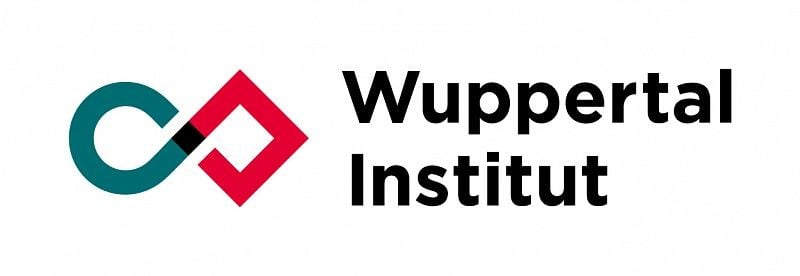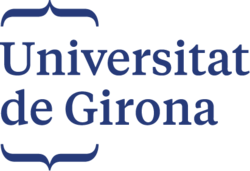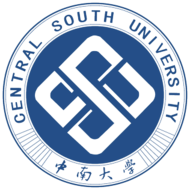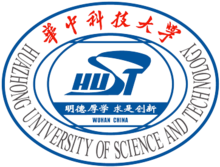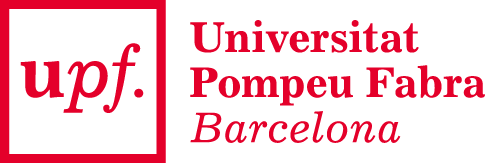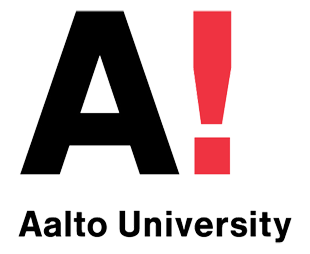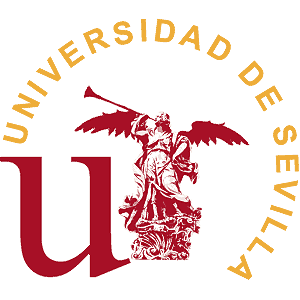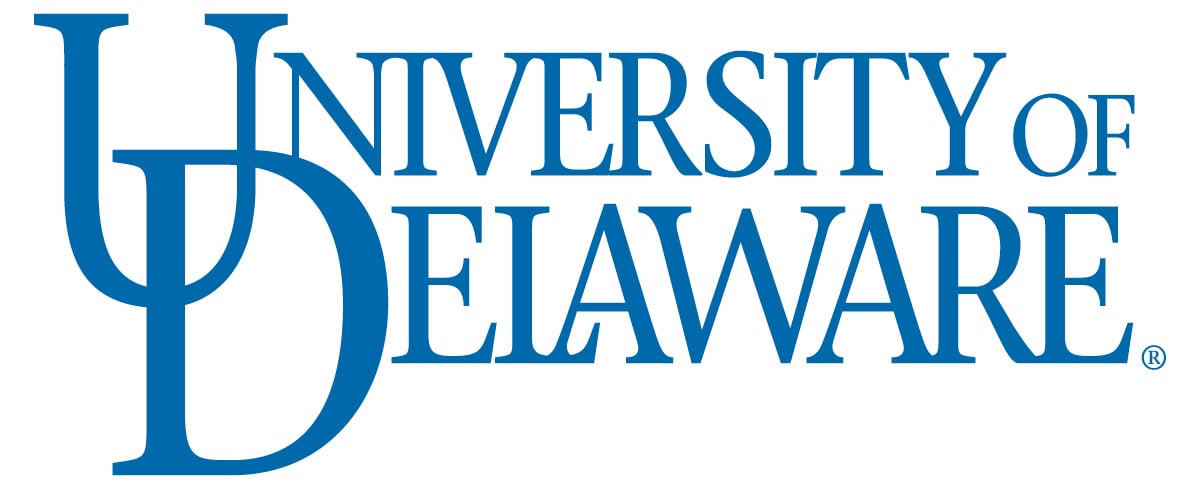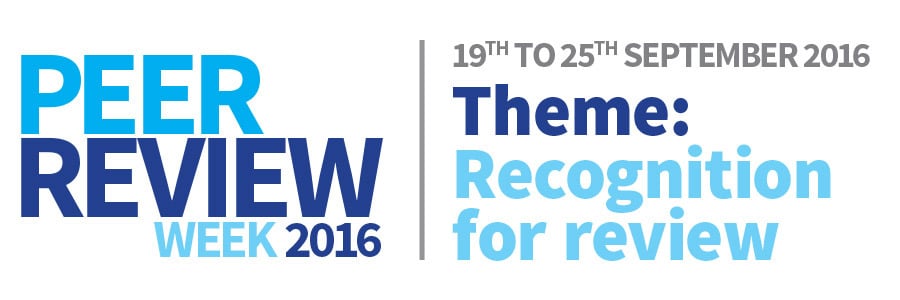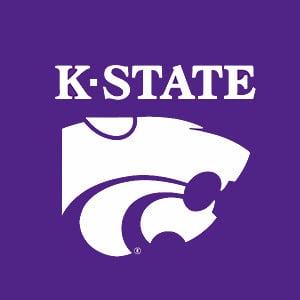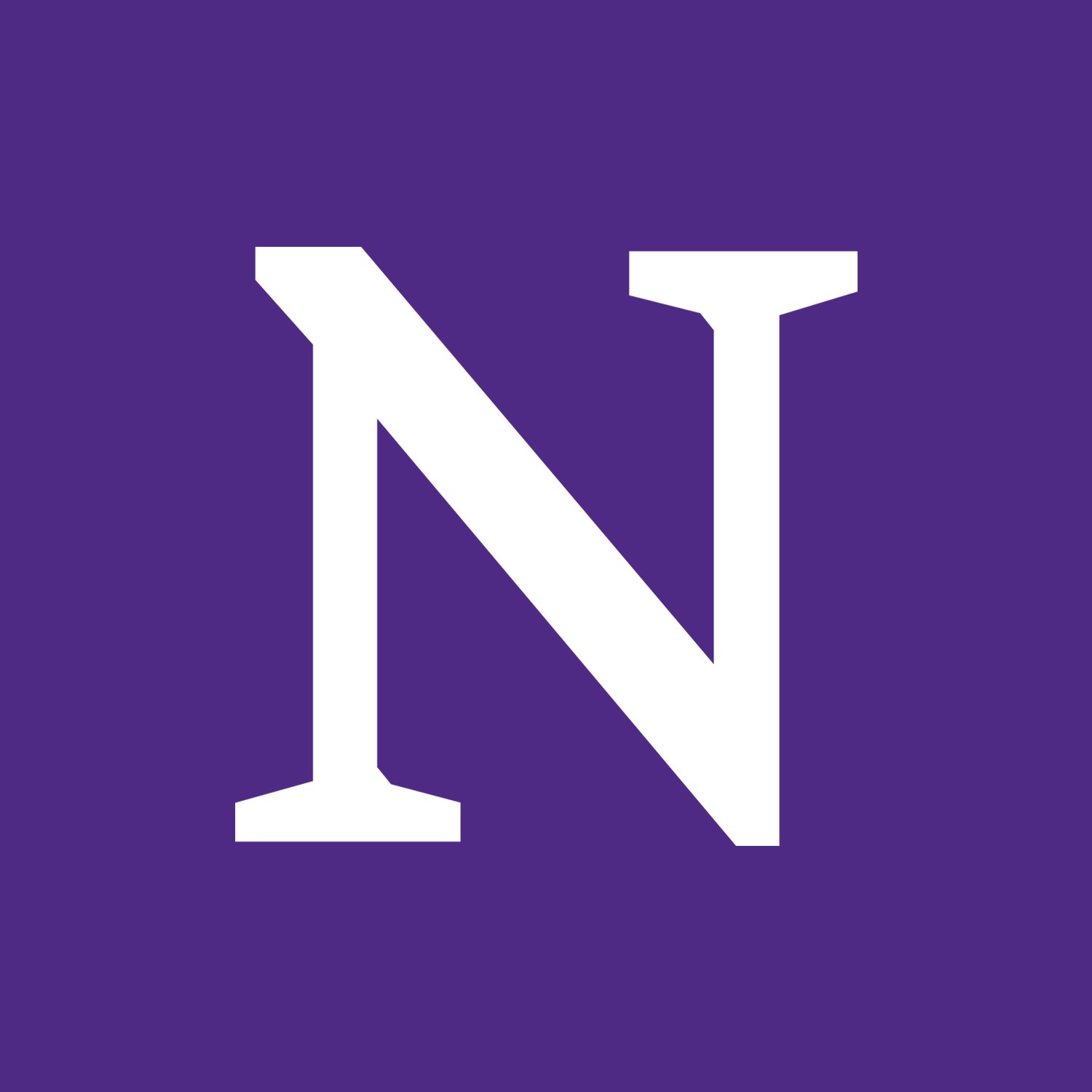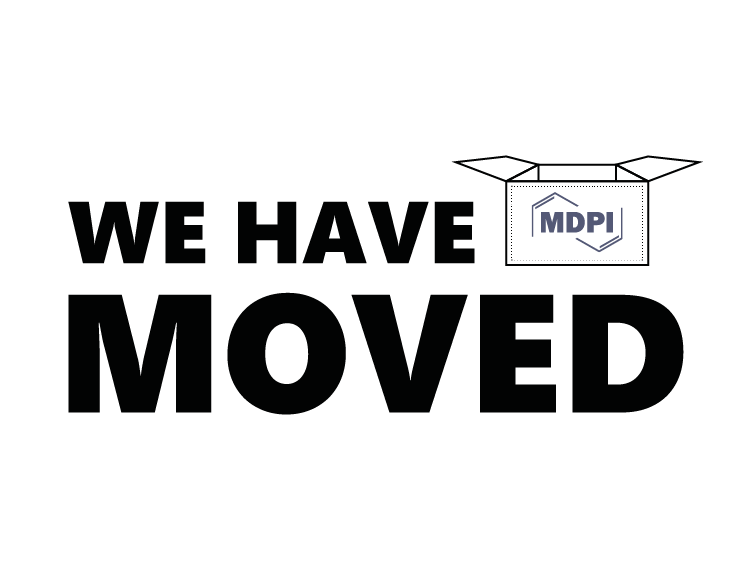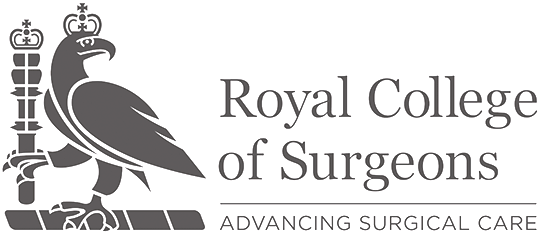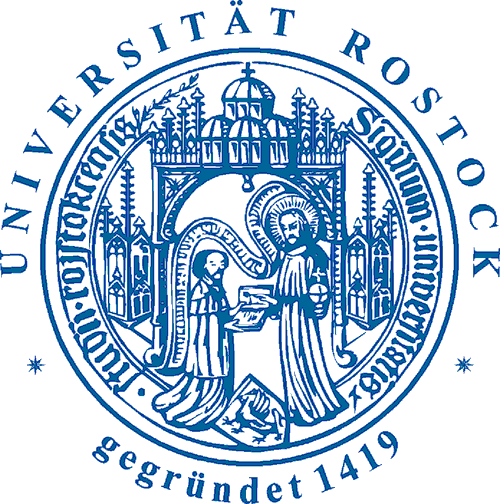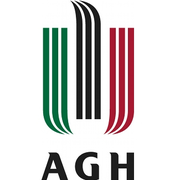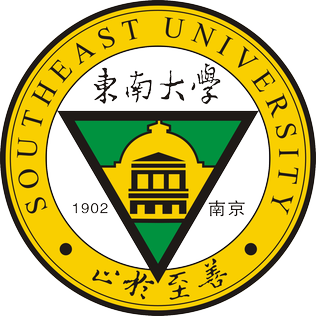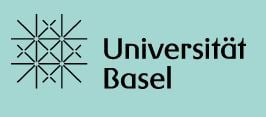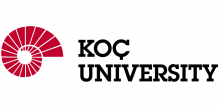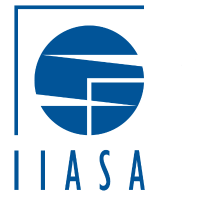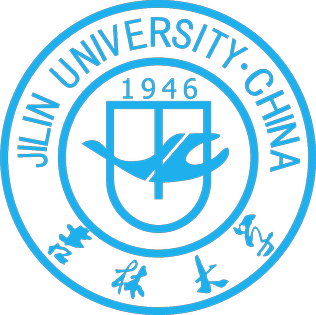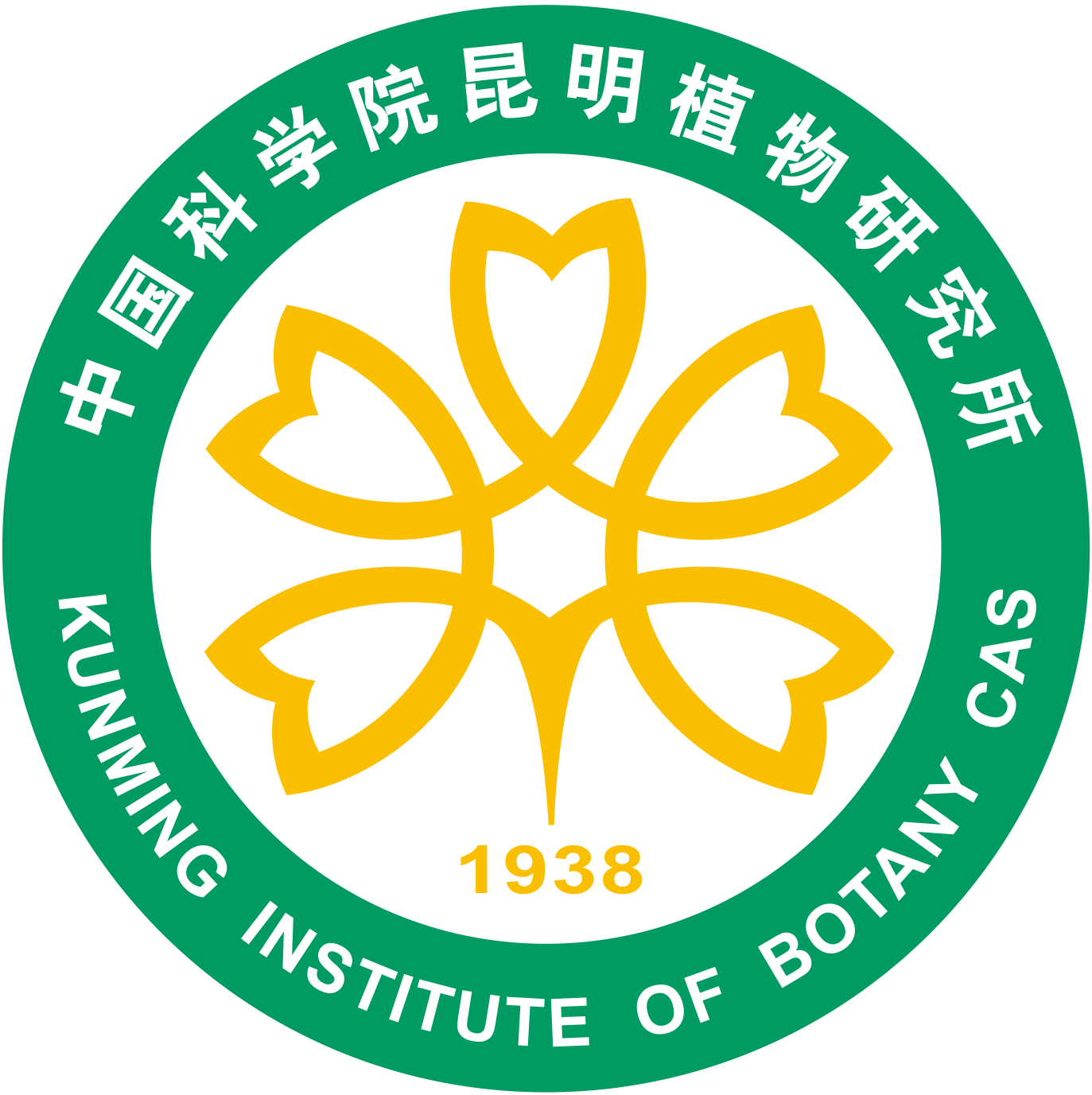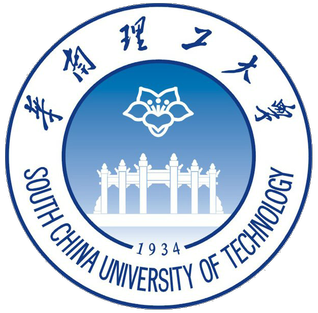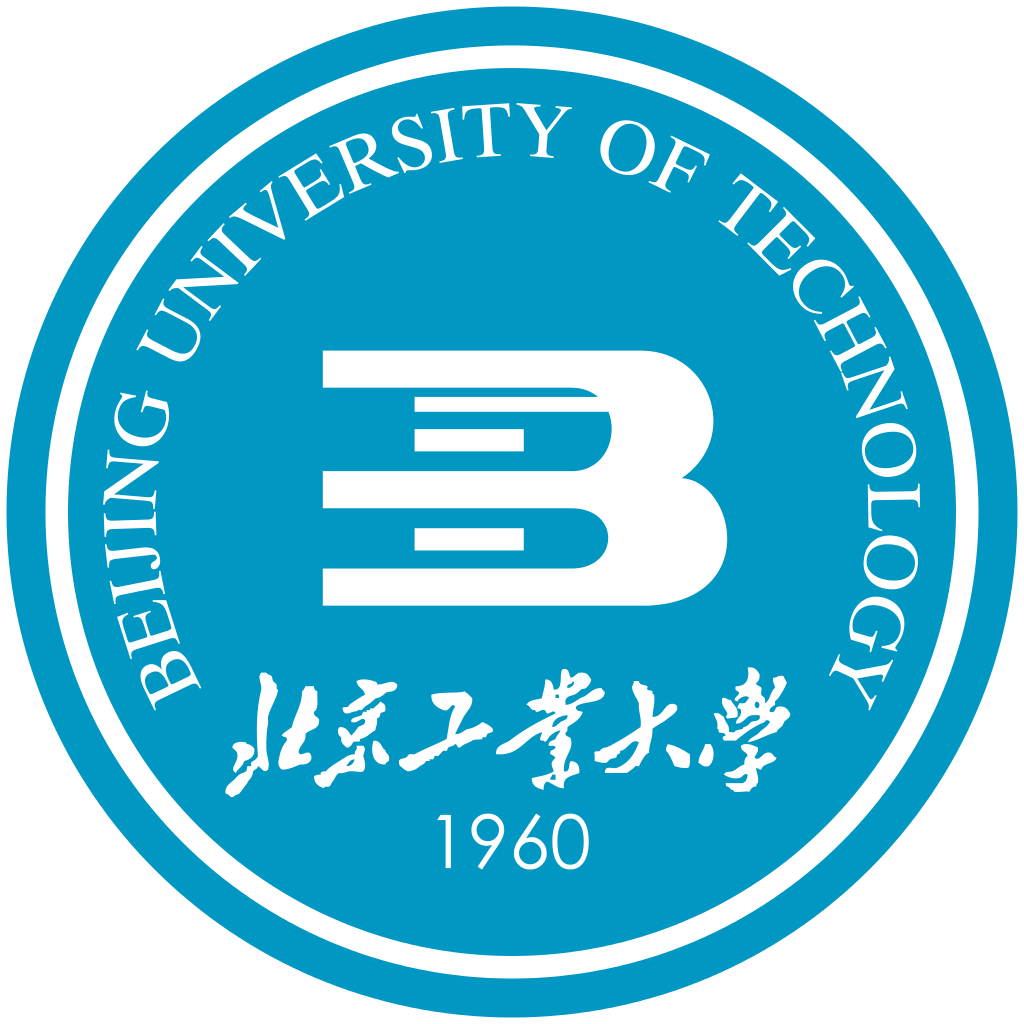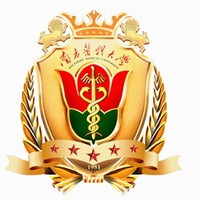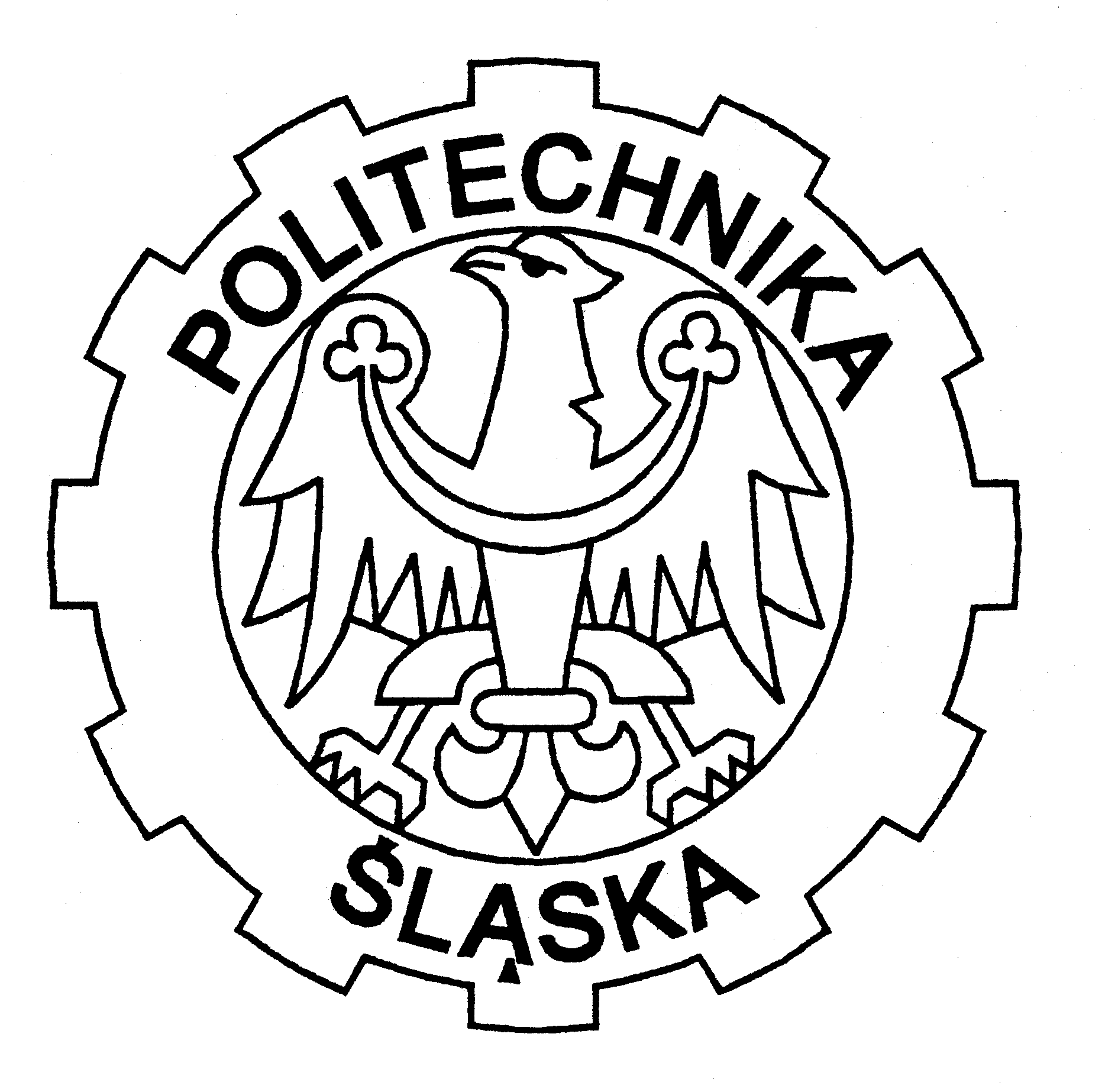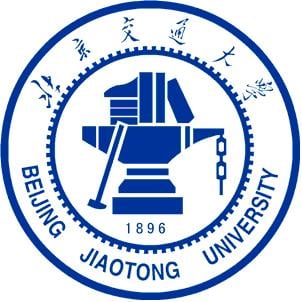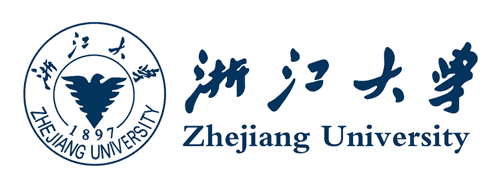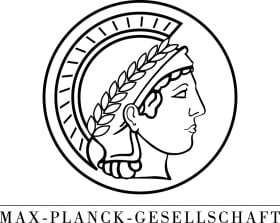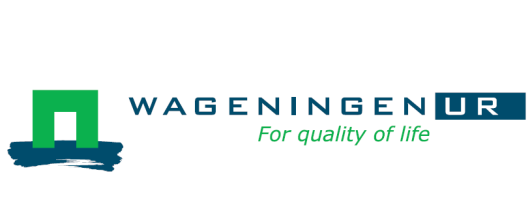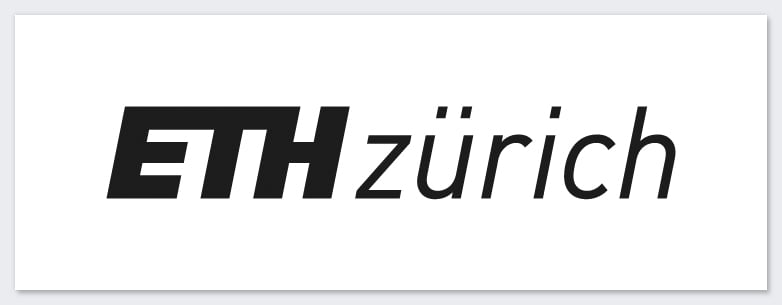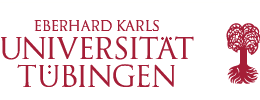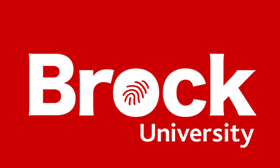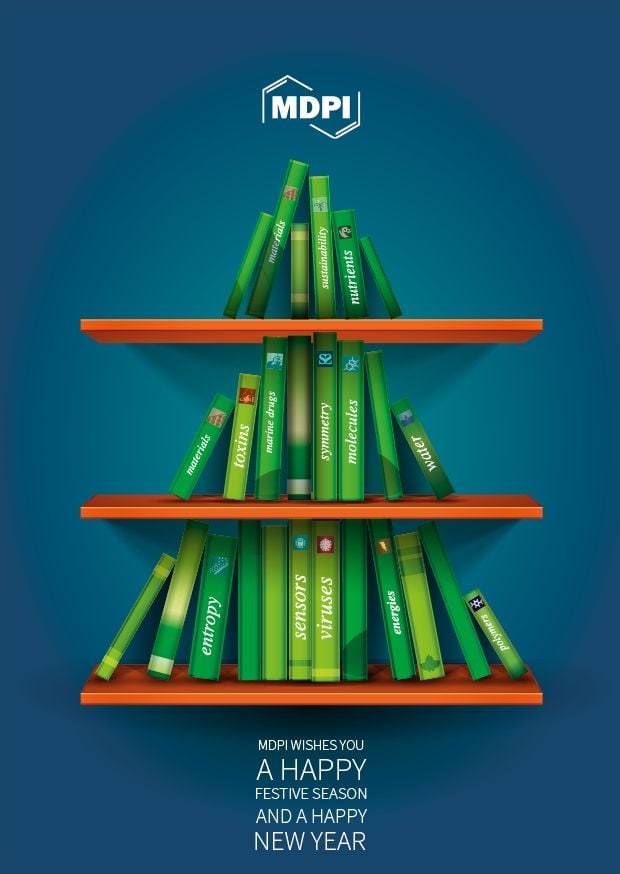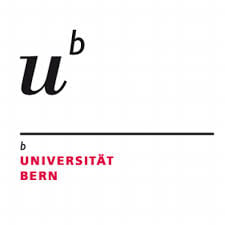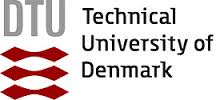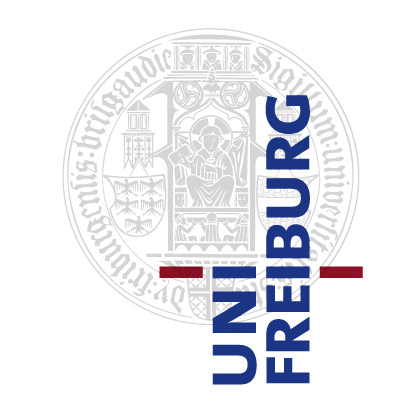
Journal Menu
► ▼ Journal Menu-
- Materials Home
- Aims & Scope
- Editorial Board
- Reviewer Board
- Topical Advisory Panel
- Instructions for Authors
- Special Issues
- Topics
- Sections & Collections
- Article Processing Charge
- Indexing & Archiving
- Editor’s Choice Articles
- Most Cited & Viewed
- Journal Statistics
- Journal History
- Journal Awards
- Society Collaborations
- Conferences
- Editorial Office
Journal Browser
► ▼ Journal BrowserNeed Help?
Announcements
15 April 2024
Interview with Dr. Yang Yu—Winner of the Materials 2024 Best Paper Award
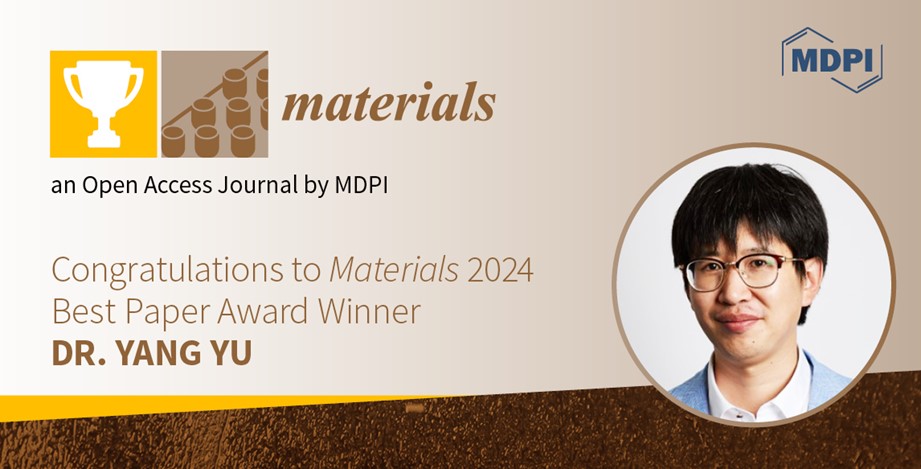
All papers published in 2022 in Materials (ISSN: 1996-1944) were considered for this award. After a thorough evaluation of the originality and significance of the papers, citations, and downloads, the winner was selected:
“Back-Propagation Neural Network Optimized by K-Fold Cross-Validation for Prediction of Torsional Strength of Reinforced Concrete Beam”
by Zhaoqiu Lyu, Yang Yu, Bijan Samali, Maria Rashidi, Masoud Mohammadi, Thuc N. Nguyen and Andy Nguyen
Materials 2022, 15(4), 1477; https://doi.org/10.3390/ma15041477
Available online: https://www.mdpi.com/1996-1944/15/4/1477
The winners will receive CHF 300 and a chance to publish a paper free of charge after peer review in Materials in 2024.
Dr. Yang Yu is currently a Research Fellow at the Centre for Infrastructure Engineering and Safety, School of Civil and Environmental Engineering, University of New South Wales, Australia. His research focuses on (1) sustainable construction materials, (2) digital transformation of civil infrastructure, and (3) smart materials for resilient structures. He has authored or co-authored over 120 journal articles that are indexed in the Web of Science, including eight ESI Highly Cited Papers and six ESI Hot Papers. Dr. Yu is serving as an Associate Editor for the journal Frontiers in Materials. Additionally, he has been included consecutively in the World's Top 2% Scientists list since 2022, published by Elsevier and developed by scientists from Stanford University, USA.
The following is an interview with Dr. Yang Yu:
1. Could you please briefly introduce the main content of the winning paper?
This paper introduces a novel approach for predicting the torsional strength of reinforced concrete (RC) beams by combining the advantages of the genetic algorithm (GA) and neural networks, specifically using a BP neural network optimized with K-fold cross-validation. This method addresses the challenge of limited sample size in conventional prediction methods by leveraging machine learning to enhance prediction accuracy. The study employs various metrics such as RMSE, MAE, MSE, MAPE, and R² to evaluate the performance of the proposed model. A comparative analysis with existing empirical formulas from design codes demonstrates the enhanced prediction capability of the BP neural network after optimization with K-fold cross-validation and the GA, suggesting its potential for practical application in the optimal design of RC beams.
2. What is your current research and why did you choose this research field?
My current research focuses on sustainable construction materials, an area I chose due to its critical importance in addressing environmental challenges and promoting sustainable development within the construction industry. As global awareness of environmental issues grows, the need for sustainable practices in all sectors, including construction, becomes increasingly paramount. This field offers the opportunity to innovate and develop materials that not only reduce the environmental footprint of construction projects but also enhance efficiency, durability, and cost-effectiveness. By exploring alternative materials, recycling waste products, and improving existing material sustainability, my research aims to contribute to building practices that are more in harmony with our environment. The potential for a significant positive impact on both the industry and the planet is what drives my passion and commitment to this area of study.
3. What appealed to you about our journal that made you want to submit your paper? What benefits do you think authors can gain when publishing their articles in Materials?
Publishing in Materials not only offers authors a broad and interdisciplinary platform to showcase their work but also significantly boosts the research’s visibility and impact through its inclusion in prestigious databases, such as Web of Science and Scopus. This can lead to higher citation rates, amplifying the influence of the research in the field. The journal's commitment to open access is a pivotal advantage, providing unrestricted global access to the research, which enhances its dissemination and engagement potential across the scientific community and beyond. Furthermore, the rigorous peer review process ensures the credibility and quality of the published work, affirming its contribution to the field of materials science. The journal's efficient publication timeline ensures that cutting-edge research is shared promptly, keeping pace with the rapid advancement in materials science. Moreover, exposure to a diverse audience fosters interdisciplinary collaboration and innovation, potentially leading to new research avenues and applications.
4. We are an open access journal. How do you think open access impacts the authors?
Open access significantly benefits authors by enhancing the visibility and accessibility of their research, ensuring wider dissemination across disciplines and beyond the academic community, which can lead to increased citations and a broader impact. It facilitates compliance with funding mandates that require open dissemination of research findings, fostering interdisciplinary collaborations and public engagement. While open access shifts publication costs to authors in the form of article processing charges (APCs), institutions and funders often cover these expenses, recognizing the value of open and accessible research. Thus, open access presents a compelling model for authors looking to maximize the reach and influence of their work in the scientific community and the broader public sphere.
15 April 2024
Meet Us at the 12th World Biomaterials Congress (WBC 2024), 26–31 May 2024, Daegu, Korea
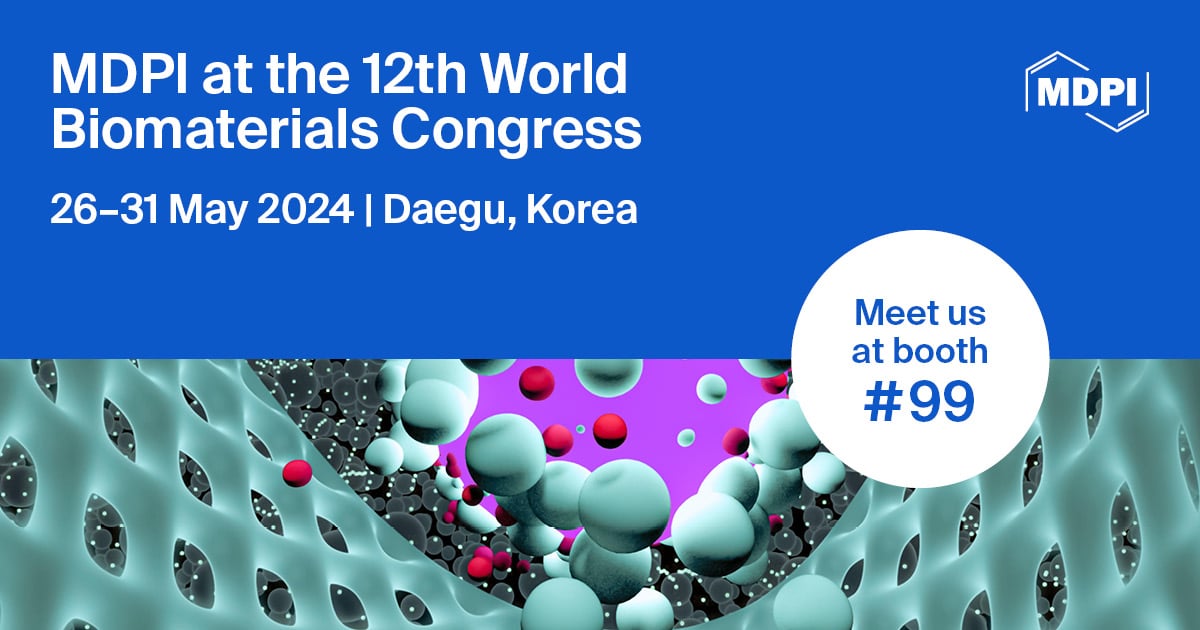
MDPI will attend the 12th World Biomaterials Congress (WBC 2024) as an exhibitor. We invite researchers from different backgrounds to visit and share their latest ideas with us.
The WBC is a large-scale academic conference supported by the IUSBSE, a global association in the field of biomaterials. The 12th World Biomaterials Congress will attract more than 4,000 participants from all over the world. Participating experts can gather and share the latest information and knowledge in the diverse areas within biomaterials research.
The following MDPI journals will be represented at the conference:
- Bioengineering;
- International Journal of Molecular Sciences;
- Journal of Functional Biomaterials;
- Applied Biosciences;
- Journal of Cardiovascular Development and Disease;
- Materials;
- Current Issues in Molecular Biology;
- Cosmetics;
- Fibers;
- Metals.
If you are planning to attend the above conference, please do not hesitate to start an online conversation with us. Our delegates look forward to meeting you in person and answering any questions you may have. For more information about the conference, please visit the following website: https://www.wbc2024.com/.
10 April 2024
Materials 2025 Travel Award—Open for Applications
We are pleased to announce that Materials (ISSN: 1996-1944) will grant the 2025 Travel Award to two junior scientists. Applications will be assessed by an Evaluation Committee of senior scholars from the Materials Editorial Board.
This award provides financial support for the winners to attend an international conference in the field of materials science and engineering to be held in 2025 to hold a presentation, present a poster, or both.
Candidate Requirements:
- Postdoctoral fellows or Ph.D. students;
- Plans to attend an international conference in 2025 (oral presentation or poster).
Required Application Documents:
- Information about the conference the applicant is planning to attend and the abstract that will be submitted;
- Curriculum vitae and list of publications;
- Justification letter describing the focus of the research (max. 800 words);
- Letter of recommendation from the supervisor, research director, or department head, which also confirms the applicant’s status as a postdoctoral fellow/Ph.D. student.
The winners (two awardees) will each be awarded CHF 800 and an electronic certificate.
Please submit your applications for the Materials 2025 Travel Award online by 30 October 2024. Prizes will be awarded at the end of December 2024 and announced on the Materials website.
Materials Editorial Office
10 April 2024
Meet Us at the 2024 Spring Meeting of the European Materials Research Society (E-MRS), 27–31 May 2024, Strasbourg, France
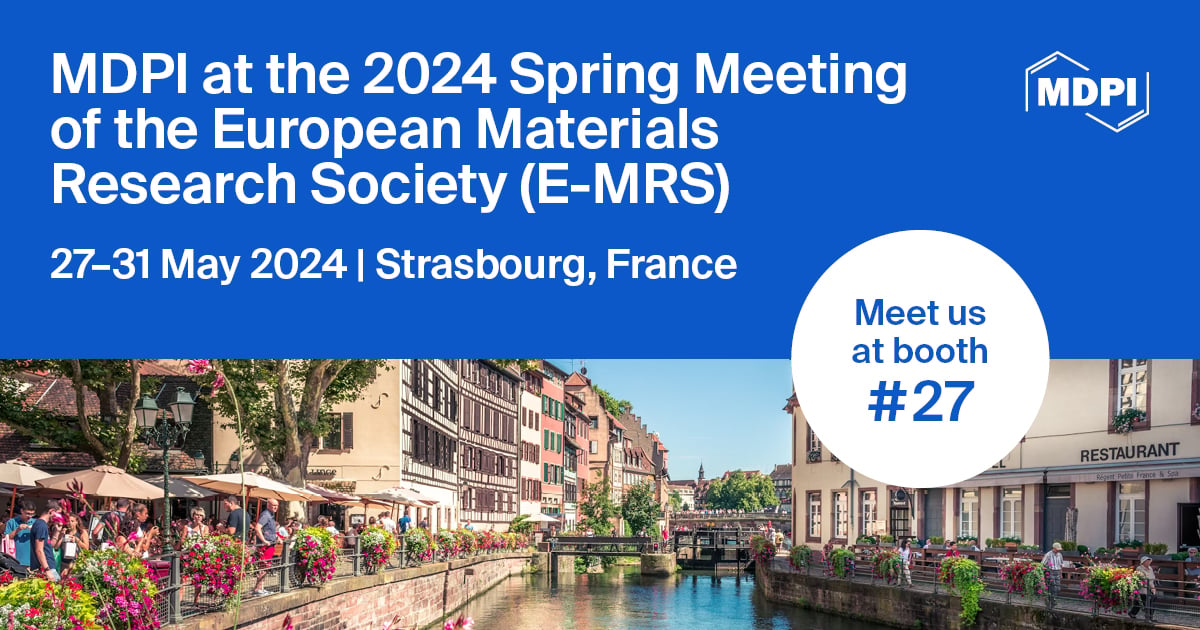
The 2024 Spring Meeting of the European Materials Research Society (E-MRS) will be held from 27 to 31 May 2024, in Strasbourg, France. The conference is organized by the European Materials Research Society and Foundation Jean-Marie Lehn.
The conference will focus on the following:
- Vascular disorders;
- Decarbonized energy and sustainability;
- Materials for human well-being;
- Two-dimensional materials and surfaces: synthesis, characterization, and perspectives;
- Advanced characterization of materials;
- Materials sciences for cultural heritage;
- Electronics, magnetics, and photonics.
The following MDPI journals will be represented:
- Materials;
- Nanomaterials;
- Symmetry;
- C;
- Textiles;
- Coatings;
- Applied Nano;
- Polymers;
- Fibers;
- Construction Materials;
- CMD;
- Crystals.
If you are attending this conference, please feel free to start an online conversation with us. Our delegates look forward to meeting you in person at booth #27 and answering any questions that you may have. For more information about the conference, please visit the following link: https://www.european-mrs.com/meetings/2024-spring-meeting.
3 April 2024
Meet Us at the 8th National Congress of Magnetic Materials and Devices, 12–14 April 2024, Hangzhou, China
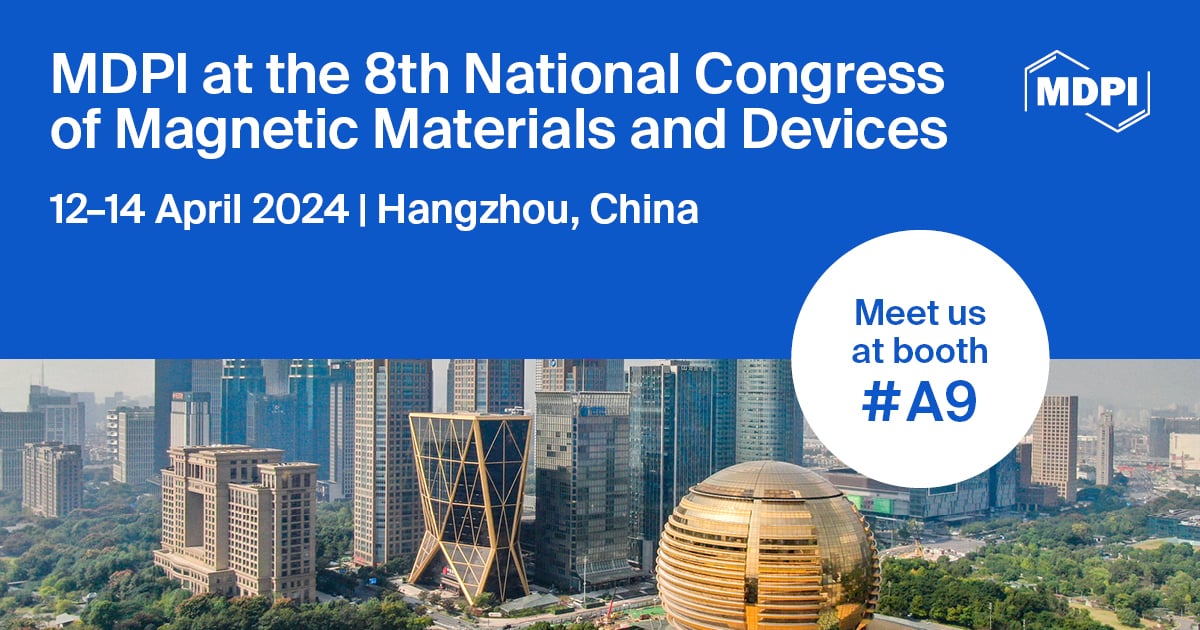
Conference: 8th National Congress of Magnetic Materials and Devices
Date: 12–14 April 2024
Location: Hangzhou, China
MDPI will attend the 8th National Congress of Magnetic Materials and Devices as an exhibitor. We invite researchers from different backgrounds to visit and share their latest ideas with us.
The 8th National Congress of Magnetic Materials and Devices aims to gather domestic scientific and technological workers and industrial units to discuss the focus, hot spots, frontiers, and key common scientific issues in the field, share the latest results, explore basic research ideas and priority development directions, and promote technological progress and industrialization. Collaborate, grasp scientific research and industry development trends, and promote industry–university–research cooperation and leapfrog development.
The following MDPI journals will be represented:
If you are planning to attend this conference, please do not hesitate to start an online conversation with us. Our delegates look forward to meeting you in person and answering any questions you may have. For more information about the conference, please visit the following website: http://www.c-nmaterial.com.cn/index.php.
2 April 2024
Meet Us at the 20th National Youth Congress on Catalysis, 10–14 May 2024, Dalian, China
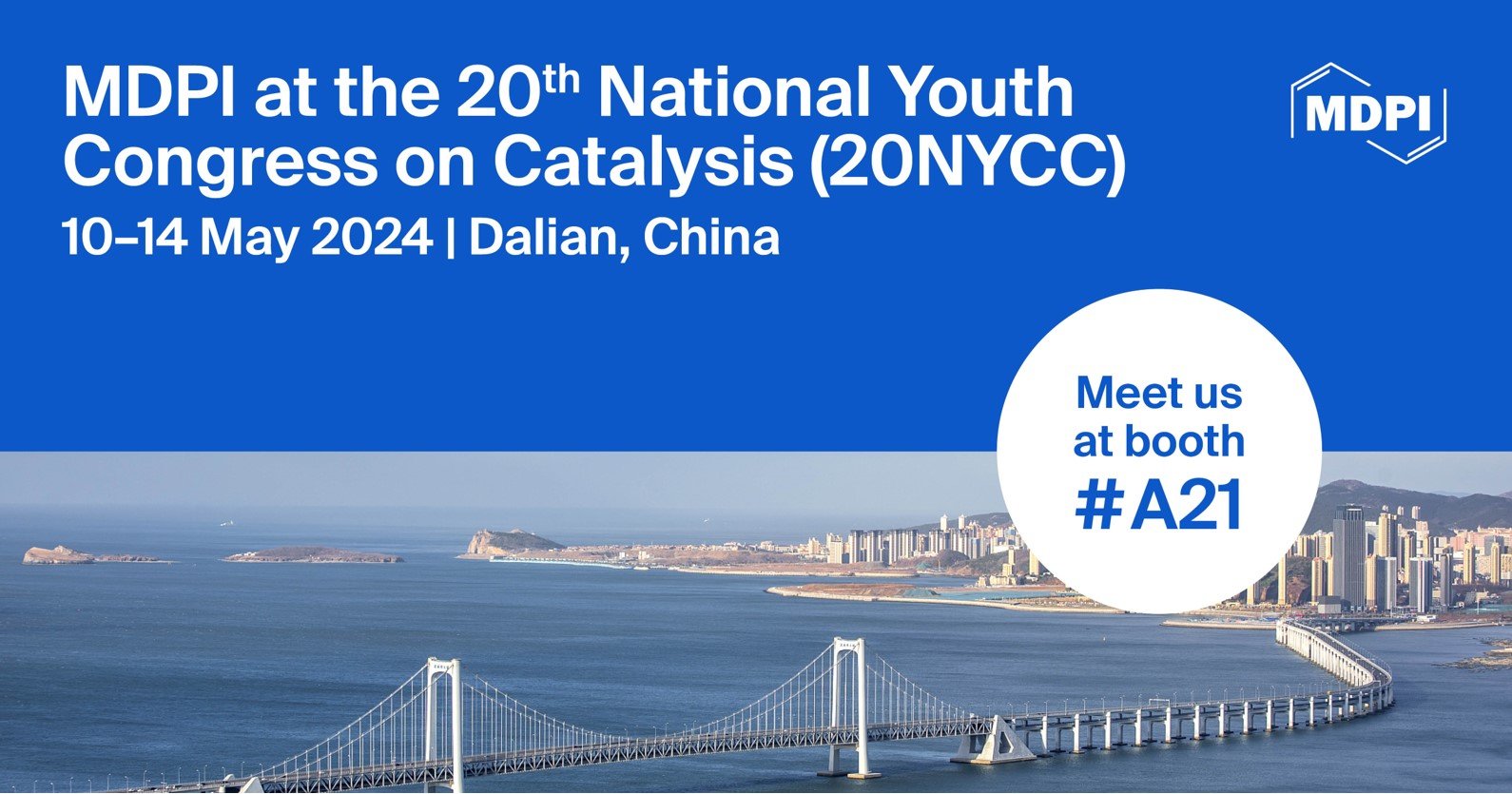
MDPI will be attending the 20th National Youth Congress on Catalysis (20NYCC), which will be held from 10 to 14 May 2024 in Dalian, China.
Since its initiation in 1987, the National Youth Congress on Catalysis has been held every two years, aiming to provide a platform for mutual learning and communication among young catalytic workers (under 45 years of age). The conference will focus on topics such as biocatalysis, organocatalysis, photocatalysis, and electrocatalysis, showcasing the latest progress and achievements in the basic and applied research of young Chinese catalytic workers in the fields of energy, chemical engineering, materials, and biology in recent years. It will also delve into the opportunities, challenges, and future innovative development directions of the Chinese catalytic field under the current unprecedented changes of the century, promote exchanges in cutting-edge catalysis science and technology and interdisciplinary integration, deepen communication and cooperation between industry, academia, and research, and comprehensively promote the development of catalysis science and technology in China.
The following MDPI journals will be represented at the conference:
If you are planning to attend the above conference, please feel free to stop by our booth (#A21) and start a conversation with us. Our delegates look forward to meeting you in person and answering any questions that you may have. For more information about the conference, please visit the following link: https://20nycc.scimeeting.cn/cn/web/index/.
2 April 2024
MDPI Insights: The CEO's Letter #10 - South Korea, IWD, U2A, Japan

Welcome to the MDPI Insights: The CEO's Letter.
In these monthly letters, I will showcase two key aspects of our work at MDPI: our commitment to empowering researchers and our determination to facilitating open scientific exchange.
Opening Thoughts

Left to right: Dr. Jisuk Kang (Scientific Officer, MDPI), Stefan Tochev (CEO, MDPI), and Dr. Giulia Stefenelli (Chair of Scientific Office Board, MDPI), during media meetings at Prain Agency office in Seoul, South Korea.
Visit to Seoul, South Korea
During my recent visit to South Korea, I had the privilege of meeting various stakeholders, including representatives of government, research institutions, and academia, to understand their needs and communicate MDPI’s commitment to accessible science. Accompanied by my colleagues Dr. Giulia Stefenelli and Dr. Jisuk Kang, I engaged with the Korean scientific community, which is increasingly embracing open access (OA).
As the leading OA publisher in South Korea, MDPI is trusted by local authors and in 2023 enjoyed an approximately 30% share of the OA market. South Korea ranks sixth globally for MDPI in terms of research papers submitted and published.
MDPI and South Korea by Numbers
As at 30 March, over 76,000 MDPI articles have been authored by individuals affiliated with Korean institutions. We have over 1,800 active editorial board members (EBMs) from South Korea, with more than 880 EBMs having an H-index between 26 and 50, including 10 serving as Chief Editors.
“South Korea is the sixth-largest contributor to our total publications”
Over the past five years (2019–2023), nearly 120,000 authors affiliated with South Korean institutes have published with MDPI. Specifically in 2023, we received approximately 25,000 submissions from South Korean authors, publishing close to 13,000 articles, resulting in a rejection rate of 47.4%, which is not far below MDPI’s overall rejection rate of 56.4% in 2023.
Institutional Partnerships with South Korea
I am pleased to share that MDPI has more than 825 institutional partnerships worldwide, with 12 in South Korea, including Kyunghee University, Chung-Ang University, and Inha University, among others.

Left to right: Dr. Jisuk Kang (Scientific Officer, MDPI), Dr. Giulia Stefenelli (Chair of Scientific Office Board, MDPI), and Stefan Tochev (CEO, MDPI) fielding media questions at Prain PR Agency office in Seoul, South Korea.
Over the past three years (2021–2023), we have had some of the most prestigious academic universities ranked among the top 10 Korean institutions publishing with MDPI. Seoul National University had the highest number of publications with MDPI during those three years, publishing nearly 6,000 papers. Universities such as Korea University and Yonsei University also rank among the top 10 Korean institutions publishing with MDPI.
MDPI Hosts Seminar for Academia and Media
As the world’s leading OA publisher, MDPI is actively democratizing science. This is reflected in the seminars we hosted on 21 March to address questions about our editorial processes and ethical standards. The visit garnered media coverage, reflecting our mission to providing high-quality services and fostering open dialogue in the community.
“MDPI is actively democratizing science”
MDPI in the News

Stefan Tochev (CEO, MDPI) leading a seminar on OA and MDPI at Prain PR Agency office in Seoul, South Korea.
Media coverage generated by our visit to Seoul included the following stories:
“Open access is an unstoppable trend…it will lead the development of the knowledge ecosystem.”
I greatly appreciate the contributions of everyone who took the time to meet with us, share their stories, and hold us accountable for continuing to provide high-quality publishing services while identifying areas for improvement. I am also excited to announce that we have opened an MDPI office in Seoul and will release a press release on MDPI.com, with details, by the end April 2024. The purpose of the office is to establish a local presence to connect with and support the South Korean academic community through institutional partnerships, conferences, author workshops, stakeholder communications, and more.
Impactful Research

Featured Articles on Women’s Leadership and Healthcare
In celebration of International Women’s Day (8 March 2024), MDPI curated a collection of research articles on various topics, including women’s leadership, reproductive health, preventive healthcare, and a selection of articles from our journal Women.
Women’s Leadership
- Women Entrepreneurship and Sustainable Development: Bibliometric Analysis and Emerging Research Trends
Sustainability 2022, 14, 9160. https://doi.org/10.3390/su14159160 - Refugee Women Business Mentors: New Evidence for Women’s Empowerment
Sustainability 2022, 14, 9154. https://doi.org/10.3390/su14159154 - Women and Leadership in Higher Education: A Systematic Review
Soc. Sci. 2023, 12, 555. https://doi.org/10.3390/socsci12100555 - Understanding Needs and Potentials for Gender-Balanced Empowerment and Leadership in Climate Change Adaptation and Mitigation in Africa
Sustainability 2022, 14, 9410. https://doi.org/10.3390/su14159410 - Challenges Women Experience in Leadership Careers: An Integrative Review
Merits 2023, 3, 366-389. https://doi.org/10.3390/merits3020021
Women’s Reproductive Health
- Recreational Female Athletes’ Understanding of and Perceived Impact of the Menstrual Cycle on Physical Performance, Mood, and Sleeping Behaviour
Women 2023, 3, 445-456. https://doi.org/10.3390/women3030034 - Difficulties in Adaptation of the Mother and Newborn via Cesarean Section versus Natural Birth—A Narrative Review
Life 2023, 13, 300. https://doi.org/10.3390/life13020300 - The Main Theories on the Pathogenesis of Endometriosis
Int. J. Mol. Sci. 2023, 24, 4254. https://doi.org/10.3390/ijms24054254
Women’s Preventive Healthcare
- Insulin Metabolism in Polycystic Ovary Syndrome: Secretion, Signaling, and Clearance
Int. J. Mol. Sci. 2023, 24, 3140. https://doi.org/10.3390/ijms24043140 - Assessing Barriers Encountered by Women in Cervical Cancer Screening and Follow-Up Care in Urban Bolivia, Cochabamba
Healthcare 2022, 10, 1604. https://doi.org/10.3390/healthcare10091604 - Updates on HPV Vaccination
Diagnostics 2023, 13, 243. https://doi.org/10.3390/diagnostics13020243
Featured Articles in MDPI Journal Women
Below are a few articles from Women, our journal focused on women’s health, the social determinants of health, and the healthcare system that serves women. The aim of Women is to encourage academics to publish their experimental and theoretical results in detail, to aid reproducibility, and in an engaging style, to aid comprehensibility.
- Premenstrual Syndrome and Exercise: A Narrative Review
Women 2023, 3, 348-364. https://doi.org/10.3390/women3020026 - Increasing Awareness of the Human Papillomavirus (HPV) Vaccine for Women 18–45 Years of Age
Women 2023, 3, 365-373. https://doi.org/10.3390/women3030027 - Addressing Women’s Needs with Human Immunodeficiency Virus (HIV) and Enhancing the Visibility of Pharmacists in the Public Health Arena
Women 2022, 2, 346-352. https://doi.org/10.3390/women2040032
Inside MDPI

Championing Women’s Healthcare and Access to Healthcare Information
MDPI colleagues from our offices joined in celebrating #IWD2024. In doing so, we emphasized key missions that encompass:
- Empowering women to assume leadership and decision-making roles in both business and science.
- Helping women and girls make informed decisions about their health.
- Recruiting and developing female talent and fostering inclusive workplace environments.
“We are thrilled to recognize the accomplishments of women scientists”
I am proud to see our colleagues enthusiastically supporting the International Women’s Day call to ‘Inspire Inclusion!’ The heart-hands in the collage below symbolize our appreciation of the achievements of women researchers and the recognition of the trailblazers who have courageously made a mark on societies past and present.

We are thrilled to recognize the accomplishments of women scientists through our many MDPI awards and by highlighting success stories. As inspirational figures, female scientists are paving the way for the next generation of women aspiring to pursue careers in engineering, life sciences, computing, and various other STEM fields.
“I consider myself lucky because I work with incredibly talented women who inspire me every day.”
– Dr. Alessandra Pasut, Winner of MDPI's ‘Biology 2023 Young Investigator Award’
“It’s really important to find a supportive and enabling environment in which to do your science; it would have a big impact on you as a person and on your scientific outputs.”
– Dr. Rhea Longley, Winner of the ‘Pathogens 2023 Young Investigator Award’
Open-access publishing, in particular, allows early-career women researchers to share their work more widely, potentially attracting mentorship opportunities and collaborations. This support is crucial for career development and advancement.
Coming Together for Science

MDPI Joins United2Act in Collective Fight to Stop Paper Mills
In my February 2024 CEO Letter, I highlighted some of our recent initiatives aimed at bolstering our commitment to research integrity, including joining the STM Integrity Hub and expanding our Research Integrity and Publication Ethics team (RIPE). Continuing our efforts in coming together for science, I am pleased to share our participation in the United2Act initiative.
The text below is taken from our official announcement:
United2Act represents an international group of stakeholders in the publishing industry committed to addressing the collective challenge posed to research integrity by paper mills.
Scientists and academic publishers have increasingly noted the alarming proliferation of paper mills, recognized as fraudulent entities seeking to manipulate the publication process for financial profit. These entities engage in fraudulent practices such as falsifying or fabricating data, selling co-authorship of fake papers, manipulating peer review, and including inappropriate citations. These actions pose a significant threat to the integrity of the scholarly record, prompting widespread concern among those involved in the academic community.
MDPI has been actively contributing to combat the undermining of the scientific record. Our editors employ a set of tools to detect potential ethical breaches within a manuscript and to tackle the issue of fake papers.
United2Act’s consensus statement is the outcome of a virtual summit held in May 2023. It involved the participation of research bodies, publishers, researchers/sleuths, universities, and publishing infrastructure from 15 countries and resulted in a Consensus Statement outlining five key areas of action for all stakeholders:
- Education and awareness
- Improve post-publication corrections
- Facilitate and organise research on paper mills
- Enable the development of trust markers
- Facilitate dialogue between stakeholders
MDPI is committed to promoting transparency and integrity in scholarly publishing and is continuing to work closely with the scientific community toward this goal.
Closing Thoughts

Left to right: Ryo Hirayama (Marketing Specialist, MDPI), Takashi Sasabe (Marketing Specialist, MDPI), Dr. Giulia Stefenelli (Chair of Scientific Office Board, MDPI), Dr. Izumi Yamamoto (Marketing Manager, MDPI), and Stefan Tochev (CEO, MDPI), at MDPI’s office in Tokyo, Japan.
Visit to Tokyo and Kyoto, Japan
In March, I had the opportunity to visit our Tokyo office and engage with stakeholders in Tokyo and Kyoto. During the visit, I also recorded a video message to welcome Japanese scholars working with MDPI and to highlight our operations in Japan.
We held meetings with Editors-in-Chief, librarians, scholars, and external consultants to gather feedback on our efforts to enhance our reputation and explore additional steps we can take in that direction. Japan's rich cultural heritage, characterized by tradition, respect, and formality, provided valuable insights into meeting the publishing needs specific to Japan.
Japan’s Open Access statistics
Over the years, we have seen a shift from subscription-only to gold OA publishing in Japan, despite the lack of an official mandate. Here are some statistics:
- 2012: 68% of articles were subscription-only, 6% were green Open Access, and 8% were gold Open Access.
- 2016: 55% of articles were subscription-only, 6% were green Open Access, and 20% were gold Open Access.
- 2022: 43% of articles were subscription-only, 7% were green Open Access, and 39% were gold Open Access.
To learn more about the history of OA in Japan as well as about future trends, please read this blog post.
“Japan is the ninth-largest contributor to our total publications”

Left to right: Stefan Tochev (CEO, MDPI), Dr. Izumi Yamamoto (Marketing Manager, MDPI), and Dr. Giulia Stefenelli (Chair of Scientific Office Board, MDPI) visiting Kyoto University in Kyoto, Japan.
MDPI and Japan by Numbers
As at 1 April, over 50,000 MDPI articles have been authored by scholars affiliated with Japanese institutions, making the country the ninth-largest contributor to our total publications. Over the past three years (2020–2023), nearly 90,000 authors affiliated with Japanese institutes have published with MDPI, and we have collaborated with over 4,600 Guest Editors from Japan.
In 2023, we published over 8,200 papers from authors associated with Japanese institutions. MDPI collaborates with 41 institutional partnerships in Japan, including the University of Tokyo, Hokkaido University, and Nagoya University. We have over 2,100 active EBMs from Japan, more than 1,050 EBMs having an H-index between 26 and 50, including 13 serving as Editors-in-Chief.
General Feedback – a side note
A general takeaway from our discussions with stakeholders from around the world is that negative perceptions of MDPI often stem from misinformation, misconceptions, or misunderstandings about MDPI and our practices. While we acknowledge our mistakes and work diligently to address them, maintaining a strong editorial procedure and robust peer-review process, I find that educating stakeholders about our how we do what we do and our ongoing improvements tends to help shift opinions.
That said, we recognize the importance of addressing individual concerns. We take feedback seriously and are continuously working to get better while not compromising the core principles that millions of authors appreciate about MDPI.
Chief Executive Officer
MDPI AG
25 March 2024
Materials 2024 Best Paper Awards—Winners Announced
We are pleased to announce the winners of the Materials 2024 Best Paper Awards. All the papers published in Materials (ISSN: 1996-1944) in 2022 were considered. After evaluating the originality and significance of the papers, citations and download data, six articles and six reviews were selected.
First Prize: CHF 500, an electronic certificate, and a chance to publish a paper free of charge in Materials in 2024.
Article:
“Antenna Characteristics of Helical Coil with 2.45 GHz Semiconductor Microwave for Microwave-Enhanced Laser-Induced Breakdown Spectroscopy (MW-LIBS)”
by Yuji Ikeda, Yoshihiko Hirata, Joey Kim Soriano and Ikuo Wakaida
Materials 2022, 15(8), 2851; https://doi.org/10.3390/ma15082851
Review:
“Solid Lubrication at High-Temperatures—A Review”
by Rahul Kumar, Irina Hussainova, Ramin Rahmani and Maksim Antonov
Materials 2022, 15(5), 1695; https://doi.org/10.3390/ma15051695
Second Prize: CHF 300, an electronic certificate and a chance to publish a paper free of charge in Materials in 2024.
Articles:
“EIS Characterization of Ti Alloys in Relation to Alloying Additions of Ta”
by Pedro P. Socorro-Perdomo, Néstor R. Florido-Suárez, Julia C. Mirza-Rosca and Mircea Vicentiu Saceleanu
Materials 2022, 15(2), 476; https://doi.org/10.3390/ma15020476
“Back-Propagation Neural Network Optimized by K-Fold Cross-Validation for Prediction of Torsional Strength of Reinforced Concrete Beam”
by Zhaoqiu Lyu, Yang Yu, Bijan Samali, Maria Rashidi, Masoud Mohammadi, Thuc N. Nguyen and Andy Nguyen
Materials 2022, 15(4), 1477; https://doi.org/10.3390/ma15041477
Reviews:
“Additive Manufacturing of Biomaterials—Design Principles and Their Implementation”
by Mohammad J. Mirzaali, Vahid Moosabeiki, Seyed Mohammad Rajaai, Jie Zhou and Amir A. Zadpoor
Materials 2022, 15(15), 5457; https://doi.org/10.3390/ma15155457
“Root Causes and Mechanisms of Failure of Wind Turbine Blades: Overview”
by Leon Mishnaevsky, Jr.
Materials 2022, 15(9), 2959; https://doi.org/10.3390/ma15092959
Third Prize: CHF 200, an electronic certificate and a chance to publish a paper free of charge in Materials in 2024.
Articles:
“Chirality in the Solid State: Chiral Crystal Structures in Chiral and Achiral Space Groups”
by Gerhard H. Fecher, Jürgen Kübler and Claudia Felser
Materials 2022, 15(17), 5812; https://doi.org/10.3390/ma15175812
“Strength Properties of 316L and 17-4 PH Stainless Steel Produced with Additive Manufacturing”
by Slawomir Kedziora, Thierry Decker, Elvin Museyibov, Julian Morbach, Steven Hohmann, Adrian Huwer and Michael Wahl
Materials 2022, 15(18), 6278; https://doi.org/10.3390/ma15186278
“Hydroxyapatite Coating on Ti-6Al-7Nb Alloy by Plasma Electrolytic Oxidation in Salt-Based Electrolyte”
by Avital Schwartz, Alexey Kossenko, Michael Zinigrad, Yosef Gofer, Konstantin Borodianskiy and Alexander Sobolev
Materials 2022, 15(20), 7374; https://doi.org/10.3390/ma15207374
Reviews:
“Photovoltaic Cell Generations and Current Research Directions for Their Development”
by Justyna Pastuszak and Paweł Węgierek
Materials 2022, 15(16), 5542; https://doi.org/10.3390/ma15165542
“Magnesium-Based Alloys Used in Orthopedic Surgery”
by Iulian Antoniac, Marian Miculescu, Veronica Mănescu (Păltânea), Alexandru Stere, Pham Hong Quan, Gheorghe Păltânea, Alina Robu and Kamel Earar
Materials 2022, 15(3), 1148; https://doi.org/10.3390/ma15031148
“Surface Engineering of Nanomaterials with Polymers, Biomolecules, and Small Ligands for Nanomedicine”
by Ana M. Díez-Pascual
Materials 2022, 15(9), 3251; https://doi.org/10.3390/ma15093251
Please join us in congratulating the winners of the Materials 2024 Best Paper Award. We would also like to thank all our authors for their continued support of Materials.
Materials Editorial Office
20 March 2024
Meet Us at the International Conference on Magnetism 2024 (ICM 2024), 30 June–5 July 2024, Bologna, Italy
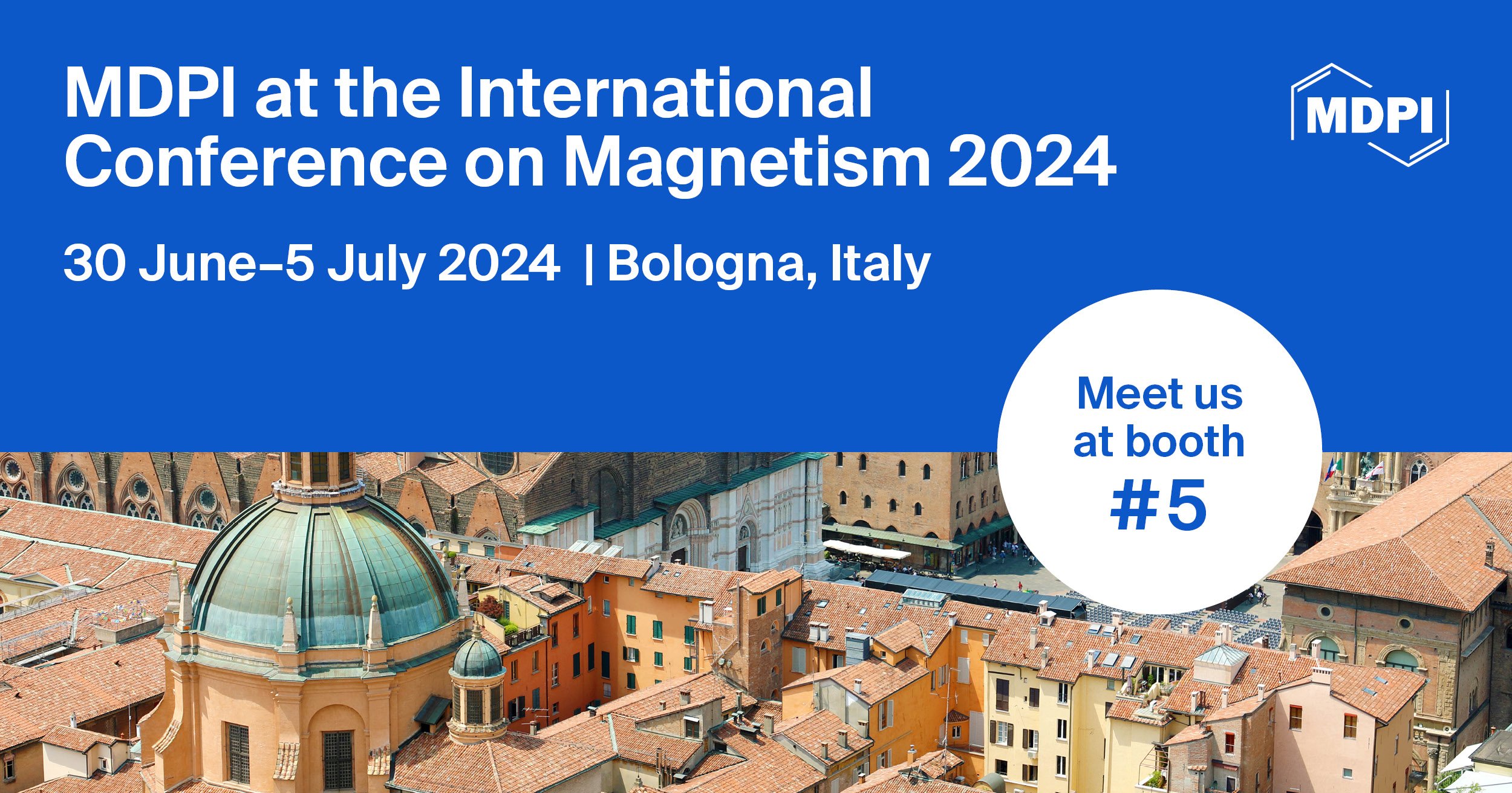
Conference: International Conference on Magnetism 2024 (ICM 2024)
Date: 30 June–5 July 2024
Location: Bologna, Italy
MDPI will be attending ICM 2024 as an exhibitor. We invite researchers from different backgrounds to visit and share their latest ideas with us.
ICM is the largest conference of the magnetism community worldwide and is associated with IUPAP (International Union of Pure and Applied Physics) and its group C9-Magnetism. It covers the whole area of magnetism, from fundamental research to advanced applications. The success of the ICM 2024 conference will reflect the resilience and excellence of the entire magnetism community and the importance of the ICM conference series.
The following MDPI journals will be represented:
- Magnetochemistry;
- Magnetism;
- Chemistry;
- Condensed Matter;
- Crystals;
- Materials;
- Nanomaterials;
- Physics;
- Quantum Reports;
- Sensors;
- Symmetry.
If you are planning to attend this conference, please do not hesitate to start an online conversation with us. Our delegates look forward to meeting you in person and answering any questions that you may have. For more information about the conference, please visit the following website: https://www.icm2024.org/.
15 March 2024
Interview with Dr. Valeryia Kasneryk—Winner of the Materials 2024 Travel Award
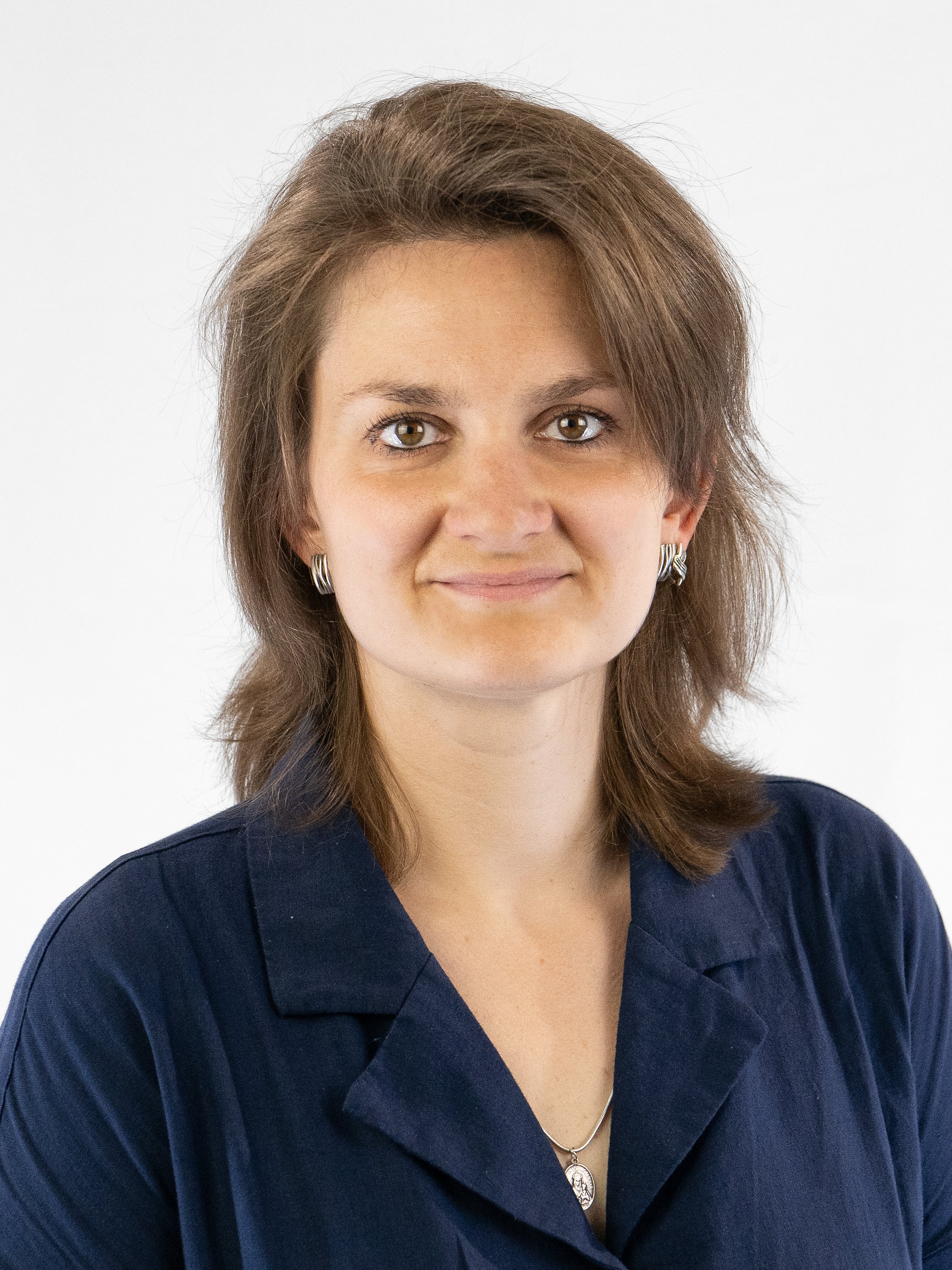
We wish to congratulate Dr. Valeryia Kasneryk on winning the Materials 2024 Travel Award. Dr. Kasneryk is a Postdoctoral Researcher at the Helmholtz-Zentrum Hereon, Germany. Her research focuses on investigating and applying porous and nanoporous materials.
The following is the interview with Dr. Valeryia Kasneryk:
1. Can you briefly introduce yourself to our readers and tell us a little bit about your fields of interest?
The 14 years of my scientific career have been always connected with the investigation and application of porous and nanoporous materials. Regarding my educational/professional career, I obtained my master's degree in the program of double diploma between Moscow State University (Russia) and Chimie ParisTech (France) in 2014. After that, I graduated with my Ph.D. study in 2018 on the base of the Czech Academy of Science (Czech Republic). My research project was devoted to the chemistry of molecular sieves with a special focus on the synthesis of novel crystalline nanomaterials. In 2021, I joined the Institute of Surface Science in Helmholtz-Zentrum Hereon as a postdoctoral researcher in the frame of the Alexander von Humboldt fellowship. My current project is focused on the development of novel nanocontainers for corrosion protection based on metal-organic frameworks (MOFs).
2. Where do you obtain journal award participation information?
I obtain this information on the web page of Materials journal.
3. How did winning this award impact your career, and what do you hope to do?
Winning the Materials 2024 Travel Award is a great honor for me. With the support of the Materials 2024 Travel Award, I am planning to participate in the 9th International Conference on Metal–Organic Framework and Open Framework Compounds, one of the most important international conferences in the area of MOF materials. Participation in this high-level event is a great chance for me to promote my investigations as well as to meet personally the greatest scientists around the world working with MOFs.
4. During the conference, will you pay attention to the promotion of a journal during the presentation of the participants?
Yes, I will! Moreover, I am planning to promote the Materials Travel Award, as it represents a great opportunity for young scientists.
5. What is your opinion of the open access model of publishing?
From my point of view, science should be open and accessible to everyone! In this context, open access publishing represents a win-win option, as readers can gain knowledge and authors disseminate their results.
Difficulties in work come regularly. But I follow the rule “never give up and be optimistic” and a solution will be found!
14 March 2024
Interview with Ms. Ana Isabel Carreiro Furtado—Winner of the Materials 2024 Travel Award
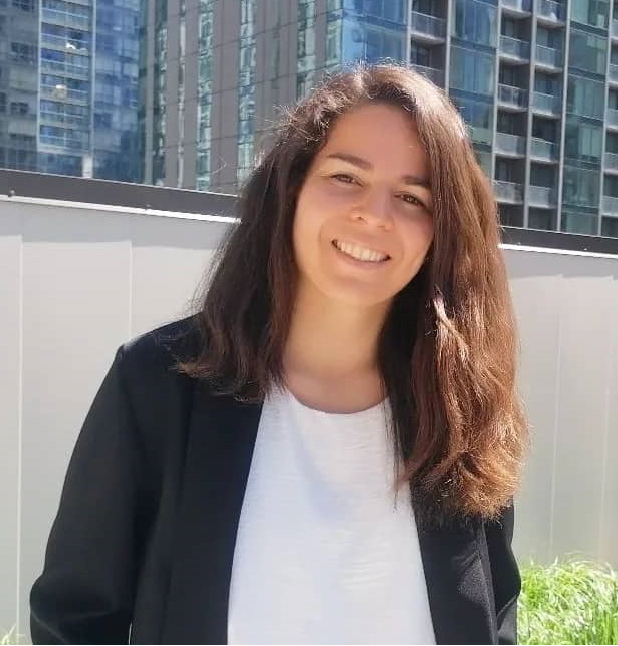
We congratulate Ms. Ana Isabel Carreiro Furtado on winning the Materials 2024 Travel Award. Ms. Furtado is a Ph.D. student at NOVA School of Science and Technology, NOVA University of Lisbon, Portugal. Her research is focused on the development of high-affinity polymers for biomolecule recognition using green strategies.
The following is an interview with Ms. Ana Isabel Carreiro Furtado:
1. Can you briefly introduce yourself to our readers and tell us a little bit about your fields of interest?
I am a young researcher in sustainable chemistry, specializing in the development of hybrid materials for catalysis and biopurification. I have a master's degree in chemical and biochemical engineering, and I am currently in the final year of my Ph.D., conducting research in collaboration with the CleanMIPTech Group at the Associated Laboratory for Green Chemistry (LAQV) at Nova School of Science and Technologies (NOVA SST), the Institute for Bioengineering and Biosciences (iBB), and the Institute for Health and Bioeconomy (i4HB) at Instituto Superior Técnico, University of Lisbon (IST/UL), in Portugal. The main focus of my Ph.D. is the development of green, high-affinity, and cost-effective biorecognition polymeric materials, such as molecularly imprinted polymers (MIPs) and dendrimers, for biomolecules. These innovative materials are synthesized using sustainable technologies to address the limitations associated with conventional biopurification materials, including high costs, low efficiency, limited specificity, and scalability challenges. My research interests lie at the intersection of green chemistry, materials science, and engineering, particularly in developing new devices for biopurification. I am particularly interested in utilizing green technologies such as supercritical carbon dioxide and mechanochemistry to synthesize functional polymeric materials with applications in biosensors and separation devices. Additionally, I am exploring molecular imprinting techniques and computational modeling as a multidisciplinary approach to design and characterize these affinity materials.
2. How did winning this award impact your career, and what do you hope to do?
Winning the Materials 2024 Travel Award had a significant impact on my career by providing me with the opportunity to present my latest research findings on sustainable technologies and their contribution to the design of affinity materials. This will be achieved through my participation in the 12th International Conference on Molecular Imprinting (MIP2024), where I will deliver an oral presentation on “Metal-based Molecularly Imprinted Polymer Development toward L-Leucine using Supercritical CO2 technology for Bio-applications: Rational design using Molecular Dynamics”. This conference, focusing on molecular modeling of MIP systems, synthesis and characterizations of imprinted materials, and their applications in bio-devices such as sensing devices, separation processes, and catalysis, perfectly aligns with the goals of my Ph.D. work. Attending MIP2024 will not only provid me with an opportunity to show my work but will also allow me to engage with international experts in the field. This networking opportunity will be crucial as I am in the final stages of my Ph.D. and seeking collaborations. These connections and partnerships could potentially shape my future professional career.
3. During the conference, will you pay attention to promoting the journal during the presentation of the participants?
Yes, absolutely! As a driven researcher with a keen interest in leveraging chemistry, material science, and technology for sustainable solutions, I am deeply aligned with the goals of the Materials. Therefore, I will pay attention to promoting the journal during my presentation at the conference. Supporting and promoting avenues that facilitate the dissemination of research in these fields is essential for advancing knowledge and fostering collaboration toward future material development.
4. What qualities do you think young scientists need?
In my opinion and according to my experience, young scientists need resilience, as science often involves encountering failure and setbacks. The ability to learn from mistakes and persist in facing challenges is essential. Critical thinking skills are also essential to analyze information rigorously and conduct high-quality research, as well as good management planning to carry out tasks and consider if investing time in a given project is valuable. Thirdly, courage is necessary for young scientists to share their ideas with the scientific community and seek researchers who can help and contribute with new knowledge. Therefore, communication skills are also crucial for sharing research findings with both peers and the wider audience. Finally, young scientists should possess a willingness to embrace new opportunities, projects, and collaborations, be open to teamwork, and improve their interdisciplinary skills.
I am deeply honored and grateful for this recognition. I extend my heartfelt thanks to the selection committee for their confidence in my work and for providing me with this opportunity. This award provides invaluable support that will allow me to participate in MIP2024, which I believe will be crucial for my professional career. I would also like to extend my gratitude to my supervisors, mainly Dr. Raquel Viveiros, for encouraging me to apply for this award and all the partners involved in my Ph.D. work. The people involved in my Ph.D. have not only enriched my academic experience but have also empowered me to push the boundaries of knowledge and pursue excellence in my research.
8 March 2024
Interview with Dr. Claudio Testani—Winner of the Materials 2023 Outstanding Reviewer Award

Dr. Claudio Testani, after his master’s in structural aerospace engineering, was awarded his Ph.D. in material engineering from the University of Rome TorVergata, Italy, in 2006 under the supervision of Prof. Montanari. He holds a habilitation in metallurgy and is a member of the Ph.D. industrial engineering scientific board of TorVergata University. For over 26 years, he has worked in the Centro Sviluppo Materiali SpA, the main Italian Research Centre for metallurgy and related processes. In 2015, he took on the responsibility of Research and Development of an Italian SME, working in aerospace metallic manufacturing. Finally, in 2017, he returned to research as a technical director of CALEF, a public–private research consortium. Furthermore, he is an expert team member of the Italian Agency for the Promotion of European Research (APRE) for Cluster 4 in the Horizon Europe Programme.
His research field comprises the development of ODS structural steels, titanium and aluminium technologies and characterisations, and Ti-metal matrix composite materials. He is an active reviewer and is the author of eight international patents. He invented the hot radial pressing process for divertors in collaboration with ENEA, published more than 100 papers in international journals, has an h-index of 15, and has given numerous oral presentations and invited talks at international conferences.
Interests: titanium and aluminium alloys; ODS steels; powder metallurgy; additive manufacturing; relaxation, fatigue, and creep; characterisation of metals; rolling; extrusion superplastic forging and HIP processes
We hope you enjoy this interview with Dr. Claudio Testani.
1. Could you give a brief introduction of yourself for our readers?
As I mentioned in my biographical statement, I’m currently focused on both managing research projects and supporting industries looking for opportunities in the Horizon Europe Cluster4 programme. I also really enjoy teaching light alloys at the Ph.D. school of TorVergata University.
2. What is your current research area and why did you choose this research field?
I am currently working on special materials for extreme environments, such as structural ODS steels for improving creep resistance including for solar plants. My preferred field remains Ti-MMCs development with the help of additive manufacturing technologies and post-treatment cycles’ design through hot isostatic pressing; I’m working in collaboration with Dr. Barbieri of ENEA.
3. Which research topics do you think will be of particular interest to the research community in the coming years?
The need for energy saving and higher performance materials will mean materials must be lighter and stronger. Hybrid-metallic materials are obtained with even more complex manufacturing processes. Additive manufacturing will become more integrated in manufacturing processes: glass metals, intermetallics, new polymers for high temperatures, and nanostructured materials and hybrid composites.
4. What qualities do you think young scientists need?
Curiosity is a must. Then, perseverance, some adaptability for positive team working, a desire to learn, and resilience. A further factor in success is being lucky in finding a good group of colleagues with great communication and collaboration skills.
5. If you have the opportunity, will you actively apply to attend academic conferences? What do you think you can learn from participating in conferences that is different from working in a lab?
I have attended many academic conferences and even served as an active member in organizing committees. In-person participation in international conferences is a wonderful opportunity for idea exchange and network building for fostering collaboration and common research interests.
6. What do you think are the main criteria that should be taken seriously in the process of reviewing manuscripts?
First of all, be sure to have skills in the field, not only theoretically, but also with some lab experience. Then an open-minded approach is important, letting go of any bias that could cloud your judgement. The paper should be clear, with a robust methodology, and then use guidelines for a good reviewing process.
4 March 2024
MDPI Insights: The CEO's Letter #9 - Romania, Research Integrity, Viruses

Welcome to the MDPI Insights: The CEO's Letter.
In these monthly letters, I will showcase two key aspects of our work at MDPI: our commitment to empowering researchers and our determination to facilitating open scientific exchange.
Opening Thoughts

Reka Kovacs (Deputy Office Manager, MDPI), Stefan Tochev (CEO, MDPI), and Sandra Ana Spatariu (Office Manager, MDPI) at the MDPI office in Cluj, Romania.
MDPI’s Impact on Romania
In February, I visited our office in Cluj, Romania. I worked closely with our senior office managers and various teams, including the departments of training, marketing and conferences, as well as our journal relationship specialists, reviewing our service to the local scholarly community. During the visit, I also met with representatives from Babes-Bolyai University and the Technical University of Cluj-Napoca. Our multifunctional Romanian office plays an important role in supporting our collaborations with the local market as well as helping to meet MDPI’s overall business needs.

Feedback and strategy meeting with a group of MDPI’s Journal Relationship Specialists at the MDPI office in Cluj, Romania.
With 22,436 articles, Romania ranks as a top 20 contributing country to MDPI’s total number of papers published as at 28 February 2024. This highlights the importance of our collaboration with Romanian-affiliated authors and the growing opportunity to support their publishing needs. MDPI is one of the few academic publishers with a significant presence in Romania, boasting over 360 colleagues across our offices in Bucharest and Cluj. We are also proud to hire colleagues from local institutions to launch their careers within publishing.
Romania ranks as a top 20 contributing country.
The Numbers: 2019–2023
MDPI has seen a healthy increase in submissions from Romanian authors over the past three years, from 8,439 in 2021 to 11,866 by end of 2023, with most submissions going to journals such as Sustainability, Medicina, Diagnostics, IJMS, Applied Sciences, and JCM. From 2019 to 2023, MDPI published articles from 32,145 authors affiliated with Romanian institutions. Over those years, we have worked with Romanian Guest Editors on nearly 3,000 occasions to support their Special Issue and Topical collections.
With more than 300 Editorial Board Members from Romania, 34 appear on the board of Mathematics, 27 on Materials, 19 on Polymers, 18 on Coatings, and 16 on Molecules, while three serve as Section Editors-in-Chief (SEiC) on our journals Coatings (3.4 IF, 4.6 Citescore), Magnetochemistry (2.7 IF, 3.5 Citescore), and Chemosensors (4.2 IF, 3.9 Citescore).
Institutional Open Access Programs
Our commitment to working with institutions is evident in Romania, where we have established eight Institutional Open Access Programs (IOAP) with esteemed institutions such as the University of Bucharest, the University of Medicine and Pharmacy Cluj-Napoca, and most recently the National Institute for Laser, Plasma and Radiation Physics.
Our growth and presence in Romania are a true testament.
We also have IOAP agreements with Babes-Bolyai University and the Technical University of Cluj-Napoca, where I had the opportunity to meet senior stakeholders during my visit. Below are a few photos capturing our meeting with Prof. Radu Silaghi-Dumitrescu (Head of Faculty of Chemistry, Babes-Bolyai University) at the MDPI office in Cluj, Romania, along with a photo from our meeting with Vice Deans Nicoleta Cobarzan, Nicoleta Ilies, and Hoda Gavril, from the faculty of Civil Engineering at the Technical University of Cluj, Romania.


Our growth and presence in Romania are a true testament to the service we provide to the scholarly community and the relationships we foster in that region. We look forward to continuing to support Romanian scholars and institutions by providing a valuable and trusted experience with MDPI, the leader in open access publishing.
Impactful Research

MDPI Joins the STM Integrity Hub
MDPI has long been a supporter and partner of STM, with our involvement ranging from sponsoring and attending events to helping organize event programs. By joining the STM Integrity Hub, we aim to further our commitment to STM initiatives aimed at safeguarding the integrity of science.
“We are pleased to welcome MDPI as the 35th organisation participating in the Hub. This expansion is critical, as every new member enhances our capacity to prevent fraudulent submissions from entering the academic record.”
Joris van Rossum, Director of Research Integrity, STM
MDPI operates in full alignment with STM Integrity Hub's values of shared data and experiences. We strongly believe in collaboration and open exchange for the purposes of creating a holistic approach to support research integrity at MDPI itself and across the entire academic publishing industry. The Integrity Hub is an excellent example of how publishers can come together to jointly address industry-wide challenges related to research integrity, such as manuscripts that breach research integrity standards and paper-mills.
I look forward to our Research Integrity and Publication Ethics Team (RIPE) team immersing themselves in this initiative, exchanging information, best practices, and tools for the benefit of the entire scholarly ecosystem. We believe that ethical publishing standards should be implemented across the board, and we aim to be rigorous in our approach, addressing research integrity issues and improving the impact of published research.
Inside MDPI

MDPI Expands Research Integrity and Publication Ethics Team (RIPE)
In addition to external collaborations and joint initiatives aimed at further strengthening our commitment to research integrity, we are also enhancing our internal efforts. This includes improving our processes and guidelines and expanding our teams and departments to ensure quality assurance throughout our publishing process.
We are pleased to announce the expansion of our Research Integrity and Publication Ethics Team (RIPE) at MDPI. The RIPE team has recently welcomed new colleagues, each bringing unique skills and a personal commitment to prioritize ethical considerations in all our work.
The demand for research integrity and high ethical standards in academic publishing is steadily rising across our industry. Our expanded RIPE team will work to enhance and align our practices with industry best practices, ensuring excellence in research integrity and publication ethics.

Stefan Tochev (CEO, MDPI) introduces Dr. Tim Tait-Jamieson (Research Integrity Lead, MDPI) for his presentation on MDPI’s Retraction and Approval Process to a group of Journal Relationship Specialists at the MDPI office in Cluj, Romania: “The demand for research integrity and publication ethics is steadily rising across our industry.”
Introducing our Research Integrity and Publication Ethics Team
Led by Dr. Tim Tait-Jamieson (Research Integrity Lead), the RIPE team comprises Dr. Ivana Resanovic (Research Integrity Manager), Dr. Lavinia Rogojina (Research Integrity Manager), Ms. Diana Apodaritei (Research Integrity Specialist), Dr. Zoltan Mihaly (Research Integrity Specialist), Mr. Aleksandar Đukić (Research Integrity Specialist), Ms. Ana Stankovic (Research Integrity Specialist), and Ms. Anna Pena (Publication Ethics Assistant).
Please click here to access everything that you need to know about MDPI’s Research and Publication Ethics.
With this span of complementary roles, the RIPE team collaborates directly with journal editorial teams and works closely with various departments, including our Scientific Office Board and our Journal Relationship Specialists. The team’s primary objectives are to help prevent issues regarding research integrity and publication ethics during peer review, uphold MDPI’s ethics policies, adhere to industry standards, and resolve publication ethics and research integrity issues and complaints.
Quality Updates to Special Issues Oversight
At MDPI, we are committed to reviewing policies pertaining to the quality of research. In this blog post, Shaheena Patel (Communications Associate, MDPI), outlines two recent updates to MDPI journal processes. These updates pertain to Special Issue (SI) quality guidelines, in line with criteria provided by COPE and DOAJ. Alongside the SI updates, details regarding the new minor corrections policy introduced in 2024 are provided in the blog.
The two updates we implemented include greater oversight and the verification of Guest Editor credentials. These guidelines require that Editors-in-Chief (EiCs) and Editorial Board Members (EBMs) take responsibility for overseeing SIs.
PS. Thank you, James Butcher, for featuring this up in your 67th issue of the Journalogy newsletter.
Read more:
Coming Together for Science

Viruses 2024 – A World of Viruses
I am pleased to share the success of our MDPI conference Viruses 2024 – A World of Viruses, held 14-16 February, in Barcelona. With 240 registrations, this event brought together top scientists, researchers, and industry experts from 40 countries to share their findings on the latest developments in viral pathogenesis and immune responses.
Attendees gathered for the 5th edition of the Viruses’ conference, where we hosted influential keynote speeches from Nobel Prize laureate Dr. Charles M. Rice and ‘Distinguished Senior Virologist’ Prof. Luis Enjuanes, along with 14 invited speakers, 47 selected speakers, and nine flash poster presenters, to discuss the most significant issues in virology today.
Recap on the #Viruses2024 Conference
Take a look at the key moments from MDPI’s Viruses event and please join us in commemorating a gathering for global knowledge and cooperation. A heartfelt thank-you to all attendees; their passion and engagement played a crucial role in making this event an engaging success!
Below are calls to action from the keynote speakers encouraging collaboration and communication:
“There’s never been a better time than now to really take the power that we have both in terms of basic research and also in biotech and pharma to develop antiviral agents.” - Dr. Charles M. Rice, The Rockefeller University, New York, USA
“The collaboration between labs is absolutely essential. Improving initial detection and improving communication is a must for all of us working in science.” - Prof. Dr. Luis Enjuanes, National Center of Biotechnology (CNB-CSIC), Madrid, Spain

Our thanks go to our sponsors and partnering societies, our Viruses journal and editorial team, our Barcelona colleagues, and the social media, conference and other MDPI teams for making this event a memorable occasion. View the event gallery here.
Upcoming In-Person Event

24–26 April, 2024
4th MMCS – Harnessing the Power of New Drug Modalities
Location: Barcelona, Spain
Esteemed speakers at MMCS 2024 include Prof. Arun K. Ghosh, the mind behind the Darunavir molecule, and Prof. Paul Brennan, CSO of Alzheimer's Research UK Oxford Drug Discovery Institute.
Find more upcoming MDPI events here.
Organize Your Event with MDPI’s Sciforum
Sciforum is MDPI’s platform dedicated to the organization of scientific events. In line with our mission to promote science, Sciforum supports scholars, societies, research networks, and universities at all stages of organizing in-person events, virtual events and webinars. Our platforms are efficient, user-friendly, and cost-effective. We handle all steps related to event management. Contact us for details.
Closing Thoughts

Researcher to Reader (R2R) Conference
From 20–21 February 2024, I had the pleasure of attending the Researcher to Reader (R2R) conference in London, which MDPI has proudly sponsored over the years. The conference programme offered a variety of session formats, including workshops, panel discussions, debates, interviews, presentations, and lightning talks, with opportunities to discuss relevant topics.
We take pride in supporting the scientific community, bringing researchers across the world together to network, exchange ideas and share the latest in science and publishing. In 2023, MDPI invested close to 2 million CHF in sponsoring over 2,000 scientific and publishing-related conferences worldwide.
R2R Peer Review Innovations Workshop
I found the R2R conference to be engaging, with the workshops being particularly enjoyable. My colleague Giulia Stefenelli (Chair of Scientific Office Board) and I participated in the “Peer Review Innovations” workshop, which spanned four sessions over the two days. These sessions explored the future of peer review and how we can improve the peer review process for everyone involved. Notably, the large majority of attendees expressed their opinion that peer review, as currently practiced, requires significant improvement. Together, we collaborated on potential immediate and long-term improvements and innovative processes, aiming to create an ecosystem beneficial to all stakeholders by strengthening submission systems with the aim of reducing threats and making authors more responsible for their work. We also discussed the opportunity for academic institutions to better scrutinize the quality of the work produced and submitted to journals.
Our group comprised publishers, software providers, librarians, and more, bringing diverse perspectives to the discussions. These interactions were relevant to MDPI’s ongoing conversations, providing insights to our efforts. The session also made me appreciate that MDPI is doing well, as the group discussions included the subject of various quality checks that we have already embedded in our processes, ensuring that we keep abreast of industry standards.
The need for an optimized system to incentivize the activities of editors and reviewers was also a focus of discussion, as well as the support that reviewers need from publishers via the provision of strong reports through fixed forms, questionnaires and training.
At MDPI, we are currently auditing our reviewer program to improve reviewer recognition, guidelines, and methods for identifying suitable reviewers, while maintaining our commitment to quality and timeliness.
Congratulations to Mark Carden, Conference Director, and the R2R team for organizing a productive and successful event. PS: The break times were greatly appreciated as well!
Chief Executive Officer
MDPI AG
29 February 2024
Meet Us at TMS 2024 Annual Meeting & Exhibition, 3–7 March 2024, Orlando, Florida, USA
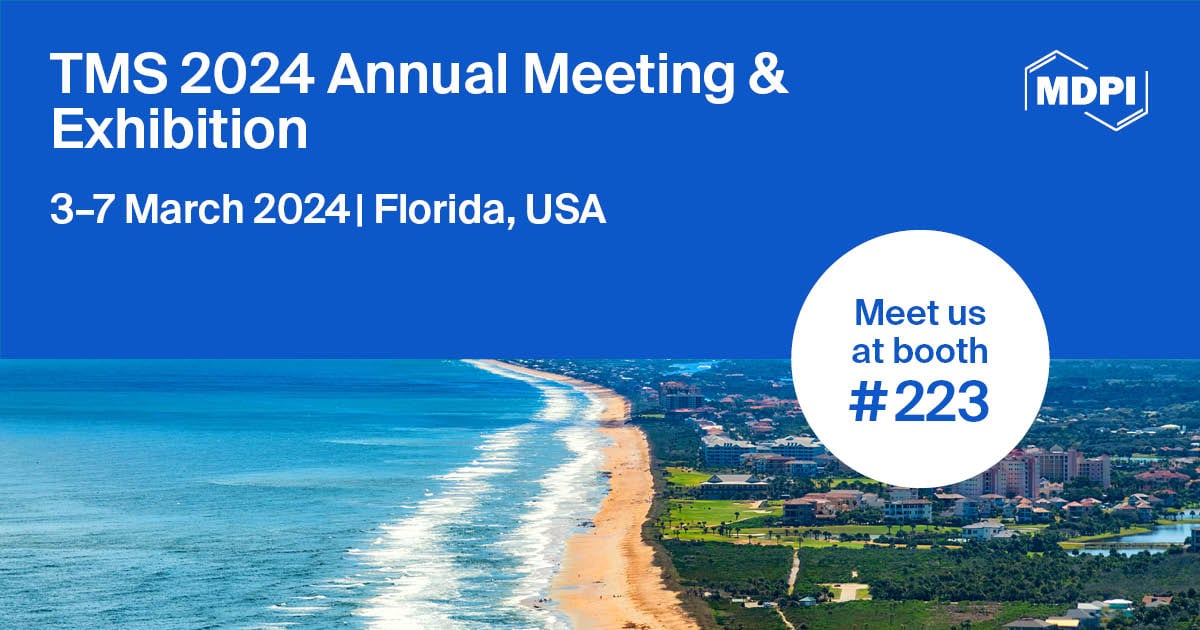
A range of MDPI journals will be attending the TMS 2024 Annual Meeting & Exhibition from 3 to 7 March 2024, at the Hyatt Regency Orlando, Orlando, Florida, USA.
The TMS Annual Meeting & Exhibition brings together more than 4,000 engineers, scientists, business leaders, and other professionals in the fields of minerals, metals, and materials for a comprehensive, cross-disciplinary exchange of technical knowledge.
The following MDPI journals will be represented:
If you are attending this conference, please feel free to drop by our booth and start a conversation with us. We look forward to meeting you in person and answering any questions that you may have. For more information about the conference, please visit https://www.tms.org/TMS2024/Home/, or contact the Materials Editorial Office at [email protected] or the Metals Editorial Office at [email protected].
21 February 2024
Meet Us at ACS Spring 2024—Many Flavors of Chemistry, 17–21 March 2024, New Orleans, LA, USA
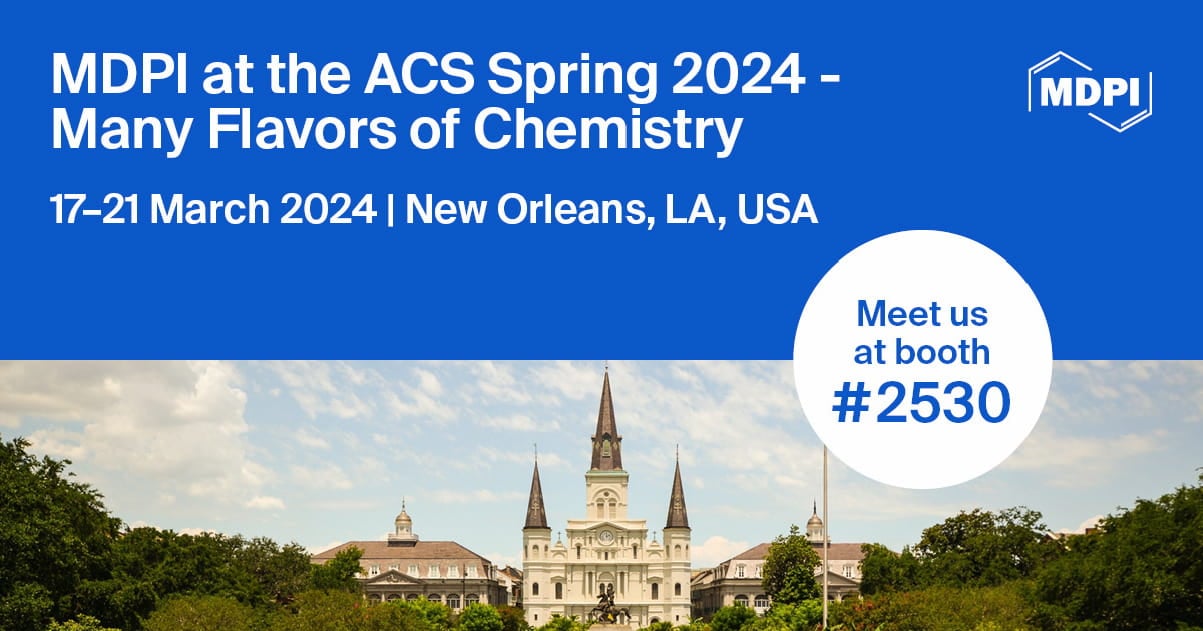
Conference: ACS Spring 2024
Organization: American Chemical Society
Date: 17–21 March 2024
Place: Halls D & E, New Orleans Ernest N. Morial Convention Center, New Orleans, LA, USA
Booth: #2530
MDPI journals will be attending ACS Spring 2024—Many Flavors of Chemistry as an exhibitor. This meeting will be held in New Orleans, LA, USA, from 17 to 21 March 2024.
The American Chemical Society (ACS) is one of the world’s largest scientific organizations with more than 151,000 members in 140 countries. ACS meetings and expos are held biannually. This expo is an opportunity for thousands of chemistry professionals to meet, share ideas, and advance scientific and technical knowledge. The topic in Spring 2024 is “Many Flavors of Chemistry”.
The following MDPI journals will be represented:
- Materials;
- Molecules;
- DDC (Drugs and Drug Candidates);
- Batteries;
- Chemistry;
- Colorants;
- Cosmetics;
- Fibers;
- Inorganics;
- Organics;
- Polymers;
- Separations;
- Symmetry;
- Analytica;
- AppliedChem;
- CIMB (Current Issues in Molecular Biology);
- Coatings;
- Crystals;
- Energies;
- JFB (Journal of Functional Biomaterials);
- Liquids;
- Magnetochemistry;
- Membranes;
- Reactions;
- Sustainable Chemistry.
If you are attending this conference, please feel free to start a conversation with us. Our delegates look forward to meeting you in person and answering any questions you may have. For more information about the conference, please visit the following website: https://www.acs.org/meetings/acs-meetings/spring.html.
31 January 2024
Acknowledgment of the Reviewers of Materials in 2023
In recognizing the exceptional efforts of our reviewers in 2023, we express our sincere gratitude for upholding the high standards of Materials. Their commitment ensured the rigorous peer review that is integral to quality academic publishing.
In 2023, Materials received 27,759 review reports, from 14,902 reviewers. This past year, we worked with reviewers from 119 countries and regions, reflecting the diversity in our collaboration with research communities. Their dedication shapes scholarly discourse and advances global research. The editorial team expresses gratitude for the vital role played by each reviewer in the Materials family throughout 2023, and we look forward to their continued support in 2024.
The following are the reviewers who have consented to show their names:
| A. Yu. Vasil’kov, Alexander | Luciano, Giorgio |
| Aabdin, Zainul | Lucío, María Isabel |
| Aamir, Muhammad | Ludovichetti, Francesco Saverio |
| Aarão Reis, Fábio D. A. | Luévano-Hipólito, Edith |
| Aarif, K. Muhammed | Lui, Eric |
| Ababei, Gabriel | Luisa Grilli, Maria |
| Abbas, Manzar | Lukacs, Janos |
| Abbas, Muhammad Mujtaba | Lukács, Peter |
| Abbas, Syed Muzahir | Łukaszek-Sołek, Aneta |
| Abbas, Yassir | Łukaszewicz, Andrzej |
| Abd Ur Rahman, Hafiz Muhammad | Lukin, Alexander |
| Abdalla, Ehab | Lukinac, Jasmina |
| Abdalla, Hassan | Lukoševičius, Vaidas |
| Abdel-Fatah, Mona A. | Łukowski, Paweł |
| Abdel-Fattah, Essam | Lukoyanov, Alexey |
| Abdelgader, Hakim | Lukyanenko, Dmitry |
| Abdel-Hamed, Mohamed | Luminita, Fritea |
| Abdel-Jaber, Mu'tasime | Lundin, Sean-Thomas Bourne |
| Abd-Elkader, Omar | Lung, Christie Ying Kei |
| Abdellah, Mohammed | Lungu, Magdalena Valentina |
| Abd-Elnaiem, Alaa | Luo, Wen |
| Abdel-Rahman, Gomaa Nour Eldein | Lutic, Doina |
| Abdelrhman, Yasser | Lvov, Vladislav |
| Abdelsalam, Bassam | Lychagina, Tatiana |
| Abdelsattar, Abdallah S. | M. S. Medeiros, Anderson |
| Abdo, Hany | M., Nagamadhu |
| Abdul Manaf, Shareena Fairuz | Ma, Aiyuan |
| Abdulagatov, Ilmutdin M. | Ma, Baisheng |
| Abdulazeez, Ismail | Ma, Chung Ting |
| Abdulhameed, Ali | Ma, Guangjin |
| Abdullah, Norli | Ma, Shao-Chun |
| Abid, Sallal R. | Ma, Wenchen |
| Abouelatta, Mohamed | Ma, Xiang |
| Abramczyk, Jacek | Ma, Yunxiang |
| Abramkin, Demid | Ma, Yutian |
| Abrosimova, Galina E. | Maamoun, Ahmed |
| Abu Hasna, Amjad | Maccaferri, Emanuele |
| Abuin, Graciela | Macchia, Andrea |
| Aciu, Claudiu | Maciejewski, Krzysztof |
| Acree, William | Macwan, Isaac |
| Adajar, Mary Ann | Maddikeari, Manjunath |
| Adamczyk-Habrajska, Małgorzata | Madej, Marcin |
| Adamek, Grzegorz | Madejczyk, Pawel |
| Adamek, Jakub | Madhav, Boddapati |
| Adamu, Musa | Madhavan, Mini K. |
| Adamus, Janina | Madhu, Puttegowda |
| Adawy, Alaa | Magdalena, Musuc Adina |
| Addad, Yacine | Magrin, Gabriel |
| Addiego, Frederic | Mahafzah, Basel |
| Adeleke, Oluwatoyin A. | Mahapatra, Manoj K. |
| Ademiloye, Adesola | Mahat Chhetri, Pradhumna |
| Adewumi, Adeshina | Mahdavi, Soheil |
| Adhikari, Chandra | Maheshwari, Priyanka H. |
| Adnan, Muhammad | Maheswaran, Chellapandian |
| Aela, Peyman | Mahmood, Asif |
| Afifi, Mohamed | Mahmoud, Alaa El Din |
| Aflori, Magdalena | Mahmoud, Mohammed |
| Agami, Waleed Ragab Abdur Rasheed | Mahmoudi, Farzaneh |
| Agbaje, Oluwatoosin | Mahmud, Jamaluddin |
| Agliata, Rosa | Mai, Hang Nga |
| Agrelli, Almerinda | Maia, Joana |
| Aguado García, Daniel | Maier, Petra |
| Aguilar, Maria | Mainardis, Matia |
| Aguilar-Ayala, Fernando J. | Maiorana, Emanuele |
| Aguilar-Meléndez, Armando | Maireles Torres, Pedro Jesus |
| Agureev, Leonid | Maity, Kuntal |
| Ahire, Jayesh J. | Maj, Izabella |
| Ahmad Bhawani, Showkat | Majee, Rahul |
| Ahmad, Imtiaz | Majeed, Muhammad Kashif |
| Ahmad, Mohd Fairus Bin | Majerič, Peter |
| Ahmad, Mohd Nazri | Majka, Tomasz M. |
| Ahmad, Musharaf | Majkut, Mirosław |
| Ahmad, Rafiq | Majsoedova, Tatiana N. |
| Ahmad, Raheel | Majumdar, Sreshtha Sinha |
| Ahmad, Shahzad | Makarov, Igor |
| Ahmadi, Hamid Reza | Makhesana, Mayurkumar Ashwinbhai |
| Ahmadi, Masoud | Makhmudov, Khairullo Faizullaevich |
| Ahmadi, Nima | Makrenek, Medard |
| Ahmed, Hany | Malá, Jitka |
| Ahmed, Mohamed Mohamed Zaky | Małachowska, Edyta |
| Ahmed, Naveed | Malafeev, Konstantin |
| Ahmed, Suhaib | Malakkal, Linu |
| Ahmed, Zahoor | Malandrino, Graziella |
| Ahn, Yong-Sik | Malayoglu, Ufuk |
| Ajay, Kumar | Malça, Cândida |
| Ajori, Shahram | Maldonado, José-Luis |
| Akasaka, Hiroki | Maleki, Ali |
| Akat, Esra | Maleki-Ghaleh, Hossein |
| Akbarimehr, Davood | Malekshahi Beiranvand, Zeinab |
| Akcay, Caglar | Malik, Abdul |
| Akhavan-Safar, Alireza | Malik, Jaideep |
| Akhoundi, Behnam | Malinowski, Pawel |
| Akhtar Qaisrani, Naeem | Malinowski, Szymon |
| Akhtar, Muhammed Naseem | Malkin, Alexander |
| Akilbekova, Dana | Malletzidou, Lamprini |
| Aksoy, Canan | Malliakas, Christos |
| Aksoylu, Ceyhun | Mallik, Awadesh Kumar |
| Alaaeldin, Elsisi | Maltinti, Francesca |
| Alade, Ibrahim Olanrewaju | Manarte-Monteiro, Patrícia |
| Alae, Mohsen | Manasrah, Ahmad |
| Alalwan, Hayder | Manawan, Maykel |
| Alamdari, Sanaz | Mandal, Paranjayee |
| Alarcón, Javiera Toledo | Mandal, Sumit |
| Alarcon, Rafael Turra | Mander, John |
| Al-Asbahi, Bandar | Mandes, Aurelia |
| Albayati, Amjad | Mane, Sagar |
| Albetran, Hani Manssor | Mangindaan, Dave |
| Albuquerque, Patrícia | Mani Rajan, Murugan Senthil |
| Alcântara Pereira, Luiz Antonio | Maniadi, Athina |
| Alcantara, Carlos | Mannella, Antonio |
| Alcaraz, Lorena | Manonukul, Anchalee |
| Aldlemy, Mohamed | Mansour, Alaa |
| Alebrahim, Reza | Mansour, Walid |
| Aleksanyan, Diana V. | Mantyjarvi, Kari |
| Alekseytsev, Anatoly | Manzoor, Afaque |
| Alembath, Anand | Mapossa , António B. |
| Alessandro, Gambardella | Maqsood, Khuram |
| Alev, Onur | Maqsoom, Ahsen |
| Alexandridis, Antonis | Marascu, Valentina |
| Alfinito, Eleonora | Marathe, Shriram |
| Alfonso, Pura | Maraveas, Chrysanthos |
| Alghamdi, Hussam | Marchenkov, Artem |
| Alghoraibi, Ibrahim | Marchesi, Stefano |
| Alhazmi, Hatem | Marciszko-Wiąckowska, Marianna |
| Alho, Bruno | Mareev, Evgenii I. |
| Alhotan, Abdulaziz | Marek, Anżelina |
| Ali, Fathilah Binti | Margaritis, Nikolaos |
| Ali, Majid | Mariello, Massimo |
| Ali, Marwa | Maringa, Maina |
| Ali, Sajid | Marinkovic, Dragan |
| Aliasghari, Sepideh | Marjaoui, Adil |
| Alimenti, Andrea | Markin, Andrey |
| Alipour, Mahdieh | Markopoulos, Angelos P. |
| Alique Amor, David | Markou, Ioannis N. |
| Alix, Sébastien | Markov, Sergey |
| Alizadeh, As’Ad | Marlinda, Ab Rahman |
| Alizadeh, Morteza | Marozas, Vaidotas |
| Aljaberi, Forat Yasir | Marques, Pedro |
| Al-Jasser, Reham Nasser | Marquez, Francisco |
| Al-Khanati, Nuraldeen Maher | Marrocchino, Elena |
| Al-Khashman, Omar | Marshall, Jean |
| Al-Kheetan, Mazen | Marszalek, Jolanta Elzbieta |
| Alli, Yakubu Adekunle | Martín, Javier |
| Almaev, Aleksei V. | Martín, Óscar |
| Al-Mansob, Ramez | Martinez Krahmer, Daniel |
| Almaral-Sanchez, Jorge L. | Martínez Reguero, Adriana Haydee |
| Almásy, László | Martínez-Ibernón, Ana |
| Almeida, Ana | Martínez-Lillo, José |
| Almeida, Luciano C. | Martínez-Martínez, Juan Enrique |
| Almeraya-Calderón, Facundo | Martínez-Periñán, Emiliano |
| Al-Moubaraki, Aisha H. | Martinez-Triguero, Joaquin |
| Almubarak, Tariq A. | Martinez-Valencia, Horacio |
| Al-Mukhtar, A. M. | Martín-Gutiérrez, Emilio |
| Alnahwi, Falih | Martinho, Fernando C. G. |
| Alonso, José Antonio | Martinho, Pedro |
| Alpizar-Reyes, Erik | Martini, Alberto |
| Alprol, Ahmed Eid | Martins Amaro, Ana Paula Betencourt |
| Al-Rubaii, Mohammed | Martins, Carlos Humberto |
| Alrwashdeh, Mohammad | Marto, Carlos Miguel |
| Al-Saadi, Munir | Martowicz, Adam |
| Al-Saffar, Zaid Hazim | Martynenko, Natalia S. |
| Al-sareji, Osamah | Martyushev, Nikita V. |
| AlShamaileh, Ehab | Marzola, Antonio |
| Alshammari, Abdullah | Mascenik, Jozef |
| Alshoaibi, Abdulnaser M. | Masdar, Mohd Shahbudin |
| Alshora, Doaa H. | Mashaan, Nuha |
| Al-Sodani, Khaled A. | Mashentseva, Anastassiya A. |
| Altunal, Volkan | Masood, Zubia |
| Alvarez, José | Masoodi, Amirreza |
| Alvarez-Lemus, Mayra A. | Masri, Khairil Azman |
| Alven, Sibusiso | Massimo, Rogante |
| Alves, Luis | Mastalska-Popławska, Joanna |
| Alwahib, Ali | Mastorakos, Ioannis |
| Aly, Arafa H. | Mastura, Mohammad Taha |
| Alzabeebee, Saif | Matei, Alina |
| Al-Zangana, Shakhawan | Matejec, Vlastimil |
| Amador, Guillermo | Mathur, Nitish |
| Amanatiadis, Stamatios | Matos, Ana Mafalda |
| Amaral, Rui L. | Matos, Robert Saraiva |
| Amario, Mayara | Matsushima, Yuta |
| Ambrós, Weslei | Matsutani, Akihiro |
| Ambroziak, Andrzej | Mattea, Facundo |
| Ambrożkiewicz, Bartłomiej | Matuła, Tomasz |
| Ameur-Zaimeche, Ouafi | Matveev, Evgeniy Yu. |
| Amin, Faiza | Matykiewicz, Danuta |
| Amin, Waseem | Maury-Ramírez, Aníbal |
| Amirtharaj Mosas, Kamalan Kirubaharan | Mayer, Yaniv |
| Amrousse, Rachid | Mažeikienė, Aušra |
| An, Jian | Mazumder, Mithil |
| An, Xingda | Mazur, Michal |
| Anand, Nammalvar | Mazurek, Grzegorz |
| Anbalagan, Aswin Kumar | Mazzanti, Valentina |
| Andas, Jeyashelly | Mazzarisi, Marco |
| Andrade Arvizu, Jacob | Mbey, Jean Aime |
| Andrade, Marcelo B. | McBride, Sean P. |
| Andreassen, Erik | Md Isa, Illyas |
| Andrei, Shishkin | Md Nor, Noorsuhada |
| Andritschky, Martin | Md Padzi, Mahfodzah |
| Andrzejewski, Jacek | Meddah, Mohammed Seddik |
| Anes, Vitor | Medvedev, Andrey |
| Ángeles-Beltrán, Deyanira | Meena, Sher Singh |
| Angelova, Radostina | Meghea, Irina |
| Angiulli, Giovanni | Meher, Priya R. |
| Anikeev, Sergey G. | Mehrmashhadi, Javad |
| Anioł, Mirosław | Mehta, Piyush |
| Aniołek, Krzysztof | Mehwish, Nabila |
| Anni, Marco | Mei, Daofeng |
| Annus, Paul | Meille, Valerie |
| Ansari, Mazyar | Mejjad, Nezha |
| Antal, Márk | Mele, Lucia |
| Antón, María Natividad | Mellati, Amir |
| Antoni, Antoni | Melnikov, Pavel |
| Antoniadou, Chryssanthi | Melouki, Noureddine |
| Antosik, Adrian | Memisoglu, Gorkem |
| Antov, Petar | Mendes, Adriano A. |
| Antunes, Fernando Ventura | Mendez, Francisco |
| Anwer, Abdul Hakeem | Menéndez, Miguel |
| Apelfeld, Andrey | Meng, Bao |
| Apollon, Wilgince | Meng, Fanhui |
| Arab, Ali | Meng, Xiangchen |
| Arabi, Abderraouf | Meng, Xinmiao |
| Aralekallu, Shambhulinga | Meocci, Monica |
| Araújo, Evando | Mercadé, Laura |
| Araújo, Rita | Mercier, David |
| Araya-Letelier, Gerardo | Mercuri, Micaela |
| Arcadio, Francesco | Mereshchenko, Andrey |
| Arcieri, Emanuele VIncenzo | Merhar, Miran |
| Ardila, Carlos Martín | Merie, Violeta Valentina |
| Arencibia, Rosenda Valdés | Merillas, Beatriz |
| Ares, Alicia Esther | Mertens, Stijn |
| Argilaga, Albert | Mesbah, Mohsen |
| Argirusis, Christos | Mescola, Andrea |
| Arif, Zia Ullah | Mesgar, Abdorreza |
| Arifeen, Waqas Ul | Mesicek, Jakub |
| Arkas, Michael | Mesquita, Alexandre Luiz Amarante |
| Arlyapov, Vyacheslav A. | Mezzetta, Andrea |
| Arrigo, Rossella | Mhadhbi, Mohsen |
| Arshid, Ehsan | Mi, Dashan |
| Artola, Garikoitz | Mia, Rony |
| Arunachalam, Krishnaprakash | Michael, Infanta Diana |
| Arunachalam, Prabhakarn | Michail, Christos |
| Arunachelam, Nakarajan | Michalik, Jan |
| Arunadevi, Natarajan | Michalski, Jerzy |
| Aryanfar, Yashar | Michelini, Elena |
| Asaad, Baravan | Miclaus, Simona |
| Asaro, Fioretta | Mierzejewska, Żaneta Anna |
| Ascanio, Gabriel | Migot, Asaad |
| Asefnejad, Azadeh | Miguel, Angel Climent |
| Asemi, Kamran | Mihailescu, Carmen |
| Ashfaq, Mohammad | Mihalíková, Mária |
| Ashfaq, Muhammad | Miino, Marco Carnevale |
| Ashish, Deepankar Kumar | Miklaszewski, Andrzej |
| Ashok, Dara | Miklečić, Josip |
| Ashok, Panchapakesan | Mikolajczyk, Tadeusz |
| Ashraf, Muhammad Waseem | Mikuśkiewicz, Marta |
| Askouni, Paraskevi | Milazzo, Rachela G. |
| Aslantas, Kubilay | Milcovich, Gesmi |
| Aslefallah, Mohammad | Milicevic, Jelena |
| Asmael, Mohammed | Millán, Miguel Ángel |
| Asnafi, Nader | Millini, Roberto |
| Assaad, Joseph | Milovanovic, Vladimir |
| Assadi, Mohammad Hussein Naseef | Milyutin, Vasily A. |
| Astaraee, Asghar Heydari | Minaev, Boris |
| Aswin, Muhammad | Minaev, Nikita |
| Atanase, Leonard-Ionut | Minak, Giangiacomo |
| Atanasoae, Pavel | Ming, WuYi |
| Atanasovska, Ivana | Minisy, Islam |
| Atapattu, Anjana Jayasanka | Minouei, Hossein |
| Atchudana, Raji | Minutoli, Fabio |
| Atkinson, Irina | Mioduszewski, Piotr |
| Atta, Ali | Mir, Waqas Alam |
| Attia, El-Awady | Miralbes-Buil, Ramon |
| Augustine, Dominic | Miranda Pérez, Argelia Fabiola |
| Avalle, Massimiliano | Miranda, Bruno |
| Avcu, Egemen | Mirica, Ioana Codruta |
| Avila, Fernando | Mironov, Sergey |
| Avramopoulos, Aggelos | Miroshnichenko, Denis |
| Avramova, Ivalina | Mirzaeei, Shahla |
| Awad, Kamal | Mirzaei, Amir Mohammad |
| Awed, Ahmed | Mishra, Arun Kumar |
| Awni, Rasha | Mishra, Dilip |
| Ayadi, Badreddine | Mishra, Prakash Chandra |
| Ayaso, Francisco-Javier | Mishra, Saurabh |
| Ayati, Ali | Mısırlıoğlu, Banu Süngü |
| Aydin, Ertug | Miszczyk, Andrzej |
| Ayub, Tehmina | Mitra, Rudrajit |
| Azeem, Muhammad Mustafa | Mitrovic, Slobodan |
| Baaloudj, Oussama | Miturska-Barańska, Izabela |
| Baba, Nor Bahiyah | Mocanu, Alexandra |
| Babacan, Nazim | Moghal, Arif Ali Baig |
| Babadi, Arman Amani | Moghzi, Faezeh |
| Babaei, Masoud | Mohamad, Fariza Binti |
| Babić, Marija M. | Mohamad, Norzilawati |
| Babu, Bathula | Mohamed Ali, Jaffar Syed |
| Babu, Kommanaboyina Vasu | Mohamed, Hamdy F. M. |
| Baburin, Aleksandr | Mohamed, Tarek |
| Bach-Toledo, Larissa | Mohammadi, Majid A. |
| Baciu, Elena-Raluca | Mohammadzaheri, Morteza |
| Backes, Wayne | Mohammed Iqbal, U. |
| Badea, Gabriela | Mohammed, Abdul Aleem |
| Badri, Seyed Hadi | Mohammed, Sohail |
| Bagale, Uday | Mohanty, Shalini |
| Baglio, Vincenzo | Mohapatra, Aiswarya Abhisek |
| Baglioni, Michele | Mohd Hashim, Mohd Hisbany |
| Bai, Dongyu | Mohd Nazeri, Muhammad Firdaus |
| Baiamonte, Lidia | Mohd Tawil, Siti Nooraya |
| Bakalár, Tomáš | Mohebbi, Mohammad Sadegh |
| Bakonyi, Imre | Mohite, Ashish |
| Bakr, Zinab | Mohsen, Saja |
| Bakrani Balani, Shahriar | Mohtadi Bonab, Mohammad Ali |
| Balaji, Devarajan | Moissette, Alain |
| Balan, Adriana | Mokhena, Teboho Clement |
| Balasubramanian, Muthusamy | Mokrushin, Artem |
| Balázsi, Csaba | Mollaamin, Fatemeh |
| Balcoş, Carina | Molnar, Alexander A. |
| Baldenebro-Lopez, Jesus | Momčilović, Miloš |
| Baldo, Nicola | Momeni, Kasra |
| Baliello, Andrea | Momeni, Mohammad |
| Balitskii, Alexander | Mondal, Himarati |
| Ballarin, Barbara | Monforti Ferrario, Andrea |
| Balobanov, Viacheslav | Mong, Guo Ren |
| Balos, Sebastian | Monkova, Katarina |
| Baltazar, Luís Gonçalo Correia | Monrós, Guillermo |
| Baltazar-Hernandez, Victor | Monsalve, Alberto E. |
| Balzer, Frank | Montanari, Roberto |
| Bampos, Georgios | Montepara, Antonio |
| Banciu, Cristina Antonela | Montuori, Rosario |
| Bandara, Chaminda | Monzó-Cabrera, Juan |
| Bandyopadhyay, Supriyo | Moon, Cheon Woo |
| Banerjee, Pavel | Mooste, Marek |
| Baniasadi, Majid | Moradian, Milad |
| Bansal, Tushar | Moradkhani, Alireza |
| Banús, Ezequiel | Morales Cepeda, Ana Beatriz |
| Bapat, Salil | Morales, Juan |
| Baptayev, Bakhytzhan | Morales-Ramírez, Angel |
| Baptista, Isabel Poiares | Moraru, Daniel |
| Barabadi, Hamed | Morchenko, Alexander |
| Barak, Dinesh | Moreau, Stéphane |
| Baral, Ek Raj | Moreira, Joaquim Agostinho |
| Baral, Madhav | Moreno, Rodrigo |
| Baranović, Goran | Moretti, Laura |
| Baranowska-Korczyc, Anna | Morgenstern, Roy |
| Barba, Arturo | Morini, Francois |
| Barbash, Valerii A. | Morokov, Egor |
| Barberis, Fabrizio | Morozov, Vitaly A. |
| Barbi, Silvia | Morozova, Sofia |
| Barbieri, Giuseppe | Morrow, Ryan |
| Bargel, Hendrik | Mościcki, Tomasz |
| Bari, Ehsan | Moshayedi, Hessamoddin |
| Bari, Elia | Moshfegh, Alireza Z. |
| Bari, Klaudio | Moskal, Arkadiusz |
| Barkhordari, Mohammadsadegh | Moskalensky, Alexander E. |
| Barkov, Ruslan Yu | Moskalik, Mikhail Yu |
| Barmpakos, Dimitris | Mostafa, Ahmad |
| Barnett, Philip | Mostovoy, Anton |
| Barreda, Angela | Motorcu, Ali Riza |
| Barrera-Andrade, José M. | Mourad, Sherif |
| Barrino, Federico | Mousavi Anijdan, Hashem |
| Bartczak, Piotr | Mousavi, Seyed Sina |
| Bartkowiak, Tomasz | Mousavinejad, Seyed Hosein Ghasemzadeh |
| Bartosz, Grzegorz | Mousdis, George A. |
| Bartuli, Cecilia | Mpalaskas, Anastasios |
| Bary, Benoît | Mrzljak, Vedran |
| Basak, Shamik | Mubarok, Wildan |
| Basit, Abdul | Mucalo, Michael R. |
| Basov, Mikhail | Mueller, Wolf-Dieter |
| Bastakoti, Bishnu Prasad | Mueser, Martin |
| Bastidas Barranco, Marlon José | Mughal, Ehsan Ullah |
| Basyooni, Mohamed A. | Muhammad, Riaz |
| Bates, Irena | Muhammady, Shibghatullah |
| Bathula, Venkata Siva | Mukherjee, Sayantan |
| Battah, Basem | Mukhopadhyay, Arkadeb |
| Battu, Anil Krishna | Mukhopadhyay, Sushobhan |
| Bauomy, Hany S. | Mulas, Gabriele |
| Bayan, Mohammad | Mulugundam, Siva Surya |
| Bazhenov, Viacheslav | Munonde, Tshimangadzo |
| Bazhin, Pavel | Muñoz-Santiuste, Juan E. |
| Bazighifan, Omar | Muntean, Alexandrina |
| Bedi, Anjan | Muntean, Roxana |
| Bednarz, Arkadiusz | Muravsky, Alexander |
| Bedon, Chiara | Murčinková, Zuzana |
| Beganskienė, Aldona | Murkute, Pratik |
| Begaud, Xavier | Murthi, Palanisamy |
| Behfarnia, Kiachehr | Murthy, Bharath Vedashantha |
| Behnamfar, Farhad | Murugan, Divagar |
| Bejinariu, Costica | Murugan, Somasundaram |
| Bekarevich, Raman | Murugasen, Priya |
| Belan, Juraj | Musskaya, Olga |
| Belec, Blaž | Mustafa, Mohammed |
| Belenov, Sergey Valerievich | Mustapha, Khameel B. |
| Bellotto, Maurizio | Mustoe, George E. |
| Belousov, Artem S. | Muthuswamy, Padmakumar |
| Belov, Anton | Nabwey, Hossam |
| Belskaya, Olga B. | Nachtane, Mourad |
| Beltrami, Riccardo | Nacucchi, Michele |
| Beltran, Ana M. | Nadaraia, Constantine |
| Beltrán-Partida, Ernesto | Nadeem, Abid |
| Beltsios, Konstantinos | Naeem, Muhammad Awais |
| Bembenek, Michał | Nagamatsu, Yuki |
| Benasciutti, Denis | Nagarajaganesh, B. |
| Benchea, Marcelin | Nagdalian, Andrey |
| Benea, Diana | Naguib, Hamdy |
| Benedetti, Andrea | Naik, Nithesh |
| Beniaich, Adnane | Nair, Fehmi |
| Benova, Evgenia | Naito, Toshio |
| Benzaoui, Amir | Najafi, Mahnaz |
| Benzarti, Zohra | Nájera-Aguilar, Hugo Alejandro |
| Berdimurodov, Elyor | Najibi, Amir |
| Bergfeldt, Britta | Najm, Sherwan Mohammed |
| Berghout, Tarek | Nakasu, Pedro |
| Berladir, Kristina | Namala, Kiran Kumar |
| Bernardi, Bruno | Namus, Righdan |
| Bernardo, Luis Filipe Almeida | Nandihalli, Nagaraj |
| Bertagna, Serena | Náprstek, Jiří |
| Berthod, Patrice | Naqvi, Syed Rameez |
| Berti, Debora | Narayanan, Lokesh |
| Berzin, Françoise | Narayanan, Remya P. |
| Beskopylny, Alexey | Nardelli, Francesca |
| Beșliu-Băncescu, Irina | Nascimbene, Roberto |
| Bespalko, Yulia N. | Nasi, Lucía |
| Bessa, Iuri | Nasiri, Sohrab |
| Bessais, Lotfi | Naskar, Bappaditya |
| Bestani, Benaouda | Nasr, Mohammed Salah |
| Beszédes, Sándor | Nasresfahani, Shirin |
| Bezerra, Augusto Cesar Da Silva | Nasrollahzadeh, Kourosh |
| Bezhin, Nikolay | Nasrollahzadeh, Mahmoud |
| Bhaskararao, Bangaru | Nassiraei, Hossein |
| Bhat, M. Ramachandra | Nastuta, Andrei Vasile |
| Bhattacharjee, Rameswar | Natarajan, Pradeep |
| Bheel, Naraindas | Nath, Fatick |
| Bhojaraju, Chandrasekhar | Naumov, Anton A. |
| Bhowmik, Pradip K. | Nautiyal, Amit |
| Bianco, Francesco | Navarro Martinez, Rosa Maria |
| Bidulská, Jana | Navarro-Quezada, Andrea |
| Bidulský, Róbert | Naveed, Muhammad Ashar |
| Bielan, Zuzanna | Nayak, Smaranika |
| Biezma Moraleda, Maria Victoria | Nazarov, Denis |
| Bilba, Ketty | Nazir, Muhammad Altaf |
| Bilema, Munder | Nciri, Nader |
| Bilisik, Kadir | Neffati, Riadh |
| Bingi, Kishore | Negi, Arvind |
| Birgul, Askin | Nekipelov, Sergey |
| Birhanu, Gebremariam | Nemchinova, Nina |
| Biswas, Anupam | Němec, Miroslav |
| Bita, Bogdan | Nemes, Ovidiu |
| Bitencourt, Sandro | Németh, Attila |
| Biurrun, Tomas Soria | Nemeth, Karoly |
| Bizhanov, Aitber M. | Nemoianu, Iosif-Vasile |
| Blanchart, Philippe | Nenadovic, Milos |
| Blaschke, Daniel N. | Neo, Dennis Wee Keong |
| Blázquez Gámez, Javier S. | Nergis, Dumitru Doru Burduhos |
| Blecich, Paolo | Nerilli, Francesca |
| Bocchi, Sara | Nesládek, Martin |
| Bochenek, Dariusz | Neto, Diogo M. |
| Bodappa, Nataraju | Nettis, Andrea |
| Bogatov, Andrei | Neves, Cristina |
| Bogdanov, Artyom | Neves, José |
| Bogdanov, Kirill V. | Newair, Emad |
| Bogenfeld, Raffael | Ng, Lin Feng |
| Boghi, Andrea | Ng, Qin Xiang |
| Bogucki, Rafał | Nguyen Hoang, Viet |
| Bogusz, Paweł | Nguyen Thi, Thanh Binh |
| Bohdal, Lukasz | Nguyen, Duong |
| Boiko, Vitalii | Nguyen, Nam V. |
| Bojinov, Martin | Nguyen, Thang Phan |
| Bokias, Georgios | Nguyen, Thanh Hai |
| Boko, Ivica | Nguyen, Van Du |
| Bolar, Gururaj | Nguyen, Van Thanh |
| Boldura, Oana-Maria | Nguyen, Van Thanh Tien |
| Bollani, Monica | Ni, Yao |
| Bolotov, Leonid | Nian, Tengfei |
| Bolyachkin, Anton | Nicholson, John W. |
| Bonczyk, Michał | Nicoara, Adrian Ionut |
| Bondarchuk, Sergey | Niculescu, Violeta |
| Bondžić, Aleksandra | Niederhofer, Philipp |
| Bongiovanni Abel, Silvestre | Nikam, Sagar |
| Bonifacio, Maria A. | Nikolaev, Alexander |
| Bońkowski, Piotr | Nikolaychuk, Pavel Anatolyevich |
| Bonopera, Marco | Nikolić, Nebojša |
| Bonse, Baltus Cornelius | Nikolskaya, Elena |
| Bordbar-Khiabani, Aidin | Nikoo, Mehdi |
| Bordun, Ihor | Nikulina, Aelita A. |
| Borghesani, Armando Francesco | Nili-Ahmadabadi, Mahmoud |
| Borra, Vamsi | Ningombam, Goutam Singh |
| Bortolozzi, Juan Pablo | Niroumand, Behzad |
| Borůvka, Vlastimil | Nishiwaki, Tomoya |
| Borziak, Olga | Nisticò, Roberto |
| Bose, Debajyoti | Nistor, Alexandra |
| Botan, Mihail | Nitoi, Dan |
| Botas, Alexandre M. P. | Njimou, Jacques Romain |
| Botelho Junior, Amilton Barbosa | Nkosi, Steven Solethu |
| Both, Ioan | Nobile, Riccardo |
| Boukoussa, Bouhadjar | Nobre, Augusto |
| Boulebd, Houssem | Nóbrega, Eduardo P. |
| Boulet, Pascal | Nocivin, Anna |
| Boumakis, Ioannis | Noe´, Camilla |
| Bouziani, Asmae | Nogalska, Adrianna |
| Bouzouni, Marianthi | Nogueira, Rita |
| Brancaccio, Adriana | Nomoto, Sukeharu |
| Branco, Ana C. | Noonikara Poyil, Anurag |
| Branco, Ricardo | Noor, Noor Fadiya Mohd |
| Bravo, Teresa | Nor, Nurul Izza Mohd |
| Bressan, Glaucia | Norizan, Mohd Natashah |
| Briševac, Zlatko | Noronha, Renata Coelho Rodrigues |
| Brito, Walter | Norouz Dizaji, Araz |
| Broda, Jan | Norouzzadeh, Pourya |
| Broda, Magdalena | Norval, Graeme |
| Brognara, Lorenzo | Nouri, Reza |
| Brühwiler, Dominik | Novak, Pavel |
| Brunčko, Mihael | Noviyanto, Alfian |
| Bruni, Giovanna | Novozhilova, Nina |
| Brykov, Michail | Nowaczyk, Jacek |
| Brzeczek-Szafran, Alina | Nowakowski, Łukasz |
| Brzhezinskaya, Maria | Nowinska, Katarzyna |
| Buarque, Filipe | Nunes, Rafael |
| Bubnov, Alexey | Nuryawan, Arif |
| Buchaim, Rogério Leone | Nutan, Bhingaradiya |
| Buchinskaya, Irina I. | Nyamato, George S. |
| Buczyński, Przemysław | Nyamsi, Serge Nyallang |
| Budaeva, Vera V. | Nyrkova, Lyudmila |
| Budziński, Bartosz | O, Minho |
| Buiu, Octavian | Obara, Paulina |
| Buj-Corral, Irene | Oberlintner, Ana |
| Bulajic, Borko | Obianyo, Ifeyinwa I. |
| Bunge, Alexander | Occhicone, Alessio |
| Burda, Ioan | Ocola, Esther |
| Burelo, Manuel | Odagiu, Antonia |
| Burlacu, Adrian | Odeh, Ammar |
| Burlayenko, Vyacheslav | Ogawa, Akiko |
| Burratti, Luca | Ogawa, Shinpei |
| Buryakovskaya, Olesya | Oguntona, Olusegun A |
| Buslovich, Dmitry | Oh, Erwin |
| Butt, Faheem | Ohms, Gisela |
| Butylskii, Dmitrii | Ohsedo, Yutaka |
| Buyakov, Ales | Oishi, Tetsutarou |
| Büyüksaraç, Aydın | Ojha, Nirajan |
| Buyuksungur, Arda | Ojo, Olatunj Oladimeji |
| Byrne, Hugh | Ojovan, Michael I. |
| C. Chien, Andrew | Okiji, Takashi |
| Caballero-Flores, Hector | Oksiuta, Zbigniew |
| Cabello-Alvarado, Christian J. | Okulov, Artem |
| Cabral, Luís | Okuyama, Katsushi |
| Cacciari, Ilaria | Okuzono, Takeshi |
| Cachim, Paulo | Oledzka, Ewa |
| Cacko, Robert | Oleszak, Dariusz |
| Cadillon, Luís Cadillon | Olewnik-Kruszkowska, Ewa |
| Caetano, Daniel | Olgun, Çağrı |
| Cagan, Suleyman Cinar | Oliveira, Hugo M. |
| Cai, Deng'an | Oliveira, Miguel |
| Cai, Wanhao | Oliveto, Giuseppe |
| Cai, Yancheng | Olivieri, Carlo |
| Caizer, Costica | Oller, Eva |
| Cakiroglu, Celal | Olofinjana, Ayodele |
| Cała, Marek | Olyaee, Saeed |
| Calina, Ion | Omer, Mohamed |
| Calvo, Adriana M. | Omoregie, Armstrong |
| Çam, Gurel | Omri, Karim |
| Camões, Aires | Ongarbayev, Yerdos |
| Campajola, Marcello | Onghero, Lucas |
| Campbell, John | Ongpeng, Jason |
| Campos Rubio, Juan Carlos | Onysko, Oleh |
| Can, Ahmet | Opitz, Jörg |
| Canejo, João Paulo | Oprea, Ovidiu |
| Caniato, Marco | Optasanu, Virgil |
| Cannone Falchetto, Augusto | Oreshonkov, Aleksandr |
| Canovas-Vidal, Manuel | Orion, Itzhak |
| Canu, Giovanna | Orisaleye, Joseph |
| Cao, Bo | Orlovskiy, Yury |
| Cao, Guoqiang | Ortega, Juan |
| Cao, Moyuan | Ortega, Zaida |
| Cao, Shoufan | Oshtrakh, Michael |
| Cao, Shuai | Osipov, Sergei P. |
| Cao, Xinxiu | Osipov, Vladimir |
| Capezza, Antonio | Osman, Nafisah |
| Capitão, Silvino Dias | Oßwald, Katja |
| Caporali, Stefano | Ostadrahimi, Alireza |
| Cappella, Annalisa | Ostos Marcos, Francisco José |
| Caprarescu, Simona | Ostovan, Farhad |
| Carabineiro, Sónia | Ostrowski, Krzysztof Adam |
| Carastan, Danilo Justino | Osuch, Piotr |
| Carbas, Ricardo | Otaru, Abdulrazak |
| Cardoso, Marita A. | Otmačić Ćurković, Helena |
| Carelli, Giorgio | Otwinowski, Henryk |
| Carević, Vedran N. | Ou, Meigui |
| Carleer, Robert | Ou, Zihao |
| Carmen Trincă, Lucia | Oudina, Fateh Mebarek |
| Carmo, João Paulo | Oueslati, Walid |
| Carrasco, Carlos J | Oukhrib, Rachid |
| Carter, Alan | Ouyang, Jinglei |
| Carvalho, Helder | Oves, Mohammad |
| Carvalho, Luisa | Owsiński, Robert |
| Carvalho, Marta | Oyinbo, Sunday |
| Carvalho, Silvia | Öz, Erdinç |
| Casarejos, Enrique | ÖZBEK, Onur |
| Casarin, Maurizio | Ozden, Burcu |
| Casolo, Siro | Özdoğan, Hasan |
| Castillo Rodriguez, Guadalupe Alan | Özen, Süleyman |
| Castillo, Jonathan | Ozisik, Muslum |
| Castro, Ricardo A. E. | Ozkan, Dervis |
| Catalin, Ianasi | Özkan, Doğuş |
| Cavallari, Marco Roberto | Özsoy, Koray |
| Cavallo, Alessandro | Özturk, Baki |
| Cazan, Cristina | Pachamuthu, Muthusamy Poomalai |
| Çelikten, Serhat | Pacheco, Gefeson |
| Cerbu, Camelia | Pachta, Vasiliki |
| Černičková, Ivona | Pacyga, Paweł |
| Cesaria, Maura | Padervand, Mohsen |
| Cevik, Pinar | Padevět, Pavel |
| Ceylan, Muhammet | Padnya, Pavel |
| Cha, Wonsuk | Paiva, Ana Paula |
| Chacón, José Guadalupe | Paixão Cansado, Isabel Pestana |
| Chaemchuen, Somboon | Pakhuruddin, Mohd Zamir |
| Chai, Mengyu | Pal, Anand |
| Chakraborty, Subhajit | Pal, Animesh |
| Chalioris, Constantin | Pal, Digvijayee |
| Chalkias, Dimitris A. | Pal, Sandip |
| Chamorro-Trenado, Miquel-Àngel | Palacio Gómez, Carlos Andrés |
| Chand, Gaurav | Palacio, Daniel A. |
| Chanda, Avishek | Palanci, Mehmet |
| Chandradass, Jeyaseelan | Palani, Sivaprakasam |
| Chandrasekaran, Selvam | Palaniappan, Arunkumar |
| Chang, Cheng-Hsun-Tony | Palaniappan, Sathish Kumar |
| Chang, Fei | Palanti, Sabrina |
| Chang, Han-Chao | Palarie, Victor |
| Chang, Le | Palchoudhury, Soubantika |
| Chang, Tingting | Palei, Milan |
| Chan-Keb, Carlos Armando | Palem, Ramasubbareddy |
| Chappanda, Karumbaiah | Paleo Vieito, António Jose |
| Charykov, Nikolay A. | Palma, Paulo J. |
| Chate, Ganesh | Paltanea, Gheorghe |
| Chatterjee, Kuntal | Palumbo, Gaetano |
| Chau, Joseph Lik Hang | Pan, Chi-Chun |
| Chaudhari, Rakesh | Pan, Ci-Ling |
| Chaudhary, Ratiram Gomaji | Pan, Ke |
| Chaudhuri, Sandeep K. | Pan, Xin |
| Chebanenko, Valery | Pană, Ana-Maria |
| Chebodaeva, Valentina V. | Pana, Iulian |
| Cheepu, Muralimohan | Panas, Andrzej Jarosław |
| Chehami, Lynda | Panayotova, Marinela I. |
| Chelu, Mariana | Panda, Amlana |
| Chen , Haohong | Panda, Biswajit |
| Chen, Binbin | Panda, Pradeep Kumar |
| Chen, Cai | Pandey, Ashish |
| Chen, Chao | Pandey, Chandan |
| Chen, Enguo | Paneliya, Sagar |
| Chen, Guo | Pang, Shengli |
| Chen, Hongyu | Panic, Sanja |
| Chen, Jiajian | Panja, Sudipta |
| Chen, Jibing | Pankratov, Andrey |
| Chen, Jun | Pankratov, Denis Alexandrovich |
| Chen, Liangyu | Pankratov, Vladimir |
| Chen, Ming | Panowicz, Robert |
| Chen, Pinghu | Pantazopoulos, George |
| Chen, Qian | Pantea, Mihaela |
| Chen, Tai-Cheng | Paolone, Annalisa |
| Chen, Weijia | Papaefthymiou, Spyros |
| Chen, Weiqiang | Papaneophytou, Christos |
| Chen, Xiang | Papatzani, Styliani |
| Chen, Xuefei | Pape, Florian |
| Chen, Yitao | Paradowska-Stolarz, Anna |
| Chen, Yuan | Paramasivam, Prabhu |
| Chen, Yuchao | Paraschiv, Alexandru |
| Chen, Ziliang | Parcheta, Paulina |
| Chen, Ziwei | Pardanaud, Cédric |
| Chen, Zongwu | Paredes-Madrid, Leonel |
| Cheng, Jian | Parekh, Mihit |
| Cheng, Rui | Parikh, Pritesh |
| Cherif, Emna | Parimelazhagan, Vairavel |
| Cherkezova-Zheleva, Zara | Park, Heon-Joon |
| Chernozem, Roman V. | Park, Ilhwan |
| Chernysheva, Maria G. | Park, Sung-Ju |
| Cherunova, Irina | Park, Taejoon |
| Cheskis, Dima | Parlatescu, Ioanina |
| Chesler, Paul | Parra Sanchez, Victor Roberto |
| Chethan, K. N. | Parra, Ruben D. |
| Cheung, Noe | Parracha, João Luís |
| Chew, Kuew Wai | Partheeban, Pachaivannan |
| Chiappim, William | Parvulescu, Oana |
| Chicea, Dan | Pascual, Juan Pablo |
| Chihaia, Viorel | Pasquini, Emiliano |
| Chikh, Abdelbaki | Passarelli, Andrea |
| Chiñas-Castillo, Fernando | Pastor, Jose Ygnacio |
| Chinnasamy, Moganapriya | Pasuk, Iuliana |
| Chisari, Corrado | Pasupathi, Manoj Kumar |
| Chisci, Glauco | Pasupuleti, Kedhareswara Sairam |
| Chisnoiu, Radu Marcel | Patel, Ashish |
| Chkhartishvili, Levan | Patel, Dinesh |
| Chmelko, Vladimir | Patel, Ravish |
| Cho, Hiroki | Patel, Sanjay |
| Chocyk, Dariusz | Pater, Zbigniew |
| Chodór, Jarosław | Pathak, Govind |
| Chodun, Rafal | Patil, Arun Y. |
| Chokkalingam, Anand | Patnaik, Sourav |
| Chong, William | Patra, Astam |
| Choo, Chung Siung | Patra, Jayanta Kumar |
| Choo, Thye Foo | Pattelli, Lorenzo |
| Chopart, Jean-Paul | Patti, Antonella |
| Chowdhury, Mohammad Asaduzzaman | Paul, Lijo |
| Christopoulos, Thomas | Paul, Sanjoy |
| Christudasjustus, Jijo | Pavlík, Zbyšek |
| Chuang, Shu Fen | Pavlíková, Milena |
| Chuchała, Daniel | Pavlović, Miroslav |
| Chugh, Vinit Kumar | Pawlak, Andrzej |
| Chung, Sheng-Heng | Pawlak, Ryszard |
| Churakova, Anna | Payandehpeyman, Javad |
| Churyumov, Alexander Yu | Paygin, Vladimir |
| Chwastek, Krzysztof | Peacock-López, Enrique |
| Ciccoritti, Roberto | Pech-Rodríguez, Wilian |
| Ciceri, Davide | Pedaballi, Sireesha |
| Čička, Roman | Pedico, Alessandro |
| Ciecieląg, Krzysztof | Pedrammehr, Siamak |
| Cierpiszewski, Ryszard | Pedzich, Zbigniew |
| Cigula, Tomislav | Peera, Shaik Gouse |
| Cioata, Vasile | Pei, Liang |
| Ciolacu, Florin | Peidayesh, Hamed |
| Cipriano Farias, Francisco Werley | Pękala, Agnieszka |
| Cirlugea, Mihaela | Pelevin, Ivan |
| Ciubotariu, Relu Costel | Pelin, Cristina |
| Civera, Marco | Pelosi, Claudia |
| Claros, Martha | Peña-Garcia, Ramón Raudel |
| Claypole, Timothy | Peña-Garcia, Raudel R. |
| Clayton, John D. | Penaloza, David |
| Cocean, Alexandru | Peng, Jian |
| Coelho, João Pinto | Peng, Wenbo |
| Cojocaru, Bogdan E. | Penney, David J. |
| Cojocaru, Corneliu | Penttilä, Paavo A. |
| Colaco, Rogerio | Penza, Michele |
| Colomban, Philippe | Perdih, Franc |
| Çomaklı, Ramazan | Pereira, Andreia |
| Comaneci, Radu-Ioachim | Pérez Colodrero, Rosario Mercedes |
| Comanescu, Cezar | Pérez Pacheco, Emilio |
| Concepción, Patricia | Pérez, Isidro A. |
| Conesa, Juan A. | Perez-Alvarez, Jonatan |
| Cong, Zhaoqing | Pérez-García, Sergio Alfonso |
| Consolati, Giovanni | Perfetto, Donato |
| Constantinescu, Dan Mihai | Perna, Ivana |
| Conte, Antonietta Lo | Perse, Lidija Slemenik |
| Coondoo, Indrani | Pershin, Ivan |
| Coppola, Federico | Perumal, Asaithambi |
| Corat, Evaldo José | Pescetelli, Sara |
| Ćorić, Danko | Petala, Athanasia |
| Cornaggia, Aram | Petean, Ioan |
| Corpino, Riccardo | Peter, Ildiko |
| Correia, António Alberto Santos | Peters, Kara |
| Corsalini, Massimo | Petit, Johann |
| Corsaro, Carmelo | Petlovanyi, Mykhailo |
| Cortés-Triviño, Esperanza | Petrescu, Lucian |
| Costa, Dora C. S. | Petrič, Marko |
| Costa, Jose C. S. | Petriev, Iliya |
| Costa, Nuno Ricardo | Petronijević, Ivan |
| Costafreda, Jorge Luis | Petronyuk, Yulia S. |
| Costanza, Girolamo | Petroušek, Patrik |
| Coy, Emerson | Petrov, Roumen |
| Cozza, Ronaldo | Petrović, Jelena T |
| Criado, María | Petrovich, Andryushin Konstantin |
| Cruz, Julio | Peuronen, Anssi |
| Cruz, Rui M. S. | Pezda, Jacek |
| Cruz-Delgado, Víctor Javier | Pezoldt, Jörg |
| Cruz-Salomón, Abumalé | Phaechamud, Thawatchai |
| Cuan-Urquizo, Enrique | Phairuang, Worradorn |
| Cuevas-Suárez, Carlos | Phan, Giang V. H. |
| Cui, Meiyang | Phengsaart, Theerayut |
| Cumming, Adam S | Phu, Nguyen Minh |
| Curulli, Antonella | Piccininni, Antonio |
| Cvetkovic, Danijela | Pichór, Waldemar |
| Cwudziński, Adam | Pidatella, Angelo |
| Czekaj, Dionizy | Pietraszek, Jacek |
| Czupryński, Artur | Pietrowicz, Slawomir |
| D' Antino, Tommaso | Pilipovic, Ana |
| D’Angela, Danilo | Pilipović, Dragana Tomašević |
| Da Silva, Eduardo Moreira | Piloto, Paulo |
| Da Silva, William Leonardo | Pimenta, Sara |
| Dabos-Seignon, Sylvie | Pinchevska, Olena |
| Dachavaram, Soma Shekar | Pingale, Ajay D. |
| DAGDAG, Omar | Pinho, Sonia |
| Dai, Hongxing | Pintaude, Guiseppe |
| Dai, Rui | Pinto, Daniela |
| Dai, Yilong | Pinto, Diana Cláudia |
| Dalal, Jasvir | Pinto, Gustavo Filipe |
| D'Alfonso, Laura | Piotrowska, Anna |
| Dalí, Sergio García | Pires, Ana Maria |
| Dama, Murali | Pires, Filipa |
| Dan, Atasi | Pires, Marcelo |
| Daneyko, Olga | Pisapia, Alessandro |
| Dang, Ngoc-Loi | Piska, Miroslav |
| Daniel, Likius | Píštěk, Václav |
| Daniele, Stephane | Pitchumani, Shenbaga Velu |
| D'Aniello, Mario | Pitike, Krishna Chaitanya |
| Danso-Boateng, Eric | Pitilakis, Alexandros |
| DarAssi, Mahmoud | Pivnenko, Mike |
| Dardas, Dorota | Pizoń, Jan |
| Darjazi, Hamideh | Plugin, Andrii A. |
| Darwish, Mohamed | Poddel'sky, Andrey |
| Darwish, Moustafa | Podgórski, Jerzy |
| Daryasafar, Amin | Podulka, Przemysław |
| Das, Anupam | Pokorny, Marek |
| Das, Arit | Pokusová, Marcela |
| Das, Debdulal | Pole, Mayur |
| Das, Gotam | Policastro, Steven A. |
| Das, Mahuya | Politano, Grazia Giuseppina |
| Das, Ratnakar | Poljak, Mirko |
| Das, Sayan | Polyakova, Natalya |
| Datcheva, Maria | Ponnuchamy, Veerapandian |
| Datta, Rahul | Ponnusami, Venkatachalam |
| David, Madalina Elena | Pons, Josefina |
| Dávila-Pulido, Gloria I. | Pons, Oriol |
| Dawidowski, Wojciech | Ponti, Fabrizio |
| Dawood, Nawal Mohammed | Pop, Alina Bianca |
| Dayyoub, Tarek | Pop, Silvia Izabella |
| De Aguiar, José Barroso | Popa, Alexandru |
| De Almeida, Jose Manuel | Popa, Dana Elena |
| De Angelis, Fabio | Popa, Simona |
| De Araujo Neves, Gelmires | Popescu, Bogdan |
| De Caro, Tilde | Popescu, Radian |
| De Castro, Paulo M. S. T. | Popielarz, Roman |
| De Gaudenzi, Gian Pietro | Popok, Vladimir N. |
| De Godoy, Marcio | Popov, Anatoli |
| De Jesus Agustin Flores Cuautle, Jose | Popov, Vladimir V. |
| De Jesús Arrieta Baldovino, Jair | Popovetskiy, Pavel |
| De Jesus Gameiro, Ana Rita Xavier | Popović, Slađana S. |
| De Jesus Ruiz-Baltazar, Alvaro | Popovici, Violeta |
| De La Rosa Velasco, Ángel | Porcayo-Calderon, Jesus |
| De Lacy Costello, Ben | Porcu, Stefania |
| De Lucio, Oscar | Porubov, Alexey |
| De Maeijer, Patricia Kara | Poša, Mihalj |
| De Oliveira Andrade, Jairo Jose | Poskrobko, Sławomir |
| De Oliveira Filho, Eduardo Cyrino | Postek, Eligiusz |
| De Oliveira, Alex | Poudel, Milan Babu |
| De Oliveira, Andre L. Menezes | Poulopoulos, Stavros |
| De Oliveira, Carlos Rafael Silva | Pouraliakbar, Hesam |
| De Oliveira, Déborah | Pouraminian, Majid |
| De Oliveira, Helinando Pequeno | Pozorski, Zbigniew |
| De Padova, Paola Irene | Pradeilles, Nicolas |
| De Paula Santos, Luis Felipe | Pradhan, Paresh Chandra |
| De San Miguel, Eduardo Rodriguez | Pradhan, Santanu |
| De Santis, Roberto | Pradhan, Sujit Kumar |
| De Smet, David | Prakash, Jayavelu Udaya |
| De Sousa Gomes, Pedro | Pramod, Ramakrishna |
| De Sousa Junior, Rogerio Ramos | Pranno, Andrea |
| De Sousa Malafaia, Artur Mariano | Prasad, Arbind |
| De Sousa, Jose Renato | Prasad, Geena |
| De Sousa, Rui Coelho | Prasad, Nandiraju Venkata |
| De Tommasi, Luciano | Prasanna, K. |
| De, Aninidta | Prasittisopin, Lapyote |
| Deb, Plaban | Praveen, Vakayil |
| Dȩbski, Adam | Praveenkumar, Thaloor Ramesh |
| Del Ama Gonzalo, Fernando | Prelipceanu, Marius |
| Del Lama, Eliane | Prhashanna, Ammu |
| Del Olmo, Rubén | Pribulová, Alena |
| Del Valle, Manel | Prieto Barrio, María Isabel |
| Deleanu, Lorena | Prihandana, Gunawan Setia |
| Delegou, Ekaterini T | Prior, Timothy J. |
| Delgado Pérez, Maria Teresa | Pristovsek, Markus |
| Delgado Sobrino, Daynier Rolando | Priya, A. Sathiya |
| Delgado, João M. P. Q. | Prkić, Ante |
| Dell'Anna, Maria Michela | Prochon, Miroslawa |
| Dell'Era, Alessandro | Prosa, Mario |
| Demakov, Pavel | Proskurnin, Mikhail |
| Demir, İlhami | Prosviryakov, Alexey |
| Demiral, Murat | Protsenko, Vyacheslav |
| Demirbaş, Munise Didem | Providencia, Paulo |
| Demirel, Samet | Pruncu, Catalin |
| Dener, Murat | Prusov, Evgeny |
| Deng, Enfeng | Pryamikov, Andrey |
| Deng, Yichen | Psuj, Grzegorz |
| Deng, Zhiyun | Pu, Shaoyun |
| Denisiewicz, Arkadiusz | Puente-Diaz, Luis |
| Deniszczyk, Jozef | Puertas, Antonio M. |
| Deplano, Paola | Puglisi, Roberta |
| Deptuch, Aleksandra | Puleio, Francesco |
| Der, Oguzhan | Puravankara, Sreeraj |
| D'Ercole, Simonetta | Purohit, Shiv Dutt |
| Derdar, Hodhaifa | Puspita, Kana |
| Derkatch, Svetlana | Putra, Budi Riza |
| Dermenci, Kamil Burak | Putrakumar, Balla |
| Derradji, Mehdi | Pyatyshev, Alexander Yu |
| Deshpande, Abhishek Nitin | Pyshyev, Serhiy |
| Devaraj, Rajamani | Qaidi, Shaker |
| Devaraj, Vasanthan | Qayyum, Faisal |
| Devarajan, Dinesh Kumar | Qi, Jian |
| Devesa, Susana | Qi, Yujie |
| Dewa, Rando Tungga | Qi, Zhixiang |
| Dey, Vidyut | Qiao, Aike |
| Dhairiyasamy, Ratchagaraja | Qin, Ling |
| Dhall, Atul | Qin, Wei |
| Dhathathreyan, Aruna | Qin, Zipeng |
| Di Carmine, Graziano | Qiu, Fasheng |
| Di Ilio, Giovanni | Qu, Fulai |
| Di Marco, Alessandro | Qu, Haoran |
| Di Meo, Valentina | Qu, Man |
| Di Schino, Andrea | Qu, Minglei |
| Diaferio, Mariella | Qu, Ruitao |
| Dias, Gleiston | Quattrone, Marco |
| Diaz, Sebastian Andres | Quezada, Víctor |
| Díaz-Sainz, Guillermo | Quiroga, Diego |
| Dicu, Maria Magdalena | Rabadjieva, Diana |
| Dikova, Tsanka D. | Rabajczyk, Anna |
| Dimić, Dušan | Rabbani, Mohammad Mahbub |
| Dimitrijević, Milan S. | Rabiei Baboukani, Amin |
| Dimitrova, Rositza | Rachwalski, Michał |
| Dimitrovová, Zuzana | Rackov, Milan |
| Dimonie, Doina Olga Afina | Racovita, Radu |
| Din, Bandhu | Raczkiewicz, Wioletta |
| Dinca-Balan, Virginia | Rad, Jaber Keyvan |
| Dincer, Mustafa Sezar | Radakovic, Zoran |
| Dindorf, Ryszard | Radeef, Hasanain Radhi |
| Ding, Aixiang | Radionova, Liudmila V. |
| Ding, Huan | Rädle, Matthias |
| Dinita, Alin | Radovanović, Milan B. |
| DINU, Mihaela | Radu, Nicoleta |
| Dippong, Thomas | Rãdulescu, Ileana |
| Djoric-Veljkovic, Snezana | Rafiq, Serwan |
| Dmitriev, Andrey | Ragab, Khaled |
| Do, Khac-Uan | Raganati, Federica |
| Dobslaw, Daniel | Raghunathan, Vijay |
| Dodevski, Vladimir | Rahimdel, Mohammad Javad |
| Doering, Christoph | Rahiotis, Christos |
| Doǧan, Fatih | Rahman Rashid, Rizwan Abdul |
| Dolatabadi, Nader | Rahman, Ateeq F. M. Motiur |
| Dolgoborodov, Aleksander Yu | Rahman, Norma Ab |
| Domashevskaya, Evelina P. | Rahman, Rehab O. Abdel |
| Domenjoud, Mathieu | Rahmani, Kaveh |
| Domínguez-Álvarez, Enrique | Rahmani, Ramin |
| Domínguez-Pérez, Rubén Abraham | Rahmatabadi, Davood |
| Donaire-Avila, Jesús | Rahmoune, Miloud |
| Dong, Chunwei | Raiszadeh, Ramin |
| Dong, Hao | Raja Annamalai, A. |
| Dong, Qingshan | Rajabi, Fatemeh |
| Dong, Wen | Rajaboina, Rakesh |
| Dong, Xiaobo | Rajak, Dipen Kumar |
| Dong, Yanyan | Rajan, Hari Krishna |
| Donnermeyer, David | Rajendrachari, Shashanka |
| Dornbusch, Michael | Rajendran, Arun Kumar |
| Doroody, Camellia | Rajeshkumar, Lakshminarasimhan |
| Doroshenko, Vitali | Rajic, Nevenka |
| Dos Santos, Bertha Maria Batista | Rajta, Istvan |
| Doynov, Nikolay | Raju, Pantagani |
| Drabczyk, Anna | Rakov, Dmitrii |
| Dragoman, Mircea | Rama Jyosyula, Sri Kalyana |
| Dragos-Pinzaru, Oana | Ramachandran, Tholkappiyan |
| Dramicanin, Miroslav | Ramajo, Leandro Alfredo |
| Drdácký, Miloš | Ramamoorthi, Rangasamy |
| Drevet, Richard | Ramanavičius, Simonas |
| Drozd, Radosław | Ramasamy, Elamparuthi |
| Drzazga, Michał | Ramasamy, Saravanakumar |
| Du, Chunbao | Ramaswamy, Sundararajan |
| Du, Haiwei | Ramesh, Ajith |
| Du, Hao | Ramesh, Gubbala V. |
| Du, Tao | Ramesh, Manickam |
| Du, Xueming | Ramesh, Paudel |
| Du, Yulei | Ramirez-de-Arellano, J. M. |
| Dubinin, Yury V. | Ramirez-Gutierrez, Cristian |
| DuBois, Robert | Ramírez-Ledesma, Ana Laura |
| Dudek, Gabriela | Ramírez-López, Adán |
| Dudina, Dina | Ramos, Manuel |
| Dudziec, Beata | Ramprasad, Chandrasekaran |
| Dudzik, Krzysztof | Rana, Ahsan Sarwar |
| Duhan, Joginder Singh | Rana, Ankiet |
| Dulaimi, Anmar | Rangan, Krishnan |
| Dulebová, Ludmila | Rangasamy, Loganathan |
| Duliu, Octavian | Rangrazi, Abdolrasoul |
| Dumitrascu, Adela | Rao, Heng |
| Dumitru, Popescu Florin | Rao, Kodukula Jagannadha |
| Dung, Nguyen Trong | Rashad, Alaa M. |
| Dunyushkina, Liliya | Rashed-Mohassel, Jalil |
| Duran, Celal | Rasool, Aamir |
| Durán-Valle, Carlos J. | Rasool, Ali Murtaza |
| Đurasević, Mirjana | Ratanawilai, Thanate |
| Durgun, Muhammed Yasin | Rath, Manasa Kumar |
| Durmaz, Sefa | Rathanasamy, Rajasekar |
| Dutka, Barbara | Rathke, Bernd |
| Duvva, Naresh | Rauwel, Erwan |
| Duy, Tran Trung | Raveh-Amit, Hadas |
| Dvorský, Tomáš | Ravichandran, Manickam |
| Dybowski, Konrad | Rawal, Sushant K. |
| Dyjakon, Arkadiusz | Rawat, Mohan |
| Dymshits, Olga | Ray, Kanad |
| Dzhemilev, Usein M | Raykar, Sunil |
| Dziubak, Tadeusz | Raymond, Laurent |
| Dzobo, Kevin | Raza, Syed Farhan |
| Džubinská, Andrea | Razorenov, Sergey V. |
| Ebadi-Jamkhaneh, Mehdi | Rebelo, Patrícia |
| Ebid, Ahmed M. | Rebollar, Esther |
| Ebrahimi, Mahmoud | Recio, Clemente |
| Ebrahimi-Mamaghani, Ali | Reda, Rodolfo |
| Ebrahimnezhad-Khaljiri, Hossein | Redkov, Alexey |
| Echevarria-Bonet, Cristina | Reedy, Chandra |
| Edacherian, Abhilash | Rehak, Pavel |
| Edoziuno, Francis | Rehman, Wajid |
| Efimov, Mikhail Nikolaevich | Reihanian, Mohsen |
| Efremenko, Vasily | Reis, Paulo |
| Eggert, Gerhard | Rejdak, Michał |
| Egiza, Mohamed | Rejeesh, C. R. |
| Eilmes, Andrzej | Reka, Arianit |
| Ekanayaka, Anusha H. | Ren, Jun |
| Ekprasert, Jindarat | Ren, Lizhu |
| El Bitouri, Youssef | Ren, Shisong |
| El Farissi, Hammadi | Ren, Xiaohui |
| El Fergani, Magdi | Renold Elsen, S. |
| El Hamdouni, Rachid | Requena-García-Cruz, María Victoria |
| El Hasadi, Yousef | Restrepo Baena, Oscar Jaime |
| El-Aal, Mohamed Abd | Reverberi, Andrea P. |
| ElAassar, Mohamed | Reyes, Aase |
| Elamri, Adel | Reza Arjmandi, Mohammad |
| Elango, Krishnan Soundararajan | Rezaei Ashtiani, Hamid Reza |
| Elanthamilan, Elaiyappillai | Rezayat, Mohammad |
| El-Askary, Farid | Ribakov, Yuri |
| El-Boghdadi, Mahmoud | Ribeiro, Ana Isabel |
| Elekhnawy, Engy | Ribeiro, Ricardo |
| Elen, Muthu | Ribeiro, Rui P. P. L. |
| El-Enin, Hadel | Ribeiro, Tiago |
| El-Eswed, Bassam | Ricciotti, Laura |
| Elewa, Mahmoud | Riech, Ines |
| El-Fiqi, Ahmed | Riess, Gisbert |
| El-Gohary, Mohammed | Rinaldi, Daniele |
| El-Hassan, Hilal | Rinkevich, Anatoly |
| El-Hendawy, Morad | Ripani, Marianela |
| El-Hiti, Gamal A | Ristic, Ivan |
| Eliseev, Alexander | Rivera-Armenta, José Luis |
| El-Kelany, Khaled E. | Riviera, Pier Paolo |
| ElKordi, Adel | Riviș, Mircea |
| El-Mahallawi, Iman | Riyadi, Tri Widodo Besar |
| El-Mahdy, Ahmed F. M. | Riyanto, Edy |
| El-Mallawany, Raouf | Rizzo, Francesco |
| Elmetwally, Samah | Roberto, Antonio |
| Elmi, Chiara | Rocha, Cláudio |
| Elnemr, Amr | Rocha, Fernando |
| El-Qanni, Amjad | Rodič, Peter |
| El-Sayed Seleman, Mohamed M. | Rodin, Aleksej M. |
| Elsayed, Mahmoud | Rodrigue, Denis |
| El-Sayed, Taha A. | Rodrigues, Ana Luísa |
| Elseman, Ahmed Mourtada | Rodrigues, Samuel F. |
| El-Shafie, Ahmed S. | Rodríguez Ramos, Reinaldo |
| Elsts, Edgars | Rodríguez-Archilla, Alberto |
| Eltwati, Ahmed | Rodríguez-Díaz, Joan Manuel |
| Elumalai, P. Venkatesan | Rogachev, Stanislav Olegovich |
| El-Zohairy, Ayman | Roggendorf, Matthias J. |
| Emam, Marwa | Rogkala, Aikaterini |
| Emara, Mohamed | Rogozhnikov, Denis |
| Emekwuru, Nwabueze | Roguai, Sabrina |
| Enab, Tawakol A. | Rogulska, Magdalena |
| Enascuta, Cristina Emanuela | Rohumaa, Anti |
| Ene-Iordache, Bogdan | Roig, Ignacio Bosch |
| Enikeev, Nariman | Roik, Oleksandr |
| Enshaeian, Alireza | Rojas Valencia, María Neftalí |
| Erbay, Zafer | Rolchigo, Matthew |
| Ercetin, Ali | Roldán, Pedro María Villanueva |
| Erci, Fatih | Roman, Alexandra |
| Erdakov, Ivan Nikolaevich | Romano Espinosa, Denise Crocce |
| Erkovan, Mustafa | Romanova, Kseniya A. |
| Ersoy, Sezgin | Romanovski, Valentin |
| Erturk, Alpay Tamer | Romão, Estaner Claro |
| Eskandar Keshavarz, Alamdari | Romashev, Artyem O. |
| Eslami, Babak | Romero, María Paulina |
| Esmaeili, Hossein | Romero, Mariano |
| Espinach Orus, Francisco Javier | Roondhe, Basant |
| Espinosa-Almeyda, Yoanh | Rosa, Luis Guerra |
| Esquivel, Karen | Rosić, Milena |
| Esteves Da Silva, Joaquim C. G. | Rosid, Salmiah Jamal Mat |
| Estokova, Adriana | Rosu, Dan |
| Estrada, Quirino | Rosyidi, Sri Atmaja P. |
| Estudillo-Wong, Luis Alberto | Rother, Klemens |
| Eusébio, Ana | Roudgar Saffari, Peyman |
| Evshchik, Elizaveta | Rouhi, Mohammad |
| F. Tawfic, Ahmed | Rovere, Carlos |
| Fabbri, Filippo | Rozumek, Dariusz |
| Fabián, Murillo-Gómez | Rozwadowski, Tomasz |
| Fabijański, Mariusz | Rubino, Felice |
| Fabrizi, Lucilla | Rucinska, Teresa |
| Fadl, AM | Rudawska, Anna |
| Fahem, Ali Fahad | Rudnicki, Tomasz |
| Fakhri, Mansour | Ruggeri, Paolo |
| Falcicchio, Aurelia | Ruggieri, Sergio |
| Falkowicz, Katarzyna | Rui, Xiaobo |
| Fan, Liming | Ruivo, Andreia |
| Fang, Bin | Ruiz-Aguilar, Graciela M. L. |
| Fang, Chen | Rungsiyakull, Pimduen |
| Farahani, Behzad | Runje, Biserka |
| Faramawy, Ahmed | Rusănescu, Carmen Otilia |
| Faraoni, Paola | Rusinov, Peter |
| Fareed, Muhammad | Rusu, Daniela |
| Farghaly, Ahmed Abdelraheem | Rusu, Lacramioara |
| Farhan, Syed Ahmad | Rutkowski, Sven |
| Farooq, Muhammad Umar | Ryapolov, Petr |
| Farooq, Umar | Rybak, Jarosław |
| Farr, Nicholas Thomas Henry | Rydz, Dariusz |
| Farsadi, Touraj | Ryms, Michal |
| Farzampour, Alireza | Rzaij, Jamal M. |
| Fatih, Uzun | Sa, Baisheng |
| Fatimi, Ahmed | Saadati, Mohammad |
| Fatriasari, Widya | Saba, Manuel |
| Fattah-Alhosseini, Arash | Sabba, Maria Francesca |
| Fattahi, A. M. | Sabbahi, Rachid |
| Fawzy, Mona Mohamed | Saber, Osama |
| Fayazfar, Haniyeh | Saboktakin Rizi, Mohsen |
| Fedorenko, Alexey | Sabzi, Masoud |
| Fedorov, Georgy | Sacripante, Guerino G. |
| Fedorov, Sergey | Sadeghi Tabar, Roham |
| Félix, Emerson | Sadeghi, Fazlollah |
| Fellah, Zine El Abiddine | Sadeghifar, Morteza |
| Feng, Di | Saeidi-Javash, Mortaza |
| Feng, Xinran | Saenboonruang, Kiadtisak |
| Feng, Yixuan | Saengerlaub, Sven |
| Ferdov, Stanislav | Saéz-Pérez, María Paz |
| Fereidooni, Davood | Safari, Mehdi |
| Ferlazzo, Angelo | Safavi, Mir Saman |
| Fernandes, Fábio | Saffari Pour, Mohsen |
| Fernandes, Gustavo | Safronova, Tatiana |
| Fernandes, José R. A. | Sagin, Sergii |
| Fernandes, Juliana | Sahin, Ismail |
| Fernandes, Mariana Sofia Peixoto | Sahoo, Chinmaya Kumar |
| Fernandes, Marta | Sahoo, Pathik |
| Fernandes, Paulo | Sahoo, Prasanta |
| Fernandes, Ricardo J. | Sahoo, Sumanta |
| Fernández, Juan Pedro | Sahu, Bibhu Prasad |
| Fernandez, Luis | Sahu, Dipti Ranjan |
| Fernández-González, Alfonso | Sahu, Sourabh |
| Fernández-Morales, Patricia | Sai, Kateryna |
| Fernández-Quiroz, Daniel | Saifutdinov, Almaz |
| Fernando, Palamandadige K. S. C. | Saikaew, Charnnarong |
| Ferrari, Claudio | Saikova, Svetlana |
| Ferraz, Maria Pia | Sain Tanwar, Arvi |
| Ferro, Carlo | Saini, Nitin |
| Fidan, Ismail | Saito, Kazuya |
| Fidler, Aleš | Sajid, Muhammad |
| Fierascu, Radu Claudiu | Sakagami, Kimihiro |
| Figueirido, David Hernandez | Sakalli, Izzet |
| Figueroa, Raul | Sakharov, Maxim |
| Filipe, Rui M. | Sakharova, Nataliya |
| Filipova, Inese | Sakr, Ahmed K. |
| Filippov, Andrey | Salah, Amroune |
| Filippov, Dmitry | Salaheldeen, Mohamed |
| Filkoski, Risto | Salami-Kalajahi, Mehdi |
| Filonova, Elena | Salas, Juan Carlos |
| Finlayson, Chris | Salca, Emilia-Adela |
| Fino, Mariella De | Salcedo, Roberto |
| Fioravanti, Giulia | Saleem, Mohsin |
| Fiorenza, Roberto | Saleem, Muhammad Imran |
| Fiori, Fabrizio | Saleh, Bassiouny |
| Fiorillo, Fausto | Salehi, Mehdi |
| Fischer, Georg | Salehizadeh, Ali |
| Fischer, Sarah | Salem, Ali |
| Fischer, Szabolcs | Salem, Salem S. |
| Fischer, Thomas | Salerno-Kochan, Renata |
| Fišteš, Aleksandar Z. | Sales, David Lérida |
| Florea, Vitalie | Salgado, Pablo |
| Florence, Lequien | Salgado-Estrada, Rolando |
| Flores Guerrero, Mizraim U. | Salimi-Kenari, Hamed |
| Florescu, Monica | Sallam, Omnia Ibrahim |
| Flores-Escamilla, Gerardo A. | Salmi, Abdelatif |
| Flores-Valdés, Alfredo | Saltas, Vassilis |
| Flores-Vivian, Ismael | Salunkhe, Sachin |
| Fokter, Samo | Salvaro, Diego Berti |
| Folorunso, Oladipo | Samal, Mahendra Kumar |
| Fomenko, Elena V. | Samal, Priyaranjan |
| Fomin, Alexander | Sambasevam, Kavirajaa Pandian |
| Fominski, Vyacheslav Yu. | Sambucci, Matteo |
| Fonseca, Carlos | Sam-Daliri, Omid |
| Fontaine, Véronique | Sami, Mabrouk |
| Fopah-Lele, Armand | Samiuddin, Muhammad |
| Foresti, Ruben | Samuel Raj, D. |
| Formisano, Antonio | Samulewski, Rafael |
| Fortela, Dhan Lord | San Fabian, Emilio |
| Fortuna, Sergey | Sanad, Moustafa M. S. |
| Fortunato, Gabriele Maria | Sánchez del Río, José |
| Fountas, Nikolaos A. | Sánchez Lasheras, Fernando |
| Frackowiak, Stanisław | Sánchez-García, David |
| Fragassa, Cristiano | Sanchez-Perez, Arturo |
| Frangini, Stefano | Sanchez-Salvador, Jose Luis |
| Franz, Gerald | Sánchez-Soto, Pedro |
| Freire, Ana Cristina | Sánchez-Vergara, María Elena |
| Freitas Rodrigues, Patrícia | Sangiorgi, Nicola |
| Frick, Juergen | Sangiorgio, Paola |
| Frolov, Sergey | Sanjurjo-Sánchez, Jorge |
| Frolov, Yaroslav | Santana, Edson |
| Frolova, Liliya | Santhana Krishna Kumar, Alagarsamy |
| Frusteri, Francesco | Santos Silva, António |
| Frydrych, Karol | Santos, Arnaldo |
| Fu, Binguo | Santos, Caio Carvalho |
| Fu, Chaoliang | Santos, Gilberto |
| Fu, Han | Santos, Jorge |
| Fu, Hongwang | Santos, Rúben |
| Fu, Lianshe | Santoyo-Salazar, Jaime |
| Fuchs-Godec, Regina | Santus, Ciro |
| Fuentealba, Pablo | Şap, Emine |
| Fujiki, Michiya | Şap, Serhat |
| Fujisawa, Kiyoshi | Saraceni, Cíntia Helena Coury |
| Fujita, Toyohisa | Saraiva Morais, João Paulo |
| Fujiwara, Eric | Sardi, Giovanni Maria |
| Fulignati, Sara | Sari, Mehmet |
| Fulvio, Pasquale F. | Sarian, Murni Nazira |
| Fuso, Francesco | Sarkar, Alireza |
| Futáš, Peter | Sarkar, Ripon |
| Fydrych, Dariusz | Sarkar, Swagato |
| Gabrielli, Alessandro | Sarma, Rajkumar |
| Gajdzik, Bozena | Sarmah, Podma Pollov |
| Gajević, Sandra | Sarmin, Siti Noorbaini |
| Gajewski, Marcin | Sarychev, Vladimir D. |
| Galiatsatos, Aristidis A. | Sasamoto, Hiroshi |
| Galindo-Riaño, Dolores | Saseendran, Vishnu |
| Galkin, Maxim | Sastre-Santos, Ángela |
| Gallo, Marta | Sathish, Clastinrusselraj Indirathankam |
| Galo, Rodrigo | Sathiyaseelan, Anbazhagan |
| Galvão, Tiago L. P. | Satyanaga, Alfrendo |
| Gamal, Mostafa | Sava, Bogdan A. |
| Gamaleev, Vladislav | Savaşkan Yilmaz, Sevil |
| Gamin, Yury | Savelyev, Mikhail |
| Gamov, Georgiy | Savin, Sergey Yu. |
| Ganachari, Sharanabasava | Savoikar, Purnanand |
| Gandla, Madhavi Latha | Savrai, Roman |
| Gandzha, Sergey | Sawada, Tomofumi |
| Ganesh, Pattan-Siddappa | Sawka, Agata |
| Ganguly, Payal | Sayed Yousef, El |
| Ganguly, Rakesh | Sayed, Mahmoud |
| Ganguly, Sayan | Sayed, Mohammed |
| Gangwar, Kapil | Saygın, Hasan |
| Gao , Meng | Sazonov, Oleg |
| Gao, Jie | Scalarone, Dominique |
| Gao, Leiming | Scardina, Giuseppe Alessandro |
| Gao, Peihu | Scheerer, Silke |
| Gao, Tong | Schindlmayr, Arno |
| Gao, Yu-Yang | Schitz, Dmitry V. |
| Gapanovich, Mikhail | Schmelzer, Juern W. P. |
| Garamus, Vasil | Schmidt, Beata |
| Garay Reyes, Carlos G. | Schneider, Petra |
| García García, Alejandra | Schöllhorn, Bernd |
| García Suárez, Víctor Manuel | Scholz, Konstantin Johannes |
| Garcia, Marco Aurélio | Schöppner, Volker |
| Garcia-Baños, Beatriz | Schwaminger, Sebastian |
| García-Castro, Miguel | Schwingel Ribeiro, Emerson |
| García-Giménez, Rosario | Scurtu, Daniela Alexandra |
| Garcia-Granada, Andres-Amador | Scutelnicu, Elena |
| Garcia-Granda, Santiago | Sebastian, Vintila Ionut |
| García-León, Ricardo Andrés | Secu, Elisabeta-Corina |
| García-López, Erika | Secu, Mihail |
| García-Martínez, Héctor | Sedighi, Hamid M. |
| García-Martínez, Jesús-María | Sedlmajer, Martin |
| Garcia-Mateo, Carlos | Seeni, Bright Singh |
| Garcia-Ochoa, Esteban | Segundo, Iran Rocha |
| García-Peñas, Alberto | Seidi, Ebrahim |
| Garcia-Troncoso, Natividad | Sekiguchi, Yu |
| Gardelis, Spiros | Selim, Asmaa |
| Gareev, Kamil | Sellappan, Raja |
| Garg, Manoj Chandra | Sellschopp, Kai |
| Garg, Ramesh Kumar | Selvaraj, Rajeshkumar |
| Garmendia, Iñaki | Selvaratnam, Veenesh |
| Garzon, Eduardo | Sen, Ali Umut |
| Gasbarrone, Riccardo | Senberber Dumanli, Fatma Tugce |
| Gatamorta, Fabio | Şenel, Mahmut Can |
| Gauden, Piotr | Şener, Ramazan |
| Gautam, Lilesh | Senkevich, K. S. |
| Gavali, Hindavi | Senses, Erkan |
| Gavela, Stamatia | Senthilkumar, Gnanamani |
| Gavic, Lidia | Senthilkumar, N. |
| Gavrus, Adinel | Senthilkumar, Velusamy S. |
| Gaxiola-Camacho, José Ramón | Serban, Daniela Elena |
| Ge, Mingzheng | Serdjuks, Dmitrijs |
| Géczy, Attila | Serdobintsev, Alexey A. |
| Gęga, Jerzy | Serényi, Miklos |
| Geints, Yurii E. | Sergey, Zhironkin |
| Geivandov, Artur | Sergi, Pier Nicola |
| Geletii, Yurii | Serikov, Arkady |
| Georgiev, Nikolai I. | Serino, Gianpaolo |
| Georgopanos, Prokopios | Serrano, Giulia |
| Gerhátová, Žaneta | Sesana, Raffaella |
| Gernhardt, Christian | Seteikin, Alexey |
| Ghabezi, Pouyan | Sethuramalingam, Prabhu |
| Ghabussi, Aria | Setkova, Tatiana V. |
| Ghadami, Farzin | Settimi, Alessio |
| Ghadami, Soheil | Sevilla, Lorenzo |
| Ghadir, Pooria | Sevim, Ozer |
| Ghaffarpour Jahromi, Saeed | Sevinç, Ahmet Hayrullah |
| Ghafoor, Usman | Sgobba, Stefano |
| Ghahri, Saman | Sgouros, Aristotelis P. |
| Ghalamkari, Behbod | Shaaban, Ibrahim |
| Ghanem, Hassan | Shaalan, Nagih |
| Gharibshahi, Elham | Shabadi, Rajashekhara |
| Ghasemi-Tabasi, Hossein | Shaban, Mohamed |
| Ghasemzadeh, Hasan | Shaburova, Natalya |
| Ghenescu, Veta | Shafaee, Hooman |
| Ghica, Mariana E. | Shafiee, Ali |
| Ghio, Emanuele | Shafighfard, Torkan |
| Ghosh, Abhishek | Shafiq, Muhammad |
| Ghosh, Arghya | Shafiq, Nasir |
| Ghosh, Sayandeep | Shah, Abdul Salam |
| Ghosh, Soumava | Shaheen, Mohamed E |
| Ghosh, Supriyo | Shahgholi, Mohamad |
| Ghovvati, Mahsa | Shahid, Muhammad Kashif |
| Giannakas, Aris | Shahraki, Mehdi |
| Giannazzo, Filippo | Shahrjerdi, Ali |
| Gicheva, Gospodinka | Shahzad, Wajiha |
| Gierszewska, Magdalena | Shaik, Baji |
| Gietl, Hanns A. | Shakeel, Muhammad |
| Gilabert, Francisco | Shaker, Ahmed |
| Gilbert-Rainer, Gillich | Shaker, Khubab |
| Gilioli, Andrea | Shakhgildyan, Georgiy |
| Gillemot, Ferenc | Shakor, Pshtiwan |
| Gil-Ramirez, Guzman | Shalchi Amirkhiz, Babak |
| Gimenez-Carbo, Ester | Shamsah, Sami Ibn |
| Giner-Tarrida, Luís | Shamsuri, Ahmad Adlie |
| Ginting, Dianta | Shan, Yun |
| Giordano, Stefano | Shangguan, Linjian |
| Giorgetti, Alessandro | Shanmugam, Kirubanandan |
| Girgis, Adel | Shao, Jianwen |
| Girolami, Marco | Shao, Lishu |
| Giry, Cédric | Shapovalov, Victor |
| Giudice, Fabio | Sharghi, Mohammad |
| Giuliano, Aristide | Sharifipour, Mohammad |
| Giunta, Gaetano | Sharma, Ankit |
| Giunta, Marinella | Sharma, Chhavi |
| Gliniak, Maciej | Sharma, Dileep |
| Głowacki, Przemysław | Sharma, Snehsheel |
| Gméling, Katalin | Sharma, Suchinder K. |
| Gnapowski, Ernest | Sharma, Vipin |
| Goanta, Viorel | Shastri, Vijayendra |
| Göçmengil, Gönenç | Shatokha, Volodymyr |
| Gögele, Clemens | Shaula, Aliaksandr |
| Gogolewski, Damian | Shayapov, Vladimir R. |
| Goh, Wan Inn | Shchelokova, Elena |
| Gojkovic, Zivan | Shcherban’, Evgenii M. |
| Gołąbczak, Marcin | Shehab, Mohammed Ahmed |
| Golański, Grzegorz | Shehata, Mohamed M. |
| Gołaszewska, Małgorzata | Shen, Jiajia |
| Gołębski, Rafał | Shen, Kongjian |
| Golgovici, Florentina | Shen, Xinmin |
| Golmohammad, Mohammad | Shendokar, Sachin |
| Golovatenko, Aleksandr A. | Sheng, Bin |
| Golroo, Amir | Sheng, Liyuan |
| Golubov, Alexander A. | Sheshko, Tatiana F. |
| Golubović, Zorana | Shestopalov, Michael A. |
| Gomez, Jovanny | Shettar, Manjunath |
| Gomez-Ramirez, Marlenne | Shevchenko, Vitaliy G. |
| Gong, Baoping | Shevtsov, Sergey |
| Gong, De | Sheydaei, Milad |
| Gong, Le | Shi, Wei |
| Gong, Pan | Shi, Weilong |
| Gonzalez Nunez, Rubén | Shi, Wen |
| Gonzalez Szwacki, Nevill | Shi, Xiaoyan |
| González, Juan Carlos | Shichalin, Oleg |
| González-Benito, Javier | Shilov, Alexandr A. |
| González-Gutiérrez, Jorge | Shimizu, Masaru |
| González-Niciceza, Celestino | Shin, Byung-Hyun |
| González-Pociño, Alejandro | Shin, Chansun |
| Gonzalez-Sanchez, Jorge | Shin, Sunmi |
| Gopal, Judy | Shipovskaya, Anna |
| Gope, Sadhan | Shiryayev, Oleg |
| Gordano, Amalia | Shishkin, Roman |
| Górecki, Krzysztof | Shiue, Ren-Kae |
| Gorjanc, Dunja Šajn | Shoeb, Mohd |
| Górka, Jacek | Shohet, Igal |
| Gorkunov, Maxim | Shooshtari, Mostafa |
| Gorshenin, Andrey K. | Shozi, Mzamo L. |
| Gorshenkov, Mikhail | Shrestha, Ranjit |
| Gorshkov, Nikolay | Shrivastava, Deepti |
| Górski, Marcin | Shtertser, Alexandr A. |
| Gosar, Žiga | Shu, Xuedao |
| Goudoulas, Thomas | Shugurov, Artur R. |
| Goumri Said, Souraya | Shukla, Ashish |
| Govan, Joseph | Shvartsman, Vladimir |
| Govender, Mershen | Sichani, Mohammadmehdi Shahzamanian |
| Govender, R. A. | Siczek, Krzysztof |
| Govindan, Raji | Siddiqui, Vasi Uddin |
| Gowda, Ashwathanarayana | Sidiras, Dimitris |
| Gowdru Chandrashekarappa, Manjunath Patel | Siedlecka, Renata |
| Graba, Marcin | Sierra Rosales, Paulina |
| Grabias-Blicharz, Ewelina | Sikiru, Surajudeen Olalekan |
| Gracin, Davor | Silikas, Nikolaos |
| Gradauskas, Jonas | Silva, Aryvelto Miranda |
| Graeff, Carlos F. O. | Silva, Hugo M. R. D. |
| Grajcar, Adam | Silva, Ricardo S. |
| Granda-Gutiérrez, Everardo | Silva, Yimmy |
| Grande, Francesco | Silvestro, Laura |
| Grandini, Carlos Roberto | Simanjuntak, Firman Mangasa |
| Gravit, Marina | Simão, Lisandro |
| Graziani, Valerio | Simha Martynkova, Grazyna |
| Grazioli, Cesare | Simion, Cristian |
| Grdić, Dušan | Simion, Isabela |
| Greco, Marcelo | Simões, Fabio |
| Gregor-Svetec, Diana | Simões, Fernando |
| Greve, Martin | Šimoliūnas, Egidijus |
| Grgur, Branimir | Simonič, Marjana |
| Grill, Roman | Sin, Jin-Chung |
| Grincova, Anna | Sina Kourehli, Seyyed |
| Grishin, Maxim | Sinebryukhov, Sergey Leonidovich |
| Griskonis, Egidijus | Singaraju, Surya Abhishek |
| Grondel, Sébastien | Singaravel Chidambaranathan, Ahila |
| Grudinsky, Pavel | Singaravel, Balasubramaniyan |
| Gryguć, Andrew | Singh Sidhu, Sarabjeet |
| Gu, Cheng | Singh, Gagandeep |
| Gualdi, Alexandre | Singh, Gurpreet |
| Guan, Daqin | Singh, Jagdish |
| Guan, Xiaoyang | Singh, Jagpreet |
| Gudagunti, Fleming | Singh, Jai |
| Guel, Boubié | Singh, Kulwinder |
| Guerriero, Ettore | Singh, Manpreet |
| Guglielmelli, Alexa | Singh, Ramesh |
| Gül, Mehmet | Singh, Shailendra Kumar |
| Güler, Onur | Singh, Shiv J. |
| Gulino, Emmanuel Fortunato | Singh, Sudarshan |
| Gulkowski, Slawomir | Singh, Surinder |
| Gull, Nafisa | Sinha, Soumendu |
| Gullace, Sara | Sirohi, Sachin |
| Gultom, Noto Susanto | Şişmanoğlu, Soner |
| Günay, Mustafa | Situmeang, Rudy Tahan Mangapul |
| Günen, Ali | Sivakumar, Venkatasubramanian |
| Güneş, Aydın | Sivalingam, Vinothkumar |
| Guo, Chun | Sivanandam, Sivasankaran |
| Guo, Chunfang | Sivaramalingam, Anandhi |
| Guo, Junde | Sivasubramani, Divya |
| Guo, Kai | Siyar, Muhammad |
| Guo, Liping | Skaf, Marta |
| Guo, Qiang | Skoko, Željko |
| Guo, Ruipeng | Skoro, Nikola |
| Guo, Sheng | Skripkin, Mikhail |
| Guo, Wei | Skrzypkowski, Krzysztof |
| Guo, Xiaotong | Skundin, Alexander |
| Guo, Xuan | Skvortsov, Ivan |
| Guo, Yanfeng | Slaidina, Anda |
| Gupta, Oindrila | Slavík, Martin |
| Gupta, Sanju | Slavov, Stoyan |
| Gural, Ahmet | Sławiński, Daniel |
| Gürbüz, Habib | Ślęzak, Tomasz |
| Gürgen, Selim | Slimane, Abdelkader |
| Gurrala, Lakshmiprasad | Slimane, Sid Ahmed |
| Gurrola, Mayra | Slimani, Yassine |
| Gürsoy, Mehmet | Slipchenko, Sergey O. |
| Gürün, Hakan | Slíva, Aleš |
| Gusiatin, Zygmunt Mariusz | Sliva, Andrey |
| Guzanová, Anna | Slokar Benić, Ljerka |
| Guzman, Marcelo | Smaga, Marek |
| Habila, Mohamed A. | Smalcerz, Albert |
| Hać-Szymańczuk, Elżbieta | Smejda Krzewicka, Aleksandra |
| Haddout, Soufiane | Smirnova, Olga |
| Hadi, Alireza | Smolin, Alexey |
| Hadjadj, Aomar | Smolin, Igor |
| Hadouchi, Mohammed | Smolka, Petr |
| Hafeezur, Rehman | Smolnicki, Michał |
| Haider, Julfikar | Smolyanichenko, Alla |
| Hajdarevic, Seid | Smyrak, Beata |
| Haji, Aminoddin | Snopiński, Przemysław |
| Hajikarimi, Pouria | Soares, Bruno |
| Hałagan, Krzysztof | Sobola, Dinara |
| Halama, Radim | Sobolev, Alexander |
| Haldolaarachchige, Neel | Sobolev, Arkadij |
| Halim, Mohd Mahadi | Sobolev, Konstantin |
| Hamada, Hussein Mahmood | Sobolev, Nikolai Andreevitch |
| Hamah Sor, Nadhim | Söderlind, Per |
| Hamaloğlu, Kadriye Özlem | Sogawa, Hiromitsu |
| Hamdy, Tamer | Sohn, Jung Woo |
| Hamed, Arash Akbari | Soin, Navneet |
| Han, Deshang | Šokac, Mario |
| Han, Peiwei | Sokkalingam, Rathinavelu |
| Han, Seong Ho | Sokolov, Alexey |
| Han, Tengfei | Sokolov, Petr |
| Han, Won-Sik | Sola, Daniel |
| Han, Xiaoshuai | Šolc, Marek |
| Han, Yanjun | Soldatos, Nikolaos |
| Hanafiah, Megat Ahmad Kamal Megat | Soler, Jaime |
| Hanawa, Takehisa | Soltani, Faraz |
| Hanif, Asad | Soma, Venugopal Rao |
| Hanif, Muhammad Bilal | Son Minh, Pham |
| Hanif, Muhammad Usman | Song, Ickhyun |
| Hanim, Azmah | Song, Meng |
| Hanon, Muammel M. | Song, Ming |
| Hansen, Wolfgang | Song, Wentao |
| Hao, Aize | Song, Yooseob |
| Hao, Gazi | Song, Yuegang |
| Haque, Rezwanul | Song, Zijian |
| Harih, Gregor | Soni, Hargovind |
| Harito, Christian | Sookchoo, Pornsatit |
| Haritonovs, Viktors | Soroosh, Mohammad |
| Harja, Maria | Sosa, Filipe Hobi Bordón |
| Harmin, Mohammad Yazdi | Šoštarić, Tatjana |
| Harnnarongchai, Wanlop | Souiyah, Miloud |
| Harrington, James M. | Soulat, Damien |
| Harsányi, Gábor | Soum, Veasna |
| Harshadkumar, Jadav | Souza, Daniel |
| Härtel, Markus | Souza, Mariana |
| Hasan, Sharifah Nur Munirah Syed | Souza, Rodrigo F. M. |
| Hasanzadeh, Ali | Sowislok, Andrea |
| Hashemi, Mohammad | Spadoni, Sara |
| Hashemi, Ramin | Spandonidis, Christos |
| Hashkavayi, Ayemeh Bagheri | Spinelli, Giovanni |
| Hassan Al Ghorab, Ahmed | Spiridonov, Vasiliy Vladimirovich |
| Hassan, Ali | Spišák, Emil |
| Hassan, Haniza Binti | Spitalsky, Zdeno |
| Hassan, Mohamed K. | Sredanovic, Branislav |
| Hassan, Pakistan, Ali | Srikhaow, Assadawoot |
| Hassani, Aydin | Srinivasan, Rajkumar |
| Hassen, Walid | Sriram, Balasubramanian |
| Hayakawa, Kunio | Srivastava, Ashish |
| He, Chunlin | Srivastava, Jay Prakash |
| He, Hongwei | Stajcic, Aleksandar |
| He, Hualing | Stajcic, Ivana |
| He, Qianxi | Stamopoulos, Antonios |
| He, Shuijian | Stanaszek-Tomal, Elżbieta |
| He, Xiao-ting | Stanciu, Mariana Domnica |
| He, Zhongqi | Stanculescu, Ioana |
| He, Zuoli | Stanisławska, Alicja |
| Hectors, Kris | Stankiewicz, Jacek Maciej |
| Hegedűs, László | Stan-Kłeczek, Iwona |
| Heikal, Mohamed | Stankovic, Branislav |
| Heiß, Alexander | Stasiak, Tomasz |
| Hemeida, Ashraf Mohamed | Statnik, Eugene |
| Hemsel, Tobias | Stavroulakis, Georgios E. |
| Hennebert, Pierre | Stawarz, Marcin |
| Hennet, Louis | Stefan-Andrei, Irimiciuc |
| Henschel, Sebastian | Stefani, Pablo |
| Her, Shiuh-Chuan | Stefanik, Andrzej |
| Hernández López, Juan Manuel | Stefanou, George |
| Hernández Núñez, Emanuel | Stefanov, Bozhidar |
| Hernández-Balaguera, Enrique | Stel’makh, Sergey A. |
| Hernández-Cordero, Juan | Stempkowska, Agata |
| Hernández-Sierra, María T. | Stenzel, Olaf |
| Herrera-Perez, Guillermo | Stepanova, Ekaterina N. |
| Heß, Markus | Stepins, Deniss |
| Heželová, Mária | Stergioudi, Fani |
| Hien, Ta Duy | Stodolak-Zych, Ewa |
| Hilloulin, Benoit | Stogniy, Marina |
| Hinov, Nikolay | Stojanović, Blaza |
| Hippler, Rainer | Stojmenović, Marija |
| Hirani, Harish | Štoković, Nikola |
| Hiremath, Pavan | Stolojan, Vlad |
| Hitit, Aytekin | Storchak, Michael |
| Hoffman, Jacek | Stornelli, Giulia |
| Hoffman, Joseph D. | Stosiak, Michal |
| Höfft, Oliver | Stoyanova, Antonia |
| Hofmann, Tamás | Stradomski, Grzegorz |
| Hohenwarter, Dieter | Straka, Ľuboslav |
| Hoić, Matija | Stręk, Tomasz |
| Holešová, Sylva | Strozzi, Matteo |
| Holubčík, Michal | Strzałkowski, Karol |
| Hong, Isaac | Strzałkowski, Paweł |
| Hong, Sung Hwan | Strzelecki, Przemysław |
| Hoover, Brian | Strzelewicz, Anna |
| Hoque, Ahasanul | Su, Tianning |
| Horchidan, Nadejda | Su, Yun |
| Horla, Dariusz | Su, Yu-Sheng |
| Horszczaruk, Elżbieta | Suárez Muñoz, Inmaculada Concepción |
| Horvat, Ivan | Suarez, Elisabet |
| Hoseini Athar, Mohammad M. | Suarez, Jorge Alberto Duran |
| Hosseini, Seyyed Mohammad | Suarez-Navarro, José Antonio |
| Hossiney, Nabil | Subbotin, Kirill |
| Hou, Ruiqing | Subburamu, Karthikeyan |
| Howell, Bob A. | Subhani, Tayyab |
| Hoyos-Martinez, Pedro Luis de | Subramanian, Senthil Selvan |
| Hsien, Willey Liew Yun | Subyakto, Subyakto |
| Hsu, Chih-Chieh | Sucipta, Made |
| Hu, Chaowen | Sudarsan, Jayaraman Sethuraman |
| Hu, Chunfeng | Sudhakara, P. |
| Hu, Daodao | Sugiman, Sugiman |
| Hu, Ertao | Sugirbay, Adilet |
| Hu, Honghua | Sulaman, Muhammad |
| Hu, Jie | Suleiman, Rami K. |
| Hu, Liang | Sułkowicz, Paweł |
| Hu, Wei | Sumelka, Wojciech |
| Hu, Wengang | Sumesh, C. K. |
| Hu, Yingbin | Summera, Sajjad Hussain |
| Hu, Yueguo | Sun, Chaofan |
| Hu, Zhanhao | Sun, Fu |
| Hu, Zhonglue | Sun, Guosheng |
| Huang, Farong | Sun, He |
| Huang, Haiyou | Sun, Jingya |
| Huang, Haonan | Sun, Junwei |
| Huang, Jingfeng | Sun, Ling |
| Huang, Kaibo | Sun, Wei |
| Huang, Que | Sundaram, Madhu |
| Huang, Taizhong | Sundaram, Rajyashree M. |
| Huang, Wei-Hsing | Sundaresan, Thirumalai Kumaran |
| Huang, Yanhua | Sundermann, Andreas |
| Huang, Yao | Sundman, Ola |
| Huang, Yongjiang | Sur, Ioana |
| Huang, You | Surace, Rossella |
| Huang, Yu-jie | Suresh, Kalidass |
| Huang, Zhengwei | Suresh, Vishnu |
| Huerta-Aguilar, Carlos Alberto | Suriyaprakash, Jagadeesh |
| Hulimka, Jacek | Surour, Adel |
| Humar, Miha | Sutar, Harekrushna |
| Humberto Mendoza-Huizar, Luis Humberto | Sutar, Yogesh |
| Humelnicu, Doina | Sütőová, Andrea |
| Huml, Ondřej | Suvarnapathaki, Sanika |
| Hur, Sunghoon | Suzuki, Tomo |
| Husain Khan, Afzal | Svancara, Ivan |
| Hussain, Amjad | Swelm, Wageh |
| Hussain, Musa | Swiatkowska, Zaneta |
| Hussain, Sajjad | Sybachin, Andrey V. |
| Hussain, Shaik | Sydor, Maciej |
| Hutsaylyuk, Volodymyr | Syed Abdul, Moiz |
| Hwang, Imgon | Syed Talha Ali, Hamdani |
| Hwang, Yuhoon | Syed, Rabbani |
| Iacono, Scott | Syed, Zubair |
| Iatridi, Zacharoula | Synoradzki, Karol |
| Ibragimov, Ruslan | Syuy, Alexander |
| Ibrahim, Amira | Szabados, György |
| Ibrahim, Magdy A. M. | Szabelski, Jakub |
| Ibrahim, Mahmoud Z. | Szabó, Bence Tamás |
| Ibrahim, Mahrous Abdelbasset | Szala, Miroslaw |
| Ichimura, Masaya | Szalowski, Karol |
| Iftikhar, Tayyaba | Szczepanik-Scislo, Nina |
| Ikram, Awais | Szczucka-Lasota, Bożena |
| Ilias, Miroslav | Széchenyi, Aleksandar |
| Ilie, Filip | Szekeres, Anna Maria |
| Iljkić, Dario | Szeleszczuk, Łukasz |
| Iluk, Artur | Szepietowska, Katarzyna |
| Ilyin, Sergey | Szlachetka, Olga |
| Imjai, Thanongsak | Szłapa-Kula, Agata |
| Imlau, Mirco | Szlasa, Wojciech |
| Immich, Ana Paula Serafini | Szociński, Michał |
| Iñañez, Javier | Szodrai, Ferenc |
| Inazumi, Shinya | Szołomicki, Jerzy |
| Inbaraj, Baskaran Stephen | Szostak, Marek |
| Ingrassia, Lorenzo Paolo | Szota, Piotr |
| Ioakeimidis, Apostolos | Szuber, Jacek |
| Ion, Rodica-Mariana | Szwajka, Krzysztof |
| Iordache, Monica | Szymczak, Tadeusz |
| Iqbal, Azmat | Tabacu, Stefan |
| Iqbal, Muhammad Faisal | Tabar, Vahid Sohrabi |
| Iqbal, Naseer | Taghizadeh Tabrizi, Arvin |
| Iqbal, Umair | Taha, Ziad A. |
| Irawan, Chairul | Tahani, Masoud |
| Irawan, Yudy Surya | Taha-Tijerina, Jaime |
| Irfan, Ahmad | Taheri, Hossein |
| Irfan-ul-Hassan, Muhammad | Taheri-Ledari, Reza |
| Irgashev, Roman | Tahmoorian, Farzaneh |
| Irska, Izabela | Tahoon, Mohamed A. |
| Ishfaq, Kashif | Tahraoui, Hichem |
| Ishikawa, Tetsuya | Takaichi, Atsushi |
| Islam, Md. Sofiqul | Takayama, Tetsuo |
| Islam, Mohammad Tajul | Talero, Rafael |
| Ismail, Muhammad | Talimian, Ali |
| Isopescu, Dorina Nicolina | Tallarico, Marco |
| Issaoui, Noureddine | Talreja, Neetu |
| Istrate, Bogdan | Tamayo, Adrián |
| Isvoranu, Gheorghita | Tambrallimath, Vijay |
| Itapu, Srikanth | Tamersit, Khalil |
| Ito, Tsutomu | Tamtam, Mohan |
| Iuco Castro Da Silva, Igor | Tamus, Zoltán Ádám |
| Ivanauskas, Remigijus | Tan, Noel |
| Ivanić, Ivana | Tan, Xiao-Jian |
| Ivanov, Radan | Tan, Xin |
| Ivanov, Vitalii | Tan, Zeyi |
| Ivanov, Vladimir K. | Tančić, Pavle |
| Ivanova, Dimka I. | Tandecka, Katarzyna |
| Ivanova, Nataliya | Tang, Chao-Wei |
| Ivanovic, Marija | Tang, Shoufeng |
| Ivascu, Larisa | Tang, Tianhua |
| Ivashchenko, Olena | Tang, Wei |
| Ivaskevich, Lyubomir M. | Tang, Zhanzhan |
| Ivetic, Tamara | Tantardini, Christian |
| Ivošević, Špiro | Tao, Yunwen |
| Iwami, Kentaro | Tarani, Evangelia |
| Iwanek, Ewa | Tarasiuk, Wojciech |
| Iwaszko, Jozef | Tarasov, Anton S. |
| Izzi, Margherita | Tarawneh, Ahmad |
| Jabed, Akib | Tarman, Kustiariyah |
| Jabłońska, Krystyna | Tashiro, Shinichi |
| Jackowski, Mateusz | Taskinen, Pekka |
| Jadhav, Prakash | Tata, Maria Elisa |
| Jaegers, Nicholas | Tatarskiy, Dmitry |
| Jafari-Asl, Jafar | Tauviqirrahman, Mohammad |
| Jafary, Tahereh | Tavanti, Francesco |
| Jaffery, Husain | Tavkhelidze, Avto |
| Jagadesh, P. | Tawfik, Wael Z. |
| Jagielska-Wiaderek, Karina | Tay, Daniel Yiwei |
| Jahami, Ali | Tayyab, Muhammad |
| Jahangeri, Mehdi | Tayyebi, Moslem |
| Jahangir, Hashem | Tcherdyntsev, Victor V. |
| Jain, Praveen K. | Tebyaniyan, Hamid |
| Jain, Prince | Tęcza, Grzegorz |
| Jaiswal, Jyoti | Teghil, Roberto |
| Jakubovskis, Ronaldas | Teixeira, Elisabete |
| Jakubus, Aneta | Tejeda, Yunia García |
| Jamal, Arshad | Tenfen, Wagner |
| Jamal, Farrukh | Tenorio-Alfonso, Adrián |
| Jamaluddin, Jamarosliza | Teodor, Virgil |
| Jamarkattel, Manoj | Teodosiu, Carmen |
| Jamil, Muhammad | Teplykh, Andrey A. |
| Jamshidi-Zanjani, Ahmad | Tertyshnaya, Yulia |
| Janczukowicz, Wojciech | Terzic, Anja |
| Jandrlić, Ivan | Terzopoulou, Zoi |
| Jänes, Alar | Tetzlaff, Ulrich |
| Jang, Heejin | Thakur, Abhinay |
| Jang, Jason Shian-Ching | Thambiliyagodage, Charitha |
| Jangid, Radhey Shyam | Thamer, Badr M. |
| Jani, Hemang | Thamrin, Rendy |
| Jani, S.P. | Thangamuthu, Mohanraj |
| Janjua, Shahana Y. | Thangavel, Naresh Kumar |
| Jankauskaite, Virginija | Thannasi, Prabu |
| Jankowska-Sumara, Irena | Thapa, Bhim Sen |
| Janowski, Grzegorz | Thejasree, Pasupuleti |
| Janson, Ewa | Theotokoglou, Efstathios E. |
| Janusas, Giedrius | Thi, Quyen Vu |
| Jariyasakoolroj, Piyawanee | Thiagamani, Senthil Muthu Kumar |
| Jarząbek, Bożena | Thirumalai, Ramanathan |
| Jasim, Ahmed M. | Thirumurugan, Arun |
| Jasinski, Radoslaw | Thiruppathi, Antony Raj |
| Jaskowska-Lemańska, Justyna | Thives, Liseane Padilha |
| Jaśniok, Mariusz | Thomas, James C. |
| Jatoi, Abdul Wahab | Thomas, Jomin |
| Javadian, Alireza | Thomas, Selvin |
| Javanbakht, Zia | Thompson, George H. |
| Javanmardi, Ahad | Thotagamuge, Roshan |
| Javidparvar, Ali Asghar | Thotakura, Vamsi Nagaraju |
| Jawad, Bahaa | Thoutam, Laxman Raju |
| Jayakumar, Arunkumar | Tian, Guocai |
| Jayathilaka, Dumith | Tien, Chuen-Lin |
| Jeong, Hanseob | Tiggelaar, Roald M. |
| Jeong, Soon Jong | Timelli, Giulio |
| Jesionek, Marcin | Titirla, Magdalini D. |
| Ji, Bolin | Tiutiunnyk, Anton |
| Ji, Yongqiang | Tiwary, Aditya Kumar |
| Jiang, Cho-Pei | Toader, Gabriela |
| Jiang, Hao | Tobola, Daniel |
| Jiang, Heng Bo | Todisco, Paolo |
| Jiang, Jun | Todorov, Todor |
| Jiang, Ping | Tofani, Giorgio |
| Jiang, Songshan | Toffoli, Daniele |
| Jiang, Xiaobing | Togni, Marco |
| Jiang, Xiaosong | Tokar, Eduard |
| Jiang, Yu-Qiang | Toktarbay, Zhexenbek |
| Jiao, Huazhe | Tokuhara, Cintia |
| Jicsinszky, Laszlo | Tolou Kian, Ali Reza |
| Jijie, Roxana | Toma, Ionut-Ovidiu |
| Jimenez-Martinez, Moises | Tomala, Agnieszka Maria |
| Jin Soo, Tan | Tomáš, Miroslav |
| Jin, Chul Kyu | Tomašegović, Tamara |
| Jin, Dongzhao | Tomaszewicz, Elz̀bieta |
| Jin, Linrui | Tomaz, Cândida Teixeira |
| Jin, Yifei | Tomczak, Wirginia |
| Jin, Yuqi | Tomić, Ana |
| Jiwanti, Prastika Krisma | Tomljenović, Antoneta |
| Joly, Nicolas | Tomota, Yo |
| Joo, Kyungkwang | Toms, Roman V. |
| Jorda, Luis | Tonelli, Fernanda |
| Josceanu, Ana Maria | Tonsuaadu, Kaia |
| Joseph, Jojo | Tonti, Andrea |
| Joshi, Hem Chandra | Toozandehjani, Meysam |
| Joshi-Imre, Alexandra | Toporovsky, Vladimir |
| Josic, Uros | Torrenti, Jean-Michel |
| Jovičević-Klug, Patricia | Torrent-Sucarrat, Miquel |
| Ju, Tianxiong | Torres, Mauricio |
| Juan, Alfredo | Torres-Lagares, Daniel |
| Jucienė, Milda | Torres-Torres, Carlos |
| Jugović, Dragana | Torsello, Daniele |
| Juin, Subir Kumar | Torskaya, Elena |
| Jung, Dong Won | Torzewski, Janusz |
| Jung, Dong-Hyuk | Toth, Frantisek |
| Jung, Woo-Bin | Toto, Elisa |
| Jung, Yong Chae | Touileb, Kamel |
| Jurowska, Anna | Touzani, Rachid |
| Juvenal Giogetti, Deutou Nemaleu | Träbert, Elmar |
| K. Gupta, Adarsh | Trachioti, Maria |
| K., Vasugi | Trajkovska Petkoska, Anka |
| Kabachkov, Evgeny | Tran, Manh Trung |
| Kačianauskas, Rimantas | Tran, Tuan Sang |
| Kaczmarek, Michal | Trejbal, Jan |
| Kadarkarainadar, Marichelvam Mariappan | Trenczek-Zajac, Anita |
| Kadhom, Mohammed A. | Treutler, Kai |
| Kadlec, Petr | Treviño, Esther |
| Kadykova, Yulia | Triantis, Dimos |
| Kafadarova, Nadezhda | Tribst, João Paulo Mendes |
| Kairytė, Agnė | Trinca, Lucia Carmen |
| Kakinoki, Sachiro | Trinh, Thuat |
| Kakitani, Rafael | Tripathi, Abhishek Kumar |
| Kaky, Kawa M. | Trišić, Dijana |
| Kalita, Golap | Trofimchuk, Elena |
| Kalpokaitė-Dičkuvienė, Regina | Troiani, Enrico |
| Kalsar, Rajib | Trpčevska, Jarmila |
| Kałuża, Marta | Truchlý, Martin |
| Kamali, Ali Reza | Trucillo, Paolo |
| Kamantsev, Alexander | Truong, Dac Dung |
| Kamaraj, Murugesan | Trusso Sfrazzetto, Giuseppe |
| Kamath, Muralidhar | Trzepiecinski, Tomasz |
| Kamel, Mohammed Saad | Tsai, Chen-Yen |
| Kaminski, Daniel M. | Tsai, ChihTa |
| Kamiński, Mariusz | Tsakiris, Violeta |
| Kanakkillam, Sreed Sharma | Tsantzalis, Stavros |
| Kanakubo, Toshiyuki | Tselev, Alexander |
| Kandemir Demirci, Gözde | Tsepelev, Vladimir |
| Kandemir, Ali | Tshernyshev, Sergei |
| Kaneva, Ekaterina | Tsolakis, Apostolos I. |
| Kang, Moon-sung | Tsutsui, Makusu |
| Kania, Henryk | Tuculina, Mihaela Jana |
| Kania, Tomasz | Tuktamyshev, Artur |
| Kanna, Rajesh | Tumarkin, Andrey |
| Kannan, A. Rajesh | Tumkin, Ilia |
| Kannan, Karthik | Tuna, Basak |
| Kanokkanchana, Kannasoot | Tuninetti, Victor |
| Kant, Krishna | Turek, Paweł |
| Kant, Ravi | Turhan, Cihan |
| Kaood, Amr | Turkmen, Halit S. |
| Kapoor, Nishant Raj | Turutin, Andrei |
| Kar, Amlan | Tuswan, Tuswan |
| Kar, Arkamitra | Tutika, Ravi |
| Karabash, Zuheir | Tutunaru, Bogdan |
| Karaeva, Julia | Tuz, Lechosław |
| Karakchieva, Natalia | Tytko, Grzegorz |
| Karakus, Selcan | Tzanakakis, Emmanouil Georgios C. |
| Karalis, George | Tziveleka, Leto-Aikaterini |
| Karami Moghadam, Mojtaba | Tzotzis, Anastasios |
| Karan, Sumanta | Udristioiu, Mihaela Tinca |
| Karanović, Velibor | Udroiu, Razvan |
| Karaseov, Platon | Udyavara, Sagar Balagangadhara |
| Karayel, Davut | Ueda, Hiroyuki |
| Karayiannis, Nikos | Ueshima, Nobufumi |
| Karbhari, Vistasp | Ulansky, Vladimir |
| Karbowniczek, Joanna | Ulbrich, Dariusz |
| Kari, Leif | Ulewicz, Malgorzata |
| Karimbaev, Ruslan M. | Ulewicz, Robert |
| Karimi, Saeid | Ullah, Faizan |
| Karinka, Shashikantha | Ullah, Kefayat |
| Karlina, Antonina I. | Ullah, Rehan |
| Karmakar, Mrinmoy | Ullah, Salamat |
| Karoutsos, Vagelis | Ullah, Zaka |
| Karrila, Seppo | Ulucan Karnak, Fulden |
| Karthikeyan, Kadhavoor R. | Umapathi, Reddicherla |
| Karthikeyan, Madurakavi | Umar, Khalid |
| Karwasz, Grzegorz | Umer, Malik Adeel |
| Kasaei, Mohammad Mehdi | Umesh, Mridul |
| Kasal, Ali | Umili, Gessica |
| Kaščák, Ľuboš | Ungureanu, Miorita |
| Kashiwar, Ankush | Unno, Masafumi |
| Kashuba, Andrii I. | Upadhyay, Darshit |
| Kashyzadeh, Kazem Reza | Upadhyay, Ram Krishna |
| Kasneryk, Valeryia | Upadhyaya, Trushit |
| Kasparavičienė, Giedrė | Ura, Sharifu |
| Kaššay, Peter | Urbano, Juan |
| Kathirvel, Parthiban | Urbanski, Marek |
| Katić, Jozefina | Urdă, Adriana |
| Katiyar, Jitendra | Urtekin, Levent |
| Katoozian, Hamid Reza | Uskokovic-Markovic, Snezana |
| Katturi, Naga Krishnakanth | Usman, Muhammad |
| Katunin, Andrzej | Uysal, Alper |
| Kaur, Raminder | Uzunova, Yordanka |
| Kavita, Srikanti | Vaiciene, Marija |
| Kavvadias, Ioannis E. | Vairaprakash, Pothiappan |
| Kawai, Tadashi | Vakharia, Vinay |
| Kayali, Yusuf | Vakhrushev, Alexander |
| Kayed, Kamal | Vakros, John |
| Kazmi, Jamal | Vala, Jiri |
| KC, Santosh | Valdez-Salas, Benjamín |
| Kelbysheva, Elena | Valdivia-Gandur, Iván |
| Kenai, Said | Valeev, Sagit |
| Kepezhinskas, Pavel | Valente, Marco Vincenzo |
| Kerche, Eduardo Fischer | Valente, Nicola Alberto |
| Kerru, Nagaraju | Valenzuela-Beltrán, Federico |
| Keshavarz, Meysam | Valiev, Damir |
| Kesong, Miao | Vallejo Montesinos, Javier |
| Ketoja, Jukka | Van Bogaert, Philippe |
| Khabiri, Mohammad Mehdi | Van Der Sluis, Olaf |
| Khachatryan, Karen | Van Hap, Nguyen |
| Khadtare, Shubhangi | Van Nguyen, Chinh |
| Khairuddin, Faridah | Van Sang, Le |
| Khajehdezfuly, Amin | Vannini, Andrea |
| Khajouei, Mohammad | Vargas Garcia, Jorge Roberto |
| Khajuria, Akhil | Vasconcelos, Helena |
| Khalaj, Gholamreza | Vaseghi, Majid |
| Khalfallah, Ali | Vaselli, Orlando |
| Khalil, Islam A. | Vasilchenko, Danila B. |
| Khan Khattak, Noor Saeed | Vasileiadou, Agapi |
| Khan, Afroz | Vasilev, Andrey A. |
| Khan, Aftab | Vasilev, Evgenii |
| Khan, Ammad Hassan | Vasiljevic, Zorka Z. |
| Khan, Arshad | Vasiljević-Radović, Dana |
| Khan, Asfandyar | Vašina, Martin |
| Khan, Ezzat | Vasyliv, Bogdan |
| Khan, Ghulam Jilany | Vecchio Ciprioti, Stefano |
| Khan, Imran Mahmood | Vedyagin, Aleksey A. |
| Khan, India, Afzal | Vegh, Daniel |
| Khan, Mohammad Ehtisham | Velazquez-Perez, Jesus E. |
| Khan, Mohammad Ilyas | Velgosova, Oksana |
| Khan, Mohammed Rizwan | Velickovic, Suzana |
| Khan, Muhammad Imran | Velicu, Radu Gabriel |
| Khan, Mujeeb | Velinova, Ralitsa |
| Khan, Rajwali | Vellwock, Andre Eccel |
| Khan, Suhail | Velmurugan, Sethupathi |
| Khan, Waris | Veluswamy, Pandiyarasan |
| Khani Moghanaki, Saeed | Velychkovych, Andrii |
| Khanna, Sakshum | Venkatesan, Raja |
| Khanna, Virat | Venkateshwaran, Narayanan |
| Khanolkar, Amey | Venkateswara Rao, Penugonda |
| Kharmanda, Ghais | Venkateswarlu, Buchepalli |
| Kharouf, Naji | Ventura, Carlos E. H. |
| Khatib, Jamal | Venukumar, Sarila |
| Khattak, Rozina | Verbitskiy, Egor |
| Khazalpour, Sadegh | Verdugo-Escamilla, Cristóbal |
| Khedmatgozar Dolati, Seyed Saman | Vereschaka, Alexey |
| Khezrzadeh, Hamed | Verma, Piyush Chandra |
| Khodov, Ilya | Verma, Rajeev |
| Khomich, Alexander | Verma, Rajni |
| Khor, Chu Yee | Verros, George D. |
| Khoshdast, Hamid | Verucchi, Roberto |
| Khoshfetrat, Seyyed Mehdi | Vetcher, Alexandre |
| Khuhawar, Taj Muhammad | Viggiano, Annarita |
| Khunt, Dignesh | Vignesh, Pethurajan |
| Khurshid, Ilyas | Vignolo, Maurizio |
| Khutia, Niloy | Vijaya Ramnath, Bindu Madhavan |
| Khyzhun, Oleg Yu. | Vijayalakshmi, U. |
| Kiakojouri, Foad | Vijayan, Dhanasingh Sivalinga |
| Kiani, Yaser | Vilaseca, Montserrat |
| Kiarasi, Faraz | Villa, Aida-Luz |
| Kidalov, Sergey | Villalon, Marina |
| Kiefer, Rudolf | Villani, Fulvia |
| Kiiamov, Airat | Vinodh, Rajangam |
| Kim, Choong-Un | Vinokurov, Sergey |
| Kim, Daeyoung | Vira, Volodymyr |
| Kim, Donghyun | Visan, Anita Ioana |
| Kim, Il Tae | Vishnu, Jithin |
| Kim, Jaehwan | Vishweshwaraiah, Reshma T. |
| Kim, Jong Won | Viskadourakis, Zacharias |
| Kim, Jong-Hyun | Vitalariu, Anca |
| Kim, Min-Seok | Vitelaru, Catalin |
| Kim, Yong Hee | Vittadello, Laura |
| Kim, Young Sik | Vlasa, Alexandru |
| Kim, Young-Min | Vlase, Sorin |
| Kinoshita, Angela | Vlasiou, Manos |
| Kirichenko, Ksenia | Vo, Thuan Ngoc |
| Kirill, Cherednichenko | Volkov, Anton |
| Kirillova, Evgenia | Volkov-Husovic, Tatjana |
| Kiryakov, Arseniy | Volmajer, Julija |
| Kiselev, Dmitry A. | Volpe, Annalisa |
| Kislov, Roman | Von Gratowski, Svetlana |
| Kiss, Imre | Vontorova, Jirina |
| Klabukov, Ilya | Voroshilov, Denis Sergeevich |
| Klemczak, Barbara | Vouvoudi, Evangelia |
| Kljajević, Ljiljana | Vtyurin, Alexander |
| Klojzy-Karczmarczyk, Beata | Vučić, Miljana D. Radović |
| Kluczyk, Marcin | Vukelic, Djordje |
| Kluczynski, Janusz | Vuksanović, Marija M. |
| Klyamkin, Semen N. | Vuletić, Marko |
| Klyndyuk, Andrei | Vutova, Katia |
| Kłysz, Sylwester | Wada, Takahiro |
| Klyuev, Roman V. | Wakjira, Tadesse Gemeda |
| Knapik, Ewa | Wałęsa, Krzysztof |
| Knite, Māris | Wali, Mondher |
| Knitter-Piątkowska, Anna | Wan Ahmad Kamil, Wan Maryam |
| Knyziak, Piotr | Wan Azelee, Nur Izyan |
| Kobetičová, Klára | Wan Ibrahim, Wan Mastura |
| Koblischka, Michael R. | Wan, Di |
| Kochmańska, Agnieszka | Wang, Bing |
| Kocik, Marek | Wang, Bingchen |
| Koh, Young-Hag | Wang, Chengdu University, Jian |
| Koirala, Pratik | Wang, Chengning |
| Kokawa, Hiroyuki | Wang, Chenlong |
| Koleda, Peter | Wang, Chenxi |
| Kolesnikov, Gennady | Wang, Dan |
| Kolev, Mihail | Wang, Dengxu |
| Kolev, Stefan | Wang, Di |
| Kolotilov, Sergey | Wang, Ding |
| Kołtunowicz, Tomasz Norbert | Wang, Dong |
| Koltygin, Andrey V. | Wang, Fang |
| Kolya, Haradhan | Wang, Hong-Jian |
| Komarov, Victor | Wang, Hsiuying |
| Komasa, Satoshi | Wang, Jianfeng |
| Kommineni, Nagavendra | Wang, Jian-Qiang |
| Kończyk, Joanna | Wang, Jie |
| Kondinski, Aleksandar | Wang, Jincheng |
| Kondratiev, Andrii | Wang, Jing |
| Konecny, Petr | Wang, Jinxing |
| Koniorczyk, Piotr | Wang, Jiyang |
| Konjatić, Pejo | Wang, Junsheng |
| Konovalova, Viktoriya | Wang, Li |
| Konstantinov, Yuri | Wang, Liang |
| Kontoni, Denise-Penelope N. | Wang, Lifei |
| Koodlur Sannegowda, Lokesh | Wang, Luntao |
| Kooli, Fethi | Wang, Meng |
| Kopac, Türkan | Wang, Northwest Normal University, Jian |
| Kopeć, Mateusz | Wang, Qiang |
| Koplík, Jan | Wang, Qinghang |
| Koprivica, Marija | Wang, Qinghua |
| Kordulis, Christos | Wang, Ruizhi |
| Korjakins, Aleksandrs | Wang, Ruoxing |
| Korka, Zoltan Iosif | Wang, Sake |
| Korlos, Apostolos | Wang, Sen |
| Korniejenko, Kinga | Wang, Shang |
| Kornyushchenko, Anna | Wang, Shiwei |
| Korotcenkov, Ghenadii | Wang, Shuang |
| Koroteev, Pavel S. | Wang, Shuangxi |
| Korsunsky, Alexander | Wang, Tao |
| Korzeniewska, Ewa | Wang, Wenbo |
| Korzhik, Mikhai | Wang, Wenjun |
| Kosarli, Maria | Wang, Xiaolong |
| Koskin, Anton | Wang, Xin |
| Kosmidou, Parthena Maria | Wang, Xinglu |
| Kossakowski, Paweł | Wang, Xingyu |
| Kostić, Srđan | Wang, Xueliang |
| Kostrzewa, Marcin | Wang, Yawen |
| Kostrzewa-Demczuk, Paulina | Wang, Yiran |
| Kosturek, Robert | Wang, Yutang |
| Kotai, Laszlo | Wang, Zeheng |
| Kötter, Benedikt | Wang, Zhaogui |
| Kotzakolios, Athanasios | Wang, Zhen |
| Koutavarapu, Ravindranadh | Wang, Zhifeng |
| Koutsoukos, Petros | Wang, Zilu |
| Kováč, Jaroslav | Waqar, Moaz |
| Kovačević, Lazar | Warczek, Jan |
| Kovalev, Michael | Wark, Michael |
| Kovaleva, Marina | Wasilewska, Małgorzata |
| Kovalsky, Marcelo G. | Wattanathana, Worawat |
| Kowalczuk, Przemyslaw B. | Wätzig, Katja |
| Kowalik, Remigiusz | Wawrzyńczak, Agata |
| Kowitwarangkul, Pruet | Weber, Hanna |
| Koyappayil, Aneesh | Wee, Boon Siong |
| Kozdrach, Rafal | Węgrzyn, Tomasz |
| Kozerozhets, Irina V. | Wei, Da-Hua |
| Kozior, Tomasz | Wei, Hua |
| Kozlov, Daniil A. | Wei, Jingjie |
| Kozub, Barbara | Wei, Pei |
| Kragović, Milan | Wei, Xin |
| Kranz, Stefan | Wei, Yaohua |
| Krasia-Christoforou, Theodora | Weiler, Jéssica |
| Kraśkiewicz, Cezary | Weis, Martin |
| Krauklis, Andrey | Weissgaerber, Thomas |
| Krause, Hans-Joachim | Wells, Brian |
| Krawczak, Patricia | Wen, Tiande |
| Krawczuk, Marek | Weng, Junfei |
| Krawczyk, Jacek | Weng, Yung-Jin |
| Krawczyk, Janusz | Wesołowski, Mariusz |
| Krbaťa, Michal | Wessely-Szponder, Joanna |
| Krenicky, Tibor | Wheeler, David W. |
| Krichevtsov, Boris | White, Greg |
| Krishnamoorthy, Rajavel | Wia̧cek, Agnieszka Ewa |
| Królicka, Aleksandra | Wieczorek, Paweł |
| Kroutil, Jiri | Wieruszewski, Marek |
| Kršćanski, Sanjin | Wiewiórowska, Sylwia |
| Kruczala, Krzysztof | Wilińska, Iwona |
| Kryvenko, Pavlo | Willert, Emanuel |
| Kubica, Jan | Winczek, Jerzy |
| Kubík, Ľubomír | Winiarski, Grzegorz |
| Kubota, Riku | Winiarski, João Paulo |
| Kubowicz, Stephan | Wisner, Brian J. |
| Kudelcik, Jozef | Wittenberger, Gabriel |
| Kudelski, Andrzej | Wojnarowicz, Jacek |
| Kudlaček, Jan | Wojnicki, Marek |
| Kudryashova, Olga | Wołowicz, Anna |
| Kugel, Kliment I. | Wong, Ling Yong |
| Kugelmeier, Cristie Luis | Wong, Roong Jien |
| Kui, Andreea | Wongcharee, Surachai |
| Kukielka, Krzysztof | Wood, Roger |
| Kulčar, Rahela | Wright, Jonathan |
| Kulyk, Volodymyr | Wróbel, Tomasz |
| Kumar, Ajay | Wu, Chongjun |
| Kumar, Anil | Wu, Chuan |
| Kumar, Arun | Wu, Fasi |
| Kumar, Ashwini | Wu, Fufei |
| Kumar, Girish | Wu, Hao |
| Kumar, Gonal Basavaraja Veeresh | Wu, Jian |
| Kumar, Govindan Suresh | Wu, Jingtian |
| Kumar, Narendra | Wu, Long |
| Kumar, Naresh | Wu, Meng |
| Kumar, Om Prakash | Wu, Wenjie |
| Kumar, Pankaj | Wu, Xian |
| Kumar, Parmod | Wu, Xingcai |
| Kumar, Praveen | Wu, Yanze |
| Kumar, Rahul | Wu, Yaqiao |
| Kumar, Rakesh | Wu, Yuhang |
| Kumar, Ram | Wu, Ziheng |
| Kumar, Raman | Xavior, Michael Anthony |
| Kumar, Sanjeev | Xia, Min |
| Kumar, Selvaraj Rajesh | Xiang, Bingxi |
| Kumar, Upendra | Xiao, Bolin |
| Kumar, Vibhor | Xiao, Peng, Foshan University |
| Kumar, Vineet | Xiao, Peng, Xi’an Jiao Tong University |
| Kumari, Tanya | Xiao, Tangxin |
| Kumbasaroglu, Atila | Xiao, Zhen |
| Kundu, Sanchita | Xiao, Zhongmin |
| Kunrath, Marcel | Xie, Haomiao |
| Kuntsevich, Aleksandr | Xie, Hongfeng |
| Kuo, Wen-Ten | Xie, Qingguang |
| Kurlyandskaya, Galina | Xie, Weifeng |
| Kurmendra, Kurmendra | Xing, Youqiang |
| Kurniawan, Rendi | Xiong, Xin |
| Kurovics, Emese | Xiroudakis, George |
| Kuruc, Marcel | Xu, Chang-An |
| Kurumisawa, Kiyofumi | Xu, Dekang |
| Kurylo, Piotr | Xu, Dong |
| Kuś, Wacław | Xu, Feiyu |
| Kusbiantoro, Andri | Xu, Fu |
| Kush, Preeti | Xu, Guang |
| Kuskov, Kirill. V. | Xu, Guangji |
| Kustov, Leonid | Xu, Jin |
| Kustroń, Paweł | Xu, Jinze |
| Kusznier, Jacek | Xu, Longyun |
| Kutlu, Akif | Xu, Qiang |
| Kuzin, Evgenii | Xu, Song |
| Kuznetsov, Aleksey | Xu, Xiong |
| Kuznetsov, Kirill Andreevich | Xu, Yaobin |
| Kuznetsov, Pavel V. | Xu, Zhenpeng |
| Kuznetsov, Serguei V. | Xu, Zhihua |
| Kuznetsova, Iren E. | Xue, Yi |
| Kuźniak, Marcin | Yadav, Ashok |
| Kuźniarska-Biernacka, Iwona | Yadav, Krishna |
| Kvačkaj, Tibor | Yadav, Tara Chand |
| Kvasha, Andriy | Yakimov, Andrew I. |
| Kwaśniewski, Paweł | Yakimova, Luidmila |
| Kwon, Soonjo | Yakovtseva, Olga |
| Kyratsis, Panagiotis | Yalcinkaya, Caglar |
| Kyriakopoulos, Grigorios | Yamada, Yuji |
| Kyurkchiev, Nikolay | Yamaguchi, Hiroyasu |
| Laber, Konrad | Yaman, Ulas |
| Lachowicz, Marzena | Yamanoglu, Ridvan |
| Lackner, Maximilian | Yan, Guanxi |
| Lago, Nicolò | Yan, Liang |
| Laita, Elisa | Yang, Bin |
| Lakirouhani, Ali | Yang, Binbin |
| Lakshmi, K. C. Seetha | Yang, Feipeng |
| Lakshmikanthan, Avinash | Yang, HaiBo |
| Lam, Jason | Yang, Hongyu |
| Lamberti, Marco | Yang, Jingyi |
| Lampakis, Dimitrios | Yang, Kun |
| Lampropoulou, Paraskevi | Yang, Liuhua |
| Lan, Changyong | Yang, Qi |
| Lan, Liang | Yang, Su-Hua |
| Landek, Darko | Yang, Wei |
| Lang, Kening | Yang, Xiaozhou |
| Lange, Ivan | Yang, Yadie |
| Lanjewar, Harishchandra | Yang, Zhibin |
| Łapińska, Barbara | Yankovsky, Stanislav |
| Lapitskaya, Vasilina | Yao, Xin |
| Łapka, Piotr | Yao, Yongsheng |
| Lappan, Uwe | Yap, Tze Chuen |
| Larimi, Afsanehsadat | Yaqoob, Asim Ali |
| Larionov, Vladimir A. | Yarar, Eser |
| Łasecka-Plura, Magdalena | Yaro, Nura Shehu Aliyu |
| László, Tóth | Yasa, Mustafa |
| Latini, Alessandro | Yasnikov, Igor S. |
| Lattanzi, Pier Franco | Yavtushenko, Marina |
| Lázár, István | Yazdani, Maziar |
| Lazarević-Pašti, Tamara | Yazdi, Mohammad |
| Lazos, Ilias | Ye, Jinghua |
| Lazov, Lyubomir | Yeh, Chun-Liang |
| Le, Quoc Bao | Yeon, Jaeheum |
| Le, Thi Thu | Yerezhep, Darkhan |
| Le, Van Thao | Yildiz, Ahmet |
| Leal, João Paulo | Yilmaz, Ahmet Hakan |
| Lecomte, Philippe | Yin, Yajun |
| Lederer, Martin | Yogarathinam, Lukka Thuyavan |
| Lee, Byoung Koo | Yokota, Shingo |
| Lee, Chih-Hao | Yordanova, Aneliya |
| Lee, Je-in | Yoshiie, Toshimasa |
| Lee, Kiat Moon | Yoshikawa, Genki |
| Lee, Namkyung | Younas, Muhammad |
| Lee, Seong-Cheol | Yousefi, Amir M. |
| Leem, Jung Woo | Yu, Annie |
| Lehner, Petr | Yu, Chengbin |
| Lei, Chang | Yu, Chengju |
| Leidens, Leonardo | Yu. Ridzel, Olga |
| Lejcek, Pavel | Yuan, Chenchen |
| Lekidis, Vassilios | Yuan, Dongsheng |
| Leksycki, Kamil | Yuan, Maodan |
| Len, Adél | Yuan, Ning |
| Leonardo, Duranti | Yuan, Wenjie |
| Lepadatu, Daniel | Yuan, Zewei |
| Leski, Andrzej | Yue, Xiaoming |
| Leszczyńska-Madej, Beata | Yun, Di |
| Lettieri, Mariateresa | Yurkov, Andrey |
| Levacher, Daniel | Yusoff, Norazriena |
| Levin, Aleksandr A. | Yusoff, Nur Izzi |
| Lewandowicz, Jacek | Yusuf, Moruf |
| Lewandowska, Katarzyna | Yusuf, Shahir Mohd |
| Lewandowski, Adrian | Zadobrischi, Eduard |
| Lewoczko-Adamczyk, Wojciech | Zafar, Azhar Ali |
| Leyva-Porras, César C. | Zafar, Muhammad Nadeem |
| Lezgy-Nazargah, Mojtaba | Zafra, Carlos |
| Li, Baichang | Zahid, Muhammad Abdul |
| Li, Chang | Zaitsev, Aleksey V. |
| Li, Chen | Zaitsev, Ievgen |
| Li, Chenggao | Zając, Wojciech |
| Li, China, Pengfei | Zakaria, Rabitah |
| Li, Dawei | Zakharov, Alexandre |
| Li, Guangyuan | Zaki, Elsayed |
| Li, Hai | Zakinyan, Arthur |
| Li, Hai-Mei | Zalecki, Władysław |
| Li, Hao | Žalga, Artūras |
| Li, He | Zaman, Shahid |
| Li, Jian | Zamani, Pedram |
| Li, Jinfeng | Zambrano, Habib R. |
| Li, Jingpeng | Zambrano, Oscar |
| Li, Jue | Zamora Peredo, Luis |
| Li, Juncheng | Zamostny, Petr |
| Li, Kewei | Zan, Guangtao |
| Li, Kezheng | Zang, Wenjie |
| Li, Lei | Zanuttini, Roberto |
| Li, Lifen | Zarastvand, Mohamadreza |
| Li, Lihua | Zarkadoulas, Athanasios |
| Li, Linfei | Zarrabi, Ferdows B. |
| Li, Lingcong | Zárraga, Ramón |
| Li, Maojun | Zavidovskiy, Ilya |
| Li, Mingliang | Zawada-Michałowska, Magdalena |
| Li, Ning | Zawierucha, Iwona |
| Li, Pengfei | Zayed, Ahmed M. |
| Li, Pengwei | Zbair, Mohamed |
| Li, Qiang | Zdanowicz, Magdalena |
| Li, Qifan | Zdiri, Khmais |
| Li, Shibo | Zedda, Marcos |
| Li, Shijie | Zelepugin, Sergey |
| Li, Tianshu | Zeljkovic, Milan |
| Li, Tomi T. | Zeng, Congyuan |
| Li, Weitao | Zetu, Irina Nicoleta |
| Li, Wenzao | Zhai, Chenxi |
| Li, Xiangmei | Zhan, Zhixin |
| Li, Xiao | Zhang, Bo |
| Li, Xiaoke | Zhang, Derun |
| Li, Xiaolong | Zhang, Dongzhi |
| Li, Xin | Zhang, Gongye |
| Li, Xingjun | Zhang, Haiyang |
| Li, Xiuqing | Zhang, Hanyu |
| Li, Yifu | Zhang, Hongti |
| Li, Yongzhe | Zhang, Jianyue |
| Li, Zhi | Zhang, Jizhen |
| Li, Zongan | Zhang, Juhua |
| Liang, Daxin | Zhang, Junran |
| Liang, Yucang | Zhang, Junxiong |
| Liang, Zihao | Zhang, Lite |
| Liao, Wenjie | Zhang, Minfang |
| Liashenko, Ievgenii | Zhang, Peirong |
| Lichý, Petr | Zhang, Peng |
| Lick, Ileana Daniela | Zhang, Qiang |
| Liedienov, Nikita | Zhang, Qiyi |
| Liesegang, Moritz | Zhang, Wei |
| Ligarda-Samanez, Carlos A. | Zhang, Wenli |
| Lignola, Gian Piero | Zhang, Wenlong |
| Lim, Kean Pah | Zhang, Xiang |
| Lim, Mooktzeng | Zhang, Xiaofan |
| Lim, Teik-Cheng | Zhang, Xinpeng |
| Lima, Adilmo | Zhang, YaGang |
| Lima, Eder | Zhang, Yanan |
| Lima, Sergio Antonio Marques | Zhang, Yanhu |
| Limsitthichaikoon, Sucharat | Zhang, Yifu |
| Lin, Fei | Zhang, Yonghui |
| Lin, Minggui | Zhang, Yu |
| Lin, Shenghuang | Zhang, Yu-Qin |
| Lin, Tz-Feng | Zhang, Yuying |
| Lin, Wei-Ting | Zhang, Zhaoqi |
| Lin, Yang-wei | Zhang, Zizhu |
| Lin, Zhi | Zhao, Dawei |
| Lingvay, Iosif | Zhao, Difei |
| Lins, Rodrigo | Zhao, Dong |
| Lipiec, Sebastian | Zhao, Fulai |
| Lippiello, Maria | Zhao, Jianbao |
| Lis Arias, Manuel J. | Zhao, Jinling |
| Liu, Binbin | Zhao, Meiyun |
| Liu, Bo | Zhao, Pengfei |
| Liu, Changcheng | Zhao, Shunbo |
| Liu, Fuchu | Zhao, Tianming |
| Liu, Fupin | Zhao, Wenbin |
| Liu, Hsiao-Chuan | Zhao, Xianhui |
| Liu, Jianguang | Zhao, Xiaoyi |
| Liu, Jingshun | Zhao, Yanhua |
| Liu, Junliang | Zhao, Yuhong |
| Liu, Lina | Zharkov, Sergey |
| Liu, Meili | Zharova, Yuliya A. |
| Liu, Mingzu | Zheng, Jinyou |
| Liu, Peijiang | Zheng, Kaiqi |
| Liu, Ping | Zheng, Kun |
| Liu, Ruiliang | Zheng, Luyao |
| Liu, Shuhao | Zheng, Sixun |
| Liu, Song | Zheng, Yong |
| Liu, Tao | Zheng, Yun |
| Liu, Wei | Zheng, Zhimin |
| Liu, Wenhao | Zhou, Hao |
| Liu, Wentao | Zhou, Jian |
| Liu, Xinyu | Zhou, Wenbin |
| Liu, Xiuyu | Zhou, Wenjie |
| Liu, Xueqing | Zhou, Yufan |
| Liu, Yanghui | Zhou, Zhifang |
| Liu, Yongqiang | Zhu, Chongqiang |
| Liu, Yushi | Zhu, Dongping |
| Liu, Zhongqi | Zhu, Ping |
| Llena, Carmen | Zhu, Wujun |
| Lo Faro, Maria Josè | Zhu, Zhehao |
| Lo, Fang-Yuh | Zhuk, Nadezhda |
| Lo, Huang-Mu | Zhukova, Yulia |
| Łobacz, Michał | Zhuravlev, Victor |
| Loc, Luu Cam | Zidek, Jan |
| Lock, Serene Sow Mun | Zidki, Tomer |
| Lodi, Paulo | Zielecka, Maria |
| Lofaj, František | Zieliński, Piotr M. |
| Loganathan, Sivachandiran | Zienert, Tilo |
| Loginov, Pavel | Zientara, Dariusz |
| Lojen, Gorazd | Ziewiec, Krzysztof |
| Long, Xiao | Zigler, Radek |
| Longarini, Nicola | Zimmerman, William |
| Longo, Angela | Zinatloo-Ajabshir, Sahar |
| Lopes, João G. | Zinovieva, Olga |
| López León, Luis Daimir | Zito, Gianluigi |
| Lopez, Noe | Žižlavský, Tomáš |
| Lopez-Maldonado, Eduardo A. | Žmak, Irena |
| López-Perales, Jesús Fernando | Zmarzły, Paweł |
| Lorenzo-Fernandez, Miguel | Zoccola, Marina |
| Lorusso, Massimo | Żołek-Tryznowska, Zuzanna |
| Lotfian, Saeid | Zolfagharian, Ali |
| Lotfollahi-Yaghin, Mohammad-Ali | Zore, Anamarija |
| Lou, Tiejiong | Zotti, Aldobenedetto |
| Lou, Yanshan | Zou, Hanying |
| Lou, Zhichao | Zozulya, Alexey |
| Loureiro, Francisco J. A. | Zubkov, Nikolai |
| Lovska, Alyona | Zubrzycki, Jarosław |
| Lu, Bin | Zuev, Kirill |
| Lu, Hongbin | Zupanič, Franc |
| Lu, Limin | Zurauskiene, Nerija |
| Lu, Qing | Zvarivadza, Tawanda |
| Lu, Shenzhou | Zych, Dawid |
| Lu, Shun | Zykova, Anna |
| Lubis, Muhammad Adly Rahandi | Żyłka, Łukasz |
| Luca, Dorin | Żywczak, Antoni |
| Lucchetta, Daniele Eugenio |
31 January 2024
MDPI Insights: The CEO's Letter #8 - Altmetric and Flat Fee Agreement

Welcome to the MDPI Insights: The CEO's Letter.
In these monthly letters, I will showcase two key aspects of our work at MDPI: our commitment to empowering researchers and our determination to facilitating open scientific exchange.
Opening Thoughts

MDPI and Digital Science Meeting
At MDPI, we are committed to providing our authors with the essential tools to publish, promote, and track their research. In line with this commitment, we have established a longstanding collaboration with Digital Science, a company specializing in research data and analytical insights for the research community. Our collaboration integrates their Altmetric tool, offering us and our authors the ability to track a variety of sources that monitor and report attention surrounding publications.
As part of our collaboration, we recently hosted Cathy Holland, Director of Global Publisher Business Development, and Helen Cooke, Managing Director of Publisher Sales, from Digital Science, at our MDPI headquarters in Basel, Switzerland.
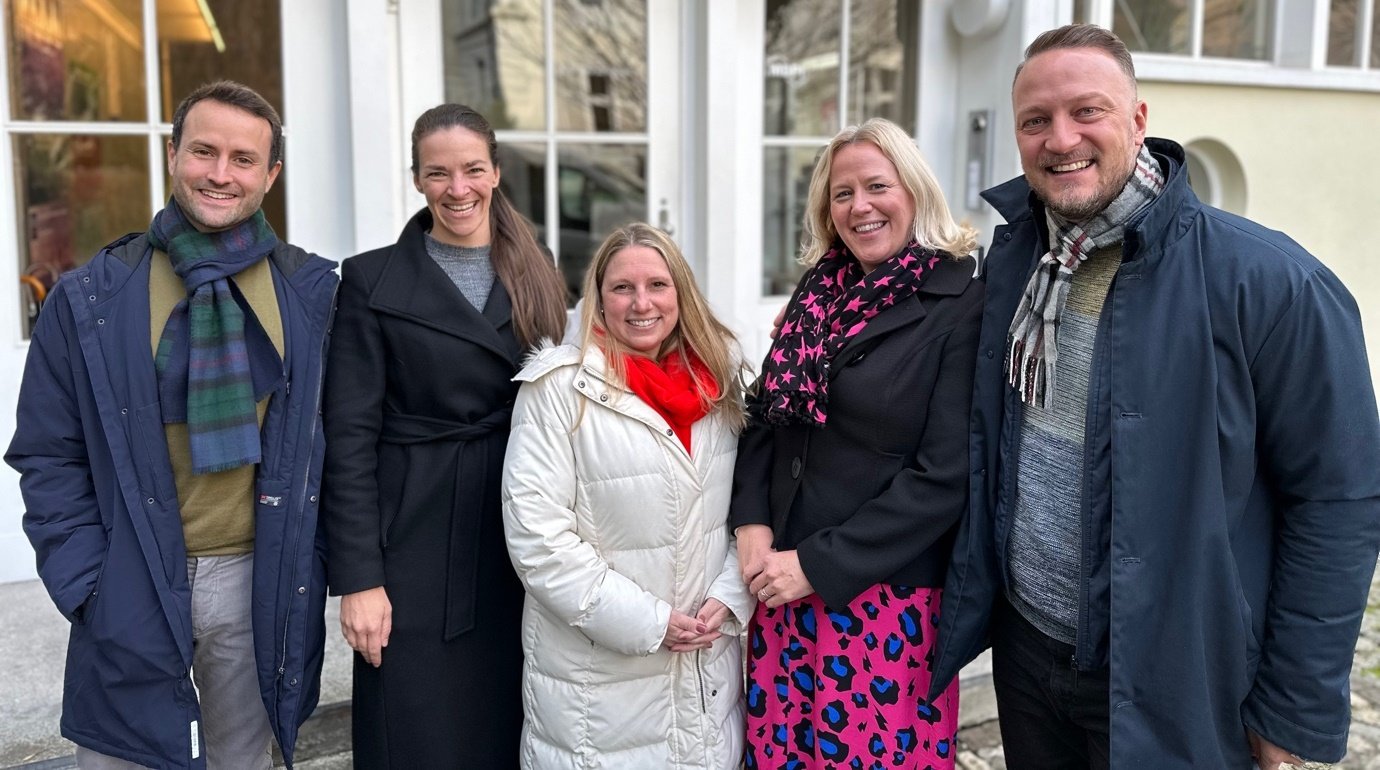
Left to right: Facundo Santomé (Senior Marketing Manager, MDPI), Constanze Shelhorn (Indexing Manager, MDPI), Cathy Holland (Director of Global Publisher Business Development, Digital Science), Helen Cooke (Managing Director of Publisher Sales, Digital Science), and Stefan Tochev (CEO, MDPI) in front of MDPI headquarters in Basel, Switzerland.
During our meeting, we discussed MDPI’s publishing philosophy and explored further avenues for collaboration. We look forward to continuing our partnership with Digital Science, aiming to improve our services yet further and meet the needs of our authors more closely than ever.
What is Altmetric?
You will notice that MDPI articles feature an Altmetric score, a colourful doughnut capturing the score in the upper right corner of the article page. This score represents ‘alternative metrics,’ as distinct from traditional metrics such as Impact Factor, CiteScore, and Scimago Journal Rank.
Altmetrics complement traditional citation-based metrics by capturing online discussions related to a specific research topic. By analyzing both sets of data, we can obtain a comprehensive understanding of the attention a particular research output receives and the sources in which it is mentioned.
“Almetric provides visual insights into where research is being discussed”
Sources Tracked by Altmetric
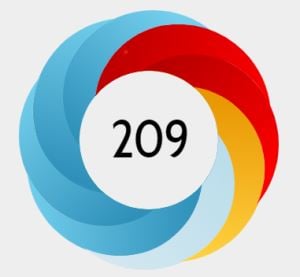
Altmetric badge showing the Altmetric score and colour-coded mention sources.
Altmetric monitors various sources, categorizing them into segments such as policy documents, peer reviews, Wikipedia, news and blogs, and social media, among other sources. Each category is identifiable by a specific colour.
The Altmetric badge provides visual insights into where the research is being discussed. A more colourful badge indicates broader mentions across multiple platforms. Such tracking enables us to gauge the extent of an article’s online dissemination, noting that increased visibility may correlate with higher citation rates.
Read more:
Impactful Research

Ten High-Altmetric Articles Published by MDPI
As at 30 January 2024, Altmetric has tracked 670,500 MDPI research outputs from MDPI, resulting in over 4.3 million mentions. This includes over 71,894 mentions in policy and patents and 294,714 mentions in news and blogs, with some achieving an Altmetric score as high as 28,754.
So, what is a good Altmetric score? There are various ways to put this score into context. You can find out more about the score in context and how to evaluate your work by this means.
Here are ten MDPI papers ranking in the top 5% of all research outputs scored by Altmetric.
|
|
“Accuracy in Wrist-Worn, Sensor-Based Measurements of Heart Rate and Energy Expenditure in a Diverse Cohort” J. Pers. Med. 2017, 7(2), 3; https://doi.org/10.3390/jpm7020003 Altmetric page: https://mdpi.altmetric.com/details/20477344 Altmetric shows that this article appeared in 253 news stories from 209 outlets including Forbes, BBC, and Fox News. |
|
|
“Daylight Saving Time and Acute Myocardial Infarction: A Meta-Analysis” J. Clin. Med. 2019, 8(3), 404; https://doi.org/10.3390/jcm8030404 Altmetric page: https://mdpi.altmetric.com/details/57654628 Altmetric shows that this article appeared in 295 news stories from 207 outlets including Forbes, The Atlantic, and New York Times. |
|
|
“The Preliminary Analysis of Cave Lion Cubs Panthera spelaea (Goldfuss, 1810) from the Permafrost of Siberia” Quaternary 2021, 4(3), 24; https://doi.org/10.3390/quat4030024 Altmetric page: https://mdpi.altmetric.com/details/111086701 Altmetric shows that this article appeared in 182 news stories from 134 outlets including CBC News, CNN, and National Geographic. |
|
|
“Not the Cat’s Meow? The Impact of Posing with Cats on Female Perceptions of Male Dateability” Animals 2020, 10(6), 1007; https://doi.org/10.3390/ani10061007 Altmetric page: https://mdpi.altmetric.com/details/83796184 Altmetric shows that this article appeared in 124 news stories from 98 outlets including VICE, CNN and The Guardian. |
|
|
“Behaviour and Welfare Impacts of Releasing Elephants from Overnight Tethers: A Zimbabwean Case Study” Animals 2022, 12(15), 1933; https://doi.org/10.3390/ani12151933 Altmetric page: https://mdpi.altmetric.com/details/133463915 Altmetric shows that this article appeared in 192 news stories from 186 outlets. |
How do I use altmetrics?
Altmetric Explorer provides a detailed step-by-step guide and instruction video for first-time users of the tool. The guide includes useful diagrams that make it easy to get started.
Sharing Research Online
For research to be tracked across different sources, Altmetric needs a research output with a persistent identifier: a DOI, ISBN, PubMed ID, handle ID, etc. When sharing research, it is important to include a link to the original research output.
|
|
“An Update on Eukaryotic Viruses Revived from Ancient Permafrost” Viruses 2023, 15(2), 564; https://doi.org/10.3390/v15020564 Altmetric page: https://mdpi.altmetric.com/details/142929875 Altmetric shows that this article appeared in 250 news stories from 180 outlets including CTV, Fox News, and CNN. |
|
|
“The Global Problem of Insufficient Sleep and Its Serious Public Health Implications” Healthcare 2019, 7(1), 1; https://doi.org/10.3390/healthcare7010001 Altmetric page: https://mdpi.altmetric.com/details/53406248 Altmetric shows that this article appeared in 252 news stories from 168 outlets including BBC, Harvard Business Review, and Forbes. |
|
|
“A Detailed Review Study on Potential Effects of Microplastics and Additives of Concern on Human Health” Int. J. Environ. Res. Public Health 2020, 17(4), 1212; https://doi.org/10.3390/ijerph17041212 Altmetric page: https://mdpi.altmetric.com/details/86529137 Altmetric shows that this article appeared in 197 news stories from 150 outlets including BBC, The Tribune, and World Economic Forum. |
|
|
“An Empirical Study of Chronic Diseases in the United States: A Visual Analytics Approach to Public Health” Int. J. Environ. Res. Public Health 2018, 15(3), 431; https://doi.org/10.3390/ijerph15030431 Altmetric page: https://mdpi.altmetric.com/details/34714141 Altmetric shows that this article appeared in 232 news stories from 149 outlets including Forbes, New York Times, and Harvard Business Review. |
|
|
“Garden Scraps: Agonistic Interactions between Hedgehogs and Sympatric Mammals in Urban Gardens” Animals 2023, 13(4), 590; https://doi.org/10.3390/ani13040590 Altmetric page: https://mdpi.altmetric.com/details/142934305 Altmetric shows that this article appeared in 172 news stories from 168 outlets including BBC. |
Inside MDPI

MDPI Annual Meeting Celebrations in China
On Thursday 25 January, over 1,300 MDPI colleagues from our two offices in Beijing gathered to kick off MDPI’s traditional ‘Annual Meetings.’ These celebrations take place in MDPI’s offices across China, including Dalian, Tianjin, Wuhan, and Nanjing.
The evenings include performances, informative talks and presentations, awards, and entertainment, providing an ideal platform to recognize our colleagues, celebrate their achievements, and set our sights on the future.
“It is essential that we stay connected and share best practices”
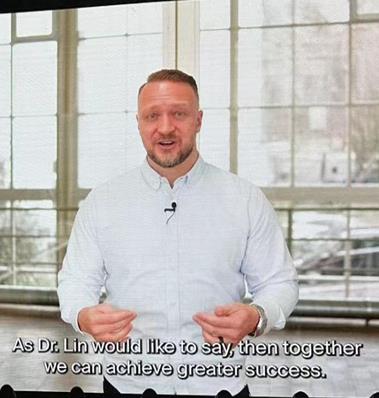
I sent a video congratulating everyone on their work and sharing our vision of building MDPI into the most trusted OA publisher, highlighting the roles each of us has to play in achieving that goal.
Unfortunately I could not join in person, but you may recall my recent trip, when I visited our offices in Beijing and Wuhan, which I look forward to visiting again this year.
Although our headquarters are in Basel, Switzerland, and we are expanding throughout Europe and North America, the majority of MDPI’s workforce is in China and throughout the Asia-Pacific region, including offices in Singapore, Thailand, Japan, and newly opened office in South Korea. It is essential that as a global organization, we stay connected and share best practices in order to grow collectively and continue providing the exceptional service to our authors.
The Annual Meeting is a moment to reflect and enjoy the year’s hard work and dedication.
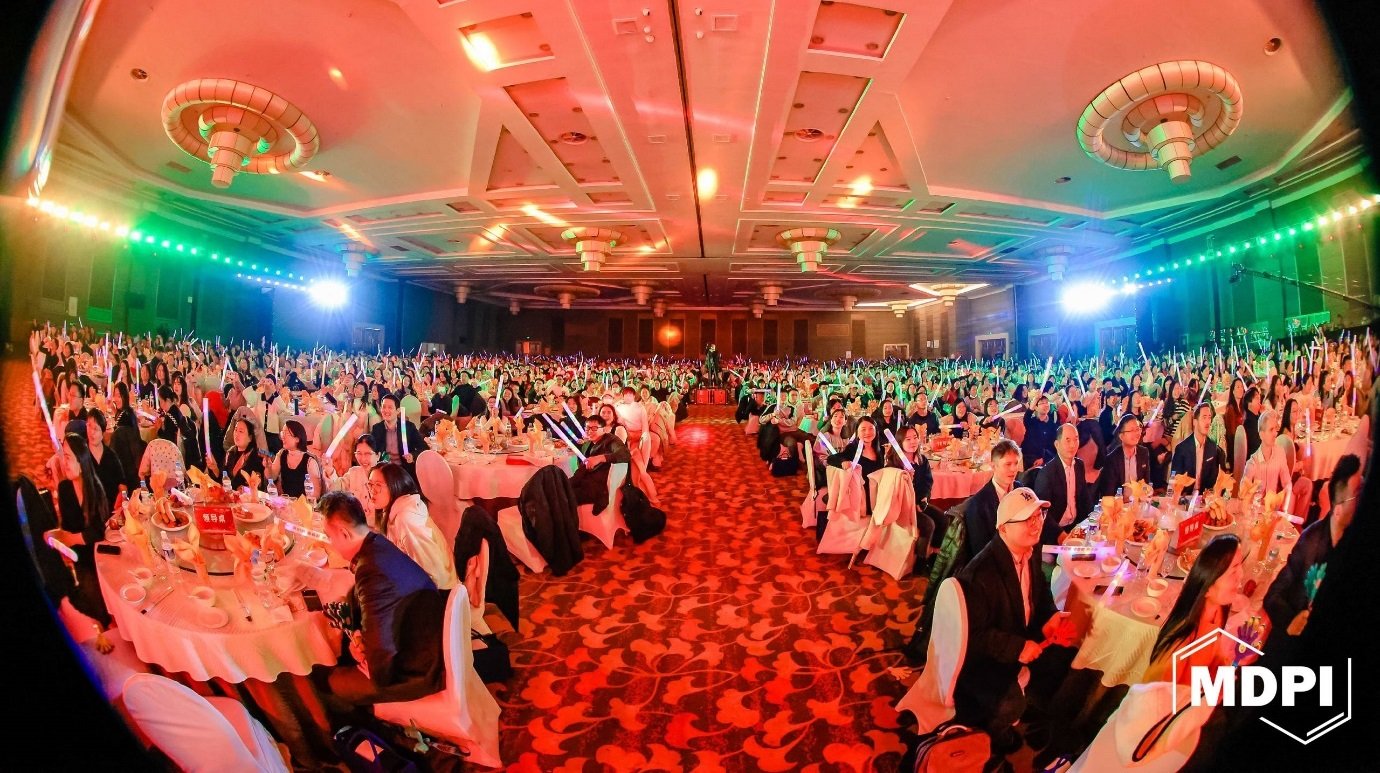
I extend our best wishes to all for the Chinese New Year (Xīnnián kuàilè)!
Coming Together for Science
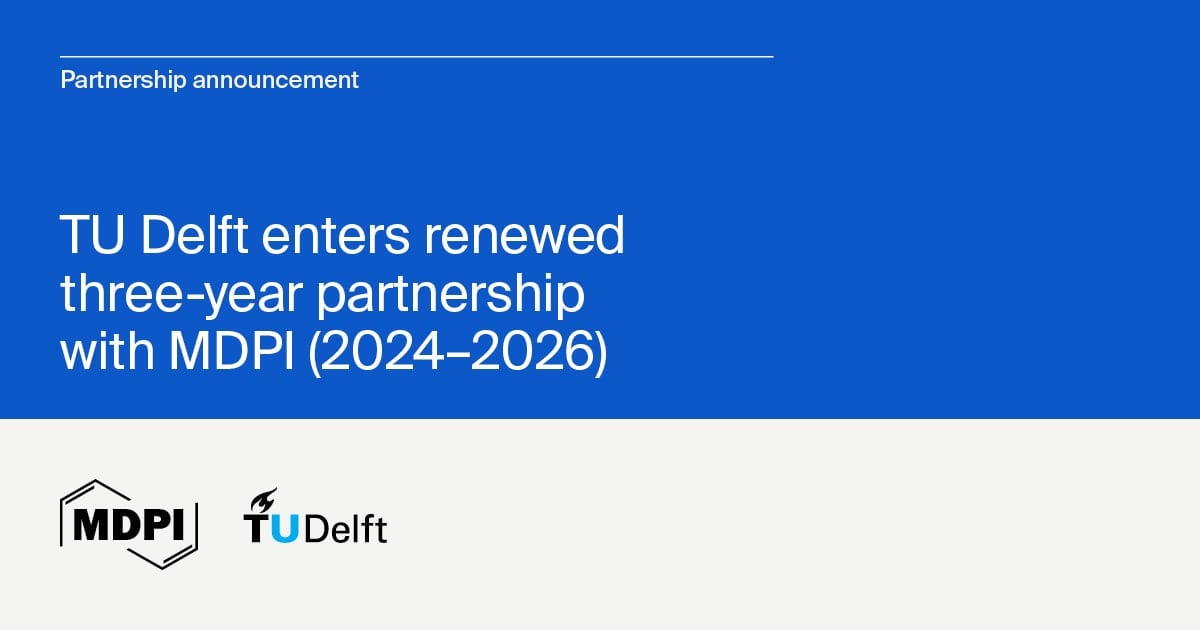
MDPI and TU Delft Adopt Flat Fee Model in Extended Partnership
We are excited to announce a renewed three-year partnership with Delft University of Technology (TU Delft) in the Netherlands. This collaboration introduces a fixed lump-sum fee, covering publishing costs from 2024 to 2026.
“This initiative reflects our dedication to transparent and inclusive publishing”
TU Delft-affiliated authors will enjoy cost-free publishing in any MDPI journal during this period, aligning with our commitment to removing barriers for open access publishing. The agreement supports Plan S compliance and facilitates a seamless publishing process for TU Delft corresponding authors. This initiative reflects our dedication to transparent and inclusive publishing, providing stability and predictability both for authors and for institutions.
For further details on our Institutional Open Access Program (IOAP), please contact us.
Benefits to MDPI’s IOAP
At MDPI we have a long tradition of partnerships, including our Institutional Open Access Program (IOAP). IOAP supports institutions through simplification, access, transparency, APC discounts, and institutional repository deposits. The program simplifies administrative processes, offers central payment, and allows easy opting in and out. Participants gain free access to Susy, MDPI’s online submission system, with extensive article metadata and exportable data. APC discounts and Book Processing Charge discounts are available for affiliated authors. Automated deposits to institutional repositories and streamlined matching of papers to IOAP participants enhance the overall experience.
For further information, see our IOAP FAQ.
Closing Thoughts
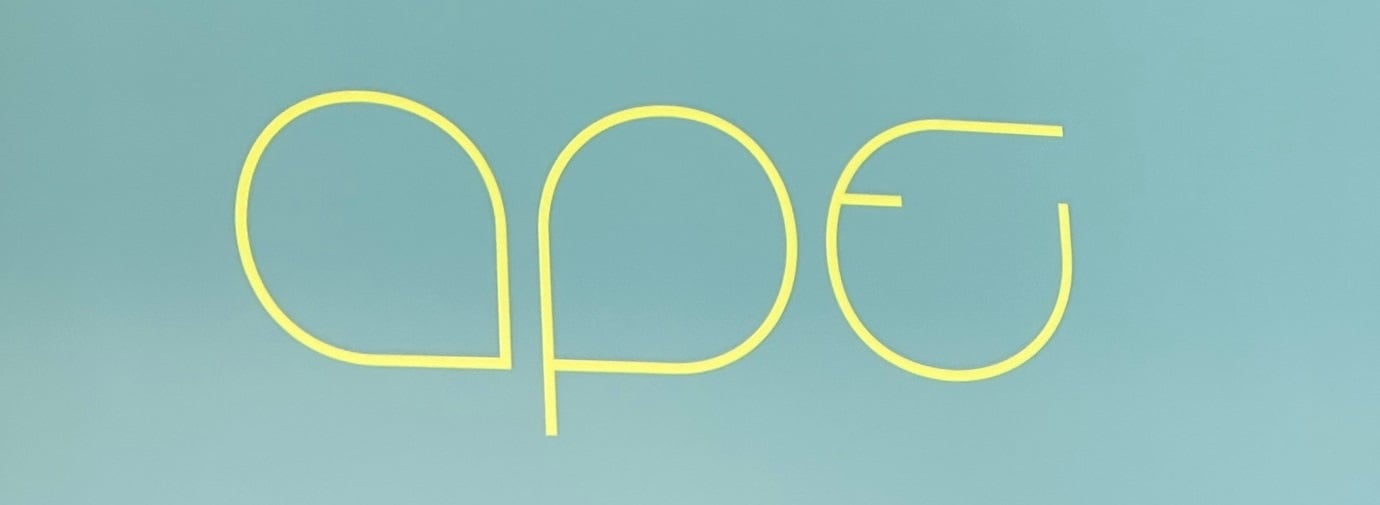
Reflections on the 2024 APE Conference
MDPI was proud to co-sponsor the Academic Publishing in Europe (APE) 2024 Conference that took place in Berlin, Germany, from 9–10 January 2024.
The conference theme, ‘Keep the Conversation Going!’, explored the evolving landscape of scholarly communication. APE is one of the key conferences I make a point to attend each year. January offers a valuable opportunity to engage with new contacts, reconnect with familiar faces, and participate in impactful discussions and presentations among professionals, scholars, and practitioners in the field.
“It's fascinating to see how other publishers are leveraging AI”
Highlights
Some of the standout panels for me include: the role of the UN Sustainable Development Goals (SDGs) within the publishing industry. It was encouraging to hear the current status quo, though I was eager also to learn about the exciting projects planned for 2024 and beyond. These will allow us to track progress in subsequent years. At MDPI, we remain committed to promoting Open–Access (OA) content on SDGs through scientific articles and books. Furthermore, we extend our commitment to sustainability by financially supporting researchers through initiatives such as the World Sustainability Award and the Emerging Sustainability Leader Award, as well as waiving the APC for feature papers on each SDG.
In recent years, discussions on AI have become increasingly prominent at such conferences. It’s fascinating to see how other publishers are leveraging AI to meet the evolving needs of their audiences while at the same time using it to safeguard the scientific process. Other engaging panels that I enjoyed included updates on transformation beyond transformative agreements, the principles of lean change, incentive structures related to research integrity, and the panel on reviewer incentives.
“We can share best practices and lessons learned”
Incorporating MDPI’s Insights into Conferences
I must confess that I sometimes feel overlooked when MDPI is not invited to participate in crucial industry discussions. As the leading open access publisher and the third-largest publisher overall, we possess extensive experience in many of these areas and can offer valuable contributions to these discussions. We can share best practices, lessons learned, and our thinking about future trajectories. For instance, in panels discussing reviewer incentives, at MDPI we offer a discount voucher to reviewers for future submissions, reflecting our commitment to fostering a robust peer review process. In 2022 alone, MDPI collected over 1.4 million peer review reports, informing the decision-making processes of our editors. Given our expertise in these areas, it would be natural to include MDPI in such discussions. I therefore extend an invitation to future conference organizers to consider MDPI for speaking engagements and collaborative opportunities.
Chief Executive Officer
MDPI AG
2 January 2024
MDPI Insights: The CEO’s Letter #7 - Nobel Laureates Entrust MDPI with Their Research

Welcome to the MDPI Insights: The CEO's Letter.
In these monthly letters, I will showcase two key aspects of our work at MDPI: our commitment to empowering researchers and our determination to facilitating open scientific exchange.
Opening Thoughts

Nobel Prize Laureates Entrust MDPI with Their Research
The Nobel Prize stands as a hallmark of distinction, honouring ground-breaking research across disciplines. Annually, the Nobel Prizes are awarded in six categories: Physics, Chemistry, Medicine or Physiology, Literature, Peace, and Economic Sciences.
Through the years, renowned scholars have entrusted MDPI with their work. As at December 2023, 26 Nobel laureates have contributed to more than 75 articles across 25 MDPI journals, including: Antibiotics, Applied Sciences, Biology, Biomedicines, Cancers, Catalysts, Cells, Crystals, Entropy, Games, IJMS, Life, Materials, Micromachines, Molecules, Pharmaceuticals, Pharmaceutics, Photonics, Quantum Beam Science, Remote Sensing, Sensors, Solids, Universe, Vaccines, and Viruses.
The best of the best trust us with their work.
Nobel Prize Laureates Who Have Published with MDPI
We are proud to list the names of Pierre Agostini, Hiroshi Amano, Werner Arber, Aaron Ciechanover, Robert H. Grubbs, Oliver Hart, Gerard ‘t Hooft, Michael Houghton, Harald zur Hausen, Katalin Karikó, Jean-Marie Lehn, Gérard Mourou, Ferid Murad, Shuji Nakamura, William Nordhaus, Kostya S. Novoselov, Giorgio Parisi, Charles M. Rice, Alvin E. Roth, Donna Strickland, K. Barry Sharpless, George F. Smoot, Anne L’Huillier, Drew Weissman, Kurt Wüthrich, Ada Yonath.
The privilege of hosting such contributors resonates deeply with our editorial teams. For instance, in this interview, the Editor-in-Chief (EiC) of Universe speaks on the significance of publishing a paper by Nobel laureate Gerard ’t Hooft within the journal.
2023 Nobel Prize Winners Published by MDPI

Nobel Prize Winners, 2023: Katalin Karikó, Drew Weissman, Anne L’Huillier (Ill. Niklas Elmehed © Nobel Prize Outreach)
Three laureates from the 2023 Nobel Prize cohort have trusted MDPI as their publishing platform. Notably, in a 2022 Pharmaceutics paper, molecular biologist Katalin Karikó and her team presented a methodology for evaluating mRNA capping efficiency, pivotal for therapeutic applications. Pharmaceutics had previously dedicated a Special Issue to “mRNA Therapeutics: A Themed Issue in Honor of Professor Katalin Karikó”, spotlighting ten articles from August 2021 to February 2022.
In the journal Vaccines, Professor Drew Weissman, collaborating with scholars from Pennsylvania University and George Mason University, contributed an influential review titled “Nanomaterial Delivery Systems for mRNA Vaccines”. His collaborative efforts spanned five papers across MDPI journals between 2021 and 2023.
Furthermore, Anne L'Huillier of Lund University, only the fifth female recipient of the Physics Prize, co-authored an article in Applied Sciences focusing on "Advanced EUV and X-Ray Optics". Similarly, Pierre Agostini, an Emeritus Professor from Ohio State University, co-authored an article featured in the special issue "Attosecond Science and Technology: Principles and Applications".
We extend heartfelt congratulations to all Nobel Prize laureates and express sincere gratitude for their confidence in MDPI as a platform for their scholarly contributions.
Read more:
Impactful Research

MDPI Journals Newly Indexed in 2023
The aim of indexing is to enhance the quality and credibility of published research, ensuring that researchers access the most credible resources available. While the principle behind citation indexing is straightforward, it remains one of the most dependable methods for tracking an idea's evolution across various scientific disciplines.
Throughout the year, MDPI works to expand the reach of our publications across premier multidisciplinary databases like Web of Science, Scopus, EBSCO, and ProQuest. This initiative is spearheaded by MDPI's Indexing team, under the leadership of Dr. Constanze Schelhorn.
In 2023, MDPI achieved 54 new acceptances in Scopus, 29 in Web of Science, 52 in EBSCO, and 83 in DOAJ: Directory of Open Access Journals.
The team prioritizes ensuring that our journals feature in numerous specialized databases, including PMC, PubMed, MEDLINE, Inspec, CAS, and FSTA, among others. Currently, MDPI collaborates with over 65 renowned international databases, consistently enhancing our database affiliations annually.
MDPI’s journals are indexed in all major global databases.
Furthermore, we collaborate with universities and government organizations to list our journals in country-specific ranking lists and relevant institutional repositories. This ensures compliance with requirements often set by funders or institutions for authors to publish in specific journals.
Web of Science Adds 24 MDPI Journals to Emerging Sources Citation Index (ESCI)
Clarivate recently analysed MDPI’s new journals, resulting in 24 journals, mainly established in 2020, being added to the ESCI in November and December 2023. Additionally, five journals passed this assessment earlier in the year. For a complete list of our journals in Web of Science, refer here. Journals in the ESCI meet 24 quality criteria, ensuring editorial rigor. They may be considered for inclusion in broader indices like the Science Citation Index Expanded (SCIE), the Social Sciences Citation Index (SSCI), or the Arts and Humanities Citation Index (AHCI), based on four impact criteria.
Read more:
Inside MDPI

MDPI Appoints New Chief Operating Officer (COO)

Alistair Freeland returned to MDPI and assumed the role of Chief Operating Officer in November 2023, a position he previously held from 2013 to 2019. He succeeds Dr. Yu Lin, who will remain a member of MDPI’s Board of Directors, overseeing significant financial decisions for the company. I would like to express my sincere thanks to Dr. Yu Lin for his service as COO.
Alistair brings extensive experience not only in scholarly publishing but also in technology and business management. Prior to rejoining MDPI, he was associated with SIX Group, the entity responsible for Switzerland's financial market infrastructure. There, he played a pivotal role in developing the blockchain-based platform SDX (SIX Digital Exchange), which has gained traction among major Swiss banks and the Swiss National Bank.
As COO, Alistair will collaborate with the MDPI management team to improve the practices and services we offer to scholarly communities. I am pleased to welcome Alistair back to MDPI and look forward to his contributions going forward.
Coming Together for Science

MDPI’s 2024 In-Person Academic Events Schedule
MDPI's Conference Team is dedicated to organizing and hosting in-person academic events across Europe, Asia-Pacific, and North America. We recognize conferences as invaluable platforms for scientific collaboration, scholarly exchange, discussions on contemporary topics, networking, and forging collaborations.
Here's a glimpse of the notable events we currently have scheduled for 2024:
|
|
14–16 February, 2024 |
|
|
24–26 April, 2024 |
|
|
28–31 May, 2024 |
|
|
1–4 August, 2024 |
Upcoming events with details to be announced:
- September 2024, Materials 2024 – Basel, Switzerland
- 19–21 September 2024, International Conference on Nanomaterials Sciences 2024 – Beijing, China
- October 2024, ncRNA 2024 – Basel, Switzerland
- November 2024, Pharmaceuticals 2024 – Barcelona, Spain
- 22–26 November 2024, International Conference on Science of Electronics – Wuhan, China
- Stay tuned for more details on the Sustainable Publishing Forum 2024.
Click here for all upcoming MDPI events.
Organize Your Event with MDPI’s Sciforum
Sciforum is MDPI’s platform dedicated to the organization of scientific events. In line with our mission to promote science, Sciforum supports scholars, societies, research networks, and universities at all stages of organizing in-person events, virtual events and webinars. Our platforms are efficient, user-friendly, and cost-effective. We handle all steps related to event management. Contact us for details.
Closing Thoughts

Reflecting on 2023 and Looking Ahead to 2024
As we approach 2024, I reflect on the incredible journey we’ve had together at MDPI this year. The past 12 months have been marked by ambitious projects and initiatives to improve our internal processes, and a commitment to continue delivering top-notch services to our stakeholders. I’d like to thank each and every one of our staff members for contributing to the positive experiences our stakeholders have reported in our surveys. Your dedication to speed, efficiency, and effective communication with our stakeholders is very much recognized and appreciated.
Becoming a stronger organisation
While we have encountered challenges in 2023, it’s important to understand that these are a part of our growth process. Difficulties provide us with opportunities to reflect, address problems at their roots, and ultimately evolve into a stronger organization. Our stakeholders expect us to overcome tough times, and it’s an expectation that we have for ourselves.
I extend my sincere appreciation to every MDPI employee, from our editorial office and IT department to marketing, indexing, IOAP, societies, Scientific Office board, products, production, conferences, finance, operations, admin, and beyond. To our newest team members, a warm welcome; to our longstanding colleagues, your dedication is invaluable.
“I am committed to taking MDPI to a new level of excellence.”
Interacting with many of you during my visits to our offices and representing MDPI at external events has been a personal highlight. I am deeply grateful to Dr. Lin for entrusting me with the role of CEO of MDPI. Looking forward, I am committed to working closely with our management team to lead MDPI and take it to a new level of excellence, aiming to establish it as the most trusted publisher in open access worldwide. This is a collective endeavour, with each of us shaping MDPI’s reputation. I therefore encourage us to take pride in our work, as it represents not only our craft but also MDPI as a whole.
Accountability and communication
As we look forward to 2024, there’s a lot to be excited about. Together, we’ll navigate challenges, seize growth opportunities, and refine our practices. To solidify MDPI’s position as the premier open access publisher globally, we must bolster accountability, improve stakeholder communication, share MDPI’s best practices, champion the open access philosophy, and educate stakeholders about our mission, methodologies, and motivations.
Thank you for engaging with the CEO Letter over the past six months of 2023. I will continue to release this newsletter as a method of sharing the great work being done at MDPI. Please feel free to connect directly with any insights or questions.
Here’s to a joyous and prosperous 2024!
Chief Executive Officer
MDPI AG
31 December 2023
Materials | Top 10 Cited Papers in 2022 in the Section “Metals and Alloys”
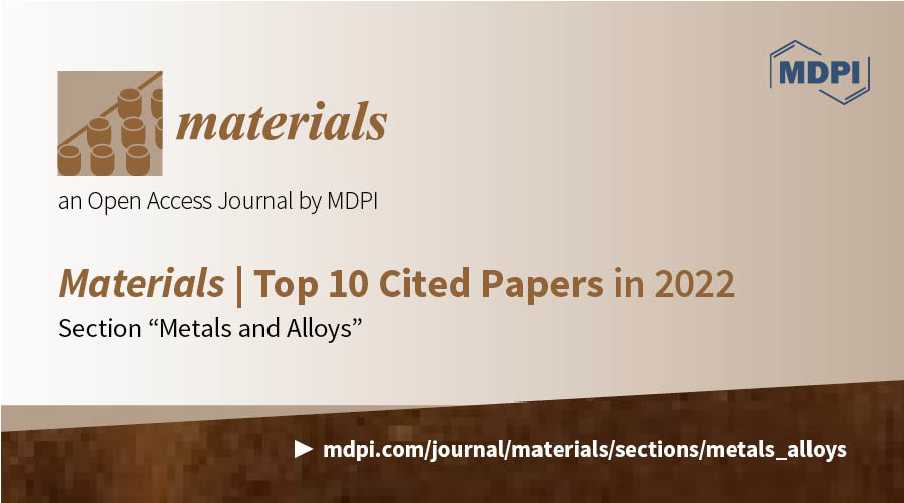
We are pleased to invite you to read the top 10 cited papers from 2022 in Materials (ISSN: 1996-1944) in the Section “Metals and Alloys”. The paper list is as follows:
1. “Magnesium-Based Alloys Used in Orthopedic Surgery”
by Iulian Antoniac, Marian Miculescu, Veronica Mănescu (Păltânea), Alexandru Stere, Pham Hong Quan, Gheorghe Păltânea, Alina Robu and Kamel Earar
Materials 2022, 15(3),1148; https://doi.org/10.3390/ma15031148
Available online: https://www.mdpi.com/1996-1944/15/3/1148
2. “Modeling Dynamic Recrystallization Behavior in a Novel HIPed P/M Superalloy during High-Temperature Deformation”
by Qiu-Mei Yang, Yong-Cheng Lin, Ming-Song Chen and Zi-Jian Chen
Materials 2022, 15(11), 4030; https://doi.org/10.3390/ma15114030
Available online: https://www.mdpi.com/1996-1944/15/11/4030
3. “Effect of SiC Nanoparticles on AZ31 Magnesium Alloy”
by Murugan Subramani, Song-Jeng Huang and Konstantin Borodianskiy
Materials 2022, 15(3), 1004; https://doi.org/10.3390/ma15031004
Available online: https://www.mdpi.com/1996-1944/15/3/1004
4. “Materials Engineering for Flexible Metallic Thin Film Applications”
by Megan J. Cordill, Patrice Kreiml and Christian Mitterer
Materials 2022, 15(3), 926; https://doi.org/10.3390/ma15030926
Available online: https://www.mdpi.com/1996-1944/15/3/926
5. “Electrochemical and In Vitro Biological Evaluation of Bio-Active Coatings Deposited by Magnetron Sputtering onto Biocompatible Mg-0.8Ca Alloy”
by Ana-Iulia Bița, Iulian Antoniac, Marian Miculescu, George E. Stan, Lucia Leonat, Aurora Antoniac, Bujor Constantin and Norin Forna
Materials 2022, 15(9), 3100; https://doi.org/10.3390/ma15093100
Available online: https://www.mdpi.com/1996-1944/15/9/3100
6. “Fluoride Treatment and In Vitro Corrosion Behavior of Mg-Nd-Y-Zn-Zr Alloys Type”
by Pham Hong Quan, Iulian Antoniac, Florin Miculescu, Aurora Antoniac, Veronica Manescu (Păltânea), Alina Robu, Ana-Iulia Bița, Marian Miculescu, Adriana Saceleanu, Alin Dănuț Bodog et al.
Materials 2022, 15(2), 566; https://doi.org/10.3390/ma15020566
Available online: https://www.mdpi.com/1996-1944/15/2/566
7. “Designing for Shape Memory in Additive Manufacturing of Cu–Al–Ni Shape Memory Alloy Processed by Laser Powder Bed Fusion”
by Mikel Pérez-Cerrato, Itziar Fraile, José Fernando Gómez-Cortés, Ernesto Urionabarrenetxea, Isabel Ruiz-Larrea, Iban González, María Luisa Nó, Nerea Burgos and Jose M. San Juan
Materials 2022, 15(18), 6284; https://doi.org/10.3390/ma15186284
Available online: https://www.mdpi.com/1996-1944/15/18/6284
8. “Microstructural Characterization of Additively Manufactured Metal Components Using Linear and Nonlinear Ultrasonic Techniques”
by Seong-Hyun Park, Sungho Choi, Dong-Gi Song and Kyung-Young Jhang
Materials 2022, 15(11),3876; https://doi.org/10.3390/ma15113876
Available online: https://www.mdpi.com/1996-1944/15/11/3876
9. “Hot Isostatic Pressing for Fatigue Critical Additively Manufactured Ti-6Al-4V”
by Terrence P. Moran, Patricio E. Carrion, Seungjong Lee, Nima Shamsaei, Nam Phan and Derek H. Warner
Materials 2022, 15(6), 2051; https://doi.org/10.3390/ma15062051
Available online: https://www.mdpi.com/1996-1944/15/6/2051
10. “Effects of Shot Peening and Cavitation Peening on Properties of Surface Layer of Metallic Materials—A Short Review”
by Aleksander Świetlicki, Mirosław Szala and Mariusz Walczak
Materials 2022, 15(7), 2476; https://doi.org/10.3390/ma15072476
Available online: https://www.mdpi.com/1996-1944/15/7/2476
25 December 2023
Materials | Top 10 Cited Papers in 2022 in the Section “Materials Chemistry”
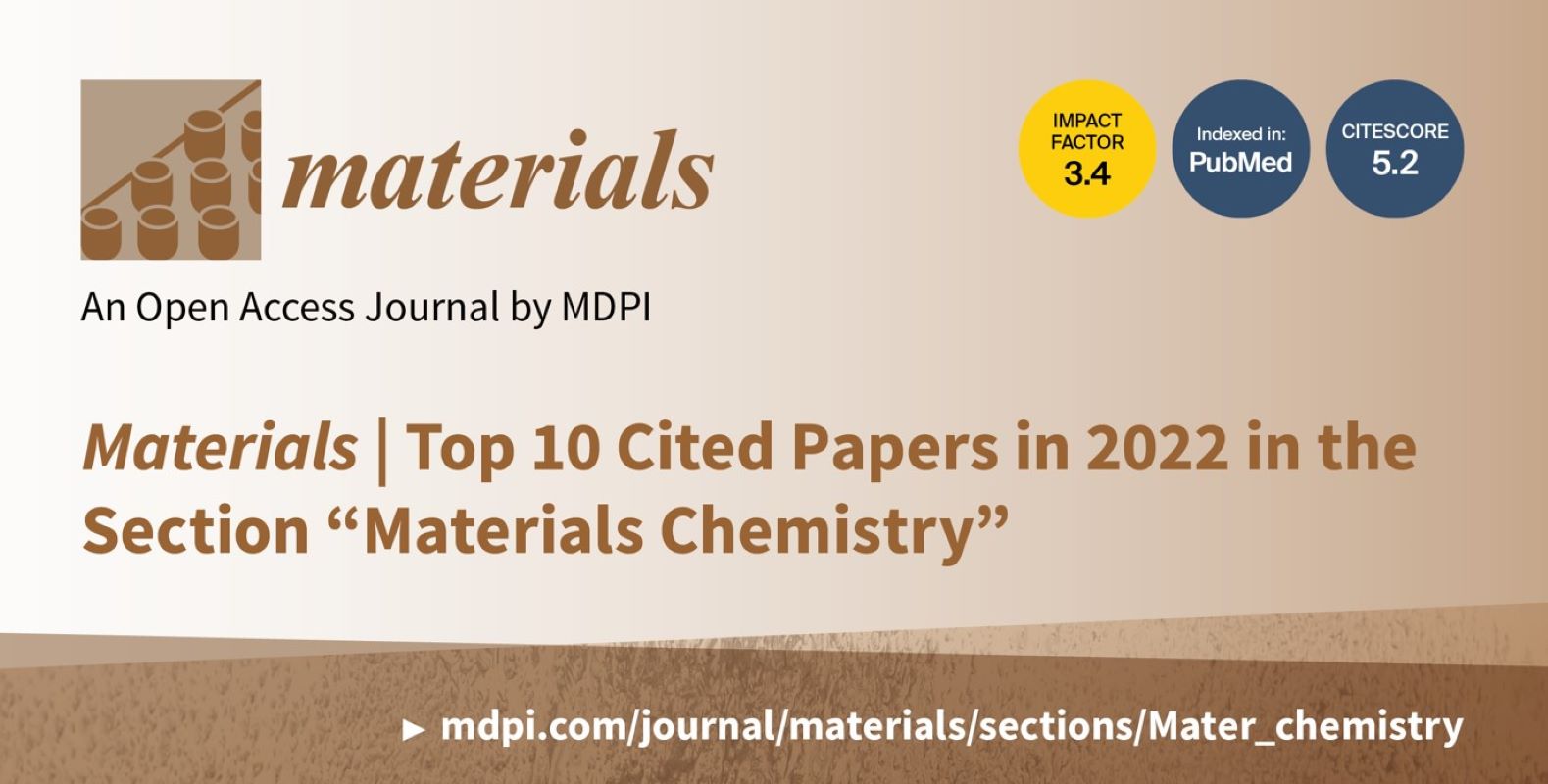
We are pleased to invite you to read the top 10 cited papers in 2022 in Materials (ISSN: 1996-1944) in the Section “Materials Chemistry”. The paper list is as follows:
1. “The Use of Chitosan and Starch-Based Flocculants for Filter Backwash Water Treatment”
by Piotr Maćczak, Halina Kaczmarek, Marta Ziegler-Borowska, Katarzyna Węgrzynowska-Drzymalska and Aleksandra Burkowska-But
Materials 2022, 15(3), 1056; https://doi.org/10.3390/ma15031056
Available online: https://www.mdpi.com/1996-1944/15/3/1056
2. “Fabrication of PLA/PCL/Graphene Nanoplatelet (GNP) Electrically Conductive Circuit Using the Fused Filament Fabrication (FFF) 3D Printing Technique”
by Nour-Alhoda Masarra, Marcos Batistella, Jean-Christophe Quantin, Arnaud Regazzi, Monica Francesca Pucci, Roland El Hage and José-Marie Lopez-Cuesta
Materials 2022, 15(3), 762; https://doi.org/10.3390/ma15030762
Available online: https://www.mdpi.com/1996-1944/15/3/762
3. “Impact of Gamma Irradiation on the Properties of Magnesium-Doped Hydroxyapatite in Chitosan Matrix”
by Daniela Predoi, Carmen Steluta Ciobanu, Simona Liliana Iconaru, Silviu Adrian Predoi, Mariana Carmen Chifiriuc, Steinar Raaen, Monica Luminita Badea and Krzysztof Rokosz
Materials 2022, 15(15), 5372; https://doi.org/10.3390/ma15155372
Available online: https://www.mdpi.com/1996-1944/15/15/5372
4. “Synthesis of Hydroxyapatite/Iron Oxide Composite and Comparison of Selected Structural, Surface, and Electrochemical Properties”
by Adrianna Biedrzycka, Ewa Skwarek, Dariusz Osypiuk and Beata Cristóvao
Materials 2022, 15(3), 1139; https://doi.org/10.3390/ma15031139
Available online: https://www.mdpi.com/1996-1944/15/3/1139
5. “Impact of Mechanical Stress and Nitrogen Doping on the Defect Distribution in the Initial Stage of the 4H-SiC PVT Growth Process”
by Johannes Steiner and Peter J. Wellmann
Materials 2022, 15(5), 1897; https://doi.org/10.3390/ma15051897
Available online: https://www.mdpi.com/1996-1944/15/5/1897
6. “Recent Advances in Materials for Wearable Thermoelectric Generators and Biosensing Devices”
by Maria Sattar and Woon-Hong Yeo
Materials 2022, 15(12), 4315; https://doi.org/10.3390/ma15124315
Available online: https://www.mdpi.com/1996-1944/15/12/4315
7. “Influence of Silicone Additives on the Properties of Pressure-Sensitive Adhesives”
by Karolina Mozelewska and Adrian Krzysztof Antosik
Materials 2022, 15(16), 5713; https://doi.org/10.3390/ma15165713
Available online: https://www.mdpi.com/1996-1944/15/16/5713
8. “Fabrication, Characterization and Evaluation of an Alginate–Lignin Composite for Rare-Earth Elements Recovery”
by Dominika Fila, Zbigniew Hubicki and Dorota Kołodyńska
Materials 2022, 15(3), 944; https://doi.org/10.3390/ma15030944
Available online: https://www.mdpi.com/1996-1944/15/3/944
9. “Visible-Light-Driven AO7 Photocatalytic Degradation and Toxicity Removal at Bi-Doped SrTiO3”
by Maria João Nunes, Ana Lopes, Maria José Pacheco and Lurdes Ciríaco
Materials 2022, 15(7), 2465; https://doi.org/10.3390/ma15072465
Available online: https://www.mdpi.com/1996-1944/15/7/2465
10. “Effect of Electrode Modification with Chitosan and Nafion® on the Efficiency of Real-Time Enzyme Glucose Biosensors Based on ZnO Tetrapods”
by Valerii Myndrul, Igor Iatsunskyi, Nataliya Babayevska, Marcin Jarek and Teofil Jesionowski
Materials 2022, 15(13), 4672; https://doi.org/10.3390/ma15134672
Available online: https://www.mdpi.com/1996-1944/15/13/4672
25 December 2023
Materials | Highly Cited Special Issues in Materials in 2022
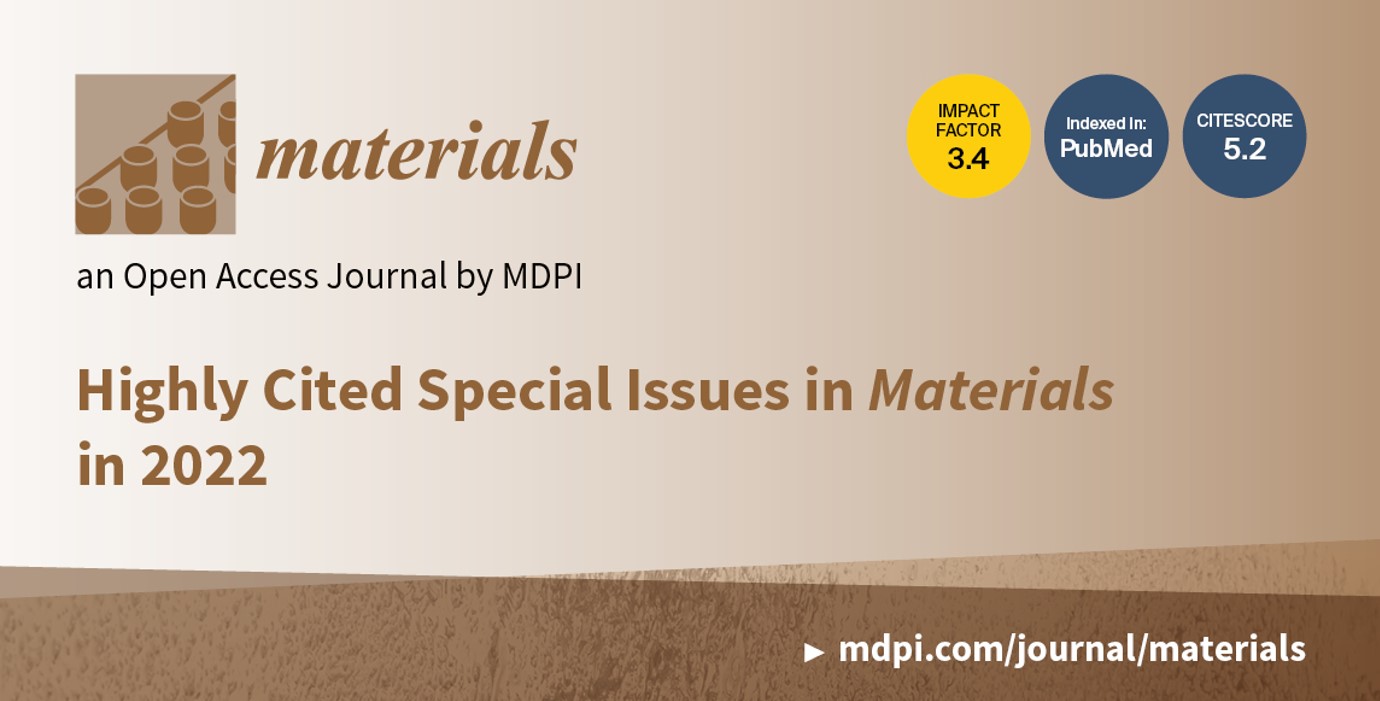
We are pleased to invite you to read the highly cited Special Issues in 2022 in Materials (ISSN: 1996-1944). We hope that this announcement will provide useful information for this field.
The highly cited Special Issues list is as follows:
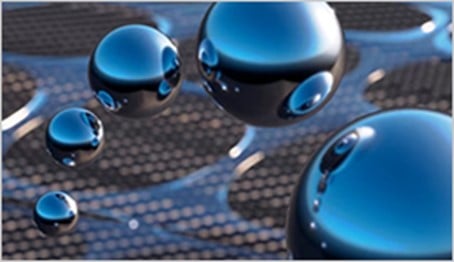 “Advances in Eco-Friendly Adsorbent Materials for Removal of Inorganic and Organic Pollutants” Edited by Dr. Katarzyna Szewczuk-Karpisz Views: 23,387 + | Cited by 110+ |
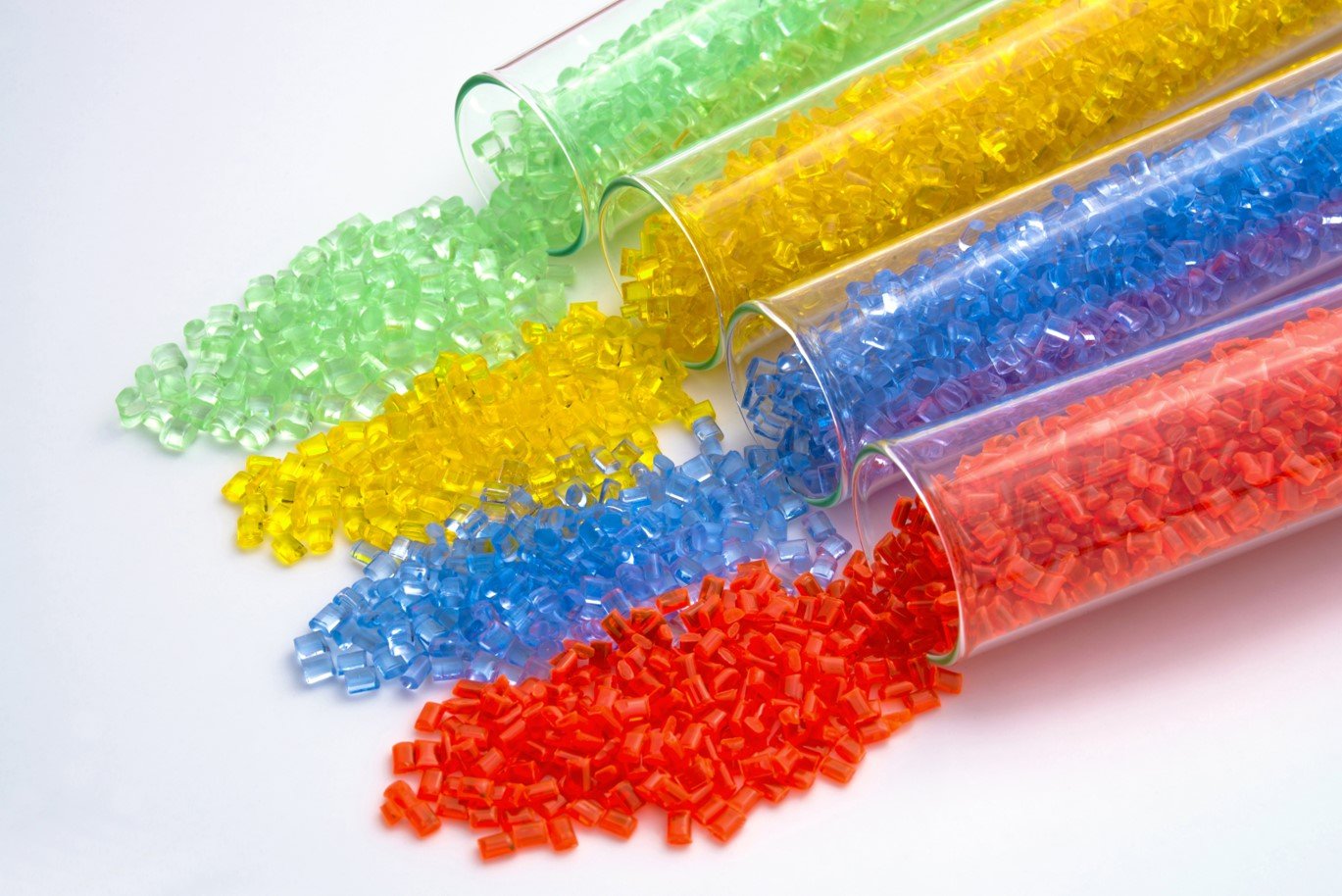 “Obtaining and Characterization of New Materials, Volume II” Edited by Dr. Andrei Victor Sandu Views: 26,119 + | Cited by 90+ |
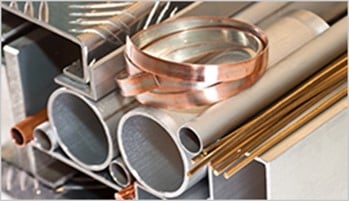 “Study on the Development and Applications of Magnesium Alloys” Edited by Prof. Dr. Chao Xu and Dr. Jing Zuo Views: 19,647 + | Cited by 80+ |
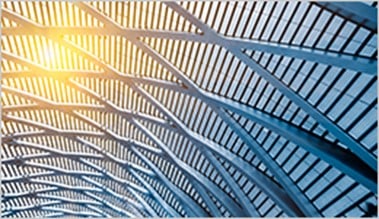 “Shape Memory Alloys for Civil Engineering” Edited by Dr. Cheng Fang, Prof. Dr. Canxing Qiu and Dr. Yue Zheng Views: 23,817 + | Cited by 70+ |
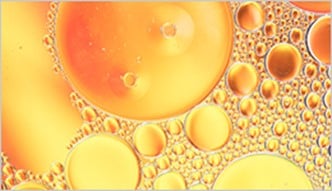 “Feature Collection on Porous Materials” Edited by Dr. Miguel Jorge and Dr. Moises Luzia Pinto Views: 20,855 + | Cited by 60+ |
You are welcome to view all of the Special Issues (https://www.mdpi.com/journal/materials/special_issues) and submit relevant papers to Materials. If you have any questions, you can contact the Editorial Office at [email protected].
Materials Editorial Office
30 November 2023
MDPI Insights: The CEO’s Letter #6 - MDPI Spain Summit and ResearchGate

Welcome to the MDPI Insights: The CEO's Letter.
In these monthly letters, I will showcase two key aspects of our work at MDPI: our commitment to empowering researchers and our determination to facilitating open scientific exchange.
Opening Thoughts

MDPI Spain Summit

Stefan Tochev (CEO, MDPI) gives the opening speech at the MDPI Spain Summit.
On Friday 10 November 2023 I was in Barcelona, Spain, to deliver the opening presentation and participate in a panel at MDPI’s Spain Summit, a two-day event, inspired by our salon events in China.
With 16 Editors-in-Chief (EiCs) and 20 Editorial Board Members (EBMs) in attendance, the event, organized by our conference team and Barcelona office, featured presentations on open access (OA), MDPI, and publishing market trends in Spain.
The event provided a great opportunity to engage with stakeholders from various MDPI journals, including Nutrients, Vaccines, Buildings, IJMS, and others. We were able to gather feedback and have open conversations around manuscript quality, the peer-review process, and journal development, as well as accreditation agencies.
The main objective of this Summit was to bring together Editors representing MDPI journals across various disciplines within Spanish universities and research centers, primarily from the Barcelona area. The aim was to facilitate an open and fruitful discussion regarding the development of their journals, the future of OA in Spain, and to provide meaningful interactions and networking opportunities.
Connecting with Editorial Board Members

Stefan Tochev in conversation with Summit participants: "Our EBMs are passionate about the journals they serve."
Interacting with our EBMs in person provides a valuable opportunity to show how important it is to us to connect with them, hear their perspectives on their journals and learn more about their own experience collaborating with MDPI.
From my conversations, it was clear that our EBMs are passionate about the journals they serve. I know the advice they provide may sometimes involve just small tweaks, but these can lead to important improvements. As the saying goes, small hinges swing open big doors.
As at November 2023, MDPI has over 6,300 EBMs affiliated with Spanish institutions, with more than 30 of them serving as EiCs or section EiCs. Furthermore, over 68,000 Spanish scholars have contributed as reviewers in MDPI journals.
Open Access in Spain
In 2023, Spain implemented legislation mandating immediate OA for all publicly funded research, aligning with the EU’s Plan S initiative to expedite the transition to OA. The Spanish government also approved a four-year, €23.8 million annual budget for the first national OA strategy, aiming to make publicly funded research freely accessible upon publication. This strategy aims to strengthen the quality and transparency of research in Spain, and to help promote movement towards a digital, low-carbon economy.
For further details of Spain's OA policy and the history of government mandates, click here.
Spain has already seen a notable decline in subscription-only articles, decreasing by 62% over a 10-year period, while gold OA increased by 42%. Green OA slightly decreased, suggesting a shift towards publishing in gold OA journals rather than traditional subscription-based ones. Here are some statistics from Scopus.
A big thank-you to the various MDPI teams, including our conference team and the Barcelona office, for organizing this very successful event!

MDPI colleagues from various offices gathered to host and support the first MDPI Spain Summit, in Barcelona, Spain.
I think this type of gathering has the potential to become an annual event in various locations. For example, Manchester could be an option, as we have over 30 EiCs and over 3,000 EBMs in the UK, a top market for MDPI that publishes high-quality research.
Impactful Research

769 Editorial Board Members of MDPI Journals Recognized as Highly Cited Researchers in 2023
Congratulations to our 769 Editorial Board Members from 40 countries/territories who have been awarded Highly Cited Researcher status for 2023 by Clarivate. This recognition is based on their outstanding scientific research contributions and significant influence in various fields, as evidenced by Web of Science data.
Click here to view the full list of 769 Editorial Board Members.
Clarivate's Highly Cited ResearchersTM list identifies individuals with exceptional impact in scientific and social science domains over the past decade. Their papers rank in the top 1% of citations in 21 fields analysed in ‘Essential Science Indicators,’ showcasing their substantial influence.
This year, 7,125 Highly Cited Researcher 2023 designations were issued to 6,849 individuals from 67 countries, representing just 1 in 1,000 researchers worldwide.
These researchers demonstrate exceptional influence, representing a small fraction of contributors pushing the boundaries of knowledge, contributing to global well-being, sustainability, and security.
Congratulations to these scholars for their remarkable achievement: we are honoured to have them on board with our journals!
Inside MDPI

Corporate Marketing and Communications Strategy Session

Members of MDPI’s Corporate Marketing & Communications team.
For the past few years, I have led the Corporate Marketing & Communications department in our annual strategy session.
This typically involves 2–3 days of focused sessions covering key topics including budgeting, hiring targets, campaign reviews, and planning for the upcoming year, department strategy, and structure.
We are constantly exploring ways to optimize the Corporate Marketing & Communications department to support MDPI’s primary objectives and better convey the MDPI story while serving the scholarly community.
The strategy session also serves as a team-building activity, during which the team voted on bowling!
Strategy Session
In this strategy session, we looked at how to align our teams in order to better streamline our content with our campaigns, build a dedicated marketing team to strategically support our core MDPI products, expand our communications teams and functionalities to focus on company-critical campaigns and press releases, align our new brand design system with our marketing initiatives, set up a community and engagement team to support various teams with their outreach and communication efforts, and increase our use of data in the evaluation of campaign performance.
To grow in these areas, we will be hiring for various positions, including those of Public Relations Manager, Communications Manager, Internal Communications Manager, Campaign Manager, Marketing Associate, and Editorial Engagement Manager.
I am grateful for the way our Corporate Marketing & Communications department has grown and gelled over the years, and I look forward to supporting the department teams and their ideas for the future.
Coming Together for Science

ResearchGate and MDPI Partner to Boost the Visibility of Open Access Content through Journal Home

Stefan Tochev (CEO, MDPI) and Sören Hofmayer (Co-Founder and Chief Strategy Officer, ResearchGate) meet in Berlin, Germany to take their ongoing discussion further.
When I assumed the role of CEO at MDPI, my primary focus was to initiate the building of essential partnerships and collaborations within our industry. After all, I am a firm believer in achieving our goals by helping others achieve theirs and focusing on co-opetition wherever there is an opportunity. I first touched on the notion of co-opetition in MDPI Insights: The CEO's Letter #3, particularly when discussing collaborations with Elsevier.
In light of this, Sören Hofmayer (Co-Founder and Chief Strategy Officer at ResearchGate) and I connected recently to continue a discussion that had been ongoing for months. I was quickly brought up to speed and felt there was an opportunity for MDPI journals to pilot the Journal Home service that ResearchGate had launched. This would provide a new way for MDPI to engage with authors and readers and amplify the visibility of our journals.
While I receive many offers and opportunities for discussions with vendors, I am a firm believer that timing is everything, and in this case, the time for us is now. Sören and I met in person during my recent visit to Berlin and decided to proceed with piloting ten MDPI journals with the Journal Home service.
The press release below provides further details.
Press Release: Berlin (Germany) and Basel (Switzerland), 15 November 2023
ResearchGate, the professional network for researchers, and MDPI, the largest open access publisher in the world and a pioneer in open access publishing, today announced a partnership that will see ten of MDPI’s open access journals benefit from an enhanced presence on ResearchGate through its innovative Journal Home offering.
This new partnership will expand the reach and visibility of MDPI’s participating flagship journals with ResearchGate’s highly relevant community of more than 25 million researchers globally.
Around 210,000 version-of-record articles from these 10 titles will be readily available on ResearchGate, including the full archive material and all new articles as they are published. These journals also benefit from enhanced brand visibility, with dedicated journal profiles, prominent representation on all associated article pages and all relevant touchpoints across the ResearchGate network – keeping the journals top-of-mind with their reader and author audiences. All articles covered by the new partnership will automatically be added to the authors’ publication records in ResearchGate. This not only reduces MDPI authors’ needs for direct management but also offers them valuable insights into the impact of their work, including data about readership and citations.
Closing Thoughts

November is Men’s Health Awareness Month

Stefan Tochev (CEO, MDPI) listening to music as he writes at a coffee shop in Basel, Switzerland.
November is dedicated to raising awareness of various men’s health issues. I have been fortunate to have positive male role models in my life, and I strive to share my experiences with others.
I used to take part in Movember, growing my moustache throughout November to raise awareness and funds and to help “change the face of men’s health.” With male family and friends impacted by physical and mental health issues, I have recently become more interested in men’s overall well-being.
Men often face stigma involving the perceived need always to be strong and have things figured out. Recently, I’ve had meaningful conversations with male friends and colleagues about issues we rarely discuss, and it was a positive experience.
Various factors impact men’s health and well-being, all too easily leading to risky health behaviours including a lack of health awareness, poor health education, and negative, culturally induced, behaviour patterns in our work and personal lives. I hope we can break down these barriers in our work environment.
Healthy men help build healthy families and a healthy society
Men are less likely than women to seek help with their physical and mental health struggles. This is a reminder to prioritize your overall well-being. I hope that as men, we will continue to open up to one another, becoming vulnerable in order to share what we are going through. By sharing and by supporting each other, we can learn and grow together. You are not alone, and when you fall, you can still get up and stand tall.
From one broski to another, you are loved and appreciated. I hope this mindset carries into December and beyond.
Mindfulness
Our content team recently released a handful of articles on mindfulness, a practice that I believe provides a good opportunity for stress release and self-reflection:
Chief Executive Officer
MDPI AG
24 November 2023
Materials | Top 10 Cited Papers in 2022 in the Section “Biomaterials”
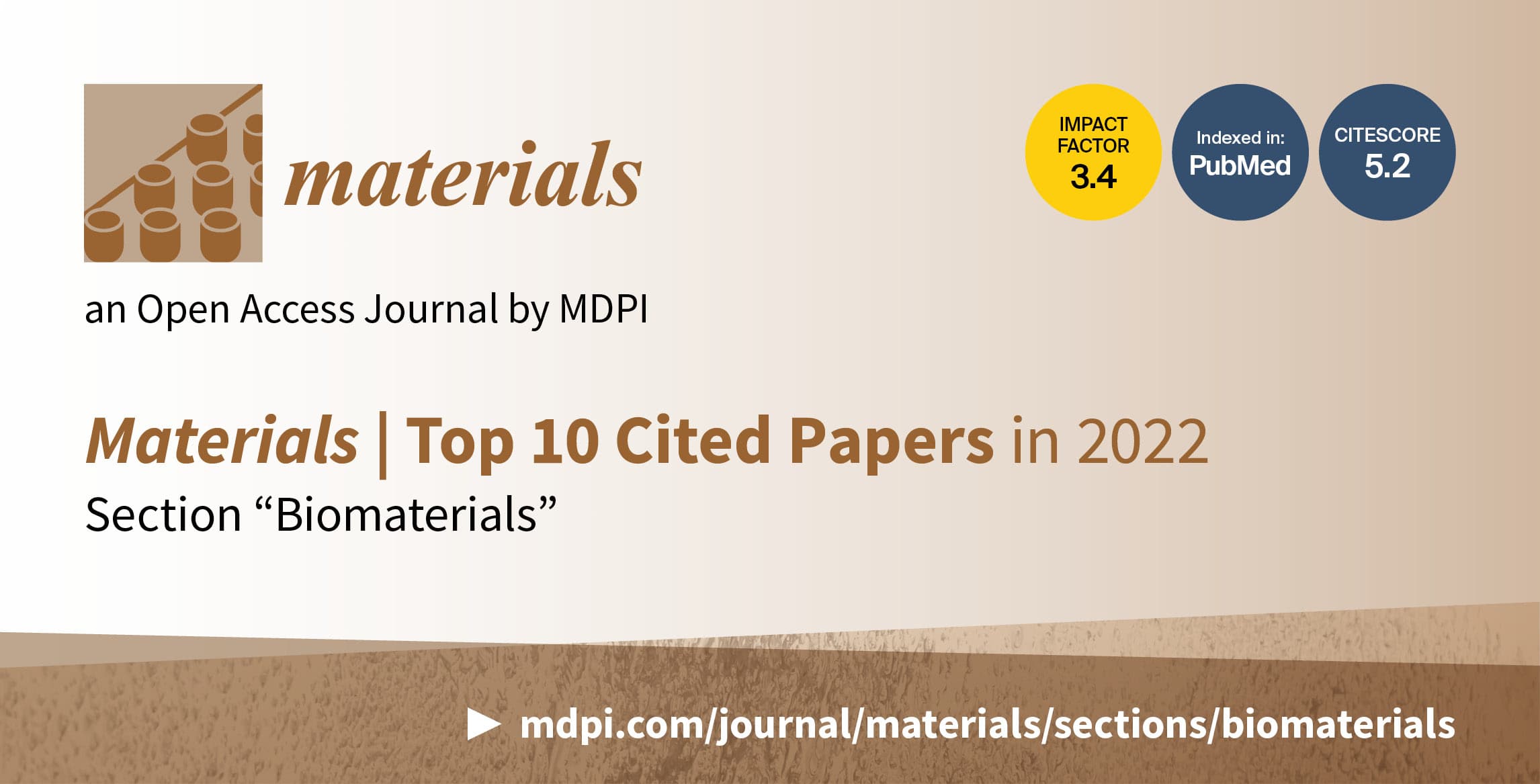
We are pleased to invite you to read the top 10 cited papers from 2022 in Materials (ISSN: 1996-1944) in the Section “Biomaterials”. The paper list is as follows:
1. “Hemp Fibre Properties and Processing Target Textile: A Review”
by Malgorzata Zimniewska
Materials 2022, 15(5), 1901; https://doi.org/10.3390/ma15051901
Available online: https://www.mdpi.com/1996-1944/15/5/1901
2. “Synthesis and Potential Applications of Lipid Nanoparticles in Medicine”
by Ewelina Musielak, Agnieszka Feliczak-Guzik and Izabela Nowak
Materials 2022, 15(2), 682; https://doi.org/10.3390/ma15020682
Available online: https://www.mdpi.com/1996-1944/15/2/682
3. “Effects of Composite Attachments on Orthodontic Clear Aligners Therapy: A Systematic Review”
by Riccardo Nucera, Carolina Dolci, Angela Mirea Bellocchio, Stefania Costa, Serena Barbera, Lorenzo Rustico, Marco Farronato, Angela Militi and Marco Portelli
Materials 2022, 15(2), 533; https://doi.org/10.3390/ma15020533
Available online: https://www.mdpi.com/1996-1944/15/2/533
4. “A Review on Biomaterials for Orthopaedic Surgery and Traumatology: From Past to Present”
by Grzegorz Szczęsny, Mateusz Kopec, Denis J. Politis, Zbigniew L. Kowalewski, Adam Łazarski and Tomasz Szolc
Materials 2022, 15(10), 3622; https://doi.org/10.3390/ma15103622
Available online: https://www.mdpi.com/1996-1944/15/10/3622
5. “Bacterial Cellulose—A Remarkable Polymer as a Source for Biomaterials Tailoring”
by Lăcrămioara Popa, Mihaela Violeta Ghica, Elena-Emilia Tudoroiu, Diana-Georgiana Ionescu and Cristina-Elena Dinu-Pîrvu
Materials 2022, 15(3), 1054; https://doi.org/10.3390/ma15031054
Available online: https://www.mdpi.com/1996-1944/15/3/1054
6. “Peptide-Based Hydrogels: New Materials for Biosensing and Biomedical Applications”
by Roya Binaymotlagh, Laura Chronopoulou, Farid Hajareh Haghighi, Ilaria Fratoddi and Cleofe Palocci
Materials 2022, 15(17), 5871; https://doi.org/10.3390/ma15175871
Available online: https://www.mdpi.com/1996-1944/15/17/5871
7. “Hydroxyapatite Coating on Ti-6Al-7Nb Alloy by Plasma Electrolytic Oxidation in Salt-Based Electrolyte”
by Avital Schwartz, Alexey Kossenko, Michael Zinigrad, Yosef Gofer, Konstantin Borodianskiy and Alexander Sobolev
Materials 2022, 15(20), 7374; https://doi.org/10.3390/ma15207374
Available online: https://www.mdpi.com/1996-1944/15/20/7374
8. “Titanium Surface Modification for Implantable Medical Devices with Anti-Bacterial Adhesion Properties”
by Consuelo Celesti, Teresa Gervasi, Nicola Cicero, Salvatore Vincenzo Giofrè, Claudia Espro, Elpida Piperopoulos, Bartolo Gabriele, Raffaella Mancuso, Giovanna Lo Vecchio and Daniela Iannazzo
Materials 2022, 15(9), 3283; https://doi.org/10.3390/ma15093283
Available online: https://www.mdpi.com/1996-1944/15/9/3283
9. “Fungi in Mycelium-Based Composites: Usage and Recommendations”
by Maciej Sydor, Grzegorz Cofta, Beata Doczekalska and Agata Bonenberg
Materials 2022, 15(18), 6283; https://doi.org/10.3390/ma15186283
Available online: https://www.mdpi.com/1996-1944/15/18/6283
by Danijela Marovic, Matej Par, Matea Macan, Nikolina Klarić, Iva Plazonić and Zrinka Tarle
Materials 2022, 15(3), 902; https://doi.org/10.3390/ma15030902
Available online: https://www.mdpi.com/1996-1944/15/3/902
24 November 2023
Materials | Top 10 Cited Papers in 2022 in the Section “Polymeric Materials”
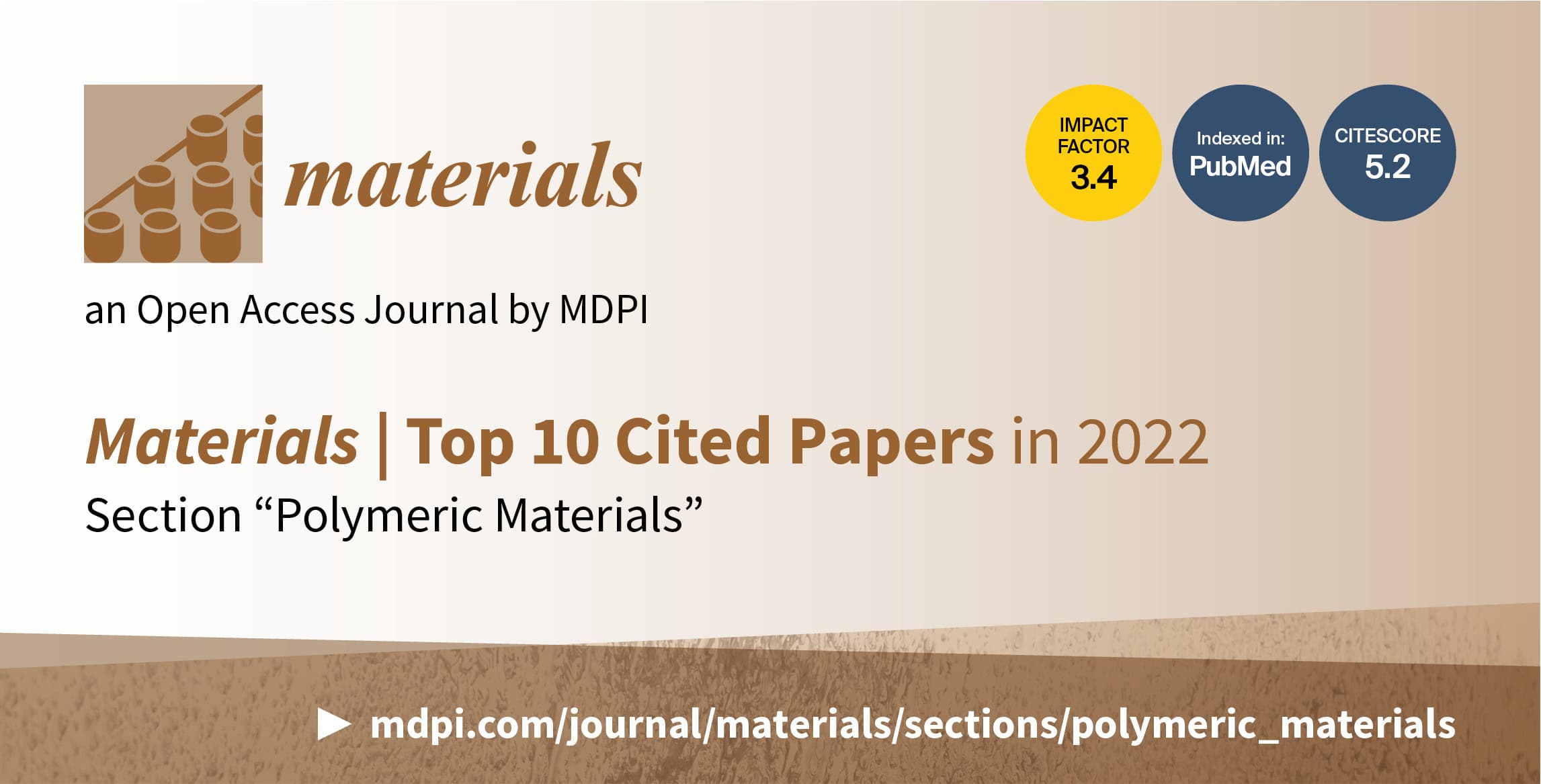
We are pleased to invite you to read the top 10 cited papers from 2022 in Materials (ISSN: 1996-1944) in the Section “Polymeric Materials”. The paper list is as follows:
1. “Environmental Impact of Surgical Masks Consumption in Italy Due to COVID-19 Pandemic”
by Antonella Cornelio, Alessandra Zanoletti, Stefania Federici, Luca Ciacci, Laura Eleonora Depero and Elza Bontempi
Materials 2022, 15(6), 2046; https://doi.org/10.3390/ma15062046
Available online: https://www.mdpi.com/1996-1944/15/6/2046
2. “Joule-Heating Effect of Thin Films with Carbon-Based Nanomaterials”
by Usha Kiran Sanivada, Dina Esteves, Luisa M. Arruda, Carla A. Silva, Inês P. Moreira and Raul Fangueiro
Materials 2022, 15(12), 4323; https://doi.org/10.3390/ma15124323
Available online: https://www.mdpi.com/1996-1944/15/12/4323
3. “A Novel Manufacturing Concept of LCP Fiber-Reinforced GPET-Based Sandwich Structures with an FDM 3D-Printed Core”
by Jacek Andrzejewski, Marcin Gronikowski and Joanna Aniśko
Materials 2022, 15(15), 5405; https://doi.org/10.3390/ma15155405
Available online: https://www.mdpi.com/1996-1944/15/15/5405
4. “The Use of Nanoscale Montmorillonite (MMT) as Reinforcement for Polylactide Acid (PLA) Prepared by Fused Deposition Modeling (FDM)—Comparative Study with Biocarbon and Talc Fillers”
by Jacek Andrzejewski, Mateusz Markowski and Mateusz Barczewski
Materials 2022, 15(15), 5205; https://doi.org/10.3390/ma15155205
Available online: https://www.mdpi.com/1996-1944/15/15/5205
5. “Preparation and Properties of Thermoplastic Polyurethane Composites Filled with Powdered Buckwheat Husks”
by Marcin Włoch and Paulina Landowska
Materials 2022, 15(1), 356; https://doi.org/10.3390/ma15010356
Available online: https://www.mdpi.com/1996-1944/15/1/356
6. “Effect of Chitosan Deacetylation on Its Affinity to Type III Collagen: A Molecular Dynamics Study”
by Piotr Bełdowski, Maciej Przybyłek, Alina Sionkowska, Piotr Cysewski, Magdalena Gadomska, Katarzyna Musiał and Adam Gadomski
Materials 2022, 15(2), 463; https://doi.org/10.3390/ma15020463
Available online: https://www.mdpi.com/1996-1944/15/2/463
7. “Fracture Load Predictions in Additively Manufactured ABS U-Notched Specimens Using Average Strain Energy Density Criteria”
by Marcos Sánchez, Sergio Cicero, Sergio Arrieta and Victor Martínez
Materials 2022, 15(7), 2372; https://doi.org/10.3390/ma15072372
Available online: https://www.mdpi.com/1996-1944/15/7/2372
8. “Additively Manufactured Composite Lug with Continuous Carbon Fibre Steering Based on Finite Element Analysis”
by Chethan Savandaiah, Stefan Sieberer and Georg Steinbichler
Materials 2022, 15(5), 1820; https://doi.org/10.3390/ma15051820
Available online: https://www.mdpi.com/1996-1944/15/5/1820
9. “Complicated Structure Change during Capillary Extrusion of Binary Blends of Polycarbonate and Poly(methyl methacrylate)”
by Masayuki Yamaguchi, Kodai Nakamura, Takeyoshi Kimura, Nantina Moonprasith, Takumitsu Kida, Kyoko Tsubouchi, Takaaki Narita and Tatsuhiro Hiraoka
Materials 2022, 15(8), 2783; https://doi.org/10.3390/ma15082783
Available online: https://www.mdpi.com/1996-1944/15/8/2783
by Piia Jõul, Tran T. Ho, Urve Kallavus, Alar Konist, Kristiina Leiman, Olivia-Stella Salm, Maria Kulp, Mihkel Koel and Tiit Lukk
Materials 2022, 15(8), 2861; https://doi.org/10.3390/ma15082861
Available online: https://www.mdpi.com/1996-1944/15/8/2861
24 November 2023
Materials | Top 10 Cited Papers in 2022 in the Section “Energy Materials”
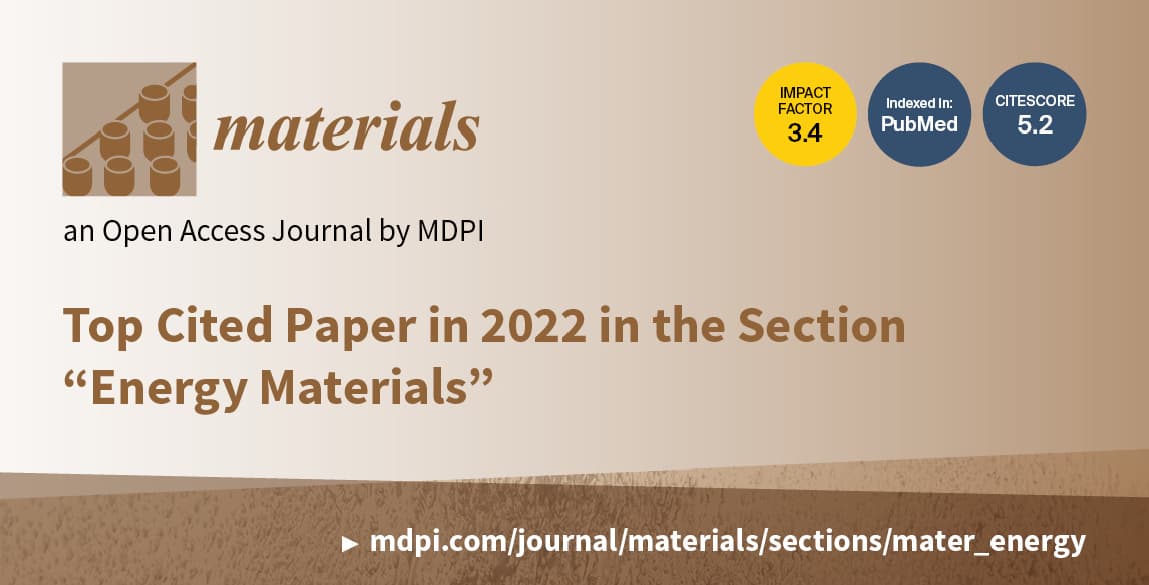
We are pleased to invite you to read the top 10 cited papers from 2022 in Materials (ISSN: 1996-1944) in the Section “Energy Materials”. The paper list is as follows:
1. “Photovoltaic Cell Generations and Current Research Directions for Their Development”
by Justyna Pastuszak and Paweł Węgierek
Materials 2022, 15(16), 5542; https://doi.org/10.3390/ma15165542
Available online: https://www.mdpi.com/1996-1944/15/16/5542
2. “Root Causes and Mechanisms of Failure of Wind Turbine Blades: Overview”
by Leon Mishnaevsky, Jr.
Materials 2022, 15(9), 2959; https://doi.org/10.3390/ma15092959
Available online: https://www.mdpi.com/1996-1944/15/9/2959
3. “Multi-Scale Modeling of Plastic Waste Gasification: Opportunities and Challenges”
by Sepehr Madanikashani, Laurien A. Vandewalle, Steven De Meester, Juray De Wilde and Kevin M. Van Geem
Materials 2022, 15(12), 4215; https://doi.org/10.3390/ma15124215
Available online: https://www.mdpi.com/1996-1944/15/12/4215
4. “Recent Advances on Thermoelectric Silicon for Low-Temperature Applications”
by Dario Narducci and Federico Giulio
Materials 2022, 15(3), 1214; https://doi.org/10.3390/ma15031214
Available online: https://www.mdpi.com/1996-1944/15/3/1214
5. “Hydrogen Generation by Hydrolysis of MgH2-LiH Composite”
by Xiaojuan Wu, Huaqing Xue, Yong Peng, Jifeng Deng, Zewei Xie, Jie Zheng, Xingguo Li and Shuan Li
Materials 2022, 15(4), 1593; https://doi.org/10.3390/ma15041593
Available online: https://www.mdpi.com/1996-1944/15/4/1593
6. “Smart Materials Prediction: Applying Machine Learning to Lithium Solid-State Electrolyte”
by Qianyu Hu, Kunfeng Chen, Fei Liu, Mengying Zhao, Feng Liang and Dongfeng Xue
Materials 2022, 15(3), 1157; https://doi.org/10.3390/ma15031157
Available online: https://www.mdpi.com/1996-1944/15/3/1157
7. “Towards Replacing Titanium with Copper in the Bipolar Plates for Proton Exchange Membrane Water Electrolysis”
by Andrea Kellenberger, Nicolae Vaszilcsin, Delia Duca, Mircea Laurentiu Dan, Narcis Duteanu, Svenja Stiber, Tobias Morawietz, Indro Biswas, Syed Asif Ansar, Pawel Gazdzicki et al.
Materials 2022, 15(5), 1628; https://doi.org/10.3390/ma15051628
Available online: https://www.mdpi.com/1996-1944/15/5/1628
8. “Complex Metal Borohydrides: From Laboratory Oddities to Prime Candidates in Energy Storage Applications”
by Cezar Comanescu
Materials 2022, 15(6), 2286; https://doi.org/10.3390/ma15062286
Available online: https://www.mdpi.com/1996-1944/15/6/2286
9. “Evolution of Intrinsic and Extrinsic Electron Traps at Grain Boundary during Sintering ZnO Based Varistor Ceramics”
by Pengkang Xie, Ziyue Wang and Kangning Wu
Materials 2022, 15(3), 1098; https://doi.org/10.3390/ma15031098
Available online: https://www.mdpi.com/1996-1944/15/3/1098
10. “Analysis of the Embodied Energy and CO2 Emissions of Ready-Mixed Concrete: A Case Study in Cuenca, Ecuador”
by Karla Vázquez-Calle, Vanessa Guillén-Mena and Felipe Quesada-Molina
Materials 2022, 15(14), 4896; https://doi.org/10.3390/ma15144896
Available online: https://www.mdpi.com/1996-1944/15/14/4896
21 November 2023
769 Editorial Board Members of MDPI Journals Achieve Highly Cited Researcher Recognition in 2023

We extend our sincere congratulations to the 769 Editorial Board Members of our journals – from 40 different countries/territories – who have been recognized as Highly Cited Researchers for the year 2023 by Clarivate. They are being recognized for their high-quality scientific research achievements and outstanding contributions to their professional fields, as indicated by Web of Science data.
Clarivate's annual list of Highly Cited ResearchersTM identifies the most highly cited scientists for the past decade who stand out for their significant and broad influence in various scientific and social science domains. Their impactful papers are among the top 1 per cent in the citation distribution of one or more of 21 fields analyzed in the "Essential Science Indicators", distinguishing them as hugely influential among their peers.
This year, 7,125 Highly Cited Researcher 2023 designations were issued to 6,849 individuals from 67 countries, representing just 1 in 1,000 researchers worldwide.
This means that these researchers have demonstrated an incredible level of significant and broad influence in their chosen field or fields over the last decade. They represent a small fraction of the researcher population whose contributions disproportionately push the boundaries of knowledge, enhancing global well-being, sustainability, and security.
Congratulations to the scholars for their noteworthy achievement – we are honored to have them on board with our journals!
|
Abate, Antonio |
Jaiswal, Amit K. |
Shen, Zexiang |
17 November 2023
Materials | Top 10 Cited Papers in 2022 in the Section “Advanced Nanomaterials and Nanotechnology”
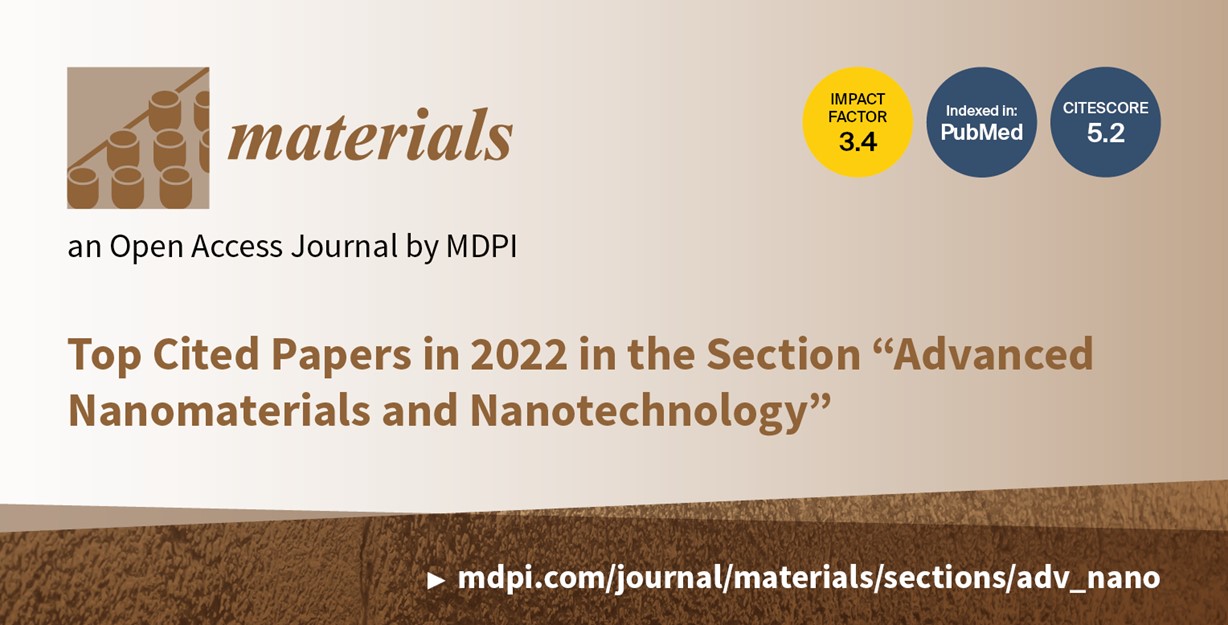
We are pleased to invite you to read the top 10 cited papers in 2022 in Materials (ISSN: 1996-1944) in the Section “Advanced Nanomaterials and Nanotechnology”. The paper list is as follows:
1. “Treasure on the Earth—Gold Nanoparticles and Their Biomedical Applications”
by Justyna Milan, Klaudia Niemczyk and Małgorzata Kus-Liśkiewicz
Materials 2022, 15(9), 3355; https://doi.org/10.3390/ma15093355
Available online: https://www.mdpi.com/1996-1944/15/9/3355
2. “Preparation and Characterization of Doxycycline-Loaded Electrospun PLA/HAP Nanofibers as a Drug Delivery System”
by Noémi-Izabella Farkas, Laura Marincaș, Réka Barabás, Liliana Bizo, Aranka Ilea, Graziella Liana Turdean, Monica Toșa, Oana Cadar and Lucian Barbu-Tudoran
Materials 2022, 15(6), 2105; https://doi.org/10.3390/ma15062105
Available online: https://www.mdpi.com/1996-1944/15/6/2105
3. “Lubricity and Rheological Properties of Highly Dispersed Graphite in Clay-Water-Based Drilling Fluids”
by Quande Wang, Michal Slaný, Xuefan Gu, Zhipeng Miao, Weichao Du, Jie Zhang and Chen Gang
Materials 2022, 15(3), 1083; https://doi.org/10.3390/ma15031083
Available online: https://www.mdpi.com/1996-1944/15/3/1083
4. “Green Synthesis of Stable Spherical Monodisperse Silver Nanoparticles Using a Cell-Free Extract of Trichoderma reesei”
by Orlin Gemishev, Marinela Panayotova, Gospodinka Gicheva and Neli Mintcheva
Materials 2022, 15(2), 481; https://doi.org/10.3390/ma15020481
Available online: https://www.mdpi.com/1996-1944/15/2/481
5. “A Brief Review: The Use of L-Ascorbic Acid as a Green Reducing Agent of Graphene Oxide”
by Mariano Palomba, Gianfranco Carotenuto and Angela Longo
Materials 2022, 15(18), 6456; https://doi.org/10.3390/ma15186456
Available online: https://www.mdpi.com/1996-1944/15/18/6456
6. “Carbon Nanomaterials (CNMs) and Enzymes: From Nanozymes to CNM-Enzyme Conjugates and Biodegradation”
by Petr Rozhin, Jada Abdel Monem Gamal, Silvia Giordani and Silvia Marchesan
Materials 2022, 15(3), 1037; https://doi.org/10.3390/ma15031037
Available online: https://www.mdpi.com/1996-1944/15/3/1037
7. “Comparison of Pressure Sensing Properties of Carbon Nanotubes and Carbon Black Polymer Composites”
by Jongchan Yoo, Dong-Young Kim, Hyunwoo Kim, Oh-Nyoung Hur and Sung-Hoon Park
Materials 2022, 15(3), 1213; https://doi.org/10.3390/ma15031213
Available online: https://www.mdpi.com/1996-1944/15/3/1213
8. “The In Situ Hydrothermal and Microwave Syntheses of Zinc Oxides for Functional Cement Composites”
by Izabela Klapiszewska, Adam Kubiak, Anna Parus, Marcin Janczarek and Agnieszka Ślosarczyk
Materials 2022, 15(3), 1069; https://doi.org/10.3390/ma15031069
Available online: https://www.mdpi.com/1996-1944/15/3/1069
9. “Assessment of TiO2 Nanoparticle Impact on Surface Morphology of Chinese Hamster Ovary Cells”
by Danute Batiuskaite, Ingrida Bruzaite, Valentinas Snitka and Arunas Ramanavicius
Materials 2022, 15(13), 4570; https://doi.org/10.3390/ma15134570
Available online: https://www.mdpi.com/1996-1944/15/13/4570
10. “Recent Progress on Graphene Flexible Photodetectors”
by Mengzhu Wang, Yingying Xiao, Ye Li, Lu Han, Zhicheng Sun, Liang He, Ruping Liu and Kuan Hu
Materials 2022, 15(14), 4820; https://doi.org/10.3390/ma15144820
Available online: https://www.mdpi.com/1996-1944/15/14/4820
3 November 2023
Materials 2023 Best Paper Awards—Winners Announced
We are pleased to announce the winners of the Materials 2023 Best Paper Awards. All the papers published in Materials (ISSN: 1996-1944) from 1 January 2021 to 31 December 2021 were considered. After a thorough evaluation of the originality and significance of the papers and citation and download data, 3 articles and 3 reviews were selected.
Articles:
First Prize: CHF 500, a certificate, plus the option to publish a paper free of charge in Materials before 1 October 2024 after peer review
“A Stretchable, Self-Healable Triboelectric Nanogenerator as Electronic Skin for Energy Harvesting and Tactile Sensing”
by Xi Han, Dongjie Jiang, Xuecheng Qu, Yuan Bai, Yu Cao, Ruizeng Luo and Zhou Li
Materials 2021, 14(7), 1689; https://doi.org/10.3390/ma14071689
Second Prize: CHF 300, a certificate, plus the option to publish a paper free of charge in Materials before 1 October 2024 after peer review
“High UV and Sunlight Photocatalytic Performance of Porous ZnO Nanostructures Synthesized by a Facile and Fast Microwave Hydrothermal Method”
by Sofia Henriques Ferreira, Maria Morais, Daniela Nunes, Maria João Oliveira, Ana Rovisco, Ana Pimentel, Hugo Águas, Elvira Fortunato and Rodrigo Martins
Materials 2021, 14(9), 2385; https://doi.org/10.3390/ma14092385
Third Prize: CHF 200, a certificate, plus the option to publish a paper free of charge in Materials before 1 October 2024 after peer review
“Behaviour and Properties of Eco-Cement Pastes Elaborated with Recycled Concrete Powder from Construction and Demolition Wastes”
by Laura Caneda-Martínez, Manuel Monasterio, Jaime Moreno-Juez, Sagrario Martínez-Ramírez, Rosario García and Moisés Frías
Materials 2021, 14(5), 1299; https://doi.org/10.3390/ma14051299
Reviews:
First Prize: CHF 500, a certificate, plus the option to publish a paper free of charge in Materials before 1 October 2024 after peer review
“Current Trends in Automotive Lightweighting Strategies and Materials”
by Frank Czerwinski
Materials 2021, 14(21), 6631; https://doi.org/10.3390/ma14216631
Second Prize: CHF 300, a certificate, plus the option to publish a paper free of charge in Materials before 1 October 2024 after peer review
“Antioxidants: Classification, Natural Sources, Activity/Capacity Measurements, and Usefulness for the Synthesis of Nanoparticles”
by Jolanta Flieger, Wojciech Flieger, Jacek Baj and Ryszard Maciejewski
Materials 2021, 14(15), 4135; https://doi.org/10.3390/ma14154135
Third Prize: CHF 200, a certificate, plus the option to publish a paper free of charge in Materials before 1 October 2024 after peer review
“Charge Carrier Processes and Optical Properties in TiO2 and TiO2-Based Heterojunction Photocatalysts: A Review”
by Stefano Lettieri, Michele Pavone, Ambra Fioravanti, Luigi Santamaria Amato and Pasqualino Maddalena
Materials 2021, 14(7), 1645; https://doi.org/10.3390/ma14071645
Please join us in congratulating the winners of the Materials 2023 Best Paper Awards. We would also like to take this opportunity to thank all of our authors for their continued support.
For more information about the awards presented by Materials, please visit the following link: https://www.mdpi.com/journal/materials/awards.
1 November 2023
MDPI Insights: The CEO’s Letter #5 - OA Week, UK, and Strategy

Welcome to the MDPI Insights: The CEO's Letter.
In these monthly letters, I will showcase two key aspects of our work at MDPI: our commitment to empowering researchers and our determination to facilitating open scientific exchange.
Opening Thoughts

Open Access Week 2023 – the Global Drive to Open Continues
As the world's largest open-access (OA) publisher, we believe that unrestricted access to research findings is the cornerstone of transparency, efficiency, and quality control across scientific disciplines. At MDPI, we provide free, immediate access to scientific papers, empowering scientists to examine, validate, replicate, and build upon existing results. This minimizes redundancy, optimizes resources, and fosters innovative approaches.
International OA Week, held from 23 to 29 October 2023, provided a unique opportunity to link the global movement toward open sharing and open science with the progress of policy changes at the local level. Our mission, during OA Week and all the year round, is to offer educational resources highlighting the benefits of open-access publishing. The MDPI Blog is a valuable resource for information on open access and open science.
Core principles of OA publishing
Accessibility, transparency, and collaboration are core principles of OA publishing. OA aims to break down barriers that have traditionally restricted research access, ensuring that knowledge is available to all, regardless of financial situation or institutional affiliations. Our commitment to diverse pathways for OA publishing worldwide includes discounts for researchers. You can learn more about how MDPI supports scientific communities here.
One of the key strengths of OA publishing is its ability to facilitate interdisciplinary research. By removing paywalls and promoting knowledge-sharing across disciplines, OA encourages collaboration and innovation. Researchers from various fields can access and build upon each others’ work, fostering a holistic approach to addressing complex global challenges.
OA holds the potential to democratize knowledge, advance science, and drive positive societal change.
Policy driving change
Governments, institutions, and funding agencies have recognized the transformative potential of OA and have implemented policies to promote it. These policies often require publicly funded research to be made openly accessible, accelerating the growth of OA repositories and journals. Check out our spotlights on OA policies in the US, EU and China.
OA publishing is continuously evolving, with community-driven models and technologies shaping its future. Initiatives such as “Plan S” and “cOAlition S” promote OA publishing from the perspective of national funders, requiring grantees to publish their research openly. A new policy announced by the US administration last year mandates that, with effect from January 2026, all US federally funded research should be freely and immediately available after publication.
Additionally, preprint servers such as MDPI's Preprints.org, which allow researchers to share their findings before formal peer review, have gained popularity, enhancing the speed at which new knowledge is disseminated. The rise of blockchain technology is also being explored to ensure transparency and authenticity in scholarly publishing.
For more than two decades, OA publishing has been revolutionizing academic publishing by promoting accessibility, transparency, and collaboration. Its support for interdisciplinary research, evolving policies, and innovative practices all contribute to its growing influence in the global research community. As OA continues to expand, it holds the potential to democratize knowledge, advance science, and drive positive societal change.
MDPI is proud to lead the transition to open access.
Read more:
Impactful Research

Spotlight on Smart Cities
Smart cities will serve as a cornerstone for future human development. Their implementation will help us tackle many of the significant challenges we are facing – climate change, ageing populations, waste management, public safety, travel, and so on. Recognising the importance of this multifaceted field, MDPI launched the inaugural issue of Smart Cities in 2018 to provide an advanced forum for research into smart technology and society. Here we take a look at how this journal has developed, and its impact in this exciting field.
As at 30 October, 2023, Smart Cities has published 421 papers and has an Impact Factor of 6.4. It also has a CiteScore of 8.5, and more than one quarter of its published papers – 124 – have been cited 10 times or more.
Highly cited papers in Smart Cities
Below are several highly cited papers recently published in Smart Cities. Citation metrics are current as at 31 October 2023.
1. “Introducing the “15-Minute City”: Sustainability, Resilience and Place Identity in Future Post-Pandemic Cities”
Authors: Carlos Moreno, Zaheer Allam, Didier Chabaud, Catherine Gall and Florent Pratlong
Smart Cities 2021, 4(1), 93-111; https://doi.org/10.3390/smartcities4010006
Citations: Crossref (338), Scopus (366), Web of Science (270), Google Scholar (710)
The paper discusses the socio-economic impacts of the COVID-19 on cities, including increasing inequalities and rising unemployment. It introduces the concept of the "15-Minute City," a form of "chrono-urbanism," as a response to the challenges posed by the pandemic.
2. “A Review on Electric Vehicles: Technologies and Challenges”
Authors: Julio A. Sanguesa, Vicente Torres-Sanz, Piedad Garrido, Francisco J. Martinez and Johann M. Marquez-Barja
Smart Cities 2021, 4(1), 372-404; https://doi.org/10.3390/smartcities4010022
Citations: Crossref (359), Scopus (363), Web of Science (268), Google Scholar (558)
This paper provides an overview of the progress in Electric Vehicles (EVs), focusing on battery technology, charging methods, and emerging research challenges. It also analyzes the global EV market and its future outlook.
3. “IoT in Smart Cities: A Survey of Technologies, Practices and Challenges”
Authors: Abbas Shah Syed, Daniel Sierra-Sosa, Anup Kumar and Adel Elmaghraby
Smart Cities 2021, 4(2), 429-475; https://doi.org/10.3390/smartcities4020024
Citations: Crossref (121), Scopus (151), Web of Science (91), Google Scholar (215)
This paper gives an overview of the Internet of Things (IoT) in the context of Smart Cities, discussing the fundamental components, technologies, architectures, networking technologies, and artificial algorithms that underpin IoT-based Smart City systems.
4. “Artificial Intelligence Techniques in Smart Grid: A Survey”
Authors: Olufemi A. Omitaomu and Haoran Niu
Smart Cities 2021, 4(2), 548-568; https://doi.org/10.3390/smartcities4020029
Citations: Crossref (76), Scopus (94), Web of Science (57), Google Scholar (120)
This survey paper reviews the utilization of artificial intelligence (AI) techniques in the context of the smart grid. It covers various applications of AI in load forecasting, power grid stability assessment, fault detection, and security issues in the smart grid and power systems.
5. “The Metaverse as a Virtual Form of Smart Cities: Opportunities and Challenges for Environmental, Economic, and Social Sustainability in Urban Futures”
Authors: Zaheer Allam, Ayyoob Sharifi, Simon Elias Bibri, David Sydney Jones and John Krogstie
Smart Cities 2022, 5(3), 771-801; https://doi.org/10.3390/smartcities5030040
Citations: Crossref (72), Scopus (75), Web of Science (43), Google Scholar (176)
This paper discusses the concept of the Metaverse, a virtual world introduced by Meta (formerly Facebook), and its potential impact on urban life. It explores how emerging technologies such as AI, Big Data, IoT, and Digital Twins could reshape urban design and services in the context of the Metaverse.
Testimonial
“It was indeed a great and pleasant experience with MDPI regarding our recent publication. The submission process was very straightforward and less time-consuming than the norm. The review process was very fast compared to many other open access journals, which is praiseworthy. The support from the Editorial Office during the revision process was highly useful as well. We look forward to publishing with MDPI in the future, and I will most definitely recommend MDPI to my colleagues and collaborators.” – Dr. Luís Rosa, University of Minho
Article in Smart Cities: Mobile Networks and Internet of Things Infrastructures to Characterize Smart Human Mobility
Inside MDPI

MDPI Manchester office, UK Visit

Allie Shi (Editorial Director, MDPI), Stefan Tochev (CEO, MDPI), Jamie Anderson (Manchester Office Manager, MDPI), Michael O’Sullivan (Senior Scientific Officer, MDPI), Hushneara Akhtar, and Becky Castellon (IOAP Team Lead, MDPI), dining out in Manchester, UK.
In October, I visited MDPI’s new office in Manchester. During the visit, I connected with our English Editing (EE) managers, Scientific Officer, members of the Editorial team, the Marketing team, and IOAP Team Lead.
Our Manchester office focuses primarily on EE services and provides local support for the UK market. Additionally, we regularly visit Editorial Board members and participate in local conferences.
I would like to thank Jamie Anderson, Manchester Office Manager, and her team, for their deep commitment to our Manchester staff and to MDPI’s impact on the UK market.
The UK by numbers
The UK is a hub for the world’s top universities, making it a key market for MDPI and the publishing world in general. It is home to two of the top-five-ranked universities globally, 11 in the top 100, and 15 in the top 200.
As a result, the UK plays a key role in MDPI’s global market. As at October 2023, it ranks as the seventh-largest contributor to the total number of papers published by MDPI. We have 3,500 Editorial Board members affiliated with UK institutions, including 34 serving as Editors-in-Chief (EiCs). Our commitment to collaboration with institutions is evident in the UK, where we have successfully established some 60 Institutional Open Access Program (IOAP) agreements with esteemed institutions, such as the University of Oxford, the University of Cambridge, Imperial College London, the University of Edinburgh, and more.
According to InCites Dataset + ESCI for the period 2018–2022, as at October 2023, nearly 65% of UK papers are now published as OA. Just over 10% of total OA publications are by UK authors. UK papers are known for their high quality, with an average of 11 citations per paper. Furthermore, 2.16% of UK papers are in the top 1% of cited papers, and 14.61% are in the top 10% of cited papers, showcasing their impact.
We are currently hiring EEs in various locations worldwide.
English Editing at MDPI
Our English Editing (EE) department consists of two main branches, Quality Control and Learning and Development, reflecting our priorities. We are continuously enhancing the quality of our English Editing services and have raised the relevant standards, which now extend to company-wide communications. English editors participate in international interviews, conduct English assessments, and provide colleagues with presentations on ways to improve their use of written and spoken English.
While expanding, the EE department has proactively refocused its efforts on the quality of our work and how the English Editing department can benefit the company more broadly. We currently have approximately 140 full-time English Editors based across five offices worldwide, supplemented by over 700 freelance English editors.
Our Manchester office serves as the hub for the EE Department, with EE Managers situated there, except for Kurtis Jackson, who serves as the Head of EE and is located in our Basel office. Manchester EEs play a critical role in establishing and developing EE teams in our other offices, overseeing management and recruitment. The EE department plays a vital role in MDPI’s operations, as it is the department that touches every published paper. If this work interests you, I encourage you to explore our available EE positions, whether you are seeking full-time or freelance opportunities.
Testimonials
“MDPI provides an excellent service compared to any other previously used services. It delivers fast and high-quality results but at an affordable price.” – Ardha Apriyanto, University of Potsdam
“In my role as a professor, I consider that MDPI Author Services offer an excellent quality in the editing of Western academic writing while maintaining the required standards of clarity, precision and rigor. Additionally, delivery times are fast compared to other available services.” – Jesus Insuasti, University of Nariño
Read more:
Coming Together for Science

STM and Frankfurt Book Fair
Attending STM
MDPI has been a proud sponsor of the STM Conference for several years. The STM Conference is a dynamic event featuring interactive sessions, expert panellists, idea-sharing, and ample networking opportunities. On 16 October, the event kicked off with arrival drinks, sponsored by MDPI, followed by a welcoming dinner, providing a great chance to connect and network with industry professionals. The following day was filled with speakers, sessions, and further opportunities to connect. STM exemplifies the collaborative spirit of the scientific community, with session topics including achieving open, visible, and impactful research at scale; maintaining research integrity in a rapidly changing world; and exploring the impact of ever-evolving technology in the scholarly community.
Meeting with Web of Science
On a personal note, one of the highlights of STM was a candid and productive conversation with Nandita Quaderi, Editor-in-Chief and SVP at Web of Science. During our discussion, we talked about MDPI, Web of Science, the IJERPH delisting, and ways of moving forward. This open conversation aimed at fostering better collaboration for the future.
“We discussed ways to improve our communication and collaboration.”
I appreciated our frank discussion and felt that Nandita wholeheartedly supports open access. She also expressed her appreciation for the monthly CEO Letter, which she sees as a way to add personality to the MDPI brand and provide insight into the great work we do at MDPI. While we highlighted the positives, we also discussed ways to improve our communication and collaboration moving forward. This meeting alone made the trip worthwhile, and I hope Nandita doesn’t mind my sharing that she found our chat to be “the most honest and constructive discussion” she’s had with someone from MDPI in recent years.
75th Frankfurt Book Fair

Jelena Milojevic (Book Editor, MDPI), Jovana Dubajic (Book Editor, MDPI), Evan Escamilla (Project Manager, MDPI), Laura Wagner (Head of Books, MDPI), and Jenny Knowles (Commissioning Editor, MDPI), at the Frankfurt Book Fair in Frankfurt am Main, Germany.
For the 75th time, the Frankfurter Buchmesse opened its doors in October to celebrate exciting stories and their authors. If you haven’t yet had the chance to visit the Frankfurt Book Fair, I highly recommend it. It’s the largest book fair in the world, attracting thousands of visitors from around the globe. This is the place to gain valuable industry insights from top-class publishing professionals, connect with publishers directly, and learn about the latest trends in publishing.
MDPI Books
Our Books team was also present at the Frankfurt Book Fair, networking and learning from various panels. Did you know that our MDPI Books department publishes OA Books?
The book publishing program includes monographs, book series, edited books and reprints of special issues and topical collections, among other book types.
If you have a book proposal you would like to discuss, please feel free to contact our Books team to understand the benefits and methods of publishing your next book with the OA model.
Closing Thoughts

MDPI Strategy Meeting
As the newly appointed CEO, this is my first year leading the MDPI Senior Management Strategy session. I saw it as an opportunity to explore what MDPI has the potential to become in the next five years. Guided by the vision of its founder and President, Dr. Shu-kun Lin, the company has accomplished remarkable feats over the past 27 years and currently holds the position as the world’s third-largest academic publisher, following Springer Nature and Elsevier.
Our primary objective is to build upon the milestones of the past decades and consolidate MDPI’s position as well-established publishing brand. The two-day meeting emphasized the importance of communicating MDPI’s values more actively via its brand and adopting a straightforward yet impactful approach to managing MDPI as a mature academic publisher.
“Our primary objective is to consolidate MDPI’s position as well-established publishing brand”
As the world’s number one open-access publisher, MDPI has long been a game-changer in the scholarly community, serving millions of authors. The challenge in being a trailblazer is the need to continuously improve and at the same time explore the next blue-ocean strategy, while also maintaining the smooth operation of the business. Our collection model, featuring guest-curated thematic topics in the form of Special Issues, has disrupted the industry. Other publishers closely study us and attempt to replicate our models. The future of this collection model is something we are actively addressing – while, of course, looking ahead to what comes next!
Chief Executive Officer
MDPI AG
20 October 2023
Prof. Dr. Patricia Krawczak Appointed Associate Editor of Section “Manufacturing Processes and Systems” in Materials
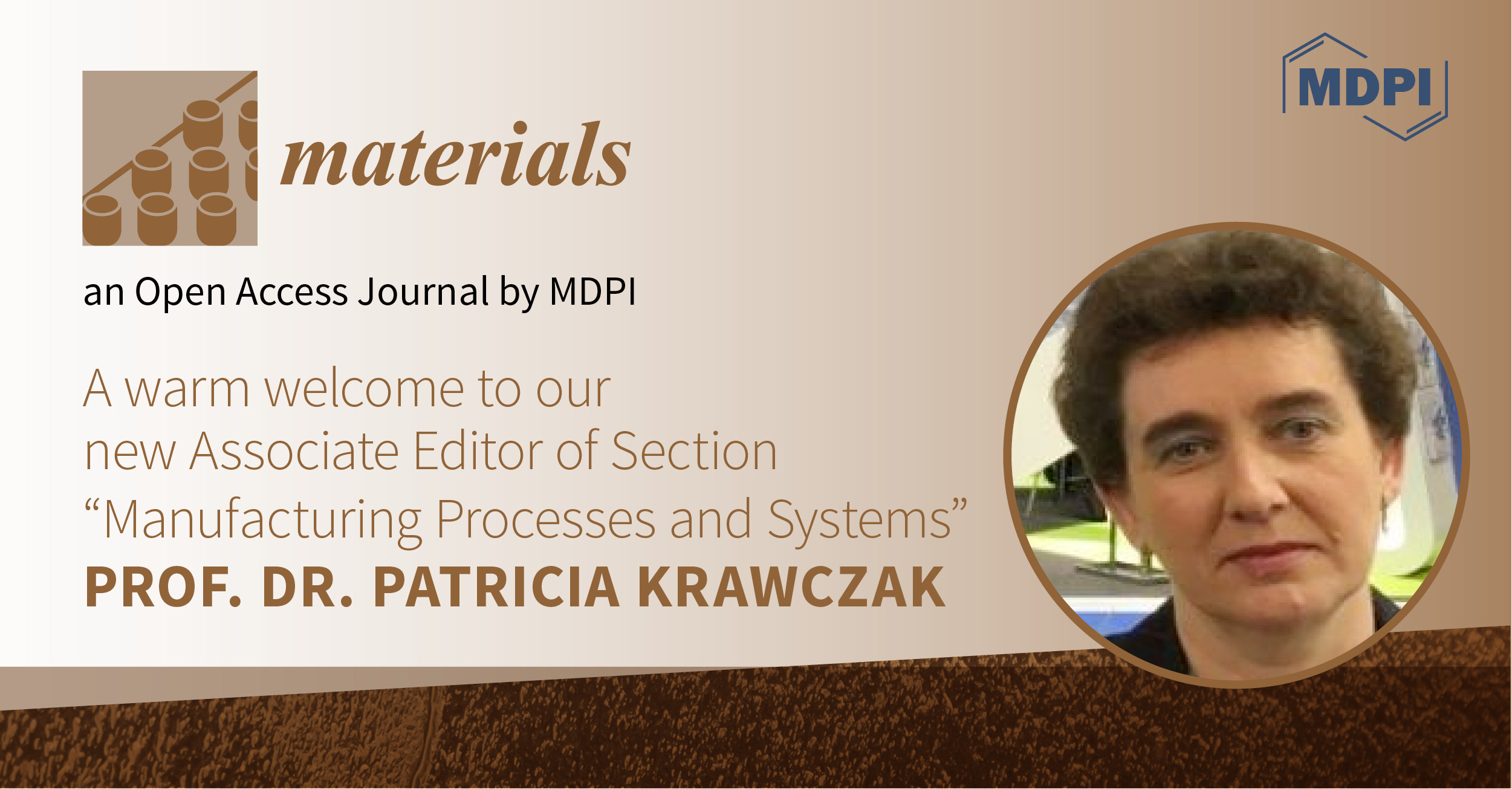
We are pleased to announce that Prof. Dr. Patricia Krawczak has been appointed Associate Editor of the Section “Manufacturing Processes and Systems” in Materials (ISSN: 1996-1944). We wish Prof. Dr. Patricia Krawczak every success in her new position, and we look forward to her contributions to the journal.
Name: Prof. Dr. Patricia Krawczak
Affiliation: IMT Nord Europe, Institut Mines-Télécom, Centre for Materials and Processes, Douai, France
Homepage: https://recherche.imt-nord-europe.fr/personnel/krawczak-patricia/
Interests: advanced composites; polymer composites; composites manufacturing and properties; polymer processing and properties; advanced manufacturing; additive manufacturing and 3D printing; structural health monitoring; recycling; bio-based polymers and composites
Prof. Dr. Patricia Krawczak is a Full Professor at IMT Nord Europe, Douai, France, a top-level graduate school of the engineering and research center affiliated with Institut Mines-Télécom (IMT), the number-one public group of engineering and management graduate schools in France. After having managed the research and education department “Polymers and Composites Technology & Mechanical Engineering” (TPCIM) of IMT Nord Europe for almost 20 years (2000–2019), she has been in charge of the strategic program “Technology Platforms” of the Institut Mines-Télécom (IMT), Palaiseau, France, since 2019.
Prof. Dr. Patricia Krawczak graduated from the engineering graduate school Mines Douai, France, with an engineering degree (1989) and from the University of Lille, France, with a master's degree (1990), a doctor's degree (1993) and postdoctoral habilitation degree (1999). She has co-authored over 400 journal or conference publications and book chapters and is ranked as one of the top 2% of scientists in the world (2021 and 2022 data updates compiled by scientists from Stanford University).
Prof. Dr. Patricia Krawczak is a member of the Management Board of the French Society of Plastics Engineers (SFIP) and a member of the Scientific and Strategic Advisory Board of the French Technical Center for Plastics and Composites (IPC). She is also Knight of the National Order of Academic Palms (decoration for valuable services to the universities in education and teaching) and Knight of the National Order of the Legion of Honor (highest French order of merit, decoration for public service and professional activity with eminent merits).
We are honored to have the opportunity to introduce Prof. Dr. Patricia Krawczak to our editorial team, and we are confident that, with her guidance as our new Associate Editor, we will continue to improve the reputation and quality of Materials.
19 October 2023
Open Access Week 2023 – the Global Drive to Open Continues

MDPI has been a strong proponent of the open access publishing model right from the beginning. As one of the pioneering fully open access publishers, we firmly believe that unrestricted access to research findings forms the foundation for better transparency, efficiency, and quality control across all scientific disciplines.
In December 2022, we reached a significant milestone by surpassing one million articles published. That is one million articles freely available to all, to circulate and build upon!
Offering free and immediate access to scientific papers empowers scientists to examine, validate, replicate, and expand upon existing results. This not only helps prevent redundancy and optimizes how resources are used but also paves the way for innovative new approaches.
The International Open Access Week takes place from 23 to 29 October 2023, providing a unique opportunity to connect the global movement towards open sharing and open science with the progress of policy transformations at the local level.
Our goal, during Open Access Week as well as throughout the year, is to offer resources for educating people about the benefits of open access publishing. The MDPI Blog offers a wealth of information around open access and open science.
Promoting the values of accessibility, transparency, and collaboration
Open access publishing embodies the fundamental values of democratizing knowledge and fostering global accessibility. It aims to break down barriers that have traditionally limited access to scholarly work, ensuring that knowledge is available to all, regardless of their financial or institutional affiliations.
Discounts are part of our commitment to ensuring there are diverse pathways to Open Access publishing for researchers worldwide. MDPI supports scientific communities in several different ways.
One of the key strengths of open access publishing lies in its ability to facilitate interdisciplinary research. By removing paywalls and promoting the sharing of knowledge across disciplines, OA encourages collaboration and innovation. Researchers from diverse fields can access and build upon each other's work, fostering a holistic approach to addressing complex global challenges.
Funders' policies are getting aligned with open science
Governments, institutions, and funding agencies have recognized the transformative potential of open access and have implemented policies to promote it. These policies often mandate that publicly funded research should be made openly accessible. Such initiatives have accelerated the growth of open access repositories and journals, reinforcing the commitment to open access principles. Check our spotlights on OA policies in the US, EU and China.
Open access publishing is continually evolving, with innovative and community-driven models and technologies shaping its future. Initiatives like "Plan S" and "cOAlition S" promote the adoption of OA publishing from the national funders’ perspective by requiring grantees to publish their research openly. A new policy announced by the US administration last year requires that, as of January 2026, all US federally funded research be made freely and immediately available after publication.
Additionally, preprint servers such as MDPI's Preprints.org, which allow researchers to share their findings before formal peer review, have gained popularity, enhancing the speed at which new knowledge is disseminated. The rise of blockchain technology is also being explored to ensure transparency and authenticity in scholarly publishing.
For more than twenty years, open access scholarly publishing has been revolutionizing academia by promoting the values of accessibility, transparency, and collaboration. Its support for interdisciplinary research, evolving policies, and innovative practices all contribute to its growing influence in the global research community. As open access continues to expand, it holds the potential to democratize knowledge, advance science, and drive positive societal change.
MDPI is proud to be a leader in the transition to open access.
11 October 2023
Materials | Highly Cited Papers in 2021
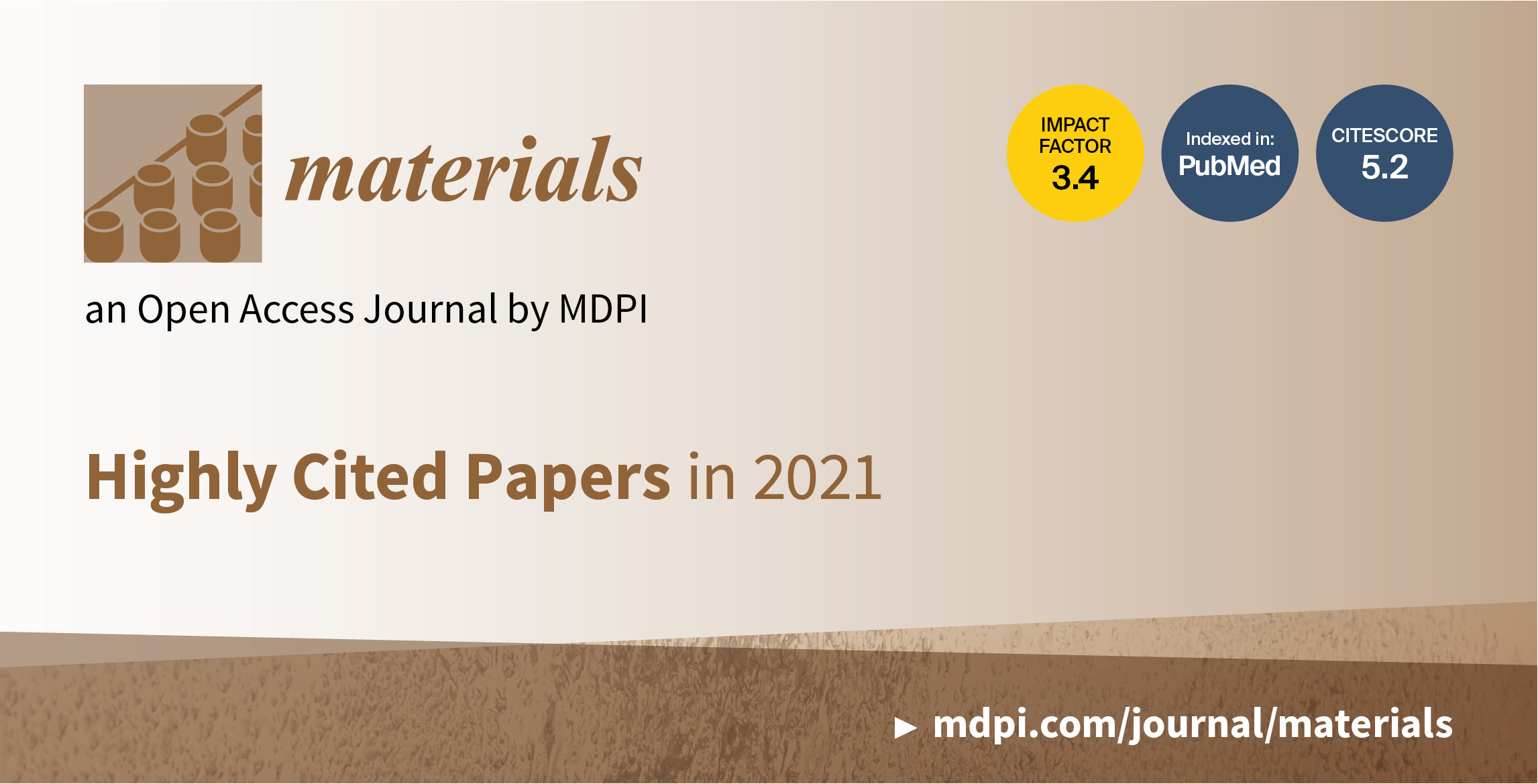
It is our great honor to present some of the more highly cited articles published by Materials (ISSN: 1996-1944) in 2021. We would like to take this opportunity to acknowledge the outstanding individuals and teams whose work inspires fellow researchers and profoundly influences the field of materials science. We welcome you to read these outstanding works listed below:
|
“An Injectable Chitosan-Based Self-Healable Hydrogel System as an Antibacterial Wound Dressing” |
|
“Current Trends in Automotive Lightweighting Strategies and Materials” |
|
“Additively Manufactured Zirconia for Dental Applications” |
|
“A Stretchable, Self-Healable Triboelectric Nanogenerator as Electronic Skin for Energy Harvesting and Tactile Sensing” |
|
“Additive Manufacturing Processes in Medical Applications” |
|
“Behaviour and Properties of Eco-Cement Pastes Elaborated with Recycled Concrete Powder from Construction and Demolition Wastes” |
|
“Antioxidants: Classification, Natural Sources, Activity/Capacity Measurements, and Usefulness for the Synthesis of Nanoparticles” |
|
“Charge Carrier Processes and Optical Properties in TiO2 and TiO2-Based Heterojunction Photocatalysts: A Review” |
|
“Properties and Classification of Diamond-Like Carbon Films” |
|
“Thermal Conductivity and Viscosity: Review and Optimization of Effects of Nanoparticles” |
2 October 2023
MDPI Insights: The CEO’s Letter #4 - MDPI Presence in China

Welcome to the MDPI Insights: The CEO's Letter.
In these monthly letters, I will showcase two key aspects of our work at MDPI: our commitment to empowering researchers and our determination to facilitating open scientific exchange.
Opening Thoughts

Open Access in China
It is Saturday, 23 September, and I have just returned from an unforgettable 12-day trip to China, visiting our main offices in Beijing and Wuhan. In the wake of a packed and very enjoyable agenda of internal and external meetings, I would like to use this edition of the CEO Letter to showcase how MDPI supports the scholarly community in China.
Coincidentally, Jack McKenna, Communications Associate from MDPI’s corporate content team, has just released a blog article discussing China’s open access (OA) policy. It is a timely read, providing a concise overview of the development of the OA movement in China and reflecting on its future. I shall draw some content from Jack’s piece and use this edition of the CEO Letter to highlight the various ways in which MDPI is involved in this market. And it would be remiss of me not to include some pictures and highlights from my travels!
Open Access Policy in China
As per Jack’s post, in 2020, China became the world’s leading producer of research articles. Today, China is experiencing a “substantial growth rate in OA [Open Access] publication”. This growth is supported by the State’s commitment to research & development and its policy “requiring the promotion of open science”.
Over the past two decades, there have been gradual developments in China’s OA framework, with repositories and platforms being developed in a consistent manner. Currently, key institutions across China – including the National Science Library, the National Science and Technology Library, and the Natural Science Foundation of China – support OA. The State aims to establish consistent policies across government agencies – a framework for a more encompassing embrace of OA across institutions.
In China, the number of subscription-only articles decreased by nearly 30% over the 10-year period of 2011–2021, while gold OA increased by 22%. Between 2017 and 2020 alone, China published 800,921 academic papers in an OA format.
In 2023, as the leading publisher of academic research, China is pursuing “self-reliance”. Therefore, the State will be establishing consistent policies across government agencies, including those related to OA. Additionally, it will want to ensure that Chinese people can access the research that is supported by Chinese funding and produced by Chinese academics. For this reason, “Open Access is a matter of priority in China”.
MDPI Offices in China
While the history of MDPI begins in Basel, Switzerland, the story of MDPI’s founder is very much rooted in China. Dr. Shu-kun Lin, Founder and President of MDPI, graduated with a BSc from Wuhan University in 1982. He also studied physical chemistry at the Lanzhou Institute of Chemical Physics, Chinese Academy of Sciences (1982–1986; MSc in 1985), and at the University of Louisville, USA (1987–1989). Dr. Lin completed his doctorate in organic chemistry at the Swiss Federal Institute of Technology (ETH-Zürich) in 1992.

Stefan Tochev (CEO, MDPI) at MDPI’s Wuhan office.
In 2002, MDPI’s Basel headquarters moved to Matthäusstrasse 11, 4052 Basel, and Dr. Lin opened an editorial office in Qingdao, China, which launched the journal Marine Drugs in the following year. Below is a list of MDPI’s current offices in China and their respective dates of inauguration:
- 2008: Beijing (Tongzhou, Haidian)
- 2013: Wuhan (Hankou, Guanggu)
- 2019: Tianjin
- 2021: Dalian
- 2021: Nanjing
Our Strength is in Our People
With over 6,000 MDPI staff, across 20 offices in 11 countries, MDPI is able to offer authors responsive and efficient round-the-clock support, enabling a rapid publication process.
In my experience, stakeholders are genuinely surprised when they realize the extent of our global operations. My response is to reiterate that our people are our strength. This is why we have fast and efficient processes and top-notch responsiveness. Our global presence ensures that your manuscript is constantly attended to, rather than sitting on someone’s desk. We prioritize our authors’ needs and act quickly to move things through the various stages of publication. MDPI is built on speed, convenience, and competence, which I believe are core pillars for success in any industry. We continually strive to improve our systems and processes on the basis of these core strengths. We literally have over 6,000 staff worldwide dedicated to serving your needs. It’s not magic: it’s people; it’s real.
Impactful Research

MDPI Awards
To support the academic community, and especially young researchers, and also to enhance communication among scientists, MDPI journals offer various awards in specific fields. We serve the scientific community by funding research to facilitate the development of sustainable global solutions through our annual World Sustainability Award and Emerging Sustainability Leader Award.
In 2022, MDPI made awards totalling over US$1 million in recognition and support of researchers worldwide.
Across our journal catalogue, we have granted over 2,000 awards to recognize and support researchers from all disciplines. Since 2016, these awards have served as a source of recognition, acknowledging the impact of research by heightening the influence of talented individuals. The award types mainly include the Young Investigator Award, the Best PhD Thesis Award, the Best Paper Award, and the Outstanding Reviewer Award.
To learn more about MDPI Awards and to find out which are currently available, please click here.
MDPI Awards to Scholars from China
Since 2021, there have been 23 Best Paper Awards granted to authors affiliated with Chinese institutions, identifying their papers as having high-quality scientific impact. A total of 45 Chinese scholars have received awards such as the Young Investigator Award, the Best PhD Thesis Award, the Outstanding Reviewer Award, and the Tu Youyou Award, among others. Prizes for these awards include MDPI grants for paid publications, totalling over CHF 70,000 for scholars affiliated with Chinese institutions.
MDPI’s Tu Youyou Award

Prof. Tu Youyou (left), Dr. Shu-Kun Lin (President, MDPI).
In 2015, Professor Tu Youyou was awarded the Nobel Prize in Physiology or Medicine “for her discoveries concerning a novel therapy against Malaria.” In order to commemorate Professor Tu’s contributions to human health and to promote the passion and spirit conveyed by her experiences, MDPI in 2016 established the ‘Tu Youyou Award’, which runs biennially to recognize outstanding scholars dedicated to the research of natural products and medicinal chemistry.
The 2022 Tu Youyou Award was granted to Prof. Dr. Xiaoguang Lei of Peking University. Click here to access the interview with the winner.
2015 Nobel Prize for Medicine Awarded to Professor Youyou Tu
Professor Tu’s work was celebrated in a Special Issue from Molecules on the occasion of her 80th birthday. The Special Issue: 'Artemisinin (Qinghaosu): Commemorative Issue in Honor of Professor Youyou Tu on the Occasion of her 80th Anniversary” was created five years before she won the Nobel Prize, highlighting the visibility MDPI provides researchers and their work.
Highly Cited Articles by Chinese Scholars Published in MDPI
Click here to access the most cited MDPI papers published by scholars affiliated with Chinese institutions. This list presents the most influential research from the more than 287,000 MDPI papers published by Chinese scholars. With over 9 million total citations, I encourage you to maximize your visibility and impact by publishing with MDPI, the number one most cited open access publisher.
Read more:
- Tu Youyou Award
- World Sustainability Awards
- Available Awards
Inside MDPI
 Stefan Tochev (CEO, MDPI) with the Beijing Marketing team.
Stefan Tochev (CEO, MDPI) with the Beijing Marketing team.
Marketing Department in China
During my visit to our offices in Beijing and Wuhan, I had the opportunity to meet with, and to present to, our local marketing teams. These teams are responsible for various journal-related and corporate promotional activities, including newsletters, conferences, seminars, author training, journal awards, content creation, digital marketing, and social media.
I was pleased by the ambition and curiosity of our marketing colleagues. They showed a strong desire to collaborate and acquire knowledge and tactics to effectively market and promote MDPI-journal-related activities. I presented some of the principles and objectives that we apply in the Corporate Marketing and Communications department, and used the opportunity to strengthen our collaborative communications across offices.
 Stefan Tochev (CEO, MDPI) with the Wuhan Marketing team.
Stefan Tochev (CEO, MDPI) with the Wuhan Marketing team.
Coming Together for Science

Collaborations, Scholarships and Meetings
MDPI maintains partnerships with nearly 190 learned societies and over 800 institutions and consortia, helping to facilitate the transition to OA publishing. Our commitment to working with institutions is evident in China, where we have successfully established over 35 Institutional Open Access Programs (IOAP) with esteemed institutions such as the Tsinghua University, Huazhong University of Science and Technology, and Shanghai Jiao Tong University.
Our institutional partnerships, waiver programs, and article processing cost discounts create diverse pathways to OA publishing for researchers worldwide.
Scholarships in China
Since 2021, several MDPI journals (Sensors, Photonics, Coatings, Materials, Energies, and Journal of Fungi) have funded full scholarships for four Master’s and five Ph.D. projects in China. These scholarships align with Tianjin University, Wuhan University of Technology, Central South University, the Chinese Academy of Sciences, and the China University of Petroleum (Beijing).
Meeting with the Society of Chinese University Journals (CUJS)

Prof. Tieming Zhang (President of CUJS, centre) and MDPI colleagues at CUJS office.
I am pleased to have participated in some highly productive meetings during my visit to China, including one with the Society of Chinese University Journals (CUJS). The meeting involved Prof. Tieming Zhang (President of CUJS), Assoc. Prof. Xin Zhang (Vice President and Secretary General), and Dr. Fei Gao (Executive Member of CUJS). Alongside my colleagues Dr. Guoshi Liu, Dr. Giulia Stefenelli, and Anita Sun, I represented MDPI and held an open discussion to address any questions regarding OA and MDPI.
We discussed several methods for collaboration, including a workshop on the future of peer review, MDPI sponsoring a funding grant for early-career researchers, and transitioning journals from diamond to gold OA. I am thankful for the opportunity to have met our colleagues at CUJS in person and feel very confident about our future collaborations in support of OA publishing in China.
MDPI hosts free academic seminars, author training sessions, and academic conferences as part of its commitment to enrich and support the scholarly community. CUJS often stages academic events (e.g., conferences, editor training, and editor competitions), and I believe there are great opportunities for CUJS and MDPI to collaborate accordingly.
Meeting with National Science Library, Chinese Academy of Sciences (NSLC)

Stefan Tochev (CEO, MDPI), Dr. Giulia Stefenelli (Chair of Scientific Officers, MDPI), Anita Sun (PR Manager, MDPI) and Dr. Guoshi Liu (Managing Director, MDPI) at the National Science Library, Chinese Academy of Sciences.
We also visited the NSLC Director, Xiwen Liu, and colleagues Ying Jin, Zhesi Shen, and Sichao Tong. Following our introductions, we gave a presentation on the history and editorial process at MDPI, discussing specific details related to MDPI’s business and data. We highlighted the status of our IOAP collaborations in China and the makeup of our author base, specifically in China, and drew attention to the fact that MDPI has published research by authors from every country in the world. We then discussed the design indicators, calculation methods and implementation purposes of the ‘Early Warning Journal List’ and how we can have open communication to provide any data regarding MDPI journals. I am pleased to report that we reached a consensus on future communications, and am grateful to NSLC for hosting us in their offices.
In-person meetings with stakeholders provide an invaluable opportunity to communicate what MDPI is about and the various ways in which we serve the scholarly community. While digital marketing and online communication are essential, they are no replacement for the understanding and trust that come about through in-person interactions.
The Numbers
As at September 2023, China holds the largest position in MDPI’s global market, ranking as the largest contributor to the total number of papers published by MDPI.
At this point in time, there were more than 847,000 China mainland scholars who have published with MDPI, 51 of whom are Section-Editors-in-Chief (SEiC) of MDPI journals, with seven serving as Editors-in-Chief (EiCs) for journals such as Air, Big Data and Cognitive Computing, Blockchains, Future, Nanoenergy Advances, and Targets.
Our growth and presence in China are a true testament to the service we provide to the scholarly community, and to the relationships we foster through collaborative activities. We look forward to continuing to support the growth of the scholarly community in China, providing a valuable and trusted experience with MDPI.
Closing Thoughts
Final Reflections on our MDPI Offices in Beijing and Wuhan

Stefan Tochev (CEO, MDPI), Dr. Constanze Schelhorn (Indexing Manager, MDPI), Jiale Shang (Admin, Tongzhou, MDPI) at Beijing Capital International Airport, Beijing.
I spent approximately two weeks visiting some of our offices in China, and the first word that comes to mind when describing my experience is ‘hospitality.’ My colleagues and I were met with enthusiasm and delight at the airport by the Tongzhou Admin team (thank you, Jiale Shang, and thank you, Eric Wang, for keeping us organized on this trip!) and were taken care of with great attention. From hotels to transportation, dinners, and meetings, our stay was catered for perfectly.
Perhaps this is where MDPI’s focus on customers and service originates. At our core, we are a service company that provides a publishing platform for its authors. It’s therefore no surprise that authors consistently rate their experience with MDPI very highly.
95% of submitting authors rate their overall experience with the MDPI publication process as Excellent or Good (Springer Nature report 90%).
91% of submitting authors rate their overall experience with the MDPI peer review process as Excellent or Good.
Speed/Efficiency and Editorial Relationship are two key reasons underlying this high satisfaction score. ‘Editorial Relationship’ can be further explored, but in the past month, the most commonly noted aspects were the professionalism, kindness, availability, communicativeness, and personalized assistance provided by our editorial staff throughout the process. These attributes are at the core of our work across all our offices and continents.
Hospitality and Service
Just as our Chinese colleagues strove to keep us engaged by showing us the city sights (thank you, Thea Pan, and Jason Wu from the Wuhan Marketing team!) and sharing a variety of wonderful meals, our editorial staff are committed to serving our authors throughout their publishing journey. Our aim is to place the author at the centre of everything we do, eager to welcome our ‘guests’ and provide them with a pleasant publishing experience.
I asked my colleague Francis Wu (Senior Publisher, Wuhan office) where this hospitality originates. He responded that it is part of Chinese culture. I reflected long and deep on this answer. China is a vast country, and when visitors arrive, hosts want to ensure they feel welcomed and taken care of in order to maximize their time and visit. I can’t think of a better analogy for how I would want our authors to feel when they visit MDPI for their publishing needs. A company culture that prioritizes service, something that goes beyond products and productivity, and focuses on the overall experience. Over 6,000 people, across all MDPI offices, are ready, willing and able to go the extra mile for their colleagues and their customers. This is something I am truly proud of.
Chief Executive Officer
MDPI AG
18 September 2023
Meet Us at the 2023 Asia-Pacific International Symposium on Aerospace Technology, 16–18 October 2023, Lingshui, Hainan, China
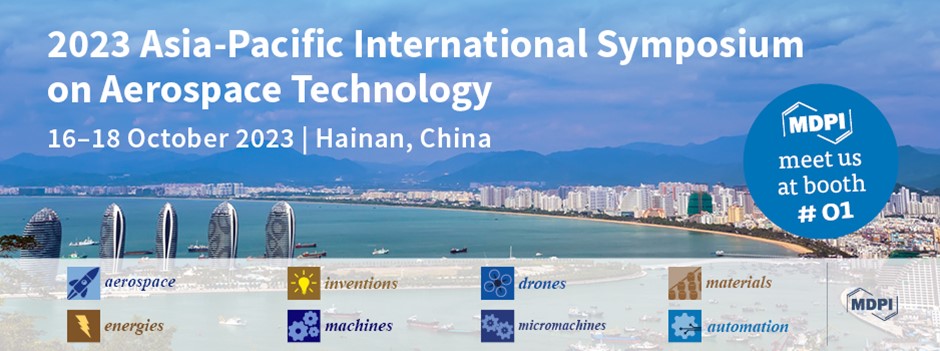
The 2023 Asia-Pacific International Symposium on Aerospace Technology (APISAT2023) will be held from 16 to 18 October 2023, in Lingshui, Hainan, China. The conference is co-hosted by the Chinese Society of Aeronautics and Astronautics, Tsinghua University, AVIC Aerodynamics Research Institute, Beihang University and Civil Aviation University of China. It is co-organized by the Chinese Society of Aeronautics and Astronautics, Royal Aeronautical Society, The Japan Society for Aeronautical and Space Sciences and KSAS.
Topics include the following:
- Aerodynamics and design;
- Structures and materials;
- Dynamics/control/avionics;
- Combustion and propulsion.
The following MDPI journals will be represented:
- Aerospace;
- Invention;
- Drones;
- Materials;
- Energies;
- Machines;
- Micromachines;
- Automation.
11 September 2023
Materials | Editor’s Choice Articles in 2023 in the Section “Materials Physics”
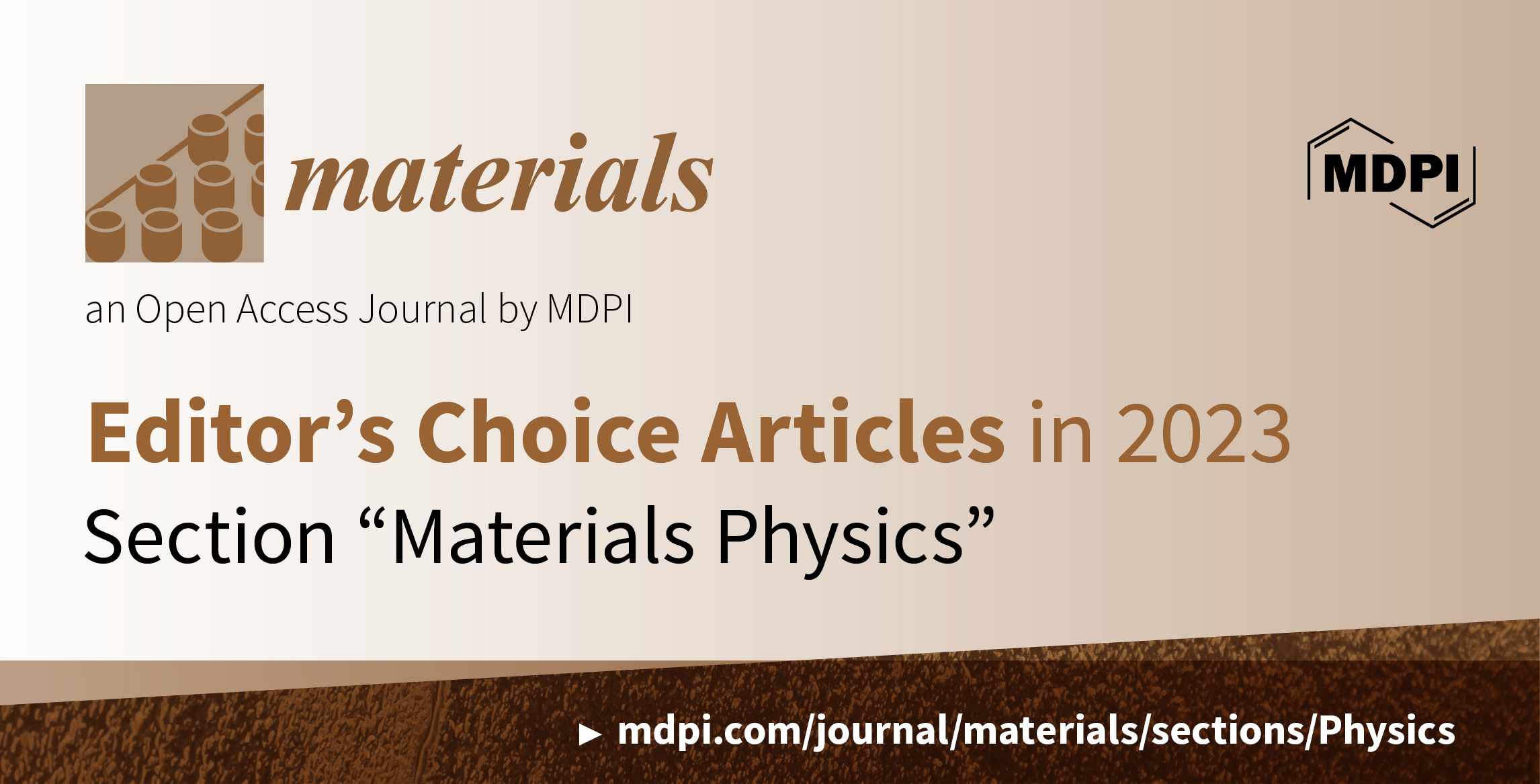
The "Materials Physics" Section provides a forum for the rapid publication of original works that will significantly advance our current understanding of materials or unveil novel aspects of material physical properties with respect to target applications.
The Section will comprise, but will be not limited to, contributions on materials growth and processing techniques, microstructural and mechanical engineering, advanced characterization methods, surface and interface engineering of nanostructured and functional materials including metals and alloys, ceramics and coatings, optical and photonic materials, low-dimensional materials, metal oxides and semiconductors for energy and environmental applications, plasmonics and metamaterials, magnetic materials, superconducting and quantum materials, ferroelectrics, multiferroics and magnetoelectrics, thermoelectric materials, polymers, metal-organic materials, and amorphous solids.
We are pleased to present the 2023 Editor’s Choice Articles, a carefully curated list of high-quality articles from the “Materials Physics” Section listed below:
“Characterization of Filigree Additively Manufactured NiTi Structures Using Micro Tomography and Micromechanical Testing for Metamaterial Material Models”
by Thomas Straub, Jonas Fell, Simon Zabler, Tobias Gustmann, Hannes Korn and Sarah C. L. Fischer
Materials 2023, 16(2), 676; https://doi.org/10.3390/ma16020676
Available online: https://www.mdpi.com/1996-1944/16/2/676
“Prediction of Novel Ultrahard Phases in the B–C–N System from First Principles: Progress and Problems”
by Vladimir L. Solozhenko and Samir F. Matar
Materials 2023, 16(2), 886; https://doi.org/10.3390/ma16020886
Available online: https://www.mdpi.com/1996-1944/16/2/886
“Effect of Ni Substitution on Thermoelectric Properties of Bulk β-Fe1−xNixSi2 (0 ≤ x ≤ 0.03)”
by Sopheap Sam, Soma Odagawa, Hiroshi Nakatsugawa and Yoichi Okamoto
Materials 2023, 16(3), 927; https://doi.org/10.3390/ma16030927
Available online: https://www.mdpi.com/1996-1944/16/3/927
“Correlation-Driven Topological Transition in Janus Two-Dimensional Vanadates”
by Ghulam Hussain, Amar Fakhredine, Rajibul Islam, Raghottam M. Sattigeri, Carmine Autieri and Giuseppe Cuono
Materials 2023, 16(4), 1649; https://doi.org/10.3390/ma16041649
Available online: https://www.mdpi.com/1996-1944/16/4/1649
“Epitaxial CdSe/PbSe Heterojunction Growth and MWIR Photovoltaic Detector”
by Lance L. McDowell, Milad Rastkar Mirzaei and Zhisheng Shi
Materials 2023, 16(5), 1866; https://doi.org/10.3390/ma16051866
Available online: https://www.mdpi.com/1996-1944/16/5/1866
“Hexagonal Boron Nitride for Photonic Device Applications: A Review”
by Shinpei Ogawa, Shoichiro Fukushima and Masaaki Shimatani
Materials 2023, 16(5), 2005; https://doi.org/10.3390/ma16052005
Available online: https://www.mdpi.com/1996-1944/16/5/2005
“Ferroelectricity and Oxide Reliability of Stacked Hafnium–Zirconium Oxide Devices”
by Ruo-Yin Liao, Hsuan-Han Chen, Ping-Yu Lin, Ting-An Liang, Kuan-Hung Su, I-Cheng Lin, Chen-Hao Wen, Wu-Ching Chou, Hsiao-Hsuan Hsu and Chun-Hu Cheng
Materials 2023, 16(9), 3306; https://doi.org/10.3390/ma16093306
Available online: https://www.mdpi.com/1996-1944/16/9/3306
“Recent Advances in Magnetic Polymer Composites for BioMEMS: A Review”
by Zhengwei Liao, Oualid Zoumhani and Clementine M. Boutry
Materials 2023, 16(10), 3802; https://doi.org/10.3390/ma16103802
Available online: https://www.mdpi.com/1996-1944/16/10/3802
“Cleaning Strategies of Synthesized Bioactive Coatings by PEO on Ti-6Al-4V Alloys of Organic Contaminations”
by Avital Schwartz, Alexey Kossenko, Michael Zinigrad, Viktor Danchuk and Alexander Sobolev
Materials 2023, 16(13), 4624; https://doi.org/10.3390/ma16134624
Available online: https://www.mdpi.com/1996-1944/16/13/4624
“High-Pressure Synthesis and the Enhancement of the Superconducting Properties of FeSe0.5Te0.5”
by Mohammad Azam, Manasa Manasa, Tatiana Zajarniuk, Ryszard Diduszko, Tomasz Cetner, Andrzej Morawski, Jarosław Więckowski, Andrzej Wiśniewski and Shiv J. Singh
Materials 2023, 16(15), 5358; https://doi.org/10.3390/ma16155358
Available online: https://www.mdpi.com/1996-1944/16/15/5358
We would like to take this opportunity to thank all of the research groups that submitted to Materials (ISSN: 1996-1944). We would appreciate it if you could circulate this document among your colleagues and network. Furthermore, the following opportunities for collaboration may be of interest:
Submitting a manuscript:
This Section is currently open for submissions. Papers may be submitted via the following link: https://susy.mdpi.com/user/manuscripts/upload?journal=materials.
Launching a Special Issue:
You have the opportunity to propose new topics and edit a Special Issue together with experts in the field: https://www.mdpi.com/journalproposal/sendproposalspecialissue/materials.
Joining the Editorial Board:
If you are an active researcher in the field of materials physics and are interested in joining the Editorial Board, please do not hesitate to get in touch ([email protected]).
Materials Editorial Office
8 September 2023
Materials 2024 Travel Award—Open for Applications
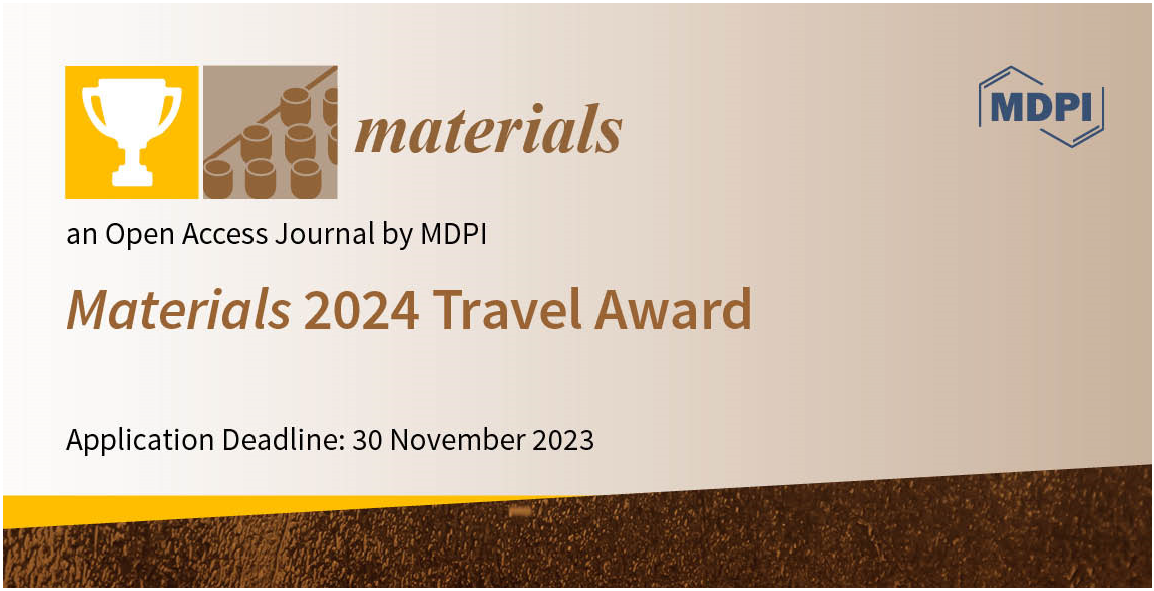
We are pleased to announce that Materials (ISSN: 1996-1944) will be granting the Travel Award to two junior scientists. The applications will be assessed by an Evaluation Committee consisting of senior scholars from the Materials Editorial Board.
This award provides financial support for the winners to attend an international conference in the field of materials science and engineering to be held in 2024, in order to hold a presentation, present a poster, or both.
Candidate Requirements:
- Postdoctoral fellow or Ph.D. student.
- Plans to attend an international conference in 2024 (oral presentation or poster).
Required Application Documents:
- Information of the conference the applicant is planning to attend and the abstract that will be submitted.
- Curriculum vitae and list of publications.
- Justification letter describing the focus of the research (max. 800 words).
- Letter of recommendation from the supervisor, research director, or department head, which also confirms the applicant’s status as a postdoctoral fellow/PhD student.
The winners (two awardees) will each be awarded CHF 800 and a certificate.
Please submit your applications (https://www.mdpi.com/journal/materials/awards/submit/2418) for the Materials 2024 Travel Award online by 30 November 2023. Prizes will be awarded at the end of January 2024 and announced on the Materials website.
Materials Editorial Office
8 September 2023
Materials 2023 Best Ph.D. Thesis Award—Open for Applications
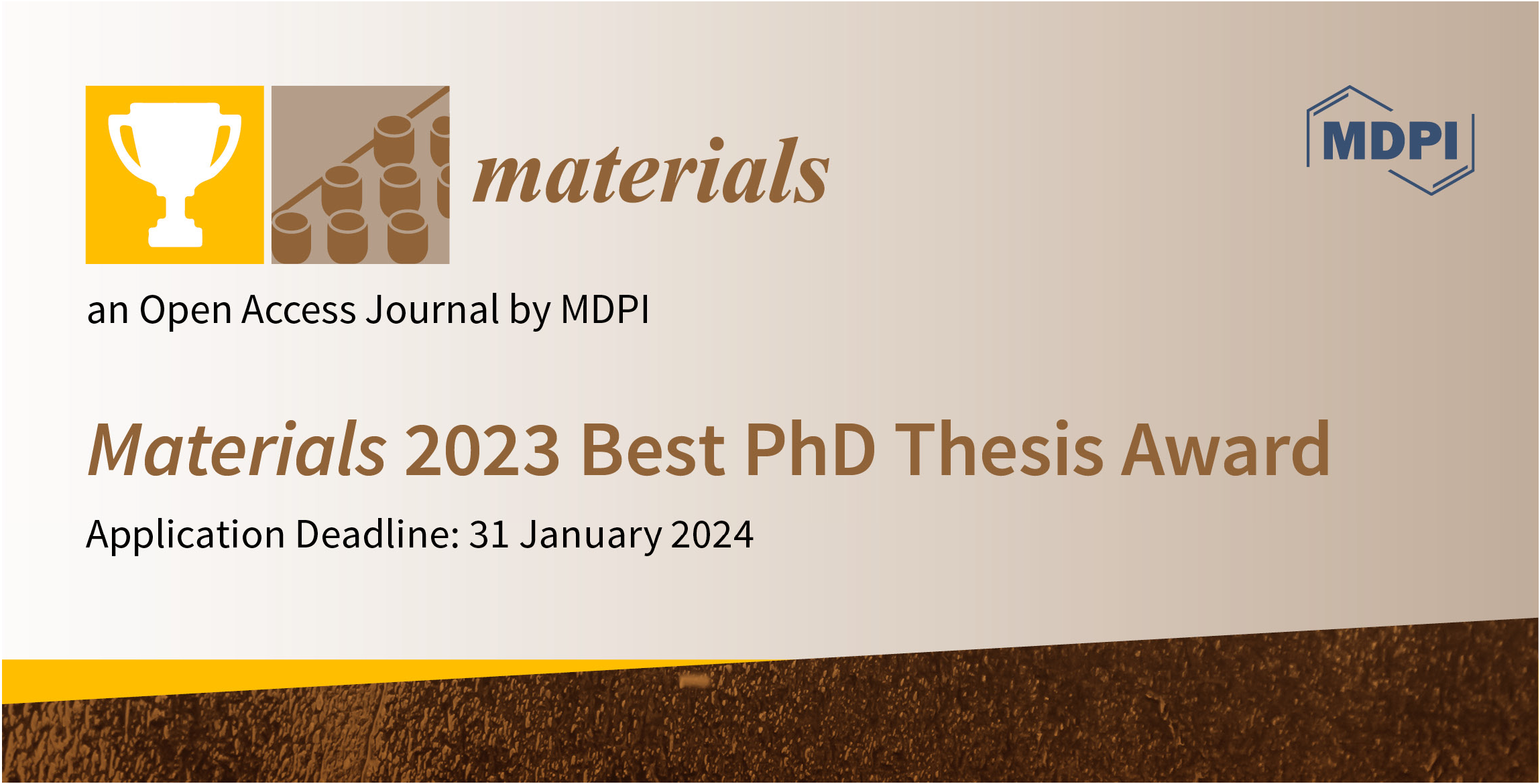
Materials (ISSN: 1996-1944) is currently accepting applications for the 2023 Best Ph.D. Thesis Award. This award is held to reward the academic community, especially young researchers, and enhance communication among scientists. This prize will be awarded to a Ph.D. student or doctor who has produced a highly anticipated academic thesis.
The prize includes:
- CHF 800;
- A certificate;
- An offer to publish one paper free of charge in Materials after peer review before the end of 2024.
To find out more information about the award and how to apply for candidates, please click here: https://www.mdpi.com/journal/materials/awards/2482. To request further information, please contact the Materials Editorial Office ([email protected]).
Materials Editorial Office
6 September 2023
Recap of Awards Granted to Scholars in 2022
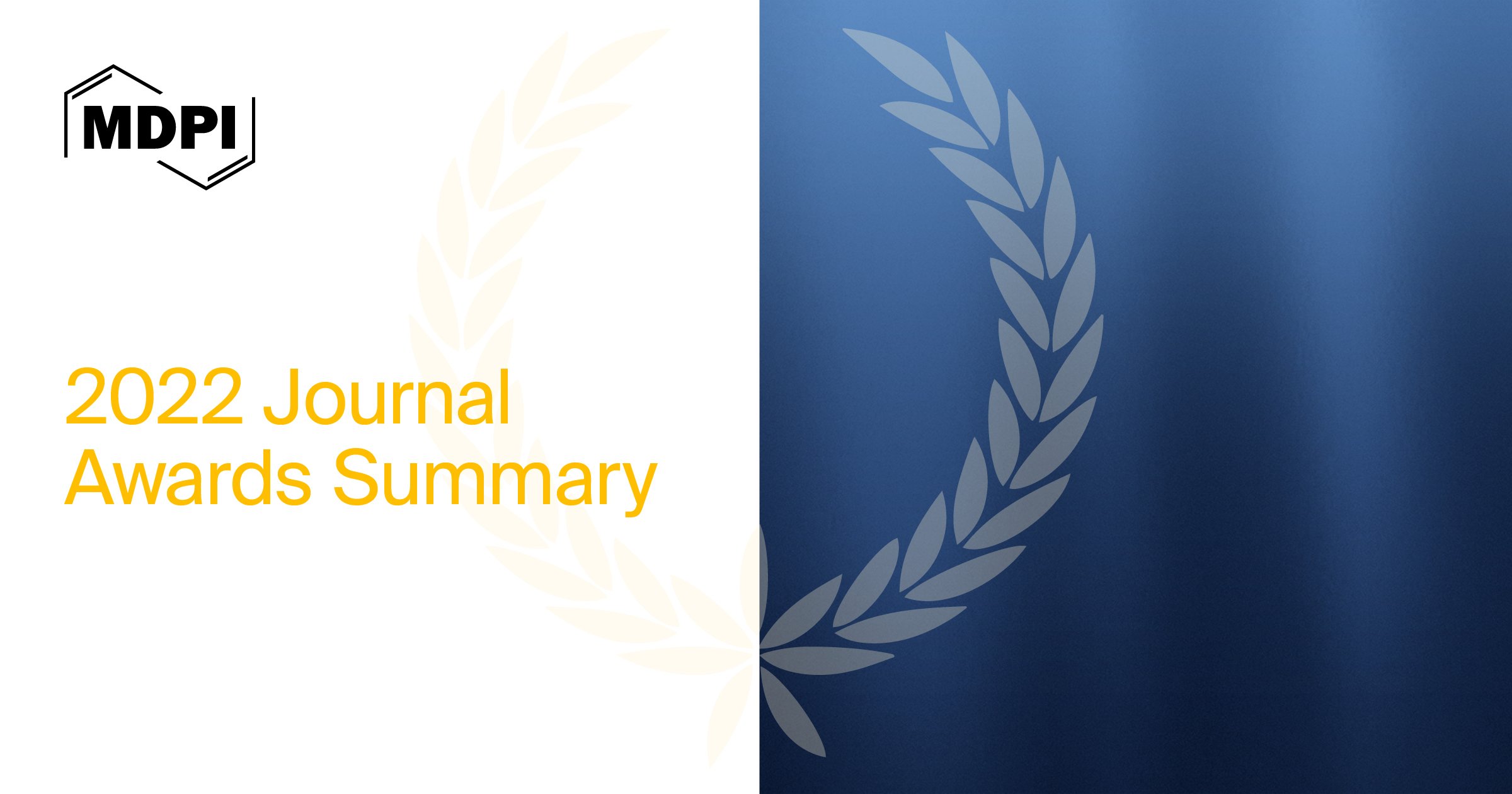
MDPI is committed to supporting the academic community, nurturing talent and advancing science. Awards are an important part of the research landscape and play a vital role in helping academics gain recognition, especially young researchers as they embark on new research avenues.
In 2022, our journals presented a total number of 394 Awards, including Travel Awards, Young Investigator Awards, Best PhD Thesis Awards, Best Paper Awards, and Outstanding Reviewer Awards, with several winners announced for some of the awards. The total prize sum amounted to just under 580,000 Swiss francs (CHF), or approximately 650,000 US dollars. Overall, more than 720 scholars were awarded.
The majority of the awards were dedicated to young researchers in relatively early stages of their careers. This encompassed 66 of the afore-mentioned Travel Awards, 60 Young Investigator Awards, supporting research projects and conference attendance, as well as 51 Best PhD Thesis Awards. Additionally, 113 Best Paper Awards were given by our journals. The selection committees were entrusted with identifying the most impactful and novel research and review articles published in their journal within a given year.
MDPI will continue its support and recognition for the academic community moving forward, sponsoring new awards across disciplines. To learn more about all the awardees and their research projects in your field of study, please visit the following pages:
To explore more MDPI awards, please click here.
31 August 2023
Meet Us at the 2023 Fall Meeting of the European Materials Research Society (E-MRS), 18–21 September 2023, Warsaw, Poland
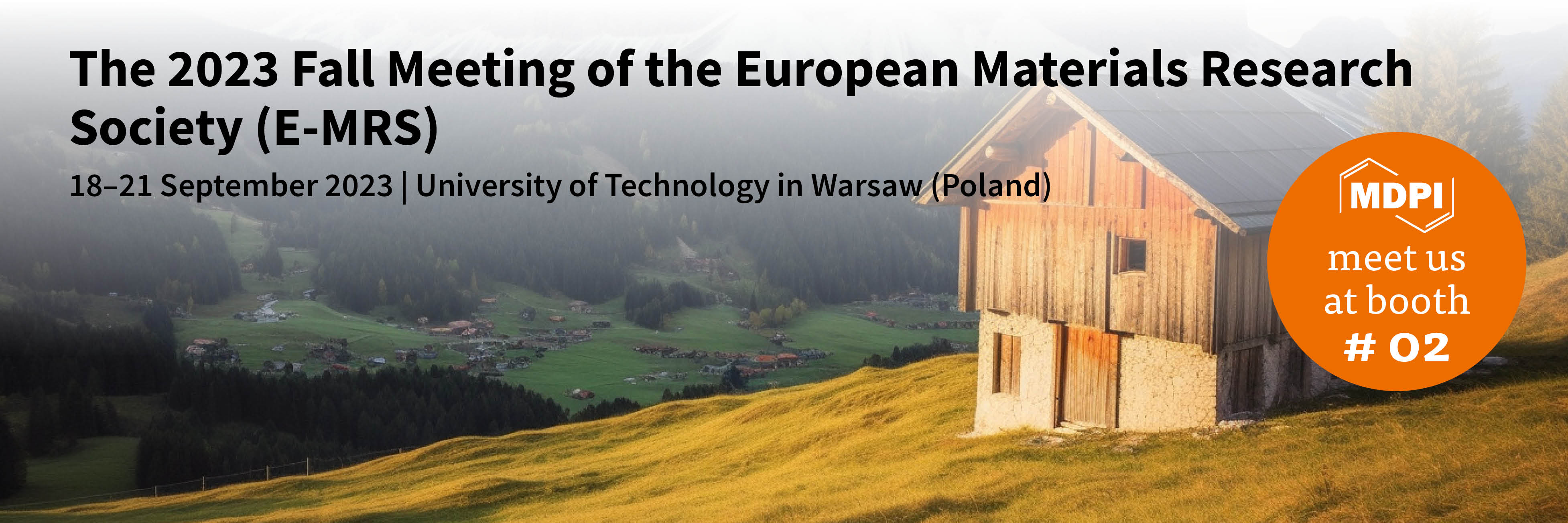
The 2023 Fall Meeting of the European Materials Research Society (E-MRS) will take place from 18 to 21 September 2023, at the main campus of the University of Technology in Warsaw, Poland, and will consist of parallel symposia with invited speakers and oral and poster presentations assorted by one plenary session to provide an international forum for discussing recent advances in the field of materials science. The conference will be augmented by an exhibition of products and services of interest to the conference participants.
The high-quality scientific program will address different topics organized into 24 symposia arranged in 5 clusters covering the fields of information and communication technologies; energy and environment; manufacturing; health; and fundamentals. The latest scientific results will be presented, and authors are invited to submit papers in the selected journals that fit the scope of each symposium.
The focus of the scientific program will be both on fundamental investigations and technological applications, providing an international forum for discussing recent advances related to the different aspects to be considered to promote innovation.
MDPI will be attending the event as an exhibitor, and we welcome researchers from different backgrounds to visit and share their latest ideas with us.
We are looking forward to meeting you at our booth, where you can find out more information about the journals attending the conference:
Our representatives, Ms. Anna Krakowka and Ms. Paulina Maziarz, are eager to answer your questions and address any inquiries you may have.
We look forward to welcoming you to Warsaw.
30 August 2023
MDPI Insights: The CEO’s Letter #3 - Sustainability and Co-opetition

Welcome to the MDPI Insights: The CEO's Letter.
In these monthly letters, I will showcase two key aspects of our work at MDPI: our commitment to empowering researchers and our determination to facilitating open scientific exchange.
Opening Thoughts

Our Commitment to Sustainability
As a pioneer in academic open access publishing since 1996, MDPI has always been dedicated to facilitating scientific exchange across all disciplines. Our approach to open science is guided by principles such as Open Access (OA), Timeliness and Efficiency, Simplicity, High-Quality Service, Flexibility, and a commitment to Sustainability. This commitment involves preserving published papers for the long term and supporting the future of science through partnerships, sponsorships, and awards.
In this edition of the CEO Letter, I will delve into MDPI’s various sustainability initiatives. As a leader in OA publishing, we are able to provide the public with a significant amount of environment-related content at no cost.
MDPI and the Sustainable Development Goals (SDGs)
In 2020, the SDG Publishers Compact was launched to accelerate implementation of the SDGs by promoting content that informs, develops, and inspires action. MDPI joined this initiative in 2021 and subsequently launched the MDPI SDG Hub in 2022, offering free access to recent research within the scope of each of the 17 SDGs. We also support authors from underrepresented communities by waiving publication charges for selected SDG-related papers. Detailed sustainability practices and supported publications are available in the report under each Goal page.
“More than 80% of MDPI articles and reviews published in 2022 relate to the Sustainable Development Goals.” [source: InCites, Accessed on 21.08.2023]
As at August 2023, MDPI boasts 14 journals dedicated to sustainability-related topics. Our first journal in this area, Sustainability, has published over 29,000 articles on the SDGs, accumulating over 240,000 citations (source: InCites, as at 1 January 2023). These journals serve as vital platforms for researchers to share insights and address environmental challenges. In addition:
MDPI journals specializing in sustainability-related topics:
- 2009: Sustainability
- 2012: Resources
- 2013: Climate
- 2014: Environments
- 2016: Recycling
- 2019: Clean Technologies
- 2020: Sustainable Chemistry
- 2021: Wind, Biomass, Conservation, Pollutants, Solar
- 2022: Waste, Microplastics
Read more:
Impactful Research

Highly Cited Articles in Sustainability
In 2022, content published in Sustainability and indexed in Journal Citation Reports (JCR) received nearly 190,000 citations. This highlights the fact that Sustainability publishes highly cited research articles related to environmental sciences and SDG-related topics such as climate action.
We are pleased to share that Sustainability received a 2022 CiteScore of 5.8, marking a 16% increase from the 2021 metric. Specifically, the CiteScore positions Sustainability as follows: Q1 (27 out of 163) in the “Environmental Science (miscellaneous)” category, and Q1 (101 out of 779) in the “Geography Planning and Development” category. For additional journal statistics, please visit here.
“Sustainability received a 2022 CiteScore of 5.8”
While MDPI journals such as Climate and Atmosphere have a distinct focus on atmosphere pollution and its impact on climate processes, journals like Sustainability, Environments, Water, Remote Sensing, and IJERPH publish content related to climate change. These journals have published over 32,300 articles related to SDG 13: Climate Action.
Highly Cited Papers in Sustainability
Below are several highly cited papers published in Sustainability over the past three years. Citation metrics are current as at 15 August 2023.
1. “A Global Assessment: Can Renewable Energy Replace Fossil Fuels by 2050?”Authors: Jerry L. Holechek, Hatim M. E. Geli, Mohammed N. Sawalhah, and Raul Valdez
Sustainability 2022, 14(8), 4792; https://doi.org/10.3390/su14084792
Citations: Crossref (97), Scopus (91), Web of Science (82), Google Scholar (125)
This paper addresses one of the most significant challenges of climate change – achieving Net Zero Carbon by 2050. The meta-analysis suggests that while difficult, this transition is possible through the concerted application of pathways, lifestyle changes, and global cooperation.
2. “Anxiety and the Ecological Crisis: An Analysis of Eco-Anxiety and Climate Anxiety”Author: Panu Pihkala
Sustainability 2020, 12(19), 7836; https://doi.org/10.3390/su12197836
Citations: Crossref (144), Scopus (121), Web of Science (159), Google Scholar (382)
This paper has received substantial media attention, including coverage by The Guardian, BBC, Vice, and CNBC. An interview with Dr. Panu Pihkala, a leading interdisciplinary researcher on the topic, can be found on MDPI’s podcast: Insight Faster, Episode 1.
3. “Impact of Climate Change on Agriculture and Its Mitigation Strategies: A Review”Authors: Gurdeep Singh Malhi, Manpreet Kaur, and Prashant Kaushik
Sustainability 2021, 13(3), 1318; https://doi.org/10.3390/su13031318
Citations: Crossref (207), Scopus (221), Web of Science (186), Google Scholar (355)
This paper reviews literature on climate change, addressing its causes, future projections, impact on agriculture, including plant physiology, growth, productivity, pest infestation, and the economic implications of mitigation strategies.
4. “Impacts of Plastic Pollution on Ecosystem Services, Sustainable Development Goals, and Need to Focus on Circular Economy and Policy Interventions”Authors: Rakesh Kumar, Anurag Verma, Arkajyoti Shome, Rama Sinha, Srishti Sinha, Prakash Kumar Jha, Ritesh Kumar, Pawan Kumar, Shubham, Shreyas Das, Prabhakar Sharma, and P. V. Vara Prasad
Sustainability 2021, 13(17), 9963; https://doi.org/10.3390/su13179963
Citations: Crossref (134), Scopus (136), Web of Science (113), Google Scholar (184)
This review aims to assess the adverse effects of plastic pollution on ecosystems, link the management of plastic with the SDGs, and propose policy measures using transdisciplinary approaches. Empowering communities to reduce plastic use is crucial. Addressing global plastic pollution is a priority.
Sustainability is an international, cross-disciplinary, open access journal that explores environmental, cultural, economic, and social sustainability of human beings. It provides a forward-looking platform for research on sustainability and sustainable development, and is published semi-monthly online by MDPI. Sustainability is affiliated with The Canadian Urban Transit Research & Innovation Consortium (CUTRIC) and The International Council for Research and Innovation in Building and Construction (CIB).
Read more:
- Testimonials: See what our editors and authors say about Sustainability.
Inside MDPI

President of Ireland Authors Editorial in MDPI Journal Sustainability
It’s a very special occasion when the president of a country takes the initiative to write an editorial for a journal. Michael D. Higgins, President of the Republic of Ireland, has contributed his insights to a forthcoming Special Issue in Sustainability:

This Special Issue, focusing on “making sustainable development happen” at grassroots levels, allows for perspectives from, and on, the major world faiths, exploring how challenges have been conceptualised and addressed, in addition to case studies of faith-based sustainability initiatives in practice.
The experience of faith institutions and communities in translating theological and moral commitments to sustainable development into action is now a topic we must examine with urgency; one on which I am so glad this Special Issue focuses.
As President of Ireland, I very much support this Special Issue of Sustainability. It is my great hope that the contents of the papers contained herein will assist in making sustainable development happen at grassroots levels across the world so that we can cooperate together, people of faith and of none, to ensure a just, inclusive and sustainable future for all on our fragile planet.
Read the completed editorial here:
Special Issue “Faith and Sustainable Development: Exploring Practice, Progress and Challenges among Faith Communities and Institutions”: Foreword by the President of Ireland
Author: Michael D. Higgins
Sustainability 2023, 15(12), 9683; https://doi.org/10.3390/su15129683
Coming Together for Science

The World Sustainability Forum 2023
The World Sustainability Forum (WSF) is a biennial MDPI event focused on sustainability. WSF 2023 marks the tenth anniversary of the conference series, taking place on 14 September. For the first time, the event will be hosted as a 24-hour conference across three locations – Singapore, Basel in Switzerland, and Toronto in Canada – alongside virtual streaming.
This unique format allows us to span three time zones, providing live coverage of critical sustainability-related topics throughout the day:
- The Singapore Hub, chaired by Professor Horn Mun Cheah and Associate Professor Renee Tan, will explore “Sustainability for Social and Community Impact”.
- The Basel Hub, chaired by Prof. Dr. Anet Režek Jambrak and Dr. Lela Mélon, will delve into “Sustainability in the industry, and at university and corporate settings”.
- The Toronto Hub, led by Dr. Umberto Berardi, will discuss “The Sustainable Built Environment”.
MDPI Sustainability Foundation: Recognizing Excellence in Sustainability Research
The MDPI Sustainability Foundation supports researchers through two sustainability-focused awards:
- The World Sustainability Award, amounting to USD 100,000, is given to senior researchers.
- The Emerging Sustainability Leader Award, valued at USD 20,000, sponsored by the journal Sustainability, is presented to early-career researchers.
The winners of the Sustainability Foundation will be formally awarded during the WSF2023 on 14 September. Interviews with the award winners and finalists are available below.
2023 World Sustainability Award Winners
Interviews with 2023 Emerging Sustainability Leader Award Finalists
- Dr. Bahareh Kamranzad
- Dr. Youjin Kim
- Dr. Julia Lohmann
As a hybrid event, WSF23 provides scholars with the option to attend in person at one of the conference sites or, for a more sustainable approach, virtually. All sessions will be recorded and archived for future access. Registration is open until 3 September 2023, with in-person and virtual tickets available here.
Read more:
Closing Thoughts
“Co-opetition”: Collaboration Plus Healthy Competition – A Visit to Elsevier
I firmly believe in fostering collaboration and at the same time promoting healthy competition within the academic publishing industry. The market offers ample room for publishers and related companies to provide valuable services and products that enrich the academic community. While MDPI is recognized for its efficient and streamlined processes –thanks to our over 6,000 colleagues, in-house tools, and initiatives that support the author journey – our ethos has always involved learning from and collaborating with other organizations.
MDPI’s Interaction with Elsevier
In January 2023, I had a brief conversation with Judy Verses, President of Global Academic and Government Markets at Elsevier, following her participation in a panel discussion at the Academic Publishers Europe event in Berlin. One of the highlights for me was Judy’s insight into the impact of research, particularly her emphasis on the role of collaboration, including policy and showing the impact of research to influence on funding decisions.
“Such collaborations drive forward-looking strategies to elevate our support for the scholarly community”

Judy and I resumed our discussion in August, when I visited Elsevier's office to review current projects, such as our recent agreement with Science Direct and the continued indexing of MDPI journals in Scopus (indexing database owned by Elsevier). We also explored possible opportunities for the future, including a potential collaboration to expand MDPI’s Scilit data infrastructure. This endeavour aims to aggregate and provide access to scholarly metadata encompassing journal articles, conference papers, books, preprints, and more. While these discussions are ongoing, the underlying principle remains that such collaborations drive forward-looking strategies to elevate our services and support for the scholarly community.
It was great that Judy and I acknowledged the merits of 'co-opetition,' a concept based of the belief that fostering cooperation alongside healthy competition can lead to shared advancements for both individual companies and the industry at large.
‘Fully OA’ Organizations Dedicated to Open Access

MDPI proudly aligns with the ‘Fully OA’ group, a collaborative initiative comprising nine organizations dedicated to Open Access. Our monthly meetings, including an OASPA representative, serve as platforms to share non-confidential information, resources, and projects. These gatherings also facilitate discussions on topics relevant to fully OA organizations. Occasionally, joint actions spring from these interactions, such as collaborative blog posts on pertinent subjects and joint statements, such as a recent response to the House Appropriations Committee.
This display of cooperation among competing entities forms a strategic alliance focused on nurturing the best interests of the OA publishing model.
As I wrap up this third edition of the CEO Letter, I encourage you to seize opportunities for collaboration and contribute to advancing our shared academic culture. As the African proverb has it, “If you want to go fast, go alone; if you want to go far, go together.”
Chief Executive Officer
MDPI AG
28 August 2023
Meet Us at the XXXV Eurosensors Conference, 10–13 September 2023, Lecce, Italy
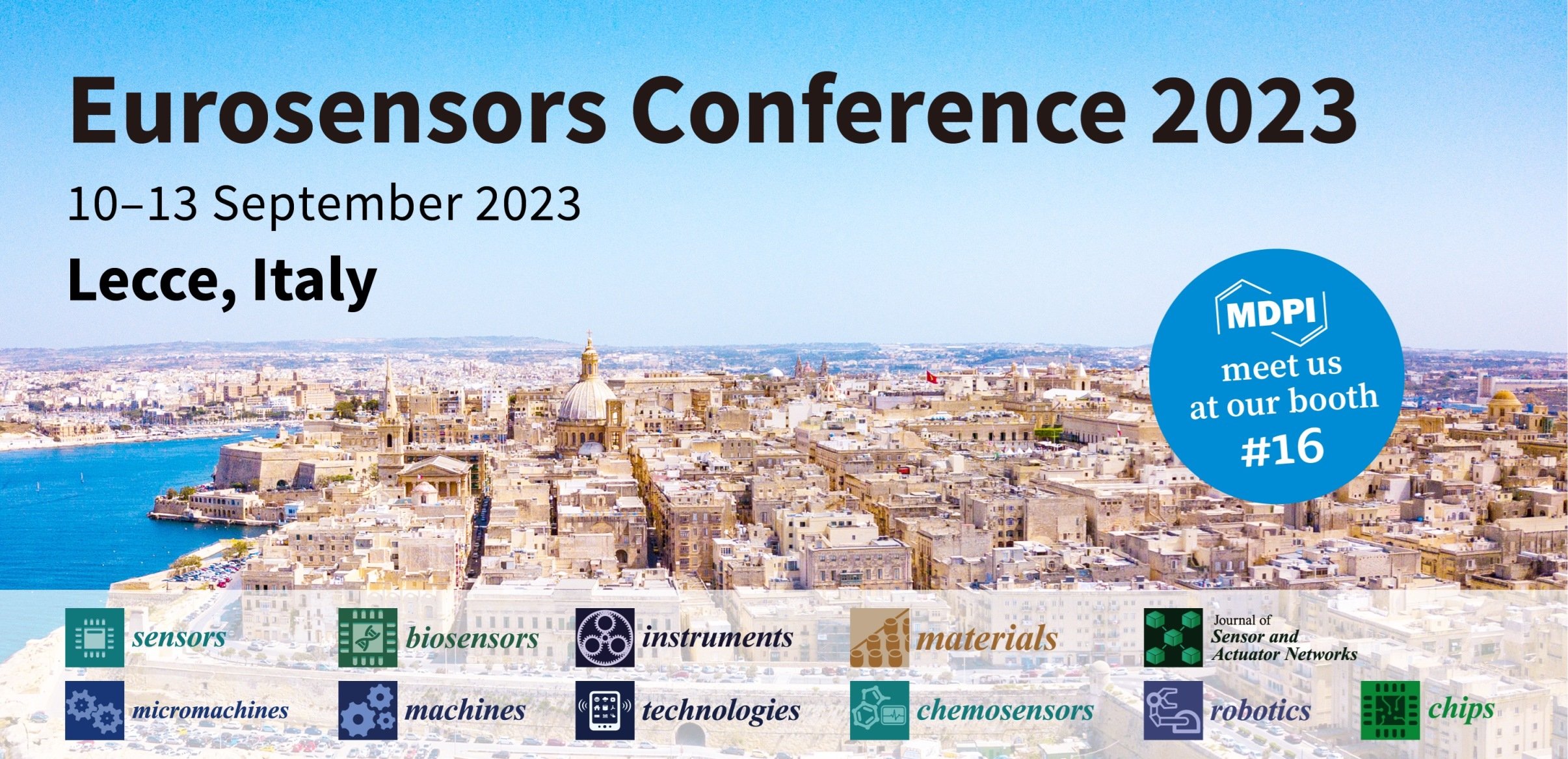
MDPI will be attending the XXXV Eurosensors conference, which will be held from 10 to 13 September 2023 in Lecce, Italy. The conference will provide an opportunity for the presentation of updated results related to both theoretical and applied research in the fields of sensors, micro-nanosystems, etc., bringing together scientists from academic institutions and industry and promoting professional interactions between them. Furthermore, the conference also includes a one-day Tutorial Course on emerging and key arguments on the correlation between environment and health and the role of sensor technologies.
Eurosensors is an annual conference in the field of sensors that started in 1987. The Eurosensors 2020 and 2021 editions were eventually combined with the 2022 edition and held online due to the COVID-19 pandemic. Eurosensors 2023 will be chaired by Pietro Siciliano (University of Bari, Italy). The Organizing Committee would like to express their appreciation for the scientific response to the conference, which demonstrates the level of interest in the field of sensors and related technologies. It is hoped that the conference will allow for fruitful interactions among participants and new cultural proposals for the positive development of the conference and for the intellectual growth of all the participants.
The following MDPI journals will be represented:
- Sensors;
- Biosensors;
- Chemosensors;
- Materials;
- JSAN;
- Micromachines;
- Instruments;
- Technologies;
- Chips;
- Robotics;
- Machines.
If you are attending this conference, please feel free to start a conversation with us. Our delegates look forward to meeting you in person and answering any questions that you may have. For more information about the conference and our booth, please visit the following link: https://www.eurosensors2023.eu/.
18 August 2023
Meet Us at the 74th Annual Meeting of the International Society of Electrochemistry, 3–8 September 2023, Lyon, France
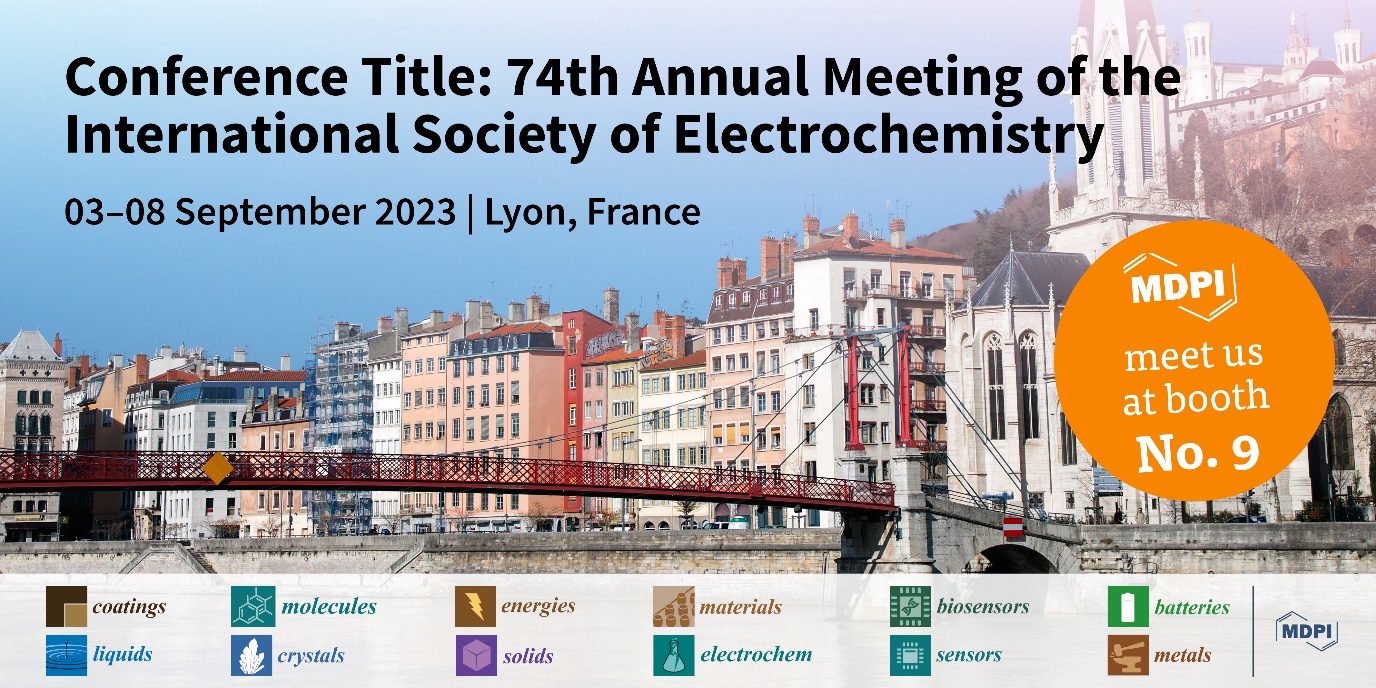
MDPI will be attending the 74th Annual Meeting of the International Society of Electrochemistry, hosted by the International Society of Electrochemistry (ISE), which will be held by the International Society of Electrochemistry from 3 to 8 September 2023, in Lyon, France. France has a strong history of electrochemistry research and has a large number of ISE members in the country, and the ISE has hosted this congress on several previous occasions: Lyon in 1982; Paris in 1997, which was the occasion of a joint meeting with the ECS; and, more recently, in Nice in 2010. Thus, after more than 40 years, the congress returns to Lyon. About 1,800 participants have registered from all regions of the world. Thus, this congress will provide an opportunity for electrochemists in Lyon to participate in fruitful discussions in an atmosphere of friendly exchange.
The following MDPI journals will be represented:
- Coatings;
- Molecules;
- Energies;
- Materials;
- Biosensors;
- Batteries;
- Liquids;
- Crystals;
- Solids;
- Electrochem;
- Sensors;
- Metals.
If you plan on attending this conference, please feel free to stop by our booth (#09) and start a conversation with us. Our delegates look forward to meeting you in person and answering any questions that you may have. For more information about the conference, please visit the following link: https://annual74.ise-online.org/index.php.
17 August 2023
MDPI’s 2022 Young Investigator Awards in Chemistry and Materials Science—Winners Announced

MDPI’s Young Investigator Awards recognize promising junior researchers, acknowledge their contributions, and enhance communication among scientists. We are proud to present the winners for the year 2022 in chemistry and materials science. The winners were selected by the journals’ Award Evaluation Committee.
We warmly congratulate the awarded young investigators for their outstanding contributions. MDPI will continue to provide support and recognition for the academic community.
- Mattia Biesuz, University of Trento, Italy
- Yonggang Yao, Huazhong University of Science and Technology, China
- Cesar de la Fuente-Nunez, University of Pennsylvania, USA
- Liang Huang, Huazhong University of Science and Technology, China
- Aiping Chen, Center for Integrated Nanotechnologies (CINT), USA
- Leonardo Ricotti, BioRobotics Institute of Scuola Superiore Sant’Anna (SSSA), Italy
About MDPI Awards:
In order to reward the academic community, especially young researchers, and enhance communication among scientists, MDPI journals regularly offer various awards to researchers in specific fields. These awards, serving as a source of inspiration and recognition, help raise the influence of talented individuals who have been credited with outstanding achievements and are making a significant contribution to the advancement of their fields.
To see more MDPI awards, click here.
17 August 2023
MDPI’s 2022 Travel Awards in Chemistry and Materials Science—Winners Announced
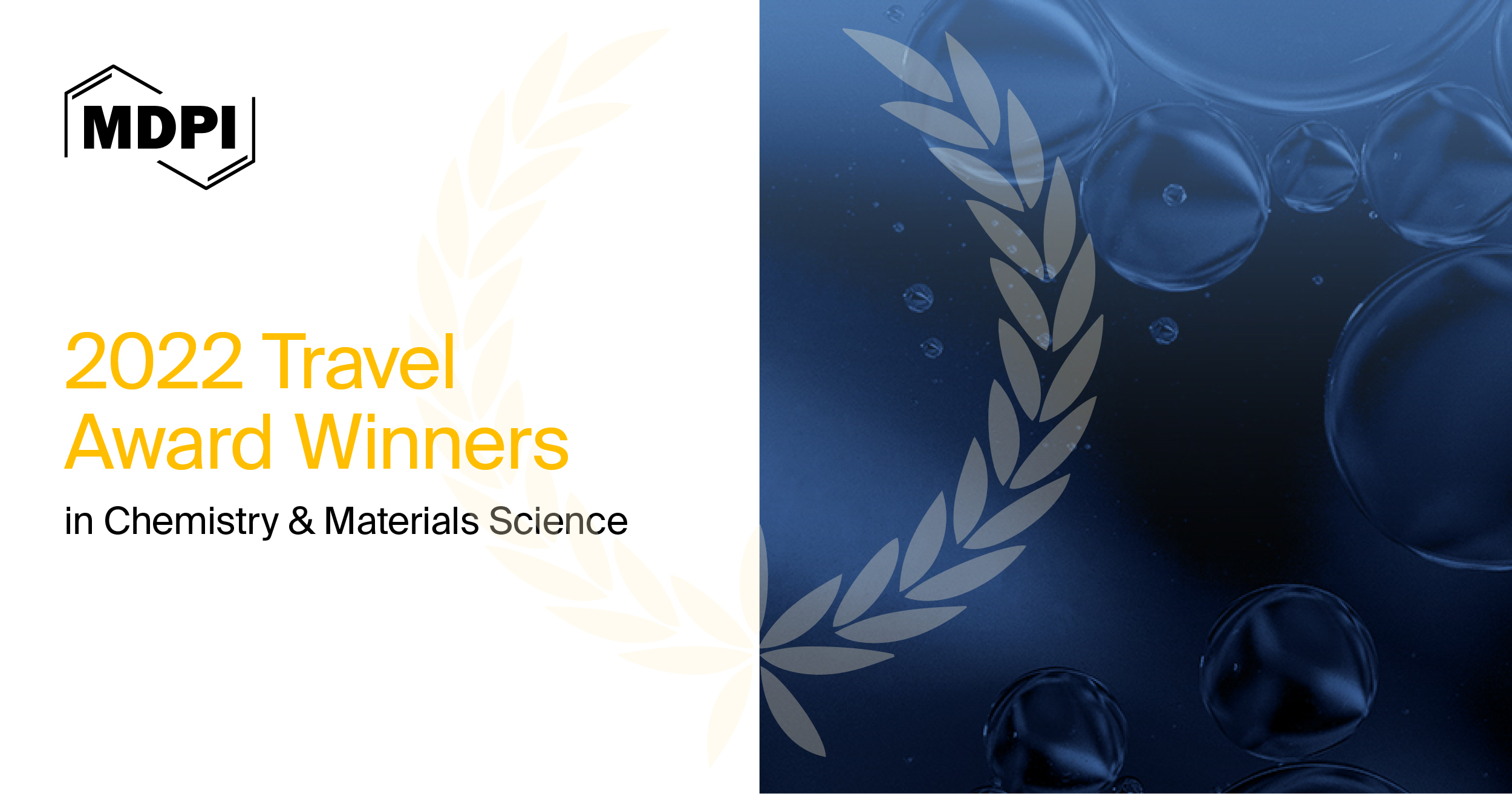
We are proud to recognize the winners of MDPI’s 2022 Travel Awards in chemistry and materials science for their outstanding presentations and present them with the prize.
MDPI journals regularly offer travel awards to encourage junior scientists to present their latest research at academic conferences in specific fields, which helps increase their influence.
The winners mentioned below were carefully selected by the journal editors based on an outline of their research and the work to be presented at an academic conference.
We would like to warmly congratulate the winners of the 2022 Travel Awards and wish them the greatest success with their future research endeavors. MDPI will continue to enhance communication among scientists.
- Shiva Mohajernia, University of Siegen, Germany
- Maria Antonietta Casulli, Sophia University Yotsuya Campus, Japan
Gels:
- Lan Xiao, Queensland University of Technology, Australia
- Danila Merino, Smart Materials Group of the Italian Institute of Technology, Italy
- Elena Blundo, University of Rome, Italy
- Arun Kumar, Institute for Microelectronics and Microsystems, Italy
- Elena Blundo, Sapienza University of Rome, Italy
- Tonni Agustiono Kurniawan, Universiti Teknologi Malaysia, Malaysia
About MDPI Awards:
In order to reward the academic community, especially young researchers, and enhance communication among scientists, MDPI journals regularly offer various awards to researchers in specific fields. These awards, serving as a source of inspiration and recognition, help raise the influence of talented individuals who have been credited with outstanding achievements and are making a significant contribution to the advancement of their fields.
To see more MDPI awards, click here.
17 August 2023
MDPI’s 2022 Outstanding Reviewer Awards in Chemistry and Materials Science—Winners Announced

In order to acknowledge our reviewers, who so generously dedicate their time to reviewing papers and demonstrate diligence, professionalism, and timeliness when reviewing manuscripts, MDPI journals regularly offer outstanding reviewer awards to scholars who participate in the peer-review process.
We are proud to recognize the winners for the 2022 Outstanding Reviewer Awards in chemistry and materials science for their outstanding contributions among the extensive competition.
We would like to take this opportunity to congratulate all the winners on their achievements. MDPI will continue to provide support and recognition for the academic community.
- Aleksandr S. Kazachenko, Institute of Chemistry and Chemical Technology Siberian Branch of Russian Academy of Science, Russia
- Ionut Banu, University Politehnica of Bucharest, Romania
- Shahid Zaman, Southern University of Science and Technology, China
- Rahat Javaid, Fukushima Renewable Energy Institute, Japan
- Anca Mazare, Friedrich-Alexander University, Germany
- Costica Bejinariu, Gheorghe Asachi Technical University of Iasi, Romania
- Aref Abbasi Moud, University of British Columbia, Canada
- Amit Kenny, Shamoon College of Engineering, Ashdod, Israel
Gels:
- Bapan Pramanik, Ben-Gurion University of the Negev, Israel
- Mutian Hua, University of California, USA
JFB:
- Elisa Boanini, University of Bologna, Italy
- Alexander Sobolev, Ariel University, Israel
- Anca Mazare, Friedrich Alexander University of Erlangen Nurnberg, Germany
- László Almásy, Centre for Energy Research, Hungary
- Valerio Belardi, University of Rome Tor Vergata, Italy
- Wenbin Zhou, Imperial College London, UK
- Piotr A. Gauden, Nicholas Copernicus University, Poland
- Moustafa Darwish, Tanta University, Egypt
- Wolfgang Löser, Leibniz Institute for Solid State and Materials Research (IFW), Germany
- Weimin Wang, Shandong University, China
- Gueorgui Gueorguiev, Linköping University, Sweden
- Tsung-Rong Kuo, Taipei Medical University, China
- Kisan Chhetri, Jeonbuk National University, Republic of Korea
- Yiwen Li, Sichuan University, China
- Saulius Grigalevicius, Kaunas University of Technology, Lithuania
- Mirela-Fernanda Zaltariov, “Petru Poni” Institute of Macromolecular Chemistry, Romania
- Narsimha Mamidi, University of Wisconsin-Madison, USA
- Nikolaos Politakos, University of the Basque Country, Spain
- Balawanthrao Jadhav, South Dakota State University, USA
- Łukasz Dąbrowski, Bydgoszcz University of Science and Technology, Poland
- Sidi Zhu, Nanjing University of Science and Technology, China
About MDPI Awards:
In order to reward the academic community, especially young researchers, and enhance communication among scientists, MDPI journals regularly offer various awards to researchers in specific fields. These awards, serving as a source of inspiration and recognition, help raise the influence of talented individuals who have been credited with outstanding achievements and are making a significant contribution to the advancement of their fields.
For more MDPI awards, click here.
17 August 2023
MDPI’s 2022 Best PhD Thesis Awards in Chemistry and Materials Science—Winners Announced
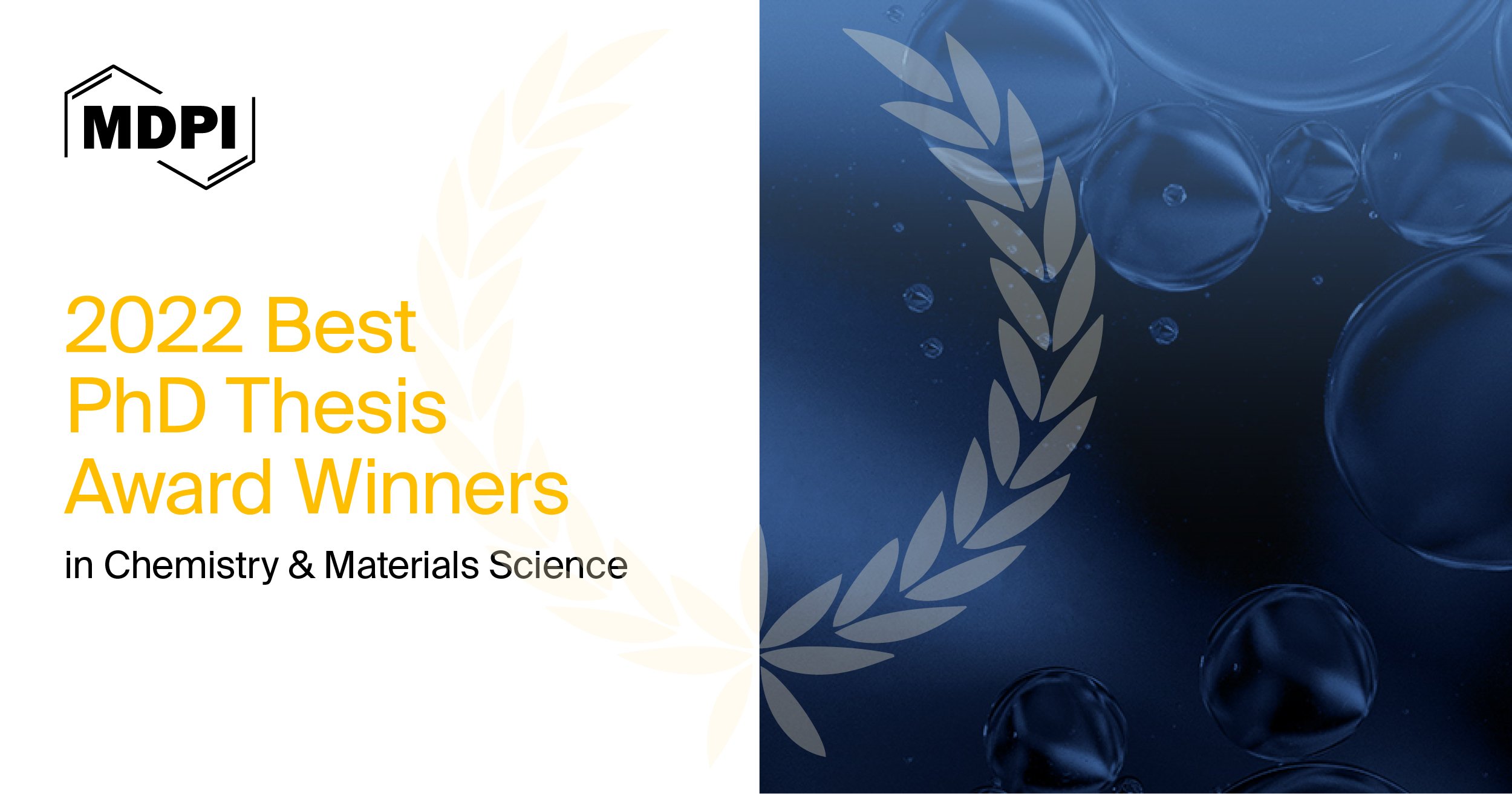
MDPI’s Best PhD Thesis Awards are presented to recognize the young scholars who are judged to have completed the most outstanding PhD thesis in their field of research, and to encourage them to continue their outstanding work and further contribution to their field.
We would like to warmly congratulate the winners of the 2022 Best PhD Thesis Awards and wish them success with their future research endeavors. MDPI will continue to enhance communication among scientists.
- “Metal Nanoparticle Carbon Nanocomposites to Produce Electrochemical Devices for Environmental Water Monitoring”
by Wenchao Duan, Institut de Ciència de Materials de Barcelona (ICMAB-CSIC) and Instituto de Microelectrónica de Barcelona (IMB-CNM-CSIC), Spain
- “Modeling and Design of a Phononic Crystal with Piezoelectric Defects for Broadband Energy Localization and Harvesting”
by Soo-Ho Jo, Department of Mechanical Engineering at Seoul National University, South Korea
- “A Decision-Support Framework for Smart and Sustainable Reverse Logistics Network Design”
by Xu Sun, The Arctic University of Norway, Norway
- “Polymer Drug Carriers for Immuno-Oncotherapy”
by Marina Rodrigues Tavares, Institute of Macromolecular Chemistry of the Czech Academy of Sciences, Czech Republic
- “Design and Fabrication of Advanced Materials Obtained from Hemp Fibers and Sustainable Polymers”
by Gianluca Viscusi, Department of Industrial Engineering-University of Salerno, Italy
- “Ultrafast Processes in Perylene and Rubrene Systems: Singlet Fission, Excimer Formation and Charge Transfer”
by Wenjun Ni, Dalian University of Technology, China
- “Computational and Experimental Thermo-Mechanics of Metal Additive Manufacturing: Stress, Warpage, Cracks and Properties”
by Xufei Lu, Technical University of Catalonia (UPC), Spain
- “Development of Modern Sample Preparation Techniques Utilizing Novel Materials Combined with Chromatographic and Spectrometric Methods for the Determination of Environmental Pollutants in Food and Environmental Samples”
by Natalia Manousi, Aristotle University of Thessaloniki, Greece
- “Studying Protein Function with Fluorescent Nanoantennas”
by Scott G. Harroun, University of Montreal, Canada
- “Predictive Modelling of Ultrafast Hot Carrier Dynamics and Nonlinear Photothermal Phenomena in Designer Nanophotonic Structures”
by Andrea Schirato, Politecnico di Milano, Italy
- “Studying Protein Function with Fluorescent Nanoantennas”
by Scott G. Harroun, Université de Montréal / Polytechnique Montréal, Canada
- “Formation, Modification and New Applications of Orderly Structured Titanium Oxide Nanostructures”
by Simonas Ramanavicius, State Research Institute Center for Physical Sciences and Technology, Lithuania
- “Electrochemical Routes for Upgrading Carbon-based Greenhouse Gases”
by Aditya Prajapati, Lawrence Livermore National Laboratory, USA
About MDPI Awards:
In order to reward the academic community, especially young researchers, and enhance communication among scientists, MDPI journals regularly offer various awards to researchers in specific fields. These awards, serving as a source of inspiration and recognition, help raise the influence of talented individuals who have been credited with outstanding achievements and are making a significant contribution to the advancement of their fields.
To see more MDPI awards, click here.
17 August 2023
MDPI’s Best Paper Awards in Chemistry and Materials Sciences—Winners Announced in 2022
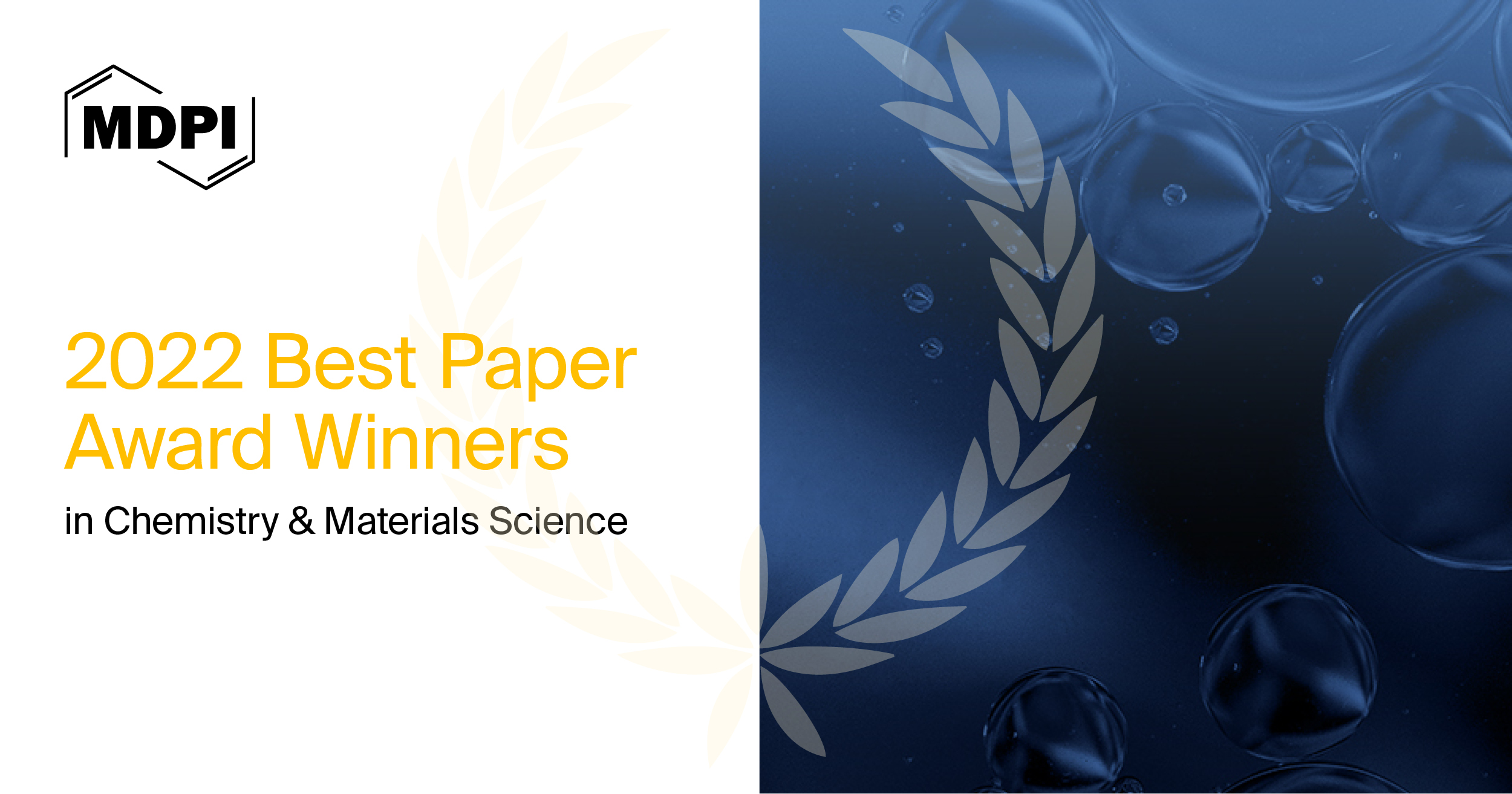
The purpose of our best paper awards is to promote and recognize the most impactful contributions published within MDPI journals.
The editors of each journal have carefully selected reviews and research papers through a rigorous judging process based on criteria such as the scientific merit, overall impact and the quality of presentation of the papers published in the journal.
We are honored to present the winners announced in 2022 in chemistry and materials science, who were selected among an extensive competition, and congratulate the authors for their outstanding scientific publications. MDPI will continue to provide support and recognition for the academic community.
C:
- “Biochar and Energy Production: Valorizing Swine Manure through Coupling Co-Digestion and Pyrolysis”
by Rubén González, Judith González, José G. Rosas, Richard Smith and Xiomar Gómez
C 2020, 6(2), 43; https://doi.org/10.3390/c6020043
- “Introduction to Plasma Electrolytic Oxidation—An Overview of the Process and Applications”
by Frank Simchen, Maximilian Sieber, Alexander Kopp and Thomas Lampke
Coatings 2020, 10(7), 628; https://doi.org/10.3390/coatings10070628
- “First Insights into Photocatalytic Degradation of HDPE and LDPE Microplastics by a Mesoporous N–TiO2 Coating: Effect of Size and Shape of Microplastics”
by Brenda Estefanía Llorente-García, Juan Manuel Hernández-López, Antonio Alberto Zaldívar-Cadena, Cristina Siligardi and Erika Iveth Cedillo-González
Coatings 2020, 10(7), 658; https://doi.org/10.3390/coatings10070658
- “U-Jacketing Applications of Fiber-Reinforced Polymers in Reinforced Concrete T-Beams against Shear—Tests and Design”
by Constantin E. Chalioris, Adamantis G. Zapris and Chris G. Karayannis
Fibers 2020, 8(2), 13; https://doi.org/10.3390/fib8020013
- “Laser Sources Based on Rare-Earth Ion Doped Tellurite Glass Fibers and Microspheres”
by Elena A. Anashkina
Fibers 2020, 8(5), 30; https://doi.org/10.3390/fib8050030
- “Magnetic Materials and Systems: Domain Structure Visualization and Other Characterization Techniques for Application in Materials Science and Biomedicine”
by Roberto Nisticò, Federico Cesano and Francesca Garello
Inorganics 2020, 8(1), 6; https://doi.org/10.3390/inorganics8010006
- “Magnetic Composite Submicron Carriers with Structure-Dependent MRI Contrast”
by Anastasiia A. Kozlova, Sergey V. German, Vsevolod S. Atkin, Victor V. Zyev, Maxwell A. Astle, Daniil N. Bratashov, Yulia I. Svenskaya and Dmitry A. Gorin
Inorganics 2020, 8(2), 11; https://doi.org/10.3390/inorganics8020011
- “A Partial Anion Disorder in SrVO2H Induced by Biaxial Tensile Strain”
by Morito Namba, Hiroshi Takatsu, Wataru Yoshimune, Aurélien Daniel, Shoichi Itoh, Takahito Terashima and Hiroshi Kageyama
Inorganics 2020, 8(4), 26; https://doi.org/10.3390/inorganics8040026
- “Magnetic Nanoparticle Systems for Nanomedicine—A Materials Science Perspective”
by Vlad Socoliuc, Davide Peddis, Viktor I. Petrenko, Mikhail V. Avdeev, Daniela Susan-Resiga, Tamas Szabó, Rodica Turcu, Etelka Tombácz and Ladislau Vékás
Magnetochemistry 2020, 6(1), 2; https://doi.org/10.3390/magnetochemistry6010002
- “Magnetite (Fe3O4) Nanoparticles in Biomedical Application: From Synthesis to Surface Functionalisation”
by Lokesh Srinath Ganapathe, Mohd Ambri Mohamed, Rozan Mohamad Yunus and Dilla Duryha Berhanuddin
Magnetochemistry 2020, 6(4), 68; https://doi.org/10.3390/magnetochemistry6040068
- “Saturation of Specific Absorption Rate for Soft and Hard Spinel Ferrite Nanoparticles Synthesized by Polyol Process”
by Cristian Iacovita, Gabriela Fabiola Stiufiuc, Roxana Dudric, Nicoleta Vedeanu, Romulus Tetean, Rares Ionut Stiufiuc and Constantin Mihai Lucaciu
Magnetochemistry 2020, 6(2), 23; https://doi.org/10.3390/magnetochemistry6020023
- “False Chirality, Absolute Enantioselection and CP Violation: Pierre Curie’s Legacy”
by Laurence D. Barron
Magnetochemistry 2020, 6(1), 5; https://doi.org/10.3390/magnetochemistry6010005
- “A Broadband Tunable Terahertz Metamaterial Absorber Based on Single-Layer Complementary Gammadion-Shaped Graphene”
by Fu Chen, Yongzhi Cheng and Hui Luo
Materials 2020, 13(4), 860; https://doi.org/10.3390/ma13040860
- “3-D Printed Protective Equipment during COVID-19 Pandemic”
by Christian Wesemann, Stefano Pieralli, Tobias Fretwurs, Julian Nold, Katja Nelson, Rainer Schmelzeisen, Elmar Hellwig and Benedikt Christopher Spies
Materials 2020, 13(8), 1997; https://doi.org/10.3390/ma13081997
- “On the Vibrations and Stability of Moving Viscoelastic Axially Functionally Graded Nanobeams”
by Ali Shariati, Dong won Jun, Hamid Mohammad-Sedighi, Krzysztof Kamil Żur, Mostafa Habibi and Maryam Safa
Materials 2020, 13(7), 1707; https://doi.org/10.3390/ma13071707
- “Brief History of Early Lithium Battery Development”
by Mogalahalli V. Reddy, Alain Mauger, Christian M. Julien, Andrea Paolella and Karim Zaghib
Materials, 2020, 13(8), 1884; https://doi.org/10.3390/ma13081884
- “Face Masks and Respirators in the Fight Against the COVID-19 Pandemic: A Review of Current Materials, Advances and Future Perspectives”
by Kris O’Dowd, Keerthi M. Nair, Parnia Forouzandeh, Snehamol Mathew, Jamie Gran, Ruth Moran, John Bartlet, Jerry Bird and Suresh C. Pillai
Materials 2020, 13(15), 3363; https://doi.org/10.3390/ma13153363
- “Recent Trends in the Use of Pectin from Agro-Waste Residues as a Natural-Based Biopolymer for Food Packaging Applications”
by Cristina Mellinas, Marina Ramos, Alfonso Jiménez and María Carmen Garrigós
Materials 2020, 13(3), 673; https://doi.org/10.3390/ma13030673
- “Membrane Technologies in Wastewater Treatment: A Review”
by Elorm Obotey Ezugbe and Sudesh Rathilal
Membranes 2020, 10(5), 89; https://doi.org/10.3390/membranes10050089
- “Development of Hydrophilic PVDF Membrane Using Vapour Induced Phase Separation Method for Produced Water Treatment”
by Muhammad Roil Bilad, Normi Izati Mat Nawi, Min Chean Ho, Norazanita Shamsuddin, Thanitporn Narkkun, Kajornsak Faungnawakij and Asim Laeeq Khan
Membranes 2020, 10(6), 121; https://doi.org/10.3390/membranes10060121
- “Polymeric Nanoparticles: Production, Characterization, Toxicology and Ecotoxicology”
by Aleksandra Zielińska, Filipa Carreiró, Ana M. Oliveira, Andreia Neves, Bárbara Pires, D. Nagasamy Venkatesh, Alessandra Durazzo, Massimo Lucarini, Piotr Eder, Amélia M. Silva et al.
Molecules 2020, 25(16), 3731; https://doi.org/10.3390/molecules25163731
- “Nanomaterials for Wound Dressings: An Up-to-Date Overview”
by Alexandra Elena Stoica, Cristina Chircov and Alexandru Mihai Grumezescu
Molecules 2020, 25(11), 2699; https://doi.org/10.3390/molecules25112699
- “PROTACs and Building Blocks: The 2D Chemical Space in Very Early Drug Discovery”
by Giuseppe Ermondi, Diego Garcia-Jimenez and Giulia Caron
Molecules 2021, 26(3), 672; https://doi.org/10.3390/molecules26030672
- “LncMirNet: Predicting LncRNA–miRNA Interaction Based on Deep Learning of Ribonucleic Acid Sequences”
by Sen Yang, Yan Wang, Yu Lin, Dan Shao, Kai He and Lan Huang
Molecules 2020, 25(19), 4372; https://doi.org/10.3390/molecules25194372
- “Merging Ligand-Based and Structure-Based Methods in Drug Discovery: An Overview of Combined Virtual Screening Approaches”
by Javier Vázquez, Manel López, Enric Gibert, Enric Herrero and F. Javier Luque
Molecules 2020, 25(20), 4723; https://doi.org/10.3390/molecules25204723
- “The Protective Role of Butyrate against Obesity and Obesity-Related Diseases”
by Serena Coppola, Carmen Avagliano, Antonio Calignano and Roberto Berni Canani
Molecules 2021, 26(3), 682; https://doi.org/10.3390/molecules26030682
- “Cyanogenic Glycoside Analysis in American Elderberry”
by Michael K. Appenteng, Ritter Krueger, Mitch C. Johnson, Harrison Ingold, Richard Bell, Andrew L. Thomas and C. Michael Greenlief
Molecules 2021, 26(5), 1384; https://doi.org/10.3390/molecules26051384
- “Amygdalin: Toxicity, Anticancer Activity and Analytical Procedures for Its Determination in Plant Seeds”
by Ewa Jaszczak-Wilke, Żaneta Polkowska, Marek Koprowski, Krzysztof Owsianik, Alyson E. Mitchell and Piotr Bałczewski
Molecules 2021, 26(8), 2253; https://doi.org/10.3390/molecules26082253
- “Perfect Dual-Band Absorber Based on Plasmonic Effect with the Cross-Hair/Nanorod Combination”
by Yuan-Fong Chou Chau, Chung-Ting Chou Chao, Hung Ji Huang, Muhammad Raziq Rahimi Kooh, N. T. R. N. Kumara, Chee Ming Lim and Hai-Pang Chiang
Nanomaterials 2020, 10(3), 493; https://doi.org/10.3390/nano10030493
- “Titanium Dioxide Nanoparticles: Prospects and Applications in Medicine”
by Daniel Ziental, Beata Czarczynska-Goslinska, Dariusz T. Mlynarczyk, Arleta Glowacka-Sobotta, Beata Stanisz, Tomasz Goslinski and Lukasz Sobotta
Nanomaterials 2020, 10(2), 387; https://doi.org/10.3390/nano10020387
- “High Quality Factor, High Sensitivity Metamaterial Graphene—Perfect Absorber Based on Critical Coupling Theory and Impedance Matching”
by Chunlian Cen, Zeqiang Chen, Danyang Xu, Liying Jiang, Xifang Chen, Zao Yi, Pinghui Wu, Gongfa Li and Yougen Yi
Nanomaterials 2020, 10(1), 95; https://doi.org/10.3390/nano10010095
- “An Overview of Micro- and Nanoemulsions as Vehicles for Essential Oils: Formulation, Preparation and Stability”
by Lucia Pavoni, Diego Romano Perinelli, Giulia Bonacucina, Marco Cespi and Giovanni Filippo Palmieri
Nanomaterials 2020, 10(1), 135; https://doi.org/10.3390/nano10010135
- “Making Nd3+ a Sensitive Luminescent Thermometer for Physiological Temperatures—An Account of Pitfalls in Boltzmann Thermometry”
by Markus Suta, Željka Antić, Vesna Ðorđević, Sanja Kuzman, Miroslav D. Dramićanin and Andries Meijerink
Nanomaterials 2020, 10(3), 543; https://doi.org/10.3390/nano10030543
- “Metal-Based Nanoparticles as Antimicrobial Agents: An Overview”
by Elena Sánchez-López, Daniela Gomes, Gerard Esteruelas, Lorena Bonilla, Ana Laura Lopez-Machado, Ruth Galindo, Amanda Cano, Marta Espina, Miren Ettcheto, Antoni Camins et al.
Nanomaterials 2020, 10(2), 292; https://doi.org/10.3390/nano10020292
- “Core–Shell Eudragit S100 Nanofibers Prepared via Triaxial Electrospinning to Provide a Colon-Targeted Extended Drug Release”
by Yanfei Ding, Cheng Dou, Shuyue Chang, Zhengming Xie, Deng-Guang Yu, Yanan Liu and Jun Shao
Polymers 2020, 12(9), 2034; https://doi.org/10.3390/polym12092034
- “The Inhibition Property and Mechanism of a Novel Low Molecular Weight Zwitterionic Copolymer for Improving Wellbore Stability”
by Weichao Du, Michal Slaný, Xiangyun Wang, Gang Chen and Jie Zhang
Polymers 2020, 12(3), 708; https://doi.org/10.3390/polym12030708
- “Solid Polymer Electrolytes with Flexible Framework of SiO2 Nanofibers for Highly Safe Solid Lithium Batteries”
by Jin Cui, Zehao Zhou, Mengyang Jia, Xin Chen, Chuan Shi, Ning Zhao and Xiangxin Guo
Polymers 2020, 12(6), 1324; https://doi.org/10.3390/polym12061324
- “Conducting Polymers in the Design of Biosensors and Biofuel Cells”
by Simonas Ramanavicius and Arunas Ramanavicius
Polymers 2021, 13(1), 49; https://doi.org/10.3390/polym13010049
About MDPI Awards:
In order to reward the academic community, especially young researchers, and enhance communication among scientists, MDPI journals regularly offer various awards to researchers in specific fields. These awards, serving as a source of inspiration and recognition, help raise the influence of talented individuals who have been credited with outstanding achievements and are making a significant contribution to the advancement of their fields.
To see more MDPI awards, click here.
16 August 2023
Prof. Dr. Xinyu Liu Appointed Section Editor-in-Chief of Section “Quantum Materials” in Materials

We are pleased to announce that Prof. Dr. Xinyu Liu has been appointed Editor-in-Chief of the Section "Quantum Materials" in Materials (ISSN: 1996-1944).
Prof. Dr. Xinyu Liu received his Ph.D. from the University of Notre Dame, USA, in 2003. In 2013, he began his current position as a Research Associate Professor at the Department of Physics and Astronomy at the same institution. With a deep interest in spin-related phenomena in quantum materials and devices, Prof. Dr. Liu's research focuses on molecular beam epitaxy techniques and the development of integrated nanomaterials and devices based on traditional and magnetic semiconductors, superconductors, quantum and topological materials, and ferromagnetic materials. His groundbreaking contributions have significantly impacted areas such as ferromagnetic semiconductors, Majorana fermions, topological insulators, semiconductor/superconductor heterojunctions, and more. Throughout his career, Prof. Dr. Liu has been actively involved in numerous NSF and DOE-funded projects in condensed matter physics. He has authored over 400 research publications indexed in the Web of Science with an impressive h-index of 46 and has gathered more than 10,000 citations, according to Google Scholar.
The following is a Q&A with Prof. Dr. Xinyu Liu, who shared his vision for the Section, in addition to his views on the research area and open access publishing:
1. What appealed to you about the journal that made you want to become its Section Editor-in-Chief?
I have always admired the journal for its breadth in covering diverse topics, showcasing the dynamic landscape of materials science. Its commitment to publishing cutting-edge research and maintaining a rigorous yet swift peer-review process has always stood out. As Section Editor-in-Chief, I see an opportunity to influence the direction of discussions within the materials community. Given the journal's global reach and significant impact, it presents the ideal platform for such a role.
2. What is your vision for the Section “Quantum Materials”?
My vision for “Quantum Materials” is to stand at the forefront of innovation and exploration in the following fields. First and foremost, the Section aims to dive deeper into the realm of quantum simulation. By closely emulating complex quantum systems, we can pave the way for insights that traditional computational methods might overlook, pushing the boundaries of what is scientifically possible. In the field of microelectronics, as devices become progressively smaller and more efficient, quantum materials promise to revolutionize the way we store and process data, not just the miniaturization of components, but a paradigm shift in how they function. In this regard, the Section aims to explore and develop materials that can act as qubits, process quantum information, and maintain quantum coherence, all while reducing the vulnerability to external perturbations. Thus, machine learning and AI are essential to my vision. I believe these tools can significantly expedite the discovery of new quantum materials and optimize their properties. One of the groundbreaking areas I am interested in is the development of room-temperature superconductors. The discovery of such materials can revolutionize power transmission, transportation, and countless technological applications, making them more efficient and sustainable. In essence, “Quantum Materials” seeks to be a beacon of cutting-edge research, interdisciplinary collaboration, and innovative thinking, all directed towards harnessing the quantum realm for a better tomorrow.
3. As an expert in the field of quantum materials, which research topics do you think are popular at present, and what does the future of this field of research look like?
I would like to discuss this with my specific perspective and expertise on spintronics and topological materials.
The current research in spintronics focuses on magnetic tunnel junctions (MTJs) devices, which are becoming increasingly important for memory storage and magnetic random-access memories (MRAM). In these devices, spin-orbit torques (SOTs) that can harness spin–orbit coupling to manipulate magnetic states offer the potential for faster and more energy-efficient data storage solutions. Furthermore, exploring utilizing spin waves (and their quanta, magnons) for data transfer and processing is gaining attraction.
In the field of topological materials, observing the quantum anomalous Hall effect (QAHE) at higher temperatures in thin films of magnetic topological materials has become a thrilling motivation in the field. There is much interest in hunting for Majorana fermions in topological superconductors, which could be game-changers for fault-tolerant quantum computing. Exploring other 2D topological materials exhibiting exotic topological states are aspect of the future. The confluence of materials science, condensed matter physics, electrical engineering, and even AI for material discovery will shape the evolution of quantum materials research.
4. You have reviewed many articles as a reviewer. What do you think are the most important points of an article?
The article should offer a fresh perspective, novel findings, or innovative methodologies. It should fill a knowledge gap or provide a unique viewpoint that can stimulate further research or discussion. The article should contribute clearly to its field by introducing a new concept and insight, validating or refuting an existing theory, or providing new empirical evidence that advances understanding.
The methods used should be relevant to the research questions and the most suitable ones. The choice of methodologies can greatly influence the outcomes, so their justification and appropriateness are vital. An article must demonstrate a thorough and meticulous approach to the research. Central to the credibility of any research is the ability of other researchers to reproduce the experiments and obtain similar results. Clear, detailed experimental procedures, including any controls, must be provided to ensure the reliability of the findings.
An article should be well-organized, with a logical flow of ideas, making it easy for readers to follow and understand the research narrative.
5. What do you think of the development of open access in the publishing field?
Open access (OA) has transformed scientific publishing, making research, especially publicly funded studies, accessible worldwide. At its core, science is about the pursuit and distribution of knowledge. Open access embodies this philosophy by ensuring that knowledge is freely accessible to anyone, anywhere in the world. This can significantly accelerate advancements, foster collaborations, and ensure that discoveries are built upon previous findings without impediments. However, OA's rise has led to predatory journals that compromise quality for profit. Despite challenges like the 'author-pays' model, OA's future is promising with growing support and mandates. Ensuring rigorous peer review is essential for the success of OA. Open access should not mean a compromise on quality. While some publishers might prioritize profits, the focus should always be on the integrity and quality of research. Overall, when executed with integrity, OA's benefits surpass its challenges.
We warmly welcome Prof. Dr. Xinyu Liu as the new Section Editor-in-Chief, and we look forward to him leading Materials to many more milestones.
16 August 2023
Meet Us at the 9th International Conference on Nanoscience and Technology (ChinaNANO 2023), 26–28 August 2023, Beijing, China
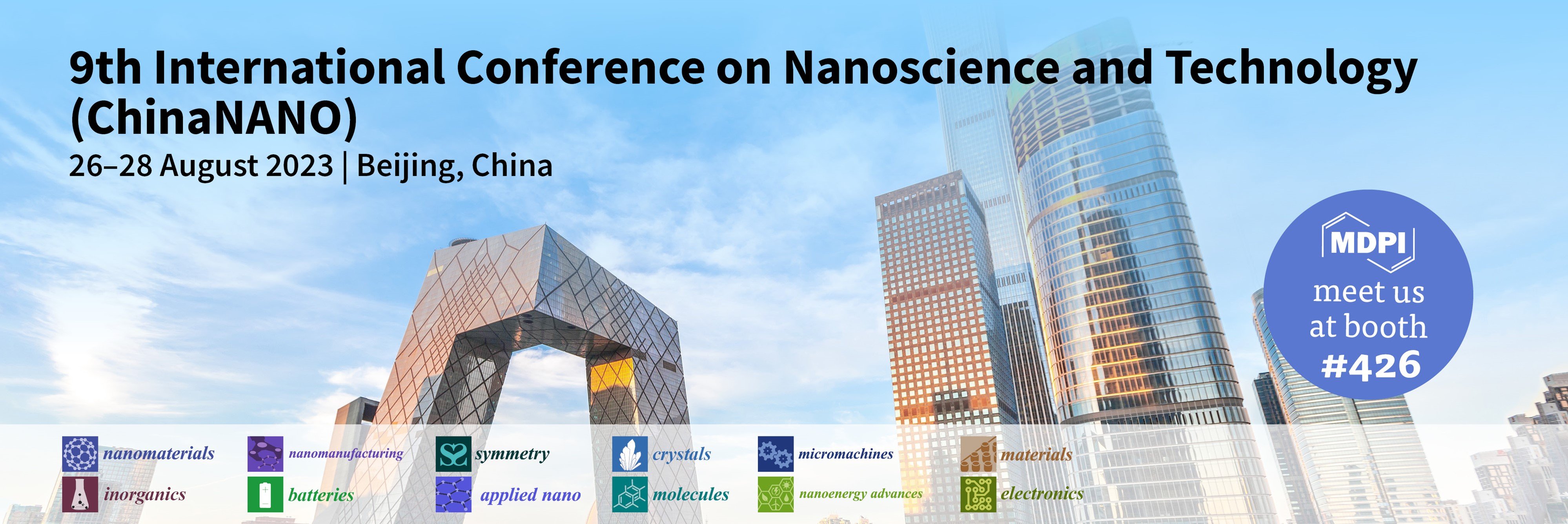
The ChinaNANO conferences have been held biennially since 2005 and have garnered great success in the field of nanoscience. The 2021 conference was suspended due to the COVID-19 pandemic.
After a four-year hiatus, the conference is returning. ChinaNANO 2023 is a highly anticipated international nanotechnology conference that will provide an unparalleled opportunity for global colleagues to reconnect and engage in discussions on the latest scientific breakthroughs, technological advancements, and emerging trends in the field. As the largest and most prestigious conference on nanotechnology in Asia and beyond, ChinaNANO 2023 is expected to draw more than 2500 participants.
MDPI will be attending the event as an exhibitor, and we welcome researchers from different backgrounds to visit and share their latest ideas with us.
We are looking forward to meeting you at our booth, where you can find more information about the journals attending the conference:
- Nanomaterials;
- Nanomanufacturing;
- Symmetry;
- Crystals;
- Micromachines;
- Materials;
- Inorganics;
- Batteries;
- Applied Nano;
- Molecules;
- Nanoenergy Advances;
- Electronics.
Our representatives Ms. Sally Tsui and Ms. Cassie Zhang are eager to answer your questions and address any inquiries you may have.
We welcome you to Beijing in August 2023!
You can find out more about the conference at the following link: http://www.chinanano.org.cn/en/.
16 August 2023
Prof. Dr. Yanlin Song Appointed Associate Editor of Materials

We are pleased to announce that Prof. Dr. Yanlin Song has been appointed Associate Editor of Materials (ISSN: 1996-1944). We wish Prof. Dr. Yanlin Song every success in his new position, and we look forward to his contributions to the journal.
Name: Prof. Dr. Yanlin Song
Affiliation: Key Laboratory of Green Printing, Institute of Chemistry, Chinese Academy of Sciences, Beijing 100190, China
Homepage: http://ylsong.iccas.ac.cn/
Interests: nanomaterials and green printing technology; printed electrics and photonics; fabrication and applications of photonic crystals
Prof. Dr. Yanlin Song has been a Full Professor at the Institute of Chemistry Chinese Academy of Sciences (ICCAS) since 2001. His research interests include green printing materials and technology, polymer photonic crystals, and optic/electric device fabrication. He has published more than 600 academic papers in peer-reviewed journals, has an h-index of 100, and has been granted more than 140 patents. He has proposed and developed nano-green printing as well as micro/nanomanufacturing technology, breaking through fundamental challenges, such as the coffee ring effect, Rayleigh instability, and the Marangoni effect, that affect printing accuracy. He has printed wearable electronics, solar cells, ultrasensitive biosensing chips, and other functional devices. He has won numerous academic awards, including the Second Prize of National Natural Science Award in 2005 and 2008, the National Science Fund for Distinguished Young Scholars in 2006, the First Prize of Beijing Science and Technology Award in 2016, the IEC 1906 Award in 2019, and National Innovation Competition Award in 2023.
We are honored that we have the opportunity to introduce Prof. Dr. Yanlin Song to our editorial team, and we are confident that, with the guidance of our new Associate Editor, we will continue to improve the reputation and quality of Materials (https://www.mdpi.com/journal/materials).
14 August 2023
Meet Us at the 17th European Congress and Exhibition on Advanced Materials and Processes (FEMS EUROMAT 2023), 3–7 September 2023, Frankfurt am Main, Germany
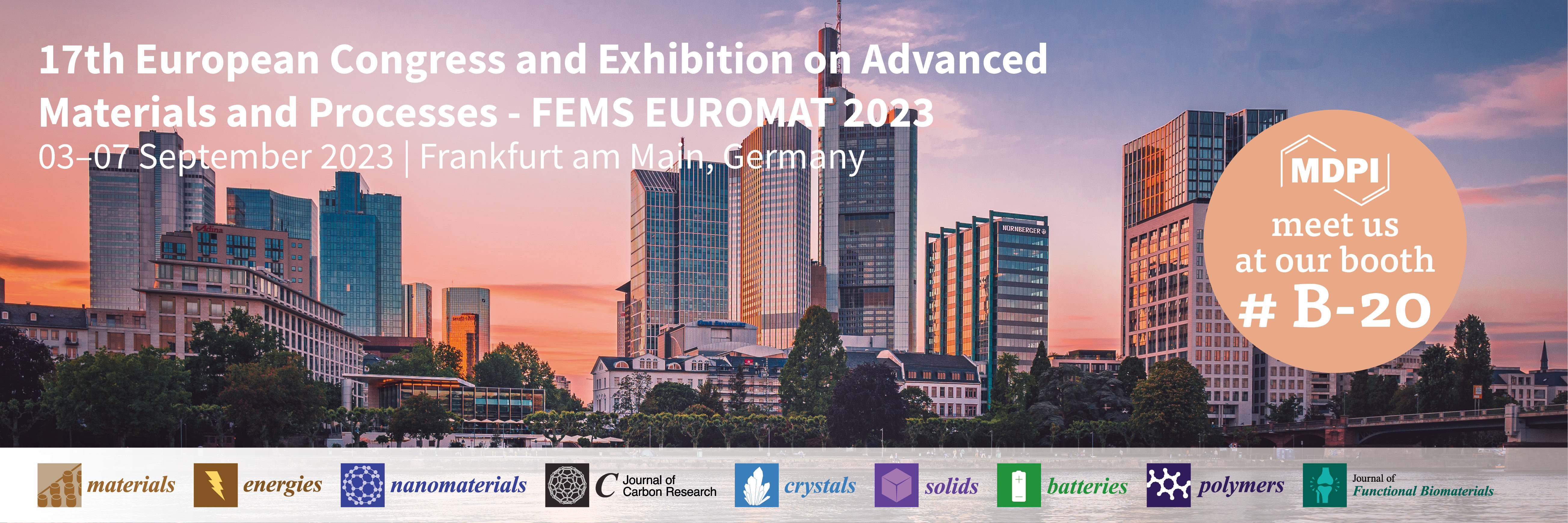
The 17th European Congress and Exhibition on Advanced Materials and Processes (FEMS EUROMAT 2023) will be held from 3 to 7 September 2023, in Frankfurt am Main, Germany. The conference is organized by the German Materials Society.
Areas include the following:
- Functional materials;
- Structural materials;
- Processing;
- Characterization and modeling;
- Energy and transportation;
- Materials for healthcare;
- Education, strategy, and technology transfer;
- Materials for circularity and sustainability.
The following MDPI journals will be represented:
If you are attending this conference, please feel free to start an online conversation with us. Our delegates look forward to meeting you in person at booth #B-20 and answering any questions that you may have. For more information about the conference, please visit the following link: https://euromat2023.com/congress/welcome-address.
11 August 2023
Meet Us at the 6th International Conference on Perovskite Solar Cell and Optoelectronics (PSCO 2023), 18–20 September 2023, Oxford, UK
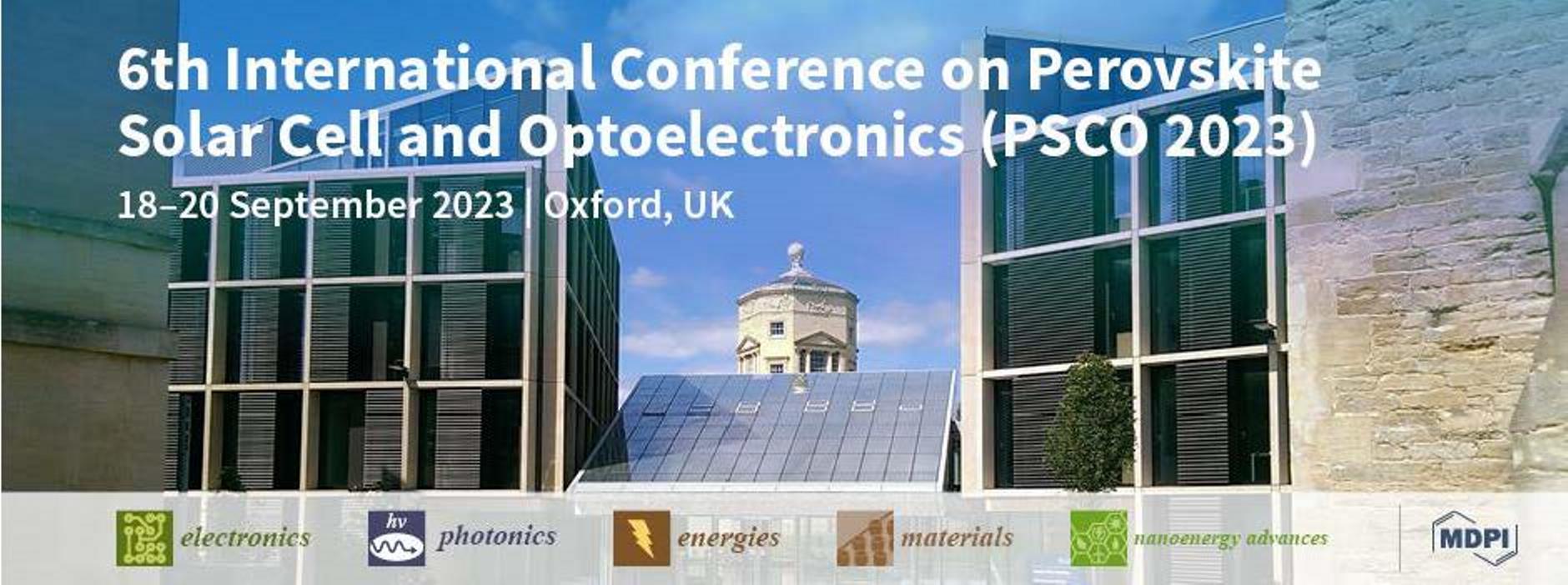
MDPI will be attending the 6th International Conference on Perovskite Solar Cell and Optoelectronics (PSCO 2023) in Oxford, UK, which will take place from 18 to 20 September 2023. The program will include a combination of invited talks, contributing talks and poster presentations in a meeting that will bring a broad spectrum of the community together to discuss and share knowledge on the latest advances in perovskite materials, devices and photophysical and optoelectronic properties and phenomena.
The following MDPI journals will be represented:
If you are attending the conference, please visit our booth. Our delegates look forward to meeting you in person and answering any questions that you may have. For more information about the conference, please visit the following link: https://www.psco-conference.org/.
11 August 2023
Meet Us at the 18th International Conference on Molecule-Based Magnets (ICMM2023), 10–14 September 2023, Nanjing, China
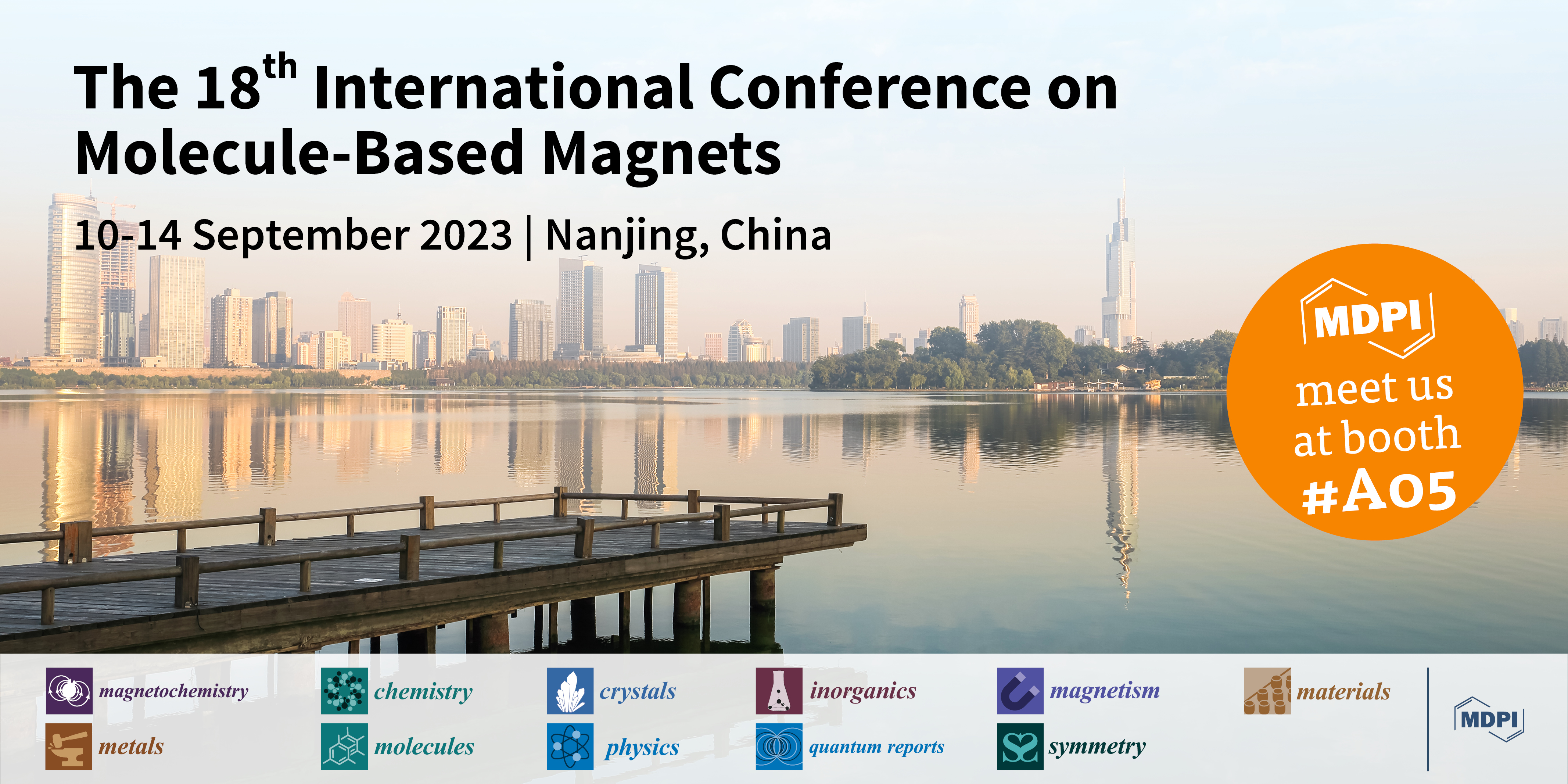
Conference: 18th International Conference on Molecule-Based Magnets (ICMM2023)
Date: 10–14 September 2023
Location: Nanjing, China
MDPI will be attending ICMM 2023 as an exhibitor. We welcome researchers from different backgrounds to visit and share their latest ideas with us.
ICMM is a grand ceremony for all researchers working in related areas all over the world, and is the largest conference covering all topics in molecule-based magnets. The topics that will be covered at the conference will include molecular nanomagnets, spin-crossover materials, long-range ordering magnets, multifunctional and/or switchable materials, nanostructured magnetic materials, molecular spintronics, and devices, as well as other hot topics related to molecule-based magnetism. The conference is organized by the State Key Laboratory of Coordination Chemistry and the School of Chemistry and Chemical Engineering, Nanjing University.
The following MDPI journals will be represented:
- Magnetochemistry;
- Chemistry;
- Crystals;
- Inorganics;
- Magnetism;
- Materials;
- Metals;
- Molecules;
- Physics;
- Quantum Reports;
- Symmetry.
If you are planning to attend this conference, please do not hesitate to start an online conversation with us. Our delegates look forward to meeting you in person and answering any questions that you may have. For more information about the conference, please visit the following website: https://icmm2023.nju.edu.cn/.
27 July 2023
Materials | Exploring Possible Breakthroughs in Tc Calculations for 11-Type and 111-Type Iron-Based Superconductors
The following paper was published in Materials (ISSN: 1996-1944), providing possible breakthroughs regarding Tc calculations for 11-type and 111-type iron-based superconductors:
“Preliminary Tc Calculations for Iron-Based Superconductivity in NaFeAs, LiFeAs, FeSe and Nanostructured FeSe/SrTiO3 Superconductors”
by Chi Ho Wong and Rolf Lortz
Materials 2023, 16(13), 4674; https://doi.org/10.3390/ma16134674
Available online: https://www.mdpi.com/1996-1944/16/13/4674
Our model has successfully shown that when all relevant conduction electrons interact with local Fe moments in iron-based superconductors, the coexistence of superconductivity with local fluctuating antiferromagnetism together with the induced xy potential can lead to an enormous increase in the electron–phonon coupling, which is sufficient to predict the high Tc values in the studied iron-based superconductors. By applying the model to monolayered FeSe on a SrTiO3 substrate, we have concluded that the interfacial phonons are of major importance to explain the high-temperature superconductivity.
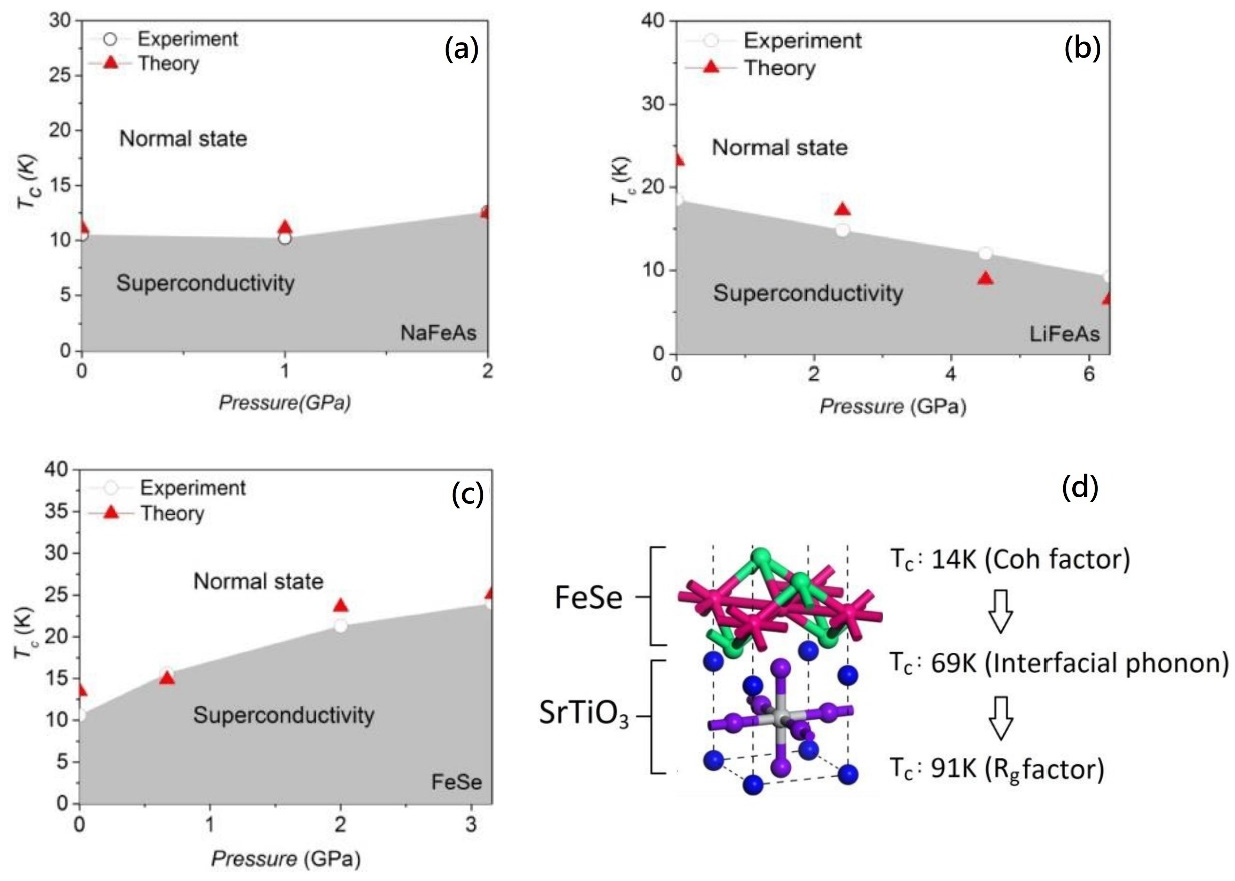
Figure 1. The theoretical and experimental Tc values of (a) NaFeAs, (b) LiFeAs and (c) FeSe are consistent. (d) A FeSe monolayered film is deposited on a SrTiO3 monolayer to form a composite. The offset in theoretical and experimental Tc is 100-91=9K only.
High-temperature superconductors are important because they allow for the development of more efficient and powerful technologies. They can be used to create devices with zero electrical resistance, enabling them to conduct electricity without any loss of energy. This makes them ideal for applications such as power transmission lines, magnetic levitation trains, and high-speed computing systems. High-temperature superconductors also have potential applications in medical imaging and quantum computing. One of the families of high-temperature superconductors, iron-based superconductors, has been an area of intense research since its discovery in 2008. The superconducting transition temperature observed in FeSe/SrTiO3 films has been found to be up to 100K. Despite significant advances in understanding the physical properties of these materials, no theoretical calculation of the superconducting transition temperature (Tc) of iron-based superconductors has been successful so far. This is mainly due to the complexity of the electronic structure and strong electron–electron correlations that are present in these materials. Nevertheless, a team of researchers (Prof. Chi Ho Wong1,2 and Prof. Rolf Lortz1) from the 1Department of Physics at the Hong Kong University of Science and Technology and the 2Department of Industrial and Systems Engineering at the Hong Kong Polytechnic University have developed a new model that can calculate the Tc of several iron-based superconductors (bulk FeSe, LiFeAs, NaFeAs and FeSe/SrTiO3 film) with good accuracy; the model was published in Materials. The model may make a significant contribution to the comprehension of superconductivity in iron-based materials.
Prof. Wong and Prof. Lortz have recently announced a major breakthrough in the Tc calculation of iron-based superconductors (IBSC) for bulk LiFeAs, NaFeAs, FeSe and FeSe/SrTiO3 film. Although antiferromagnetic-enhanced electron–phonon coupling on the Fermi surface cannot produce such high Tc values, they have created the two-channel model to call out the hidden induced xy potential originating from the out-of-plane phonon under antiferromagnetic fluctuations (abbreviated as the Coh factor), in order to refine the calculation of electron–phonon coupling. Furthermore, they have based their model on ARPES data to consider all relevant electrons participating in iron-based superconductivity (abbreviated as the ARPES factor) instead of solely focusing on the interactions at the Fermi level. In the experimental proof of ARPES, all the relevant electrons in the studied superconductors located in the energy range between EF-EDebye and EF are taken into consideration, with EF being the Fermi energy and EDebye being the Debye Energy. The ARPES factor and Coh factor have made a big step to reduce the discrepancy between theoretical and experimental Tc values of the aforementioned materials. This approach allows their model to reasonably predict the superconducting transition temperatures of bulk LiFeAs, NaFeAs, FeSe as a function of pressure in Figure 1a–c. However, the team was able to calculate the highest-Tc IBSC material, FeSe/SrTiO3 (~100K), only if the effect of interfacial phonon between FeSe and SrTiO3 is considered in Figure 1d, which connects phonons to iron-based superconductivity indirectly. The team is now upgrading the model by considering momentum dependence on the superconducting gap and spin-orbital coupling, etc., and checking whether the model is one of the missing puzzles in a unified theory of iron-based superconductors or not.
27 July 2023
MDPI Insights: The CEO’s Letter #2 - Open Peer-Review and IJERPH

Welcome to the MDPI Insights: The CEO's Letter.
In these monthly letters, I will showcase two key aspects of our work at MDPI: our commitment to empowering researchers and our determination to facilitating open scientific exchange.
Opening Thoughts

Open Peer Review Reports
Continuing the topic of openness from my inaugural monthly CEO letter, in these Opening Thoughts, I highlight the growth and importance of open peer-review reports at MDPI. Open peer reports align with the principles of open science, making the publishing process more transparent and facilitating rigorous peer review.
MDPI journals operate an open peer-review option by default, allowing authors to publish review reports and author responses (often referred to as open reports) together with the published paper. Publishing the reviewer reports and author responses together with the article provides greater transparency and trust for readers, as this allows them to track the editorial decision-making process. Open peer-review also encourages reviewers and editors to provide high-quality comments, as these will be made public if the article is accepted for publication.
Start and Growth of Open Peer Review at MDPI
The MDPI journal Life was a pioneer in offering this opportunity to its authors in 2014. The first MDPI article with peer-review reports openly published was a review by the Nobel Laureate Werner Arber, in which the review reports were published as supplementary material. By 2018, open peer-review was available across all MDPI journals. As such, MDPI authors have embraced the open peer-review model, providing a steady increase in the number of MDPI articles. As of 2023, approximately one-third (34.0%) of MDPI articles were published with open review reports.
As at July 2023, the percentage of MDPI articles published with open peer review has increased to 36.2% of the total papers published in 2023 so far, indicating ongoing growth in adoption.
Open peer review continues to play a critical role in the assessment of the peer-review process in Life. For further insights, please see the recent editorial by Dr. Pabulo Henrique Rampelotto, the former Editor-in-Chief of Life, who spearheaded the implementation of the open peer-review process.
Benefits of Open Peer Review
The benefits of open peer review include increased transparency, trust and constructive feedback. To promote open communication further and increase the robustness of the peer-review process, we encourage reviewers to sign their reports so that their name appears on the review report (this process is referred to as open identity). The default option is for reviewers to remain anonymous; however, by signing the reports, reviewers receive direct credit for their contribution to the peer-review process and show their commitment towards open science.
As the leading open access publisher, MDPI remains committed to promoting open peer-review and encourages authors to choose this approach. Our goal is to provide a rigorous and transparent peer-review process that benefits the scientific community, and we believe that open peer-review is a vital step in fostering openness and collaboration in scientific communication.
Impactful Research

MDPI Papers Cited in the News – IJERPH edition
Every month, our corporate marketing team compiles data from Altmetrics to create a list of MDPI papers that have been cited in the news. This list continues to grow as renowned news outlets regularly reference research published by MDPI in their articles.
During 2022, a total of 111,965 MDPI research papers were mentioned in prominent news outlets such as National Geographic, The Washington Post, Forbes, The Guardian, the BBC, CNN, Time, and Harvard Business Review.
Highly Cited Journal Publications
IJERPH, known for publishing impactful research, received the most news mentions among all MDPI journals in 2022, based on Altmetrics data:
- International Journal of Environmental Research and Public Health: 3509 mentions
- Nutrients: 2698 mentions
- International Journal of Molecular Sciences: 1701 mentions
- Journal of Clinical Medicine: 1131 mentions
- Viruses: 1111 mentions
These numbers show the recognition and impact of the articles published in IJERPH. For a more detailed view of the journal’s most cited and viewed papers, you can visit here. In total, IJERPH has garnered over 28,000 mentions in prominent news outlets, and as at July 2023, an impressive count of over 17,000 papers cited 10 times or more. These figures highlight the impactful contribution of IJERPH publications to the scientific community.
Example of Recent Mentions
During May and June 2023, a noteworthy selection of articles from IJERPH was cited in news articles, including:
The Washington Post: “Bringing nature inside can improve your health. Here’s how to do it.”
IJERPH paper: “Physiological Benefits of Viewing Nature: A Systematic Review of Indoor Experiments”
Harvard Business Review: “How to Take Better Breaks at Work, According to Research”
IJERPH paper: “Canine-Assisted Therapy Improves Well-Being in Nurses”
National Geographic: “Lyme disease is spreading fast—but a vaccine may be on the way”
IJERPH paper: “Range Expansion of Tick Disease Vectors in North America: Implications for Spread of Tick-Borne Disease”
Inside MDPI

MDPI Develops an Artificial Intelligence Tool to Enhance the Peer-Review Process
At MDPI, we believe that rigorous peer-review is the corner-stone of high-quality academic publishing. We are grateful to the scholars who generously dedicate their time to peer-review articles submitted to MDPI journals. Their contributions are invaluable to the advancement of science.
Peer-review is a critical part of the publication process, ensuring that MDPI upholds the highest quality standards for the papers we publish. Every manuscript submitted to our journals undergoes a comprehensive peer-review process conducted by subject-matter experts.
To further enhance our peer-review process, our Data Analytics team has developed an Artificial Intelligence (AI) tool designed to support the selection of reviewers. This proprietary tool utilizes Natural Language Processing (NLP), a specially designed AI language model, to extract information from the title and abstract of submitted papers. It then searches our database for similar manuscripts and suggests potential reviewers based on this analysis. Integrated with MDPI's submission system (SuSy), the AI tool cross-references the suggested candidates with our reviewer database to verify their invitation status and availability.
The goal of this tool is to provide better targeted peer-review invitations, reducing the number of emails sent for each paper and increasing the efficiency of our editorial staff.
In the near future, our Data Analytics team plans to deploy similar AI projects to improve other critical aspects of our services, offering an enhanced experience to our authors and readers.
Click here to learn about MDPI’s review process, including procedures, responsibilities, and benefits.
Read more:
Coming Together for Science
The Future of IJERPH

On 5 July 2023, Prof. Dr. Paul B. Tchounwou, the founding Editor-in-Chief of IJERPH, along with five Section Editors in Chief (Prof. Dr. Germán Vicente-Rodríguez, Prof. Dr. Karl Goodkin, Prof. Dr. William A. Toscano, Prof. Dr. Jimmy T. Efird, and Prof. Dr. William Douglas Evans), gathered in Basel to discuss the future of the journal. The meeting provided an opportunity to address the recent decision by The Web of Science to delist IJERPH due to the journal failing the Content Relevance criterion, and propose best strategies that will ensure high scientific rigor as well as a clear scope and aim of IJERPH, going forward.
While the delisting is disappointing for IJERPH, as well as for our authors, academic editors, and the entire scientific community supporting our journal, we see it as an opportunity to reflect and prepare for the future direction of the journal.
Since its launch in 2004, IJERPH’s vision and mission have evolved to be more complete and comprehensive in engaging scientific communities. In light of this, we will refresh the journal’s aims and scope, ensuring they align with the organic expansion of IJERPH. Additionally, we will restructure the journal sections into broader categories, encouraging collaborative research and transdisciplinary approaches for authors. This is designed to foster collaboration and knowledge exchange among diverse fields, contributing to a holistic understanding of health promotion and disease prevention. We are confident that these next steps will enhance the scientific strength and societal impact of our journal.

Journal Achievements
In addition to the productive discussions, we took the time to celebrate some of the remarkable achievements of IJERPH, which I highlight below:
- Founded by Prof. Dr. Paul B. Tchounwou in 2004
- Indexed in PubMed in 2008
- Received its first Impact Factor in 2012
- Published its 5000th paper in 2017
- Over 60,000 papers published as at June 30, 2023
- 131,628,173 paper views in 2018–2022
- Over 28,000 mentions in prominent news outlets
- 17,000 papers cited 10 times or more as at June 30, 2023
- No.1 journal in the 2022 Google Scholar Metrics in the category of Public Health
- Awarded several editions of Young Investigator Awards, Travel Awards, and Outstanding Reviewer Awards since 2018.
These achievements showcase the journal’s significant contributions to the field and its impact on global health. We are proud of the exceptional work accomplished by the IJERPH team and look forward to building upon this success in the years to come.
Closing Thoughts
MDPI’s Impact in Spain

During the past month, I had the opportunity to visit our new office building in Barcelona, where I met with our local colleagues to discuss the ways we serve the scholarly community, particularly in Spain. The multi-functional office plays a vital role in supporting various business needs, including editorial, design, conference management, data analytics, journal relationship management, publishing partnerships, and collaborations with societies.
Spain holds a significant position in MDPI’s global market, ranking as the fourth-largest contributor to the total number of papers published by MDPI as at July 2023, ranking next to Italy, the USA, and China, with Germany completing the top five.
The Numbers
Out of the 1,680,000 total MDPI articles published as at 25 July, almost 80,000 articles are contributed by Spanish authors, representing nearly 40,000 unique authors affiliated with Spanish institutions. Remarkably, over 6,300 of these authors hold editorial board member (EBM) positions within MDPI journals, with 30 of them serving as Editors-in-Chief (EiCs).
Our commitment to working with institutions is very evident in Spain, where we have successfully established over 40 Institutional Open Access Programs (IOAP) with esteemed institutions such as the University of Barcelona, the Autonomous University of Barcelona, Pompeu Fabra University, the University of Navarre, and Complutense University of Madrid.
Over the past five years, we have successfully organized eight in-person conferences in Barcelona, attracting over 1,150 registrations, with two forthcoming events scheduled for 2024. Barcelona's excellent connectivity to international airports makes it easily accessible to participants from around the world. Its welcoming atmosphere provides us with the perfect environment for knowledge-sharing, networking, and contributing to the local economy.
Our growth and presence in Spain are a true testament to the incredible service we provide to the scholarly community and the relationships we foster through responsive and collaborative communication. We look forward to continuing to support Spanish scholars, providing them a valuable and trusted experience with MDPI, the leader in open access publishing.
Testimonials
I close this letter as I did in the first edition, by sharing testimonials from our stakeholders. Here are a few IJERPH testimonials from a Spanish guest editor and an author:
Guest Editor
“I want to thank the kindness, attention and professionalism of the MDPI team throughout the editorial process of the Special Issue. I believe that it is a very professional and quality editorial process.”
- Professor Víctor Arufe-Giráldez, University of A Coruña
Special Issue in International Journal of Environmental Research and Public Health: Physical Activity in Childhood and Adolescence
Special Issue in International Journal of Environmental Research and Public Health: Physical Education: Present and Future
__
Author
“I want to thank the rigor of the revisions made to the manuscripts to improve their quality, the support to the authors for the editor assignment system they have and the follow-up they carry out, for the speed in answering and in carrying out the entire process of the revision, and for doing all this at an affordable price.”
- Dr. María Paz García-Caro, University of Granada
Article in International Journal of Environmental Research and Public Health: Factors Associated with Suicide Attempts and Suicides in the General Population of Andalusia (Spain)
Chief Executive Officer
MDPI AG
25 July 2023
Meet Us at the 15th European Congress on Catalysis (EuropaCat 2023), 27 August–1 September 2023, Prague, Czech Republic
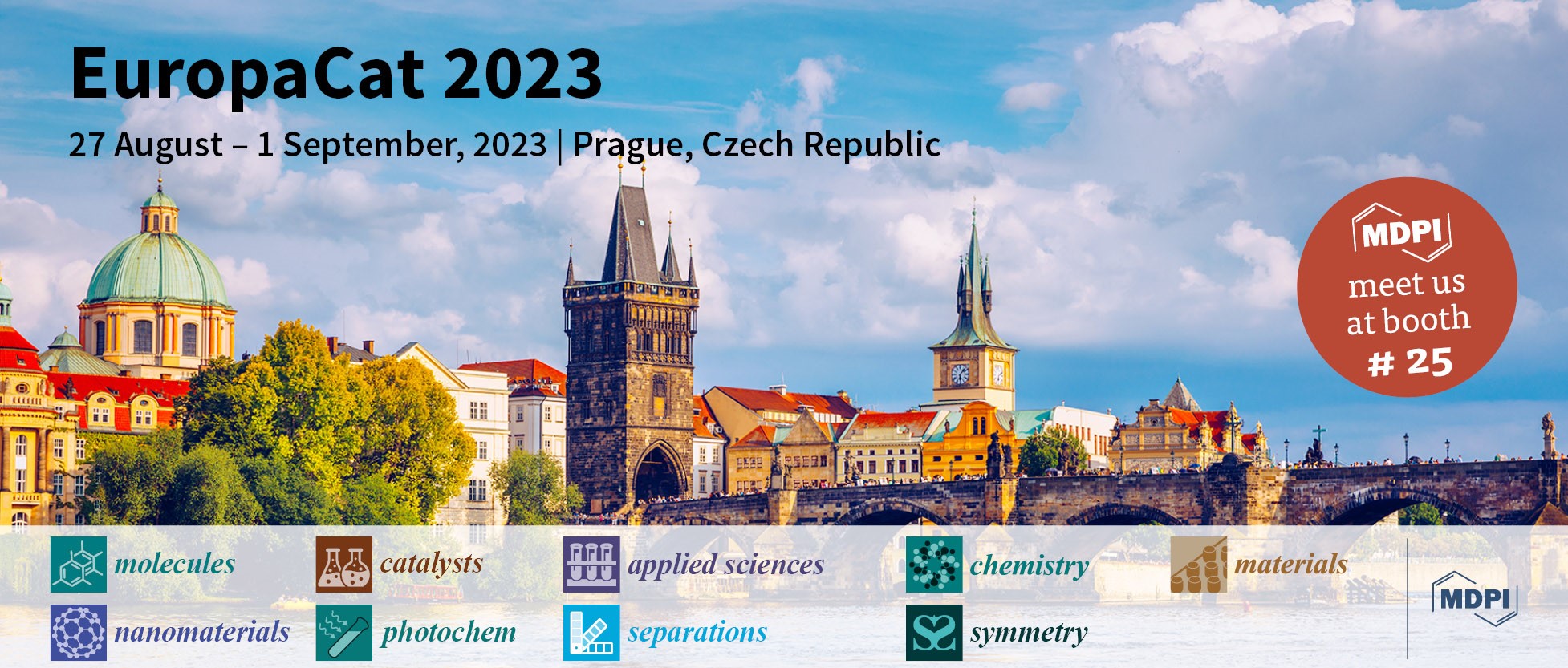
Conference: 15th European Congress on Catalysis (EuropaCat 2023)
Date: 27 August–1 September 2023
Location: Prague, Czech Republic
MDPI will be attending EuropaCat 2023 as an exhibitor. We welcome researchers from different backgrounds to visit and share their latest ideas with us.
EuropaCat has become a traditional meeting place for scientists and researchers from academia and industry who are based all over Europe. Consequently, it has developed into a forum to discuss important challenges in the field of catalysis and the related industrial areas and beyond. The conference is jointly organized by the catalysis societies of the Czech Republic, Hungary, Poland and Slovakia.
The following MDPI journals will be represented:
- Molecules;
- Catalysts;
- Applied Sciences;
- Chemistry;
- Materials;
- Nanomaterials;
- Photochem;
- Separations;
- Symmetry.
If you are planning to attend this conference, please do not hesitate to start an online conversation with us. Our delegates look forward to meeting you in person and answering any questions that you may have. For more information about the conference, please visit the following website: https://www.europacat2023.cz/.
25 July 2023
Meet Us at the 4th National Conference on Inorganic Membranes, 11–14 August 2023, Nanjing, China

MDPI will attend the 4th National Conference on Inorganic Membranes. This conference hosted by the Catalysis Professional Committee of the Chinese Chemical Society and Nanjing University of Technology will be held in Nanjing from 11 to 14 August 2023.
The conference aims to fully display, exchange, and summarize the latest achievements in the field of academic research on inorganic membranes in China, and promote the development of the inorganic membranes industry and the improvement of academic levels. The theme of this conference is “Low-Carbon Process Reengineering with Membrane Technology as the Core”. The conference topics cover membrane material types, application fields and technical fields.
The following MDPI journals will be represented:
If you plan on attending this conference, please feel free to stop by our booth (#8) and start a conversation with us. Our delegates look forward to meeting you in person and answering any questions that you may have. For more information about the conference, please visit https://ncim2023.scimeeting.cn/cn/web/index/19014.
24 July 2023
Meet Us at the 9th International Discussion Meeting on Relaxations in Complex Systems, 12–18 August 2023, Chiba, Japan
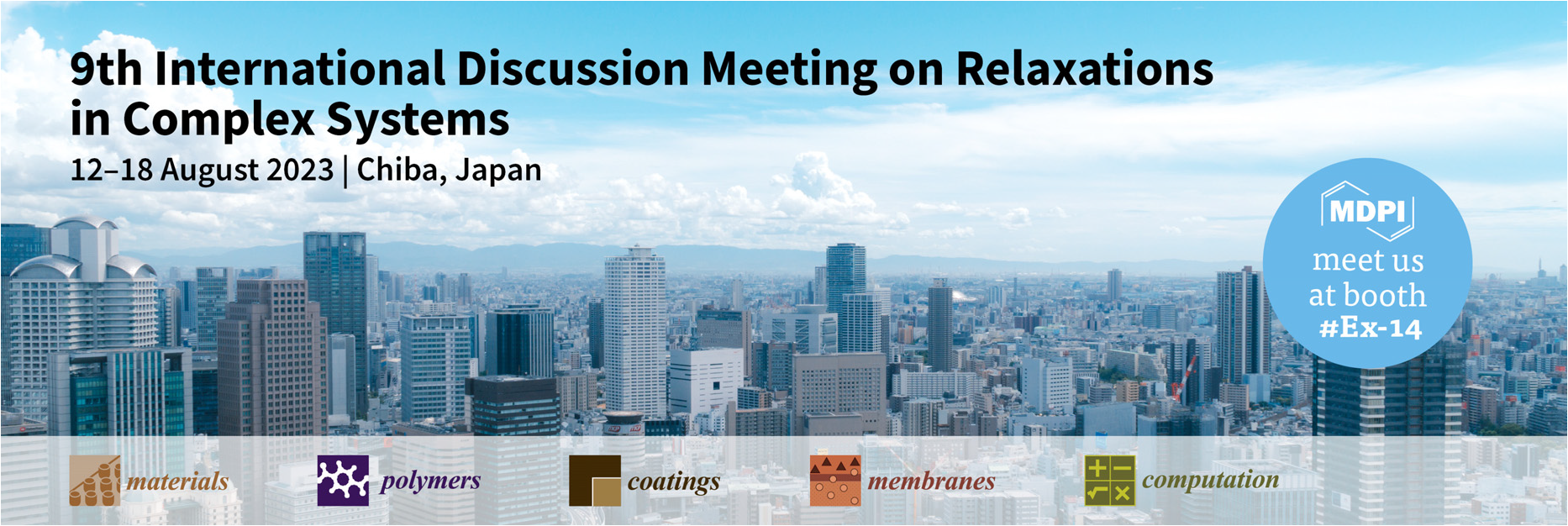
MDPI will be attending the 9th International Discussion Meeting on Relaxations in Complex Systems, organized by the University of Tokyo, held from 12 to 18 August 2023, in Chiba, Japan.
The conference topics include the following:
- Polymer Nanocomposites and MOF;
- Photonic Disordered Materials;
- Network and Inorganic Glasses;
- Interrelation between T and V in Dynamics of Liquids and Polymers;
- Colloidal Systems and Dispersions;
- Information Science and Machine Learning;
- Linear and Nonlinear Dielectric Dynamics.
During this conference, MDPI (at booth #Ex-14) will welcome researchers from different backgrounds to visit and share their latest views and research with us.
The following MDPI journals will be represented:
If you are attending this conference, please feel free to start an online conversation with us. Our delegates look forward to meeting you in person at booth #Ex-14 and answering any questions that you may have.
For more information about the conference, please visit the following link: https://9idmrcs.jp/index.html.
17 July 2023
Materials Webinar | Nanoarchitectonics of Functional Materials, Held on 26 July 2023
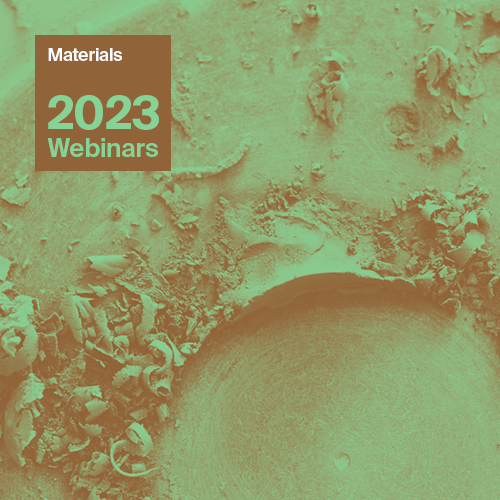
On 26 July 2023, MDPI and the journal Materials (ISSN: 1996-1944) organized the webinar on materials titled “Nanoarchitectonics of Functional Materials”. The webinar focused on functional materials, discussing how to use nanostructure technology to achieve specific properties and functions of materials, and enabling a better understanding of the cutting-edge trends in material design through an in-depth understanding of the principles and applications of nanostructure technology.
Dr. Fabien Grasset first explained the latest progress in nano-architecture. Prof. Dr. David Leong made a report on nanomaterials-induced endothelial leakiness. Prof. Dr. Jung Ho Kim focused on nanoarchitectonics of lithium-ion pathways through pores in a carbon framework and proposed that the structure is helpful for improving the storage capability and reversibility of lithium metal anode. Finally, Prof. Dr. Katsuhiko Ariga made a summary statement of the meeting.
Please note that this webinar is associated with three Special Issues in the Materials journal:
- “Electrochemical Synthesis of Nanostructured Semiconductors”
Submission deadline: 10 September 2023
- “Functional Nanomaterials for a Better Life (Volume II)”
Submission deadline: 10 October 2023
- “Materials Nanoarchitectonics for Membranes, Surfaces, Self-Assembly, and Biomimetics”
Submission deadline: 20 January 2024
You can watch the recorded webinar below:
Webinar Chair and Keynote Speakers:
- Dr. Fabien Grasset, 1 Rennes Institute for Chemical Sciences, CNRS, France; 2 LINK, NIMS-Saint-Gobain-CNRS, Japan;
- Prof. Dr. Katsuhiko Ariga, 1 WPI Research Center for Materials Nanoarchitectonics (MANA), National Institute for Materials Science (NIMS), Japan; 2 Graduate School of Frontier Sciences, The University of Tokyo, Japan;
- Prof. Dr. David Leong, Chemical and Biomolecular Engineering, National University of Singapore, Singapore;
- Prof. Dr. Jung Ho Kim, Institute for Superconducting and Electronic Materials, Australian Institute for Innovative Materials (AIIM), University of Wollongong, Australia.
11 July 2023
MDPI’s Newly Launched Journals in June 2023
With the first issue released in June 2023, five new MDPI journals disseminating multi-disciplinary science are due to launch, which will cover the subjects of medicine & pharmacology, biology and physical sciences.
The newly launched journals will be overseen by professional Editorial Board Members and Editors to ensure an accurate and rapid publication, rigorous peer review and broad visibility.
Please feel free to browse and discover more about the new journals below.
| Journal | Founding Editor-in-Chief | Journal topics (selected) |
| Prof. Dr. Jun Ma, Peking University, China| Editorial | view inaugural issue | growth and development; diet and nutrients; school health promotion policies and practices; child health and care; adolescent health and wellbeing | view journal scope | submit an article |
|
| Prof. Dr. Bernd Rehm, Griffith University, Australia | Editorial | view inaugural issue | DNA and gene synthesis; synthetic transcription factors; protein engineering; viral engineering; metabolic engineering | view journal scope | submit an article | |
| Prof. Dr. Varsha Gandhi, University of Texas MD Anderson Cancer Center, USA | Editorial | view inaugural issue | lymphatics; cancers associated with lymphocytes and lymphoblasts; lymphatic tissues; lymphoma; lymphoid leukemia | view journal scope | submit an article | |
| Dr. Bradley Turner, University of Melbourne, Australia | Editorial | view inaugural issue | multiple sclerosis; amyotrophic lateral sclerosis; primary lateral sclerosis; atherosclerosis; systemic sclerosis | view journal scope | submit an article | |
 |
Prof. Dr. Clemens Burda, Case Western Reserve University, USA | Editorial | view inaugural issue | Gamma ray, X-ray, and UV–Vis spectroscopies; NIR/mid-infrared/Raman spectroscopy; microwave and THz spectroscopy; high-resolution gas-phase atomic, molecular, and cluster spectroscopy; MS, NMR, and EPR spectroscopy | view journal scope | submit an article |
We wish to thank everyone who has supported the development of open access publishing. You are welcome to submit an application to the New Journal Committee ([email protected]) if you would like to create more new journals.
3 July 2023
MDPI Insights: The CEO’s Letter #1 - Open Access and Impactful Research

Welcome to the MDPI Insights: The CEO's Letter.
In these monthly letters, I will showcase two key aspects of our work at MDPI: our commitment to empowering researchers and our determination to facilitating open scientific exchange.
Opening Thoughts
The Future is Open, and MDPI is Leading the Way
I strongly believe in a future that embraces openness, where open source, open information, and open access (OA) take center stage. This belief that led me to join MDPI in 2020, and I am honored to have recently been appointed as Chief Executive Officer (CEO). In this capacity, and operating in close liaison with Dr. Lin and MDPI’s senior management, I shall work to build on Dr. Lin’s achievements of the past quarter-century. In this role, I will focus on communication initiatives to promote MDPI's remarkable work and continue to build our company as a trusted leader in OA publishing. For over two decades, MDPI has been at the forefront of reshaping the academic publishing landscape, with OA surpassing subscription-based publishing in 2020. This trajectory is deeply rooted in our history and reflects our unwavering commitment and vision for an open future.
1 Million Published Articles
2023 began with a remarkable achievement for MDPI, as we became the first OA publisher to reach the milestone of 1 million published articles. This represents 2.7 million unique authors who have trusted us with their work, or about a third of all researchers worldwide. As the world's most cited OA publisher, we are proud in sharing these significant milestones.
Our mission remains unchanged: to make science open and accessible to all. We understand the importance of knowledge access, empowering researchers to stay at the forefront of a rapidly changing world. Our diverse range of journals covers a wide spectrum of disciplines, offering cutting-edge insights, trusted tools, and crucial knowledge to address global challenges.
Liberating Science
As the world’s leading OA publisher, MDPI is actively liberating science. We are committed to eliminating the frustrations researchers and the general public face when accessing information, ensuring it is not locked behind paywalls. We firmly believe that everyone has a right to information, and our commitment to open access publishing drives our work.
In this inaugural edition of Insights: The CEO's Letter, I draw inspiration from the upcoming 20th anniversary of the Berlin Declaration on Open Access. Its stated mission reminds us that true impact is achieved when knowledge is widely and readily available to society:
"Our mission of disseminating knowledge is only half complete if the information is not made widely and readily available to society”
Impactful Research

MDPI Publishes Impactful Research: Recognized by Leading Indexing Databases
MDPI journals are indexed in every single top database in the world.
As of June 2023, we have 214 journals indexed within Web of Science, 223 indexed within Scopus, 87 indexed within PubMed and PMC, and 17 indexed within MEDLINE, and these numbers increase every month. We constantly strive to expand the coverage of our journals within leading multi-disciplinary and scope-specific databases, resulting in an incredibly broad range of journals that are indexed within a variety of databases. MDPI has active relationships with approximately 65 well-known databases around the world, and we continue to expand our portfolio every year so that your work can be found, cited, and referenced with ease.
Continued Growth of MDPI Journals
The 2022 Scopus and Web of Science journal citation metrics were officially released in June, and I am pleased to report that 31 MDPI journals received their first CiteScore, taking the total number of journals with a CiteScore to 216. The number of MDPI journals receiving an Impact Factor (IF) also continues to grow with 111 receiving their first, by being covered in the ESCI, bringing our total number of journals with an IF to 208 of which 41 journals received an IF above 4.0. Looking at 2022 CiteScores in the Scopus database, 80% of MDPI journals have a score that ranks them in Q1 or Q2 in at least one subject category.
Publishing impactful science would not be possible without all of our authors, editors and reviewers. Thank you for your contribution and continued support! Together we share the latest scientific insights faster and ensure that your work is accessible to all.
Read more
Inside MDPI

Preprints.org: Clarivate adds the Preprint Citation Index to the Web of Science
At MDPI, we are dedicated to driving the advancement of science. Through our initiative, Preprints.org, researchers can publish their work and gain valuable feedback from the broader research community, ensuring rapid progress in their respective fields. This is particularly crucial during times of health and climate challenges, where timely dissemination of findings is essential.
Increased Visibility for Preprints
I am pleased to share that Clarivate recognizes the significance of preprints and has taken a crucial step to enhance their visibility. Clarivate has added the Preprint Citation Index to the Web of Science, encompassing preprints published not only on Preprints.org but also on other reputable repositories.
Looking ahead, the future of preprints appears promising, bolstered by the recent indexing announcement from the Web of Science. As a result, preprints will receive increased visibility, serving as a valuable resource for staying informed about the latest research developments.
Read more
What are Preprints?
The Pros and Cons of Preprints
Preprints and COVID-19
Preprints—The Future of Open Access Publishing?
Coming Together for Science

The First International Conference on Antioxidants: Sources, Methods, Health Benefits and Industrial Applications
In this edition of ‘Coming Together for Science,’ I am pleased to highlight the First International Conference on Antioxidants organized by our conference team in the beautiful city of Barcelona, Spain. The conference attracted over 130 attendees, who engaged in 42 talks, and 89 poster presentations spread across several sessions.
Working Together
Under the leadership of Prof. Dr. Alessandra Napolitano (Department of Chemical Sciences, University of Naples ‘Federico II’, Naples, Italy) and Prof. Dr. Rosa M. Lamuela Raventos (Department of Nutrition, Food Sciences and Gastronomy, University of Barcelona, Spain) as chairs, and supported by the committee members, 10 invited keynote speakers, poster presenters, and all the attendees, this dedicated group of academics came together to discuss the natural sources, methodologies, health benefits, and industrial applications of antioxidants.
Especially noteworthy is the positive feedback received from attendees, with 94% rating the overall organization of the conference as good or excellent. I particularly love the picture above, capturing the gathering of some of the participants. You can browse through more photos in the event gallery located here.
Managing Events With Sciforum
If you are considering hosting your own academic event, I highly recommend checking out Sciforum, MDPI's event management platform. Sciforum simplifies the entire process, making it easy to host your own event by allowing you to focus on what really matters: Science!
Read more
Closing Thoughts
 Stefan Tochev, Dr. Shu-Kun Lin, Dr. Eric O. Freed, Peter Roth, Wynne Wang, Allison Yang
Stefan Tochev, Dr. Shu-Kun Lin, Dr. Eric O. Freed, Peter Roth, Wynne Wang, Allison Yang
Viruses and Editorial Quality: Acknowledging the Dedication of our Viruses Journal Team
During a June meeting with Dr. Eric O. Freed, the founding and current Editor-in-Chief of our journal Viruses, I was reminded of the exceptional dedication of our editorial board. Meeting with Eric is a pleasure, as he has a strong commitment and clear vision for the journal. Over the course of two days, we gained a deep understanding of the journal’s expectations and focus on strategic growth, editorial board representation, and engagement.
I am pleased to share that Viruses holds a CiteScore of 7.1 (an increase of 7.57% versus the 2021 metric) and an Impact Factor of 4.7. You can view the journal statistics here. Viruses publishes highly cited papers, and is indexed in renowned databases such as Scopus, SCIE (Web of Science), PubMed, and others, and maintains affiliations with prestigious societies. Moreover, the Viruses team has recently announced an exciting upcoming event titled ‘Viruses 2024 – A World of Viruses,’ scheduled to take place in Barcelona, Spain, from 14–16 February 2024.
Testimonials
If you notice my enthusiasm regarding our editorial service, it’s because the surveys and testimonials we receive speak volumes about the experiences of our authors, reviewers, and guest editors who collaborate with MDPI. The purpose of these letters is to highlight the exceptional work that we do and the experiences we create for the scholars – thus, let me end with this testimonial from an author:
“It was a great pleasure to publish in Viruses Special Issue [Emerging Viruses in Aquaculture]. The submission process was easy. Guest editors were very helpful and provided all the guidance and support as needed. The handling of the manuscript by the Editorial Team was very fast, efficient, and professional. The reviewer’s comments were insightful, and the publication processes were remarkably rapid.”
– Ms. Magdalena Stachnik, Państwowy Instytut Weterynaryjny | PIWet
Article in Viruses: Emerging Viral Pathogens in Sturgeon Aquaculture in Poland: Focus on Herpesviruses and Mimivirus Detection
Chief Executive Officer
MDPI AG
28 June 2023
2022 Impact Factors for MDPI Journals
The 2022 citation metrics have been released in the Journal Citation Reports (JCR), and we’re pleased to announce the following results for MDPI journals:

We are thrilled to announce that 90% of our ranked MDPI journals, specifically 86 out of 96 (captured in the table below), are performing above average in Q1 or Q2. This year, Clarivate has expanded its Impact Factor (IF) awards to include journals in the Emerging Sources Citation Index (ESCI) and the Arts and Humanities Citation Index (AHCI), providing greater transparency for the full set of journals indexed in the Web of Science Core Collection. As a result, 111 of MDPI journals have received their first IF in 2023, with 37 journals surpassing an IF of 3.0. In total, 208 MDPI journals have been honored with an IF.
Clarivate explains that by "expanding the coverage but holding to highly selective standards, the [Impact Factor] is now a reliable indicator of trustworthiness, as well as a measure of scholarly impact, at the journal level."
Please visit our blog post where we discuss the release of the latest citation metrics with our Indexing Manager, Dr. Constanze Schelhorn, to find out what's different this time around and how to make use of different metrics available.
| Journal | Impact Factor | Rank Quartile | Category |
| Vaccines | 7.8 | Q1 | Immunology |
| Medicine, Research & Experimental | |||
| Antioxidants | 7.0 | Q1 | Food Science & Technology |
| Biochemistry & Molecular Biology | |||
| Chemistry, Medicinal | |||
| Cells | 6.0 | Q2 | Cell Biology |
| Nutrients | 5.9 | Q1 | Nutrition & Dietetics |
| International Journal of Molecular Sciences | 5.6 | Q1 | Biochemistry & Molecular Biology |
| Q2 | Chemistry, Multidisciplinary | ||
| Journal of Theoretical and Applied Electronic Commerce Research | 5.6 | Q2 | Business |
| Biomolecules | 5.5 | Q1 | Biochemistry & Molecular Biology |
| Biosensors | 5.4 | Q1 | Chemistry, Analytical |
| Instruments & Instrumentation | |||
| Q2 | Nanoscience & Nanotechnology | ||
| Fractal and Fractional | 5.4 | Q1 | Mathematics, Interdisciplinary Applications |
| Marine Drugs | 5.4 | Q1 | Chemistry, Medicinal |
| Pharmacology & Pharmacy | |||
| Pharmaceutics | 5.4 | Q1 | Pharmacology & Pharmacy |
| Nanomaterials | 5.3 | Q1 | Physics, Applied |
| Q2 | Chemistry, Multidisciplinary | ||
| Materials Science, Multidisciplinary | |||
| Nanoscience & Nanotechnology | |||
| Cancers | 5.2 | Q2 | Oncology |
| Foods | 5.2 | Q1 | Food Science & Technology |
| Polymers | 5.0 | Q1 | Polymer Science |
| Remote Sensing | 5.0 | Q1 | Geosciences, Multidisciplinary |
| Q2 | Remote Sensing | ||
| Imaging Science & Photographic Technology | |||
| Environmental Sciences | |||
| Antibiotics | 4.8 | Q1 | Pharmacology & Pharmacy |
| Q2 | Infectious Diseases | ||
| Drones | 4.8 | Q2 | Remote Sensing |
| Journal of Functional Biomaterials | 4.8 | Q2 | Engineering, Biomedical |
| Materials Science, Biomaterials | |||
| Biomedicines | 4.7 | Q1 | Pharmacology & Pharmacy |
| Q2 | Biochemistry & Molecular Biology | ||
| Medicine, Research & Experimental | |||
| Journal of Fungi | 4.7 | Q2 | Mycology |
| Microbiology | |||
| Viruses | 4.7 | Q2 | Virology |
| Bioengineering | 4.6 | Q2 | Engineering, Biomedical |
| Gels | 4.6 | Q1 | Polymer Science |
| Molecules | 4.6 | Q2 | Chemistry, Multidisciplinary |
| Biochemistry & Molecular Biology | |||
| Pharmaceuticals | 4.6 | Q2 | Pharmacology & Pharmacy |
| Chemistry, Medicinal | |||
| Toxics | 4.6 | Q1 | Toxicology |
| Q2 | Environmental Sciences | ||
| Biomimetics | 4.5 | Q1 | Engineering, Multidisciplinary |
| Q2 | Materials Science, Biomaterials | ||
| Microorganisms | 4.5 | Q2 | Microbiology |
| Plants | 4.5 | Q1 | Plant Sciences |
| Biology | 4.2 | Q2 | Biology |
| Chemosensors | 4.2 | Q2 | Instruments & Instrumentation |
| Chemistry, Analytical | |||
| Electrochemistry | |||
| Membranes | 4.2 | Q2 | Engineering, Chemical |
| Materials Science, Multidisciplinary | |||
| Chemistry, Physical | |||
| Polymer Science | |||
| Toxins | 4.2 | Q1 | Toxicology |
| Q2 | Food Science & Technology | ||
| Metabolites | 4.2 | Q2 | Biochemistry & Molecular Biology |
| Batteries | 4.0 | Q2 | Electrochemistry |
| Materials Science, Multidisciplinary | |||
| Q3 | Energy & Fuels | ||
| Catalysts | 3.9 | Q2 | Chemistry, Physical |
| Journal of Clinical Medicine | 3.9 | Q2 | Medicine, General & Internal |
| Land | 3.9 | Q2 | Environmental Studies |
| Sensors | 3.9 | Q2 | Instruments & Instrumentation |
| Chemistry, Analytical | |||
| Engineering, Electrical & Electronic | |||
| Sustainability | 3.9 | Q2 | Environmental Sciences (SCIE) |
| Environmental Studies (SSCI) | |||
| Q3 | Green & Sustainable Science & Technology (SCIE) | ||
| Green & Sustainable Science & Technology (SSCI) | |||
| Buildings | 3.8 | Q2 | Construction & Building Technology |
| Engineering, Civil | |||
| Agronomy | 3.7 | Q1 | Agronomy |
| Q2 | Plant Sciences | ||
| Fermentation | 3.7 | Q2 | Biotechnology & Applied Microbiology |
| Pathogens | 3.7 | Q2 | Microbiology |
| Agriculture | 3.6 | Q1 | Agronomy |
| Diagnostics | 3.6 | Q2 | Medicine, General & Internal |
| Genes | 3.5 | Q2 | Genetics & Heredity |
| Journal of Intelligence | 3.5 | Q2 | Psychology, Multidisciplinary |
| Lubricants | 3.5 | Q2 | Engineering, Mechanical |
| Processes | 3.5 | Q2 | Engineering, Chemical |
| Coatings | 3.4 | Q2 | Materials Science, Coatings & Films |
| Physics, Applied | |||
| Q3 | Materials Science, Multidisciplinary | ||
| ISPRS International Journal of Geo-Information | 3.4 | Q2 | Geography, Physical |
| Q3 | Computer Science, Information Systems | ||
| Remote Sensing | |||
| Materials | 3.4 | Q2 | Metallurgy & Metallurgical Engineering |
| Physics, Applied | |||
| Physics, Condensed Matter | |||
| Q3 | Materials Science, Multidisciplinary | ||
| Chemistry, Physical | |||
| Micromachines | 3.4 | Q2 | Instruments & Instrumentation |
| Physics, Applied | |||
| Chemistry, Analytical | |||
| Q3 | Nanoscience & Nanotechnology | ||
| Water | 3.4 | Q2 | Water Resources |
| Environmental Sciences | |||
| Brain Sciences | 3.3 | Q3 | Neurosciences |
| Energies | 3.2 | Q3 | Energy & Fuels |
| Fire | 3.2 | Q1 | Forestry |
| Q2 | Ecology | ||
| Life | 3.2 | Q2 | Biology |
| Current Issues in Molecular Biology | 3.1 | Q3 | Biochemistry & Molecular Biology |
| Horticulturae | 3.1 | Q1 | Horticulture |
| Animals | 3.0 | Q1 | Agriculture, Dairy & Animal Science |
| Veterinary Sciences | |||
| Insects | 3.0 | Q1 | Entomology |
| Atmosphere | 2.9 | Q3 | Meteorology & Atmospheric Sciences |
| Environmental Sciences | |||
| Electronics | 2.9 | Q2 | Engineering, Electrical & Electronic |
| Physics, Applied | |||
| Q3 | Computer Science, Information Systems | ||
| Forests | 2.9 | Q1 | Forestry |
| Inorganics | 2.9 | Q2 | Chemistry, Inorganic & Nuclear |
| Journal of Marine Science and Engineering | 2.9 | Q1 | Engineering, Marine |
| Q2 | Oceanography | ||
| Engineering, Ocean | |||
| Metals | 2.9 | Q2 | Metallurgy & Metallurgical Engineering |
| Q3 | Materials Science, Multidisciplinary | ||
| Tropical Medicine and Infectious Disease | 2.9 | Q2 | Tropical Medicine |
| Parasitology | |||
| Q3 | Infectious Diseases | ||
| Universe | 2.9 | Q2 | Astronomy & Astrophysics |
| Physics, Particles & Fields | |||
| Healthcare | 2.8 | Q2 | Health Policy & Services (SSCI) |
| Q3 | Health Care Sciences & Services (SCIE) | ||
| Applied Sciences | 2.7 | Q2 | Engineering, Multidisciplinary |
| Physics, Applied | |||
| Q3 | Chemistry, Multidisciplinary | ||
| Materials Science, Multidisciplinary | |||
| Crystals | 2.7 | Q2 | Crystallography |
| Q3 | Materials Science, Multidisciplinary | ||
| Entropy | 2.7 | Q2 | Physics, Multidisciplinary |
| Magnetochemistry | 2.7 | Q2 | Chemistry, Inorganic & Nuclear |
| Q3 | Chemistry, Physical | ||
| Materials Science, Multidisciplinary | |||
| Symmetry | 2.7 | Q2 | Multidisciplinary Sciences |
| Actuators | 2.6 | Q2 | Instruments & Instrumentation |
| Engineering, Mechanical | |||
| Aerospace | 2.6 | Q1 | Engineering, Aerospace |
| Behavioral Sciences | 2.6 | Q2 | Psychology, Multidisciplinary |
| Current Oncology | 2.6 | Q3 | Oncology |
| Machines | 2.6 | Q2 | Engineering, Mechanical |
| Q3 | Engineering, Electrical & Electronic | ||
| Medicina | 2.6 | Q3 | Medicine, General & Internal |
| Separations | 2.6 | Q3 | Chemistry, Analytical |
| Minerals | 2.5 | Q2 | Mining & Mineral Processing |
| Mineralogy | |||
| Geochemistry & Geophysics | |||
| Children | 2.4 | Q2 | Pediatrics |
| Diversity | 2.4 | Q2 | Biodiversity Conservation |
| Q3 | Ecology | ||
| Journal of Cardiovascular Development and Disease | 2.4 | Q3 | Cardiac & Cardiovascular Systems |
| Mathematics | 2.4 | Q1 | Mathematics |
| Photonics | 2.4 | Q3 | Optics |
| Veterinary Sciences | 2.4 | Q1 | Veterinary Sciences |
| Fishes | 2.3 | Q2 | Marine & Freshwater Biology |
| Fisheries | |||
| Axioms | 2.0 | Q2 | Mathematics, Applied |
| Systems | 1.9 | Q2 | Social Sciences, Interdisciplinary |
| Tomography | 1.9 | Q3 | Radiology, Nuclear Medicine & Medical Imaging |
Note: The Journal of Personalized Medicine's Impact Factor was omitted in the original release and will be assigned separately. Please find the data on the journal webpage in due course.
Source: 2022 Journal Impact Factors, Journal Citation Reports TM (Clarivate, 2023)
28 June 2023
Meet Us at the 3rd National Cellulose Symposium of the Chinese Chemical Society, 8–11 August 2023, Guiyang, Guizhou, China
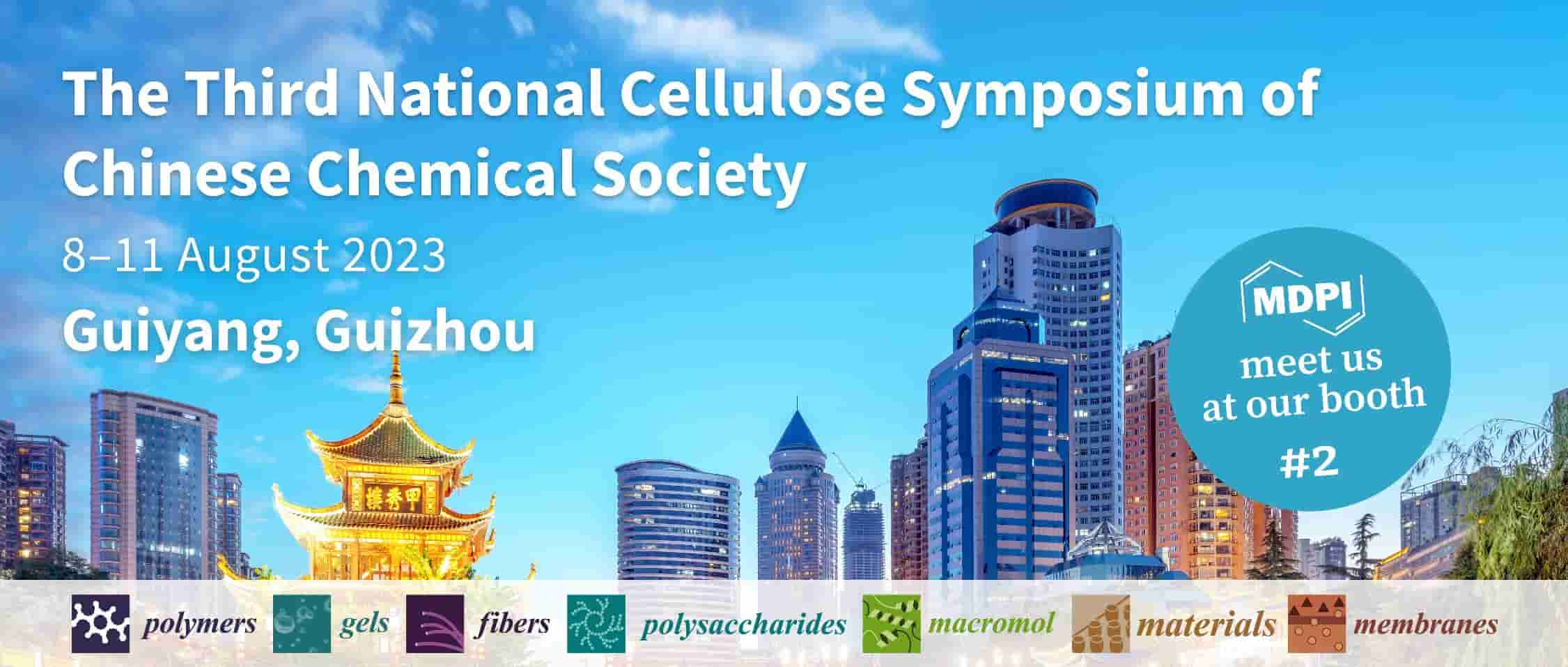
The 3rd National Cellulose Symposium of the Chinese Chemical Society will be held from 8 to 11 August 2023, in Guiyang, Guizhou, China. The conference is hosted by the Chinese Chemical Society and is organized by the School of Materials and Metallurgy of Guizhou University.
Topics include the following:
- Functional structure and application of cellulose-based materials;
- Basic theory and function of nanocellulose;
- Efficient green conversion of cellulose;
- Separation, structure, modification, and application of lignin;
- Development and utilization of other biomass resources;
- Natural polymer energy storage, smart materials, and devices;
- Cellulose chemicals and cellulose recycled materials industry forum.
The following MDPI journals will be represented:
- Polymers;
- Gels;
- Fibers;
- Polysaccharides;
- Macromol;
- Materials;
- Membranes.
If you are attending this conference, please feel free to start an online conversation with us. Our delegates look forward to meeting you in person at booth #2 and answering any questions that you may have. For more information about the conference, please visit the following link: https://www.chemsoc.org.cn/meeting/home/m484.
27 June 2023
Meet Us at the International Conference on Processing & Manufacturing of Advanced Materials: Processing, Fabrication, Properties, Applications, 2–7 July 2023, Vienna, Austria
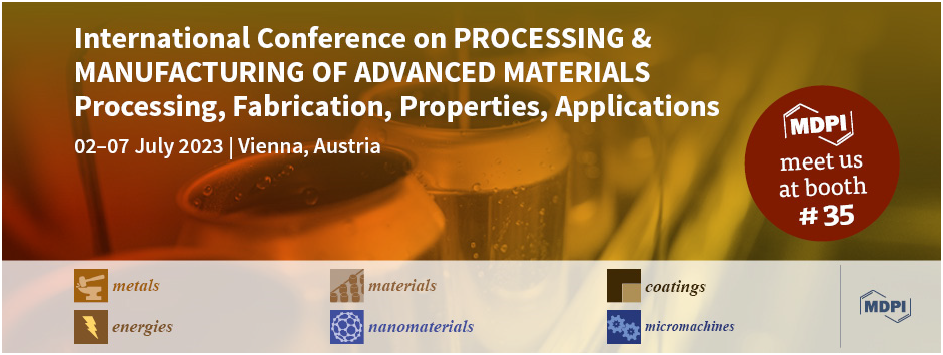
The International Conference on Processing & Manufacturing of Advanced Materials: Processing, Fabrication, Properties, Applications (THERMEC’2023) is the twelfth international conference on the advanced materials series built upon the proven concept and continues the tradition of its eleven predecessors: Japan (1988), Australia (1997), USA (2000), Spain (2003), Vancouver, Canada (2006), Berlin, Germany (2009), Quebec City, Canada (2011), Las Vegas, USA (2013), Graz, Austria (2016), Paris, France (2018) and Virtual Conference in June 2021.
MDPI will be attending the event as an exhibitor, and we welcome researchers from different backgrounds to visit and share their latest ideas with us.
We are looking forward to meeting you at our booth #35, where you can find more information about the MDPI journals attending the conference:
Our representatives Igor Matic and Teodora Stepanov are eager to answer your questions and address any inquiries you may have.
19 June 2023
Materials 2024 Travel Award—Open for Nominations
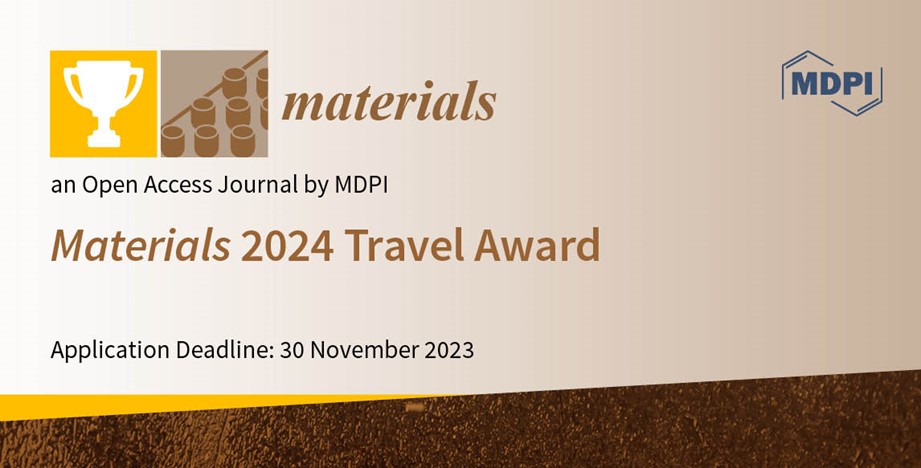
We are pleased to announce that Materials (ISSN: 1996-1944) will be granting the Travel Award to two junior scientists. The applications will be assessed by an Evaluation Committee consisting of senior scholars from the Materials Editorial Board.
This award provides financial support for the winners to attend an international conference in the field of materials science and engineering, to be held in 2024, in order to hold a presentation, present a poster, or both.
Candidate requirements:
- Postdoctoral fellows or Ph.D. students;
- Plans to attend an international conference in 2024 (oral presentation or poster).
Required application documents:
- Information of the conference the applicant is planning to attend and the abstract that will be submitted;
- Curriculum vitae and list of publications;
- Justification letter describing the focus of the research (max. 800 words);
- Letter of recommendation from the supervisor, research director, or department head, which also confirms the applicant’s status as a postdoctoral fellow/Ph.D. student.
The winners (two awardees) will each be awarded CHF 800 and an electronic certificate.
Please submit your applications for the Materials 2024 Travel Award at https://www.mdpi.com/journal/materials/awards/submit/2418 by 30 November 2023. Prizes will be awarded at the end of January 2024 and announced on the Materials website.
Materials Editorial Office
16 June 2023
Materials | Editor’s Choice Articles in 2023 in Section “Energy Materials”

Section “Energy Materials” is a platform for the publication of original articles and comprehensive reviews on the fundamental science and application of materials used for harvesting, conversion, storage, transmission, and the utilization of energy.
Both simulation/modeling and experimental contributions on the design, preparation, processing, characterization, and performance of materials for energy-related technologies and applications are welcome.
We are pleased to present the 2023 Editor’s Choice Articles, a carefully curated list of high-quality articles from the “Energy Materials” Section listed below:
“Modeling Analysis of a Polygeneration Plant Using a CeO2/Ce2O3 Chemical Looping”
by Greta Magnolia, Massimo Santarelli, Domenico Ferrero and Davide Papurello
Materials 2023, 16(1), 315; https://doi.org/10.3390/ma16010315
Available online: https://www.mdpi.com/1996-1944/16/1/315
“Nanocomposite Electrode of Titanium Dioxide Nanoribbons and Multiwalled Carbon Nanotubes for Energy Storage”
by Mohammad BinSabt, Mohamed Shaban and Ahmed Gamal
Materials 2023, 16(2), 595; https://doi.org/10.3390/ma16020595
Available online: https://www.mdpi.com/1996-1944/16/2/595
“Modeling and Characterization of Surface Discharges in Insulating Material for Spacers: Electrode Shape, Discharge Mode, and Revision of the Creepage Concept”
by Debasish Nath, Qichen Yang, Giancarlo Montanari, Weijun Yin, Han Xiong and Karim Younsi
Materials 2023, 16(3), 989; https://doi.org/10.3390/ma16030989
Available online: https://www.mdpi.com/1996-1944/16/3/989
“Physicochemical Modeling of Electrochemical Impedance in Solid-State Supercapacitors”
by Davood Peyrow Hedayati, Gita Singh, Michael Kucher, Tony D. Keene and Robert Böhm
Materials 2023, 16(3), 1232; https://doi.org/10.3390/ma16031232
Available online: https://www.mdpi.com/1996-1944/16/3/1232
“Bismuth−Antimony Alloy Embedded in Carbon Matrix for Ultra-Stable Sodium Storage”
by Wensheng Ma, Bin Yu, Fuquan Tan, Hui Gao and Zhonghua Zhang
Materials 2023, 16(6), 2189; https://doi.org/10.3390/ma16062189
Available online: https://www.mdpi.com/1996-1944/16/6/2189
“Black Liquor and Wood Char-Derived Nitrogen-Doped Carbon Materials for Supercapacitors”
by Loreta Tamasauskaite-Tamasiunaite, Jolita Jablonskienė, Dijana Šimkūnaitė, Aleksandrs Volperts, Ance Plavniece, Galina Dobele, Aivars Zhurinsh, Vitalija Jasulaitiene, Gediminas Niaura, Audrius Drabavicius et al.
Materials 2023, 16(7), 2551; https://doi.org/10.3390/ma16072551
Available online: https://www.mdpi.com/1996-1944/16/7/2551
“Mechanistic Study of Fast Performance Decay of PtCu Alloy-based Catalyst Layers for Polymer Electrolyte Fuel Cells through Electrochemical Impedance Spectroscopy”
by Maximilian Grandi, Matija Gatalo, Ana Rebeka Kamšek, Gregor Kapun, Kurt Mayer, Francisco Ruiz-Zepeda, Martin Šala, Bernhard Marius, Marjan Bele, Nejc Hodnik et al.
Materials 2023, 16(9), 3544; https://doi.org/10.3390/ma16093544
Available online: https://www.mdpi.com/1996-1944/16/9/3544
We would like to take this opportunity to thank all of the research groups that submitted to Materials (ISSN: 1996-1944). We would appreciate it if you could circulate this document among your colleagues and network. Furthermore, the following opportunities for collaboration may be of interest:
Submitting a manuscript:
This Section is currently open for submissions. Papers may be submitted via the following link: https://susy.mdpi.com/user/manuscripts/upload?journal=materials.
Launching a Special Issue:
You have the opportunity to propose new topics and edit a Special Issue together with experts in the field: https://www.mdpi.com/journalproposal/sendproposalspecialissue/materials.
Joining the Editorial Board:
If you are an active researcher in the field of energy materials and are interested in joining the Editorial Board, please do not hesitate to get in touch ([email protected]).
Materials Editorial Office
13 June 2023
Materials Receives an Increased CiteScore of 5.2
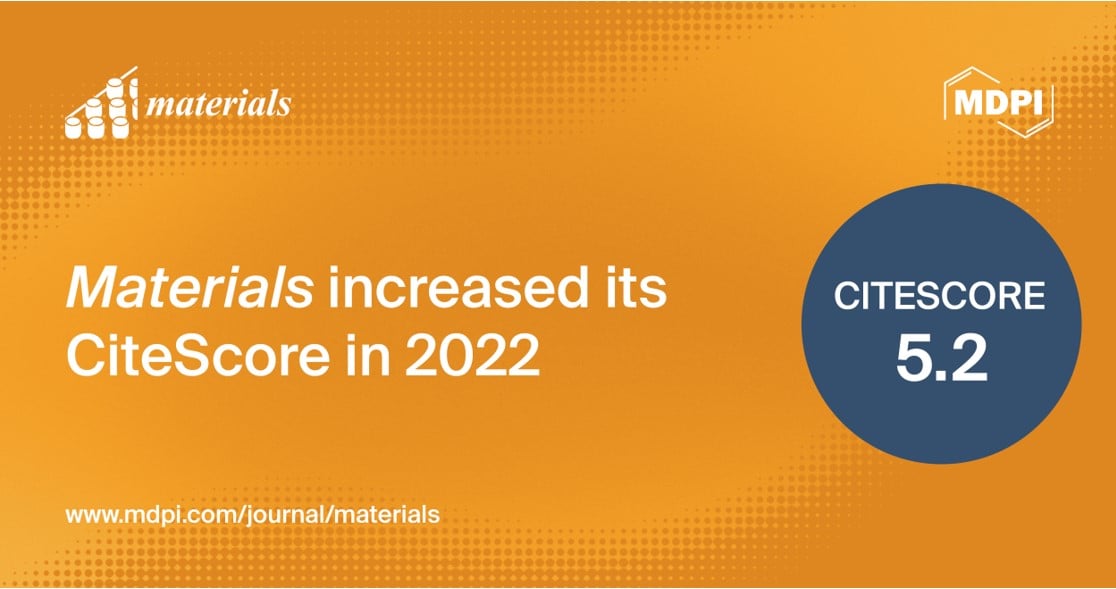
We are pleased to inform you that Materials (ISSN: 1996-1944) has received an updated CiteScore of 5.2, an increase of 10.6% compared with the 2021 metric. The 2022 CiteScore™ was released recently, making an assessment of the scientific influence of journals in the 2019 to 2022 period.
Materials’ CiteScore ranks as follows:
- Q2 (125 out of 423) in the "Condensed Matter Physics" category;
- Q2 (163 out of 453) in the "General Materials Science" category.
For more journal statistics, please visit https://www.mdpi.com/journal/materials/stats.
Excellent performance is inseparable from the support and dedication of all journal editors, reviewers, authors, and readers. We would like to take this opportunity to thank all of you who have contributed to the journal.
12 June 2023
Meet Us at the 33rd CCS Congress, 17–20 June 2023, Qingdao, Shandong, China
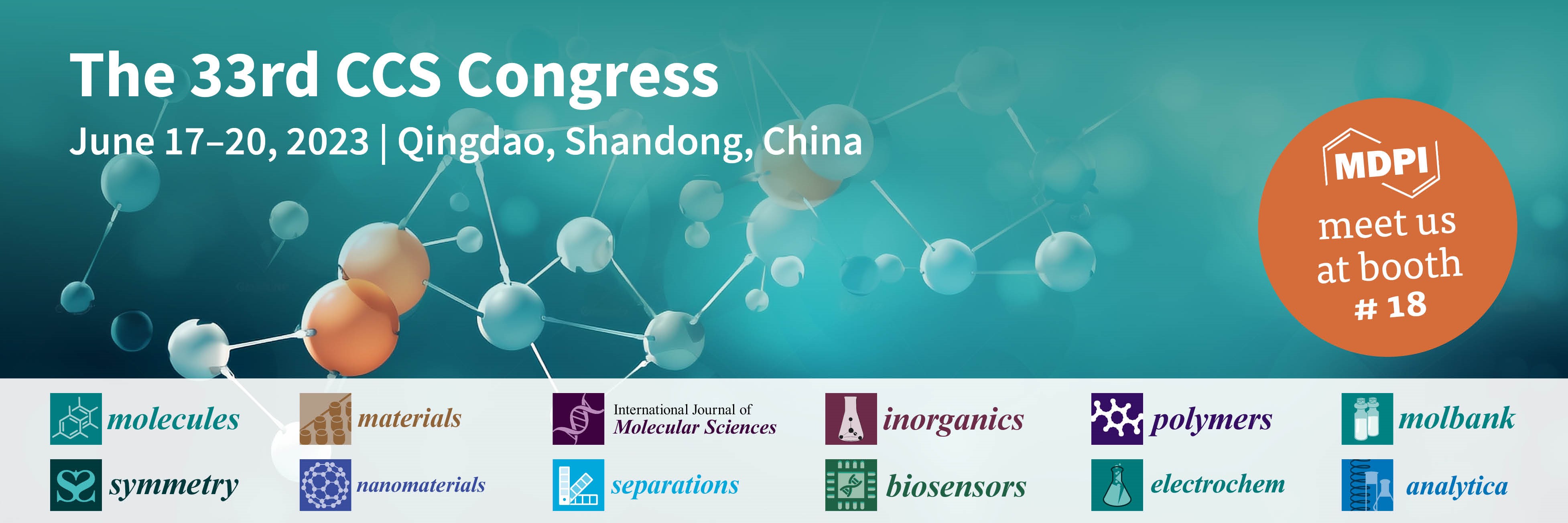
MDPI will be attending the 33rd CCS Congress, held in Qingdao, China, from 17 to 20 June 2023. The Annual Academic Conference of the Chinese Chemical Society is held every two years. It is the highest level, largest scale and most influential comprehensive academic exchange platform in the field of chemistry in China. During this conference, MDPI will welcome researchers from different backgrounds to visit and share their latest views as well as research with us.
The following MDPI journals will be represented:
- Molecules;
- Materials;
- IJMS;
- Inorganics;
- Polymers;
- Molbank;
- Symmetry;
- Nanomaterials;
- Separations;
- Biosensors;
- Electrochem;
- Analytica.
If you are attending this conference, please stop by our booth. Our delegates look forward to meeting you in person to answer any questions that you may have. For more information about the conference, please visit the following link: https://www.chemsoc.org.cn/meeting/33rd/.
12 June 2023
Meet Us at ACS Fall 2023 Harnessing the Power of Data, 13–17 August 2023, San Francisco, USA
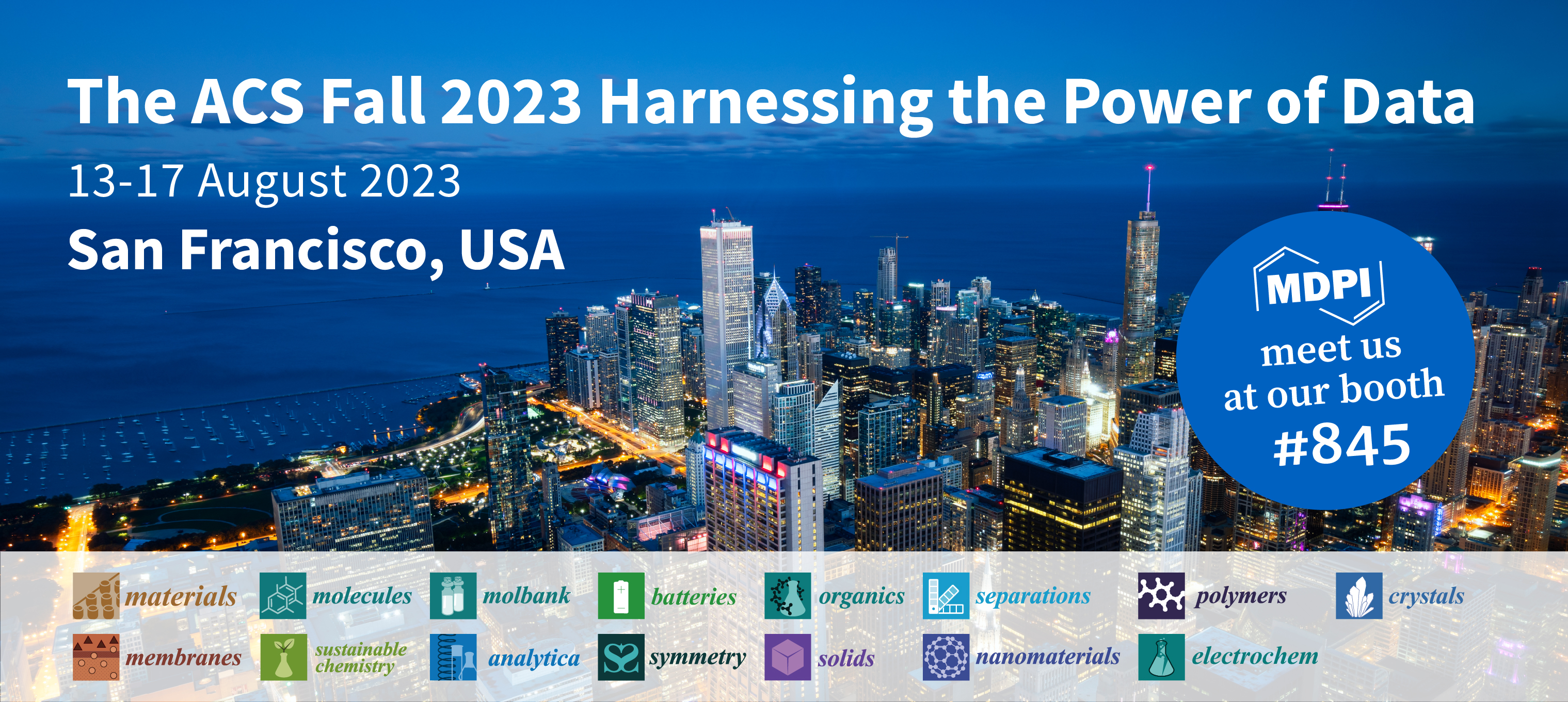
Conference: ACS Fall 2023
Organization: American Chemical Society
Date: 13–17 August 2023
Place: Moscone Center, 747 Howard St, San Francisco, CA, USA
Booth: #845
MDPI journals will be attending ACS Fall 2023 Harnessing the Power of Data as an exhibitor. This meeting will be held in San Francisco, CA, USA, from 13 to 17 August 2023.
American Chemical Society (ACS) is one of the world’s largest scientific organizations with more than 151,000 members in 140 countries. ACS Meetings & Expos are held biannually. This expo is an opportunity for thousands of chemistry professionals to meet, share ideas, and advance scientific and technical knowledge. The topic in Fall 2023 is “Harnessing the Power of Data”.
The following MDPI journals will be represented:
- Materials;
- Molecules;
- Batteries;
- Crystals;
- Molbank;
- Organics;
- Polymers;
- Separations;
- Analytica;
- Electrochem;
- Membranes;
- Nanomaterials;
- Solids;
- Sustainable Chemistry;
- Symmetry.
If you are attending this conference, please feel free to start a conversation with us. Our delegates look forward to meeting you in person and answering any questions you may have. For more information about the conference, please visit the following website: https://www.acs.org/meetings/acs-meetings/fall-2023.html.
12 June 2023
Interview with Dr. Bharat Gwalani—Winner of the Materials 2023 Young Investigator Award
We are pleased to announce the winner of the Materials 2023 Young Investigator Award—Dr. Bharat Gwalani.
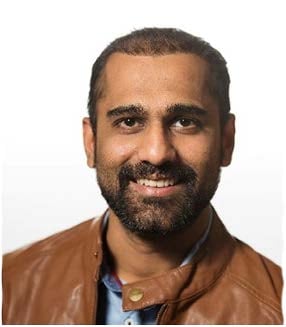
Name: Dr. Bharat Gwalani
Affiliation: Department of Materials Science and Engineering, North Carolina State University, Raleigh, NC, USA
Research Interests: alloy design; material processing; corrosion; high entropy alloy; solid phase processing
We would like to thank the award committee for selecting one winner from many exceptional candidates, Dr. Bharat Gwalani. We will continue to reward scholars with the Young Investigator Award to express our acknowledgment of their support for the Materials (ISSN: 1996-1944). We wish them every success in their careers.
The following is a short interview with Dr. Bharat Gwalani:
1. Could you briefly introduce yourself to our readers?
Since August 2022, I have served as an Assistant Professor at North Carolina State University, USA. Before that, I worked as a research scientist at the Pacific Northwest International Lab for approximately four years. My primary research revolves around applying solid-phase processing techniques to create innovative multifunctional materials suitable for challenging extreme environments. At present, my team and I are dedicated to advancing our understanding of deformation-based processing methods at the atomic level. We aim to utilize this knowledge for sustainable manufacturing practices, emphasizing energy conservation and using recycled materials, as opposed to traditional melting technologies.
Before joining the Pacific Northwest International Lab, I completed my Ph.D. in materials science and engineering at the University of North Texas, USA. During my doctoral studies, my focus was on developing high entropy alloys strengthened by precipitation. In 2010, I earned my bachelor's degree in materials science and engineering from India, my country of origin. Additionally, prior to commencing my Ph.D. program in the United States, I gained three years of experience in the steel manufacturing sector.
2. What is your current research, and why did you choose this research field?
The focus right now is trying to reduce energy input because natural resources are limited, and there is an energy crisis, so we need to recycle materials that have already been extracted from ore, so the solid phase processing route seems to be a very practical one. Developing new alloys for advanced processing techniques was very exciting to me, so that was my main motivation.
3. Have you encountered any difficulties in your research? How did you overcome them?
Working at a national laboratory, we are not involved with teaching, but we are involved with multiple projects simultaneously. Switching between each project can be a challenge, particularly in today's competitive environment. It is important to keep learning every day and develop beyond your Ph.D. to continue improving and publishing. The initial phase following a Ph.D. is more difficult, but the different problems inspired me to work hard, and it gave me good exposure and experience. In academia, much time is dedicated to teaching, creating course materials, and helping students while also needing to set up a lab and purchase equipment and pursue funding. Finding funding in areas you want to work in can be a challenge for all new researchers. However, teaching helps you go back to fundamentals which reaffirms your knowledge, so it is a good thing.
4. What qualities do young scholars need to possess?
I think it is very important not to give up easily. Things can be very challenging and can easily seem as if they will not work out, but persistence and drive to keep trying, and also to not feel embarrassed about failing, really helps. Just because it did not work today does not mean the approach you are taking is bad. It just was not your day. Keep going and take baby steps, and it will eventually happen. It is also important to manage your time effectively, to make the most of your time at work and still have a life outside of work. It is different from studying for a Ph.D. because, as a researcher, you work during your stipulated hours, so it is much more important to become efficient at an early stage of your research career.
5. Can you briefly describe the key to a happy laboratory life?
A lab is made up of different members, from the PI to the students, and they work as a cohesive unit. The ‘team’ feeling is very important, and if members are happy to do work rather than feel pushed, then that has long-term benefits. It is important to have fun when you work, so creating that environment in the lab is my focus. I used to enjoy my Ph.D. because I was doing research for myself rather than for somebody else, which helped me a lot.
Throughout my career, I have been fortunate to encounter influential individuals who have played pivotal roles in shaping my professional journey. In my initial job at Jindal Stainless Ltd., Dr. L.K. Singhal, the Director of R&D, served as a catalyst, encouraging and inspiring me to explore my curiosity and think outside the box. This guidance ultimately motivated me to pursue a Ph.D., as I realized the significance of nurturing that inner drive. During my Ph.D., I was fortunate to have Dr. Raj Banerjee as my advisor, who struck a perfect balance between providing guidance and fostering independence. His mentorship empowered me to push boundaries and develop my own unique path of research. Similarly, in my previous position at PNNL, the support from leaders such as Dr. Cindy Powell, the Chief Science and Technology Officer, was exceptional. Their dedication to nurturing younger scientists and providing valuable guidance greatly influenced my professional development.
As a recent addition to the NC State community, I have already experienced tremendous support from Dr. Don Brenner, the department head. His unwavering support has been invaluable since joining the university. Personally, I have been fortunate to receive support from numerous individuals who have propelled me forward in life. This support is crucial for anyone striving to make progress, as the trust and belief others have in you serve as powerful motivators.
5 June 2023
Meet Us at the 7th ECCOMAS Young Investigators Conference (YIC 2023), 19–21 June 2023, Porto, Portugal
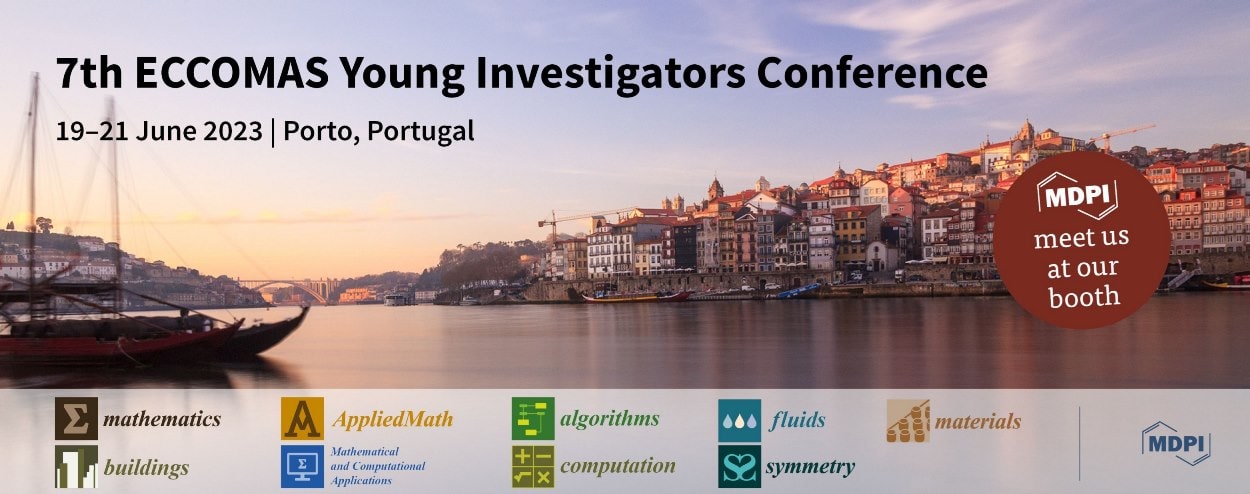
Conference: 7th ECCOMAS Young Investigators Conference (YIC 2023)
Date: 19–21 June 2023
Location: Porto, Portugal
MDPI will be attending YIC 2023 as an exhibitor; we welcome researchers from different backgrounds to visit and share their latest ideas with us.
YIC 2023 is the 7th in the series of international conferences, organized since 2012, with the main purpose of bringing students and young researchers together within a relaxed environment, developing their work in all areas related to computational science and engineering.
The following MDPI journals will be represented:
- Mathematics;
- AppliedMath;
- Algorithms;
- Fluids;
- Materials;
- Buildings;
- MCA;
- Computation;
- Symmetry.
If you are attending this conference, please visit our booth. Our delegates look forward to meeting you in person and answering any questions that you may have. For more information about the conference, please visit the following website: https://paginas.fe.up.pt/~yic2023/.
25 May 2023
Meet Us at the 7th Scientific Meeting of Ph.D. Students (JPhD2023), 7–9 June 2023, Barcelona, Spain

MDPI will be presenting at the 7th Scientific Meeting of Ph.D. Students at the UAB campus (JPhD2023). The event will be held at the Sala d'Actes Institut de Ciència de Materials de Barcelona in Barcelona, Spain, from 7 to 9 June 2023.
JPhD2023 aims to facilitate the exchange of knowledge about scientific research from different fields, sharing of research works and communication among the Ph.D. students of the BNC-b in an academic and scientific environment.
MDPI Speaker
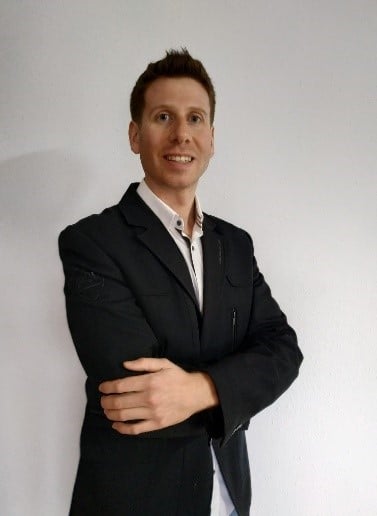
Dr. Gabriel Martínez Edo
Presentation theme: MDPI Open Access & Peer Review Process
Dr. Gabriel Martínez Edo holds a bachelor’s degree in chemistry (2013) and a master’s degree in pharmaceutical chemistry (2015) from the IQS school of Engineering, Universitat Ramon Llull (Barcelona, Spain). He completed his Ph.D. (2020) in chemistry and chemical engineering at the same institution focusing on the use of nanomaterials as drug delivery systems.
He joined MDPI in June 2020 as Assistant Editor and Section Managing Editor for the journal Nanomaterials. In 2021, he was appointed Managing Editor of the journal Nanomanufacturing, a position he held until his recent appointment as Journal Relations Specialist.
If you are also attending this conference, please feel free to stop by our booth. Our delegates look forward to meeting you in person to answer any questions you may have. For more information about the conference, please visit: https://jphd.icmab.es/.
Relevant Journals:
25 May 2023
Materials | 2023 Editor’s Choice Articles in the Section “Materials Simulation and Design”
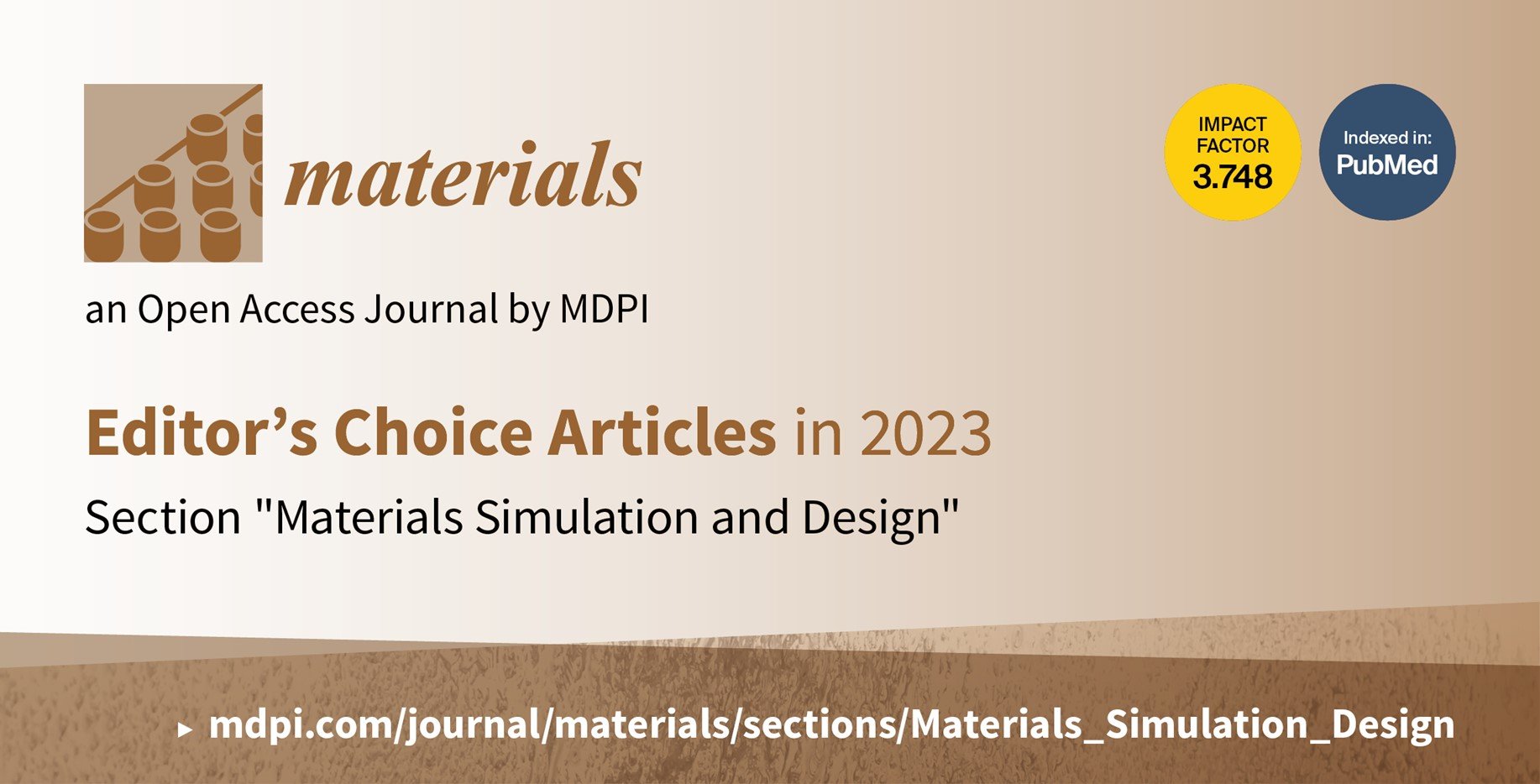
The Section “Materials Simulation and Design” focuses on all aspects of inorganic and organic material properties, advances in the synthesis, processing, characterization, testing and design of materials and engineering systems, applications in technology, and the modeling and simulation of a broad range of materials, including ceramics, metals, glasses, semiconductors, polymers, biological materials, composites, etc. Papers on solid materials, interfaces, and material issues associated with surfaces, defects, and the microstructure are of particular interest.
We are pleased to present the 2023 Editor’s Choice Articles, a carefully curated list of high-quality articles from the Section “Materials Simulation and Design”:
“Modeling Cyclic Crack Propagation in Concrete Using the Scaled Boundary Finite Element Method Coupled with the Cumulative Damage-Plasticity Constitutive Law”
by Omar Alrayes, Carsten Könke, Ean Tat Ooi and Khader M. Hamdia
Materials 2023, 16(2), 863; https://doi.org/10.3390/ma16020863
Available online: https://www.mdpi.com/1996-1944/16/2/863
“Assessment of Convolutional Neural Network Pre-Trained Models for Detection and Orientation of Cracks”
by Waqas Qayyum, Rana Ehtisham, Alireza Bahrami, Charles Camp, Junaid Mir and Afaq Ahmad
Materials 2023, 16(2), 826; https://doi.org/10.3390/ma16020826
Available online: https://www.mdpi.com/1996-1944/16/2/826
“Electronic, Optical, Mechanical, and Electronic Transport Properties of SrCu2O2: A First-Principles Study”
by Sheng Jiang, Chaohao Hu, Dianhui Wang, Yan Zhong and Chengying Tang
Materials 2023, 16(5), 1829; https://doi.org/10.3390/ma16051829
Available online: https://www.mdpi.com/1996-1944/16/5/1829
“Application of the ps−Version of the Finite Element Method to the Analysis of Laminated Shells”
by Cheng Angelo Yan and Riccardo Vescovini
Materials 2023, 16(4), 1395; https://doi.org/10.3390/ma16041395
Available online: https://www.mdpi.com/1996-1944/16/4/1395
“The Characteristic Microstructures and Properties of Steel-Based Alloy via Additive Manufacturing”
by Chunlei Shang, Honghui Wu, Guangfei Pan, Jiaqi Zhu, Shuize Wang, Guilin Wu, Junheng Gao, Zhiyuan Liu, Ruidi Li and Xinping Mao
Materials 2023, 16(7), 2696; https://doi.org/10.3390/ma16072696
Available online: https://www.mdpi.com/1996-1944/16/7/2696
“Band Gaps and Optical Properties of RENiO3 upon Strain: Combining First-Principles Calculations and Machine Learning”
by Xuchang Tang, Zhaokai Luo and Yuanyuan Cui
Materials 2023, 16(8), 3070; https://doi.org/10.3390/ma16083070
Available online: https://www.mdpi.com/1996-1944/16/8/3070
“Inductive Determination of Rate-Reaction Equation Parameters for Dislocation Structure Formation Using Artificial Neural Network”
by Yoshitaka Umeno, Emi Kawai, Atsushi Kubo, Hiroyuki Shima and Takashi Sumigawa
Materials 2023, 16(5), 2108; https://doi.org/10.3390/ma16052108
Available online: https://www.mdpi.com/1996-1944/16/5/2108
“On the Springback and Load in Three-Point Air Bending of the AW-2024 Aluminium Alloy Sheet with AW-1050A Aluminium Cladding”
by Stanisław Kut, Grzegorz Pasowicz and Feliks Stachowicz
Materials 2023, 16(8), 2945; https://doi.org/10.3390/ma16082945
Available online: https://www.mdpi.com/1996-1944/16/8/2945
“Heat Transfer Analysis of Warm Guss Asphalt Concrete for Mini-Trench Overlaying”
by Kyung-Nam Kim, Yeong-Min Kim, Sang-Yum Lee and Tri Ho Minh Le
Materials 2023, 16(7), 2808; https://doi.org/10.3390/ma16072808
Available online: https://www.mdpi.com/1996-1944/16/7/2808
We would like to take this opportunity to thank all of the research groups that submitted to Materials (ISSN: 1996-1944). We would appreciate it if you could circulate this document among your colleagues and network. Furthermore, the following opportunities for collaboration may be of interest:
Submitting a manuscript:
This Section is currently open for submissions. Papers may be submitted via the following link: https://susy.mdpi.com/user/manuscripts/upload?journal=materials.
Launching a Special Issue:
You have the opportunity to propose hot topics and edit a Special Issue together with experts in the field. Proposals may be submitted via the following link: https://www.mdpi.com/journalproposal/sendproposalspecialissue/materials.
Joining the Editorial Board:
If you are an active researcher in the field of Materials Simulation and Design and are interested in joining the Editorial Board, please do not hesitate to get in touch ([email protected]).
Materials Editorial Office
25 May 2023
Materials | 2023 Editor’s Choice Articles in the Section “Thin Films and Interfaces”

Materials (ISSN: 1996-1944) has launched the Section “Thin Films and Interfaces”. Thin film materials are widespread for technological applications, spanning from electronics through medicine. Thin film materials can exhibit a greater number of vastly different structural, chemical, electrical, optical, and mechanical properties compared to their corresponding bulk counterparts due to the choice of substrate or underlying material, the material deposition and fabrication process, and the resulting variations in the crystal phase, disorder and defects within poly-/nano-crystalline and amorphous materials, strain, and composition. The very nature of thin films involves the formation of interfaces, including that with the substrate, underlying or overlying layers, and/or the ambient. These interfaces and interfacial regions may exhibit additional variations due to confinement, bonding configurations, chemical composition, exposure to ambient, physical mixing, and the morphology present.
We are pleased to present the 2023 Editor’s Choice Articles, a carefully curated list of high-quality articles from the Section “Thin Films and Interfaces” listed below.
“Analyzing the Bolometric Performance of Vanadium Oxide Thin Films Modified by Carbon Nanotube Dispersions”
by Usha Philipose, Chris Littler, Yan Jiang, Alia Naciri, Michael Harcrow and A. J. Syllaios
Materials 2023, 16(4), 1534; https://doi.org/10.3390/ma16041534
Available online: https://www.mdpi.com/1996-1944/16/4/1534
“CALPHAD-Based Modelling of the Temperature–Composition–Structure Relationship during Physical Vapor Deposition of Mg-Ca Thin Films”
by Philipp Keuter, Moritz to Baben, Shamsa Aliramaji and Jochen M. Schneider
Materials 2023, 16(6), 2417; https://doi.org/10.3390/ma16062417
Available online: https://www.mdpi.com/1996-1944/16/6/2417
“Effect of a ZrO2 Seed Layer on an Hf0.5Zr0.5O2 Ferroelectric Device Fabricated via Plasma Enhanced Atomic Layer Deposition”
by Ji-Na Song, Min-Jung Oh and Chang-Bun Yoon
Materials 2023, 16(5), 1959; https://doi.org/10.3390/ma16051959
Available online: https://www.mdpi.com/1996-1944/16/5/1959
“Enhanced Surface Properties of the Al0.65CoCrFeNi High-Entropy Alloy via Laser Remelting”
by Junwei Miao, Tianxin Li, Qiang Li, Xiaohu Chen, Zheng Ren and Yiping Lu
Materials 2023, 16(3), 1085; https://doi.org/10.3390/ma16031085
Available online: https://www.mdpi.com/1996-1944/16/3/1085
“Laser Emission Spectroscopy of Graphene Oxide Deposited on 316 Steel and Ti6Al4V Titanium Alloy Suitable for Orthopedics”
by Barbara Nasiłowska, Wojciech Skrzeczanowski, Aneta Bombalska and Zdzisław Bogdanowicz
Materials 2023, 16(7), 2574; https://doi.org/10.3390/ma16072574
Available online: https://www.mdpi.com/1996-1944/16/7/2574
“Silver Nanoparticles for Fluorescent Nanocomposites by High-Pressure Magnetron Sputtering”
by Tomáš Zikmund, Jiří Bulíř, Michal Novotný, Ladislav Fekete, Sergii Chertopalov, Stefan Andrei Irimiciuc, Mariana Klementová, Jarmila Balogová and Jan Lančok
Materials 2023, 16(4), 1591; https://doi.org/10.3390/ma16041591
Available online: https://www.mdpi.com/1996-1944/16/4/1591
“Surface Modification and Properties of Thin Ink Films with Added TiO2 and ZnO Nanoparticles Applied on Paperboard Substrates”
by Sanja Mahović Poljaček, Tamara Tomašegović, Maja Strižić Jakovljević and Davor Donevski
Materials 2023, 16(2), 478; https://doi.org/10.3390/ma16020478
Available online: https://www.mdpi.com/1996-1944/16/2/478
“The Effect of Fe/Al Ratio and Substrate Hardness on Microstructure and Deposition Behavior of Cold-Sprayed Fe/Al Coatings”
by You Wang, Nan Deng, Zhenfeng Tong and Zhangjian Zhou
Materials 2023, 16(2), 878; https://doi.org/10.3390/ma16020878
Available online: https://www.mdpi.com/1996-1944/16/2/878
“Towards Room Temperature Phase Transition of W-Doped VO2 Thin Films Deposited by Pulsed Laser Deposition: Thermochromic, Surface, and Structural Analysis”
by Yannick Bleu, Florent Bourquard, Vincent Barnier, Anne-Sophie Loir, Florence Garrelie and Christophe Donnet
Materials 2023, 16(1), 461; https://doi.org/10.3390/ma16010461
Available online: https://www.mdpi.com/1996-1944/16/1/461
“Ultrafiltration Membranes Modified with Reduced Graphene Oxide: Effect on Methyl Green Removal from Aqueous Solution”
by María Dolores Murcia, Asunción M. Hidalgo, María Gómez, Gerardo León, Elisa Gómez and Marta Martínez
Materials 2023, 16(4), 1369; https://doi.org/10.3390/ma16041369
Available online: https://www.mdpi.com/1996-1944/16/4/1369
We would like to take this opportunity to thank all of the research groups that submitted to Materials. We would appreciate it if you could circulate this document among your colleagues and network. Furthermore, the following opportunities for collaboration may be of interest:
Submitting a manuscript:
This Section is currently open for submissions. Papers may be submitted via the following link:
https://susy.mdpi.com/user/manuscripts/upload?journal=materials.
Launching a Special Issue:
You have the opportunity to propose hot topics and edit a Special Issue together with experts in the field.
Joining the Editorial Board:
If you are an active researcher in the field of Thin Films and Interfaces and are interested in joining the Editorial Board, please do not hesitate to get in touch ([email protected]).
Materials Editorial Office
8 May 2023
Meet Us at the 31st European Biomass Conference & Exhibition (EUBCE 2023), 05–08 June 2023, Bologna, Italy
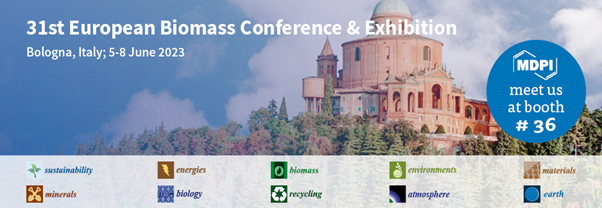
MDPI will attend the 31st European Biomass Conference & Exhibition (EUBCE 2023) as an exhibitor. This meeting will be held in Bologna, Italy, from 5 to 8 June 2023.
EUBCE is the largest biomass conference and exhibition in the world. Each year, EUBCE brings together the greatest minds and latest advancements in biomass, with the aim of accelerating research and market uptake across the globe. During the conference, over 2,000 experts from both academia and industry share and discuss groundbreaking ideas, technologies, applications, and solutions for the sourcing, production, and utility of biomass. The scientific program is coordinated by the Joint Research Centre of the European Commission. Since its 30th edition, the event has been complemented by the Circular Bio-Based Europe Joint Undertaking, aiming at identifying innovation, stimulating investment, and mobilizing the bio-based industry sector. This is an excellent opportunity to address even more stakeholders globally through the conference.
The following MDPI journals will be represented:
- Sustainability;
- Energies;
- Biomass;
- Environment;
- Materials;
- Minerals;
- Biology;
- Recycling;
- Atmosphere;
- Earth.
If you are attending this conference, please feel free to start a conversation with us at our booth #36. Our delegates look forward to meeting you in person and answering any questions that you may have.
For more information about the conference, please visit https://www.eubce.com/.
5 May 2023
Materials | The Best Editor's Choice Article in 2022 in the Section “Soft Matter”—Winning Article Announced

The Section “Soft Matter” of Materials (ISSN: 1996-1944) was established to enhance our understanding of soft matter in the context of material science. In December 2022, Dr. Ingo Dierking from the University of Manchester, UK, was appointed the Section Editor-in-Chief.
On the initiative of Dr. Dierking, and in order to advance the development of this Section, the Editorial Office organized a voting, requesting the Editorial Board Members to choose the best Editor's Choice Article (ECA, a carefully curated selection of high-quality articles in Materials) of 2022 in this Section. We are pleased to announce the winning article.
Title: “Thioether-Linked Liquid Crystal Trimers: Odd–Even Effects of Spacers and the Influence of Thioether Bonds on Phase Behavior”
Authors: Yuki Arakawa, Kenta Komatsu, Yuko Ishida, Takuma Shiba and Hideto Tsuji
Affiliation: Department of Applied Chemistry and Life Science, Graduate School of Engineering, Toyohashi University of Technology, 1-1 Hibarigaoka, Tempaku-cho, Toyohashi 441-8580, Japan
We would like to congratulate Prof. Yuki Arakawa, Mr. Kenta Komatsu, Ms. Yuko Ishida, Mr. Takuma Shiba and Prof. Hideto Tsuji again for their accomplishments.
We would like to take this opportunity to thank all the research groups that submitted manuscripts to the Section “Soft Matter” of Materials. We would appreciate it if you could circulate this document among your colleagues and network. Furthermore, the following opportunities for collaboration may be of interest:
Submitting a manuscript:
This Section is currently open for submissions. Papers may be submitted via the following link: https://susy.mdpi.com/user/manuscripts/upload?journal=materials.
Launching a Special Issue:
You have the opportunity to propose hot topics and edit a Special Issue together with experts in the field:
https://www.mdpi.com/journalproposal/sendproposalspecialissue/materials
Joining the Editorial Board:
If you are an active researcher in the field of soft matter, and are interested in joining the Editorial Board, please do not hesitate to get in touch ([email protected]).
Materials Editorial Office
18 April 2023
Materials | Sponsoring the Best Student Paper Awards at WOCSDICE-EXMATEC 2023, 21–25 May 2023, Palermo, Italy
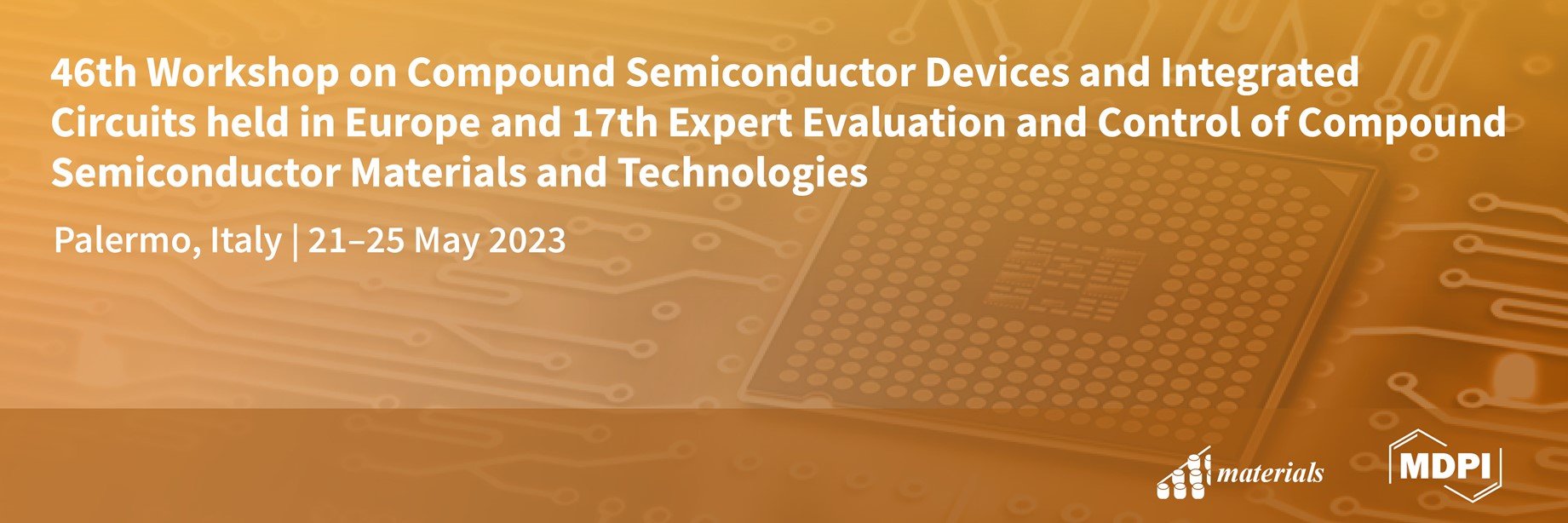
Materials (ISSN: 1996-1944) is proud to sponsor the Best Student Paper Awards for the 46th Workshop on Compound Semiconductor Devices and Integrated Circuits held in Europe and 17th Expert Evaluation and Control of Compound Semiconductor Materials and Technologies conference, a major event for experts in scholarly communications.
The 46th Workshop on Compound Semiconductor Devices and Integrated Circuits held in Europe and 17th Expert Evaluation and Control of Compound Semiconductor Materials and Technologies connects librarians, publishers, content providers, consultants and intermediaries from around the world with high-quality plenary presentations, lightning talks and breakout sessions. The program of the conference can be accessed here.
Date: 21–25 May 2023
Place: Palermo, Italy
Check the latest conference news on LinkedIn.
For corporate conference sponsorship inquiries, please contact [email protected].
17 April 2023
Materials | Editor’s Choice Articles in 2023 in the Section “Metals and Alloys”
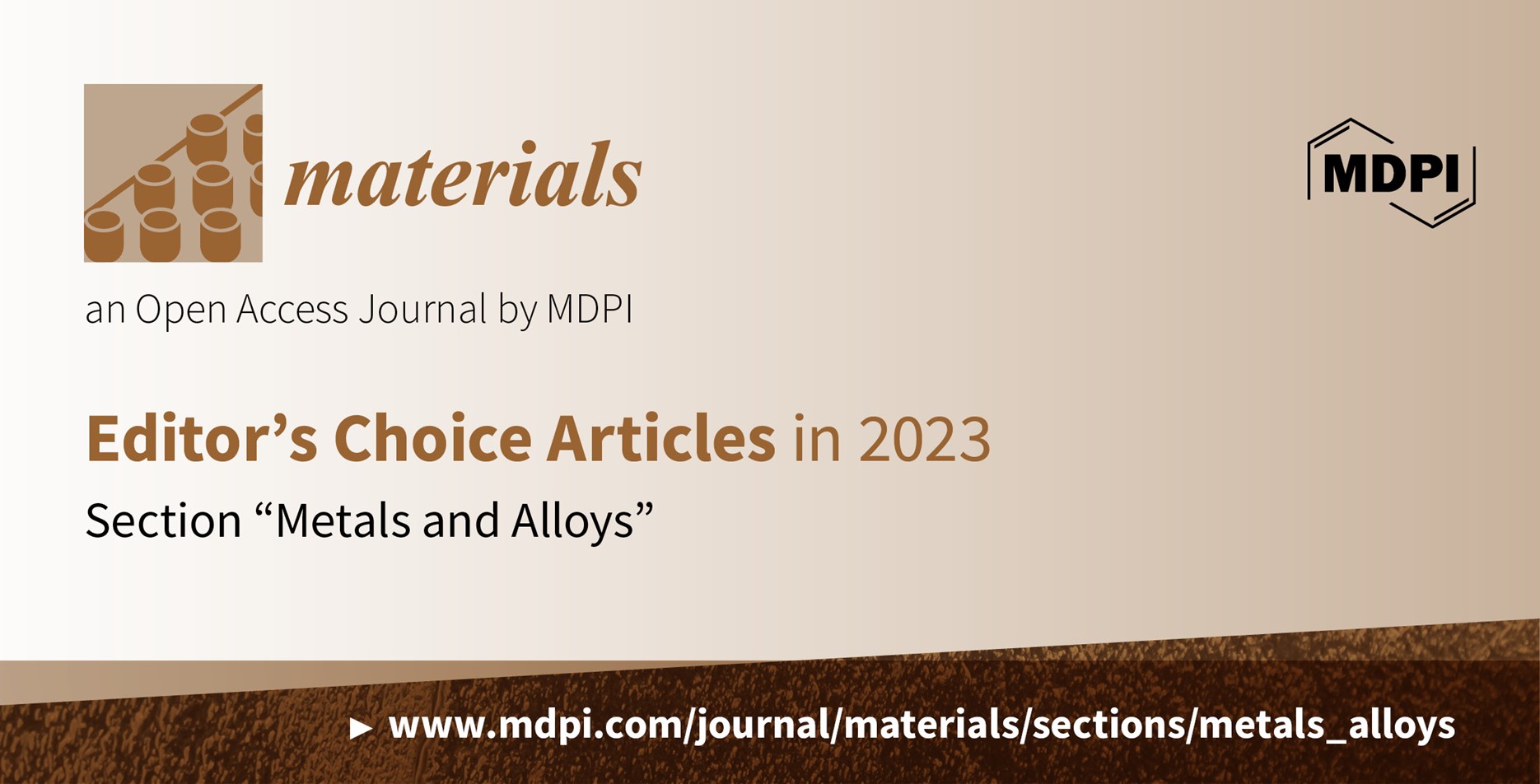
The Section “Metals and Alloys” of Materials (ISSN: 1996-1944) aims to provide an international peer-reviewed medium for the dissemination and active discussion of the latest and most important advances in the field of metals and alloy science, as well as advances in engineering technology and innovative applications. Experimental and theoretical approaches to solve materials problems require novel scientific disciplines based on traditional disciplines. Those reports on the simulation of metals and alloys science can only be accepted if the results have already been validated by experiments or a dedicated application. All submitted contributions are subject to a strict peer-review process and the final decision on publication should be made based on the recommendations of independent experts.
The Section “Metals and Alloys” welcomes the submission of high-quality research on various aspects of the metals and alloys science field. Papers submitted for publication should contain new experimental or theoretical results and their interpretation. Design, modeling and simulation, processing, and characterization techniques of metals and alloys are welcome, in particular the relationship of advanced manufacturing processing and microstructure properties of metals and alloys.
We are pleased to present the 2023 Editor’s Choice Articles, a carefully curated list of high-quality articles from the Section “Metals and Alloys”, as listed below:
“A Review of Characterization and Modelling Approaches for Sheet Metal Forming of Lightweight Metallic Materials”
by Yong Hou, Dongjoon Myung, Jong Kyu Park, Junying Min, Hyung-Rim Lee, Ali Abd El-Aty and Myoung-Gyu Lee
Materials 2023, 16(2), 836; https://doi.org/10.3390/ma16020836
Available online: https://www.mdpi.com/1996-1944/16/2/836
“Research Progress on Multi-Component Alloying and Heat Treatment of High Strength and Toughness Al–Si–Cu–Mg Cast Aluminum Alloys”
by Mingshan Zhang, Yaqiang Tian, Xiaoping Zheng, Yuan Zhang, Liansheng Chen and Junsheng Wang
Materials 2023, 16(3), 1065; https://doi.org/10.3390/ma16031065
Available online: https://www.mdpi.com/1996-1944/16/3/1065
“Ongoing Challenges of Laser-Based Powder Bed Fusion Processing of Al Alloys and Potential Solutions from the Literature—A Review”
by Alessandra Martucci, Alberta Aversa and Mariangela Lombardi
Materials 2023, 16(3), 1084; https://doi.org/10.3390/ma16031084
Available online: https://www.mdpi.com/1996-1944/16/3/1084
“Novel Ultrafine-Grain Mg-Gd/Nd-Y-Ca Alloys with an Increased Ignition Temperature”
by Stanislav Šašek, Peter Minárik, Jitka Stráská, Klára Hosová, Jozef Veselý, Jiří Kubásek, Robert Král, Tomáš Krajňák and Dalibor Vojtěch
Materials 2023, 16(3), 1299; https://doi.org/10.3390/ma16031299
Available online: https://www.mdpi.com/1996-1944/16/3/1299
“Mechanical Behavior of Austenitic Steel under Multi-Axial Cyclic Loading”
by Abhishek Biswas, Dzhem Kurtulan, Timothy Ngeru, Abril Azócar Guzmán, Stefanie Hanke and Alexander Hartmaier
Materials 2023, 16(4), 1367; https://doi.org/10.3390/ma16041367
Available online: https://www.mdpi.com/1996-1944/16/4/1367
“Changes in Abrasion Resistance of Cast Cr-Ni Steel as a Result of the Formation of Niobium Carbides in Alloy Matrix”
by Grzegorz Tęcza
Materials 2023, 16(4), 1726; https://doi.org/10.3390/ma16041726
Available online: https://www.mdpi.com/1996-1944/16/4/1726
We would like to take this opportunity to thank all the research groups that have submitted their work to Materials. We would appreciate it if you could circulate this document among your colleagues and network. Furthermore, the following opportunities for collaboration may be of interest:
Submitting a manuscript:
This Section is currently open for submissions. Papers may be submitted via the following link: https://susy.mdpi.com/user/manuscripts/upload?journal=materials.
Joining the Editorial Board:
If you are an active researcher in the field of Metals and Alloys and are interested in joining the Editorial Board, please do not hesitate to get in touch ([email protected]).
Materials Editorial Office
7 April 2023
Materials | Editor’s Choice Articles in 2023 in the Section “Materials Chemistry”
The Section “Materials Chemistry” of Materials (ISSN: 1996-1944) covers the areas of materials science, chemical engineering, and related crossing fields.
Some topics of interest are:
- Synthesis, chemical and physical characterization of materials;
- Fundamental, theoretical and experimental studies of materials;
- Optical, electrical, energy, environmental, biomedical, magnetic and catalytic applications of materials;
- Nanotechnology;
- Fabrication of materials using advanced methods and techniques;
- Hybrid materials;
- Organic/Inorganic chemistry;
- Electrochemistry;
- Colloid and surface/interface chemistry;
- Polymers and molecules.
We are pleased to present the 2023 Editor’s Choice Articles, a carefully curated list of high-quality articles from the Section “Materials Chemistry” listed below:
“Effect of Blend Composition on Barrier Properties of Insulating Mats Produced from Local Wool and Waste Bast Fibres”
by Anna Kicińska-Jakubowska, Jan Broda, Małgorzata Zimniewska, Marcin Bączek and Jerzy Mańkowski.
Materials 2023, 16(1), 459; https://doi.org/10.3390/ma16010459
Available online: https://www.mdpi.com/1996-1944/16/1/459
“Photocatalytic Removal of Antibiotics from Wastewater Using the CeO2/ZnO Heterojunction”
by Nicolae Apostolescu, Ramona Elena Tataru Farmus, Maria Harja, Mihaela Aurelia Vizitiu, Corina Cernatescu, Claudia Cobzaru and Gabriela Antoaneta Apostolescu
Materials 2023, 16(2), 850; https://doi.org/10.3390/ma16020850
Available online: https://www.mdpi.com/1996-1944/16/2/850
“Raclopride-Molecularly Imprinted Polymers: A Promising Technology for Selective [11C]Raclopride Purification”
by Roberta Del Sole, Giancarlo Pascali, Giuseppe Mele, Gary Perkins and Lucia Mergola
Materials 2023, 16(3), 1091; https://doi.org/10.3390/ma16031091
Available online: https://www.mdpi.com/1996-1944/16/3/1091
“Optical Properties Investigation of Upconverting K2Gd(PO4)(WO4):20%Yb3+,Tm3+ Phosphors”
by Julija Grigorjevaite and Arturas Katelnikovas
Materials 2023, 16(3), 1305; https://doi.org/10.3390/ma16031305
Available online: https://www.mdpi.com/1996-1944/16/3/1305
“The Historical Development of Infrared Photodetection Based on Intraband Transitions”
by Qun Hao, Xue Zhao, Xin Tang and Menglu Chen
Materials 2023, 16(4), 1562; https://doi.org/10.3390/ma16041562
Available online: https://www.mdpi.com/1996-1944/16/4/1562
“Hydrothermal Synthesis of ZnO Superstructures with Controlled Morphology via Temperature and pH Optimization”
by Aleksander Ejsmont and Joanna Goscianska
Materials 2023, 16(4), 1641; https://doi.org/10.3390/ma16041641
Available online: https://www.mdpi.com/1996-1944/16/4/1641
“Characterization of Ruddlesden-Popper La2−xBaxNiO4±δ Nickelates as Potential Electrocatalysts for Solid Oxide Cells”
by Kiryl Zakharchuk, Andrei Kovalevsky and Aleksey Yaremchenko
Materials 2023, 16(4), 1755; https://doi.org/10.3390/ma16041755
Available online: https://www.mdpi.com/1996-1944/16/4/1755
We would like to take this opportunity to thank all the research groups that have submitted their work to Materials. We would appreciate it if you could circulate this document among your colleagues and network. Furthermore, the following opportunities for collaboration may be of interest:
Submitting a manuscript:
This Section is currently open for submissions. Papers may be submitted via the following link: https://susy.mdpi.com/user/manuscripts/upload?journal=materials.
Launching a Special Issue:
You have the opportunity to propose hot topics and edit a Special Issue together with experts in the field.
Joining the Editorial Board:
If you are an active researcher in the field of Materials Chemistry and are interested in joining the Editorial Board, please do not hesitate to get in touch ([email protected]).
Materials Editorial Office
6 April 2023
Materials | Editor’s Choice Articles in 2023 in the Section “Optics and Photonics”
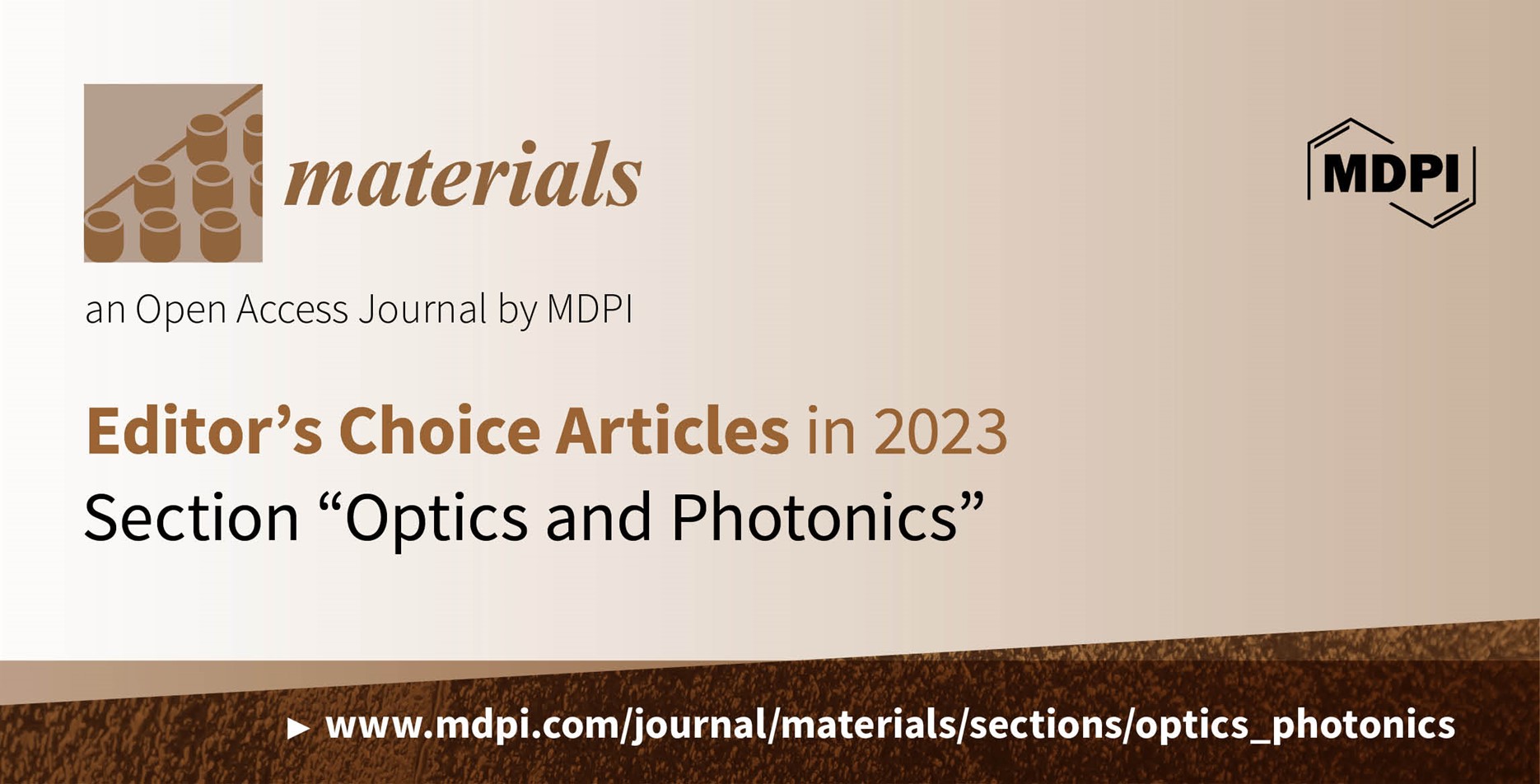
Materials (ISSN: 1996-1944) has launched the “Optics and Photonics” Section. Optics and photonics are all methodologies and technologies that use photons over the entire spectrum from X-ray to ultraviolet, visible, and infrared, to the terahertz range, and their interaction with a variety of materials. This is an evolving interdisciplinary field of research covering all the optical technologies used in life sciences and medicine. Special, new, and biocompatible materials for implants, tissue phantoms, cell printing, cell labeling, light delivery, etc., require research from scientists from various professions, such as physicists, chemists, engineers, biologists, and doctors.
We are pleased to present the 2023 Editor’s Choice Articles, a carefully curated list of high-quality articles from the “Optics and Photonics” Section listed below:
“Manganese Luminescent Centers of Different Valence in Yttrium Aluminum Borate Crystals”
by Anastasiia Molchanova, Kirill Boldyrev, Nikolai Kuzmin, Alexey Veligzhanin, Kirill Khaydukov, Evgeniy Khaydukov, Oleg Kondratev, Irina Gudim, Elizaveta Mikliaeva and Marina Popova
Materials 2023, 16(2), 537; https://doi.org/10.3390/ma16020537
Available online: https://www.mdpi.com/1996-1944/16/2/537
“Tet-Regulated Expression and Optical Clearing for In Vivo Visualization of Genetically Encoded Chimeric dCas9/Fluorescent Protein Probes”
by Liliya Maloshenok, Gerel Abushinova, Natalia Kazachkina, Alexei Bogdanov Jr. and Victoria Zherdeva
Materials 2023, 16(3), 940; https://doi.org/10.3390/ma16030940
Available online: https://www.mdpi.com/1996-1944/16/3/940
“Decay Kinetics of Gd3Al2Ga3O12:Ce3+ Luminescence under Dense Laser Irradiation”
by Paweł Karasiński, Magdalena Zięba, Ewa Gondek, Jacek Nizioł, Sandeep Gorantla, Krzysztof Rola, Alicja Bachmatiuk and Cuma Tyszkiewicz
Materials 2023, 16(3), 971; https://doi.org/10.3390/ma16030971
Available online: https://www.mdpi.com/1996-1944/16/3/971
“ZGSO Spinel Nanoparticles with Dual Emission of NIR Persistent Luminescence for Anti-Counterfeiting Applications”
by Guanyu Cai, Teresa Delgado, Cyrille Richard and Bruno Viana
Materials 2023, 16(3), 1132; https://doi.org/10.3390/ma16031132
Available online: https://www.mdpi.com/1996-1944/16/3/1132
“MoS2/Au Heterojunction Catalyst for SERS Monitoring of a Fenton-like Reaction”
by Qian Wei, Beibei Lu, Qing Yang, Can Shi, Yulan Wei, Minmin Xu, Chenjie Zhang and Yaxian Yuan
Materials 2023, 16(3), 1169; https://doi.org/10.3390/ma16031169
Available online: https://www.mdpi.com/1996-1944/16/3/1169
“Polarization Doping in a GaN-InN System—Ab Initio Simulation”
by Ashfaq Ahmad, Pawel Strak, Pawel Kempisty, Konrad Sakowski, Jacek Piechota, Yoshihiro Kangawa, Izabella Grzegory, Michal Leszczynski, Zbigniew R. Zytkiewicz, Grzegorz Muziol et al.
Materials 2023, 16(3), 1227; https://doi.org/10.3390/ma16031227
Available online: https://www.mdpi.com/1996-1944/16/3/1227
“Abnormal Eu3+ → Eu2+ Reduction in Ca9−xMnxEu(PO4)7 Phosphors: Structure and Luminescent Properties”
by Elena V. Sipina, Dmitry A. Spassky, Nataliya R. Krutyak, Vladimir A. Morozov, Evgenia S. Zhukovskaya, Alexei A. Belik, Mikhail S. Manylov, Bogdan I. Lazoryak and Dina V. Deyneko
Materials 2023, 16(4), 1383; https://doi.org/10.3390/ma16041383
Available online: https://www.mdpi.com/1996-1944/16/4/1383
“Strong Plasmon-Mie Resonance in Si@Pd Core-Ω Shell Nanocavity”
by Haomin Guo, Qi Hu, Chengyun Zhang, Haiwen Liu, Runmin Wu and Shusheng Pan
Materials 2023, 16(4), 1453; https://doi.org/10.3390/ma16041453
Available online: https://www.mdpi.com/1996-1944/16/4/1453
“Guard Ring Design to Prevent Edge Breakdown in Double-Diffused Planar InGaAs/InP Avalanche Photodiodes”
by Yu-Chun Chen, Ruei-Hong Yan, Hsu-Chia Huang, Liang-Hsuan Nieh and Hao-Hsiung Lin
Materials 2023, 16(4), 1667; https://doi.org/10.3390/ma16041667
Available online: https://www.mdpi.com/1996-1944/16/4/1667
“Enhanced Luminescence of Yb3+ Ions Implanted to ZnO through the Selection of Optimal Implantation and Annealing Conditions”
by Renata Ratajczak, Elzbieta Guziewicz, Slawomir Prucnal, Cyprian Mieszczynski, Przemysław Jozwik, Marek Barlak, Svitlana Romaniuk, Sylwia Gieraltowska, Wojciech Wozniak, René Heller et al.
Materials 2023, 16(5), 1756; https://doi.org/10.3390/ma16051756
Available online: https://www.mdpi.com/1996-1944/16/5/1756
“Optical Characterization of Thin Films by Surface Plasmon Resonance Spectroscopy Using an Acousto-Optic Tunable Filter”
by Ildus Sh. Khasanov, Boris A. Knyazev, Sergey A. Lobastov, Alexander V. Anisimov, Pavel A. Nikitin and Oleg E. Kameshkov
Materials 2023, 16(5), 1820; https://doi.org/10.3390/ma16051820
Available online: https://www.mdpi.com/1996-1944/16/5/1820
“Intercoupling of Cascaded Metasurfaces for Broadband Spectral Scalability”
by Shaolin Zhou, Liang Liu, Qinling Deng, Shaowei Liao, Quan Xue and Mansun Chan
Materials 2023, 16(5), 2013; https://doi.org/10.3390/ma16052013
Available online: https://www.mdpi.com/1996-1944/16/5/2013
We would like to take this opportunity to thank all the research groups that submitted to Materials. We would appreciate it if you could circulate this document among your colleagues and network. Furthermore, the following opportunities for collaboration may be of interest:
Submitting a manuscript:
This Section is currently open for submissions. Papers may be submitted via the following link: https://susy.mdpi.com/user/manuscripts/upload?journal=materials.
Launching a Special Issue:
You have the opportunity to propose hot topics and edit a Special Issue together with experts in the field.
Joining the Editorial Board:
If you are an active researcher in the field of optics and photonics, and are interested in joining the Editorial Board, please do not hesitate to get in touch ([email protected]).
31 March 2023
Meet Us at the 7th Conference on New Energy and New Chemical Materials Cum National Symposium on Energy Conversion and Storage Materials, 7–9 April 2023, Wuhan, China
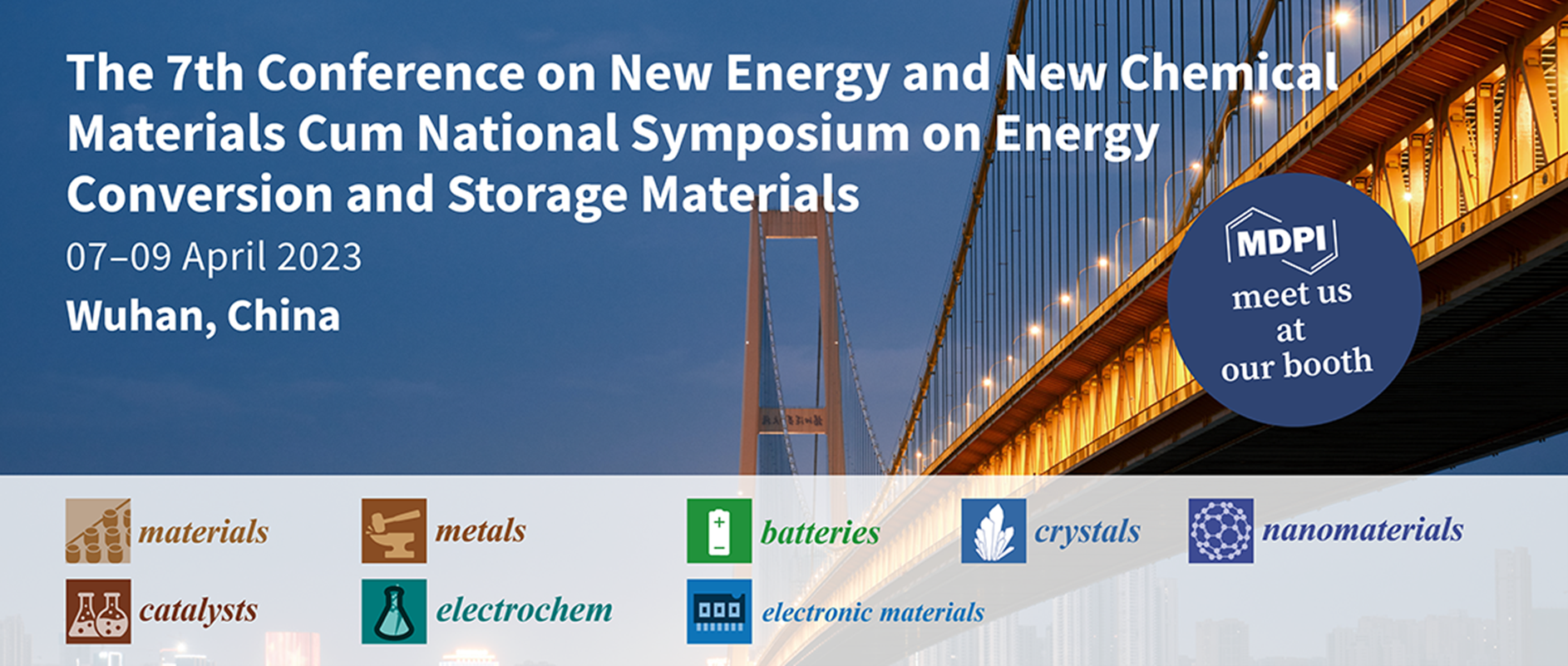
Conference: The 7th Conference on New Energy and New Chemical Materials Cum National Symposium on Energy Conversion and Storage Materials
Date: 7–9 April 2023
Place: Wuhan, China
Materials (ISSN: 1996-1944) will be attending the 7th Conference on New Energy and New Chemical Materials Cum National Symposium on Energy Conversion and Storage Materials as an exhibitor from 7 to 9 April 2023, in Wuhan, China.
The 7th Conference on New Energy and New Chemical Materials Cum National Symposium on Energy Conversion and Storage Materials is an important academic conference in the field of new energy materials and devices research in China. It has been successfully held six times in Xiamen, Suzhou, Dalian, Zhengzhou, and twice in Xi'an. The conference will focus on academic exchanges and discussions on secondary batteries, supercapacitors, fuel cells and electrocatalysis, advanced energy storage materials and technologies, anode and cathode materials, and other energy storage technologies from the academic and application fields. The conference will bring together famous domestic experts, scholars, and enterprise technicians to discuss the future development prospects and directions of new energy materials and devices research.
The following MDPI journals will be represented:
- Materials;
- Metals;
- Catalysts;
- Nanomaterials;
- Batteries;
- Electrochem;
- Electronic Materials;
- Crystals.
Please do not hesitate to reach out if you plan on attending this conference. Our delegates look forward to meeting you in person and answering any questions you might have.
For more information about the conference, please visit the following website: http://www.zgclzk.org.cn/col.jsp?id=141.
31 March 2023
Materials | 2023 Editor’s Choice Articles in the Section “Polymeric Materials”
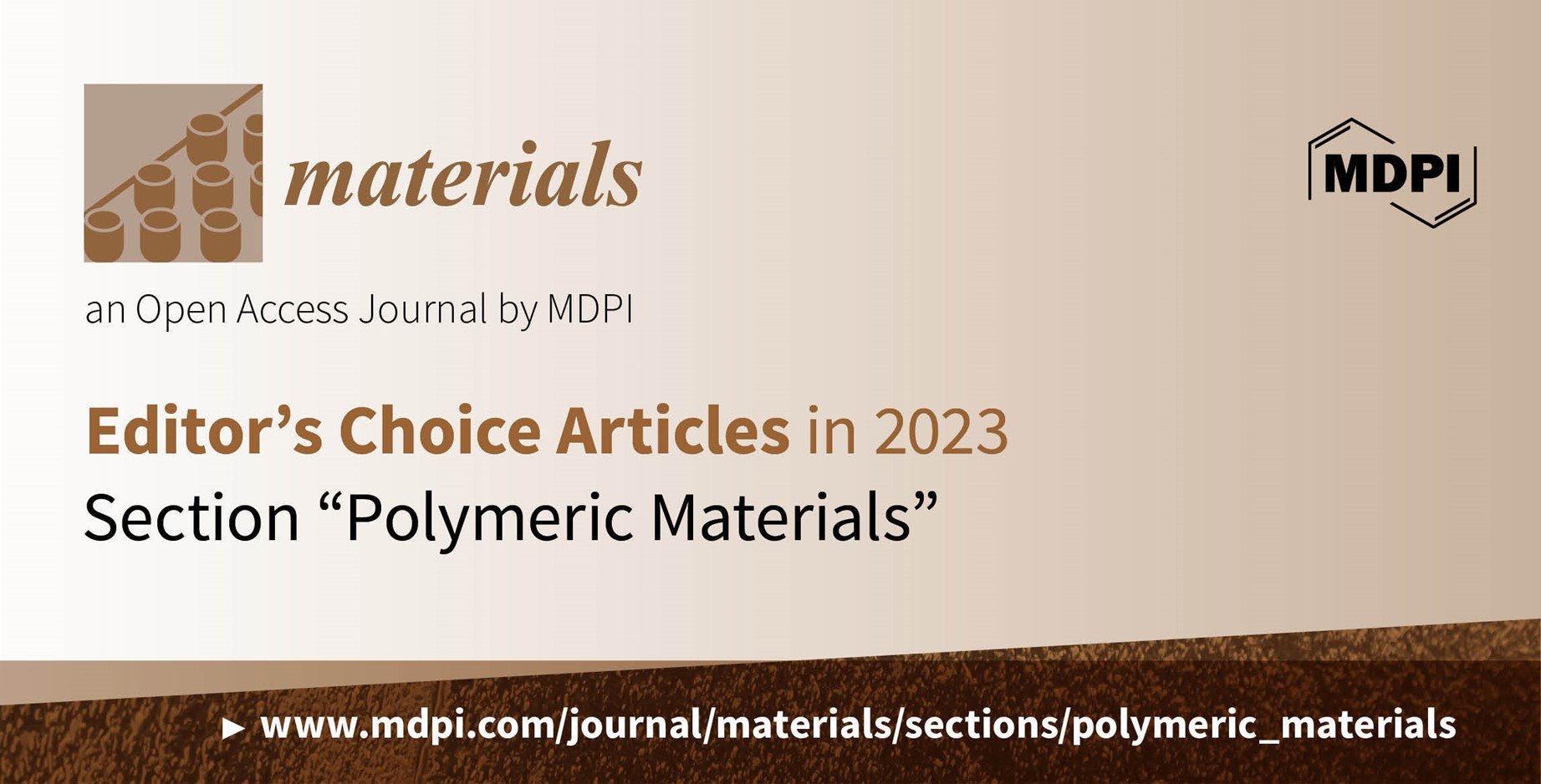
Materials (ISSN: 1996-1944) has launched the Section “Polymeric Materials”. We are pleased to present the 2023 Editor’s Choice Articles, a carefully curated list of high-quality articles from the Section “Polymeric Materials” listed below:
“Smart PEG-Block-PLA/PLA Nanosystems: Impact of the Characteristics of the Polymer Blend on the Redox Responsiveness”
by Louise Van Gheluwe, Stephanie David, Eric Buchy, Igor Chourpa and Emilie Munnier
Materials 2023, 16(2), 539; https://doi.org/10.3390/ma16020539
Available online: https://www.mdpi.com/1996-1944/16/2/539
“Polymer and Composite Materials in Two-Phase Passive Thermal Management Systems: A Review”
by Ali Ahmed Alqahtani and Volfango Bertola
Materials 2023, 16(3), 893; https://doi.org/10.3390/ma16030893
Available online: https://www.mdpi.com/1996-1944/16/3/893
“Effect of Polydopamine Coating of Cellulose Nanocrystals on Performance of PCL/PLA Bio-Nanocomposites”
by Ivan Kelnar, Ludmila Kaprálková, Sabina Krejčíková, Jiří Dybal, Michaela Vyroubalová and A. M. Abdel-Mohsen
Materials 2023, 16(3), 1087; https://doi.org/10.3390/ma16031087
Available online: https://www.mdpi.com/1996-1944/16/3/1087
“Epoxy and Bio-Based Epoxy Carbon Fiber Twill Composites: Comparison of the Quasi-Static Properties”
by Carlo Boursier Niutta, Raffaele Ciardiello, Andrea Tridello and Davide S. Paolino
Materials 2023, 16(4), 1601; https://doi.org/10.3390/ma16041601
Available online: https://www.mdpi.com/1996-1944/16/4/1601
“Properties and Emissions of Three-Layer Particleboards Manufactured with Mixtures of Wood Chips and Partially Liquefied Bark”
by Wen Jiang, Stergios Adamopoulos, Reza Hosseinpourpia, Thomas Walther and Sergej Medved
Materials 2023, 16(5), 1855; https://doi.org/10.3390/ma16051855
Available online: https://www.mdpi.com/1996-1944/16/5/1855
We would like to take this opportunity to thank all of the research groups that submitted to Materials. We would appreciate it if you could circulate this document among your colleagues and network. Furthermore, the following opportunities for collaboration may be of interest:
Submitting a manuscript:
This Section is currently open for submissions. Papers may be submitted via the following link: https://susy.mdpi.com/user/manuscripts/upload?journal=materials.
Launching a Special Issue:
You have the opportunity to propose hot topics and edit a Special Issue together with experts in the field.
Joining the Editorial Board:
If you are an active researcher in the field of Polymeric Materials and are interested in joining the Editorial Board, please do not hesitate to get in touch ([email protected]).
Materials Editorial Office
29 March 2023
Meet Us at the 6th International Conference on Natural Fibers, 19–21 June 2023, Funchal, Portugal
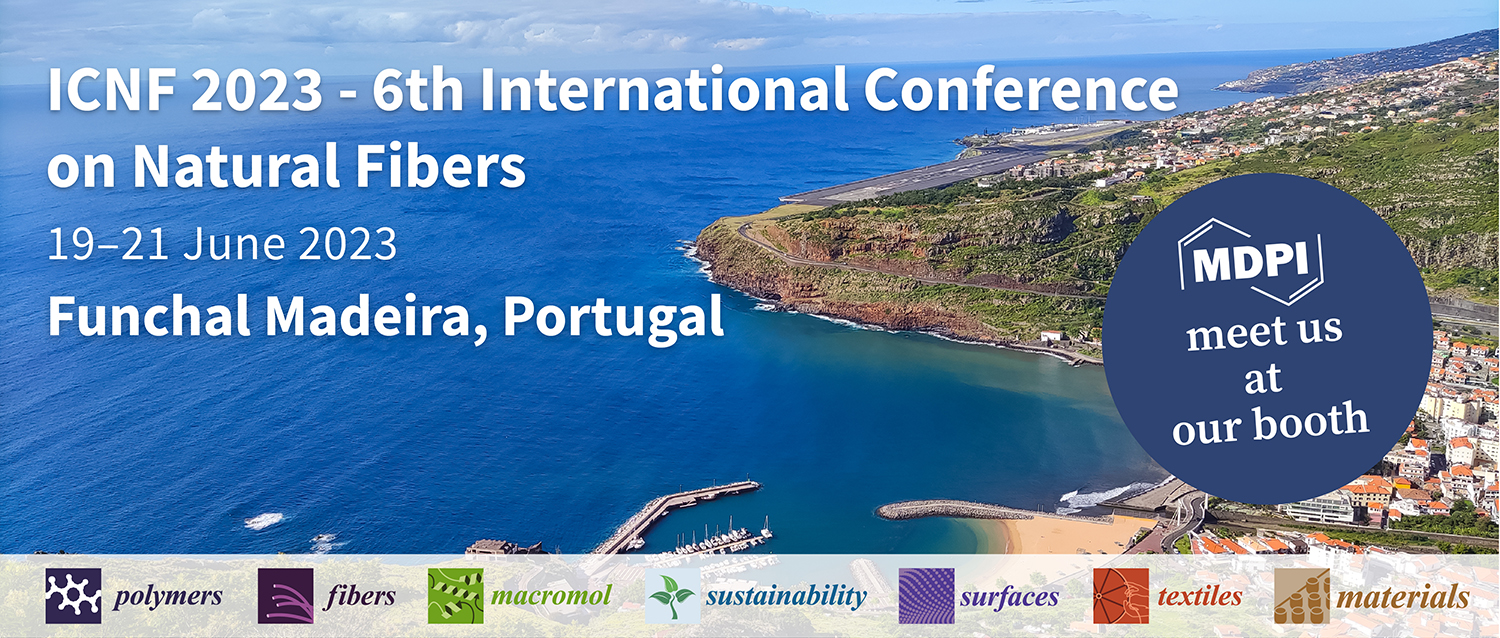
Conference: 6th International Conference on Natural Fibers
Date: 19–21 June 2023
Place: Funchal, Portugal
MDPI will be attending the 6th International Conference on Natural Fibers as an exhibitor. This meeting will be held at the VidaMar Resort Hotel, Funchal, Portugal, from 19 to 21 June 2023. The Organizing Committee comprises the University of Minho. The theme of the conference is "Nature Inspired Sustainable Solutions". Through this meeting, we wish to contribute to discussing and exchanging progress in the potential of natural fibers as key materials for smart designs and sustainable solutions in future generations.
The following MDPI journals will be represented:
If you are attending this conference, please feel free to start a conversation with us. Our delegates look forward to meeting you in person and answering any questions that you may have. For more information about the conference, please visit: https://www.icnf2023.fibrenamics.com/.
28 March 2023
Interviews with the Winners of Materials 2023 Travel Awards
As the Editors-in-Chief of Materials (ISSN: 1996-1944), we are pleased to announce the winners of the Materials 2023 Travel Award—Dr. Barbara Tomadoni and Ms. Farah Daou.
With so many high-quality applicants, the evaluation process and the final decision were challenging. We want to thank all applicants for submitting their diverse and fascinating range of research topics.
The following is an interview with Dr. Barbara Tomadoni:
1. Can you briefly introduce yourself to our readers and tell us a little bit about your fields of interest?
My name is Barbara Tomadoni. I have focused my research on bio-based materials. I am currently a postdoctoral researcher as part of the Group of Technology and Design of Multicomponent Products, at the University of Sevilla, Spain, where I work developing bio-based superabsorbent materials.
2. Which research topics do you think will be of particular interest to the research community in the coming years?
There are many trending topics in different areas that are of interest to the community in general. For example, data science and artificial intelligence have progressed rapidly in recent years. In medicine, genomics is an interesting and fast-growing research topic. In every scientific area, research is focusing on sustainability, aiming to achieve a circular economy and the replacement of petroleum-derived products and water treatments, among many others. Some trending topics particularly interesting in the materials field include nanotechnology, 3D printing, the replacement of lithium batteries, and the development of tailor-made functional materials.
3. Can you briefly describe the key to a happy laboratory life?
For me, one of the key elements to a happy lab life is to have the freedom and independence to work and to express your ideas. Collaboration with your peers is an essential part as well since teamwork is key to conducting successful research. The head of the lab is also an important factor in the life of the researchers, as this person will have a tremendous impact on their scientific and academic careers: a good leader is key to a happy lab life. Last but not least, it is very important to have a proper work–life balance, to avoid burnout and to reach your full potential, which is easier said than done.
4. What is your opinion of the Open Access model of publishing?
I believe that making research widely available to everyone contributes to higher quality research and will boost innovation. It is also important to have a proper research data management plan. For example, depositing research data within the university or institution repository. Making sure that data are available also guarantees the FAIR principles (Findable, Accessible, Interoperable, Reusable) and contributes to open science.
5. As the winner of this award, is there something you would like to express?
I would like to thank the Materials journal and MDPI for this award that will allow me to attend the Seventh International Symposium Frontiers in Polymer Science in Gothenburg, Sweden. This will give me the opportunity to connect with the materials community, share our latest findings on superabsorbent materials based on protein, and expand my network and learn about the latest research in the polymer field.
The following is an interview with Ms. Farah Daou:
1. Can you briefly introduce yourself to our readers and tell us a little bit about your fields of interest?
I am originally from Lebanon and moved to Italy as a research fellow. I am currently studying for my Ph.D. and my experiments are aimed at applications in real-life bone healing. I was interested in a European project, where I was introduced to Prof. Montini and began my journey in this field.
2. Which research topics do you think will be of particular interest to the research community in the coming years?
One of the most important challenges for the future is the global aging population, with the number of people aged 65 and over increasing significantly compared to younger age groups. It is researchers' responsibility to maintain the older population's physical and cognitive health, and therefore work on cartilage and bone regeneration is essential due to a high proportion of older people being significantly impacted by these issues, not only physically, but also through harm to their mental health.
3. Can you briefly describe the key to a happy laboratory life?
First of all, my group is very international and this is amazing. It adds the benefit of getting to know other people's cultures, but also adds different approaches to science and lab work, which gives the chance to improve your own knowledge and learn from others. It is important to accept an old saying from the Greek philosopher Socrates, 'I know that I know nothing'. Having intellectual humility helps in science, as it improves communication between researchers of all experiences and fields. Being able to ask about a topic that you do not know about creates an empowering environment, so it is important for research quality and morale. Science is interdisciplinary, so collaboration is necessary. This is the key to a happy lab life: collaboration and cooperation.
4. What is your opinion of the Open Access model of publishing?
I could not do experiments, research and write my thesis without access to articles. Therefore, I am an advocate for an Open Access model. I commented that both the publisher and authors should get their rights to the paper, which is a very important consideration. Publishing is becoming unaffordable, which drives the gap between smaller groups with limited resources that cannot pay for publishing and bigger groups who can afford to carry on and grow. Therefore, some further balance is needed, because allowing access to all is essential for having a proper scientific dialogue.
5. As the winner of this award, is there something you would like to express?
First of all, I want to thank Prof. Montini as the lab director for giving me the chance to come to Italy despite my limited experience; she opened the door of knowledge for me. When I moved to Italy, I came to understand how big research groups work and how research in developed countries is on another level. I would also like to thank all the people she works with, in the center for autoimmune and allergic diseases. Finally, I would like to thank all of my family members who have supported me, which I cannot go without.
On behalf of the assessment committee, we wish to congratulate the winners on their accomplishments.
22 March 2023
Materials | Editor’s Choice Articles in 2023 in the Section “Biomaterials”
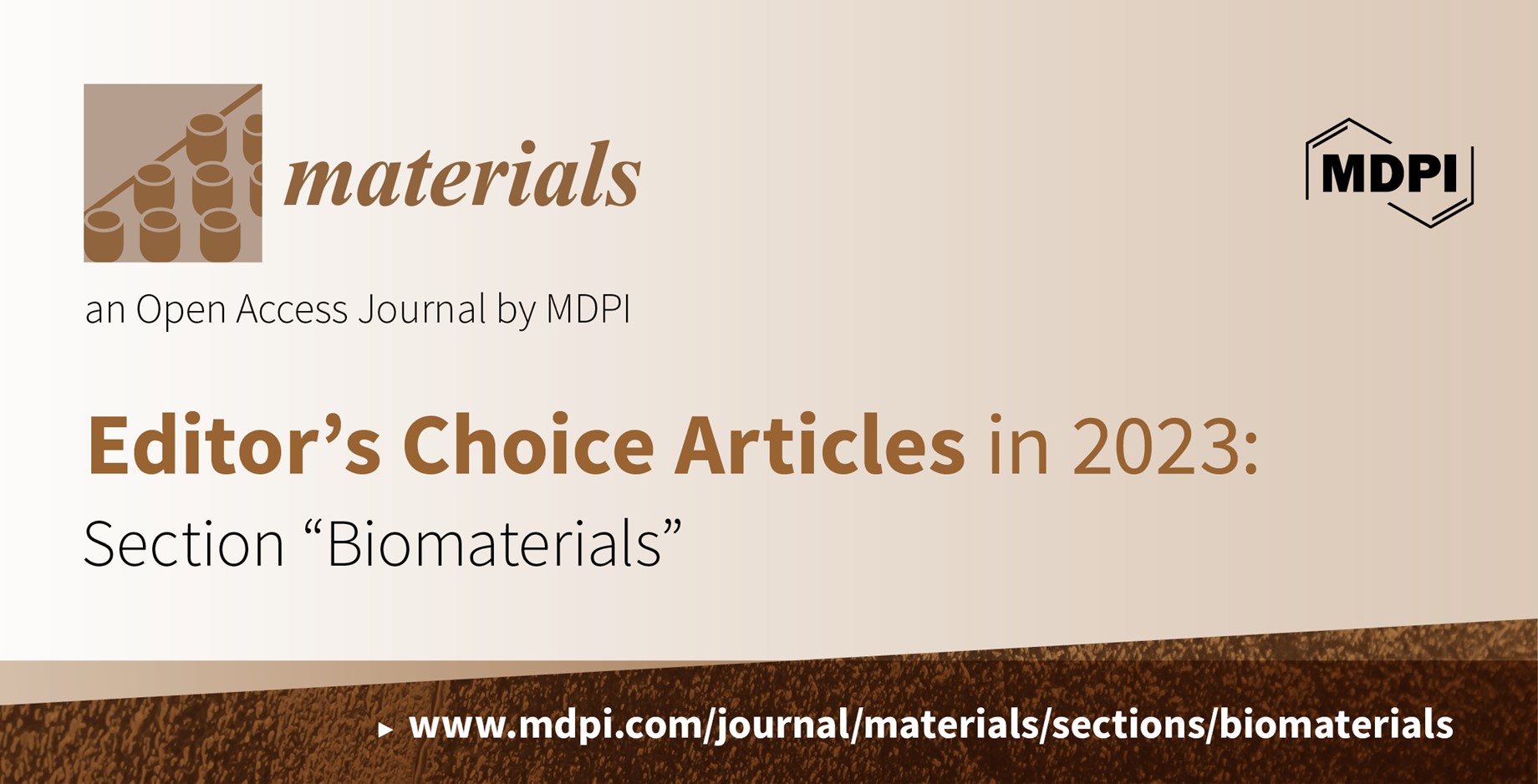
The Section “Biomaterials” of Materials (ISSN: 1996-1944) covers all aspects of the biomaterials field with a highly interdisciplinary scope, from the synthesis, processing, characterization, and testing to the biomedical applications of biomaterials. Topics of interest for this Section include but are not limited to materials for implants and prosthetic devices (orthopedic, cardiovascular, and other applications), bioactive and cell instructive materials, nanostructured biomaterials and nanoparticles, scaffolds for tissue engineering, biomedical coatings and antibacterial surfaces, materials for drug delivery carriers, tissue/biomaterial interfaces, and studies on clinical applications of biomaterials. Of special interest are papers that present the interaction of biomaterials and the biological environment, e.g., cell biology (in vitro) studies on biomaterials, microbiology interactions with materials (e.g., antibacterial materials), as well as in vivo studies that take the field closer to translation to clinical applications. Papers can present experimental or theoretical studies and should focus both on the “material” and on the “bio” component of biomaterials.
We are pleased to present the 2023 Editor’s Choice Articles, a carefully curated list of high-quality articles from the Section “Biomaterials” listed below:
“The Spray-Dried Alginate/Gelatin Microparticles with Luliconazole as Mucoadhesive Drug Delivery System”
by Marta Szekalska, Magdalena Wróblewska, Anna Czajkowska-Kośnik, Katarzyna Sosnowska, Paweł Misiak, Agnieszka Zofia Wilczewska and Katarzyna Winnicka
Materials 2023, 16(1), 403; https://doi.org/10.3390/ma16010403
Available online: https://www.mdpi.com/1996-1944/16/1/403
“A Novel Chitosan Composite Biomaterial with Drug Eluting Capacity for Maxillary Bone Regeneration”
by Barbara Giordano-Kelhoffer, Raquel Rodríguez-Gonzalez, Marina Perpiñan-Blasco, Jenifer O. Buitrago, Begoña M. Bosch and Roman A. Perez
Materials 2023, 16(2), 685; https://doi.org/10.3390/ma16020685
Available online: https://www.mdpi.com/1996-1944/16/2/685
“Effects of Altering Magnesium Metal Surfaces on Degradation In Vitro and In Vivo during Peripheral Nerve Regeneration”
by Rigwed Tatu, Leon G. White, Yeoheung Yun, Tracy Hopkins, Xiaoxian An, Ahmed Ashraf, Kevin J. Little, Meir Hershcovitch, David B. Hom and Sarah Pixley
Materials 2023, 16(3), 1195; https://doi.org/10.3390/ma16031195
Available online: https://www.mdpi.com/1996-1944/16/3/1195
“Freeze Drying of Polymer Nanoparticles and Liposomes Exploiting Different Saccharide-Based Approaches”
by Ilaria Andreana, Valeria Bincoletto, Maela Manzoli, Francesca Rodà, Vita Giarraputo, Paola Milla, Silvia Arpicco and Barbara Stella
Materials 2023, 16(3), 1212; https://doi.org/10.3390/ma16031212
Available online: https://www.mdpi.com/1996-1944/16/3/1212
“Novel Artificial Scaffold for Bone Marrow Regeneration: Honeycomb Tricalcium Phosphate”
by Yasunori Inada, Kiyofumi Takabatake, Hidetsugu Tsujigiwa, Keisuke Nakano, Qiusheng Shan, Tianyan Piao, Anqi Chang, Hotaka Kawai and Hitoshi Nagatsuka
Materials 2023, 16(4), 1393; https://doi.org/10.3390/ma16041393
Available online: https://www.mdpi.com/1996-1944/16/4/1393
“Antimicrobial Properties of TiNbSn Alloys Anodized in a Sulfuric Acid Electrolyte”
by Yu Mori, Satoko Fujimori, Hiroaki Kurishima, Hiroyuki Inoue, Keiko Ishii, Maya Kubota, Kazuyoshi Kawakami, Naoko Mori, Toshimi Aizawa and Naoya Masahashi
Materials 2023, 16(4), 1487; https://doi.org/10.3390/ma16041487
Available online: https://www.mdpi.com/1996-1944/16/4/1487
“Porous Thermoplastic Molded Regenerated Silk Crosslinked by the Addition of Citric Acid”
by Alessio Bucciarelli, Nicola Vighi, Alessandra Maria Bossi, Brunella Grigolo and Devid Maniglio
Materials 2023, 16(4), 1535; https://doi.org/10.3390/ma16041535
Available online: https://www.mdpi.com/1996-1944/16/4/1535
We would like to take this opportunity to thank all the research groups that have submitted their work to Materials. We would appreciate it if you could circulate this document among your colleagues and network. Furthermore, the following opportunities for collaboration may be of interest:
Submitting a manuscript:
This Section is currently open for submissions. Papers may be submitted via the following link: https://susy.mdpi.com/user/manuscripts/upload?journal=materials.
Launching a Special Issue:
You have the opportunity to propose hot topics and edit a Special Issue together with experts in the field.
Joining the Editorial Board:
If you are an active researcher in the field of Biomaterials and are interested in joining the Editorial Board, please do not hesitate to get in touch ([email protected]).
Materials Editorial Office
21 March 2023
Materials | Hot Papers in 2022
We are pleased to highlight the hot papers published in Materials (ISSN: 1996-1944) last year. We invite you to read the selection of published papers listed below:
1. “Multifunctional Iron Oxide Magnetic Nanoparticles for Biomedical Applications: A Review”
by Hung-Vu Tran, Nhat M. Ngo, Riddhiman Medhi, Pannaree Srinoi, Tingting Liu, Supparesk Rittikulsittichai and T. Randall Lee
Materials 2022, 15(2), 503; https://doi.org/10.3390/ma15020503
Available online: https://www.mdpi.com/1996-1944/15/2/503
2. “Synthesis and Applications of Graphene Oxide”
by Adéla Jiříčková, Ondřej Jankovský, Zdeněk Sofer and David Sedmidubský
Materials 2022, 15(3), 920; https://doi.org/10.3390/ma15030920
Available online: https://www.mdpi.com/1996-1944/15/3/920
by Andrei I. Klyndyuk, Ekaterina A. Chizhova, Dzmitry S. Kharytonau and Dmitry A. Medvedev
Materials 2022, 15(1), 141; https://doi.org/10.3390/ma15010141
Available online: https://www.mdpi.com/1996-1944/15/1/141
4. “Applications of Phyto-Nanotechnology for the Treatment of Neurodegenerative Disorders”
by Tanima Bhattacharya, Giselle Amanda Borges e Soares, Hitesh Chopra, Md. Mominur Rahman, Ziaul Hasan, Shasank S. Swain and Simona Cavalu
Materials 2022, 15(3), 804; https://doi.org/10.3390/ma15030804
Available online: https://www.mdpi.com/1996-1944/15/3/804
5. “A Comprehensive Review of Biodegradable Polymer-Based Films and Coatings and Their Food Packaging Applications”
by Vatsla Gupta, Deblina Biswas and Swarup Roy
Materials 2022, 15(17), 5899; https://doi.org/10.3390/ma15175899
Available online: https://www.mdpi.com/1996-1944/15/17/5899
6. “Microstructure Evolution and Improved Permeability of Ceramic Waste-Based Bricks”
by Wenfei Zhou, Huiling Du, Le Kang, Xian Du, Yupu Shi, Xiaojing Qiang, Haodong Li and Jing Zhao
Materials 2022, 15(3), 1130; https://doi.org/10.3390/ma15031130
Available online: https://www.mdpi.com/1996-1944/15/3/1130
7. “The Mechanical Resistance of Asphalt Mixture with Steel Slag to Deformation and Skid Degradation Based on Laboratory Accelerated Heavy Loading Test”
by Jiasheng Li, Jianying Yu, Shaopeng Wu and Jun Xie
Materials 2022, 15(3), 911; https://doi.org/10.3390/ma15030911
Available online: https://www.mdpi.com/1996-1944/15/3/911
8. “Synthesis, Characterization and Biomedical Application of Silver Nanoparticles”
by Ashwini Naganthran, Gayathiri Verasoundarapandian, Farah Eryssa Khalid, Mas Jaffri Masarudin, Azham Zulkharnain, Norazah Mohammad Nawawi, Murni Karim, Che Azurahanim Che Abdullah and Siti Aqlima Ahmad
Materials 2022, 15(2), 427; https://doi.org/10.3390/ma15020427
Available online: https://www.mdpi.com/1996-1944/15/2/427
9. “Review on Graphene-, Graphene Oxide-, Reduced Graphene Oxide-Based Flexible Composites: From Fabrication to Applications”
by Aamir Razaq, Faiza Bibi, Xiaoxiao Zheng, Raffaello Papadakis, Syed Hassan Mujtaba Jafri and Hu Li
Materials 2022, 15(3), 1012; https://doi.org/10.3390/ma15031012
Available online: https://www.mdpi.com/1996-1944/15/3/1012
17 March 2023
Materials | Editor’s Choice Articles in 2022 in the Section “Thin Films and Interfaces”
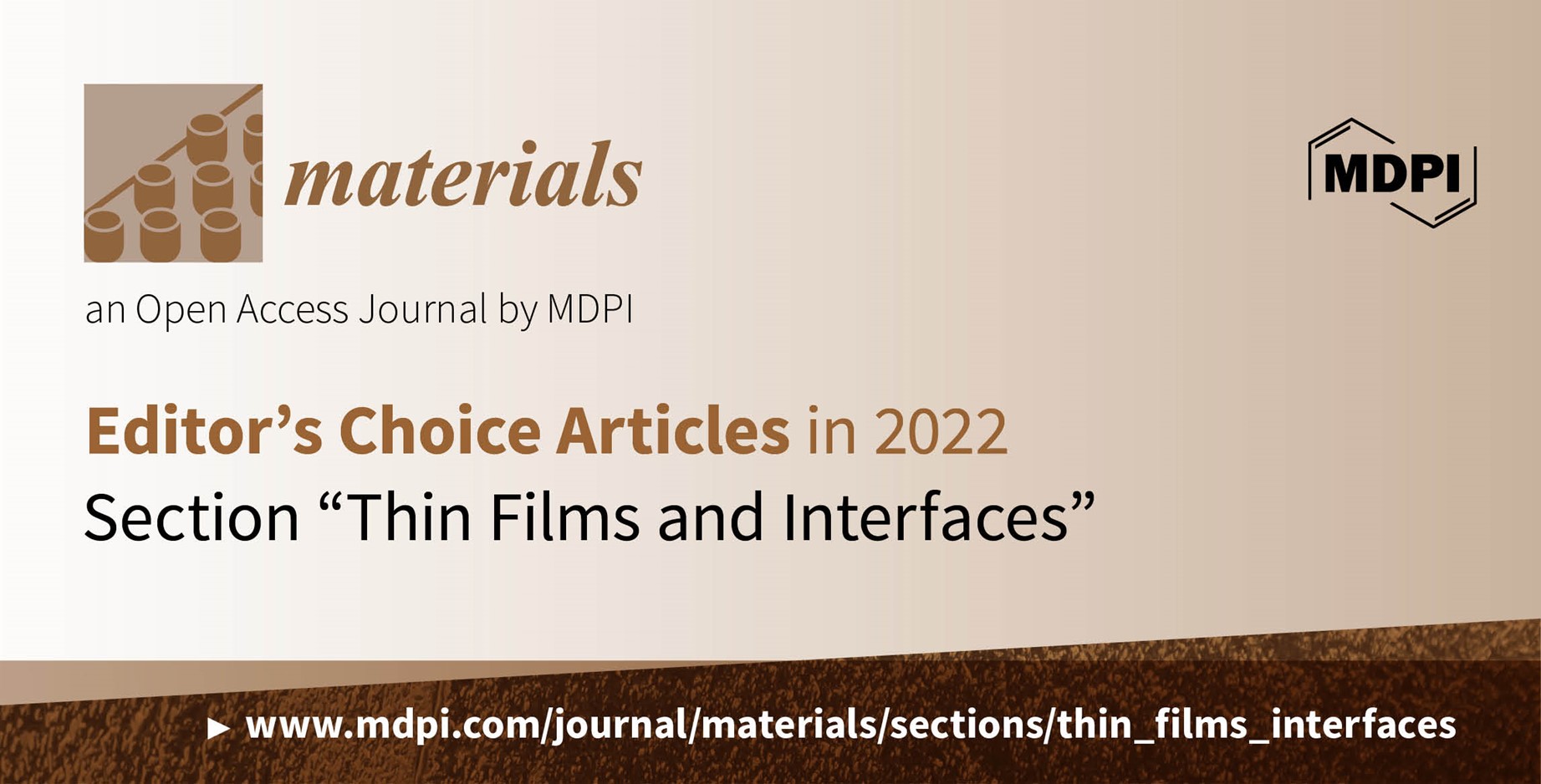
Materials (ISSN: 1996-1944) has launched the Section “Thin Films and Interfaces”. Thin film materials are widespread for technological applications, spanning from electronics through medicine. Thin film materials can exhibit a greater number of vastly different structural, chemical, electrical, optical, and mechanical properties compared to their corresponding bulk counterparts due to the choice of substrate or underlying material, the material deposition and fabrication process, and the resulting variations in crystal phase, disorder and defects within poly-/nano-crystalline and amorphous materials, strain, and composition. The very nature of thin films involves the formation of interfaces, including that with the substrate, underlying or overlying layers, and/or the ambient. These interfaces and interfacial regions may exhibit additional variations due to confinement, bonding configurations, chemical composition, exposure to ambient, physical mixing, and the morphology present.
We are pleased to present the 2022 Editor’s Choice Articles, a carefully curated list of high-quality articles from the Section “Thin Films and Interfaces” listed below:
“Tuning of the Titanium Oxide Surface to Control Magnetic Properties of Thin Iron Films”
by Juliusz Chojenka, Arkadiusz Zarzycki, Marcin Perzanowski, Michał Krupiński, Tamás Fodor, Kálmán Vad and Marta Marszałek
Materials 2023, 16(1), 289; https://doi.org/10.3390/ma16010289
Available online: https://www.mdpi.com/1996-1944/16/1/289
“Deposition of Sol–Gel ZnO:Mg Films and Investigation of Their Structural and Optical Properties”
by Tatyana Ivanova, Antoaneta Harizanova, Tatyana Koutzarova, Benedicte Vertruyen and Raphael Closset
Materials 2022, 15(24), 8883; https://doi.org/10.3390/ma15248883
Available online: https://www.mdpi.com/1996-1944/15/24/8883
“Hybrid Dispersion Model Characterization of PAZO Azopolymer Thin Films over the Entire Transmittance Spectrum Measured in the UV/VIS/NIR Spectral Region”
by Dorian Minkov, Lian Nedelchev, George Angelov, Emilio Marquez, Blaga Blagoeva, Georgi Mateev and Dimana Nazarova
Materials 2022, 15(23), 8617; https://doi.org/10.3390/ma15238617
Available online: https://www.mdpi.com/1996-1944/15/23/8617
“Effects of Cold Rolling Reduction on Microstructure, Thickness, Adhesive Force of Al-Si Coating and on Bending Toughness of Al-Si Coated Press-Hardened Steel”
by Xue Feng, Xianlei Hu and Xianghua Liu
Materials 2023, 16(1), 4; https://doi.org/10.3390/ma16010004
Available online: https://www.mdpi.com/1996-1944/16/1/4
“Polycrystalline PbTe:In Films on Amorphous Substrate: Structure and Physical Properties”
by Vadim Kovalyuk, Evgeniia Sheveleva, Mark Auslender, Gregory Goltsman, Roni Shneck and Zinovi Dashevsky
Materials 2022, 15(23), 8383; https://doi.org/10.3390/ma15238383
Available online: https://www.mdpi.com/1996-1944/15/23/8383
“Effect of Substrate Temperature on the Structural, Optical and Electrical Properties of DC Magnetron Sputtered VO2 Thin Films”
by Chunzi Zhang, Ozan Gunes, Shi-Jie Wen, Qiaoqin Yang and Safa Kasap
Materials 2022, 15(21), 7849; https://doi.org/10.3390/ma15217849
Available online: https://www.mdpi.com/1996-1944/15/21/7849
“Characterization of Porous CuO Films for H2S Gas Sensors”
by Dawoon Jung, Sehoon Hwang, Hyun-Jong Kim, Jae-Hee Han and Ho-Nyun Lee
Materials 2022, 15(20), 7270; https://doi.org/10.3390/ma15207270
Available online: https://www.mdpi.com/1996-1944/15/20/7270
We would like to take this opportunity to thank all the research groups that submitted to Materials. We would appreciate it if you could circulate this document among your colleagues and network.
Furthermore, the following opportunities for collaboration may be of interest:
Submitting a manuscript:
Papers may be submitted via the following link:
https://susy.mdpi.com/user/manuscripts/upload?journal=materials.
Launching a Special Issue:
You have the opportunity to propose hot topics and edit a Special Issue together with experts in the field. More information can be found at the following link:
https://www.mdpi.com/journalproposal/sendproposalspecialissue/materials.
Joining the Editorial Board:
If you are an active researcher in the field of Thin Films and Interfaces and are interested in joining the Editorial Board, please do not hesitate to get in touch ([email protected]).
Materials Editorial Office
17 March 2023
Materials | Editor’s Choice Articles in 2022 in the Section “Manufacturing Processes and Systems”
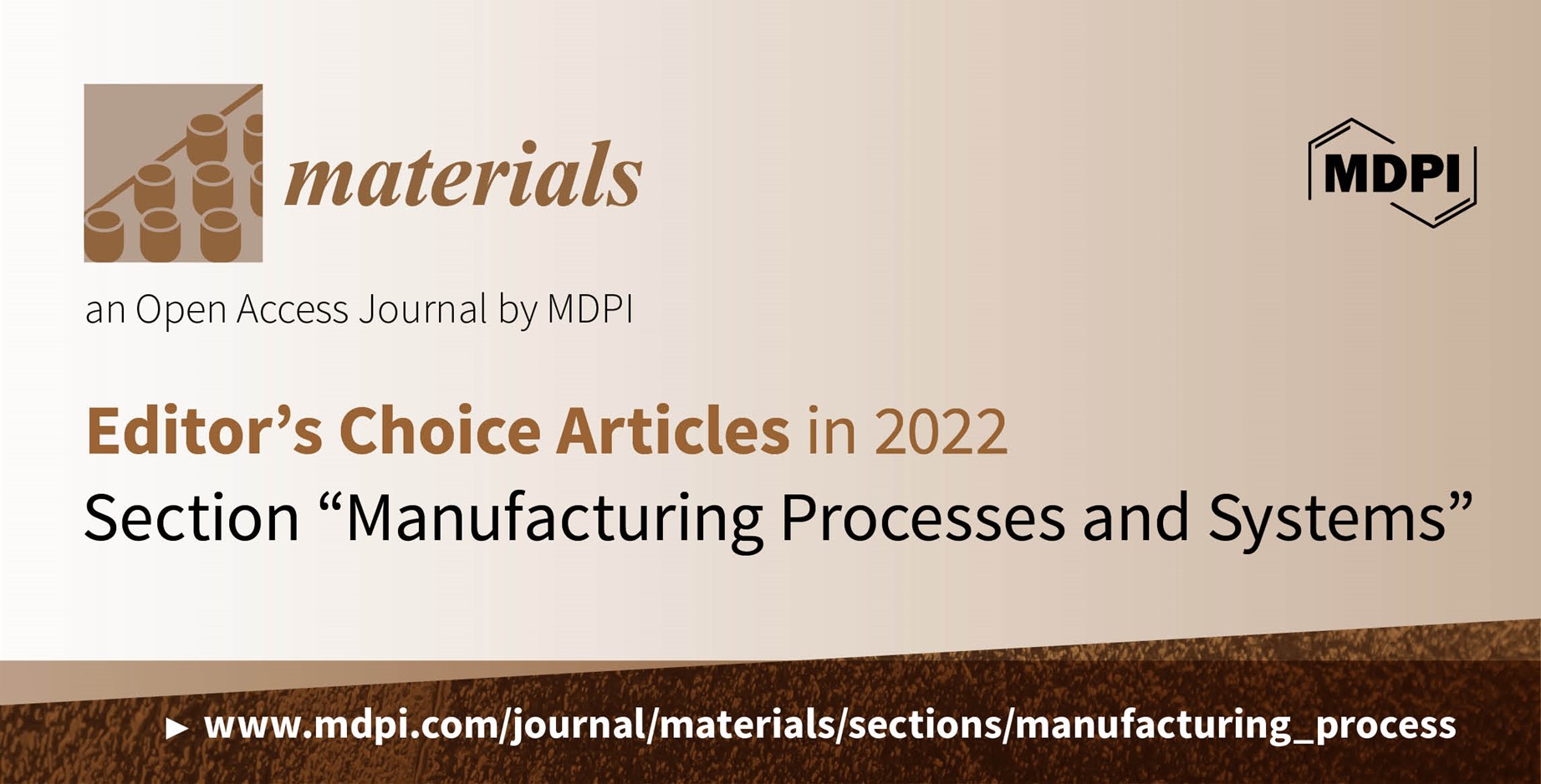
Materials (ISSN: 1996-1944) has launched the Section “Manufacturing Processes and Systems”. We are pleased to present the 2022 Editor’s Choice Articles, a carefully curated list of high-quality articles from the Section “Manufacturing Processes and Systems” listed below:
“Processing and Properties of Tungsten-Steel Composites and FGMs Prepared by Spark Plasma Sintering”
by Jiří Matějíček, Radek Mušálek, Zdeněk Dlabáček, Veronika Klevarová and Lenka Kocmanová
Materials 2022, 15(24), 9037; https://doi.org/10.3390/ma15249037
Available online: https://www.mdpi.com/1996-1944/15/24/9037
“The Influence of Co Addition on the Structure and Mechanical Properties of Tungsten Heavy Alloys”
by Paweł Skoczylas and Mieczysław Kaczorowski
Materials 2022, 15(24), 9064; https://doi.org/10.3390/ma15249064
Available online: https://www.mdpi.com/1996-1944/15/24/9064
“Growth Kinetics, Microstructure Evolution, and Some Mechanical Properties of Boride Layers Produced on X165CrV12 Tool Steel”
by Natalia Makuch, Michał Kulka, Mourad Keddam and Adam Piasecki
Materials 2023, 16(1), 26; https://doi.org/10.3390/ma16010026
Available online: https://www.mdpi.com/1996-1944/16/1/26
We would like to take this opportunity to thank all the research groups that submitted to Materials. We would appreciate it if you could circulate this document among your colleagues and network.
Furthermore, the following opportunities for collaboration may be of interest:
Submitting a manuscript:
Papers may be submitted via the following link:
https://susy.mdpi.com/user/manuscripts/upload?journal=materials.
Launching a Special Issue:
You have the opportunity to propose hot topics and edit a Special Issue together with experts in the field. More information can be found at the following link:
https://www.mdpi.com/journalproposal/sendproposalspecialissue/materials.
Joining the Editorial Board:
If you are an active researcher in the field of Manufacturing Processes and Systems and are interested in joining the Editorial Board, please do not hesitate to get in touch ([email protected]).
Materials Editorial Office
17 March 2023
Materials | Editor’s Choice Articles in the Section “Advanced Composites”
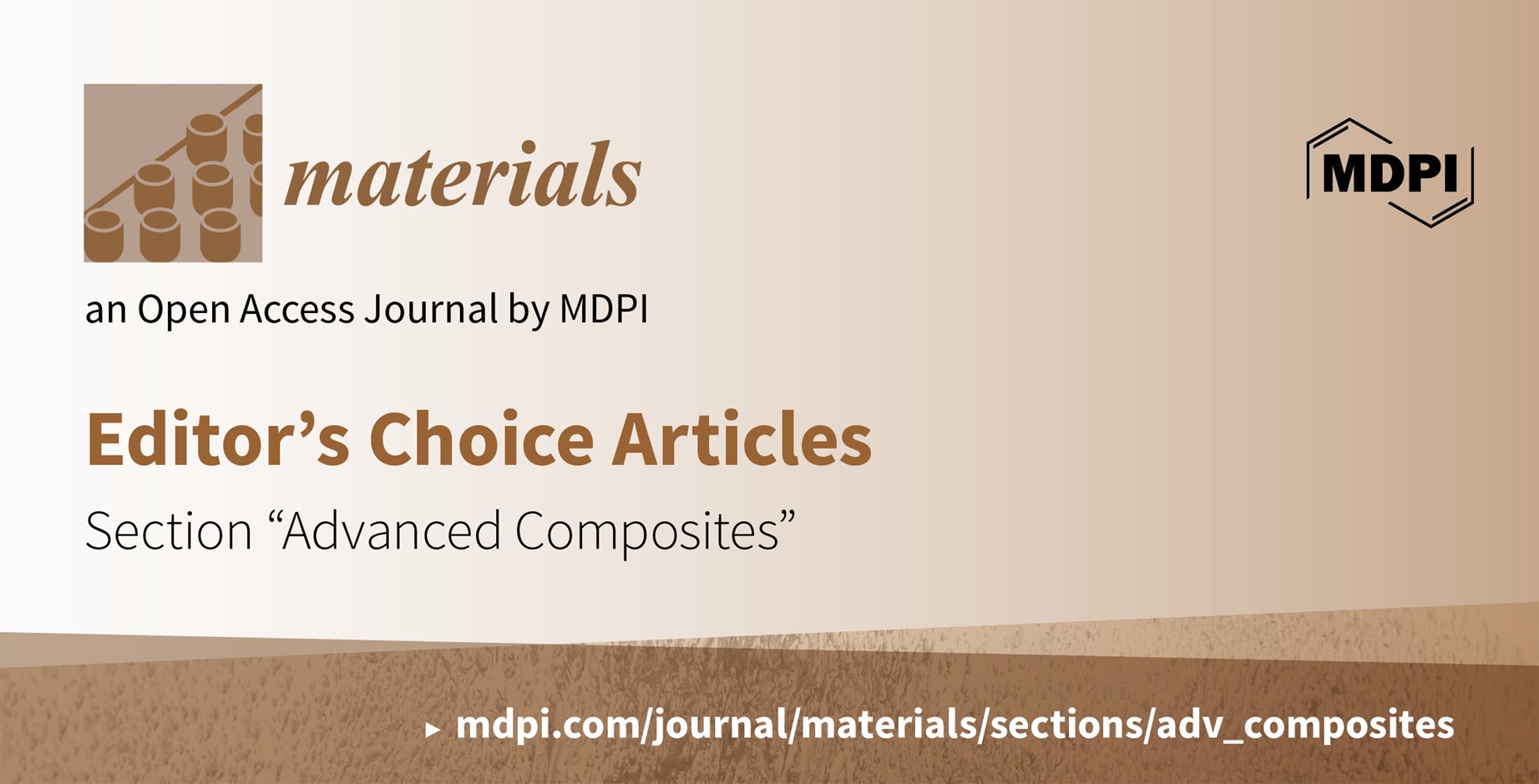
Materials (ISSN: 1996-1944) has launched the Section “Advanced Composites”. Advanced composites are increasingly used in several industrial sectors such as transportation (airplanes, helicopters, trains, automobiles, motorbikes, and bicycles), civil construction, electrical and electronic equipment, pipes and tanks, marine, energy conversion, and consumer goods. They play a key role in the development of lightweight structures with outstanding mechanical properties, high reliability, and environmental resistance.
We are pleased to present the Editor’s Choice Articles from December 2022, a carefully curated list of high-quality articles from the Section “Advanced Composites”, as listed below:
“Nonlinear Analytical Procedure for Predicting Debonding of Laminate from Substrate Subjected to Monotonic or Cyclic Load”
by Marco Lamberti, Francesco Ascione, Annalisa Napoli, Ghani Razaqpur and Roberto Realfonzo
Materials 2022, 15(23), 8690; https://doi.org/10.3390/ma15238690
Available online: https://www.mdpi.com/1996-1944/15/23/8690
“Open Hole Tension of 3D Printed Aligned Discontinuous Composites”
by Narongkorn Krajangsawasdi, Ian Hamerton, Benjamin K. S. Woods, Dmitry S. Ivanov and Marco L. Longana
Materials 2022, 15(23), 8698; https://doi.org/10.3390/ma15238698
Available online: https://www.mdpi.com/1996-1944/15/23/8698
“Transparent Wood-Based Materials: Current State-of-the-Art and Future Perspectives”
by Alberto Mariani and Giulio Malucelli
Materials 2022, 15(24), 9069; https://doi.org/10.3390/ma15249069
Available online: https://www.mdpi.com/1996-1944/15/24/9069
“Polymer Composites with Self-Regulating Temperature Behavior: Properties and Characterization”
by Radu Setnescu, Eduard-Marius Lungulescu and Virgil Emanuel Marinescu
Materials 2023, 16(1), 157; https://doi.org/10.3390/ma16010157
Available online: https://www.mdpi.com/1996-1944/16/1/157
“Effective Halogen-Free Flame-Retardant Additives for Crosslinked Rigid Polyisocyanurate Foams: Comparison of Chemical Structures”
by Johannes U. Lenz, Doris Pospiech, Hartmut Komber, Andreas Korwitz, Oliver Kobsch, Maxime Paven, Rolf W. Albach, Martin Günther and Bernhard Schartel
Materials 2023, 16(1), 172; https://doi.org/10.3390/ma16010172
Available online: https://www.mdpi.com/1996-1944/16/1/172
“Microstructural Characterization and Property of Carbon Fiber Reinforced High-Density Polyethylene Composites Fabricated by Fused Deposition Modeling”
by Partha Pratim Pandit, Chang Liu, Scott Iacono, Giancarlo Corti and Yingbin Huz
Materials 2023, 16(1), 180; https://doi.org/10.3390/ma16010180
Available online: https://www.mdpi.com/1996-1944/16/1/180
“In-Service Delaminations in FRP Structures under Operational Loading Conditions: Are Current Fracture Testing and Analysis on Coupons Sufficient for Capturing the Essential Effects for Reliable Predictions?”
by Andreas J. Brunner, René Alderliesten and John-Alan Pascoe
Materials 2023, 16(1), 248; https://doi.org/10.3390/ma16010248
Available online: https://www.mdpi.com/1996-1944/16/1/248
“Improvement of the Thermal Conductivity and Mechanical Properties of 3D-printed Polyurethane Composites by Incorporating Hydroxylated Boron Nitride Functional Fillers”
by Kai-Han Su, Cherng-Yuh Su, Wei-Ling Shih and Fang-Ting Lee
Materials 2023, 16(1), 356; https://doi.org/10.3390/ma16010356
Available online: https://www.mdpi.com/1996-1944/16/1/356
15 March 2023
Materials | Editor’s Choice Articles in 2022 in the Section “Quantum Materials”
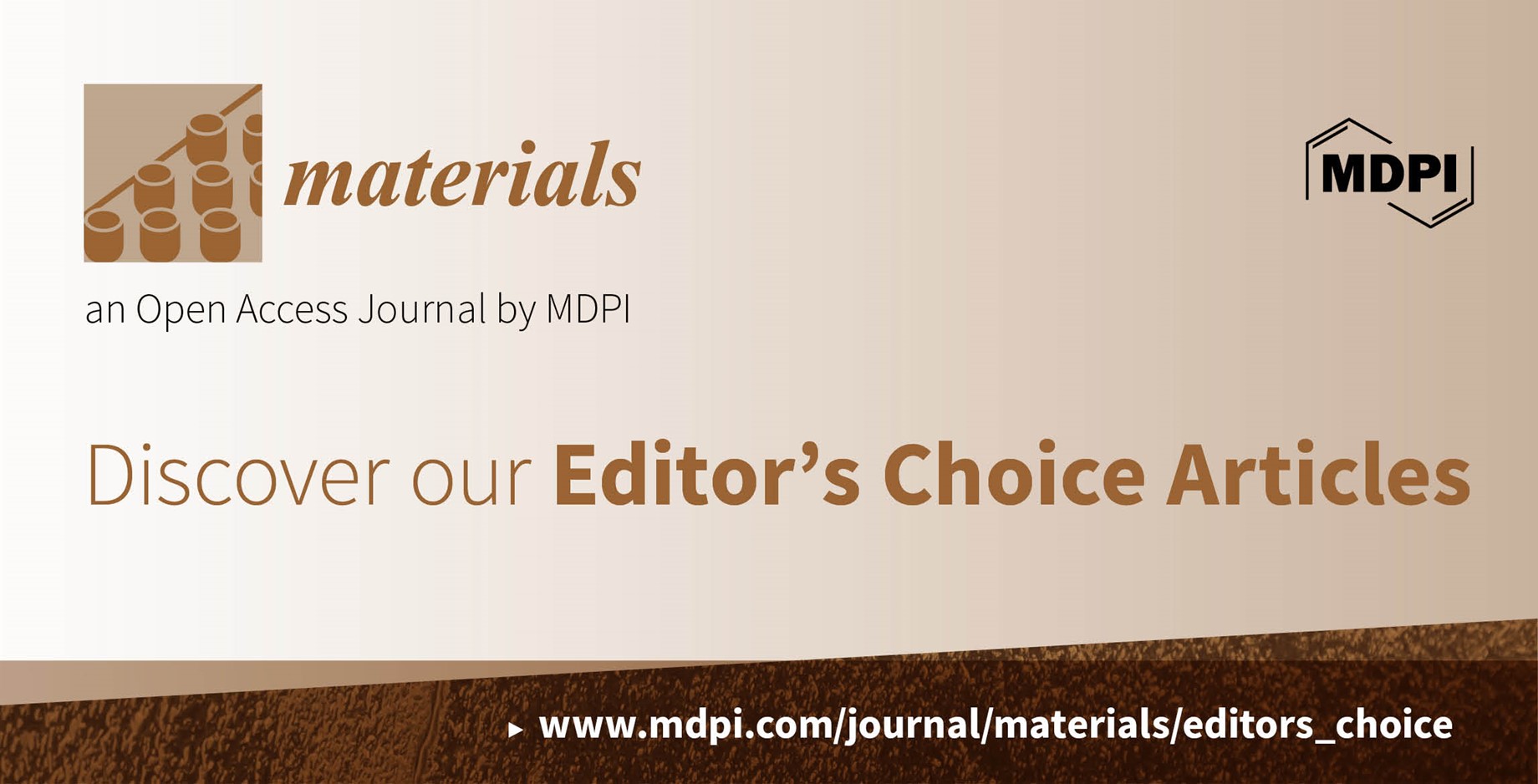
Materials (ISSN: 1996-1944) has launched the Section “Quantum Materials”. This Section publishes novel scientific and applied research that significantly contributes to the understanding and discovery of quantum materials and related phenomena, functions, and applications. Quantum materials are characterized by quantum many-body-systems in a typical form of strongly correlated electrons in solids that can engender novel and remarkable properties and functions, including Mott transition, high-temperature superconductivity, topological superconductivity, colossal magnetoresistance, giant magnetoelectric effect, and so forth.
We are pleased to present the 2022 Editor’s Choice Articles, which is a carefully curated list of high-quality articles from the Section “Quantum Materials”.
“Pressure-Induced Superconductivity in Iron-Based Spin-Ladder Compound BaFe2+δ(S1−xSex)3”
by Hiroki Takahashi, Ryosuke Kikuchi, Chizuru Kawashima, Satoshi Imaizumi, Takuya Aoyama and Kenya Ohgushi
Materials 2022, 15(4), 1401; https://doi.org/10.3390/ma15041401
Available online: https://www.mdpi.com/1996-1944/15/4/1401
“Magnetic Properties of A2Ni2TeO6 (A = K, Li): Zigzag Order in the Honeycomb Layers of Ni2+ Ions Induced by First and Third Nearest-Neighbor Spin Exchanges”
by Tatyana Vasilchikova, Alexander Vasiliev, Maria Evstigneeva, Vladimir Nalbandyan, Ji-Sun Lee, Hyun-Joo Koo and Myung-Hwan Whangbo
Materials 2022, 15(7), 2563; https://doi.org/10.3390/ma15072563
Available online: https://www.mdpi.com/1996-1944/15/7/2563
“Pressure Tuning of Superconductivity of LaPt4Ge12 and PrPt4Ge12 Single Crystals”
by Gustavo A. Lombardi, Kamal Mydeen, Roman Gumeniuk, Andreas Leithe-Jasper, Walter Schnelle, Ricardo D. dos Reis and Michael Nicklas
Materials 2022, 15(8), 2743; https://doi.org/10.3390/ma15082743
Available online: https://www.mdpi.com/1996-1944/15/8/2743
“Unraveling the Phase Stability and Physical Property of Modulated Martensite in Ni2Mn1.5In0.5 Alloys by First-Principles Calculations”
by Xin-Zeng Liang, Jing Bai, Zi-Qi Guan, Yu Zhang, Jiang-Long Gu, Yu-Dong Zhang, Claude Esling, Xiang Zhao and Liang Zuo
Materials 2022, 15(11), 4032; https://doi.org/10.3390/ma15114032
Available online: https://www.mdpi.com/1996-1944/15/11/4032
“Pressure-Induced Superconductivity of the Quasi-One-Dimensional Organic Conductor (TMTTF)2TaF6”
by Miho Itoi, Toshikazu Nakamura and Yoshiya Uwatoko
Materials 2022, 15(13), 4638; https://doi.org/10.3390/ma15134638
Available online: https://www.mdpi.com/1996-1944/15/13/4638
“Effect of Silver Doping on the Superconducting and Structural Properties of YBCO Films Grown by PLD on Different Templates”
by Ilya A. Shipulin, Aleena Anna Thomas, Sigrid Holleis, Michael Eisterer, Kornelius Nielsch and Ruben Hühne
Materials 2022, 15(15), 5354; https://doi.org/10.3390/ma15155354
Available online: https://www.mdpi.com/1996-1944/15/15/5354
“Destabilization of the Charge Density Wave and the Absence of Superconductivity in ScV6Sn6 under High Pressures up to 11 GPa”
by Xiaoxiao Zhang, Jun Hou, Wei Xia, Zhian Xu, Pengtao Yang, Anqi Wang, Ziyi Liu, Jie Shen, Hua Zhang, Xiaoli Dong et al.
Materials 2022, 15(20), 7372; https://doi.org/10.3390/ma15207372
Available online: https://www.mdpi.com/1996-1944/15/20/7372
“Bond-Orbital-Resolved Piezoelectricity in Sp2-Hybridized Monolayer Semiconductors”
by Zongtan Wang, Yulan Liu and Biao Wang
Materials 2022, 15(21), 7788; https://doi.org/10.3390/ma15217788
Available online: https://www.mdpi.com/1996-1944/15/21/7788
“Critical Current Density in d-Wave Hubbard Superconductors”
by José Samuel Millán, Jorge Millán, Luis A. Pérez and Harold S. Ruiz
Materials 2022, 15(24), 8969; https://doi.org/10.3390/ma15248969
Available online: https://www.mdpi.com/1996-1944/15/24/8969
“Theoretical Study of Dynamical and Electronic Properties of Noncentrosymmetric Superconductor NbReSi”
by Surajit Basak and Andrzej Ptok.
Materials 2023, 16(1), 78; https://doi.org/10.3390/ma16010078
Available online: https://www.mdpi.com/1996-1944/16/1/78
We want to thank all the research groups that submitted to Materials. Please circulate this document among your colleagues and network. Furthermore, the following opportunities for collaboration may be of interest:
Submitting a manuscript:
This Section is currently open for submissions. Papers may be submitted via the following link: https://susy.mdpi.com/user/manuscripts/upload?journal=materials.
Launching a Special Issue:
You can propose hot topics and edit a Special Issue together with experts in the field.
Joining the Editorial Board:
If you are an active researcher in the field of Quantum Materials and are interested in joining the Editorial Board, please do not hesitate to get in touch ([email protected]).
Materials Editorial Office
15 March 2023
Materials | Editor’s Choice Articles in 2022 in the Section “Smart Materials”
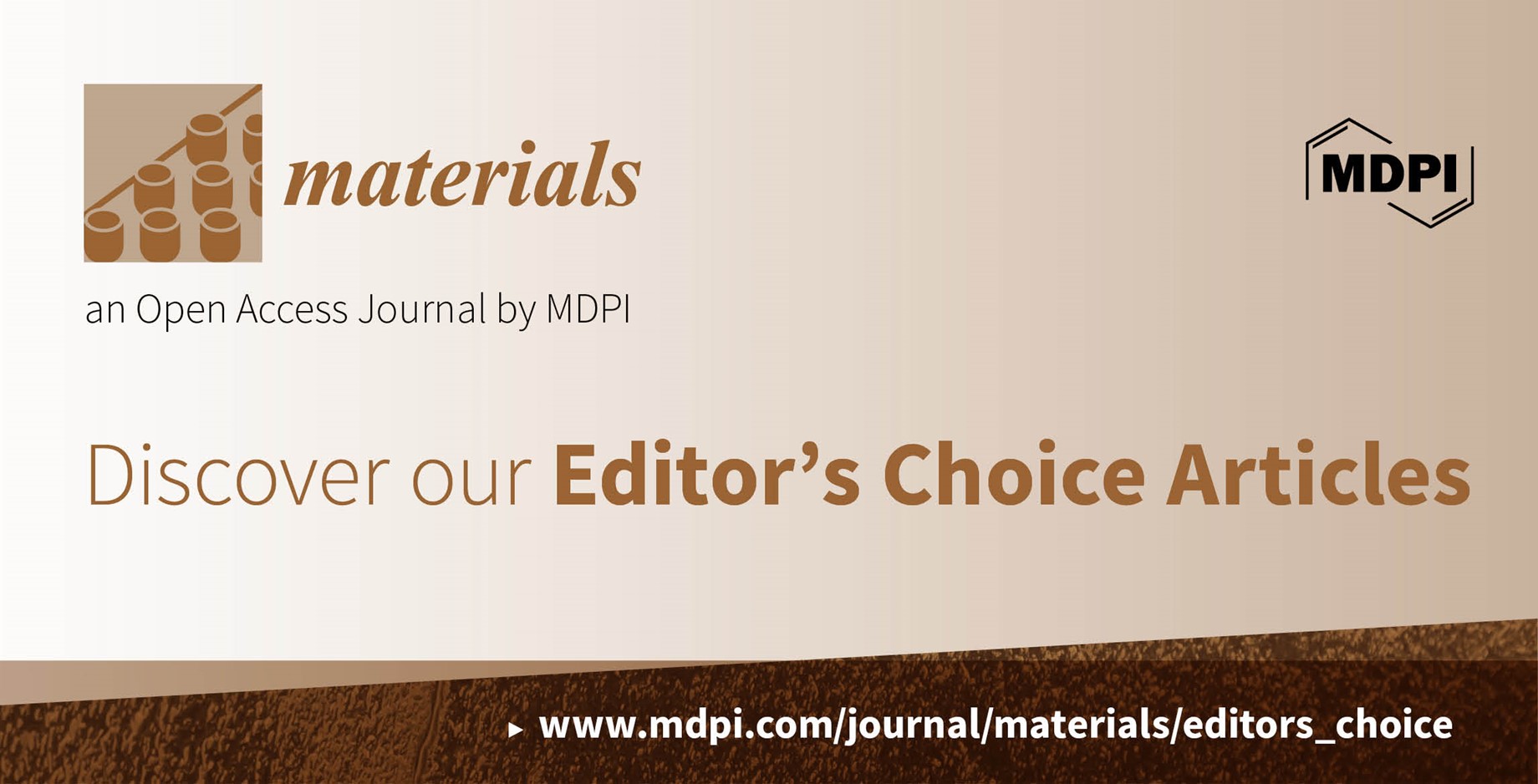
Materials (ISSN: 1996-1944) has launched the Section “Smart Materials”. This Section is a forum for the rapid publication of works pertaining to the preparation, characterization, and application of all smart materials. The scope of smart materials comprises, without being limited to, various applications in sensors and actuators, soft robotics, wearable electronics, flexible/stretchable electronics, energy generation and storage devices, displays, and shape memory polymers by utilizing the concept of smart materials.
We are pleased to present the 2022 Editor’s Choice Articles, which is a carefully curated list of high-quality articles from the Section “Smart Materials”.
“Facile Fabrication of ZnO-ZnFe2O4 Hollow Nanostructure by a One-Needle Syringe Electrospinning Method for a High-Selective H2S Gas Sensor”
by Kee-Ryung Park, Ryun Na Kim, Yoseb Song, Jinhyeong Kwon and Hyeunseok Choi
Materials 2022, 15(2) 399; https://doi.org/10.3390/ma15020399
Available online: https://www.mdpi.com/1996-1944/15/2/399
“Investigation into the Performance of NiTi Shape Memory Alloy Wire Reinforced Sn-Bi Self-Healing Metal Matrix Composite”
by Nathan Salowitz, Shobhit Misra, Istiaque Haider, Marco Povolo and Pradeep Rohatgi
Materials 2022, 15(9), 2970; https://doi.org/10.3390/ma15092970
Available online: https://www.mdpi.com/1996-1944/15/9/2970
“Hinged Adaptive Fiber-Rubber Composites Driven by Shape Memory Alloys—Development and Simulation”
by Felix Lohse, Achyuth Ram Annadata, Eric Häntzsche, Thomas Gereke, Wolfgang Trümper and Chokri Cherif
Materials 2022, 15(11), 3830; https://doi.org/10.3390/ma15113830
Available online: https://www.mdpi.com/1996-1944/15/11/3830
“Design and Control of Magnetic Shape Memory Alloy Actuators”
by Bartosz Minorowicz and Andrzej Milecki.
Materials 2022, 15(13), 4400; https://doi.org/10.3390/ma15134400
Available online: https://www.mdpi.com/1996-1944/15/13/4400
“Comparison between Piezoelectric and Piezoresistive Wearable Gait Monitoring Techniques”
by Zhiyuan Zhang, Zhenyu Xu, Wenbin Chen and Shuo Gao
Materials 2022, 15(14), 4837; https://doi.org/10.3390/ma15144837
Available online: https://www.mdpi.com/1996-1944/15/14/4837
“Designing for Shape Memory in Additive Manufacturing of Cu–Al–Ni Shape Memory Alloy Processed by Laser Powder Bed Fusion”
by Mikel Pérez-Cerrato, Itziar Fraile, José Fernando Gómez-Cortés, Ernesto Urionabarrenetxea, Isabel Ruiz-Larrea, Iban González, María Luisa Nó, Nerea Burgos and Jose M. San Juan
Materials 2022, 15(18), 6284; https://doi.org/10.3390/ma15186284
Available online: https://www.mdpi.com/1996-1944/15/18/6284
“Halochromic Inks Applied on Cardboard for Food Spoilage Monitorization”
by Liliana Leite, Inês Boticas, Navarro, Luís Nobre, João Bessa, Fernando Cunha, Pedro Neves and Raúl Fangueiro
Materials 2022, 15(18), 6431; https://doi.org/10.3390/ma15186431
Available online: https://www.mdpi.com/1996-1944/15/18/6431
“Smart Humidly Adaptive Yarns and Textiles from Twisted and Coiled Viscose Fiber Artificial Muscles”
by Mingrui Guo, Yangyang Peng, Zihan Chen, Nan Sheng and Fengxin Sun
Materials 2022, 15(23), 8312; https://doi.org/10.3390/ma15238312
Available online: https://www.mdpi.com/1996-1944/15/23/8312
We want to thank all the research groups that submitted manuscripts to Materials. Please circulate this document among your colleagues and networks. Furthermore, the following opportunities for collaboration may be of interest:
Submitting a manuscript:
This Section is currently open for submissions. Papers may be submitted via the following link: https://susy.mdpi.com/user/manuscripts/upload?journal=materials.
Launching a Special Issue:
You can propose hot topics and edit a Special Issue together with experts in the field.
Joining the Editorial Board:
If you are an active researcher in the field of Smart Materials and are interested in joining the Editorial Board, please do not hesitate to get in touch ([email protected]).
Materials Editorial Office
13 March 2023
MDPI’s Newly Launched Journals in December 2022
As a leading open access publisher, MDPI provides scholars with a high-quality and rich academic exchange platform by continuously expanding into new and exciting research areas.
In December 2022, MDPI launched five new journals, covering multiple subjects such as life sciences, biology, medicine and pharmacology, social sciences and humanities. These new journals are being edited by established scholars across the world.
|
Journal |
Founding Editor-in-Chief |
Journal Topics (Selected) |
|
Prof. Dr. Fabio Gresta, University of Messina, Italy| Editorial | view inaugural issue |
grass/forage/turf production; grassland management; pasture monitoring; grazing and livestock; grass agro-ecosystems| view journal scope | submit an article |
|
|
Prof. Dr. Christos G. Athanassiou, University of Thessaly, Greece| Editorial | view inaugural issue |
pesticides; fungicides; herbicides; fertilizers; soil conditioners| view journal scope | submit an article |
|
|
Prof. Dr. Stephen H. Safe, Texas A&M University, USA| Editorial | view inaugural issue |
receptor structure; receptor function; receptor signaling; receptor expression and regulation; receptor interactions with drugs| view journal scope | submit an article |
|
|
Dr. Jean Jacques Vanden Eynde, University of Mons-UMONS, Belgium| Editorial | view inaugural issue |
drug discovery; medicinal chemistry; preclinical and clinical research; marketed drugs; intellectual property and regulatory affairs| view journal scope | submit an article |
|
|
Prof. Dr. Heather Kanuka, University of Alberta, Canada| Editorial | view inaugural issue |
higher education; tertiary education; policy and practice in higher education; educational leadership in higher education; educational administration and management in higher education| view journal scope | submit an article |
If you are interested in creating more open access journals with us to publish cutting-edge research, please send your journal proposal application to [email protected].
7 March 2023
Displaying Co-Authors’ Email Addresses on the Webpage of Published Papers
MDPI is pleased to announce that we now display the co-authors’ email addresses in addition to the corresponding author’s email address on the webpage of published papers, protected by Captcha. For more information about this change, please visit the journal’s instructions for authors page.
We believe this change will facilitate academic discussions and advance our cause of open science and research. The corresponding authors are responsible for communicating with their co-authors and indicating in our system (https://susy.mdpi.com/) if co-authors would prefer for their email addresses not to be displayed.
16 February 2023
Increasing Visibility for Preprints.org – Clarivate adds the Preprint Citation Index to the Web of Science
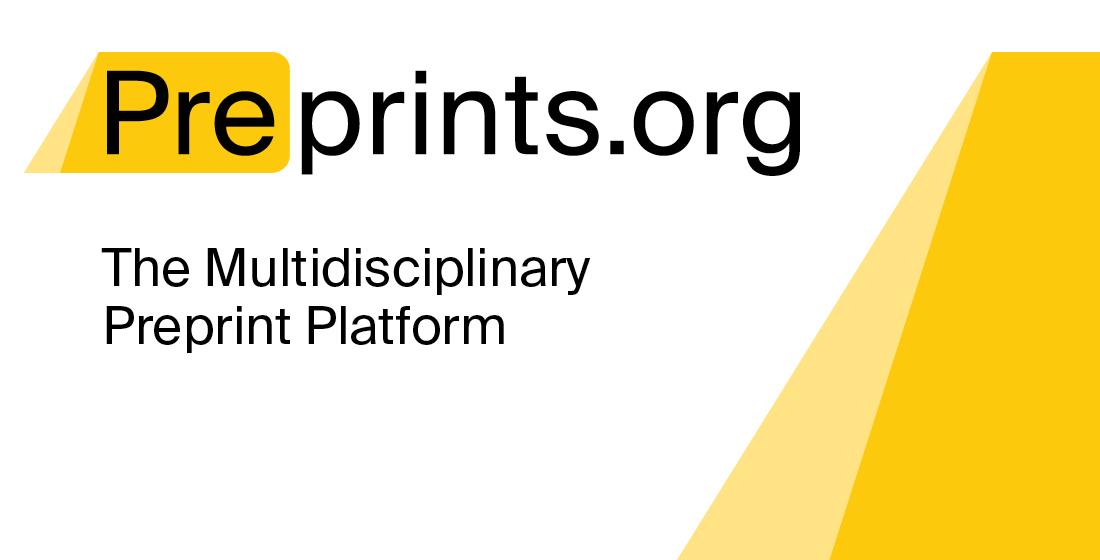
On 9 February 2023, Clarivate, a global leader in providing trusted insights and analytics, added the Preprint Citation Index to the Web of Science platform, streamlining the research process by allowing researchers to locate and link to preprints alongside other trusted content in the database.
The Preprint Citation Index will act as a bridge to connect cutting-edge preprints with peer-reviewed journal articles published within the Web of Science Core Collection. Alerts can be easily set to monitor new research across several repositories and authors will also be able to include preprints on their Web of Science Research Profile to more accurately display their various research outputs.
As of its launch, the Preprint Citation Index will provide nearly two million preprints from various repositories, including MDPI’s own Preprints.org.
MDPI's Preprints Platform – Preprints.org
To advance Open Science and the fast dissemination of research, MDPI offers researchers a free multidisciplinary preprint platform. Preprints.org accepts submissions from all research areas and offers authors high visibility, permanent archiving, article-level Metrics and immediately citable content by assigning a Digital Object Identifier (DOI) to all preprints.
During submission to any MDPI journal, authors have the option to share their research as a preprint. After an initial screening, the manuscript is available online in 48 hours or less. Once online, preprints can be downloaded, shared, commented on, and cited, providing authors maximum visibility.
We invite you to join the ranks of the over 100k researchers using Preprints.org and share your research.
For more information, please visit Preprints.org.
12 February 2023
Recruiting Topical Advisory Panel Members for Materials
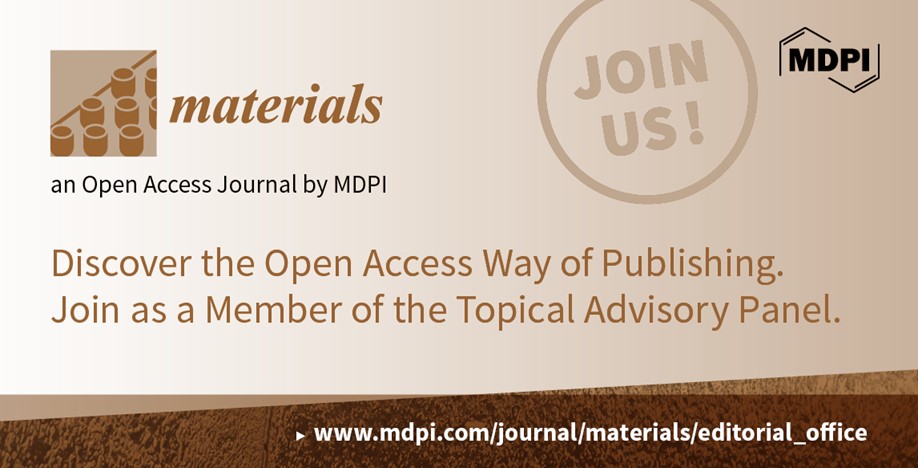
We are currently recruiting Topical Advisory Panel Members for Materials (ISSN: 1996-1944). Should you decide to serve on the Topical Advisory Panel, you would be responsible for some of the following tasks, depending on your availability:
- Providing regular reviews of manuscripts;
- Setting up at least one Special Issue (SI) in partnership with a senior researcher within two years of your appointment and proposing a detailed strategy plan for the SI. The topic of the proposal should be within the scope of Materials, but broad enough to attract a reasonable number of submissions, while also narrow enough to provide a cohesive collection of articles. The Special Issue should cover a small part of the scope of Materials;
- Providing a detailed strategy plan for the SI, including assisting in preparing Special Issue/Topic titles, aims and scopes, summaries, and keywords, soliciting papers and promoting the SI;
- Providing support for the Special Issues/Topics related to your expertise when the Guest Editors are not available. This includes SI promotion via social media and advice on some scientific cases;
- Promoting our journal at conferences (adding 1–2 slides into your presentation, distributing flyers, recommending the journal to your colleagues, etc.), on social media and other relevant platforms;
- Working with Editorial Board Members or the Editorial Office to promote high-quality/featured papers (for example, writing summaries or highlights for editor-selected papers).
To qualify as a Topical Advisory Panel Member, applicants must fulfill the following criteria:
- Have expertise and experience in the field related to Materials;
- Have completed their Ph.D. in the last 10 years (approximately);
- Have published at least 6 papers in the last 5 years as a first author or corresponding author;
- Currently hold an independent research position in academia or government institute.
Each year, the journal members’ performance is evaluated, and outstanding members are promoted to the Editorial Board by the Editor-in-Chief.
You can submit your application via the following link: https://www.mdpi.com/journal/materials/topical_advisory_panel_application. Alternatively, you may send an email to the Editorial Office ([email protected]) with your academic CV attached.
We look forward to hearing from you soon.
10 February 2023
15th Anniversary of Materials

The year 2023 marks the 15th anniversary of Materials (ISSN: 1996-1944), a peer-reviewed open access journal of materials science and engineering published semimonthly online by MDPI. To date, Materials has published more than 33,000 papers from more than 120,000 scholars. More than 45,000 reviewers and academic editors contribute to our peer review process. We sincerely appreciate the contributions and support of every author, reviewer, and academic editor. To celebrate the achievements and mark this significant milestone, we have arranged a series of special events. We hope you can join us in celebrating the 15th anniversary of our journal and enjoy the collection below.
Anniversary Video from the Editors of Materials
Development and Achievements
View the 15-year timeline infographic below. Trace the development of Materials from its origins and through key events.
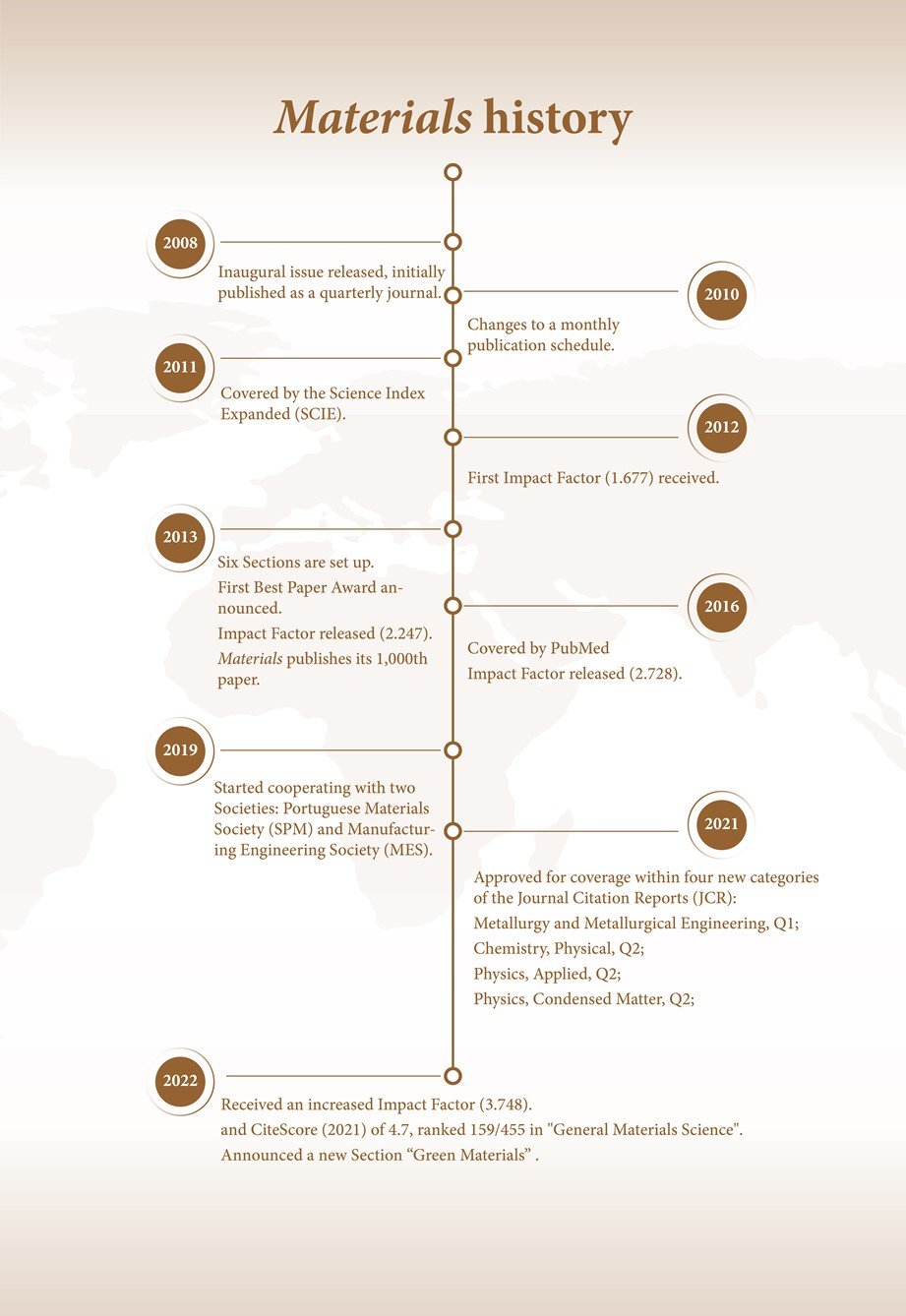
Anniversary Special Issues
To celebrate the 15th anniversary of our journal Materials, we launched a series of anniversary Special Issues. For more details, please click here.
Collection of Excellent Works
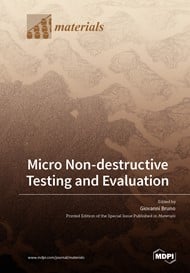 |
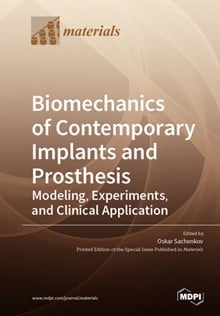 |
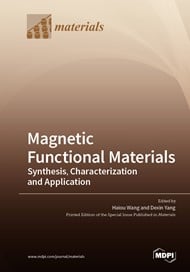 |
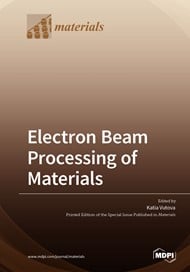 |
Please click the covers above for details. For more collections of excellent works, please click here.
Issue Covers
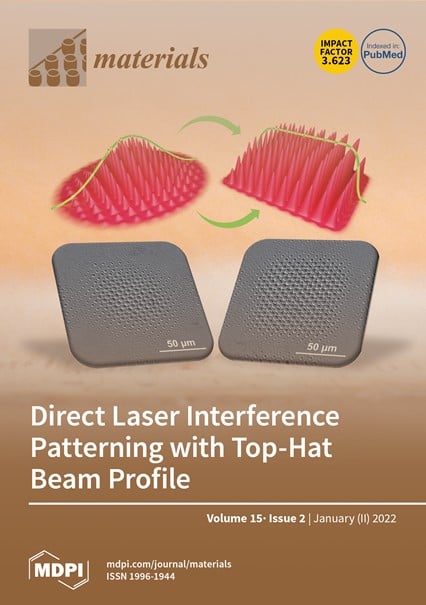 |
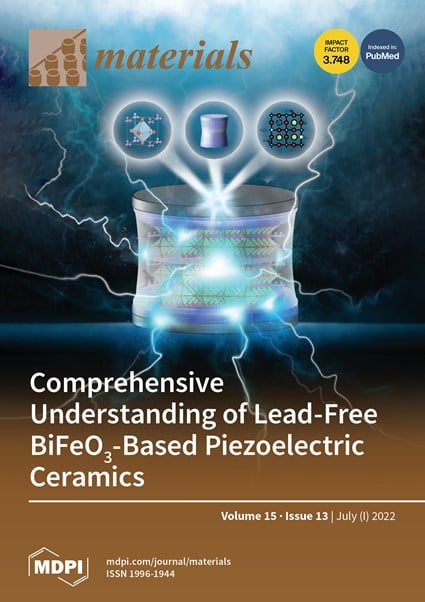 |
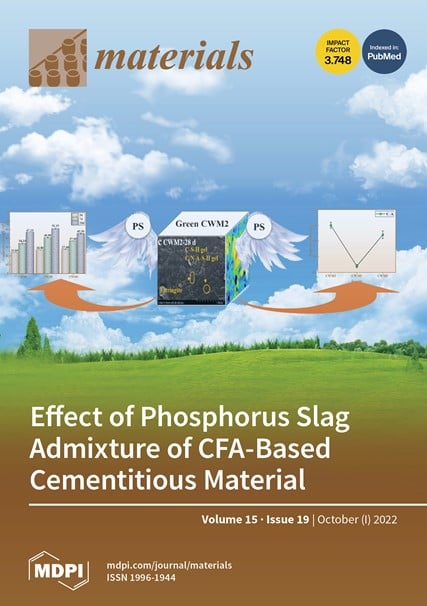 |
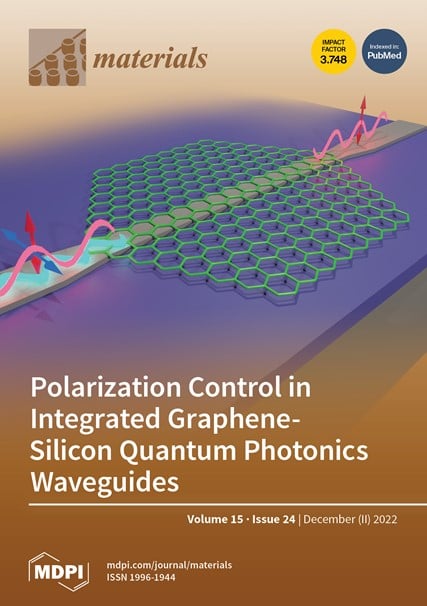 |
Please click the covers above for details. For more issue covers, please click here.
9 February 2023
Materials | Seeking Cooperation with Academic Conferences
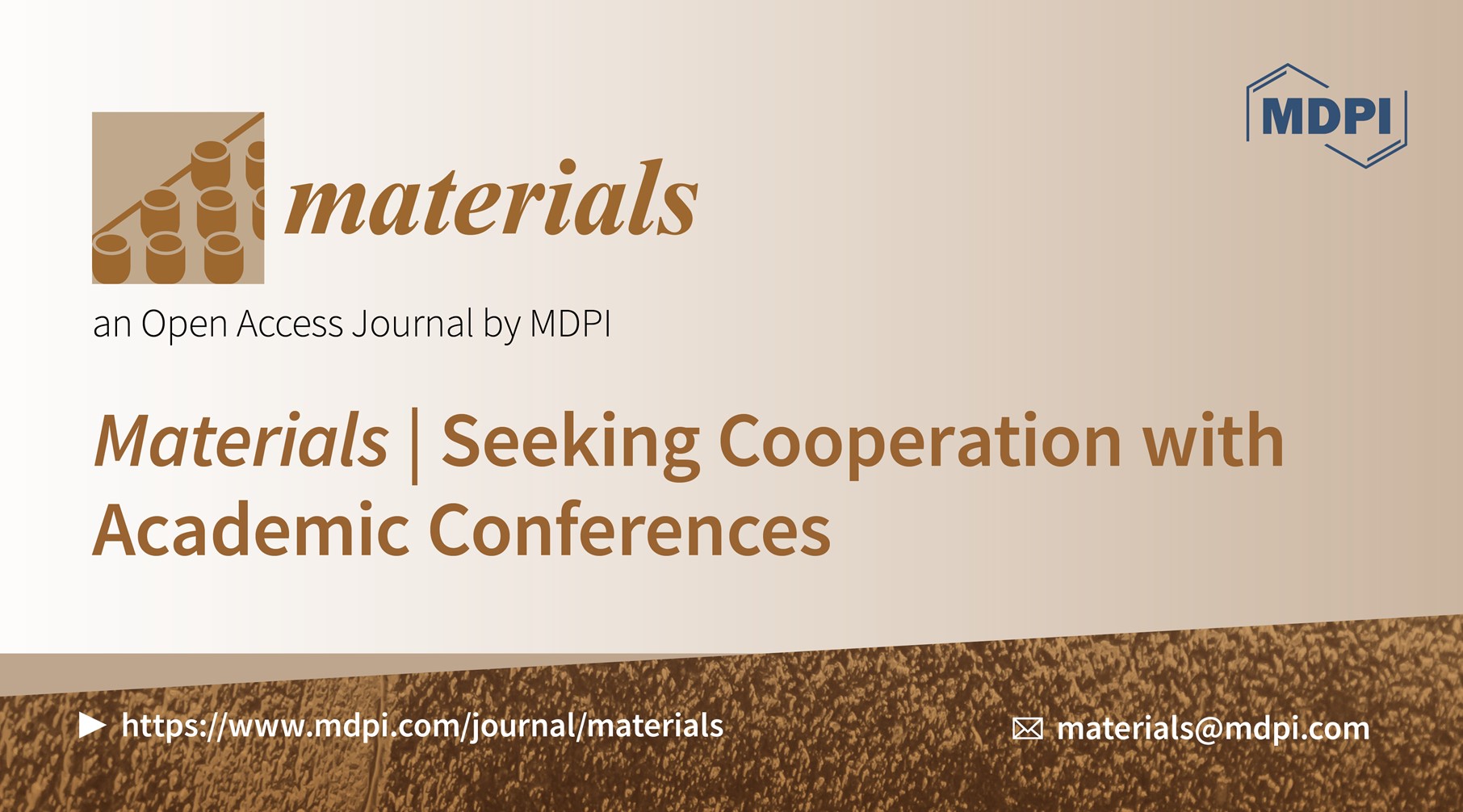
Materials (ISSN: 1996-1944) received its first Impact Factor of 3.748 in 2022 and is now published semi-monthly. Since it was first established, Materials has aimed to provide a professional publishing service to the scientific community and has strived towards the effective dissemination of high-quality scientific work.
Materials is a peer-reviewed, open access journal of materials science and engineering published semi-monthly online by MDPI. The Portuguese Materials Society (SPM), Spanish Materials Society (SOCIEMAT) and Manufacturing Engineering Society (MES) are affiliated with Materials and their members receive a discount on the article processing charges.
In order to support the scientific community and contribute to the faster distribution of important scientific research, Materials has cooperated with various academic conferences and is now seeking cooperation with additional academic conferences. The journal is open to a diverse range of collaborations, such as media partnerships, awards, exhibitions, and publications.
The scope of Materials includes, but is not limited to, the following:
- Publishing research related to all classes of materials, including ceramics, glasses, polymers (plastics), composites, semiconductors, magnetic materials, biological and biomimetics materials, silica, dots, and carbon materials, metals, and alloys from nanoscale to bulk alloys. All kinds of functional materials used for the development of medical implants in medicine and dentistry, coatings and films, pigments, ionic crystals, covalent crystals, metals, and intermetallics are also considered;
- Covering all aspects of materials science or materials engineering, including nanoscience and nanotechnology;
- Contributing to the advancement of material characterization techniques, such as electron microscopy, X-ray diffraction, calorimetry, nuclear microscopy and spectroscopy, laser technology, optical fibers, Rutherford backscattering, and neutron diffraction, among others;
- Inciting fundamental research in condensed matter physics and materials physics, continuum mechanics and statistics, mechanics of materials, tribology (friction, lubrication and wear), solid-state physics, etc.
We welcome consultations with any conferences related to materials. If you are interested in collaborating with Materials, please contact us at [email protected].
9 February 2023
Recruiting Editorial Board Members for Materials
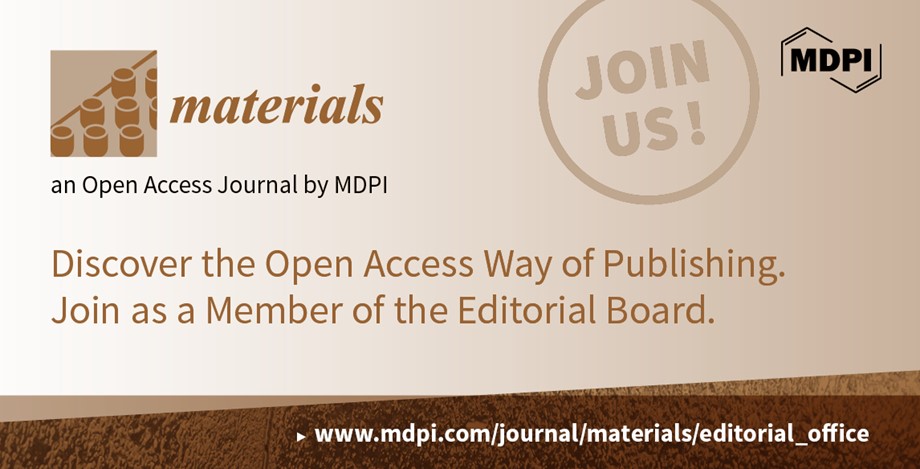
We are currently recruiting Editorial Board Members (EBMs) for Materials (ISSN: 1996-1944). If you are interested in serving on the Editorial Board, or have potential candidates to recommend, please do not hesitate to contact the Editorial Office ([email protected]).
The Editorial Board Members will be responsible for final decisions on manuscripts in their field of expertise, editing Special Issues, and they may be invited to review manuscripts.
The initial term is for 2 years, which entails the following responsibilities:
- Pre-screening and making decisions on new submissions related to your research interests;
- Setting up at least one Special Issue during your term on a topic related to your research interests (or supervising Special Issues related to your research field);
- Providing input or feedback regarding journal policies;
- Helping to promote the journal among your peers or at conferences;
- Attending board meetings to suggest journal development strategies;
- Reviewing manuscripts.
As an Editorial Board Member, you would have the following benefits:
- Publishing one paper free of charge in Materials per year, and also publishing extra papers with special discounts;
- Publishing one paper free of charge in your own Special Issue per year;
- A travel grant opportunity will be offered to Editorial Board Members that make significant contributions to the journal;
- Recommending/inviting your colleagues to submit full research articles or review papers with special discounts.
Materials is an open access journal that publishes spotlights, reviews, original research contributions, and short communications. The scientific community is encouraged to submit the details of both their experimental and theoretical results of any length to Materials. The aims and scope of the journal can be found on the following website: https://www.mdpi.com/journal/materials/about. Materials is abstracted and indexed within Scopus, SCIE (Web of Science), PubMed, PMC, Ei Compendex, CaPlus/SciFinder, Inspec, Astrophysics Data System, and other databases. The impact factor of the journal is 3.748.
We look forward to hearing from you.
9 February 2023
Meet Us at the Fourth International Conference on Energy Storage Materials, 13–16 April 2023, Shenzhen, China
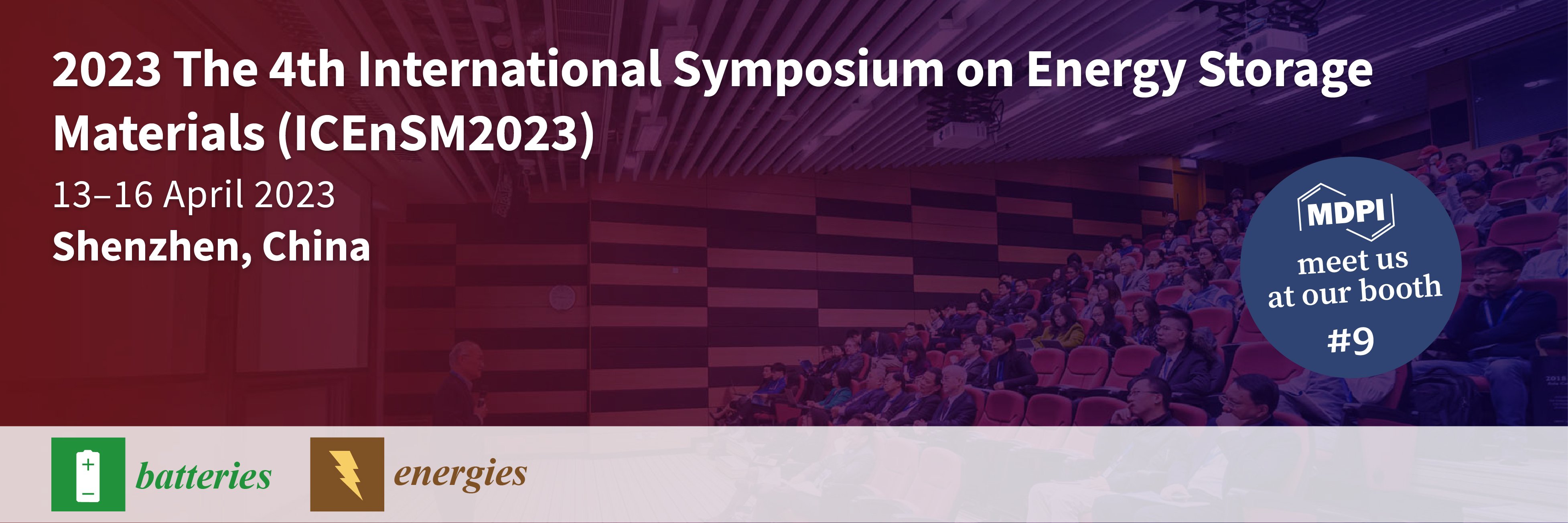
Conference: The Fourth International Conference on Energy Storage Materials
Date: 13–16 April 2023
MDPI will be attending the Fourth International Conference on Energy Storage Materials as the exhibitor. With the theme of advanced energy storage materials and energy storage devices, this seminar invites well-known scholars and industry professionals from around the world to discuss the latest research progress and industrial development status and trends in advanced energy storage materials and devices from academic and industrial perspectives in order to promote the application process of energy storage materials and energy storage devices. The conference is held annually.
The following MDPI journals will be represented:
- Batteries;
- Energies;
- Sustainability;
- Materials;
- Electronics;
- Nanomaterials;
- Inorganics;
- Crystals;
- AppliedChem;
- Membranes;
- Electrochem;
- Applied Sciences;
- Metals;
- Molecules.
If you are attending this conference, please feel free to start a conversation with us at our booth: #9. Our delegates look forward to meeting you in person and answering any questions that you may have. For more information about the conference, please visit http://www.icensm.ac.cn/eindex.html.
20 January 2023
Meet Us at the XII Reunión del Grupo de Física de la Materia Condensada de la RSEF (GEFES 2023), 1–3 February 2023, Salamanca, Spain
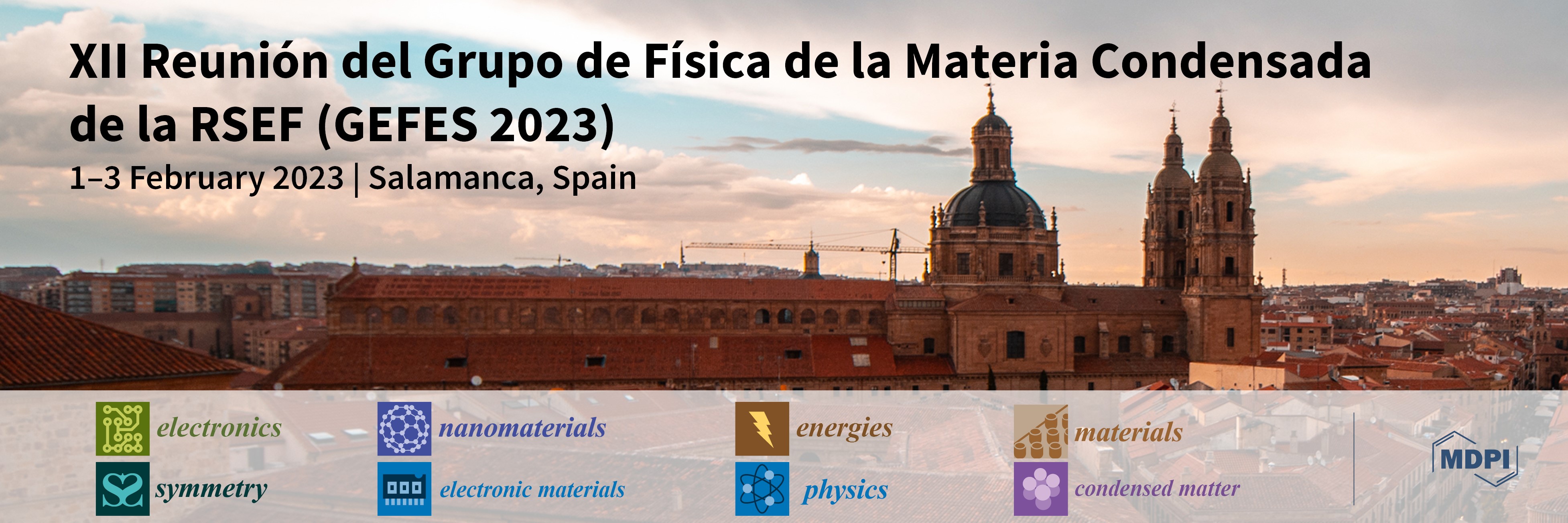
MDPI will be attending the XII Reunión del grupo de física de la materia condensada de la RSEF (GEFES 2023) in Salamanca, Spain, which will take place from 1 to 3 February 2023. The GEFES 2023 is the annual meeting of GEFES, the Condensed Matter Physics Division of the Spanish Royal Physics Society. The theme of GEFES 2023 is to review the condensed matter physics research achievements of the society in the past year and discuss the opportunities and challenges in the field.
The following MDPI journals will be represented:
- Electronics;
- Nanomaterials;
- Energies;
- Materials;
- Symmetry;
- Electronic Materials;
- Physics;
- Condensed Matter.
If you are attending this conference, please visit our booth. Our delegates look forward to meeting you in person and answering any questions that you may have. For more information about the conference, please visit the following link: https://gefes2023.es/.
19 January 2023
Prof. Dr. Javier Gil Appointed Section Editor-in-Chief of Section "Biomaterials" in Materials
We are pleased to announce that Prof. Dr. Javier Gil has been appointed Editor-in-Chief of the Section "Biomaterials" in Materials (ISSN: 1996-1944).
This Section of Materials covers the broad field of biomaterials, understood as materials for applications in contact with the human body in the biomedical field, including materials in medicine, medical devices, biosensors, implants, scaffolds for tissue engineering, drug delivery systems, and antibacterial and dental materials.
Prof. Dr. Javier Gil’s self-introduction:

Throughout my professional life, I have never stopped researching. My research has led to very significant contributions in the development of new biomaterials for hard tissues substitution, dental implants, superelastic and shape memory alloys applied in biomedical applications, bioactive and osseoinductive materials, bacteriostatic and bactericide surfaces, biofunctionalized strategies, and the study of the mechanisms that control the interactions between biomaterials and cells or tissues. This has been possible thanks to having a team with a marked interdisciplinary character.
I have participated in numerous projects funded by national and international entities with very active international involvement, especially through European projects such as Reborne (2010‒2015) and Innovabone (2011‒2015), both in the field of biomaterials for bone regeneration. I have authored 370 research publications indexed in the Web of Science (h-index 57) and more than 11.150 citations (Google Academic) and have contributed to more than 275 international congresses. I have edited 10 books and authored 47 book chapters. At several foreign universities, I have been a visiting lecturer, such as the University of Southampton (UK), University of Michigan (US), University of Minnesota (US), UTSA-Health Campus (University of Texas, San Antonio, US), Universidade do Coimbra and Porto (P), and Universidad Nacional Autonoma de México (UNAM), and I have delivered more than 70 invited lectures at international conferences. Mentoring young researchers has been a central part of my activities, with the supervision of 36 Ph.D. theses (36 presented and 6 more ongoing) and 12 Postdoctoral fellows, as well as 62 master theses and final engineering projects. I have been actively involved in translating research into clinical practice and the industrial sector, being the author of 6 patents licensed to companies and in operation. The Klockner ContacTi dental implant, which is used internationally and one of the best-selling dental implants in Spain, is the result of a patent. In 2013, I participated as a founding partner in the creation of the Spin-Off Company Mimetis Biomaterials, (https://www.mimetis.com/en/). In 2021, the company employed 15 employees.
I was President of the Iberian Society of Biomechanics and Biomaterials and, in 2014, I organized, as vice-president, the International Congress of Ceramics in Medicine, Bioceramics 26, in Barcelona and the 17th European Conference on Biomaterials. Additionally, I participated in the European Society for Biomaterials in Barcelona 2002 as the vice-president.
In 2020, I received the Prize for the Best Scientific Career in the Field of Materials Science and Technology (Materials Science Society). Since 2018, I have been the International Research Advisor to the MDRCBB-Minnesota Dental Research Center for Biomaterials and Biomechanics of the University of Minnesota School of Dentistry. I received the Award of Honour Sociedad Española de Implantes in 2021. I am a numerary member of the Royal European Academy of Doctors and Royal Academy of Dentistry, which I became in 2013, and became, on 14 March 2018, Doctor Honoris Causa for the Universidad de La Habana (Cuba), which was actually proposed by the Universidad de Sevilla.
The following is a short Q&A with Prof. Dr. Javier Gil, who shared his vision for the Section with us as well as his views on the research area and Open Access publishing:
1. What appealed to you about the journal that made you want to become its Section Editor-in-Chief?
Over the last few years, I have been able to publish several contributions of my research in biomaterials in Materials and I have been an editor of several Special Issues. The scientific rigor, the good work of the reviewers, and the agility of the journal have been reasons for Materials to be a publication channel for our research group. I am proud and very excited to contribute to the growth of the journal.
2. What is your vision for the Section?
The number of research projects in biomaterials is steadily increasing and publication in this field is growing exponentially. Materials for health are key for people who are living longer and longer. Biomaterials aim to improve the quality of life and health of all human beings. In my opinion, this Section is one of the most important in Materials.
3. What does the future of this field of research look like?
New biomaterials, biofunctionalization of implantable materials with specific missions, new methods of shaping biomaterials such as 3D printing and laser, advances in materials for regenerative medicine, bioactive materials, and bio-instructive materials are aspects of the future. It should be noted that biomaterials are an interdisciplinary area of science where biologists, engineers, chemists, microbiologists, etc., all collaborate with a common goal. This collaboration is occurring and the number of areas of knowledge involved in the advancement of materials for health is growing every day.
4. What do you think of the development of Open Access in the publishing field?
In my opinion, Open Access is the present and the future of scientific publishing. The advancement of science is progressive and based on knowledge generated worldwide. The openness of science and the ease of reading internationally is critical for progress in any discipline.
5. What aspects do you focus on when reviewing a manuscript?
Firstly, scientific rigor, the reproducibility of the tests, and the use of appropriate methodologies to obtain the results of the work. Also, the importance of the topic, the originality of the study and the appropriate references so that readers can broaden their knowledge.
6. Do you have any suggestions for young researchers in this field?
My advice to young people is always to be passionate about their research, to work hard, to be patient in achieving results, and to collaborate with other research groups loyally. The fruits will come, and they will have prestigious publications that will advance the frontier of knowledge. The “Biomaterials” Section of Materials will be there to publish their excellent work. We want to continue to be a prestigious instrument for the expansion of science.
We wish Prof. Dr. Javier Gil every success in his new position, and we look forward to his contributions to the journal.
18 January 2023
Materials | Editor’s Choice Articles in 2022 in the Section “Optics and Photonics”

Materials (ISSN: 1996-1944) has launched the Section “Optics and Photonics”. Optics and photonics are all methodologies and technologies that use photons over the entire spectrum from X-ray to ultraviolet, visible, and infrared, to the terahertz range, and their interaction with a variety of materials. This is an evolving interdisciplinary field of research covering all the optical technologies used in life sciences and medicine. Special, new, and biocompatible materials for implants, tissue phantoms, cell printing, cell labeling, light delivery, etc., require research from scientists from various professions, such as physicists, chemists, engineers, biologists, and doctors.
We are pleased to present the 2022 Editor’s Choice Articles, a carefully curated list of high-quality articles from the Section “Optics and Photonics” listed below:
- “Bright UV-C Phosphors with Excellent Thermal Stability—Y1−xScxPO4 Solid Solutions”
by Dmitry Spassky, Andrey Vasil’ev, Vitali Nagirnyi, Irina Kudryavtseva, Dina Deyneko, Ivan Nikiforov, Ildar Kondratyev and Boris Zadneprovski
Materials 2022, 15(19), 6844; https://doi.org/10.3390/ma15196844
Available online: https://www.mdpi.com/1996-1944/15/19/6844
- “Experimental and Computational Studies on Bio-Inspired Flavylium Salts as Sensitizers for Dye-Sensitized Solar Cells”
by Iulia Păușescu, Anamaria Todea, Diana-Maria Dreavă, Tania Boboescu, Bianca Pațcan, Larisa Pațcan, Daiana Albulescu, Valentin Badea, Francisc Peter, Róbert Tőtős et al.
Materials 2022, 15(19), 6985; https://doi.org/10.3390/ma15196985
Available online: https://www.mdpi.com/1996-1944/15/19/6985
- “Sol-Gel Derived Silica-Titania Waveguide Films for Applications in Evanescent Wave Sensors—Comprehensive Study”
by Paweł Karasiński, Magdalena Zięba, Ewa Gondek, Jacek Nizioł, Sandeep Gorantla, Krzysztof Rola, Alicja Bachmatiuk and Cuma Tyszkiewicz
Materials 2022, 15(21), 7641; https://doi.org/10.3390/ma15217641
Available online: https://www.mdpi.com/1996-1944/15/21/7641
- “Tb3+ Ion Optical and Magneto-Optical Properties in the Cubic Crystals KTb3F10”
by Uygun V. Valiev, Denis N. Karimov, Chong-Geng Ma, Odiljon Z. Sultonov and Vasiliy O. Pelenovich
Materials 2022, 15(22), 7999; https://doi.org/10.3390/ma15227999
Available online: https://www.mdpi.com/1996-1944/15/22/7999
- “Analysis of Acousto-Optic Figure of Merit in KGW and KYW Crystals”
by Konstantin B. Yushkov, Natalya F. Naumenko and Vladimir Ya. Molchanov
Materials 2022, 15(22), 8183; https://doi.org/10.3390/ma15228183
Available online: https://www.mdpi.com/1996-1944/15/22/8183
- “Effect of an Anaerobic Fermentation Process on 3D-Printed PLA Materials of a Biogas-Generating Reactor”
by Adrian Cioabla, Virgil-Florin Duma, Corina Mnerie, Ralph-Alexandru Erdelyi, George Mihai Dobre, Adrian Bradu and Adrian Podoleanu
Materials 2022, 15(23), 8571; https://doi.org/10.3390/ma15238571
Available online: https://www.mdpi.com/1996-1944/15/23/8571
- “Bidirectional Terahertz Vortex Beam Regulator”
by Jiusheng Li, Fenglei Guo, Shuping Zhang and Chao Liu
Materials 2022, 15(23), 8639; https://doi.org/10.3390/ma15238639
Available online: https://www.mdpi.com/1996-1944/15/23/8639
- “Acousto–Optic Modulation and Deflection of Terahertz Radiation”
by Pavel Alekseevich Nikitin, Vasily Valerievich Gerasimov and Ildus Shevketovich Khasanov
Materials 2022, 15(24), 8836; https://doi.org/10.3390/ma15248836
Available online: www.mdpi.com/1996-1944/15/24/8836
- “Remarkable Reduction in IG with an Explicit Investigation of the Leakage Conduction Mechanisms in a Dual Surface-Modified Al2O3/SiO2 Stack Layer AlGaN/GaN MOS-HEMT”
by Soumen Mazumder, Parthasarathi Pal, Kuan-Wei Lee and Yeong-Her Wang
Materials 2022, 15(24), 9067; https://doi.org/10.3390/ma15249067
Available online: https://www.mdpi.com/1996-1944/15/24/9067
- “Deformable Photonic Crystals Based on Chiral Liquid Crystals with Thermal-Mediative Shape Memory Effect”
by Min-Seok Park, Kitae Kim, Young-Joo Lee, Jun-Hee Na and Se-Um Kim
Materials 2023, 16(1), 35; https://doi.org/10.3390/ma16010035
Available online: https://www.mdpi.com/1996-1944/16/1/35
- “Nd3+, Yb3+:YF3 Optical Temperature Nanosensors Operating in the Biological Windows”
by Maksim Pudovkin, Ekaterina Oleynikova, Airat Kiiamov, Mikhail Cherosov and Marat Gafurov
Materials 2023, 16(1), 39; https://doi.org/10.3390/ma16010039
Available online: https://www.mdpi.com/1996-1944/16/1/39
- “Synthesis, Structural and Magnetic Properties of Cobalt-Doped GaN Nanowires on Si by Atmospheric Pressure Chemical Vapor Deposition”
by Zhe Chuan Feng, Yu-Lun Liu, Jeffrey Yiin, Li-Chyong Chen, Kuei-Hsien Chen, Benjamin Klein and Ian T. Ferguson
Materials 2023, 16(1), 97; https://doi.org/10.3390/ma16010097
Available online: https://www.mdpi.com/1996-1944/16/1/97
- “UV-A,B,C Emitting Persistent Luminescent Materials”
by Suchinder K. Sharma, Jinu James, Shailendra Kumar Gupta and Shamima Hussain
Materials 2023, 16(1), 236; https://doi.org/10.3390/ma16010236
Available online: https://www.mdpi.com/1996-1944/16/1/236
- “A Gaussian to Vector Vortex Beam Generator with a Programmable State of Polarization”
by Jacek Piłka, Michał Kwaśny, Adam Filipkowski, Ryszard Buczyński, Mirosław A. Karpierz and Urszula A. Laudyn
Materials 2022, 15(21), 7794; https://doi.org/10.3390/ma15217794
Available online: https://www.mdpi.com/1996-1944/15/21/7794
- “Time-Resolved Four-Channel Jones Matrix Measurement of Birefringent Materials Using an Ultrafast Laser”
by Zhenjia Cheng, Yuqin Zhang, Xuan Liu, Chengshan Guo, Changwei He, Guiyuan Liu and Hongsheng Song
Materials 2022, 15(21), 7813; https://doi.org/10.3390/ma15217813
Available online: https://www.mdpi.com/1996-1944/15/21/7813
- “Basic Characteristics of Dose Distributions of Photons Beam for Radiotherapeutic Applications Using YAG: Ce Crystal Detectors”
by Janusz Winiecki, Sandra Witkiewicz-Lukaszek, Paulina Michalska, Seweryn Jakubowski, Sergiy Nizhankovskiy and Yuriy Zorenko
Materials 2022, 15(21), 7861; https://doi.org/10.3390/ma15217861
Available online: https://www.mdpi.com/1996-1944/15/21/7861
- “Polarization of Acoustic Waves in Two-Dimensional Phononic Crystals Based on Fused Silica”
by Mikhail V. Marunin and Nataliya V. Polikarpova
Materials 2022, 15(23), 8315; https://doi.org/10.3390/ma15238315
Available online: https://www.mdpi.com/1996-1944/15/23/8315
- “Deep Tissue Characterization with Optical Coherence Elastography: A Comparison of Different Methods”
by Asha Parmar, Gargi Sharma, Andreas Ramming and Kanwarpal Singh
Materials 2022, 15(23), 8558; https://doi.org/10.3390/ma15238558
Available online: https://www.mdpi.com/1996-1944/15/23/8558
We would like to take this opportunity to thank all of the research groups that submitted to Materials (ISSN: 1996-1944). We would appreciate it if you could circulate this document among your colleagues and network. Furthermore, the following opportunities for collaboration may be of interest:
Submitting a manuscript:
This Section is currently open for submissions. Papers may be submitted via the following link: https://susy.mdpi.com/user/manuscripts/upload?journal=materials.
Launching a Special Issue:
You have the opportunity to propose hot topics and edit a Special Issue together with experts in the field.
Joining the Editorial Board:
If you are an active researcher in the field of optics and photonics and are interested in joining the Editorial Board, please do not hesitate to get in touch ([email protected]).
Materials Editorial Office
29 December 2022
Dr. Ingo Dierking Appointed Section Editor-in-Chief of Section "Soft Matter" in Materials
We are pleased to announce that Dr. Ingo Dierking has been appointed Editor-in-Chief of the Section "Soft Matter" in Materials (ISSN: 1996-1944).
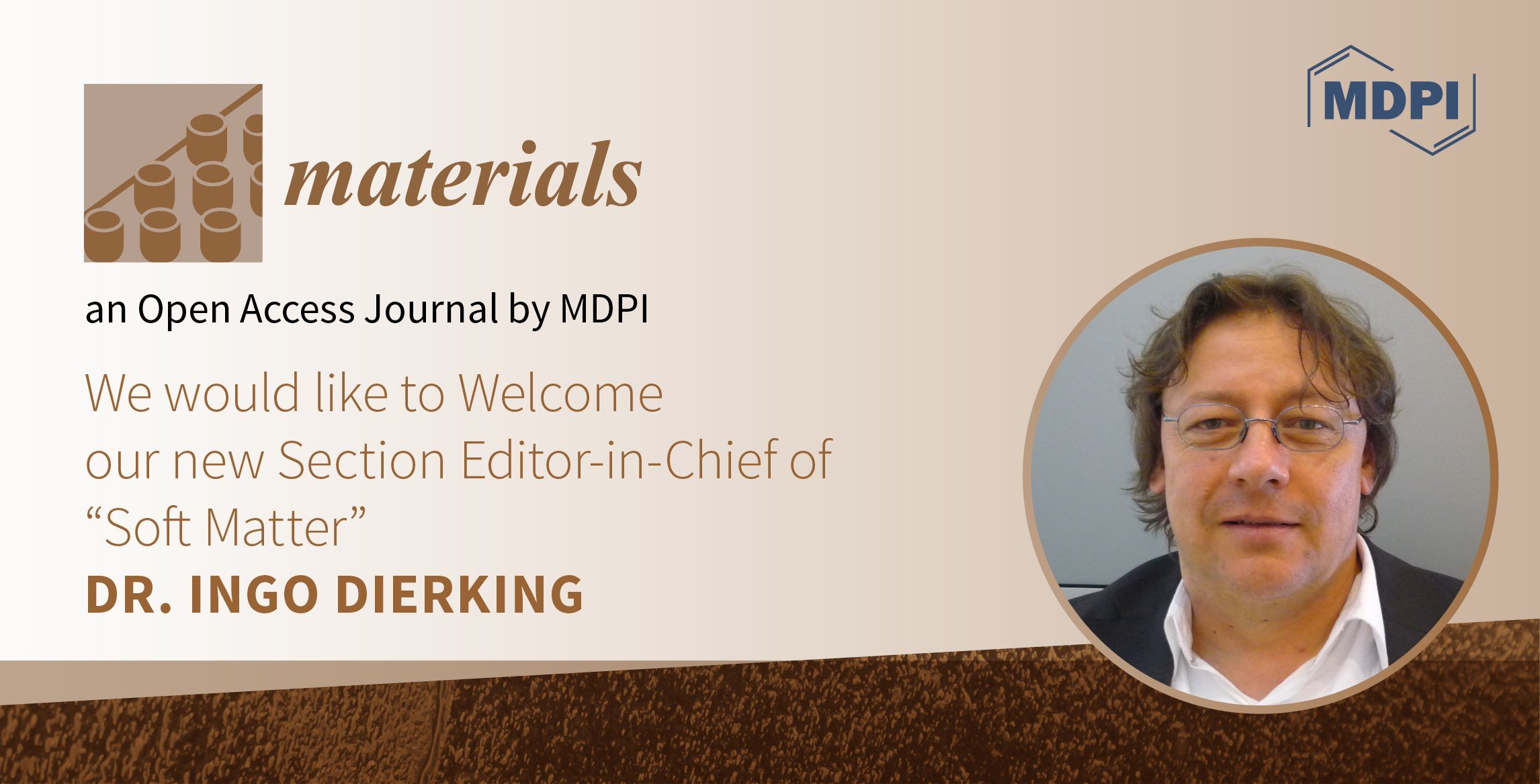
Dr. Ingo Dierking received his Ph.D. in 1995 from the University of Clausthal in Germany. After employment at the IBM TJ Watson Research Center in the US, working on electronic paper, he joined Chalmers University in Gothenburg, Sweden, as a Humboldt fellow. There, he was appointed docent, before joining the University of Darmstadt in Germany as a lecturer for several years and eventually moving to the University of Manchester in 2002, where he is a Senior Lecturer/Associate Professor at the Department of Physics & Astronomy. Dr. Ingo Dierking has published more than 150 scientific papers, as well as several books on the topic of liquid crystal research. He is the 2009 awardee of the Hilsum medal of the British Liquid Crystal Society (BLCS), the 2016 winner of the Samsung Mid-Career Award for Research Excellence of the International Liquid Crystal Society (ILCS) and the 2021 awardee of the Gray medal. Ingo Dierking is the editor of Liquid Crystals Today, the current President of the ILCS and a former Chair of the BLCS. His current research interests are broadly focused on soft-matter systems, with an emphasis on liquid crystals, and LC-based composites with polymers and nanoparticles.
The following is a Q&A with Dr. Ingo Dierking, who shared his vision for the Section, in addition to his views on the research area and Open Access publishing:
1. What appealed to you about the journal that made you want to take the role as its Section Editor-in-Chief?
The journal has a relatively wide scope and is appealing to a broad audience. It offers the possibility to obtain an overview of research topics one would not necessarily look for, for example, a soft matter physicist is exposed to nanomaterial research in the same issue of the journal and might run across an interesting title when looking through the table of contents. Similarly, as a Section editor with a background in liquid crystals, one is exposed to publications from the fields of polymers, colloids, or biological materials, which might enhance one’s own research.
2. What does the future of this field of research look like?
This is of course a question which is very different for each individual, so I would like to talk about this with my specific view and expertise on liquid crystals. The current research in liquid crystals as being applied in screens is slowly decreasing because there has already been so much research in this area that significant improvements from the side of materials are not needed anymore commercially. The future could lie in 3D screens or holography for screen-related technologies, and also in augmented reality applications. The applications in other areas are now being explored, such as drug delivery, biosensors, gas sensors and adaptive (micro)optics. From a fundamental point of view, different areas of soft matter could increasingly overlap, leading to a broader understanding of the field and the potential for further and largely different applications, especially through the exploitation of self-assembly and self-organization.
3. You have run several successful Special Issues, what did you find important to their success?
The activity and engagement of the Guest Editor are essential. I tend to send personalized emails to the authors I want to invite and to see participate in a special issue. Mass emailing does not attract me personally to submit, so that is what I try to avoid. On the other hand, receiving personalized emails from the GE makes me more likely to consider contributing, so this is what I do when I am a GE. Furthermore, a good and interesting choice of topic, which sets itself apart from those of other issues and journals, might also help.
4. What factors are important to you when selecting a journal to submit to?
In my opinion, the impact factor has become an overrated metric to judge the quality of research. Of course, as a researcher, one should have an interest in publishing quality research. For this, it is essential that a journal has a good review process in place. And of course, the impact factor in many cases allows us to distinguish quality research, but this has to be taken with a pinch of salt, as impact, for example, also depends on the size of the research field, etc. Personally, I believe that the primary question for an author should be: Who is my target audience for a particular research paper? Is it the science community, the soft matter community or the liquid crystal community? Who would I really want to read this paper? – of course, also with an eye on the impact.
5. What do you think of the development of Open Access in the publishing field?
There are certain risks with the concept of Open Access publishing, like predatory journals publishing every submission simply for the sake of maximizing profits. As such, a robust review process might be easier to implement for other publishers, although, of course, most of these, in the end, also publish for profit. The positive side is, of course, that OA publishing reaches a potentially much larger audience, also colleagues who might otherwise not have access to the literature. And of course, there are the funding agencies who often demand Open Access publishing. I believe that OA is a good concept for research publishing, as long as thorough peer review is ensured, costs are controllable, and it is ensured that excellent research is published independent of the financial situation of the authors. Lack of funds should not be a reason for the rejection of good research.
We wish Dr. Ingo Dierking every success in his new position, and we look forward to his contributions to the journal.
22 December 2022
Special Issue Mentor Program
We are pleased to announce the launch of a new initiative—the MDPI Special Issue Mentor Program.
This program will enable early career researchers (who must hold a Ph.D. in a related field) to experience editing a Special Issue in MDPI journals, under the mentorship of our experienced Editorial Board Members or other experienced scientists. The mentor program will provide an excellent opportunity for early career scientists to gain editorial experience, and to cultivate their ability to edit scientific research.
The mentee’s responsibilities include:
- Proposing a Special Issue title and assisting the mentor in preparing a summary (around 200–400 words) and 3–10 keywords describing the background, importance, and goal of the Issue;
- Writing a brief promotion plan for the Special Issue;
- Preparing a list of scholars who may be interested in the Issue and personally e-mailing invitations on behalf of Guest Editors;
- Writing an editorial for the online Special Issue together with the mentor.
The mentor’s responsibilities include:
- Conducting a final check before the Special Issue is published online;
- Performing editorial control of the Special Issue and quality control of the publications, both of which must be carried out in a timely manner;
- Providing suggestions to younger scholars if they have any doubts or concerns regarding submissions;
- Organizing video calls with young scholars and the Editorial Office regularly to discuss problems and improvement suggestions for the Special Issue;
- Making and submitting decisions regarding submissions with the assistance of mentees.
Certificates and awards:
After the Special Issue closes, the Editorial Office will provide official certificates for all the mentors and early career researchers.
If you are interested in this opportunity, please send your Special Issue proposal to the Editorial Office of a journal you choose, and we will discuss the process (i.e., mentor collaboration, Special Issue topic feasibility analysis, etc.) in further detail. The full list of MDPI journals is as follows: https://www.mdpi.com/about/journals.
In addition to the new Special Issue Mentor Program, we will continue to welcome all Special Issue proposals focusing on hot research topics.
22 December 2022
Materials | Best Oral Presentation and Best Poster Award for the 4th International Conference on Materials: Advanced and Emerging Materials (ICM 2022)—Winners Announced
Materials (ISSN: 1996-1944) has organized and sponsored the Best Oral Presentation and Best Poster Award for the 4th International Conference on Materials: Advanced and Emerging Materials (ICM 2022). The applications were processed by the Conference Committee. We are pleased to announce the Best Oral Presentation Award winner, Ms. Katherine Pérez, and Best Poster Award winner, Ms. Noor Abu Jarad.
|
|
Best Oral Presentation Award winner: Ms. Katherine Pérez |
|
|
Best Poster Award winner: Ms. Noor Abu Jarad |
ICM 2022 was chaired by the Materials Editor-in-Chief Prof. Dr. Maryam Tabrizian (McGill University, Montreal, Canada) and Associate Editor-in-Chief Prof. Dr. Filippo Berto (Department of Industrial and Mechanical Engineering, Norwegian University of Science and Technology, Trondheim, Norway). The conference topics included: Materials Characterization, Nanotechnology in Material Sciences and Engineering, Materials Processing and Manufacturing, Soft and Bio-materials, Fibers and Membranes, and Optical, Electrical and Magnetic Materials. More details about the conference can be found on the following website: https://icm2022.sciforum.net/.
The following is an interview with Ms. Katherine Pérez:
We would like to congratulate Ms. Katherine Pérez and Ms. Noor Abu Jarad again for their accomplishments! If you are also interested in Materials’ awards, please refer to https://www.mdpi.com/journal/materials/awards to apply or nominate someone else for an award.
14 December 2022
"Thanks a Million!" – One Million Articles Published in MDPI Journals
MDPI has just become the first open access (OA) publisher to reach the milestone of one million articles published. That is one million articles freely available to all, to circulate and build upon! We are proud to share this special moment with the global scientific community.
This landmark has been reached thanks to the immeasurable support of more than 600,000 expert reviewers, 66,000 editorial board members and 6700 hard-working colleagues across MDPI’s global offices.
Within more than 25 years of publishing, our journals received 2.1 million manuscripts and generated 4.6 million peer review reports to get to one million papers published.
Reaching the milestone of one million articles published reinforces our mission to remove any existing barriers and to make scientific research accessible to all. Since its inception, MDPI’s goal has been to create reliable processes to make science open. This is a path towards facilitating the dissemination of novel insights in scientific communities.
Regular feedback from authors and reviewers shows that our service is greatly appreciated and needed. At the same time, the feedback helps us identify areas for further improvement.
As it stands, a significant share of published research findings remain closed access. More than half of the content published with the most well-known legacy publishers stays behind a paywall, and that is not including articles published in hybrid OA journals, or made available months or years after publication.
A new policy announced by the US administration in August 2022 requires that, as of January 2026, all US federally funded research be made freely and immediately available after publication. While the new policy does not mandate articles be published under an open access license, it is aligned with the open access movement in removing all barriers to research. Similarly, some of the most advanced research institutions in the world intend to have all funded research articles published in open access by 2025.
MDPI is proud to be the leading agent of the transition to open access.
"Thanks a Million" to all the contributors!
13 December 2022
Materials | Recruiting Section Editor-in-Chief for the Section “Green Materials”
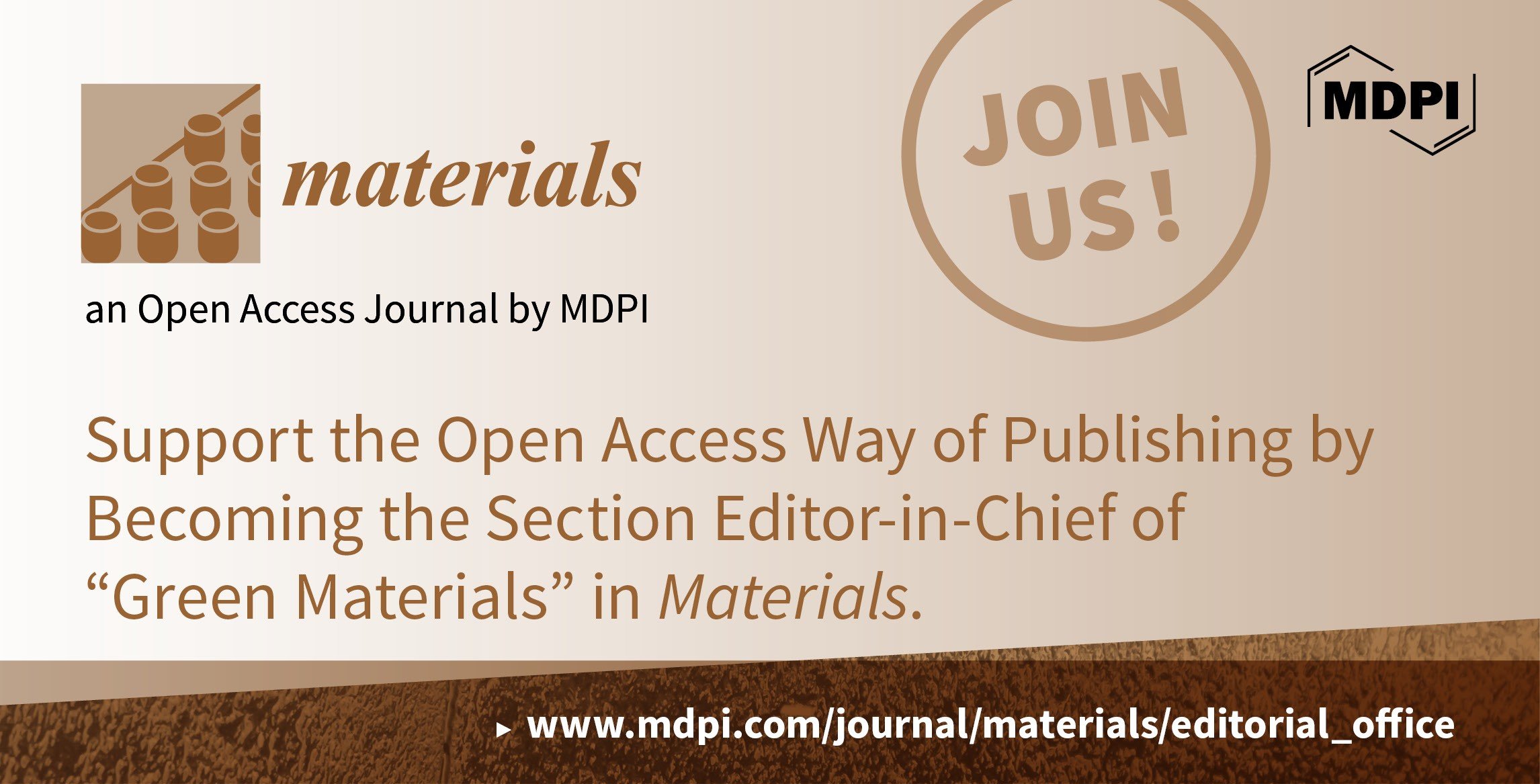
We are now recruiting the Editor-in-Chief for the Section “Green Materials” of Materials (ISSN: 1996-1944), which was launched this year. If you are an active researcher in one of the green materials fields and are passionate about publishing cutting-edge research, please do not hesitate to contact us at: [email protected].
Section Information
Research in green materials covers, among other polymers, composites, polymeric materials, and non-conventional materials which can reduce the use of hazardous substances in the preparation, manufacturing process, and applications of green products. To enhance the impact of green materials in the context of material science, the Section includes but is not limited to contributions on:
- Renewable materials;
- Sustainable biomaterials;
- Advanced polymer nanocomposites;
- Inorganic functional nanomaterials;
- Environmentally friendly polymeric materials;
- Novel flame-retardant polymers;
- Green chemical materials.
You can find more information about the Section on our homepage: https://www.mdpi.com/journal/materials/sections/green_materials.
The Section Editor-in-Chief has the following responsibilities:
- Promoting Materials and the Section “Green Materials” and increasing their visibility at related academic conferences;
- Making scientific decisions about the journal’s scope;
- Inviting distinguished scientists to join the Editorial Board;
- Suggesting topics for Special Issues and assisting the Guest Editors in the setup of Special Issues;
- Providing support and guidance to Editorial Board Members and editorial staff where required;
- Overviewing the editorial process for individual manuscripts (mainly by making the final decision on whether a paper can be published after peer review and revisions);
- Understanding, leading, and upholding MDPI’s peer review guidelines and ethics guidelines.
We believe that by combining our rigorous editorial policies with your expertise, we can build a high-quality journal. We thank you in advance for your interest and look forward to collaborating with you.
Materials Editorial Office
9 December 2022
Welcoming New Editorial Board Members of Materials
We are pleased to announce that 15 new scholars were appointed Editorial Board Members (EBMs) of the journal Materials (ISSN: 1996-1944) in November 2022.
| Name | Section | Affiliation |
| Prof. Dr. Andrea Manes | “Advanced Composites” | Politecnico di Milano, Italy |
| Dr. Chris M. Fancher | “Advanced Materials Characterization” | Oak Ridge National Laboratory, USA |
| Dr. Matteo Tonezzer | “Advanced Nanomaterials and Nanotechnology” | IMEM-CNR, Italy |
| Prof. Dr. Sangwon Park | “Biomaterials” | Chonnam National University, South Korea |
| Dr. Chun Yang Yin | “Carbon Materials” | Newcastle University, Singapore |
| Dr. Bing Zhang | “Construction and Building Materials” | Harbin Institute of Technology (Shenzhen), China |
| Dr. Luisa Rovero | “Construction and Building Materials” | University of Florence, Italy |
| Prof. Dr. Federico Bella | “Energy Materials” | Politecnico di Torino, Italy |
| Dr. Linfeng Lan | “Materials Physics” | South China University of Technology, China |
| Prof. Dr. Fuguo Li | “Materials Physics” | Northwestern Polytechnical University, China |
| Dr. Changho Lee | “Mechanics of Materials” | Chonnam National University, South Korea |
| Dr. Chih-Chun Hsieh | “Metals and Alloys” | National Taiwan University of Science and Technology, Taiwan |
| Prof. Dr. Heng Li | “Metals and Alloys” | Northwestern Polytechnical University, China |
| Prof. Dr. Pan Gong | “Metals and Alloys” | Huazhong University of Science and Technology, China |
| Dr. Roberto Verucchi | “Thin Films and Interfaces” | National Research Council, Italy |
Further details about the Editorial Board can be found at the following link: https://www.mdpi.com/journal/materials/editors.
We wish our new members every success in both their research and in the development of the journal.
Additionally, Materials is recruiting prestigious scholars from around the world to join our Editorial Board. To apply for this position, recommend potential candidates, or request further information, please contact the Materials Editorial Office ([email protected]) with the following two files attached:
- A full academic CV;
- A short cover letter that details your interest in and enthusiasm for the position.
Materials Editorial Office
8 December 2022
MDPI Sustainability Foundation: New Look and Nominations for the 2023 Sustainability Awards Now Open

We are pleased to announce that the website of the MDPI Sustainability Foundation has been revamped! For the past couple of months, our UX UI team and front-end developers have been working hard to launch the website in time for the opening of the Sustainability Awards nominations.
The website is not the only thing that has had a remodeling. Indeed, the format of the Emerging Sustainability Leader Award (ESLA) has been updated. ESLA is now a competition open to individual researchers or start-ups founded by researchers under the age of 35. Nominee applications will go through 2 rounds of selection until the final 3 are decided. The finalists will then be invited to give pitch presentations during the Award Ceremony to win either first place (10,000 USD) or runner-up (2 x 5000 USD).
The World Sustainability Award, on the other hand, remains the same: a total prize money of 100,000 USD is up for grabs by senior individual researchers or groups of researchers from the international research community.
Nominations for both the World Sustainability Award and the Emerging Sustainability Leader award are now open! Check out our new website for more information on how to nominate.
29 November 2022
Editorial Board Members from Materials Featured in 2022 Highly Cited Researchers List Published by Clarivate
Recently, ClarivateTM revealed its 2022 list of Highly Cited ResearchersTM—individuals at universities, research institutes and commercial organizations.
The scientists who were selected for this year’s list of Highly Cited Researchers have published highly cited papers in the 11-year period from January 2011 to December 2021, with citation frequency in the top 1% of academic subjects and the same year of publication in the Web of ScienceTM database. Based on Web of Science Citation data, 6938 researchers from across the globe who have demonstrated a disproportionate level of significant and broad influence in their chosen field or fields over the last decade have been awarded Highly Cited Researcher 2022 designations. The list is truly global, spanning 69 countries or regions and spread across a diverse range of research sciences and social sciences.
According to the statistics, 28 members of the Editorial Board of Materials (ISSN: 1996-1944) have been selected for the list of Highly Cited Researchers of Clarivate in 2022. They are being recognized for their high-quality scientific research achievements and outstanding contributions to professional fields. The Materials journal office would like to sincerely congratulate all elected Editorial Board Members and hopes that they continue to have an academically productive relationship with the journal.
| Name | Affiliation |
| Dr. Hui Wu | Tsinghua University, China |
| Dr. Xiaojun Wu | Beihang University, China |
| Dr. Yuyan Jiang | Stanford University, USA |
| Prof. Dr. Bin Yu | University of Science and Technology of China, China |
| Prof. Dr. Cheng Zhong | Tianjin University, China |
| Prof. Dr. Dewei Zhao | Sichuan University, China |
| Prof. Dr. Guoxiu Wang | University of Technology Sydney, Australia |
| Prof. Dr. Haijun Wu | Xi'an Jiaotong University, China |
| Prof. Dr. Haijun Zhang | Wuhan University of Science and Technology, China |
| Prof. Dr. Hao Bin Wu | Zhejiang University, China |
| Prof. Dr. Jie Yang | RMIT University, Australia |
| Prof. Dr. Jun Yan | Dalian University of Technology, China |
| Prof. Dr. Katsuhiko Ariga | National Institute for Materials Science (NIMS), Japan |
| Prof. Dr. Lidong Chen | Chinese Academy of Sciences, China |
| Prof. Dr. Li-Dong Zhao | Beihang University, China |
| Prof. Dr. Lijian Leng | Central South University, China |
| Prof. Dr. Litao Sun | Southeast University, China |
| Prof. Dr. Pan Liu | Shanghai Jiao Tong University, China |
| Prof. Dr. Rafael Luque | Universidad de Córdoba, Spain |
| Prof. Dr. Shaowei Chen | University of California Santa Cruz, USA |
| Prof. Dr. Weili Zhang | Oklahoma State University, USA |
| Prof. Dr. Xiaodong Zhang | University of Science and Technology of China, China |
| Prof. Dr. Xiaogang Zhang | Nanjing University of Aeronautics and Astronautics, China |
| Prof. Dr. Xinhui Xia | Zhejiang University, China |
| Prof. Dr. Yongzhen Wu | East China University of Science and Technology, China |
| Prof. Dr. Yufeng Zheng | Peking University, China |
| Prof. Dr. Zexiang Shen | Nanyang Technological University, Singapore |
| Prof. Dr. Zhiguo Xia | South China University of Technology, China |
21 November 2022
Prof. Dr. Federico Bella Appointed Section Editor-in-Chief of Section "Energy Materials" in Materials
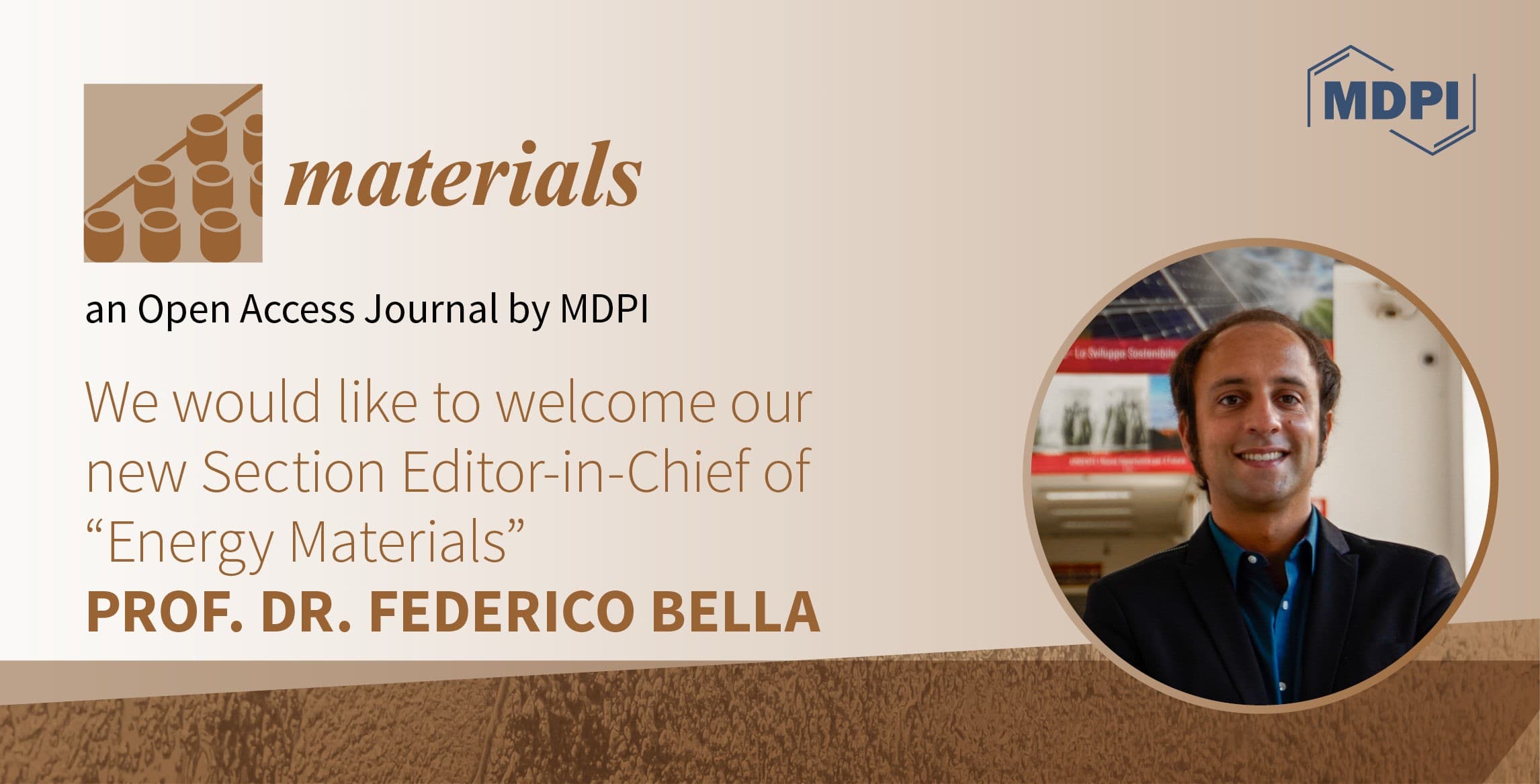
We are pleased to announce that Prof. Dr. Federico Bella has been appointed Editor-in-Chief of the Section "Energy Materials" in Materials (ISSN: 1996-1944).
Prof. Dr. Federico Bella (Torino, 1987) is a full professor of chemistry at Politecnico di Torino. In the Electrochemistry Group, he leads the research activities on post-Li batteries, electrochemical nitrogen reduction and hybrid photovoltaics.
Due to his important achievements in energy chemistry, Prof. Dr. Federico Bella received both the “ENI Award” and the “Roberto Piontelli Award” from the President of the Italian Republic. In 2021, he was the recipient of the USERN Prize, awarded among 10000 candidates by a jury of previous Nobel awardees.
Prof. Dr. Federico Bella is an author of more than 100 international publications (h-index 65) and leads the ERC project SuN2rise, a €1.5 M EU grant to redesign the process of NH3 production. He has coordinated the Early-Career Division of the Italian Chemical Society and is a member of the Editorial Board of cutting-edge journals in the field of chemistry, e.g., ChemSusChem and ACS Sustainable Chemistry & Engineering.
The following is a short Q&A with Prof. Dr. Federico Bella, who shared his vision for the Section, in addition to his views on the research area:
1. What appealed to you about the journal that made you want to take the role as its Section Editor-in-Chief?
In recent years I have worked a lot for Materials in order to propose new Special Issues on emerging thematic areas and contribute to the manuscripts review process. Now, I am happy to have this opportunity to devote myself to the development of one of the most strategic Sections of this journal, i.e., “Energy Materials”.
2. What is your vision for the Section?
We are experiencing an energy transition that must necessarily be accompanied by an ecological transition. All of these challenges are achievable if new materials are developed and are capable of providing performance, sustainability and low costs at the same time: to this end, this Section of the Materials journal will be invaluable in collecting the best possible contributions in this field.
3. What does the future of this field of research look like?
Batteries, supercapacitors, electrocatalytic reactors and photovoltaic cells will be the main players in the electrification of society and industry during the next decade. And it is on these pillars that the “Energy Materials” Section will focus its efforts in order to offer high-quality research articles.
4. What do you think of the development of Open Access in the publishing field?
Researchers must be able to work in the best possible conditions in order to reach important goals. To this purpose, the first requirement is to have access to the literature on one's own research topic, hence the high importance of the Open Access system emerges.
5. What aspects do you focus on when reviewing a manuscript?
I check these three items when I first read a newly submitted manuscript. First, the main challenge of the work must be clearly highlighted. Second, a phenomenological explanation for the measured performances has to be clearly indicated. Third, English style: authors often do not take care of this aspect, but this influences the way a research work is appreciated by a referee.
6. Do you have any suggestions for young researchers in this field?
There is strong competition between research groups in the field of energy materials, and this stems from the great challenges in place and the potential to be financed more easily than in other sectors. However, innovation always comes first: I suggest young people focus on a challenge where they can emerge with a new material or a new phenomenon, rather than chasing performance records on existing materials developed by others.
We wish Prof. Dr. Federico Bella every success in his new position, and we look forward to his contributions to the journal.
18 November 2022
Materials | Top 10 Cited Papers in 2021 in the Section “Polymeric Materials”
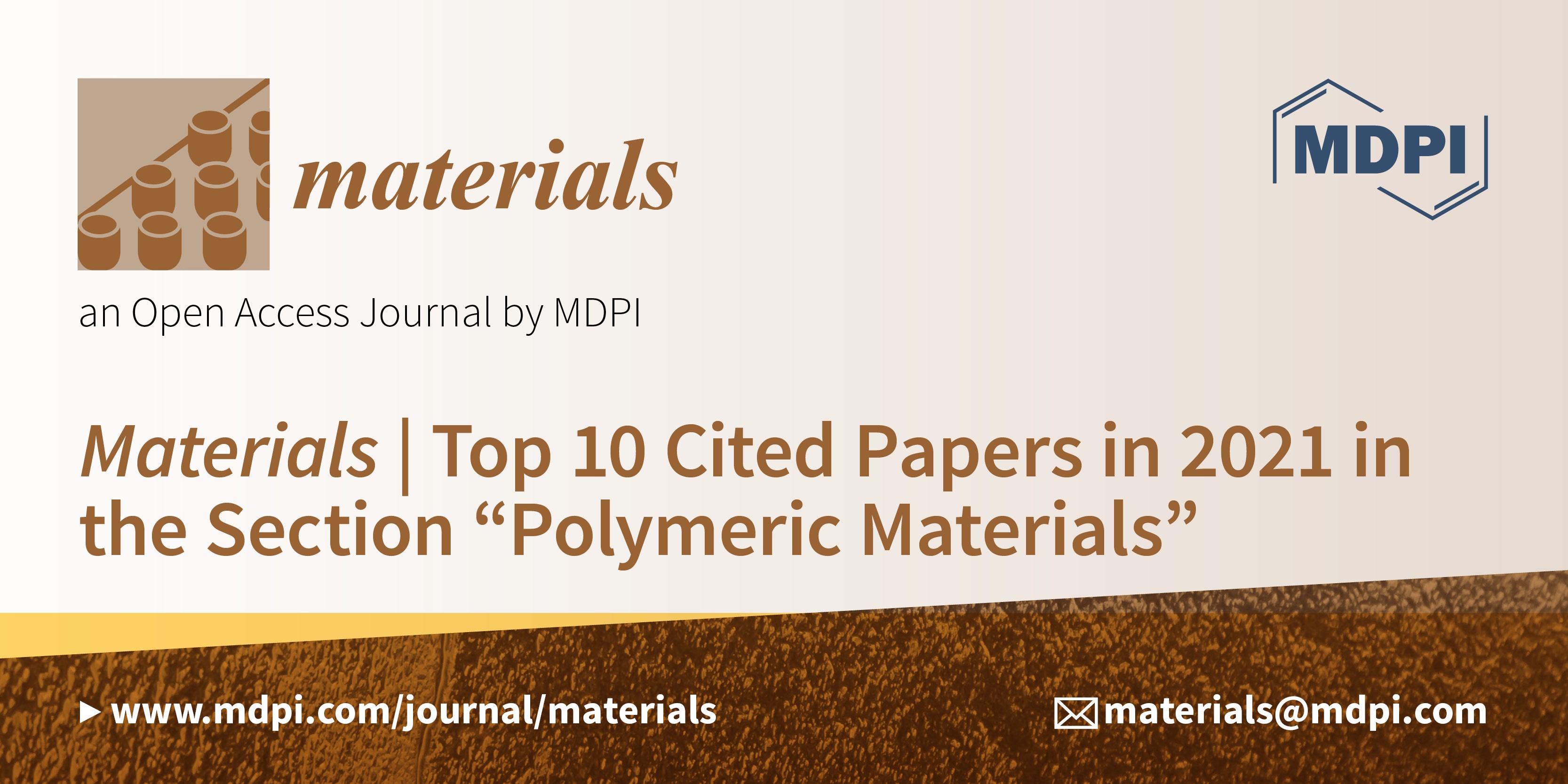
1. "High-Temperature Properties and Applications of Si-Based Polymer-Derived Ceramics: A Review"
by Zhongkan Ren, Shakir Bin Mujib and Gurpreet Singh
Materials 2021, 14(3), 614; https://doi.org/10.3390/ma1403061
Full text available online: https://www.mdpi.com/1996-1944/14/3/614
2. "Propolis and Organosilanes as Innovative Hybrid Modifiers in Wood-Based Polymer Composites"
by Majka Odalanowska, Magdalena Woźniak, Izabela Ratajczak, Daria Zielińska, Grzegorz Cofta and Sławomir Borysiak
Materials 2021, 14(2), 464; https://doi.org/10.3390/ma14020464
Full text available online: https://www.mdpi.com/1996-1944/14/2/464
3. "Antibacterial Films Based on Polylactide with the Addition of Quercetin and Poly(Ethylene Glycol)"
by Ewa Olewnik-Kruszkowska, Magdalena Gierszewska, Agnieszka Richert, Sylwia Grabska-Zielińska, Anna Rudawska and Mohamed Bouaziz
Materials 2021, 14(7), 1643; https://doi.org/10.3390/ma14071643
Full text available online: https://www.mdpi.com/1996-1944/14/7/1643
4. "Structure and Mechanical Properties of High-Density Polyethylene Composites Reinforced with Glassy Carbon"
by Piotr Olesik, Marcin Godzierz, Mateusz Kozioł, Jakub Jała, Urszula Szeluga and Jerzy Myalski
Materials 2021, 14(14), 4024; https://doi.org/10.3390/ma14144024
Full text available online: https://www.mdpi.com/1996-1944/14/14/4024
5. "Photocurable Epoxy Acrylate Coatings Preparation by Dual Cationic and Radical Photocrosslinking"
by Paulina Bednarczyk, Karolina Mozelewska, Małgorzata Nowak and Zbigniew Czech
Materials 2021, 14(15), 4150; https://doi.org/10.3390/ma14154150
Full text available online: https://www.mdpi.com/1996-1944/14/15/4150
6. "Bactericidal and Fungistatic Properties of LDPE Modified with a Biocide Containing Metal Nanoparticles"
by Katarzyna Janczak, Daria Kosmalska, Daniel Kaczor, Aneta Raszkowska-Kaczor, Lauren Wedderburn and Rafał Malinowski
Materials 2021, 14(15), 4228; https://doi.org/10.3390/ma14154228
Full text available online: https://www.mdpi.com/1996-1944/14/15/4228
7. "New Organosilicon Composite Based on Borosiloxane and Zinc Oxide Nanoparticles Inhibits Bacterial Growth, but Does Not Have a Toxic Effect on the Development of Animal Eukaryotic Cells"
by Denis N. Chausov, Dmitriy E. Burmistrov, Alexander D. Kurilov, Nikolai F. Bunkin, Maxim E. Astashev, Alexander V. Simakin, Maria V. Vedunova and Sergey V. Gudkov
Materials 2021, 14(21), 6281; https://doi.org/10.3390/ma14216281
Full text available online: https://www.mdpi.com/1996-1944/14/21/6281
8. "Quantification Approaches for Fatigue Crack Resistance of Thermoplastic Tape Layered Composites with Multiple Delaminations"
by Anastasiia Khudiakova, Andreas J. Brunner, Markus Wolfahrt and Gerald Pinter
Materials 2021, 14(6), 1476; https://doi.org/10.3390/ma14061476
Full text available online: https://www.mdpi.com/1996-1944/14/6/1476
9. "Near-Infrared Light-Responsive Shell-Crosslinked Micelles of Poly(d,l-lactide)-b-poly((furfuryl methacrylate)-co-(N-acryloylmorpholine)) Prepared by Diels–Alder Reaction for the Triggered Release of Doxorubicin"
by Sonyabapu Yadav, Kalyan Ramesh, Parveen Kumar, Sung-Han Jo, Seong II Yoo, Yeong-Soon Gal, Sang-Hyug Park and Kwon Taek Lim
Materials 2021, 14(24), 7913; https://doi.org/10.3390/ma14247913
Full text available online: https://www.mdpi.com/1996-1944/14/24/7913
10. "High-Impact Polystyrene Reinforced with Reduced Graphene Oxide as a Filament for Fused Filament Fabrication 3D Printing"
by Marta Sieradzka, Janusz Fabia, Dorota Biniaś, Tadeusz Graczyk and Ryszard Fryczkowski
Materials 2021, 14(22), 7008; https://doi.org/10.3390/ma14227008
Full text available online: https://www.mdpi.com/1996-1944/14/22/7008
18 November 2022
Welcoming New Editorial Board Members of Materials
We are pleased to announce that 18 new scholars have recently been appointed Editorial Board Members (EBMs) of the journal Materials (ISSN: 1996-1944).
| Name | Affiliation |
| Prof. Dr. Adolfo Avella | Universitá degli Studi di Salerno, Italy |
| Prof. Dr. Agata Przekora-Kuśmierz | Medical University of Lublin, Poland |
| Dr. Christian Carloni | Case Western Reserve University, USA |
| Dr. Dmitriy Igorevich Potemkin | Boreskov Institute of Catalysis, Russia |
| Dr. Hongwei Liu | The University of Sydney, Australia |
| Dr. Jiapeng Sun | Hohai University, China |
| Prof. Dr. Jie Li | RMIT University, Australia |
| Prof. Dr. Joaquin Fernández | Donostia International Physics Center, Spain |
| Dr. Jürgen Klepp | University of Vienna, Austria |
| Prof. Dr. Margarita D. Apostolova | Bulgarian Academy of Sciences, Bulgaria |
| Prof. Dr. Odda Ruiz de Ballesteros | Università di Napoli Federico II, Italy |
| Prof. Dr. Shengtao Yang | Southwest Minzu University, China |
| Prof. Dr. Tomasz Garbowski | Poznan University of Life Sciences, Poland |
| Prof. Dr. Tomasz Goryczka | University of Silesia in Katowice, Poland |
| Dr. Valerio Pinchetti | Los Alamos National Laboratory, USA |
| Prof. Dr. Xiaoding Qi | National Cheng Kung University, Taiwan |
| Dr. Yingbin Hu | Miami University, USA |
| Prof. Dr. Zhonghua Zhang | Shandong University, China |
Further details about the Editorial Board can be found at https://www.mdpi.com/journal/materials/editors.
We wish them every success in both their research and in the development of the journal.
Additionally, Materials is recruiting prestigious scholars from around the world to join our Editorial Board. To apply for this position, recommend potential candidates, or request further information, please contact the Materials Editorial Office ([email protected]) with the following two files attached:
- A full academic CV;
- A short cover letter that details your interest in and enthusiasm for the position.
Materials Editorial Office
2 November 2022
Materials | Recruiting Section Editor-in-Chief for the Section “Soft Matter”
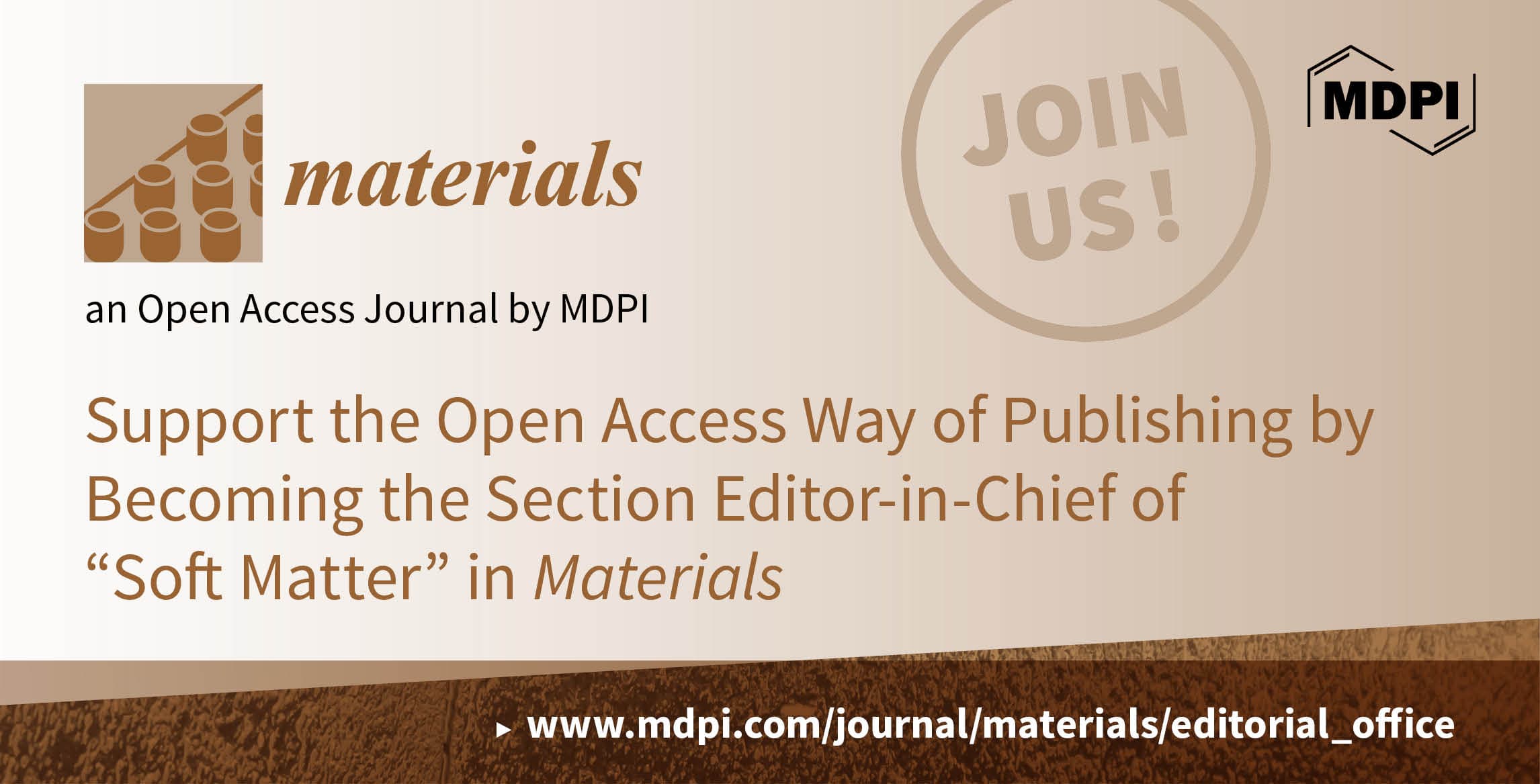
We are now recruiting the Editor-in-Chief for the Section “Soft Matter” of Materials (ISSN: 1996-1944), which was launched last year. If you are an active researcher in one of the soft matter fields and are passionate about publishing cutting-edge research, please do not hesitate to contact us at [email protected].
Section Information:
Research in soft matter covers, among other polymers, liquid crystals, colloids, granular matter, hybrids and active matter, as well as wetting and friction phenomena, soft surfaces and interphases, gels, liquid–liquid phase transitions, and biomimetic systems. To enhance our understanding of soft matter in the context of material science, the Section includes but is not limited to contributions to:
- Theoretical, computational, and experimental studies of polymers, gels, colloids, wetting and friction phenomena, soft surfaces, and active and biomimetic systems;
- The understanding of phase transitions and phase behavior in soft matter;
- The understanding of non-equilibrium and meta-stable states in soft matter, including applications to device functions and processing;
- Application of methods of artificial intelligence and machine learning in soft matter and soft materials, processing, and devices.
You can find more information about the Section on our homepage: https://www.mdpi.com/journal/materials/sections/soft_matter.
The Section Editor-in-Chief has the following responsibilities:
- Promoting Materials and the Section “Soft Matter” and increasing their visibility at related academic conferences;
- Scientific decisions about the journal’s scope;
- Inviting distinguished scientists to join the Editorial Board;
- Suggesting topics for Special Issues and assisting the Guest Editors in the setup of Special Issues;
- Providing support and guidance to Editorial Board Members and editorial staff where required;
- Overviewing the editorial process for individual manuscripts (mainly by taking the final decision on whether a paper can be published after peer review and revisions).
- Understanding, leading, and upholding MDPI’s peer review guidelines and ethics guidelines.
We believe that by combining our rigorous editorial policies with your expertise, we can build a high-quality journal. We thank you in advance for your interest and look forward to collaborating with you.
Materials Editorial Office
1 November 2022
Materials | Best Oral Presentation Award for the VII Congress of the Theoretical and Computational Chemistry Division (DCTC2022)—Winner Announced
Materials (ISSN: 1996-1944) has sponsored the Best Oral Presentation Award for the Congress of the Computational and Theoretical Chemistry Division of the Italian Chemical Society (VII CONGRESSO DELLA DIVISIONE DI CHIMICA TEORICA E COMPUTAZIONALE—DCTC2022). The applications were processed by the Conference Committee. We are pleased to announce the winner— Mr. Cheng Giuseppe Chen.
|
|
Mr. Cheng Giuseppe Chen is a Ph.D. student at the Department of Chemistry of the Sapienza University of Rome. He received his bachelor's degree in chemistry in 2018 and his master's degree in chemistry (inorganic–physical chemistry curriculum) in 2020, both at the Sapienza University of Rome. His research focuses on modeling the spectroscopical properties of complex systems of biological interest using classical and QM/MM computational methods. |
He is the winner of the Best Oral Presentation Award at the congress of the Computational and Theoretical Chemistry division of the Italian Chemical Society (VII CONGRESSO DELLA DIVISIONE DI CHIMICA TEORICA E COMPUTAZIONALE—DCTC2022), Modena, 21–23 September 2022. The title of the presentation was “PyMM: An open-source Python program for QM/MM Simulations based on the Perturbed Matrix Method”.
The award was delivered by the President of the Commission composed of the following people:
- Prof. Isabella Daidone (University of L'Aquila);
- Prof. Mauro Stener (University of Trento);
- Dr. Francesco Muniz-Miranda (University of Modena and Reggio Emilia).
We would like to congratulate Mr. Cheng Giuseppe Chen again for his accomplishment! If you are also interested in Materials’ awards, please refer to https://www.mdpi.com/journal/materials/awards to apply or nominate someone else for an award.
1 November 2022
Meet Us at the 14th National Surface Engineering Conference, 11–13 November 2022, Wuhan, China
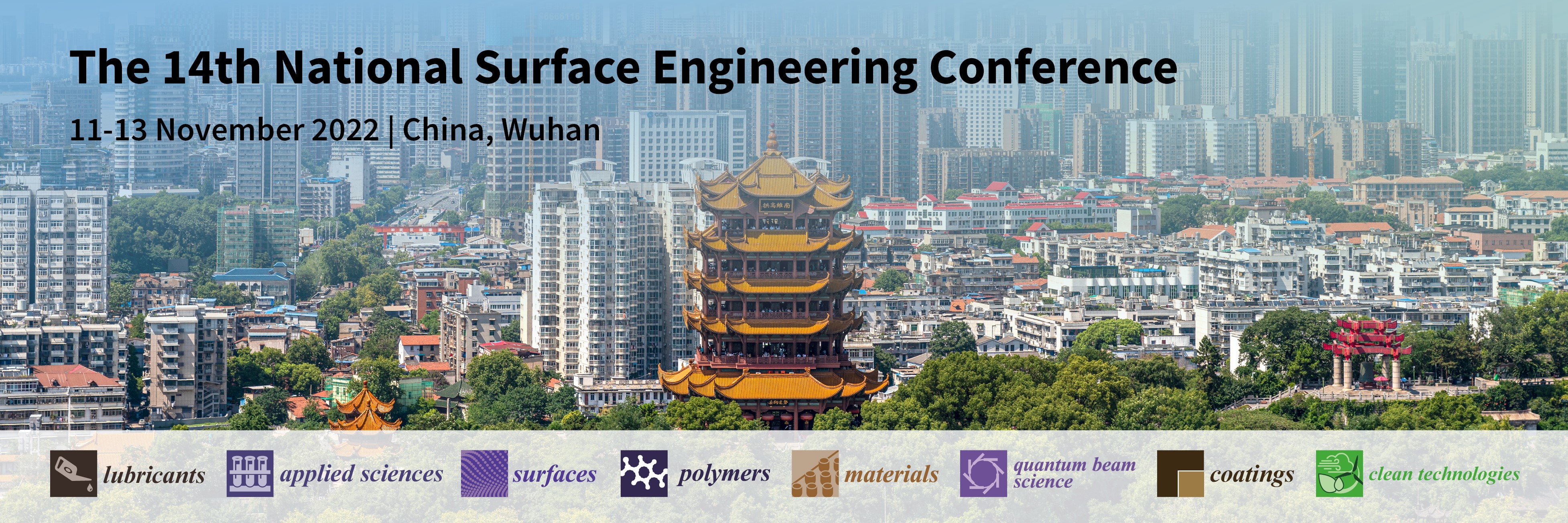
MDPI will be attending the 14th National Surface Engineering Conference, held in Wuhan, China, from 11 to 13 November 2022. This conference aims to achieve an in-depth exchange of the latest research results in surface engineering and related disciplines and to discuss the frontier trends and future development trends of surface engineering research and engineering application. During this conference, MDPI will welcome researchers from different backgrounds to visit and share their latest ideas with us.
The following MDPI journals will be represented:
- Lubricants;
- Applied Sciences;
- Surfaces;
- Polymers;
- Materials;
- QuBS;
- Coatings;
- Clean Technologies.
If you plan on attending this conference, feel free to stop by our booth. Our delegates look forward to meeting you in person to answer any questions you may have.
For more information about the conference, please see the following link: http://bmgc2022.aconf.cn/index.html.
26 October 2022
Meet Us at the Journées de Chimie Organique (JCO 2022), 2–4 November 2022, Palaiseau, France
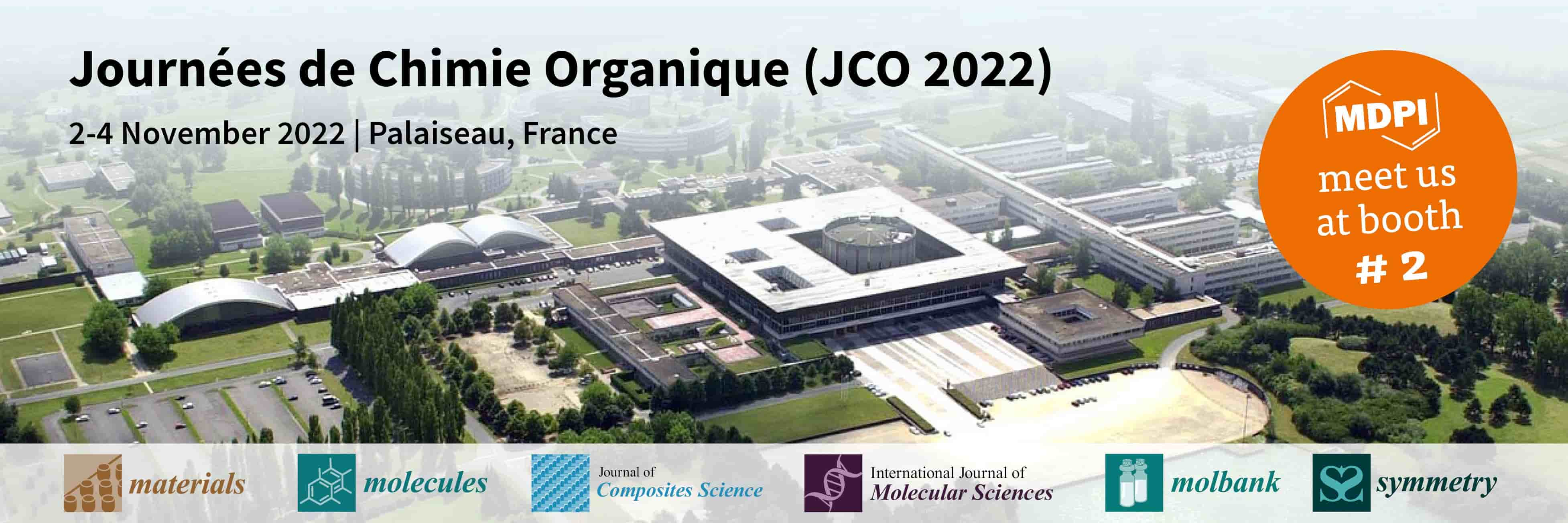
Conference: Journées de Chimie Organique (JCO 2022)
Date: 2–4 November 2022
Place: Palaiseau, France
Booth Number: 2
Materials (ISSN: 1996-1944) and Molecules (ISSN: 1420-3049) will be attending the Journées de Chimie Organique (JCO 2022) as exhibitors from 2 to 4 November in Palaiseau, France.
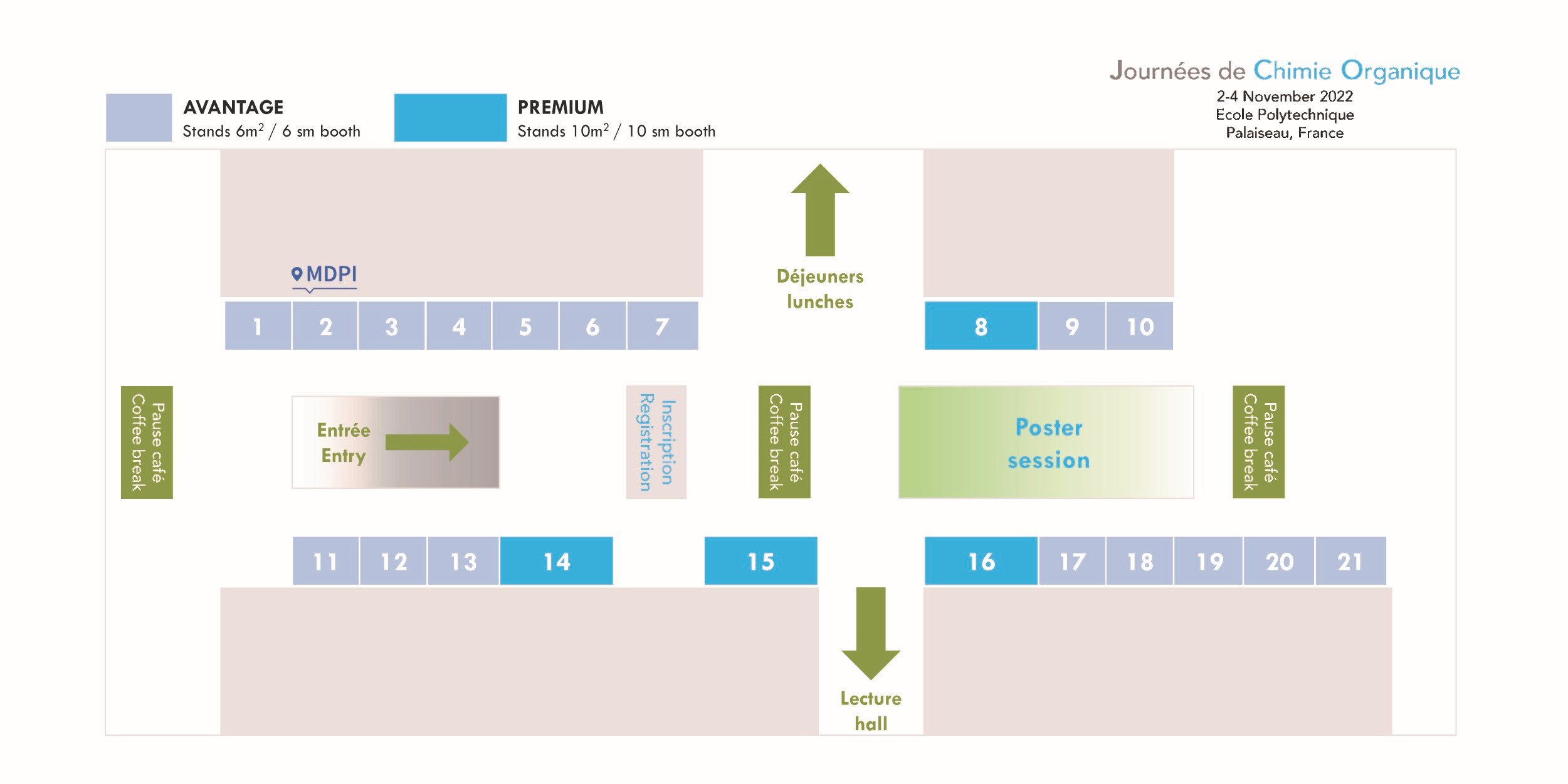
The JCO is organized every 3 years by the Organic Chemistry Division committee. It aims to be a great opportunity for the sharing of science, gathering organic chemists from all over the world.
This year, the meeting will include 13 plenary lectures and 5 invited lectures given by French and foreign researchers from both academic and industrial backgrounds, and will also highlight awardees of the DCO prizes.
Numerous oral communications are open to young researchers in various areas, such as the following:
- Catalysis;
- New methods in organic synthesis;
- Total synthesis of natural products;
- Sustainable chemistry;
- Medicinal chemistry;
- Bioorganic chemistry;
- Chemobiology;
- Supramolecular chemistry;
- Applications in materials and energy.
The following MDPI journals will be represented:
Please do not hesitate to reach out if you plan on attending this conference. Our delegates look forward to meeting you in person and answering any questions you might have.
For more information about the conference, please visit the following website: https://www.jco2022.com/en/.
24 October 2022
Materials | Special Issue Mentor Program
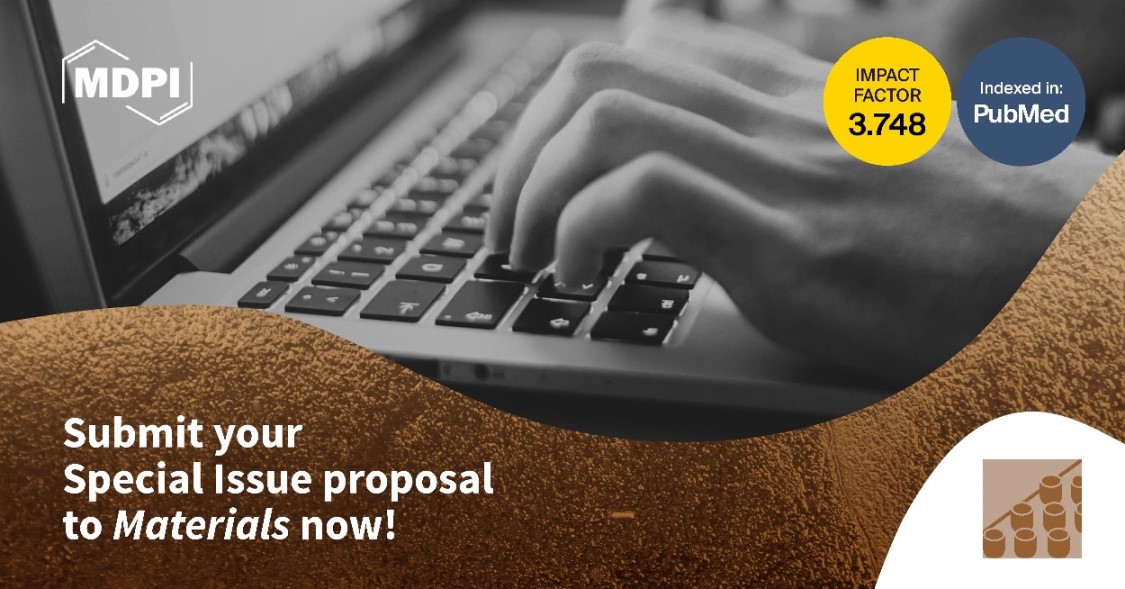
We are pleased to announce the launch of a new initiative—the Special Issue Mentor Program. This program intends to provide an opportunity for early-career scientists to enhance their editing, networking, and organizational skills and to work closely with our journal to gain more editorial experience. Early career scientists who have novel ideas for new Materials Special Issues will act as Guest Editors under the mentorship of an experienced scientist; this mentor could be a member of the Editorial Board of Materials (ISSN: 1996-1944), from other well-established research institutes or laboratories, etc.
The mentee’s responsibilities include:
- Providing a CV, including a list of publications;
- Proposing a Special Issue title and a short introduction;
- Writing a brief promotion plan for the Special Issue;
- Writing an editorial for the online Special Issue;
- Reviewing and making decisions for submissions under the mentorship of our Editorial Board Members.
The mentor’s responsibilities include:
- Conducting a final check before the Special Issue is published online;
- Co-editing the Special Issue with younger scholars and performing quality control of the publications in the Special Issue;
- Providing suggestions to younger scholars if they have doubts or concerns regarding submissions;
- Regularly organizing video calls with young scholars and the office to discuss problems and offer suggestions for improvement for the Special Issue.
Certificates and awards:
When the Special Issue is closed, the Editorial Office will provide official certificates for all the mentors. The younger scholars will be prioritized as candidates for Materials Young Investigator Awards in future editions.
If you are interested in this opportunity, please send your Special Issue proposal to the Materials Editorial Office ([email protected]), and we will discuss the process (mentor collaboration, Special Issue topic feasibility analysis, etc.) in further detail.
In addition to the new Special Issue Mentor Program, Materials will continually welcome all Special Issue proposals based on hot research topics as usual.
Materials Editorial Office
17 October 2022
Materials | Top 10 Cited Papers in 2021 in the Section “Energy Materials”
1. “Application of Ionic Liquids for Batteries and Supercapacitors”
by Ray, A. and Saruhan, B.
Materials 2021, 14(11), 2942; https://doi.org/10.3390/ma14112942
Full text available online: https://www.mdpi.com/1996-1944/14/11/2942
2. “Research Progress of Proton Exchange Membrane Failure and Mitigation Strategies”
by Xing, Y.; Li, H. and Avgouropoulos, G.
Materials 2021, 14(10), 2591; https://doi.org/10.3390/ma14102591
Full text available online: https://www.mdpi.com/1996-1944/14/10/2591
3. “Ionic Liquid Electrolytes for Electrochemical Energy Storage Devices”
by Kim, E.; Han, J.; Ryu, S.; Choi, Y. and Yoo, J.
Materials 2021, 14(14), 4000; https://doi.org/10.3390/ma14144000
Full text available online: https://www.mdpi.com/1996-1944/14/14/4000
4. “Undoped Sr2MMoO6 Double Perovskite Molybdates (M = Ni, Mg, Fe) as Promising Anode Materials for Solid Oxide Fuel Cells”
by Skutina, L.; Filonova, E.; Medvedev, D. and Maignan, A.
Materials 2021, 14(7), 1715; https://doi.org/10.3390/ma14071715
Full text available online: https://www.mdpi.com/1996-1944/14/7/1715
5. “Utilization of Red Mud as a Source for Metal Ions—A Review”
by Samal, S.
Materials 2021, 14(9), 2211; https://doi.org/10.3390/ma14092211
Full text available online: https://www.mdpi.com/1996-1944/14/9/2211
6. “Investigation of Lithium Ion Diffusion of Graphite Anode by the Galvanostatic Intermittent Titration Technique”
by Park, J. H.; Yoon, H.; Cho, Y. and Yoo, C.-Y.
Materials 2021, 14(16), 4683; https://doi.org/10.3390/ma14164683
Full text available online: https://www.mdpi.com/1996-1944/14/16/4683
7. “Enhanced Structural Stability and Electrochemical Performance of LiNi0.6Co0.2Mn0.2O2 Cathode Materials by Ga Doping”
by Liu, Z.; Li, J.; Zhu, M.; Wang, L.; Kang, Y.; Dang, Z.; Yan, J. and He, X.
Materials 2021, 14(8), 1816; https://doi.org/10.3390/ma14081816
Full text available online: https://www.mdpi.com/1996-1944/14/8/1816
8. “Nanocomposites Prepared from Carbon Nanotubes and the Transition Metal Dichalcogenides WS2 and MoS2 via Surfactant-Assisted Dispersions as Electrocatalysts for Oxygen Reactions”
by Ferreira, P.; Abreu, B.; Freire, C.; Fernandes, D. M. and Marques, E. F.
Materials 2021, 14(4), 896; https://doi.org/10.3390/ma14040896
Full text available online: https://www.mdpi.com/1996-1944/14/4/896
9. “Recent Progress in Cathode Materials for Sodium-Metal Halide Batteries”
by Zhan, X.; Li, M. M.; Weller, J. M.; Sprenkle, V. L. and Li, G.
Materials 2021, 14(12), 3260; https://doi.org/10.3390/ma14123260
Full text available online: https://www.mdpi.com/1996-1944/14/12/3260
10. “Flexible Supercapacitors Based on Graphene/Boron Nitride Nanosheets Electrodes and PVA/PEI Gel Electrolytes”
by Wang, C.; Hu, K.; Liu, Y.; Zhang, M.-R.; Wang, Z. and Li, Z.
Materials 2021, 14(8), 1955; https://doi.org/10.3390/ma14081955
Full text available online: https://www.mdpi.com/1996-1944/14/8/1955
28 September 2022
Peer Review Week 2022 – Research Integrity: Creating and Supporting Trust in Research
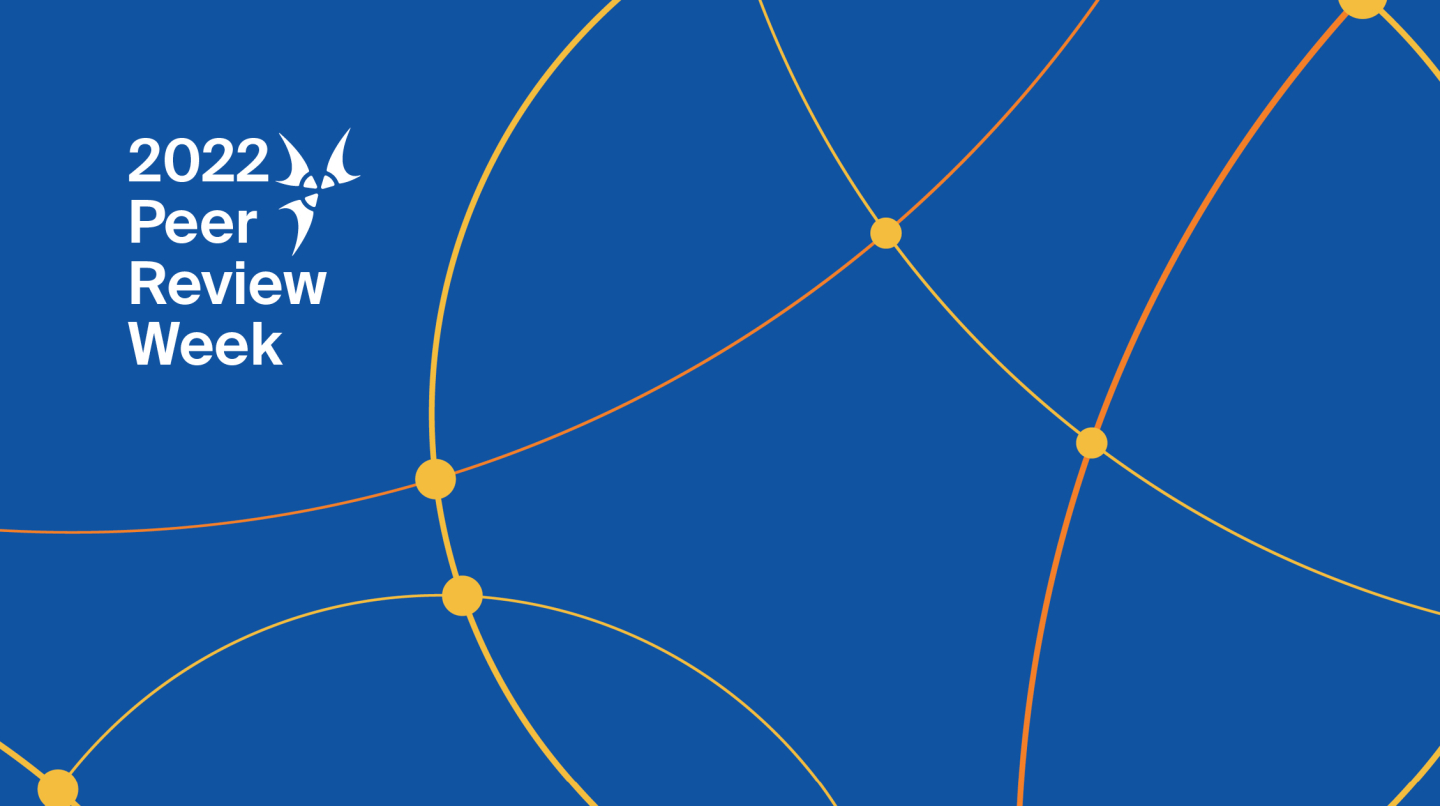
Peer Review Week began 19 September 2022 under the theme of “Research Integrity: Creating and Supporting Trust in Research”. Through various blog articles, podcast, and webinar, we discussed this crucial subject throughout the week, celebrating the essential role peer review plays in maintaining research quality.
To begin, we held a Webinar on the topic. Professor Peter W. Choate and Dr. Emmanuel Obeng-Gyasi joined Dr. Ioana Craciun, one of MDPI’s scientific officers, for an in-depth discussion.
We invite you to view the event recording:
During the week, the MDPI Blog in a series articles highlighted how good Peer Review safeguards research integrity. The following topics were covered:
- Peer Review Week 2022
- Research Integrity
- What We’ve Learned About Peer Review Reports
- 4 Steps to the Perfect Peer Review Report
- How to Write the Perfect Peer Review Report: An Interview
- Inviting Great Peer Reviewers
In a new edition of Insight Faster, an MDPI podcast, we were delighted to talk to the co-chairs of the Peer Review Week committee, Jayashree Rajagopalan (Senior Manager of Global Community Engagement for CACTUS) and Danielle Padula (Head of Marketing and Community Development at Scholastica) to get their take on this year’s event and its related topics.
You can find the Podcast here.
We hope you enjoy the contents!
20 September 2022
Materials | Editor’s Choice Articles in Q3 of 2022
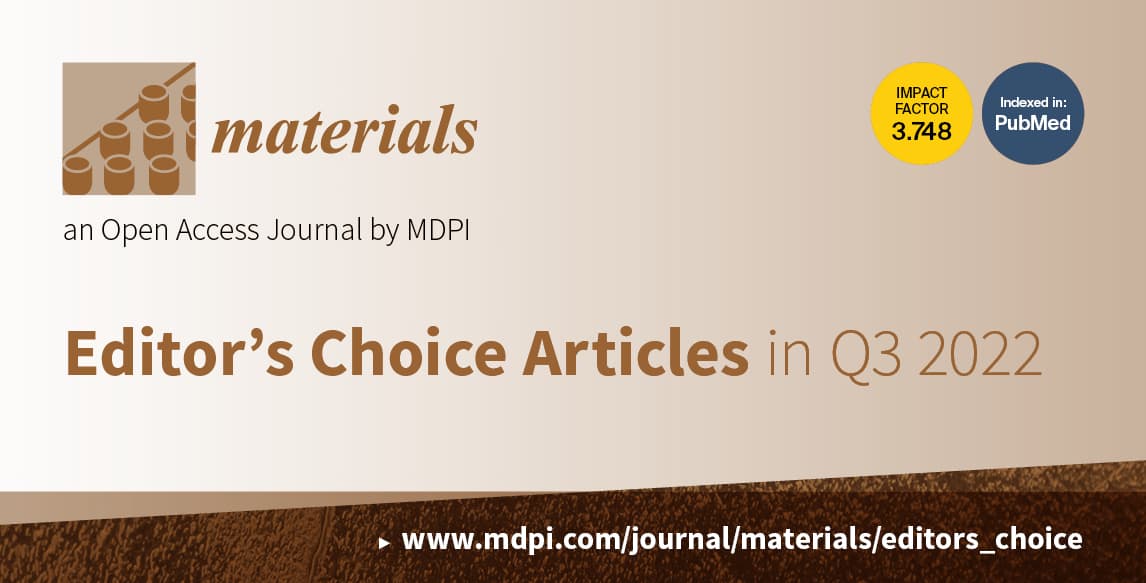
The Editor’s Choice Articles are based on recommendations by the scientific editors of MDPI journals from around the world. Editors select a small number of articles that have recently been published in the journal that they believe will be particularly interesting to authors, or important in this field. The aim is to provide a snapshot of some of the most exciting work published in the various research areas of the journal.
We are pleased to present the Q3 2022 Editor’s Choice Articles. We hope that these papers can help and provide a reference for your academic research.
“An Overview of Some Nonpiezoelectric Properties of BaTiO3 Ceramics Doped by Eu Ions”
by Magdalena Krupska-Klimczak et al.
Materials 2022, 15(15), 5363; https://doi.org/10.3390/ma15155363
Available online: https://www.mdpi.com/1996-1944/15/15/5363
“Evaluation of Solidified Wastewater Treatment Sludge as a Potential SCM in Pervious Concrete Pavements”
by Ognjen Govedarica et al.
Materials 2022, 15(14), 4919; https://doi.org/10.3390/ma15144919
Available online: https://www.mdpi.com/1996-1944/15/14/4919
“Synthesis and Processing Parameter Optimization of Nano-Belite via One-Step Combustion Method”
by Hongfang Sun et al.
Materials 2022, 15(14), 4913; https://doi.org/10.3390/ma15144913
Available online: https://www.mdpi.com/1996-1944/15/14/4913
“The Effect of Bi2O3 and Fe2O3 Impurity Phases in BiFeO3 Perovskite Materials on Some Electrical Properties in the Low-Frequency Field”
by Cristian Casut et al.
Materials 2022, 15(14), 4764; https://doi.org/10.3390/ma15144764
Available online: https://www.mdpi.com/1996-1944/15/14/4764
“Concrete/Glass Construction and Demolition Waste (CDW) Synergies in Ternary Eco-Cement-Paste Mineralogy”
by Raquel Vigil de la Villa Mencía et al.
Materials 2022, 15(13), 4661; https://doi.org/10.3390/ma15134661
Available online: https://www.mdpi.com/1996-1944/15/13/4661
“Pressure-Induced Superconductivity of the Quasi-One-Dimensional Organic Conductor (TMTTF)2TaF6”
by Miho Itoi et al.
Materials 2022, 15(13), 4638; https://doi.org/10.3390/ma15134638
Available online: https://www.mdpi.com/1996-1944/15/13/4638
We would like to take this opportunity to thank all of the research groups that submitted to Materials (ISSN: 1996-1944). We would appreciate it if you would circulate this document among your colleagues and network. Furthermore, the following opportunities for collaboration may be of interest:
- Submitting a manuscript:
Materials (ISSN: 1996-1944) is an open access journal that publishes spotlights, reviews, original research contributions, and short communications. Papers may be submitted via the following link: https://susy.mdpi.com/user/manuscripts/upload/8865a3461895587443b8af1c017a16b7?form%5Bjournal_id%5D=14.
- Launching a Special Issue:
You have the opportunity to propose hot topics and edit a Special Issue together with experts in the field: https://www.mdpi.com/journalproposal/sendproposalspecialissue/materials.
- Joining the Editorial Board:
If you are an active researcher in the field of materials science and engineering and are interested in joining the Editorial Board, please do not hesitate to get in touch ([email protected]).
Materials Editorial Office
16 September 2022
Materials | Top 10 Cited Papers in 2021 in the Section “Manufacturing Processes and Systems”
1. “Functional Importance of Surface Texture Parameters”
by Pawlus, P.; Reizer, R. and Wieczorowski M.
Materials 2021, 14(18), 5326; https://doi.org/10.3390/ma14185326
Full text available online: https://www.mdpi.com/1996-1944/14/18/5326
2. “Methodology for the Quality Control Process of Additive Manufacturing Products Made of Polymer Materials”
by Budzik, G.; Woźniak, J.; Paszkiewicz, A.; Przeszłowski, Ł.; Dziubek, T. and Dębski, M.
Materials 2021, 14(9), 2202; https://doi.org/10.3390/ma14092202
Full text available online: https://www.mdpi.com/1996-1944/14/9/2202
3. “Tailoring Microstructure and Mechanical Properties of Additively-Manufactured Ti6Al4V Using Post Processing”
by Ganor, Y. I.; Tiferet, E.; Vogel, S. C.; Brown, D. W.; Chonin, M.; Pesach, A.; Hajaj, A.; Garkun, A.; Samuha, S.; Shneck, R. Z. and Yeheskel, O.
Materials 2021, 14(3), 658; https://doi.org/10.3390/ma14030658
Full text available online: https://www.mdpi.com/1996-1944/14/3/658
4. “Peening Techniques for Surface Modification: Processes, Properties, and Applications”
by John, M.; Kalvala, P. R.; Misra, M. and Menezes, P. L.
Materials 2021, 14(14), 3841; https://doi.org/10.3390/ma14143841
Full text available online: https://www.mdpi.com/1996-1944/14/14/3841
5. “In Situ Monitoring of Additive Manufacturing Using Digital Image Correlation: A Review”
by Cunha, F. G.; Santos, T. G. and Xavier, J.
Materials 2021, 14(6), 1511; https://doi.org/10.3390/ma14061511
Full text available online: https://www.mdpi.com/1996-1944/14/6/1511
6. “Recent Attempts in the Design of Efficient PVC Plasticizers with Reduced Migration”
by Czogała, J.; Pankalla, E. and Turczyn, R.
Materials 2021, 14(4), 844; https://doi.org/10.3390/ma14040844
Full text available online: https://www.mdpi.com/1996-1944/14/4/844
7. “Wear Resistance Improvement of Cemented Tungsten Carbide Deep-Hole Drills after Ion Implantation”
by Morozow, D.; Barlak, M.; Werner, Z.; Pisarek, M.; Konarski, P.; Zagórski, J.; Rucki, M.; Chałko, L.; Łagodziński, M.; Narojczyk, J.; Krzysiak, Z. and Caban, J.
Materials 2021, 14(2), 239; https://doi.org/10.3390/ma14020239
Full text available online: https://www.mdpi.com/1996-1944/14/2/239
8. “Multiscale Analysis of Surface Texture Quality of Models Manufactured by Laser Powder-Bed Fusion Technology and Machining from 316L Steel”
by Gogolewski, D.; Bartkowiak, T.; Kozior, T. and Zmarzły, P.
Materials 2021, 14(11), 2794; https://doi.org/10.3390/ma14112794
Full text available online: https://www.mdpi.com/1996-1944/14/11/2794
9. “Tribological Properties of 2D Materials and Composites—A Review of Recent Advances”
by Manu, B. R.; Gupta, A. and Jayatissa, A. H.
Materials 2021, 14(7), 1630; https://doi.org/10.3390/ma14071630
Full text available online: https://www.mdpi.com/1996-1944/14/7/1630
10. “Reduction of Influence of the High-Frequency Noise on the Results of Surface Topography Measurements”
by Podulka, P.
Materials 2021, 14(2), 333; https://doi.org/10.3390/ma14020333
Full text available online: https://www.mdpi.com/1996-1944/14/2/333
15 September 2022
Materials | Top 10 Cited Papers in 2021 in the Section “Advanced Materials Characterization”
1. “Determination of Phase Transition and Critical Behavior of the As-Cast GdGeSi-(X) Type Alloys (Where X = Ni, Nd and Pr)”
by Gębara, P. and Hasiak, M.
Materials 2021, 14(1), 185; https://doi.org/10.3390/ma14010185
Full text available online: https://www.mdpi.com/1996-1944/14/1/185
2. “Defects in Electron Beam Melted Ti-6Al-4V: Fatigue Life Prediction Using Experimental Data and Extreme Value Statistics”
by Sandell, V.; Hansson, T.; Roychowdhury, S.; Månsson, T.; Delin, M.; Åkerfeldt, P. and Antti, M.-L.
Materials 2021, 14(3), 640; https://doi.org/10.3390/ma14030640
Full text available online: https://www.mdpi.com/1996-1944/14/3/640
3. “On the Response of a Micro Non-Destructive Testing X-ray Detector”
by Linardatos, D.; Koukou, V.; Martini, N.; Konstantinidis, A.; Bakas, A.; Fountos, G.; Valais, I. and Michail, C.
Materials 2021, 14(4), 888; https://doi.org/10.3390/ma14040888
Full text available online: https://www.mdpi.com/1996-1944/14/4/888
4. “Very-High-Cycle Fatigue Behavior of Inconel 718 Alloy Fabricated by Selective Laser Melting at Elevated Temperature”
by Song, Z.; Gao, W.; Wang, D.; Wu, Z.; Yan, M.; Huang, L. and Zhang, X.
Materials 2021, 14(4), 1001; https://doi.org/10.3390/ma14041001
Full text available online: https://www.mdpi.com/1996-1944/14/4/1001
5. “Interactions between Dislocations and Boundaries during Deformation”
by Pan, H.; He, Y. and Zhang, X.
Materials 2021, 14(4),1012; https://doi.org/10.3390/ma14041012
Full text available online: https://www.mdpi.com/1996-1944/14/4/1012
6. “A New Approach in the Design of Microstructured Ultralight Components to Achieve Maximum Functional Performance”
by Calleja-Ochoa, A.; Gonzalez-Barrio, H.; López de Lacalle, N.; Martínez, S.; Albizuri, J. and Lamikiz, A.
Materials 2021, 14(7), 1588; https://doi.org/10.3390/ma14071588
Full text available online: https://www.mdpi.com/1996-1944/14/7/1588
7. “Long-Term Stability of Different Kinds of Gas Nanobubbles in Deionized and Salt Water”
by Zhou, Y.; Han, Z.; He, C.; Feng, Q.; Wang, K.; Wang, Y.; Luo, N.; Dodbiba, G.; Wei, Y.; Otsuki, A. and Fujita, T.
Materials 2021, 14(7), 1808; https://doi.org/10.3390/ma14071808
Full text available online: https://www.mdpi.com/1996-1944/14/7/1808
8. “The Influence of the Physical-Mechanical Parameters of Rock on the Extent of the Initial Failure Zone under the Action of an Undercut Anchor”
by Jonak, J.; Karpiński, R.; Wójcik, A. and Siegmund, M.
Materials 2021, 14(8), 1841. https://doi.org/10.3390/ma14081841
Full text available online: https://www.mdpi.com/1996-1944/14/8/1841
9. “Analytical Prediction for Nonlinear Buckling of Elastically Supported FG-GPLRC Arches under a Central Point Load”
by Yang, Z.; Liu, A.; Yang, J.; Lai, S.-K.; Lv, J. and Fu, J.
Materials 2021, 14(8), 2026. https://doi.org/10.3390/ma14082026
Full text available online: https://www.mdpi.com/1996-1944/14/8/2026
by Szala, M.; Chocyk, D.; Skic, A.; Kamiński, M.; Macek, W. and Turek, M.
Materials 2021, 14(9), 2324. https://doi.org/10.3390/ma14092324
Full text available online: https://www.mdpi.com/1996-1944/14/9/2324
15 September 2022
Materials | Top 10 Cited Papers in 2021 in the Section “Materials Physics”
1. “Effect of Layer Directions on Internal Structures and Tensile Properties of 17-4PH Stainless Steel Parts Fabricated by Fused Deposition of Metals”
by Abe, Y.; Kurose, T.; Santos, M. V. A.; Kanaya, Y.; Ishigami, A.; Tanaka, S. and Ito, H.
Materials 2021, 14(2), 243; https://doi.org/10.3390/ma14020243
Full text available online: https://www.mdpi.com/1996-1944/14/2/243
2. “A Flow Stress Model of 300M Steel for Isothermal Tension”
by Chen, R.; Zhang, S.; Liu, X. and Feng, F.
Materials 2021, 14(2), 252; https://doi.org/10.3390/ma14020252
Full text available online: https://www.mdpi.com/1996-1944/14/2/252
3. “Optimization of Mechanical Properties and Damage Tolerance in Polymer-Mineral Multilayer Composites”
by Wiener, J.; Kaineder, H.; Kolednik, O. and Arbeiter, F.
Materials 2021, 14(4), 725; https://doi.org/10.3390/ma14040725
Full text available online: https://www.mdpi.com/1996-1944/14/4/725
4. “Influence of Polypropylene, Glass and Steel Fiber on the Thermal Properties of Concrete”
by Małek, M.; Jackowski, M.; Łasica,W. and Kadela, M.
Materials 2021, 14(8), 1888; https://doi.org/10.3390/ma14081888
Full text available online: https://www.mdpi.com/1996-1944/14/8/1888
5. “Application of the Strain Compensation Model and Processing Maps for Description of Hot Deformation Behavior of Metastable β Titanium Alloy”
by Lypchanskyi, O.; ´Sleboda, T.; Łukaszek-Sołek, A.; Zyguła, K. and Wojtaszek, M.
Materials 2021, 14(8), 2021; https://doi.org/10.3390/ma14082021
Full text available online: https://www.mdpi.com/1996-1944/14/8/2021
6. “High UV and Sunlight Photocatalytic Performance of Porous ZnO Nanostructures Synthesized by a Facile and Fast Microwave Hydrothermal Method”
by Ferreira, S. H.; Morais, M.; Nunes, D.; Oliveira, M. J.; Rovisco, A.; Pimentel, A.; Águas, H.; Fortunato, E. and Martins, R.
Materials 2021, 14(9), 2385; https://doi.org/10.3390/ma14092385
Full text available online: https://www.mdpi.com/1996-1944/14/9/2385
7. “Influence of Alkali Treatment on the Microstructure and Mechanical Properties of Coir and Abaca Fibers”
by Valášek, P.; Müller, M.; Šleger, V.; Koláˇr, V.; Hromasová, M.; D’Amato, R. and Ruggiero, A.
Materials 2021, 14(10), 2636; https://doi.org/10.3390/ma14102636
Full text available online: https://www.mdpi.com/1996-1944/14/10/2636
8. “Review on the Use of Superconducting Bulks for Magnetic Screening in Electrical Machines for Aircraft Applications”
by Dorget, R.; Nouailhetas, Q.; Colle, A.; Berger, K.; Sudo, K.; Ayat, S.; Lêvêque, J.; Koblischka, M. R.; Sakai, N.; Oka, T.; et al.
Materials 2021, 14(11), 2847; https://doi.org/10.3390/ma14112847
Full text available online: https://www.mdpi.com/1996-1944/14/11/2847
9. “Synthesis of Niobium-Alumina Composite Aggregates and Their Application in Coarse-Grained Refractory Ceramic-Metal Castables”
by Zienert, T.; Endler, D.; Hubálková, J.; Günay, G.; Weidner, A.; Biermann, H.; Kraft, B.; Wagner, S. and Aneziris, C. G.
Materials 2021, 14(21), 6453; https://doi.org/10.3390/ma14216453
Full text available online: https://www.mdpi.com/1996-1944/14/21/6453
10. “Numerical Investigation on Guided Waves Dispersion and Scattering Phenomena in Stiffened Panels”
by De Luca, A.; Perfetto, D.; Lamanna, G.; Aversano, A. and Caputo, F.
Materials 2022, 15(1), 74; https://doi.org/10.3390/ma15010074
Full text available online: https://www.mdpi.com/1996-1944/15/1/74
14 September 2022
Materials | Top 10 Cited Papers in 2021 in the Section “Biomaterials”
1. “Comparative Study of Gelatin Hydrogels Modified by Various Cross-Linking Agents”
by Skopinska-Wisniewska, J.; Tuszynska, M. and Olewnik-Kruszkowska, E.
Materials 2021, 14(2), 396; https://doi.org/10.3390/ma14020396
Full text available online: https://www.mdpi.com/1996-1944/14/2/396
2. “Review on Development and Dental Applications of Polyetheretherketone-Based Biomaterials and Restorations”
by Qin, L.; Yao, S.; Zhao, J.; Zhou, C.; Oates, T. W.; Weir, M. D.; Wu, J. and Xu, H. H. K.
Materials 2021, 14(2), 408; https://doi.org/10.3390/ma14020408
Full text available online: https://www.mdpi.com/1996-1944/14/2/408
3. “Effect of the Cross-Linking Density on the Swelling and Rheological Behavior of Ester-Bridged β-Cyclodextrin Nanosponges”
by Hoti, G.; Caldera, F.; Cecone, C.; Rubin Pedrazzo, A.; Anceschi, A.; Appleton, S. L.; Khazaei Monfared, Y. and Trotta, F.
Materials 2021, 14(3), 478; https://doi.org/10.3390/ma14030478
Full text available online: https://www.mdpi.com/1996-1944/14/3/478
4. “Synthesis and Application of Cellulose-Polyethyleneimine Composites and Nanocomposites: A Concise Review”
by Riva, L.; Fiorati, A. and Punta, C.
Materials 2021, 14(3), 473; https://doi.org/10.3390/ma14030473
Full text available online: https://www.mdpi.com/1996-1944/14/3/473
5. “Modelling ATR-FTIR Spectra of Dental Bonding Systems to Investigate Composition and Polymerisation Kinetics”
by Delgado, A. H. and Young, A. M.
Materials 2021, 14(4), 760; https://doi.org/10.3390/ma14040760
Full text available online: https://www.mdpi.com/1996-1944/14/4/760
6. “Chitosan and Hydroxyapatite Based Biomaterials to Circumvent Periprosthetic Joint Infections”
by Costa-Pinto, A. R.; Lemos, A. L.; Tavaria, F. K. and Pintado, M.
Materials 2021, 14(4), 804; https://doi.org/10.3390/ma14040804
Full text available online: https://www.mdpi.com/1996-1944/14/4/804
7. “Advances in Drug Delivery Nanosystems Using Graphene-Based Materials and Carbon Nanotubes”
by Jampilek, J. and Kralova, K.
Materials 2021, 14(5), 1059; https://doi.org/10.3390/ma14051059
Full text available online: https://www.mdpi.com/1996-1944/14/5/1059
8. “Titanium and Protein Adsorption: An Overview of Mechanisms and Effects of Surface Features”
by Barberi, J. and Spriano, S.
Materials 2021, 14(7), 1059; https://doi.org/10.3390/ma140510590
Full text available online: https://www.mdpi.com/1996-1944/14/7/1590
9. “Direct 3D Printing of Clear Orthodontic Aligners: Current State and Future Possibilities”
by Tartaglia, G.M.; Mapelli, A.; Maspero, C.; Santaniello, T.; Serafin, M.; Farronato, M. and Caprioglio, A.
Materials 2021, 14(7), 1799; https://doi.org/10.3390/ma14071799
Full text available online: https://www.mdpi.com/1996-1944/14/7/1799
10. “Bioactive Glass Applications: A Literature Review of Human Clinical Trials”
by Cannio, M.; Bellucci, D.; Roether, J. A.; Boccaccini, D. N. and Cannillo, V.
Materials 2021, 14(18), 5440; https://doi.org/10.3390/ma14185440
Full text available online: https://www.mdpi.com/1996-1944/14/18/5440
13 September 2022
Materials | Top 10 Cited Papers in 2021 in the Section “Advanced and Functional Ceramics and Glasses”
1. “Physical and Mechanical Properties of Polypropylene Fibre-Reinforced Cement–Glass Composite”
by Małek, M.; Łasica, W.; Kadela, M.; Kluczyński, J. and Dudek, D.
Materials 2021, 14(3), 637; https://doi.org/10.3390/ma14030637
Full text available online: https://www.mdpi.com/1996-1944/14/3/637
2. “Foam Replica Method in the Manufacturing of Bioactive Glass Scaffolds: Out-of-Date Technology or Still Underexploited Potential?”
by Fiume, E.; Ciavattini, S.; Verné, E. and Baino, F.
Materials 2021, 14(11), 2795; https://doi.org/10.3390/ma14112795
Full text available online: https://www.mdpi.com/1996-1944/14/11/2795
3. “Zirconia–Alumina Composites Obtained by Centrifugal Slip Casting as Attractive Sustainable Material for Application in Construction”
by Zygmuntowicz, J.; Tomaszewska, J.; Żurowski, R.; Wachowski, M.; Piotrkiewicz, P. and Konopka, K.
Materials 2021, 14(2), 250; https://doi.org/10.3390/ma14020250
Full text available online: https://www.mdpi.com/1996-1944/14/2/250
4. “Transparent Glasses and Glass-Ceramics in the Ternary System TeO2-Nb2O5-PbF2”
by Santos Barbosa, J.; Batista, G.; Danto, S.; Fargin, E.; Cardinal, T.; Poirier, G. and Castro Cassanjes, F.
Materials 2021, 14(2), 317; https://doi.org/10.3390/ma14020317
Full text available online: https://www.mdpi.com/1996-1944/14/2/317
5. “Resorbable Mg2+-Containing Phosphates for Bone Tissue Repair”
by Kazakova, G.; Safronova, T.; Golubchikov, D.; Shevtsova, O. and Rau, J.V.
Materials 2021, 14(17), 4857; https://doi.org/10.3390/ma14174857
Full text available online: https://www.mdpi.com/1996-1944/14/17/4857
6. “Copper-Doped Biphasic Calcium Phosphate Powders: Dopant Release, Cytotoxicity and Antibacterial Properties”
by Jacobs, A.; Renaudin, G.; Charbonnel, N.; Nedelec, J.-M.; Forestier, C. and Descamps, S.
Materials 2021, 14(9), 2393; https://doi.org/10.3390/ma14092393
Full text available online: https://www.mdpi.com/1996-1944/14/9/2393
7. “Al2O3/ZrO2 Materials as an Environmentally Friendly Solution for Linear Infrastructure Applications”
by Zygmuntowicz, J.; Żurowski, R.; Tomaszewska, J.; Wachowski, M.; Torzewski, J.; Piotrkiewicz, P.; Gloc, M. and Konopka, K.
Materials 2021, 14(9), 2375; https://doi.org/10.3390/ma14092375
Full text available online: https://www.mdpi.com/1996-1944/14/9/2375
8. “Influence of Quenching and Subsequent Annealing on the Conductivity and Electromechanical Properties of Na1/2Bi1/2TiO3-BaTiO3”
by Kodumudi Venkataraman, L.
Materials 2021, 14(9), 2149; https://doi.org/10.3390/ma14092149
Full text available online: https://www.mdpi.com/1996-1944/14/9/2149
9. “Mechanical and Tribological Properties of Co-Electrodeposited Particulate-Reinforced Metal Matrix Composites: A Critical Review with Interfacial Aspects”
by Jenczyk, P.; Grzywacz, H.; Milczarek, M. and Jarząbek, D.M.
Materials 2021, 14(12), 3181; https://doi.org/10.3390/ma14123181
Full text available online: https://www.mdpi.com/1996-1944/14/12/3181
10. “Fabrication of Highly Transparent Y2O3 Ceramics with CaO as Sintering Aid”
by Yin, D.; Wang, J.; Ni, M.; Liu, P.; Dong, Z. and Tang, D.
Materials 2021, 14(2), 444; https://doi.org/10.3390/ma14020444
Full text available online: https://www.mdpi.com/1996-1944/14/2/444
7 September 2022
Meet Us at the 8th World Conference on Photovoltaic Energy Conversion, 26–30 September 2022, Milan, Italy
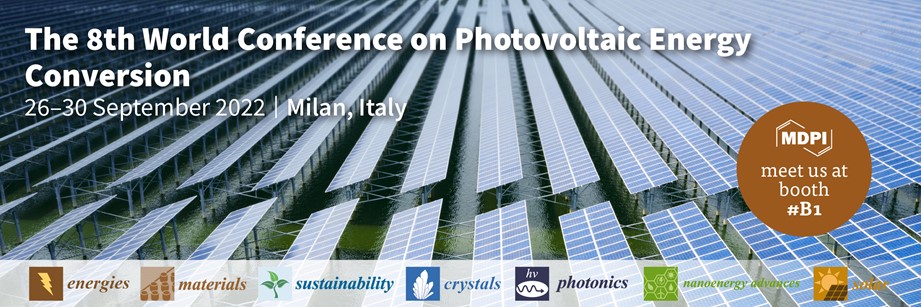
The Scientific Conference Programme is coordinated by the European Commission Joint Research Centre and covers the entire range of PV research, technologies and applications focusing on bringing the latest scientific and technological research trends to the market.
It also offers a variety of broader insights into the current developments in the sector, acknowledging that PV integration needs to be approached from all dimensions—scientific, technical, economic, political, business, and also social and educational aspects.
The Programme is structured in plenary, oral, and visual presentations and is divided into 5 topics. These cover the entire range of PV research, technologies, and applications, with a special emphasis on the latest scientific, technological, and market-related trends.
During this conference, MDPI (at booth #B1) will welcome researchers from different backgrounds to visit and share their latest inspirations with us.
The following MDPI journals will be represented:
- Energies (leading journal);
- Materials (leading journal);
- Sustainability;
- Crystals;
- Photonics;
- Nanoenergy Advances;
- Solar.
If you plan on attending this conference, feel free to stop by our booth at #B1. Our delegates look forward to meeting you in person to answer any questions you may have.
For more information about the conference, please see the following link: https://www.wcpec-8.com/index.php.
25 August 2022
Materials Webinar | Nanomaterials Saving the Environment: World Researchers Coming Together, 19 September 2022
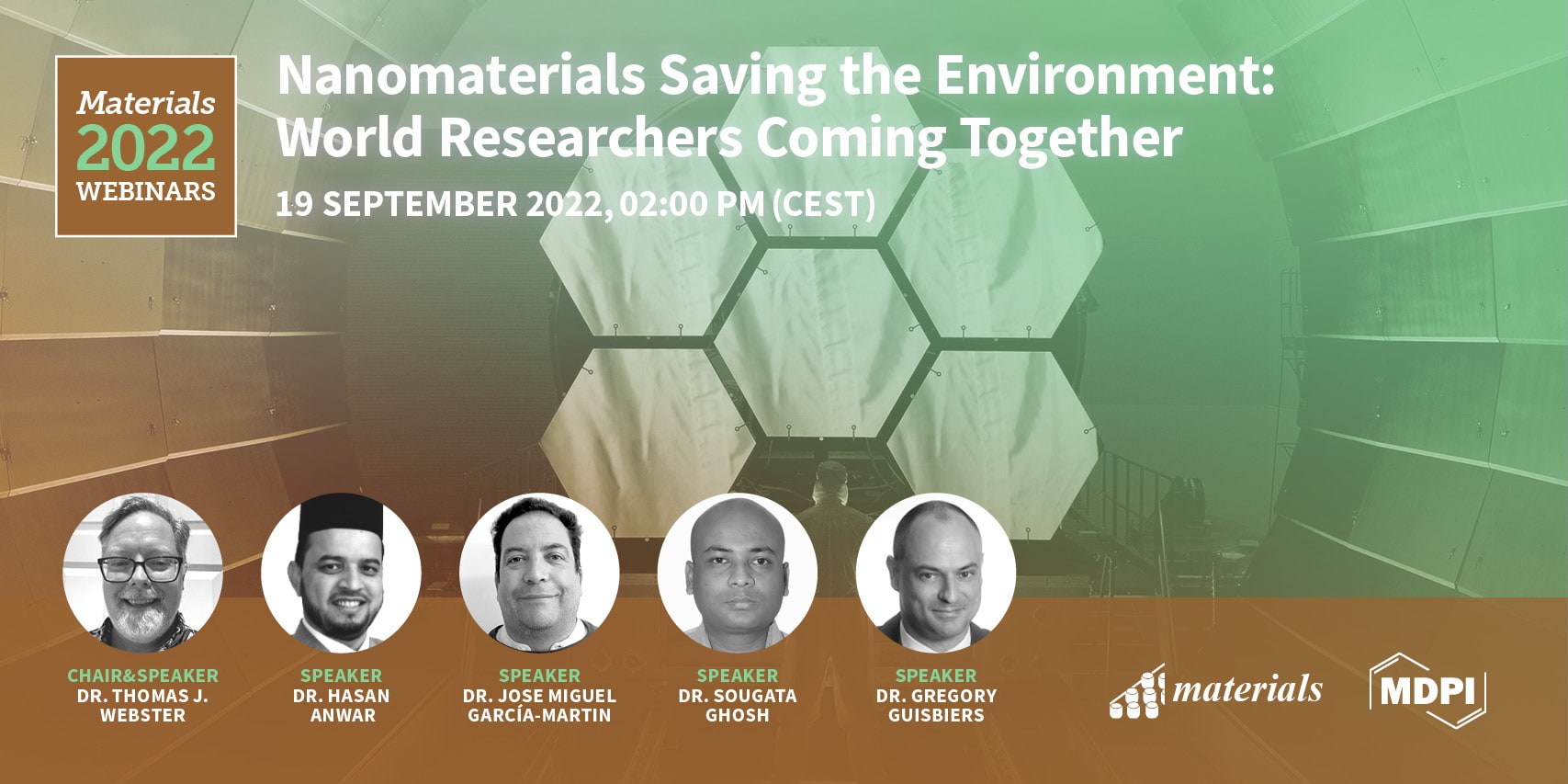
Date: 19 September 2022
Time: 2:00 p.m. CEST | 8:00 a.m. EDT | 8:00 p.m. CST Asia
Webinar ID: 830 1209 2867
Register here: https://us02web.zoom.us/webinar/register/4016602954991/WN_-RdHcpdORoOC8U6WkbIyJg
Participation fee: None
Language: English
Webinar keywords: nanomaterials; nanotechnology; environmental; energy; CO2 emissions; sustainability
Related Special Issues:
“Advances in Synthesis, Properties and Application of Nanomaterials”;
“Nanoparticles for Biophotonics and Nanomedicine”.
Webinar Chair and Speakers:
Chair:

Dr. Thomas Webster
Department of Biomedical Engineering and Health Sciences, Hebei University of Technology, Tianjin, China
Speakers:
|
Dr. Hasan Anwar Associate Professor, Department of Mechanical and Industrial Engineering, and Biomedical Research Center, Qatar University, Doha, Qatar
|
|
Dr. Sougata Ghosh Department of Physics, Faculty of Science, Kasetsart University, Bangkok, Thailand;
|
|
Dr. Gregory Guisbiers Department of Physics and Astronomy at the University of Arkansas at Little Rock, Little Rock, AK, USA
|
|
Dr. Jose Miguel García-Martin Institute of Micro and Nanotechnology, CSIC, Madrid, Spain |
If you have any questions about this webinar, please contact [email protected].
We look forward to your participation in this event.
Materials Editorial Office
20 July 2022
Meet Us at the 49th World Polymers Congress MACRO 2022, 17–21 July 2022, Winnipeg, Canada
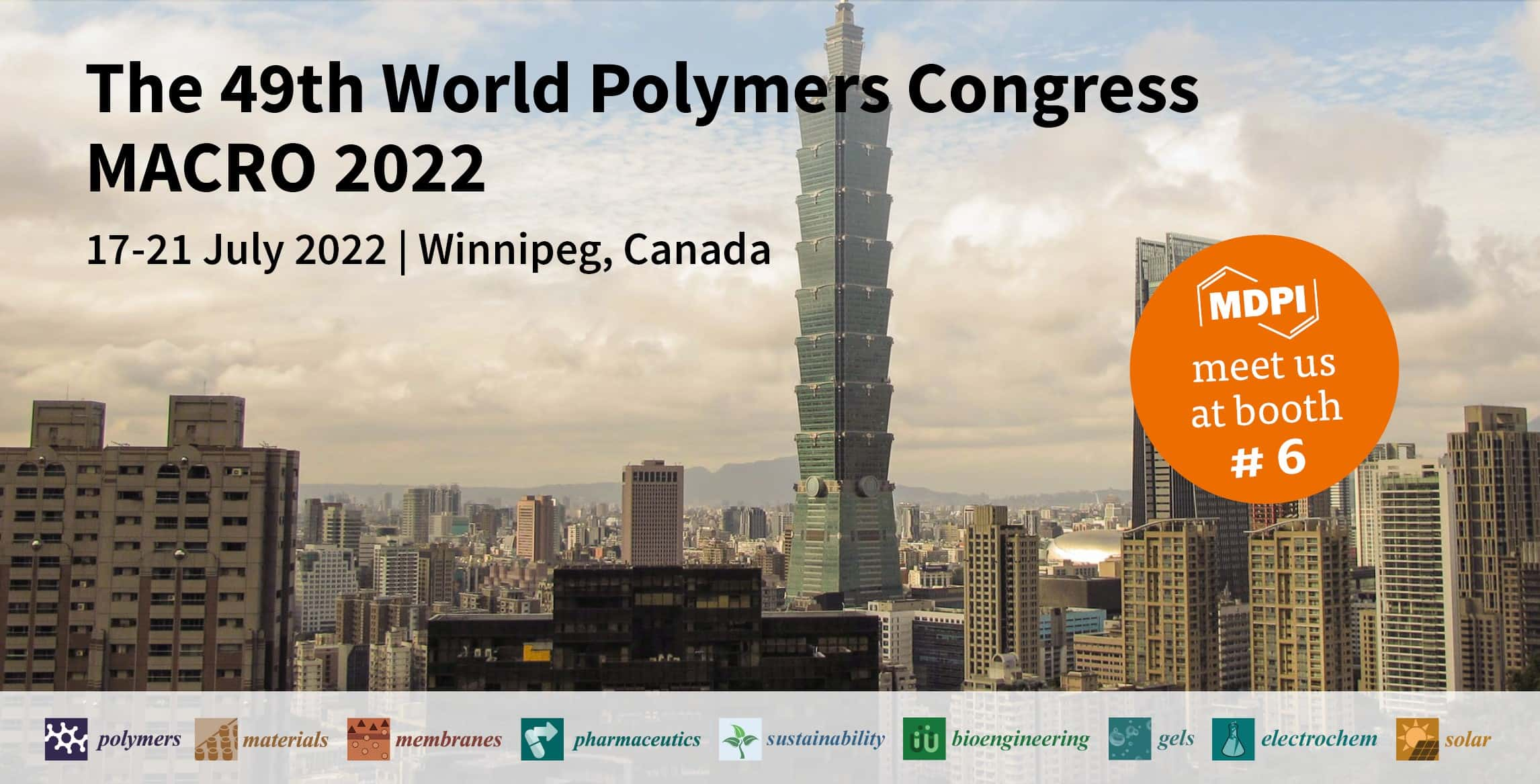
Conference: 49th World Polymers Congress MACRO 2022
Date: 17–21 July 2022
Place: Winnipeg, Canada
Booth: #6
Polymers (ISSN: 2073-4360) and Materials (ISSN: 1996-1944) will be attending the 49th World Polymers Congress MACRO 2022 as exhibitors from 17 to 21 July 2022 in Winnipeg, Canada.
The year 2022 marks the first time that Canada is hosting the World Polymers Congress since it became a biennial event in 1998. The polymer science community of Canada looks forward to connecting at the 49th World Polymers Congress, which is held in the city of Winnipeg from 17 to 21 July 2022. True to its mission, MACRO 2022 will be a forum for international scientists and students who are in various stages of their career development to share knowledge and experiences.
The MACRO 2022 program comprises nine themes that represent the following subjects:
- Polymers for Biomedical Engineering;
- Polymers for Energy and Environmental Applications;
- Polymer Engineering and Rheology;
- Polymers for Nanotechnology;
- Polymer Physics and Characterization;
- Polymers from Renewable Resources and Biodegradable Polymers;
- Polymer Science Education;
- Polymer Synthesis and Kinetics;
- Smart and Functional Polymers.
The following MDPI journals will be represented:
- Polymers;
- Materials;
- Membranes;
- Pharmaceutics;
- Sustainability;
- Bioengineering;
- Gels;
- Electrochem;
- Solar.
Please do not hesitate to reach out if you plan on attending this conference. Our delegates look forward to meeting you in person and answering any questions that you might have.
For more information about the conference, please visit the following website: https://www.macro2022.org/.
19 July 2022
Materials | Best Oral Presentation Award for the 18th European Student Colloid Conference—Winner Announced
Materials (ISSN: 1996-1944) has sponsored the Best Oral Presentation Award for the 18th European Student Colloid Conference. The applications were processed by the Conference Committee. We are pleased to announce the winner, Mr. Tin Klačić.
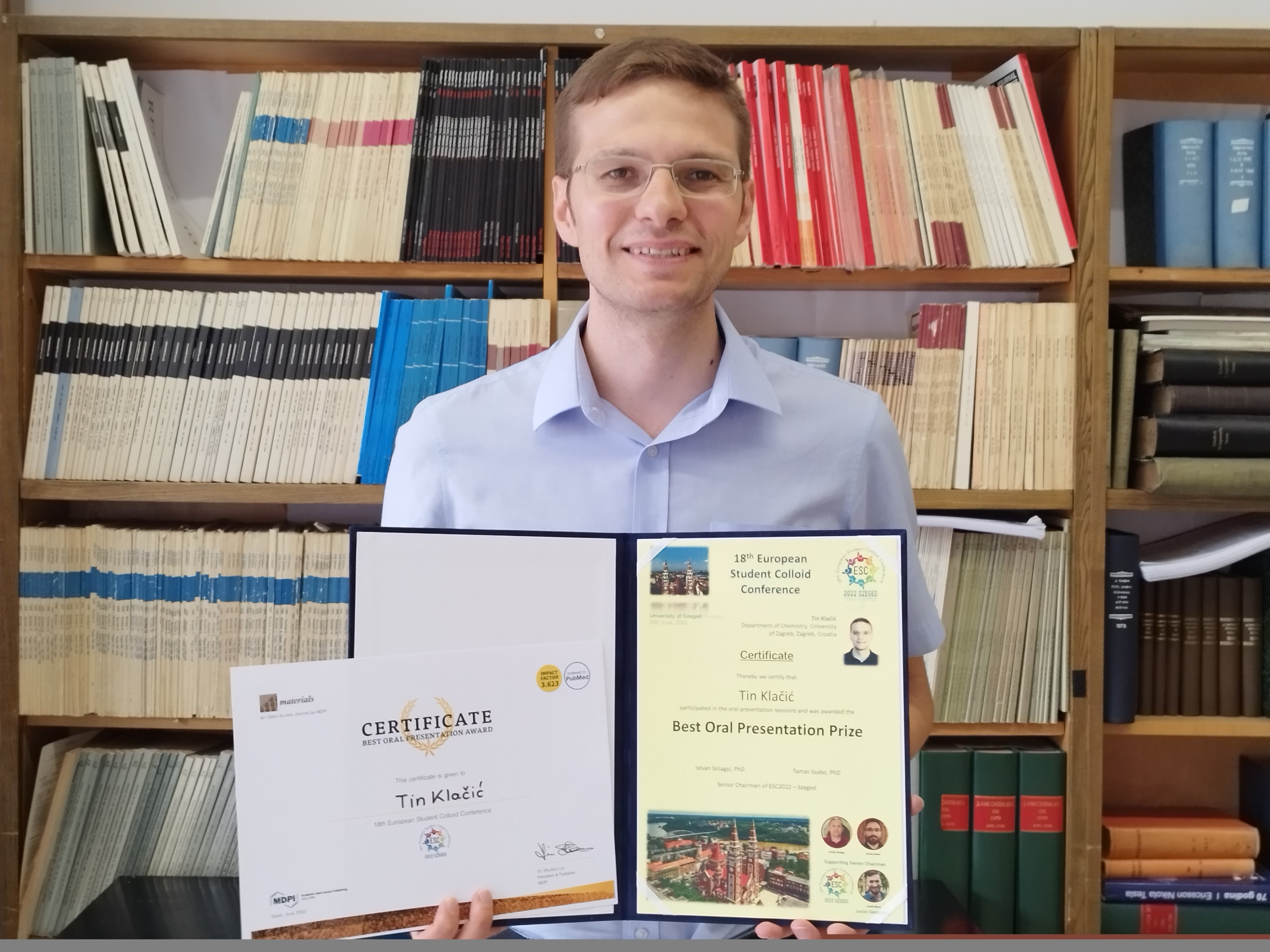
Mr. Tin Klačić graduated in the field of chemistry at the Faculty of Science, University of Zagreb, in 2017. Since then, he has been a Ph.D. student employed as an assistant at the Department of Chemistry, Faculty of Science in Zagreb. His teaching activities are at the Division of Physical Chemistry, where his work is connected to seminars and laboratory exercises in several physical chemistry courses for undergraduate and graduate students. The main areas of his scientific work are colloidal and interfacial chemistry, physical chemistry of macromolecules (especially polyelectrolytes), electrochemistry, and chemical kinetics. He has experience in using several instruments, such as atomic force microscopes, ellipsometers, contact angle goniometers, zetasizers, spectrophotometers, etc. His scientific results have been published in 10 articles in journals from the Current Contents selection and presented at 14 conferences. He has also published one professional paper.
We would like to congratulate Mr. Tin Klačić again for his accomplishments! If you are also interested in Materials’ Awards, please refer to https://www.mdpi.com/journal/materials/awards to apply or nominate someone else for an award.
7 July 2022
Meet Us at the International Conference of Non-Ferrous Materials 2022, 15–17 July 2022, Nanning, China
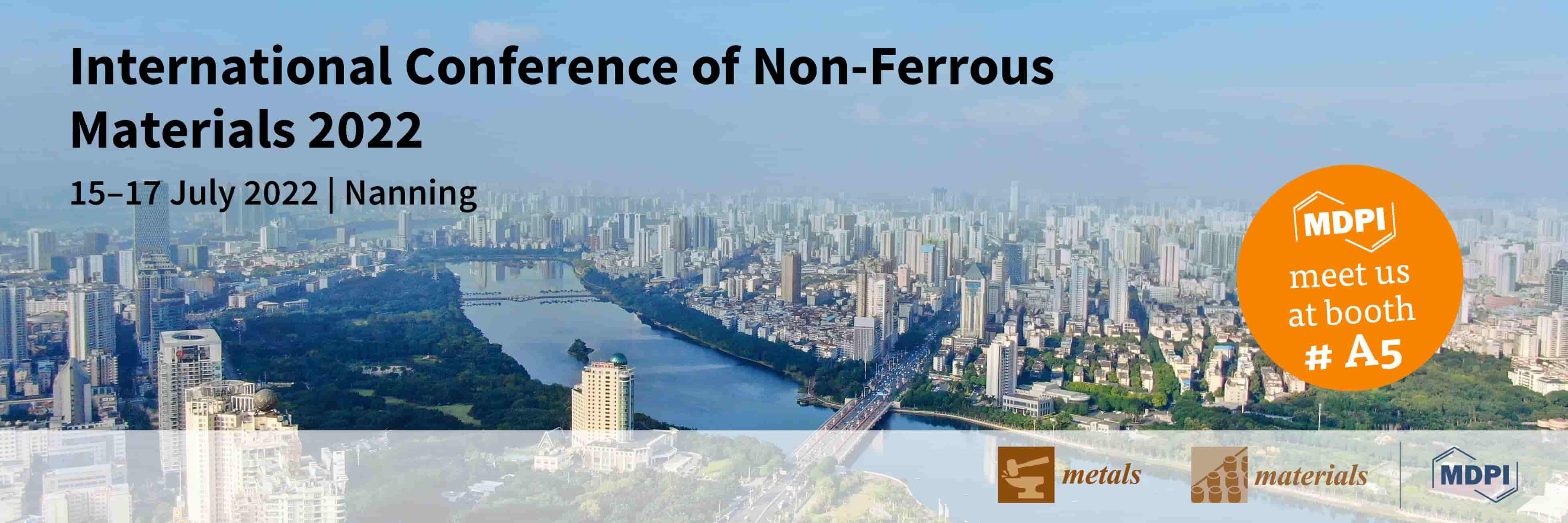
Conference: International Conference of Non-Ferrous Materials 2022
Date: 15–17 July 2022
Place: Nanning, China
Booth: #A5
Materials (ISSN: 1996-1944) and Metals (ISSN: 2075-4701) will be attending the International Conference of Non-Ferrous Materials 2022 as exhibitors from 15 to 17 July in Nanning, China.
The International Conference of Non-Ferrous Materials is an important academic conference in the field of non-ferrous materials, sponsored by the Nonferrous Metals Society of China and co-organized by universities, research institutes, and enterprises engaged in the non-ferrous metal industry. It is held once a year. The meeting objectives are for China to be engaged in non-ferrous metal materials science research, the development and industrialization of experts, scholars, professors, and scientific as well as technical workers, the management of the relevant government department leaders, entrepreneurs, and other relevant personnel to build a communication platform, share the latest research results of materials, achieve the purpose of promoting each other, improving together, and, additionally, to improve the status and role of new materials in China's national economy and social development.
The following MDPI journals will be represented:
- Materials;
- Metals;
- Technologies;
- QuBS;
- JMMP;
- Alloys.
Please do not hesitate to reach out if you plan on attending this conference. Our delegates look forward to meeting you in person and answering any questions that you might have.
For more information about the conference, please visit the following website: https://www.huiyi-123.com/article/278-179.html.
4 July 2022
Materials Receives Updated Impact Factor of 3.748
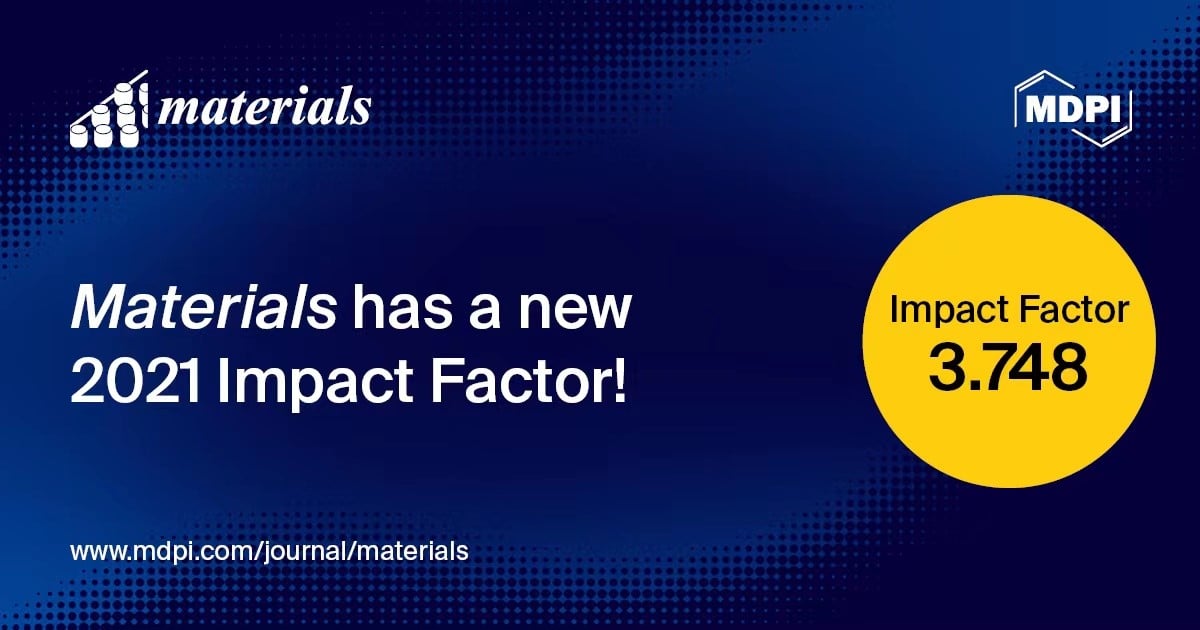
We are pleased to report that the 2021 Impact Factor of Materials increased to 3.748 in the recent release of the Journal Citation Reports ®. Materials (ISSN: 1996-1944) now ranks Q1 in the JCR “Metallurgy and Metallurgical Engineering” category. With the support of our scholars, the Impact Factor of Materials has grown steadily for 5 consecutive years.
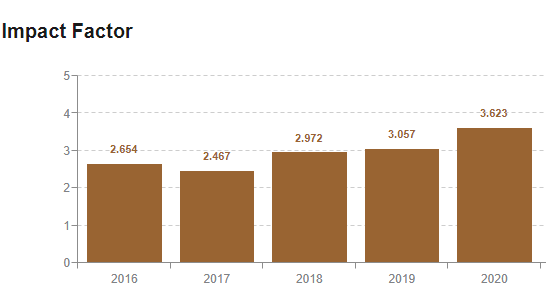
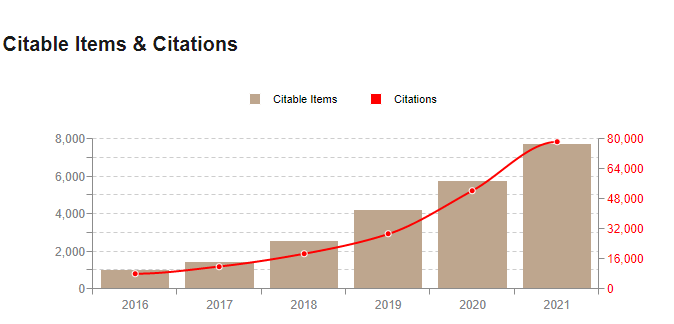
We would like to extend our sincerest gratitude to all the authors, reviewers, and editors who have contributed to the journal and helped us to reach this next big step.
For more information or to submit to our journal, please visit the following link: https://www.mdpi.com/journal/materials.
28 June 2022
2021 Impact Factors - Released
The 2021 citation metrics have been released in the Journal Citation Reports (JCR), and we’re pleased to announce the following results for MDPI journals:

| Journal | Impact Factor | Rank | Category |
| Antioxidants | 7.675 | Q1 | Food Science & Technology |
| Biochemistry & Molecular Biology | |||
| Chemistry, Medicinal | |||
| Cells | 7.666 | Q2 | Cell Biology |
| Nutrients | 6.706 | Q1 | Nutrition & Dietetics |
| Cancers | 6.575 | Q1 | Oncology |
| Pharmaceutics | 6.525 | Q1 | Pharmacology & Pharmacy |
| International Journal of Molecular Sciences | 6.208 | Q1 | Biochemistry & Molecular Biology |
| Q2 | Chemistry, Multidisciplinary | ||
| Marine Drugs | 6.085 | Q1 | Chemistry, Medicinal |
| Pharmacology & Pharmacy | |||
| Biomolecules | 6.064 | Q2 | Biochemistry & Molecular Biology |
| Batteries * | 5.938 | Q2 | Electrochemistry |
| Energy & Fuels | |||
| Materials Science, Multidisciplinary | |||
| Viruses | 5.818 | Q2 | Virology |
| Biosensors | 5.743 | Q1 | Chemistry, Analytical |
| Instruments & Instrumentation | |||
| Q2 | Nanoscience & Nanotechnology | ||
| Journal of Fungi | 5.724 | Q1 | Mycology |
| Q2 | Microbiology | ||
| Nanomaterials | 5.719 | Q1 | Physics, Applied |
| Q2 | Chemistry, Multidisciplinary | ||
| Materials Science, Multidisciplinary | |||
| Nanoscience & Nanotechnology | |||
| Metabolites | 5.581 | Q2 | Biochemistry & Molecular Biology |
| Foods | 5.561 | Q1 | Food Science & Technology |
| Drones * | 5.532 | Q2 | Remote Sensing |
| Remote Sensing | 5.349 | Q1 | Geosciences, Multidisciplinary |
| Imaging Science & Photographic Technology | |||
| Q2 | Remote Sensing | ||
| Environmental Sciences | |||
| Journal of Theoretical and Applied Electronic Commerce Research | 5.318 | Q2 | Business |
| Antibiotics | 5.222 | Q1 | Pharmacology & Pharmacy |
| Q2 | Infectious Diseases | ||
| Pharmaceuticals | 5.215 | Q1 | Pharmacology & Pharmacy |
| Q2 | Chemistry, Medicinal | ||
| Biology | 5.168 | Q1 | Biology |
| Fermentation | 5.123 | Q2 | Biotechnology & Applied Microbiology |
| Toxins | 5.075 | Q1 | Toxicology |
| Q2 | Food Science & Technology | ||
| Bioengineering * | 5.046 | Q2 | Engineering, Biomedical |
| Polymers | 4.967 | Q1 | Polymer Science |
| Journal of Clinical Medicine | 4.964 | Q2 | Medicine, General & Internal |
| Vaccines | 4.961 | Q2 | Immunology |
| Medicine, Research & Experimental | |||
| Molecules | 4.927 | Q2 | Chemistry, Multidisciplinary |
| Biochemistry & Molecular Biology | |||
| Microorganisms | 4.926 | Q2 | Microbiology |
| Journal of Functional Biomaterials * | 4.901 | Q2 | Engineering, Biomedical |
| Materials Science, Biomaterials | |||
| Biomedicines | 4.757 | Q2 | Medicine, Research & Experimental |
| Pharmacology & Pharmacy | |||
| Biochemistry & Molecular Biology | |||
| Plants | 4.658 | Q1 | Plant Sciences |
| International Journal of Environmental Research and Public Health | 4.614 | Q1 | Public, Environmental & Occupational Health (SSCI) |
| Q2 | Public, Environmental & Occupational Health (SCIE) | ||
| Environmental Sciences (SCIE) | |||
| Membranes | 4.562 | Q1 | Polymer Science |
| Q2 | Engineering, Chemical | ||
| Materials Science, Multidisciplinary | |||
| Chemistry, Physical | |||
| Pathogens | 4.531 | Q2 | Microbiology |
| Catalysts | 4.501 | Q2 | Chemistry, Physical |
| Toxics | 4.472 | Q2 | Toxicology |
| Environmental Sciences | |||
| Gels | 4.432 | Q1 | Polymer Science |
| Journal of Cardiovascular Development and Disease | 4.415 | Q2 | Cardiac & Cardiovascular Systems |
| Chemosensors | 4.229 | Q1 | Instruments & Instrumentation |
| Q2 | Chemistry, Analytical | ||
| Q3 | Electrochemistry | ||
| Genes | 4.141 | Q2 | Genetics & Heredity |
| Diagnostics | 3.992 | Q2 | Medicine, General & Internal |
| Agronomy | 3.949 | Q1 | Agronomy |
| Plant Sciences | |||
| Land | 3.905 | Q2 | Environmental Studies |
| Sustainability | 3.889 | Q2 | Environmental Sciences (SCIE) |
| Environmental Studies (SSCI) | |||
| Q3 | Green & Sustainable Science & Technology (SCIE) | ||
| Q4 | Green & Sustainable Science & Technology (SSCI) | ||
| Sensors | 3.847 | Q2 | Instruments & Instrumentation |
| Chemistry, Analytical | |||
| Engineering, Electrical & Electronic | |||
| Materials | 3.748 | Q1 | Metallurgy & Metallurgical Engineering |
| Q2 | Physics, Applied | ||
| Physics, Condensed Matter | |||
| Q3 | Materials Science, Multidisciplinary | ||
| Chemistry, Physical | |||
| Biomimetics * | 3.743 | Q2 | Engineering, Multidisciplinary |
| Q3 | Materials Science, Biomaterials | ||
| Tropical Medicine and Infectious Disease * | 3.711 | Q1 | Tropical Medicine |
| Q2 | Parasitology | ||
| Q3 | Infectious Diseases | ||
| Lubricants * | 3.584 | Q2 | Engineering, Mechanical |
| Fractal and Fractional | 3.577 | Q1 | Mathematics, Interdisciplinary Applications |
| Water | 3.530 | Q2 | Water Resources |
| Q3 | Environmental Sciences | ||
| Micromachines | 3.523 | Q2 | Instruments & Instrumentation |
| Physics, Applied | |||
| Chemistry, Analytical | |||
| Q3 | Nanoscience & Nanotechnology | ||
| Journal of Personalized Medicine | 3.508 | Q2 | Medicine, General & Internal |
| Health Care Sciences & Services | |||
| Agriculture | 3.408 | Q1 | Agronomy |
| Processes | 3.352 | Q2 | Engineering, Chemical |
| Separations | 3.344 | Q2 | Chemistry, Analytical |
| Magnetochemistry | 3.336 | Q2 | Chemistry, Inorganic & Nuclear |
| Q3 | Chemistry, Physical | ||
| Materials Science, Multidisciplinary | |||
| Brain Sciences | 3.333 | Q3 | Neurosciences |
| Buildings | 3.324 | Q2 | Construction & Building Technology |
| Engineering, Civil | |||
| Forests | 3.282 | Q1 | Forestry |
| Energies | 3.252 | Q3 | Energy & Fuels |
| Life | 3.251 | Q2 | Biology |
| Coatings | 3.236 | Q2 | Materials Science, Coatings & Films |
| Physics, Applied | |||
| Q3 | Materials Science, Multidisciplinary | ||
| Animals | 3.231 | Q1 | Agriculture, Dairy & Animal Science |
| Veterinary Sciences | |||
| Journal of Intelligence * | 3.176 | Q2 | Psychology, Multidisciplinary |
| Fishes | 3.170 | Q1 | Marine & Freshwater Biology |
| Q2 | Fisheries | ||
| Healthcare | 3.160 | Q2 | Health Policy & Services (SSCI) |
| Health Care Sciences & Services (SCIE) | |||
| Inorganics * | 3.149 | Q2 | Chemistry, Inorganic & Nuclear |
| Insects | 3.139 | Q1 | Entomology |
| Atmosphere | 3.110 | Q3 | Meteorology & Atmospheric Sciences |
| Environmental Sciences | |||
| Current Oncology | 3.109 | Q3 | Oncology |
| ISPRS International Journal of Geo-Information | 3.099 | Q2 | Geography, Physical |
| Q3 | Computer Science, Information Systems | ||
| Remote Sensing | |||
| Diversity | 3.029 | Q2 | Biodiversity Conservation |
| Ecology | |||
| Tomography | 3.000 | Q3 | Radiology, Nuclear Medicine & Medical Imaging |
| Current Issues in Molecular Biology | 2.976 | Q3 | Biochemistry & Molecular Biology |
| Medicina | 2.948 | Q3 | Medicine, General & Internal |
| Symmetry | 2.940 | Q2 | Multidisciplinary Sciences |
| Horticulturae | 2.923 | Q1 | Horticulture |
| Machines | 2.899 | Q2 | Engineering, Mechanical |
| Engineering, Electrical & Electronic | |||
| Systems * | 2.895 | Q2 | Social Sciences, Interdisciplinary |
| Applied Sciences | 2.838 | Q2 | Engineering, Multidisciplinary |
| Physics, Applied | |||
| Q3 | Chemistry, Multidisciplinary | ||
| Materials Science, Multidisciplinary | |||
| Children | 2.835 | Q2 | Pediatrics |
| Minerals | 2.818 | Q2 | Mining & Mineral Processing |
| Mineralogy | |||
| Geochemistry & Geophysics | |||
| Universe | 2.813 | Q2 | Astronomy & Astrophysics |
| Q3 | Physics, Particles & Fields | ||
| Journal of Marine Science and Engineering | 2.744 | Q1 | Engineering, Marine |
| Q2 | Oceanography | ||
| Engineering, Ocean | |||
| Entropy | 2.738 | Q2 | Physics, Multidisciplinary |
| Fire * | 2.726 | Q2 | Forestry |
| Q3 | Ecology | ||
| Metals | 2.695 | Q2 | Metallurgy & Metallurgical Engineering |
| Q3 | Materials Science, Multidisciplinary | ||
| Electronics | 2.690 | Q3 | Engineering, Electrical & Electronic |
| Computer Science, Information Systems | |||
| Physics, Applied | |||
| Crystals | 2.670 | Q2 | Crystallography |
| Q3 | Materials Science, Multidisciplinary | ||
| Aerospace | 2.660 | Q1 | Engineering, Aerospace |
| Mathematics | 2.592 | Q1 | Mathematics |
| Photonics | 2.536 | Q3 | Optics |
| Actuators | 2.523 | Q2 | Instruments & Instrumentation |
| Q3 | Engineering, Mechanical | ||
| Veterinary Sciences | 2.518 | Q2 | Veterinary Sciences |
| Behavioral Sciences * | 2.286 | Q3 | Psychology, Multidisciplinary |
| Axioms * | 1.824 | Q2 | Mathematics, Applied |
For more information on Impact Factors and what it means to index academic journals, please visit our related blog posts.
* Journals given their first Impact Factor in 2022
Source: 2021 Journal Impact Factors, Journal Citation Reports TM (Clarivate, 2022)
27 June 2022
MDPI’s 2021 Young Investigator Awards in “Chemistry & Materials Sciences”—Winners Announced
MDPI’s Young Investigator Awards recognize promising junior researchers, acknowledge their contributions, and enhance communication among scientists. We are proud to present the winners for the year 2021 in the “Chemistry & Materials Sciences” category. The winners were selected by the journals’ editors.
We warmly congratulate the awarded Young Investigators for their outstanding contributions.
MDPI will continue to provide support and recognition to the academic community.
- Marta Mohedano, Complutense University of Madrid-UCM, Spain
- Edoardo Baldini, Massachusetts Institute of Technology, USA
- Mauro Perfetti, University of Florence, Italy
- Xu Hou, Xiamen University, China
- Biplab Maji, Indian Institute of Science Education and Research Kolkata, India
- Andres Castellanos-Gomez, Instituto de Ciencia de los Materiales de Madrid, Spain
- Takuya Isono, Hokkaido University, Japan
- Panbo Liu, Northwestern Polytechnical University, China
27 June 2022
MDPI’s 2021 Outstanding Reviewer Awards in “Chemistry & Materials Sciences”—Winners Announced
In order to acknowledge our reviewers, who so generously dedicate their time to reviewing papers and demonstrate diligence, professionalism, and timeliness when reviewing manuscripts, MDPI journals regularly offer outstanding reviewer awards to scholars who participate in the peer-review process.
We are proud to recognize the winners for the year 2021 in the “Chemistry & Materials Sciences” category for their outstanding contributions among extensive competition by presenting them with the Outstanding Reviewer Award.
We would like to take this opportunity to congratulate all the winners on their achievement.
MDPI will continue to provide support and recognition to the academic community.
- Rahat Javaid, Fukushima Renewable Energy Institute, Japan
- Georgios Bampos, University of Patras, Greece
- Esmail Doustkhah, National Institute for Materials Science (NIMS), Japan
- Pawan Kumar, University of Alberta, Canada
- Lorenzo Sorace, Università degli Studi di Firenze, Italy
- Khaled Giasin, University of Portsmouth, UK
- Oldrich Sucharda, VSB-Technical University of Ostrava, Czech Republic
- Danil Pimenov, South Ural State University, Russia
- Marián Palcut, Slovak University of Technology in Bratislava, Slovakia
- Khaled Giasin, University of Portsmouth, UK
- Catalin Pruncu, University of Strathclyde, UK
- Jacek Tomków, Gdańsk University of Technology, Poland
- Alexander Yu Churyumov, National University of Science and Technology (MISiS), Russia
- Hesam Pouraliakbar, Chungnam National University, South Korea
- George Kenanakis, Foundation for Research and Technology-Hellas, Greece
- Goshtasp Cheraghian, Technische Universität Braunschweig, Germany
- Oana Cadar, Research Institute for Analytical Instrumentation, Romania
- Sawsan A. Zaitone, Suez Canal University, Saudi Arabia
- Lucia Baldino, University of Salerno Via Giovanni Paolo II, Fisciano (SA) Italy
- Gyorgy Szekely, University of Manchester, UK
- Bin Jiang, Northeast Agricultural University, China
- Haibao Lu, Harbin Institute of Technology, China
27 June 2022
MDPI’s 2021 Best Paper Awards in “Chemistry & Materials Sciences”—Winners Announced
The purpose of our Best Paper Awards is to promote and recognize the most impactful contributions published within MDPI journals.
The editors of each journal carefully selected reviews and research papers through a rigorous judging process based on criteria such as the scientific merit, overall impact, and the quality of presentation of the papers published in the journal last year.
We are honored to present the winners in the “Chemistry & Materials Sciences” category, who were selected amongst the extensive competition, and congratulate the authors for their outstanding scientific publications.
MDPI will continue to provide support and recognition to the academic community.
C — Journal of Carbon Research:
- “Activated Carbons Derived from High-Temperature Pyrolysis of Lignocellulosic Biomass”
by Cristian I. Contescu, Shiba P. Adhikari, Nidia C. Gallego, Neal D. Evans and Bryan E. Biss
C 2018, 4(3), 51; doi:10.3390/c4030051
- “Hydrogen Oxidation on Ni-Based Electrocatalysts: The Effect of Metal Doping”
by Elena S. Davydova, Jérémie Zaffran, Kapil Dhaka, Maytal Caspary Toroker and Dario R. Dekel
Catalysts 2018, 8(10), 454; doi:10.3390/catal8100454 - “Photocatalytic Hydrogen Production: Role of Sacrificial Reagents on the Activity of Oxide, Carbon, and Sulfide Catalysts”
by Vignesh Kumaravel, Muhammad Danyal Imam, Ahmed Badreldin, Rama Krishna Chava, Jeong Yeon Do, Misook Kang and Ahmed Abdel-Wahab
Catalysts 2019, 9(3), 276; doi:10.3390/catal9030276 - “A General Overview of Support Materials for Enzyme Immobilization: Characteristics, Properties, Practical Utility”
by Jakub Zdarta, Anne S. Meyer, Teofil Jesionowski and Manuel Pinelo
Catalysts 2018, 8(2), 92; doi:10.3390/catal8020092 - “Mechanistic Insights into Photodegradation of Organic Dyes Using Heterostructure Photocatalysts”
by Yi-Hsuan Chiu, Tso-Fu Mark Chang, Chun-Yi Chen, Masato Sone and Yung-Jung Hsu
Catalysts 2019, 9(5), 430; doi:10.3390/catal9050430
- “Chemical Preparation Routes and Lowering the Sintering Temperature of Ceramics”
by Philippe Colomban
Ceramics 2020, 3(3), 312–339; doi:10.3390/ceramics3030029
- “State of the Art in Directed Energy Deposition: From Additive Manufacturing to Materials Design”
by Adrita Dass and Atieh Moridi
Coatings 2019, 9(7), 418; doi:10.3390/coatings9070418 - “Encapsulation of Organic and Perovskite Solar Cells: A Review”
by Ashraf Uddin, Mushfika Baishakhi Upama, Haimang Yi and Leiping Duan
Coatings 2019, 9(2), 65; doi:10.3390/coatings9020065 - “Poly (Lactic Acid)/Thermoplastic Starch Films: Effect of Cardoon Seed Epoxidized Oil on Their Chemicophysical, Mechanical, and Barrier Properties”
by Rosa Turco, Rodrigo Ortega-Toro, Riccardo Tesser, Salvatore Mallardo, Sofia Collazo-Bigliardi, Amparo Chiralt Boix, Mario Malinconico, Massimo Rippa, Martino Di Serio and Gabriella Santagata
Coatings 2019, 9(9), 574; doi:10.3390/coatings9090574 - “Physical and Morphological Characterization of Chitosan/Montmorillonite Films Incorporated with Ginger Essential Oil”
by Victor Gomes Lauriano Souza, João Ricardo Afonso Pires, Carolina Rodrigues, Patricia Freitas Rodrigues, Andréia Lopes, Rui Jorge Silva, Jorge Caldeira, Maria Paula Duarte, Francisco Braz Fernandes, Isabel Maria Coelhoso and Ana Luisa Fernando
Coatings 2019, 9(11), 700; doi:10.3390/coatings9110700 - “Application and Evaluation of a Pectin-Based Edible Coating Process for Quality Change Kinetics and Shelf-Life Extension of Lime Fruit (Citrus aurantifolium)”
by Neda Maftoonazad and Hosahalli S. Ramaswamy
Coatings 2019, 9(5), 285; doi:10.3390/coatings9050285
- “Crystal and Magnetic Structures in Layered, Transition Metal Dihalides and Trihalides”
by Michael A. McGuire
Crystals 2017, 7(5), 121; doi:10.3390/cryst7050121 - “σ-Hole Interactions: Perspectives and Misconceptions”
by Peter Politzer and Jane S. Murray
Crystals 2017, 7(7), 212; doi:10.3390/cryst7070212 - “σ-Hole Interactions of Covalently-Bonded Nitrogen, Phosphorus and Arsenic: A Survey of Crystal Structures”
by Peter Politzer, Jane S. Murray, Goran V. Janjić and Snežana D. Zarić
Crystals 2014, 4(1), 12-31; doi:10.3390/cryst4010012 - “Epitaxial Graphene on SiC: A Review of Growth and Characterization”
by Gholam Reza Yazdi, Tihomir Iakimov and Rositsa Yakimova
Crystals 2016, 6(5), 53; doi:10.3390/cryst6050053
- “A Clock Transition in the Cr7Mn Molecular Nanomagnet”
by Charles A. Collett, Kai-Isaak Ellers, Nicholas Russo, Kevin R. Kittilstved, Grigore A. Timco, Richard E. P. Winpenny and Jonathan R. Friedman
Magnetochemistry 2019, 5(1), 4; doi:10.3390/magnetochemistry5010004 - “A Series of Field-Induced Single-Ion Magnets Based on the Seven-Coordinate Co(II) Complexes with the Pentadentate (N3O2) H2dapsc Ligand”
by Vyacheslav A. Kopotkov, Denis V. Korchagin, Valentina D. Sasnovskaya, Ildar F. Gilmutdinov and Eduard B. Yagubskii
Magnetochemistry 2019, 5(4), 58; doi:10.3390/magnetochemistry5040058 - “Magnetic Janus Particles for Static and Dynamic (Bio)Sensing”
by Susana Campuzano, Maria Gamella, Verónica Serafín, María Pedrero, Paloma Yáñez-Sedeño and José Manuel Pingarrón
Magnetochemistry 2019, 5(3), 47; doi:10.3390/magnetochemistry5030047
- “Composite Membranes for High Temperature PEM Fuel Cells and Electrolysers: A Critical Review”
by Xinwei Sun, Stian Christopher Simonsen, Truls Norby and Athanasios Chatzitakis
Membranes 2019, 9(7), 83; doi:10.3390/membranes9070083
- “Transport Characteristics of Fujifilm Ion-Exchange Membranes as Compared to Homogeneous Membranes AMX and CMX and to Heterogeneous Membranes MK-40 and MA-41”
by Veronika Sarapulova, Inna Shkorkina, Semyon Mareev, Natalia Pismenskaya, Natalia Kononenko, Christian Larchet, Lasaad Dammak and Victor Nikonenko
Membranes 2019, 9(7), 84; doi:10.3390/membranes9070084
- “Nanomaterials for the Removal of Heavy Metals from Wastewater”
by Jinyue Yang, Baohong Hou, Jingkang Wang, Beiqian Tian, Jingtao Bi, Na Wang, Xin Li and Xin Huang
Nanomaterials 2019, 9(3), 424; doi:10.3390/nano9030424 - “Injectable Alginate-Peptide Composite Hydrogel as a Scaffold for Bone Tissue Regeneration”
Moumita Ghosh, Michal Halperin-Sternfeld, Itzhak Grinberg and Lihi Adler-Abramovich
Nanomaterials 2019, 9(4), 497; doi:10.3390/nano9040497 - “Carbon Dots and Graphene Quantum Dots in Electrochemical Biosensing”
by Susana Campuzano, Paloma Yáñez-Sedeño and José M. Pingarrón
Nanomaterials 2019, 9(4), 634; doi:10.3390/nano9040634 - “A Smart Nanovector for Cancer Targeted Drug Delivery Based on Graphene Quantum Dots”
by Daniela Iannazzo, Alessandro Pistone, Consuelo Celesti, Claudia Triolo, Salvatore Patané, Salvatore V. Giofré, Roberto Romeo, Ida Ziccarelli, Raffaella Mancuso, Bartolo Gabriele, Giuseppa Visalli, Alessio Facciolà and Angela Di Pietro
Nanomaterials 2019, 9(2), 282; doi:10.3390/nano9020282 - “Evolution of Wearable Devices with Real-Time Disease Monitoring for Personalized Healthcare”
by Kyeonghye Guk, Gaon Han, Jaewoo Lim, Keunwon Jeong, Taejoon Kang, Eun-Kyung Lim and Juyeon Jung
Nanomaterials 2019, 9(6), 813; doi:10.3390/nano9060813 - “An Ultra-High-Energy Density Supercapacitor; Fabrication Based on Thiolfunctionalized Graphene”
by Janardhanan. R. Rani, Ranjith Thangavel, Se-I Oh, Yun Sung Lee and Jae-Hyung Jang
Nanomaterials 2019, 9(2), 148; doi:10.3390/nano9020148
- “The Relationships between the Working Fluids, Process Characteristics and Products from the Modified Coaxial Electrospinning of Zein”
by Menglong Wang, Tao Hai, Zhangbin Feng, Deng-Guang Yu, Yaoyao Yang and SW Annie Bligh
Polymers 2019, 11(8), 1287; doi:10.3390/polym11081287 - “Design of Controlled Release System for Paracetamol Based on Modified Lignin”
by Mahboubeh Pishnamazi, Hamid Hafizi, Saeed Shirazian, Mario Culebras, Gavin M. Walker and Maurice N. Collins
Polymers 2019, 11(6), 1059; doi:10.3390/polym11061059 - “Additive Manufacturing of PLA-Based Composites Using Fused Filament Fabrication: Effect of Graphene Nanoplatelet Reinforcement on Mechanical Properties, Dimensional Accuracy and Texture”
by Miguel Ángel Caminero, Jesús Miguel Chacón, Eustaquio García-Plaza, Pedro José Núñez, José María Reverte and Jean Paul Becar
Polymers 2019, 11(5), 799; doi:10.3390/polym11050799 - “Fiber-Reinforced Polymer Composites: Manufacturing, Properties, and Applications”
by Miguel Ángel Caminero, Jesús Miguel Chacón, ,Eustaquio García-Plaza, Pedro José Núñez, José María Reverte and Jean Paul Becar
Polymers 2019, 11(10), 1667; doi:10.3390/polym11101667
27 June 2022
MDPI’s 2021 Travel Awards in “Chemistry & Materials Sciences”—Winners Announced
We are proud to recognize the winners of MDPI’s 2021 Travel Awards in the “Chemistry & Materials Sciences” category for their outstanding presentations.
MDPI journals regularly offer travel awards to encourage talented junior scientists to present their latest research at academic conferences in specific fields, which helps to increase their influence.
The winners mentioned below were carefully selected by the journal editors based on an outline of their research and the work to be presented at an academic conference.
We would like to warmly congratulate the winners of Travel Awards for the year 2021 and wish them the greatest success with their future research endeavors.
MDPI will continue to enhance communication among scientists.
- Gaojun Mao, Paul Scherrer Institute, Switzerland
- Lidia Bofill Herrera, University of Barcelona, Spain
Gels:
- Demetra Giuri, University of Bologna, Italy
- Martina Genta, Imperial College London, UK
Journal of Functional Biomaterials:
- Anushree Seth, Washington University, USA
- Fabio Ferreira, University of Coimbra, Portugal
- Giulia Serrano, University of Florence, Italy
- Giulia Fredi, University of Trento, Italy
- Mattia Biesuz, Czech Academy of Science, Czech Republic
- Adriana Eres-Castellanos, Spanish National Center for Metallurgical Research, Spain
- Pavel Shurkin, National University of Science and Technology, Russia
- Aleksandrs Leitis, École polytechnique fédérale de Lausanne, France
- Ekaterina Kolesova, ITMO, Russia
- Christoph Gstoettner, Leiden University Medical Center, the Netherlands
27 June 2022
Materials Receives Updated CiteScore of 4.7

It is our great pleasure to announce that Materials (ISSN 1996-1944) has received an increased CiteScore of 4.7 for 2021 (an increase of 11.9% from last year). Materials now ranks Q2 (135/411) in the “Physics and Astronomy: Condensed Matter Physics” category and Q2 (159/455) in the “Materials Science: General Materials Science” category. With the support of our scholars, the CiteScore of Materials journals has grown steadily for 3 consecutive years.
We would like to extend our sincerest gratitude to all the authors, reviewers, and editors who have contributed to the journal and helped us reach this next big step!
For more information or to submit to our journal, please visit the following link: https://www.mdpi.com/journal/materials.
24 June 2022
Meet Us at the 9th Forum on New Materials (CIMTEC 2022), 25–29 June 2022, Perugia, Italy
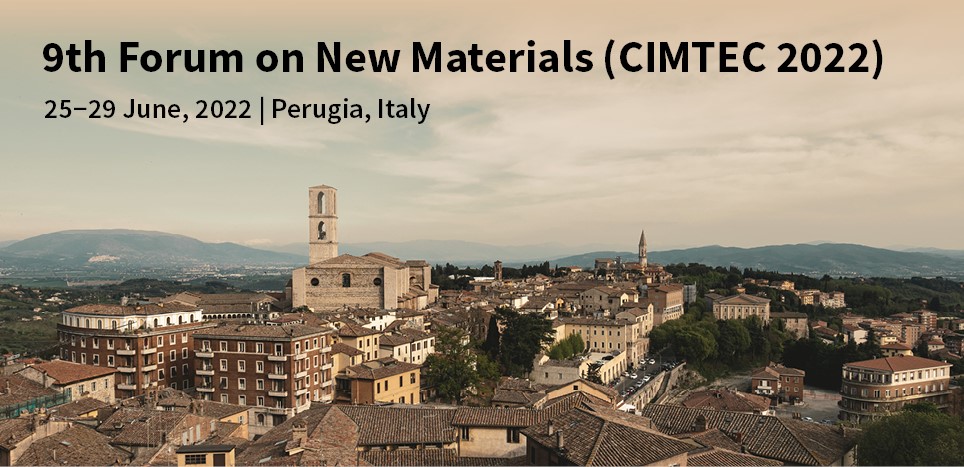
Conference: 9th Forum on New Materials (CIMTEC 2022)
Date: 25–29 June 2022
Place: Perugia, Italy
Materials (ISSN: 1996-1944) will be attending CIMTEC 2022 as an exhibitor from 25 to 29 June in Perugia, Italy.
CIMTEC 2022, which celebrated its 50th birthday in 2021, is a major longstanding event for the international materials community. CIMTEC brings together materials scientists, physicists, chemists, and experts in the most demanding application engineering areas of modern materials, from the molecular scale and the nanoscale to large complex integrated systems.
The following MDPI journals will be represented:
- Materials;
- Machines;
- Nanomaterials;
- Processes;
- Sci;
- Sensors.
Please do not hesitate to reach out if you plan on attending this conference. Our delegates look forward to meeting you in person and answering any questions you might have.
For more information about the conference and our virtual booth, please visit the following website: http://2022.cimtec-congress.org/.
9 June 2022
2021 CiteScores - Released
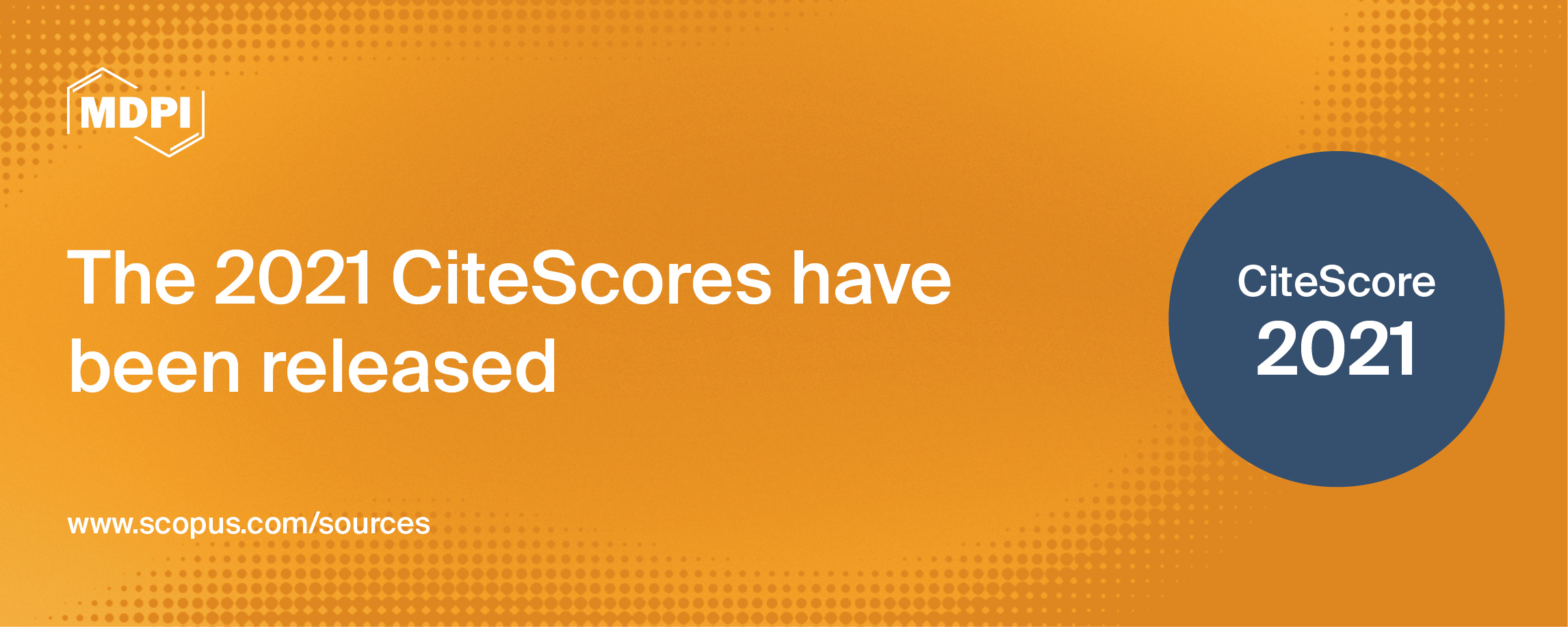
The 2021 citation metrics have been officially released in Scopus!
We are pleased to announce that 182 MDPI journals are included, of which:
● 21 journals received their first CiteScore.
● 85% of journals increased their CiteScore from 2020.
● 155 journals (85%) ranked above average, in at least one category.
The following 65 MDPI journals (36%) ranked among the top 25% of journals, in at least one category:
|
Journal |
CiteScore |
Quartile |
Category |
|
10.1 |
Q1 |
Genetics |
|
|
10.0 |
Q1 |
Biomedical Engineering |
|
|
8.1 |
Q1 |
Pharmacology, Toxicology and Pharmaceutics (miscellaneous) |
|
|
7.9 |
Q1 |
Electrical and Electronic Engineering |
|
|
7.9 |
Q1 |
Nutrition and Dietetics |
|
|
7.4 |
Q1 |
General Earth and Planetary Sciences |
|
|
7.2 |
Q1 |
Computer Science Applications |
|
|
6.9 |
Q1 |
Inorganic Chemistry |
|
|
6.9 |
Q1 |
Computer Networks and Communications |
|
|
6.7 |
Q1 |
General Biochemistry, Genetics and Molecular Biology |
|
|
6.6 |
Q1 |
General Chemical Engineering |
|
|
6.6 |
Q1 |
Health, Toxicology and Mutagenesis |
|
|
6.6 |
Q1 |
Infectious Diseases |
|
|
6.5 |
Q1 |
Food Science |
|
|
6.5 |
Q1 |
Civil and Structural Engineering |
|
|
6.4 |
Q1 |
Nature and Landscape Conservation |
|
|
6.4 |
Q1 |
Instrumentation |
|
|
6.1 |
Q1 |
Management Information Systems |
|
|
5.9 |
Q1 |
Chemistry (miscellaneous) |
|
|
5.7 |
Q1 |
Polymers and Plastics |
|
|
5.6 |
Q1 |
Engineering (miscellaneous) |
|
|
5.5 |
Q1 |
General Environmental Science |
|
|
5.5 |
Q1 |
Urban Studies |
|
|
5.4 |
Q2 |
Computer Networks and Communications |
|
|
5.3 |
Q1 |
Food Science |
|
|
5.3 |
Q1 |
Plant Science |
|
|
5.2 |
Q1 |
Ecology, Evolution, Behavior and Systematics |
|
|
5.2 |
Q1 |
General Engineering |
|
|
Journal of Open Innovation: Technology, Market, and Complexity |
5.1 |
Q1 |
Development |
|
5.0 |
Q1 |
Chemistry (miscellaneous) |
|
|
5.0 |
Q1 |
Control and Optimization |
|
|
5.0 |
Q1 |
Geography, Planning and Development |
|
|
5.0 |
Q1 |
Geography, Planning and Development |
|
|
4.9 |
Q1 |
Forestry |
|
|
4.9 |
Q1 |
Control and Optimization |
|
|
4.9 |
Q1 |
Soil Science |
|
|
4.8 |
Q1 |
General Earth and Planetary Sciences |
|
|
4.8 |
Q1 |
Mechanical Engineering |
|
|
4.8 |
Q1 |
Public Health, Environmental and Occupational Health |
|
|
4.8 |
Q1 |
Geography, Planning and Development |
|
|
International Journal of Environmental Research and Public Health |
4.5 |
Q1 |
Public Health, Environmental and Occupational Health |
|
4.5 |
Q1 |
Physical Therapy, Sports Therapy and Rehabilitation |
|
|
4.4 |
Q1 |
Mathematical Physics |
|
|
4.4 |
Q1 |
General Medicine |
|
|
4.3 |
Q1 |
General Mathematics |
|
|
4.2 |
Q1 |
Surgery |
|
|
4.1 |
Q1 |
Health Professions (miscellaneous) |
|
|
4.1 |
Q1 |
Plant Science |
|
|
4.0 |
Q1 |
General Engineering |
|
|
4.0 |
Q1 |
Forestry |
|
|
4.0 |
Q1 |
Education |
|
|
3.9 |
Q1 |
General Pharmacology, Toxicology and Pharmaceutics |
|
|
3.9 |
Q1 |
Applied Mathematics |
|
|
3.8 |
Q1 |
Development |
|
|
3.8 |
Q1 |
Architecture |
|
|
3.8 |
Q1 |
Metals and Alloys |
|
|
3.5 |
Q1 |
Communication |
|
|
3.4 |
Q1 |
General Social Sciences |
|
|
2.9 |
Q1 |
General Mathematics |
|
|
2.8 |
Q1 |
Analysis |
|
|
2.7 |
Q1 |
General Veterinary |
|
|
2.6 |
Q1 |
Algebra and Number Theory |
|
|
1.8 |
Q1 |
Conservation |
|
|
1.0 |
Q1 |
Religious Studies |
|
|
0.9 |
Q1 |
Philosophy |
Source: 2021 CiteScores™ (Elsevier)
7 June 2022
Materials | Top 10 Cited Papers in 2021 in the Section “Advanced Nanomaterials and Nanotechnology”
The following are the 2021 top 10 cited papers from the Section “Advanced Nanomaterials and Nanotechnology” of Materials (ISSN: 1996-1944):
1. “Whither Magnetic Hyperthermia? A Tentative Roadmap”
Rubia-Rodríguez, I.; Santana-Otero, A.; Spassov, S.; Tombácz, E.; Johansson, C.; De La Presa, P.; Teran, F.J.; Morales, M.d.P.; Veintemillas-Verdaguer, S.; Thanh, N.T.K.; Besenhard, M.O.; Wilhelm, C.; Gazeau, F.; Harmer, Q.; Mayes, E.; Manshian, B.B.; Soenen, S.J.; Gu, Y.; Millán, Á.; Efthimiadou, E.K.; Gaudet, J.; Goodwill, P.; Mansfield, J.; Steinhoff, U.; Wells, J.; Wiekhorst, F.; Ortega, D.
Materials 2021, 14(4), 706. https://doi.org/10.3390/ma14040706
Full text available online: https://www.mdpi.com/1996-1944/14/4/706
2. “Charge Carrier Processes and Optical Properties in TiO2 and TiO2-Based Heterojunction Photocatalysts: A Review”
Lettieri, S.; Pavone, M.; Fioravanti, A.; Santamaria Amato, L.; Maddalena, P.
Materials 2021, 14(7), 1645. https://doi.org/10.3390/ma14071645
Full text available online: https://www.mdpi.com/1996-1944/14/7/1645
3. “Effect of UV Irradiation and TiO2-Photocatalysis on Airborne Bacteria and Viruses: An Overview”
Bono, N.; Ponti, F.; Punta, C.; Candiani, G.
Materials 2021, 14(5), 1075. https://doi.org/10.3390/ma14051075
Full text available online: https://www.mdpi.com/1996-1944/14/5/1075
4. “Polymer-Coated Magnetite Nanoparticles for Protein Immobilization”
Mylkie, K.; Nowak, P.; Rybczynski, P.; Ziegler-Borowska, M.
Materials 2021, 14(2), 248. https://doi.org/10.3390/ma14020248
Full text available online: https://www.mdpi.com/1996-1944/14/2/248
5. “The Effects of Various Concentrations of NaOH on the Inter-Particle Gelation of a Fly Ash Geopolymer Aggregate”
Abdullah, A.; Hussin, K.; Abdullah, M.M.A.B.; Yahya, Z.; Sochacki, W.; Razak, R.A.; Błoch, K.; Fansuri, H.
Materials 2021, 14(5), 1111. https://doi.org/10.3390/ma14051111
Full text available online: https://www.mdpi.com/1996-1944/14/5/1111
6. “Utilization of Eco-Friendly Waste Generated Nanomaterials in Water-Based Drilling Fluids; State of the Art Review”
Ikram, R.; Mohamed Jan, B.; Sidek, A.; Kenanakis, G.
Materials 2021, 14(15), 4171. https://doi.org/10.3390/ma14154171
Full text available online: https://www.mdpi.com/1996-1944/14/15/4171
7. “Formation, Structure and Magnetic Properties of MFe2O4@SiO2 (M = Co, Mn, Zn, Ni, Cu) Nanocomposites”
Dippong, T.; Levei, E.A.; Cadar, O.
Materials 2021, 14(5), 1139. https://doi.org/10.3390/ma14051139
Full text available online: https://www.mdpi.com/1996-1944/14/5/1139
8. “Filtration Materials Modified with 2D Nanocomposites—A New Perspective for Point-of-Use Water Treatment”
Jakubczak, M.; Karwowska, E.; Rozmysłowska-Wojciechowska, A.; Petrus, M.; Woźniak, J.; Mitrzak, J.; Jastrzębska, A.M.
Materials 2021, 14(1), 182. https://doi.org/10.3390/ma14010182
Full text available online: https://www.mdpi.com/1996-1944/14/1/182
9. “A Highly Sensitive Room Temperature CO2 Gas Sensor Based on SnO2-rGO Hybrid Composite”
Lee, Z.Y.; Hawari, H.F.b.; Djaswadi, G.W.b.; Kamarudin, K.
Materials 2021, 14(3), 522. https://doi.org/10.3390/ma14030522
Full text available online: https://www.mdpi.com/1996-1944/14/3/522
10. “Microstructure and Mechanical Properties of Alumina Composites with Addition of Structurally Modified 2D Ti3C2 (MXene) Phase”
Cygan, T.; Wozniak, J.; Petrus, M.; Lachowski, A.; Pawlak, W.; Adamczyk-Cieślak, B.; Jastrzębska, A.; Rozmysłowska-Wojciechowska, A.; Wojciechowski, T.; Ziemkowska, W.; Olszyna, A.
Materials 2021, 14(4), 829. https://doi.org/10.3390/ma14040829
Full text available online: https://www.mdpi.com/1996-1944/14/4/829
7 June 2022
Materials | Top 10 Cited Papers in 2021 in the Section “Advanced Composites”
The following are the 2021 top 10 cited papers from the Section “Advanced Composites” of Materials (ISSN: 1996-1944):
1. “A Review on AA 6061 Metal Matrix Composites Produced by Stir Casting”
by Kareem, A.; Qudeiri, J.A.; Abdudeen, A.; Ahammed, T.; Ziout, A.
Materials 2021, 14(1), 175. https://doi.org/10.3390/ma14010175
Full text available online: https://www.mdpi.com/1996-1944/14/1/175
2. “Experimental and Theoretical Study of Radiation Shielding Features of CaO-K2O-Na2O-P2O5 Glass Systems”
by Sayyed, M.I.; Albarzan, B.; Almuqrin, A.H.; El-Khatib, A.M.; Kumar, A.; Tishkevich, D.I.; Trukhanov, A.V.; Elsafi, M.
Materials 2021, 14(14), 3772. https://doi.org/10.3390/ma14143772
Full text available online: https://www.mdpi.com/1996-1944/14/14/3772
3. “Application of Gene Expression Programming (GEP) for the Prediction of Compressive Strength of Geopolymer Concrete”
by Ali Khan, M.; Zafar, A.; Akbar, A.; Javed, M.F.; Mosavi, A.
Materials 2021, 14(5), 1106. https://doi.org/10.3390/ma14051106
Full text available online: https://www.mdpi.com/1996-1944/14/5/1106
4. “Imprinting Technology for Effective Sorbent Fabrication: Current State-of-Art and Future Prospects”
by Janczura, M.; Luliński, P.; Sobiech, M.
Materials 2021, 14(8), 1850. https://doi.org/10.3390/ma14081850
Full text available online: https://www.mdpi.com/1996-1944/14/8/1850
5. “Properties of Eco-Friendly Particleboards Bonded with Lignosulfonate-Urea-Formaldehyde Adhesives and pMDI as a Crosslinker”
by Bekhta, P.; Noshchenko, G.; Réh, R.; Kristak, L.; Sedliačik, J.; Antov, P.; Mirski, R.; Savov, V.
Materials 2021, 14(17), 4875. https://doi.org/10.3390/ma14174875
Full text available online: https://www.mdpi.com/1996-1944/14/17/4875
6. “Synthesis of Eco-Friendly Biopolymer, Alginate-Chitosan Composite to Adsorb the Heavy Metals, Cd(II) and Pb(II) from Contaminated Effluents”
by Hamza, M.F.; Hamad, N.A.; Hamad, D.M.; Khalafalla, M.S.; Abdel-Rahman, A.A.-H.; Zeid, I.F.; Wei, Y.; Hessien, M.M.; Fouda, A.; Salem, W.M.
Materials 2021, 14(9), 2189. https://doi.org/10.3390/ma14092189
Full text available online: https://www.mdpi.com/1996-1944/14/9/2189
7. “Determination of Transverse Shear Stiffness of Sandwich Panels with a Corrugated Core by Numerical Homogenization”
by Garbowski, T.; Gajewski, T.
Materials 2021, 14(8), 1976. https://doi.org/10.3390/ma14081976
Full text available online: https://www.mdpi.com/1996-1944/14/8/1976
8. “Acoustic Properties of Innovative Concretes: A Review”
by Fediuk, R.; Amran, M.; Vatin, N.; Vasilev, Y.; Lesovik, V.; Ozbakkaloglu, T.
Materials 2021, 14(2), 398. https://doi.org/10.3390/ma14020398
Full text available online: https://www.mdpi.com/1996-1944/14/2/398
9. “Multi Ceramic Particles Inclusion in the Aluminium Matrix and Wear Characterization through Experimental and Response Surface-Artificial Neural Networks”
by Sharath, B.N.; Venkatesh, C.V.; Afzal, A.; Aslfattahi, N.; Aabid, A.; Baig, M.; Saleh, B.
Materials 2021, 14(11), 2895. https://doi.org/10.3390/ma14112895
Full text available online: https://www.mdpi.com/1996-1944/14/11/2895
10. “Influence of the Fly Ash Material Inoculants on the Tensile and Impact Characteristics of the Aluminum AA 5083/7.5SiC Composites”
by Nagaraja, S.; Nagegowda, K.U.; Kumar V, A.; Alamri, S.; Afzal, A.; Thakur, D.; Kaladgi, A.R.; Panchal, S.; Saleel C, A.
Materials 2021, 14(9), 2452. https://doi.org/10.3390/ma14092452
Full text available online: https://www.mdpi.com/1996-1944/14/9/2452
2 June 2022
Materials | Top 10 Cited Papers in 2021 in the Section “Porous Materials”
The following are the 2021 top 10 cited papers from the Section “Porous Materials” of Materials (ISSN: 1996-1944):
1. “Idealized 3D Auxetic Mechanical Metamaterial: An Analytical, Numerical, and Experimental Study”
Ghavidelnia, N.; Bodaghi, M.; Hedayati, R.
Materials 2021, 14(4), 993. https://doi.org/10.3390/ma14040993
Full text available online: https://www.mdpi.com/1996-1944/14/4/993
2. “Polyurethane Foams for Domestic Sewage Treatment”
Dacewicz, E.; Grzybowska-Pietras, J.
Materials 2021, 14(4), 933. https://doi.org/10.3390/ma14040933
Full text available online: https://www.mdpi.com/1996-1944/14/4/933
3. “Porous Alumina Films Fabricated by Reduced Temperature Sulfuric Acid Anodizing: Morphology, Composition and Volumetric Growth”
Poznyak, A.; Pligovka, A.; Laryn, T.; Salerno, M.
Materials 2021, 14(4), 767. https://doi.org/10.3390/ma14040767
Full text available online: https://www.mdpi.com/1996-1944/14/4/767
4. “Adsorptive Removal of Phosphate from Aqueous Solutions Using Low-Cost Volcanic Rocks: Kinetics and Equilibrium Approaches”
Mekonnen, D.T.; Alemayehu, E.; Lennartz, B.
Materials 2021, 14(5), 1312. https://doi.org/10.3390/ma14051312
Full text available online: https://www.mdpi.com/1996-1944/14/5/1312
5. “Nitrogen-Doped Hierarchical Porous Activated Carbon Derived from Paddy for High-Performance Supercapacitors”
Yuan, Y.; Sun, Y.; Feng, Z.; Li, X.; Yi, R.; Sun, W.; Zhao, C.; Yang, L.
Materials 2021, 14(2), 318. https://doi.org/10.3390/ma14020318
Full text available online: https://www.mdpi.com/1996-1944/14/2/318
6. “Covalent Organic Frameworks: New Materials Platform for Photocatalytic Degradation of Aqueous Pollutants”
Qian, Y.; Ma, D.
Materials 2021, 14(19), 5600. https://doi.org/10.3390/ma14195600
Full text available online: https://www.mdpi.com/1996-1944/14/19/5600
7. “Effects of Physical and Chemical Modification of Sunflower Cake on Polyurethane Composite Foam Properties”
Strąkowska, A.; Członka, S.; Kairytė, A.; Strzelec, K.
Materials 2021, 14(6), 1414. https://doi.org/10.3390/ma14061414
Full text available online: https://www.mdpi.com/1996-1944/14/6/1414
8. “Vegetable Fillers and Rapeseed Oil-Based Polyol as Natural Raw Materials for the Production of Rigid Polyurethane Foams”
Leszczyńska, M.; Malewska, E.; Ryszkowska, J.; Kurańska, M.; Gloc, M.; Leszczyński, M.K.; Prociak, A.
Materials 2021, 14(7), 1772. https://doi.org/10.3390/ma14071772
Full text available online: https://www.mdpi.com/1996-1944/14/7/1772
9. “Casein/Apricot Filler in the Production of Flame-Retardant Polyurethane Composites”
Członka, S.; Kairytė, A.; Miedzińska, K.; Strąkowska, A.
Materials 2021, 14(13), 3620. https://doi.org/10.3390/ma14133620
Full text available online: https://www.mdpi.com/1996-1944/14/13/3620
10. “Dynamic Performance of Laminated High-Damping and High-Stiffness Composite Structure Composed of Metal Rubber and Silicone Rubber”
Zheng, X.; Ren, Z.; Shen, L.; Zhang, B.; Bai, H.
Materials 2021, 14(1), 187. https://doi.org/10.3390/ma14010187
Full text available online: https://www.mdpi.com/1996-1944/14/1/187
1 June 2022
Materials | Top 10 Cited Papers in 2021 in the Section “Carbon Materials”
The following are the 2021 top 10 cited papers from the Section “Carbon Materials” of Materials (ISSN: 1996-1944):
1. “The Importance of Structural Factors for the Electrochemical Performance of Graphene/Carbon Nanotube/Melamine Powders towards the Catalytic Activity of Oxygen Reduction Reaction”
Kamedulski, P.; Lukaszewicz, J.P.; Witczak, L.; Szroeder, P.; Ziolkowski, P.
Materials 2021, 14(9), 2448. https://doi.org/10.3390/ma14092448
Full text available online: https://www.mdpi.com/1996-1944/14/9/2448
2. “Bio-Based Plasticized PVA Based Polymer Blend Electrolytes for Energy Storage EDLC Devices: Ion Transport Parameters and Electrochemical Properties”
Aziz, S.B.; Nofal, M.M.; Kadir, M.F.Z.; Dannoun, E.M.A.; Brza, M.A.; Hadi, J.M.; Abdullah, R.M.
Materials 2021, 14(8), 1994. https://doi.org/10.3390/ma14081994
Full text available online: https://www.mdpi.com/1996-1944/14/8/1994
3. “Luminescent Carbon Dots Synthesized by the Laser Ablation of Graphite in Polyethylenimine and Ethylenediamine”
Kaczmarek, A.; Hoffman, J.; Morgiel, J.; Mościcki, T.; Stobiński, L.; Szymański, Z.; Małolepszy, A.
Materials 2021, 14(2), 729. https://doi.org/10.3390/ma14040729
Full text available online: https://www.mdpi.com/1996-1944/14/4/729
4. “Case Study of Polyvinylidene Fluoride Doping by Carbon Nanotubes”
Kaspar, P.; Sobola, D.; Částková, K.; Dallaev, R.; Šťastná, E.; Sedlák, P.; Knápek, A.; Trčka, T.; Holcman, V.
Materials 2021, 14(6), 1428. https://doi.org/10.3390/ma14061428
Full text available online: https://www.mdpi.com/1996-1944/14/6/1428
5. “Effect of Fine Size-Fractionated Sunflower Husk Biochar on Water Retention Properties of Arable Sandy Soil”
Gluba, Ł.; Rafalska-Przysucha, A.; Szewczak, K.; Łukowski, M.; Szlązak, R.; Vitková, J.; Kobyłecki, R.; Bis, Z.; Wichliński, M.; Zarzycki, R.; Kacprzak, A.; Usowicz, B.
Materials 2021, 14(6), 1335. https://doi.org/10.3390/ma14061335
Full text available online: https://www.mdpi.com/1996-1944/14/6/1335
6. “Impact of Sinorhizobium meliloti Exopolysaccharide on Adsorption and Aggregation in the Copper(II) Ions/Supporting Electrolyte/Kaolinite System”
Szewczuk-Karpisz, K.; Tomczyk, A.; Komaniecka, I.; Choma, A.; Adamczuk, A.; Sofińska-Chmiel, W.
Materials 2021, 14(8), 1950. https://doi.org/10.3390/ma14081950
Full text available online: https://www.mdpi.com/1996-1944/14/8/1950
7. “Synthesis of Sodium Cobalt Fluoride/Reduced Graphene Oxide (NaCoF3/rGO) Nanocomposites and Investigation of Their Electrochemical Properties as Cathodes for Li-Ion Batteries”
Oh, J.; Jang, J.; Lim, E.; Jo, C.; Chun, J.
Materials 2021, 14(3), 547. https://doi.org/10.3390/ma14030547
Full text available online: https://www.mdpi.com/1996-1944/14/3/547
8. “Tribological Performance of Graphite Nanoplatelets Reinforced Al and Al/Al2O3 Self-Lubricating Composites”
Omrani, E.; Moghadam, A.D.; Kasar, A.K.; Rohatgi, P.; Menezes, P.L.
Materials 2021, 14(5), 1183. https://doi.org/10.3390/ma14051183
Full text available online: https://www.mdpi.com/1996-1944/14/5/1183
9. “Straw-Based Activated Carbon: Optimization of the Preparation Procedure and Performance of Volatile Organic Compounds Adsorption”
Li, Z.; Li, Y.; Zhu, J.
Materials 2021, 14(12), 3284. https://doi.org/10.3390/ma14123284
Full text available online: https://www.mdpi.com/1996-1944/14/12/3284
10. “Recent Advances in Design and Fabrication of Nanocomposites for Electromagnetic Wave Shielding and Absorbing”
Huang, Y.; Chen, M.; Xie, A.; Wang, Y.; Xu, X.
Materials 2021, 14(15), 4148. https://doi.org/10.3390/ma14154148
Full text available online: https://www.mdpi.com/1996-1944/14/15/4148
1 June 2022
Materials | Top 10 Cited Papers in 2021 in the Section “Construction and Building Materials”
1. “Rheological and the Fresh State Properties of Alkali-Activated Mortars by Blast Furnace Slag”
Marvila, M.T.; Azevedo, A.R.G.d.; Matos, P.R.d.; Monteiro, S.N.; Vieira, C.M.F.
Materials 2021, 14(8), 2069. https://doi.org/10.3390/ma14082069
Full text available online: https://www.mdpi.com/1996-1944/14/8/2069
2. “Prediction of Compressive Strength of Fly Ash Based Concrete Using Individual and Ensemble Algorithm”
Ahmad, A.; Farooq, F.; Niewiadomski, P.; Ostrowski, K.; Akbar, A.; Aslam, F.; Alyousef, R.
Materials 2021, 14(4), 794. https://doi.org/10.3390/ma14040794
Full text available online: https://www.mdpi.com/1996-1944/14/4/794
3. “Fly Ash-Based Eco-Efficient Concretes: A Comprehensive Review of the Short-Term Properties”
Amran, M.; Fediuk, R.; Murali, G.; Avudaiappan, S.; Ozbakkaloglu, T.; Vatin, N.; Karelina, M.; Klyuev, S.; Gholampour, A.
Materials 2021, 14(15), 4264. https://doi.org/10.3390/ma14154264
Full text available online: https://www.mdpi.com/1996-1944/14/15/4264
4. “Pyrolytic Conversion of Plastic Waste to Value-Added Products and Fuels: A Review”
Papari, S.; Bamdad, H.; Berruti, F.
Materials 2021, 14(10), 2586. https://doi.org/10.3390/ma14102586
Full text available online: https://www.mdpi.com/1996-1944/14/10/2586
5. “Application of Novel Machine Learning Techniques for Predicting the Surface Chloride Concentration in Concrete Containing Waste Material”
Ahmad, A.; Farooq, F.; Ostrowski, K.A.; Śliwa-Wieczorek, K.; Czarnecki, S.
Materials 2021, 14(9), 2297. https://doi.org/10.3390/ma14092297
Full text available online: https://www.mdpi.com/1996-1944/14/9/2297
6. “Rheology of Cement Pastes with Siliceous Fly Ash and the CSH Nano-Admixture”
Szostak, B.; Golewski, G.L.
Materials 2021, 14(13), 3640. https://doi.org/10.3390/ma14133640
Full text available online: https://www.mdpi.com/1996-1944/14/13/3640
7. “Current Applications of Recycled Aggregates from Construction and Demolition: A Review”
Reis, G.S.d.; Quattrone, M.; Ambrós, W.M.; Grigore Cazacliu, B.; Hoffmann Sampaio, C.
Materials 2021, 14(7), 1700. https://doi.org/10.3390/ma14071700
Full text available online: https://www.mdpi.com/1996-1944/14/7/1700
8. “Clay Ceramic Waste as Pozzolan Constituent in Cement for Structural Concrete”
Barreto, E.d.S.; Stafanato, K.V.; Marvila, M.T.; de Azevedo, A.R.G.; Ali, M.; Pereira, R.M.L.; Monteiro, S.N.
Materials 2021, 14(11), 2917. https://doi.org/10.3390/ma14112917
Full text available online: https://www.mdpi.com/1996-1944/14/11/2917
9. “Palm Oil Fuel Ash-Based Eco-Efficient Concrete: A Critical Review of the Short-Term Properties”
Amran, M.; Murali, G.; Fediuk, R.; Vatin, N.; Vasilev, Y.; Abdelgader, H.
Materials 2021, 14(2), 332. https://doi.org/10.3390/ma14020332
Full text available online: https://www.mdpi.com/1996-1944/14/2/332
10. “Uniaxial Tensile Behavior, Flexural Properties, Empirical Calculation and Microstructure of Multi-Scale Fiber Reinforced Cement-Based Material at Elevated Temperature”
Li, L.; Khan, M.; Bai, C.; Shi, K.
Materials 2021, 14(8), 1827. https://doi.org/10.3390/ma14081827
Full text available online: https://www.mdpi.com/1996-1944/14/8/1827
1 June 2022
Materials | Top 10 Cited Papers in 2021 in the Section “Materials Chemistry”
1. “The Bad and the Good—Microorganisms in Cultural Heritage Environments—An Update on Biodeterioration and Biotreatment Approaches”
Pyzik, A.; Ciuchcinski, K.; Dziurzynski, M.; Dziewit, L.
Materials 2021, 14(1), 177. https://doi.org/10.3390/ma14010177
Full text available online: https://www.mdpi.com/1996-1944/14/1/177
2. “Chitosan-Based Nanocomposite Polymeric Membranes for Water Purification—A Review”
Spoială, A.; Ilie, C.-I.; Ficai, D.; Ficai, A.; Andronescu, E.
Materials 2021, 14(9), 2091. https://doi.org/10.3390/ma14092091
Full text available online: https://www.mdpi.com/1996-1944/14/9/2091
3. “Synthetic, Mesomorphic, and DFT Investigations of New Nematogenic Polar Naphthyl Benzoate Ester Derivatives”
Al-Zahrani, S.A.; Ahmed, H.A.; El-atawy, M.A.; Abu Al-Ola, K.A.; Omar, A.Z.
Materials 2021, 14(10), 2587. https://doi.org/10.3390/ma14102587
Full text available online: https://www.mdpi.com/1996-1944/14/10/2587
4. “Ion-Imprinted Polymers: Synthesis, Characterization, and Adsorption of Radionuclides”
Kusumkar, V.V.; Galamboš, M.; Viglašová, E.; Daňo, M.; Šmelková, J.
Materials 2021, 14(5), 1083. https://doi.org/10.3390/ma14051083
Full text available online: https://www.mdpi.com/1996-1944/14/5/1083
5. “Polysaccharide-Based Aerogel Production for Biomedical Applications: A Comparative Review”
Guastaferro, M.; Reverchon, E.; Baldino, L.
Materials 2021, 14(7), 1631. https://doi.org/10.3390/ma14071631
Full text available online: https://www.mdpi.com/1996-1944/14/7/1631
6. “Polyelectrolyte Multilayers: An Overview on Fabrication, Properties, and Biomedical and Environmental Applications”
Petrila, L.-M.; Bucatariu, F.; Mihai, M.; Teodosiu, C.
Materials 2021, 14(15), 4152. https://doi.org/10.3390/ma14154152
Full text available online: https://www.mdpi.com/1996-1944/14/15/4152
7. “Alkali Activation of Metallurgical Slags: Reactivity, Chemical Behavior, and Environmental Assessment”
Lancellotti, I.; Piccolo, F.; Traven, K.; Češnovar, M.; Ducman, V.; Leonelli, C.
Materials 2021, 14(3), 639. https://doi.org/10.3390/ma14030639
Full text available online: https://www.mdpi.com/1996-1944/14/3/639
8. “Processability and Mechanical Properties of Thermoplastic Polylactide/Polyhydroxybutyrate (PLA/PHB) Bioblends”
Olejnik, O.; Masek, A.; Zawadziłło, J.
Materials 2021, 14(4), 898. https://doi.org/10.3390/ma14040898
Full text available online: https://www.mdpi.com/1996-1944/14/4/898
9. “Recent Advancements in Plastic Packaging Recycling: A Mini-Review”
Beghetto, V.; Sole, R.; Buranello, C.; Al-Abkal, M.; Facchin, M.
Materials 2021, 14(17), 4782. https://doi.org/10.3390/ma14174782
Full text available online: https://www.mdpi.com/1996-1944/14/17/4782
10. “Potential for and Distribution of Enzymatic Biodegradation of Polystyrene by Environmental Microorganisms”
Hou, L.; Majumder, E.L.-W.
Materials 2021, 14(3), 503. https://doi.org/10.3390/ma14030503
Full text available online: https://www.mdpi.com/1996-1944/14/3/503
23 May 2022
Materials | Three Articles Marked as “Hot Papers” in the Web of Science
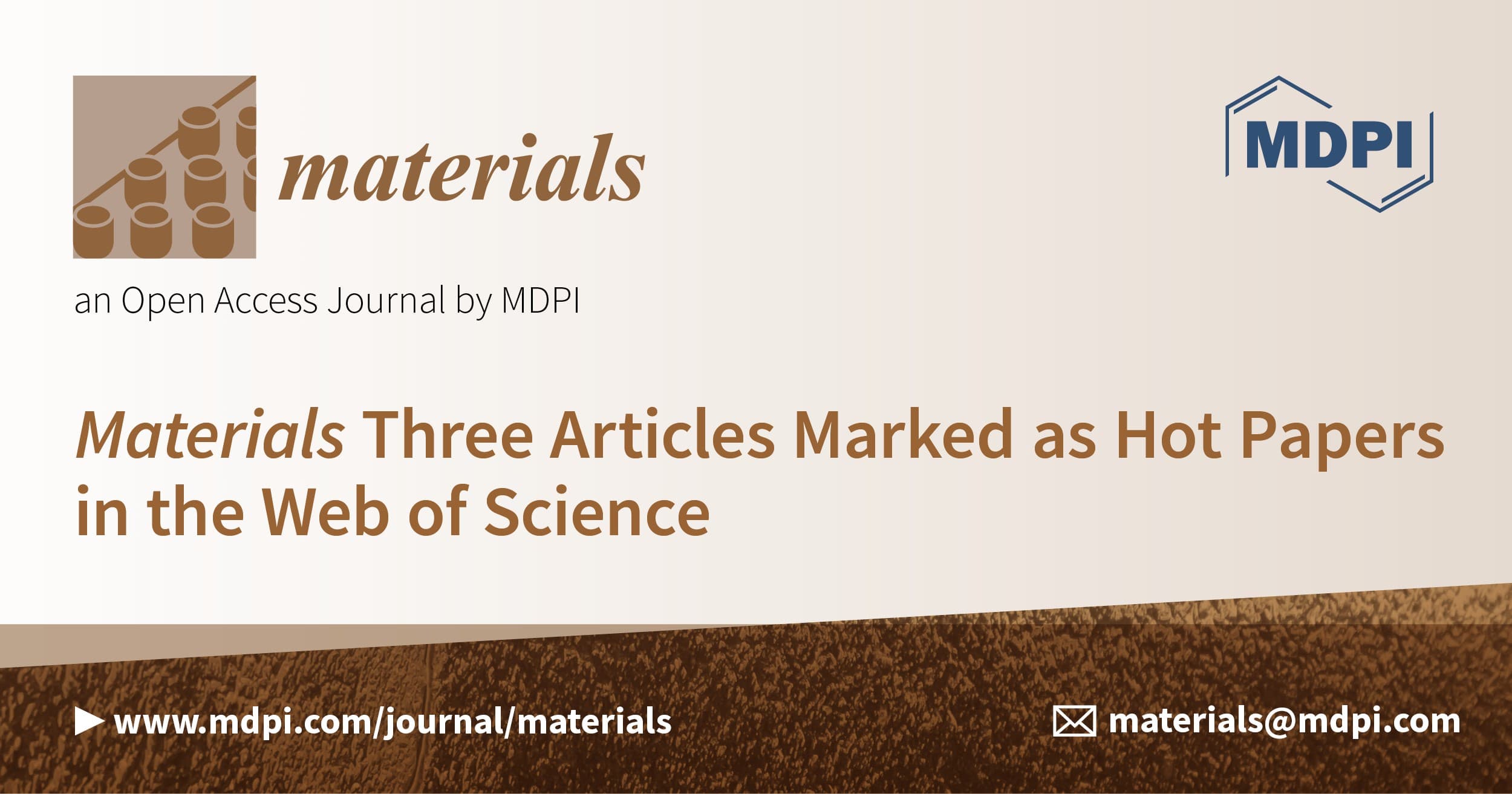
It is our honor to congratulate the authors of the three articles below, which have been marked as “Hot Papers” according to the Web of Science data (the hot papers were published in the past two years and received enough citations in January/February 2022 to place them in the top 0.1% of papers in the academic field of Materials Science).
1. “Properties of Eco-Friendly Particleboards Bonded with Lignosulfonate-Urea-Formaldehyde Adhesives and pMDI as a Crosslinker”
by Bekhta, P.; Noshchenko, G.; Réh, R.; Kristak, L.; Sedliačik, J.; Antov, P.; Mirski, R.; Savov, V.
Materials 2021, 14(17), 4875; https://doi.org/10.3390/ma14174875
2. “Tresca Stress Simulation of Metal-on-Metal Total Hip Arthroplasty during Normal Walking Activity”
by Ammarullah, M.I.; Afif, I.Y.; Maula, M.I.; Winarni, T.I.; Tauviqirrahman, M.; Akbar, I.; Basri, H.; van der Heide, E.; Jamari, J.
Materials 2021, 14(24), 7554; https://doi.org/10.3390/ma14247554
3. “Benefits of Residual Aluminum Oxide for Sand Blasting Titanium Dental Implants: Osseointegration and Bactericidal Effects”
by Gil, J.; Pérez, R.; Herrero-Climent, M.; Rizo-Gorrita, M.; Torres-Lagares, D.; Gutierrez, J.L.
Materials 2022, 15(1), 178; https://doi.org/10.3390/ma15010178
We would like to congratulate the authors for producing such high-quality papers in Materials (ISSN: 1996-1944). You are all welcome to read and share the articles.
Materials Editorial Office
29 April 2022
Materials | Special Issue Development Program
We are pleased to announce a new project of Materials (ISSN: 1996-1944)—Special Issue Development Program.
The program aims to provide early-career scientists with the opportunity to develop a Special Issue and experience the academic editor's role under the mentorship of an experienced scientist.
What you will receive from a Special Issue Development Program:
- A Guest Editor certificate;
- A platform to collect papers on a certain topic;
- Guidance from experienced scientists from Materials;
- More editorial experience and the opportunity to enrich your resume.
If you are interested in this opportunity, please send your Special Issue proposal to the Materials Editorial Office ([email protected]) or submit the proposal at the following link: https://www.mdpi.com/journalproposal/sendproposalspecialissue/materials. We will then discuss our potential collaboration and how the process works in detail.
In addition to the new Special Issue Development Program, Materials continues to welcome Special Issue proposals based on hot research topics.
29 April 2022
Materials 2022 Travel Award—Winners Announced
The Materials 2022 Travel Award closed for applications at the end of 2021. The applications were processed by the Evaluation Committee, lead by the Editor-in-Chief of Materials (ISSN: 1996-1944). We are pleased to announce the winners:
|
|
Dr. Danila Merino Postdoctoral researcher in the Smart Materials Group at the Italian Institute of Technology, Genoa, Italy |
|
|
Ms. Elena Blundo Ph.D. student at the Optical Spectroscopy of Nanostructured Materials Laboratory, Sapienza, University of Rome, Rome, Italy |
The winners will each be awarded CHF 800 and a certificate. On behalf of the Evaluation Committee, we would like to congratulate the winners on their accomplishments.
29 April 2022
Materials | Top 10 Cited Papers in 2020
1. “Brief History of Early Lithium-Battery Development”
Reddy, M.V.; Mauger, A.; Julien, C.M.; Paolella, A.; Zaghib, K.
Materials 2020, 13(8), 1884; https://doi.org/10.3390/ma13081884
Available online: https://www.mdpi.com/1996-1944/13/8/1884
2. “Using Deep Learning to Detect Defects in Manufacturing: A Comprehensive Survey and Current Challenges”
Yang, J.; Li, S.; Wang, Z.; Dong, H.; Wang, J.; Tang, S.
Materials 2020, 13(24), 5755; https://doi.org/10.3390/ma13245755
Available online: https://www.mdpi.com/1996-1944/13/24/5755
3. “Face Masks and Respirators in the Fight Against the COVID-19 Pandemic: A Review of Current Materials, Advances and Future Perspectives”
O’Dowd, K.; Nair, K.M.; Forouzandeh, P.; Mathew, S.; Grant, J.; Moran, R.; Bartlett, J.; Bird, J.; Pillai, S.C.
Materials 2020, 13(15), 3363; https://doi.org/10.3390/ma13153363
Available online: https://www.mdpi.com/1996-1944/13/15/3363
4. “Dendrimers as Pharmaceutical Excipients: Synthesis, Properties, Toxicity and Biomedical Applications”
Santos, A.; Veiga, F.; Figueiras, A.
Materials 2020, 13(1), 65; https://doi.org/10.3390/ma13010065
Available online: https://www.mdpi.com/1996-1944/13/1/65
5. “On the Vibrations and Stability of Moving Viscoelastic Axially Functionally Graded Nanobeams”
Shariati, A.; Jung, D.w.; Mohammad-Sedighi, H.; Żur, K.K.; Habibi, M.; Safa, M.
Materials 2020, 13(7), 1707; https://doi.org/10.3390/ma13071707
Available online: https://www.mdpi.com/1996-1944/13/7/1707
6. “Recent Trends in the Use of Pectin from Agro-Waste Residues as a Natural-Based Biopolymer for Food Packaging Applications”
Mellinas, C.; Ramos, M.; Jiménez, A.; Garrigós, M.C.
Materials 2020, 13(3), 673; https://doi.org/10.3390/ma13030673
Available online: https://www.mdpi.com/1996-1944/13/3/673
7. “The Interfacial Adhesion Performance and Mechanism of a Modified Asphalt–Steel Slag Aggregate”
Liu, W.; Li, H.; Zhu, H.; Xu, P.
Materials 2020, 13(5), 1180; https://doi.org/10.3390/ma13051180
Available online: https://www.mdpi.com/1996-1944/13/5/1180
8. “Progress and Status of Hydrometallurgical and Direct Recycling of Li-Ion Batteries and Beyond”
Larouche, F.; Tedjar, F.; Amouzegar, K.; Houlachi, G.; Bouchard, P.; Demopoulos, G.P.; Zaghib, K.
Materials 2020, 13(3), 801; https://doi.org/10.3390/ma13030801
Available online: https://www.mdpi.com/1996-1944/13/3/801
9. “Methods of Gold and Silver Nanoparticles Preparation”
Slepička, P.; Slepičková Kasálková, N.; Siegel, J.; Kolská, Z.; Švorčík, V.
Materials 2020, 13(1), 1; https://doi.org/10.3390/ma13010001
Available online: https://www.mdpi.com/1996-1944/13/1/1
10. “Based on Single-Layer Complementary Gammadion-Shaped Graphene”
Chen, F.; Cheng, Y.; Luo, H.
Materials 2020, 13(4), 860; https://doi.org/10.3390/ma13040860
Available online: https://www.mdpi.com/1996-1944/13/4/860
21 March 2022
The 4th International Conference on Materials: Advanced and Emerging Materials (ICM 2022), 19–21 October 2022, Barcelona, Spain—Open for Registration
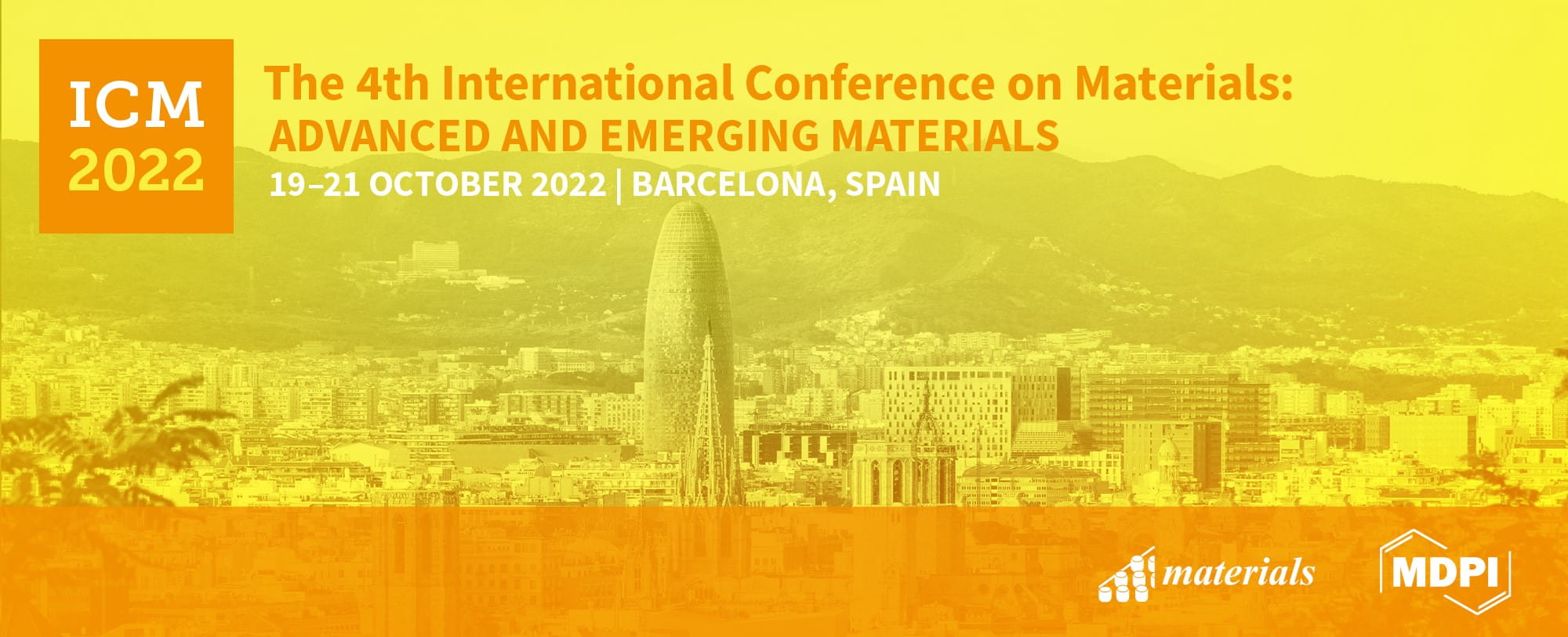
We are very proud to announce that the 4th International Conference on Materials (https://icm2022.sciforum.net/), organized by MDPI’s open access journal Materials (ISSN: 1996-1944) has opened for registration. This conference will be held in the beautiful city of Barcelona from 19 to 21 October 2022. The first three editions of the conference were in an electronic format, and each was a great success. This has encouraged the Organizing Committee to take this tradition to the next level by organizing the fourth edition of this conference to be held in Barcelona, where all stakeholders working on various aspects of materials science and material engineering can come together. The aim is to make this event a forum for discussion, knowledge exchange and fruitful interactions among participants in this exponentially growing field.
Stakeholders from academia and industry as well as from governments and research institutes are welcome to join this event and share their findings on various topics related to materials, such as:
- Materials characterization;
- Nanotechnology in material sciences and engineering;
- Materials processing and manufacturing;
- Soft and biomaterials;
- Fibers and membranes;
- Optical, electrical and magnetic materials.
We are very enthusiastic about this fourth Materials conference, and are relying on you to make it a successful event. We look forward to meeting you in Barcelona.
Prof. Dr. Maryam Tabrizian and Prof. Dr. Filippo Berto
ICM 2022 Chairs
21 January 2022
Meet Us at the 9th International Symposium on Sensor Science (I3S 2022), 20–22 June 2022, Warsaw, Poland
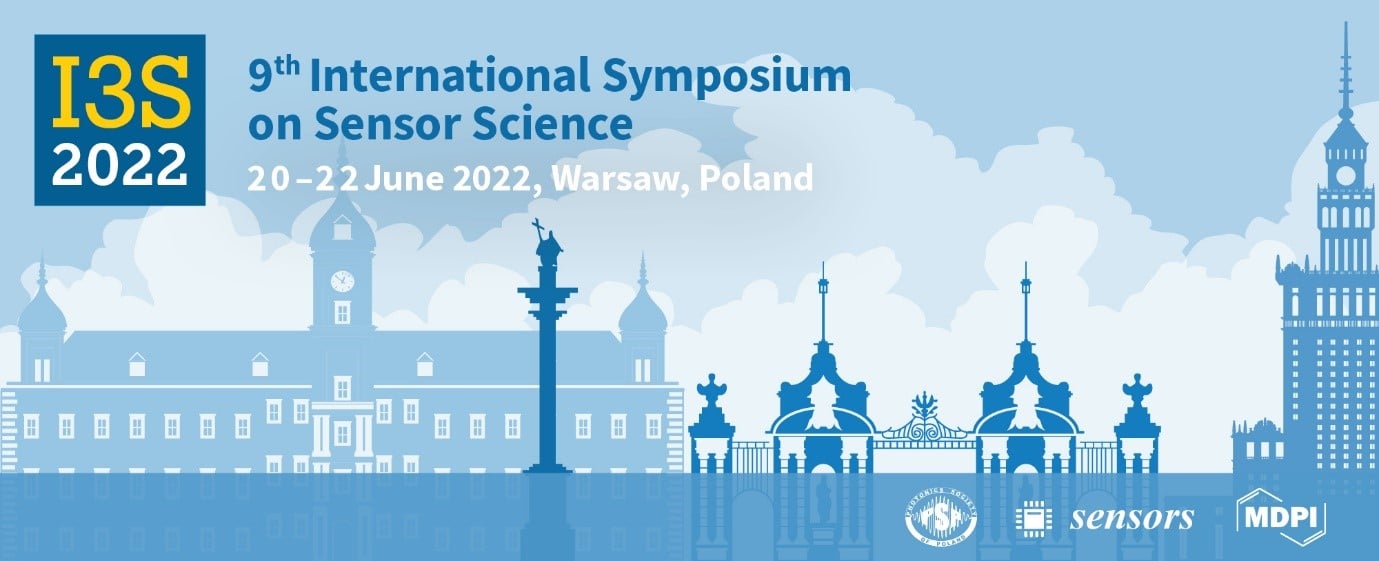
Conference name: 9th International Symposium on Sensor Science (I3S 2022)
Conference website: https://i3s2022warsaw.sciforum.net/
Date: 20–22 June 2022
Place: Warsaw, Poland
It is with great pleasure that we announce the 9th International Symposium on Sensor Science, to be held in Warsaw, Poland, from 20 to 22 June 2022.
Sensor technology has been shown to be suitable for applications in many important fields, including industrial applications, security medical diagnostics, and environmental monitoring. This international conference, supported by the Photonics Society of Poland, Warsaw University of Technology, as well as MDPI’s Sensors (ISSN: 1424-8220), will bring together scientists from different areas to discuss important recent developments in sensor technology. It will represent a great opportunity for an in-person meeting of an interdisciplinary community aiming to discuss important breakthroughs in sensor technology and its related fields.
The main topics of the conference include:
- Chemical sensors;
- Biosensors;
- Physical sensors;
- Optical/photonic sensors;
- Sensor applications;
- Specialty optical fibers for sensing;
- Materials, microfluidics, configurations and strategies for sensing;
- Distributed sensing in optical fibers;
- Amorphous materials for sensor applications.
We look forward to your participation in this exciting event.
Dr. Piotr Lesiak, Prof. Tomasz Woliński and Prof. Leszek Jaroszewicz
I3S 2022 Conference Chairs
 Follow the conversation on Twitter with #I3S2022
Follow the conversation on Twitter with #I3S2022
27 December 2021
Materials | Recruiting Editorial Board Members for the New Section “Polymeric Materials”
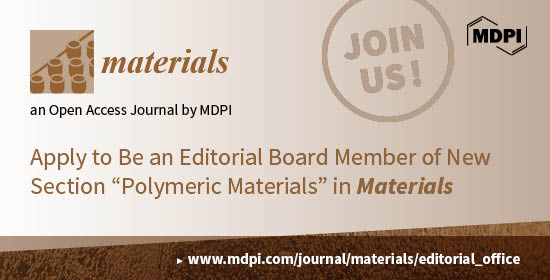
The Editors-in-Chief of the newly established Section “Polymeric Materials” in Materials (ISSN: 1996-1944) are as follows:
- Name: Dr. Shouke Yan
Affiliation: School of Materials Science and Engineering, Beijing University of Chemical Technology, Beijing 100029, China; School of Polymer Science and Engineering, Qingdao University of Science and Technology, Qingdao 266042, China
Research Interests: multiscale structure of polymeric materials; orientation-induced polymer crystallization; surface-induced polymer crystallization; confined polymer crystallization; polymer blend - Name: Prof. Dr. Xu-Ming Xie
Affiliation: Department of Chemical Engineering, Tsinghua University, Beijing 100084, China
Research Interests: polymer hydrogels; polymer blends; nanomaterials and nanocomposites; plastics recycling and value-added reuse
Section Information
Polymeric materials, owing to their versatile properties, have found numerous applications in various areas of our daily life, such as packaging (plastics), industry (in fabrication of spaceships, airplanes, bridges, high-performance cars, boats, sports equipment, 3D printing, etc.), civil engineering (polymer concrete), energy (polymer solar cells), and pharmaceutical industries. They cover many fields, e.g., soft matter, biomaterials, polymer chemistry, polymer physics, engineering, etc. The Section “Polymeric Materials” of Materials aims to rapidly publish contributions on all aspects of polymeric materials, including preparation, characterization, processing, property, and application of plastics, as well as fibers, rubbers, and their related composites. Its main scope includes, but is not limited to, the following aspects:
- Synthesis, characterization of polymers;
- Modification and self-assembly of polymers;
- Application of polymers;
- Modeling, processing, and engineering of polymers;
- Recycling of polymers;
- Green and sustainable chemistry in polymers.
For more details, please check the following link: https://www.mdpi.com/journal/materials/sections/polymeric_materials.
Additionally, the Section “Polymeric Materials” is now recruiting Editorial Board Members.
The main responsibilities of Section Editorial Board Members are as follows:
- Pre-screening and making decisions on new submissions related to your research interests;
- Setting up at least one Special Issue during your term on a topic related to your research interests (or supervising Special Issues related to your research field);
- Providing input or feedback regarding journal policies;
- Helping to promote the journal among your peers or at conferences;
- Attending Board Meetings to suggest journal development strategies;
- Reviewing manuscripts.
Materials (ISSN: 1996-1944) is an international, peer-reviewed, open access journal published semi-monthly online by MDPI. It publishes reviews, regular research papers (articles), and communications that advance the in-depth understanding of the relationship between the structure, the properties, and the functions of all kinds of materials. It is abstracted and indexed by SCIE, Scopus, and other databases. Citations are available in PubMed, and full texts are archived in PubMed Central.
This position is open to experts in polymeric materials. To apply for this position, recommend potential candidates, or request further information, please contact the Materials Editorial Office ([email protected]) or Lili Li ([email protected]).
1 December 2021
Meet Us Virtually at the 2nd Corrosion and Materials Degradation Web Conference, 5–7 July 2022
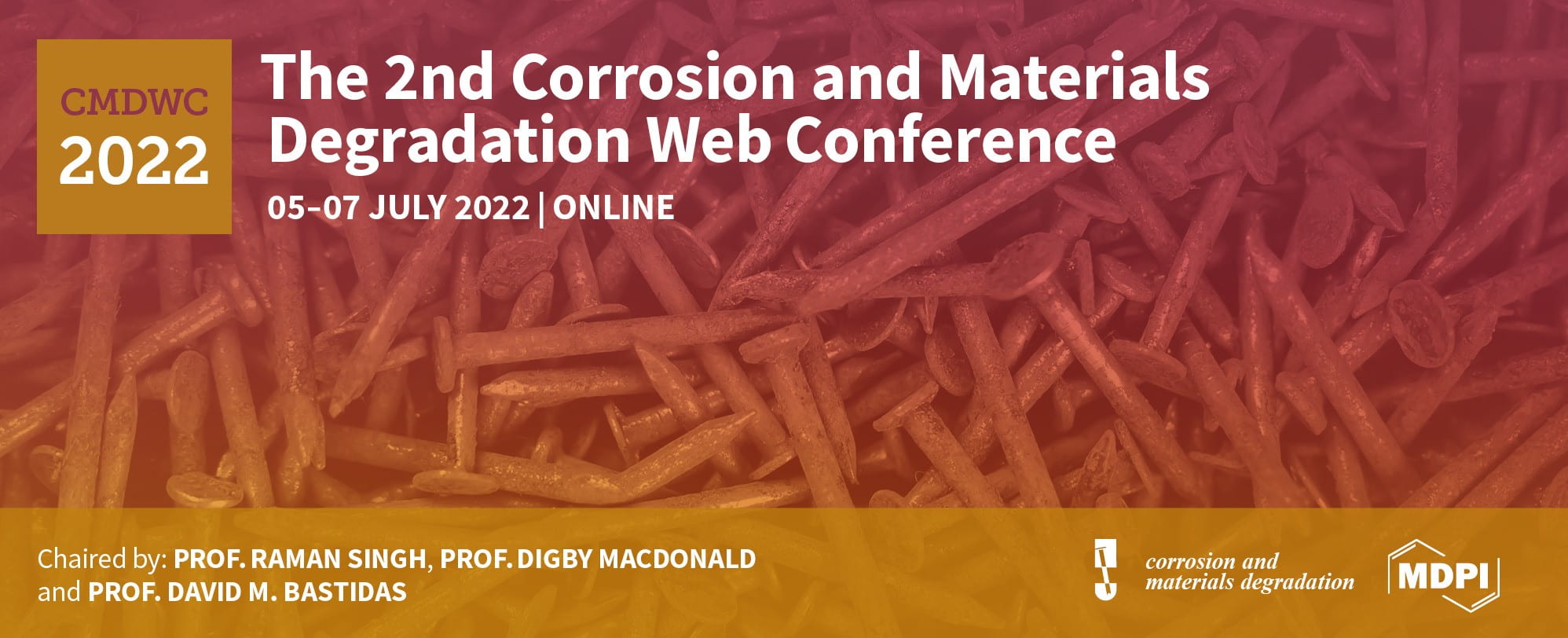
The members of Corrosion and Materials Degradation (ISSN: 2624-5558) are pleased to announce this call for participation in the 2nd Corrosion and Materials Degradation Web Conference. Scientists and engineers currently working on corrosion research are encouraged to join this event and share their findings with colleagues from all over the world.
The conference will cover the following general and related themes (note that this list is not exhaustive):
- Electrochemical corrosion mechanism at the interface (localized, crevice, advanced characterization techniques, EAC, nanoscale);
- Corrosion of steel in concrete;
- Computational modelling, design and prediction of corrosion;
- Surface treatments and coatings for corrosion protection;
- Corrosion in new materials (HEA, CCA, TWIP/TRIP, AM, PM);
- Corrosion in the energy sector (renewable and nuclear);
- Corrosion in biomedical implants;
- Atmospheric corrosion;
- Microbiologically influenced corrosion;
- Corrosion of magnesium alloys;
- Corrosion inhibition.
Only abstracts will be accepted for the 2nd Corrosion and Materials Degradation Web Conference. All abstracts that are accepted will be available to view online in open access form on Sciforum.net. Selected authors will have the option to include a video presentation to be displayed with their abstract online. Participants who are selected to make an oral contribution will need to contribute a full manuscript to the section “Selected Papers from Corrosion and Materials Degradation Conference” in Corrosion and Materials Degradation, free of charge.
Important Dates:
Abstract submission: 1 March 2022;
Acceptance notification: 28 March 2022;
Early bird registration: 18 April 2022;
Covering author registration: 1 June 2022.
The Scientific Committee looks forward to receiving contributions in response to this call and would be glad to provide any further information to interested parties. Any questions may be addressed to the conference secretariat ([email protected]).
We thank you in advance for attending this conference, and we look forward to a stimulating exchange.
To find out more about the conference, please visit the following link: https://sciforum.net/event/CMDWC2022.
22 November 2021
722 MDPI Editorial Board Members Receiving "2021 Highly Cited Researchers" Distinction
It is our great honor to congratulate the Editorial Board Members and Editors in MDPI's journals who have been distinguished as 2021 Highly Cited Researchers by Clarivate, according to Web of Science data. We herewith express our gratitude for the immense impact the named researchers continue to make on scientific progress and on our journals' development.
Clarivate's annual list of Highly Cited ResearchersTM identifies the most highly cited scientists for the past decade. Their impactful papers are among the top 1 per cent in the citation distribution of one or more of 22 fields analyzed in the "Essential Science Indicators", distinguishing them as hugely influential among their peers.
| Abate, Antonio Abatzoglou, John T. Abbaszadeh, Mostafa Acharya, U. Rajendra Acharya, Viral V. Agarwal, Ravi P. Ahn, Myung-Ju Airoldi, Laura Ali, Imran Allakhverdiev, Suleyman I. Aluko, Rotimi E. Anasori, Babak Andersson, Dan I. Andes, David Anker, Stefan D. Apergis, Nicholas Ariga, Katsuhiko Arqub, Omar Abu Aschner, Michael Assaraf, Yehuda G. Astruc, Didier Atala, Anthony Atanasov, Atanas G. Atangana, Abdon Bahram, Mohammad Bakris, George L. Balandin, Alexander A. Baleanu, Dumitru Balsamo, Gianpaolo Bando, Yoshio Banks, William A. Bansal-Travers, Maansi Barba, Francisco J. Barros, Lillian Basit, Abdul W. Baskonus, Haci Mehmet Bassetti, Matteo Battino, Maurizio Bell, Jordana T. Bellomo, Nicola Benediktsson, Jon Atli Benelli, Giovanni Benjakul, Soottawat Bhatnagar, Amit Biddle, Stuart J. H. Biondi, Antonio Biondi-Zoccai, Giuseppe Bjarnsholt, Thomas Blaabjerg, Frede Blaschke, Thomas Blay, Jean-Yves Blumwald, Eduardo Blunt, John W. Boffetta, Paolo Bogers, Marcel Bonomo, Robert A. Bowman, David M.J.S. Boyer, Cyrille Brestic, Marian Brevik, Eric C. Buhalis, Dimitrios Burdick, Jason A. Byrd, John C. Cabeza, Luisa F. Cai, Xingjuan Cai, Jianchao Calhoun, Vince D. Calin, George Cao, Jinde Cao, Guozhong Carvalho, Andre F. Castellanos-Gomez, Andres Cerqueira, Miguel Ângelo Parente Ribeiro Chang, Jo-Shu Chang, Chih-Hao Chastin, Sebastien Chau, Kwok-wing Chemat, Farid Chen, Xiaobo Chen, YangQuan Chen, Jianmin Chen, Chaoji Chen, Min Chen, Qi Chen, Jun Chen, Xi Chen, Peng Chen, Yulin Chen, Bo Chen, Chen Chen, Zhi-Gang Chen, Wei-Hsin Chen, Gang Chen, Yongsheng Chen, Xiang Chen, Yimin Chen, Runsheng Chen, Lidong Chen, Shaowei Chen, Qian Chen, Yu Chen, Shuangming Chiclana, Francisco Cho, Sun Young Choi, Wonyong Chowdhary, Anuradha Choyke, Peter L. Cichocki, Andrzej Corella, Dolores Corma, Avelino Cortes, Javier Cortes, Jorge Costanza, Robert Crommie, Michael F. Cui, Yi Cui, Haiying Cui, Qinghua Cummings, Kenneth Michael Dai, Shifeng Dai, Sheng Daiber, Andreas Davis, Steven J. Dawson, Ted M. de la Fuente-Nunez, Cesar Decker, Eric Andrew Dekel, Avishai Demaria, Marco Deng, Yong Deng, Xiangzheng DePinho, Ronald A. Desneux, Nicolas Dimopoulos, Meletios-Athanasios Ding, Aijun Dionysiou, Dionysios D. Dokmeci, Mehmet Remzi Dolgui, Alexandre Dong, Fan Dou, Shi Xue Dou, Letian Du, Qian Du, Bo Dube, Shanta Rishi Dufresne, Alain Dummer, Reinhard Dupont, Didier Edwards, David Elaissari, Abdelhamid Elhoseny, Mohamed Ellahi, Rahmat Ellis, Erle C. ElMasry, Gamal Esteller, Manel Estévez, Mario Fabbro, Doriano Facchetti, Antonio Fan, Zhanxi Fang, Chuanglin Fasano, Alessio Fečkan, Michal Felser, Claudia Feng, Liangzhu Fensholt, Rasmus Ferdinandy, Péter Fernandez-Lafuente, Roberto Ferreira, Isabel C. F. R. Filippi, Massimo Fisher, Helen Fortino, Giancarlo Fosso Wamba, Samuel Franceschi, Claudio Fujita, Hamido Fujita, Masayuki Gai, Francesco Gaisford, Simon Galanakis, Charis M. Galluzzi, Lorenzo Galvano, Fabio Gan, Ren-You Gan, Lihua Gandomi, Amir H. Gao, Bin Gao, Feng Gao, Minrui Gao, Huijun Gao, Wei Gao, Huile Garbe, Claus Garcia, Hermenegildo Gasbarrini, Antonio Gasco, Laura Gautret, Philippe Geng, Yong Gerdts, Gunnar Geschwind, Daniel H. Ghadimi, Noradin Ghaffari, Roozbeh Ghamisi, Pedram Giampieri, Francesca Glick, Bernard R. Gnant, Michael Goel, Ajay Gogotsi, Yury Goldewijk, Kees Klein Gong, Jinlong Gong, Yongji Govindan, Kannan Granato, Daniel Grancini, Giulia Green, Douglas R. Grosso, Giuseppe Gu, Ke Guan, Cao Guastella, Adam J. Guerrero, Josep M. Gui, Guan Guizani, Mohsen Guo, Zaiping Gupta, Rangan Gutzmer, Ralf Haase, Dagmar Habibi-Yangjeh, Aziz Hagemann, Stefan Hagger, Martin Hamblin, Michael R. Hammoudeh, Shawkat Han, Heesup Hanes, Justin Harrison, Roy M. Hartung, Hans-Peter Hasanuzzaman, Mirza He, Jr-Hau He, Hongwen He, Jiaqing He, Debiao Henseler, Jörg Herrera, Francisco Herrera-Viedma, Enrique Hetz, Claudio Ho Kim, Jung Holmes, Elaine Hossain, Ekram Hsueh, Po-Ren Hu, Xiaosong Hu, Wenbin Huang, Jianping Huang, Hongwei Huang, Yu Huang, Jianying Huang, Peng Huang, Baibiao Huang, Shaoming Hubacek, Klaus |
Iqbal, Hafiz M. N. |
Saad, Fred |
The full list of 2021 Highly Cited Researchers can be accessed at the following webpage in the Web of ScienceTM https://recognition.webofscience.com/awards/highly-cited/2021/.
--- Highly Cited Researchers (HCR) is a Clarivate product.
16 November 2021
Topical Advisory Panel Established to Support Editorial Board
Academic editors play a crucial role in leading our journals and ensuring that each article undergoes a robust and timely peer-review. With the launch of Topics this year and addition of Topic Editors to our family of academic editors, we decided it would be a good time to restructure our academic boards, thus providing more clarity and support for each role. MDPI is pleased to announce the launch of a new position—Topical Advisory Panel Member, that will replace the previous position of Topics Board Member. The Topical Advisory Panel will be comprised of early career researchers eager to gain experience in editorial work.
The main responsibility of the new members of the Topical Advisory Panel is to regularly provide support to Guest Editors, Topic Editors, and Section Board Members. The responsibilities of the Topical Advisory Panel are available here: https://www.mdpi.com/editors.
Each year, the members’ performances are evaluated, and outstanding members are promoted to the Editorial Board by the Editor-in-Chief.
To qualify as a Topical Advisory Panel Member, applicants must:
- Have expertise and experience in the field related to the journal;
- Have received a Ph.D. in the last 10 years, approximately;
- Have at least 6-8 published papers in the last 5 years as first author or corresponding author;
- Currently hold an independent research position in academia or a government institute.
If you are interested in this role, please contact the editorial office by email.
We look forward to hearing from you soon.
25 October 2021
Open Access Week 2021 | It Matters How We Open Knowledge: Building Structural Equity, 25–31 October

Founded in 1996, MDPI was one of the first fully Open Access publisher. Over 25 years MDPI has grown to become the largest Open Access publisher globally, publishing over 160,000 articles across more than 350 journals in 2020. At the core, MDPI was founded in response to a pressing need of fast publication and inclusion. The scholar was set at the centre of the publication process for the first time. Acting as a service provider, rather than a product provider, MDPI exists to help scientists achive their objective to disseminate research results. At MDPI, we believe scientists deserve a better service from the publishing world.
The International Open Access Week (Open Access Week), founded by the SPARC (the Scholarly Publishing and Academic Resources Coalition) Alliance and student partners in 2008, has been successfully running for 13 years. As an advocate and pioneer of open access publishing, MDPI actively responds to the call of International Open Access Week. This year’s theme of “It Matters How We Open Knowledge: Building Structural Equity” highlights the Recommendation’s call for equitable participation from all authors and readers.
For the last 25 years, MDPI has been committed to disseminating open research. Here is a video showing MDPI’s Commitment to Equity, Inclusion and Diversity for More than 25 Years.
International Open Access Week is an important opportunity to catalyze new conversations, create connections across and between communities that can facilitate this co-design, and advance progress in the building of more equitable foundations for opening knowledge—discussions and actions that need to be continued, year in and year out. MDPI has always aimed to provide professional and efficient publishing services to scholars around the world.
Our mission is to make scientific research accessible to everyone; this year, we interview and hold discussions with open science ambassadors on how to build an equal and inclusive environment for open science. Academic editors help us collaborate with more institutions to advocate for open access ideas.
Besides this, our scientific community is a key driver of our success and MDPI’s remarkable growth. Despite the pandemic, we have prepared online conferences and workshops to gather scholars from different communities.
The Basel Sustainable Publishing online forum provides an equal opportunity for stakeholders and researchers from multi-cultural environments to exchange ideas and eliminate barriers to participation.
Conference date: 25 October 2021, online
Conference website: https://bspf2021.sciforum.net/
Main topics: MDPI discusses the current dilemma of open access science from various perspectives such as governments, libraries, and publishers, and related measures on how to change the status quo of discrimination from a global perspective.
We aim to support equality, inclusion, diversity, and accessibility in scholarly communications. We collaborate with universities and key laboratories and have scholarly communications with researchers, teachers, and students on open access workshops.

- 25 October 2021
Energies journal and Institute of Mechanics, Chinese Academy of Sciences
- 28 October 2021
Machines journal and State Key Laboratory of Traction Power, Southwest Jiaotong University
- 29 October 2021
Processes journal and Beijing Institute of Technology
- 29 October 2021
Coatings journal and Wuhan University of Technology
MDPI is committed to providing open access and high-quality publishing services for scholars and promoting rapid dissemination of academic achievements. We hope to promote the practices and policies of open access publishing and diversify the dissemination of academic achievements.
22 October 2021
Materials | Top 10 Downloaded Articles in 2020
1. “Multifunctional Polymer Composites Produced by Melt-Blown Technique to Use in Filtering Respiratory Protective Devices”
Agnieszka Brochocka et al.
Materials 2020, 13(3), 712; 10.3390/ma13030712
Available online: https://www.mdpi.com/1996-1944/13/3/712
2. “Brief History of Early Lithium-Battery Development”
Mogalahalli V. Reddy et al.
Materials 2020, 13(8), 1884; 10.3390/ma13081884
Available online: https://www.mdpi.com/1996-1944/13/8/1884
3. “Progress and Status of Hydrometallurgical and Direct Recycling of Li-Ion Batteries and Beyond”
François Larouche et al.
Materials 2020, 13(3), 801; 10.3390/ma13030801
Available online: https://www.mdpi.com/1996-1944/13/3/801
4. “Face Masks and Respirators in the Fight Against the COVID-19 Pandemic: A Review of Current Materials, Advances and Future Perspectives”
Kris O’Dowd et al.
Materials 2020, 13(15), 3363; 10.3390/ma13153363
Available online: https://www.mdpi.com/1996-1944/13/15/3363
5. “Using Deep Learning to Detect Defects in Manufacturing: A Comprehensive Survey and Current Challenges”
Jing Yang et al.
Materials 2020, 13(24), 5755; 10.3390/ma13245755
Available online: https://www.mdpi.com/1996-1944/13/24/5755
6. “Review of Application and Innovation of Geotextiles in Geotechnical Engineering”
Hao Wu et al.
Materials 2020, 13(7), 1774; 10.3390/ma13071774
Available online: https://www.mdpi.com/1996-1944/13/7/1774
7. “Effect of Fibre Material and Fibre Roughness on the Pullout Behaviour of Metallic Micro Fibres Embedded in UHPC”
Niels Wiemer et al.
Materials 2020, 13(14), 3128; 10.3390/ma13143128
Available online: https://www.mdpi.com/1996-1944/13/14/3128
8. “Melt-Spun Fibers for Textile Applications”
Rudolf Hufenus et al.
Materials 2020, 13(19), 4298; 10.3390/ma13194298
Available online: https://www.mdpi.com/1996-1944/13/19/4298
9. “Devulcanization Technologies for Recycling of Tire-Derived Rubber: A Review”
Erich Markl and Maximilian Lackner
Materials 2020, 13(5), 1246; 10.3390/ma13051246
Available online: https://www.mdpi.com/1996-1944/13/5/1246
10. “The Critical Raw Materials in Cutting Tools for Machining Applications: A Review”
Antonella Rizzo et al.
Materials 2020, 13(6), 1377; 10.3390/ma13061377
Available online: https://www.mdpi.com/1996-1944/13/6/1377
22 October 2021
Materials | Top 10 Downloaded Articles in 2019
1. “Hydrogen Storage for Mobility: A Review”
Etienne Rivard et al.
Materials 2019, 12(12), 1973; 10.3390/ma12121973
Available online: https://www.mdpi.com/1996-1944/12/12/1973
2. “Johnson Cook Material and Failure Model Parameters Estimation of AISI-1045 Medium Carbon Steel for Metal Forming Applications”
Mohanraj Murugesan and Dong Won Jung
Materials 2019, 12(4), 609; 10.3390/ma12040609
Available online: https://www.mdpi.com/1996-1944/12/4/609
3. “Deformation of Single Crystals, Polycrystalline Materials, and Thin Films: A Review”
Guijun Yang and Soo-Jin Park
Materials 2019, 12(12), 2003; 10.3390/ma12122003
Available online: https://www.mdpi.com/1996-1944/12/12/2003
4. “Traditional’ Sol-Gel Chemistry as a Powerful Tool for the Preparation of Supported Metal and Metal Oxide Catalysts”
Serena Esposito
Materials 2019, 12(4), 668; 10.3390/ma12040668
Available online: https://www.mdpi.com/1996-1944/12/4/668
5. “Methanol Synthesis from CO2: A Review of the Latest Developments in Heterogeneous Catalysis”
R. Guil-López et al.
Materials 2019, 12(23), 3902; 10.3390/ma12233902
Available online: https://www.mdpi.com/1996-1944/12/23/3902
6. “Materials for the Spine: Anatomy, Problems, and Solutions”
Brody A. Frost et al.
Materials 2019, 12(2), 253; 10.3390/ma12020253
Available online: https://www.mdpi.com/1996-1944/12/2/253
7. “10-MDP Based Dental Adhesives: Adhesive Interface Characterization and Adhesive Stability—A Systematic Review”
Eunice Carrilho et al.
Materials 2019, 12(5), 790; 10.3390/ma12050790
Available online: https://www.mdpi.com/1996-1944/12/5/790
8. “Methods of Gold and Silver Nanoparticles Preparation”
Petr Slepička et al.
Materials 2020, 13(1), 1; 10.3390/ma13010001
Available online: https://www.mdpi.com/1996-1944/13/1/1
9. “Effect of Temperature on Material Properties of Carbon Fiber Reinforced Polymer (CFRP) Tendons: Experiments and Model Assessment”
Fei Zhou et al.
Materials 2019, 12(7), 1025; 10.3390/ma12071025
Available online: https://www.mdpi.com/1996-1944/12/7/1025
10. “Butanol Synthesis Routes for Biofuel Production: Trends and Perspectives”
Beata Kolesinska et al.
Materials 2019, 12(3), 350; 10.3390/ma12030350
Available online: https://www.mdpi.com/1996-1944/12/3/350
24 September 2021
Meet Us at the 21st Chinese Zeolite Conference (21 CZC) in Qingdao, China, 27–30 September 2021
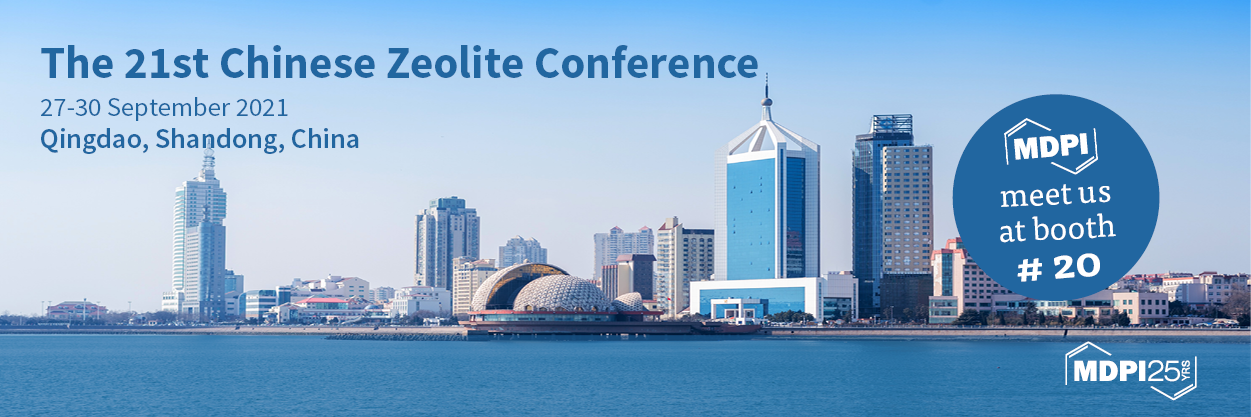
MDPI will be attending the 21st Chinese Zeolite Conference (21 CZC), hosted by the Chinese Zeolite Association and China University of Petroleum, which will be held from 27 to 30 September 2021 in Qingdao, China. The conference will be held at the International Conference Center of China Railway Qingdao World Expo City. More than 1500 delegates are expected to attend.
The theme of this conference is “Porous Materials and Future Energy”. The conference aims to show the latest progress in the field of zeolite and porous material in China and discuss the responsibilities, opportunities, and challenges in zeolite and related porous functional material chemistry in the new era of energy reform and sustainable development. We also aim to further promote the development and achievements of zeolite science and technology.
The main topics of the conference include: the synthesis, modification, and characterization of porous zeolite materials; host-guest chemistry and functional materials; adsorption, separation, and diffusion performances; porous material catalysis and chemical processes; theoretical calculations and simulations of porous material properties, structures, and applications.
The following MDPI journals will be represented:
- Molecules;
- Separations;
- Energies;
- Crystals;
- Materials;
- Membranes;
- Inorganics;
- Sustainability;
- Sustainable Chemistry;
- Symmetry;
- Reactions.
If you are also attending this conference, please feel free to stop by our booth (#B20). Our delegates look forward to meeting you in person to answer any questions you may have. For more information about the conference, please visit https://www.chemsoc.org.cn/meeting/21czc/.
23 September 2021
2020 MDPI Top Reviewer Award—Winners Announced
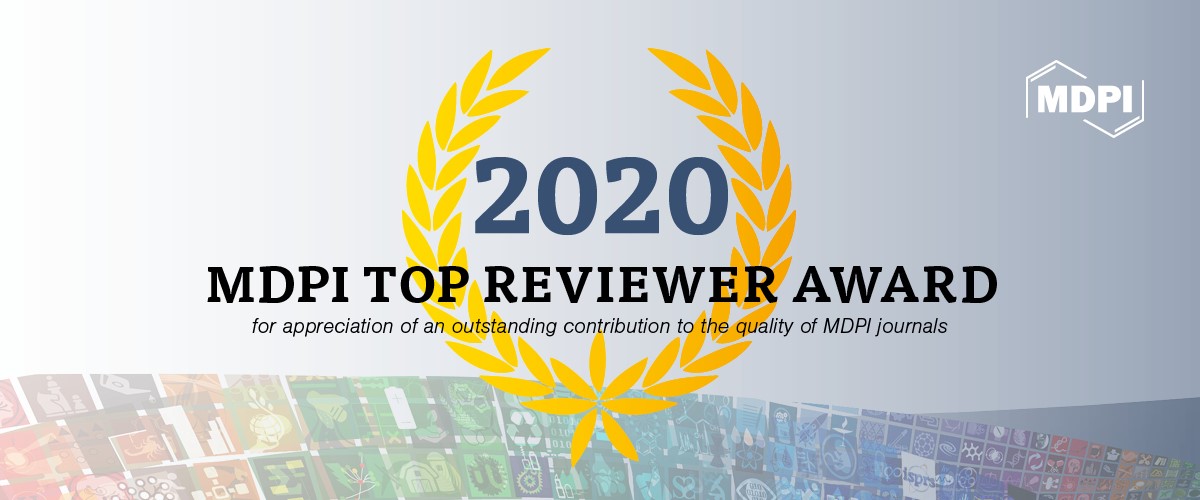
Rigorous peer-review is the cornerstone of high-quality academic publishing. Over 369,916 scholars served as reviewers for MDPI journals in 2020. We are extremely appreciative of all those who made a contribution to the editorial process in this capacity. At the beginning of every year, journal editorial offices publish a list of all reviewers’ names to express our gratitude. In addition, this year, the MDPI Top Reviewer Award was announced, to recognize the very best reviewers for their expertise and dedication, and their high-quality, and timely review reports. We are pleased to announce the following winners of the 2020 MDPI Top Reviewer Award:
- Adriana Burlea-Schiopoiu;
- Alban Kuriqi;
- Álvaro González-Vila;
- Alessandro Alaimo;
- Alexey Beskopylny;
- Alexander Yu Churyumov;
- Alberto Fernández-Isabel;
- Andrea Mastinu;
- Antonios N. Papadopoulos;
- Anton Rassõlkin;
- Antonio Humberto Hamad Minervino;
- Arkadiusz Matwijczuk;
- Artur Słomka;
- Baojie He;
- Bartłomiej Potaniec;
- Bojan Đurin;
- Camilo Arturo Rodriguez Diaz;
- Carmelo Maria Musarella;
- Chiachung Chen;
- Chiman Kwan;
- Cristian Busu;
- Danil Pimenov;
- Dan-Cristian Dabija;
- Delfín Ortega-Sánchez;
- Demetrio Antonio Zema;
- Denis Butusov;
- Elena Lucchi;
- Gaurab Dutta;
- Livia Anastasiu;
- M. R. Safaei.
For more information about how to become a reviewer of MDPI journals, please see: www.mdpi.com/reviewers.
22 September 2021
MDPI Joins SDG Publishers Compact

UN's 17 Sustainable Development Goals (SDGs) are the blueprint to achieve a better and more sustainable future for all. In 2020 the SDG Publishers Compact was launched, aimed to inspire publishers and accelerate progress to achieve the 17 goals by 2030. Members of the programme are committed to support the publication of materials that will promote and inspire actions towards SDGs.
MDPI is an eager advocate of SDGs and has already been supporting the programme by creating Special Issues and publishing a series of books on SDGs prior to joining the Compact in 2021. MDPI's Sustainability Foundation initiated the World Sustainability Awards in 2016. We fully support UN's goals to promote sustainable actions that make the world a better place for all and, as part of its commitment, we will focus our actions on SDG10: Reduced Inequalities whilst promoting all 17 SDGs. For more details, please visit the programme’s website: https://www.un.org/sustainabledevelopment/sdg-publishers-compact/.
Joining this initiative was a unanimous decision. MDPI has in its core values the dissemination of science for all, breaking the wall between research access and under-represented members of the scientific community and the general population. To support this initiative further and continue to support under-represented scientists, MDPI will take a series of actions that will be announced once ready.
The first action MDPI takes is to nominate Dr. Liliane Auwerter as the coordinator of the programme. Dr. Auwerter studied Environmental Process Technology (UTFPR, Brazil), obtained her MSc degree in Water and Environmental Engineering (University of Surrey, UK) and in 2020 completed her PhD in self-healing low-friction materials for water transport (Imperial College London, UK), always focusing on diverse scientific projects that would potentially bring sustainability to industrial processes. As a student in Brazil, she engaged in volunteering activities focused on environmental education and took part in the Millennial Development Goals meetings held at the university.
For more information, please contact:
Dr. Liliane Auwerter
Scientific Officer
[email protected]
14 September 2021
Materials 4th Webinar | Functional Nanomaterials for Fuel Cell Electrochemistry, 21 September 2021
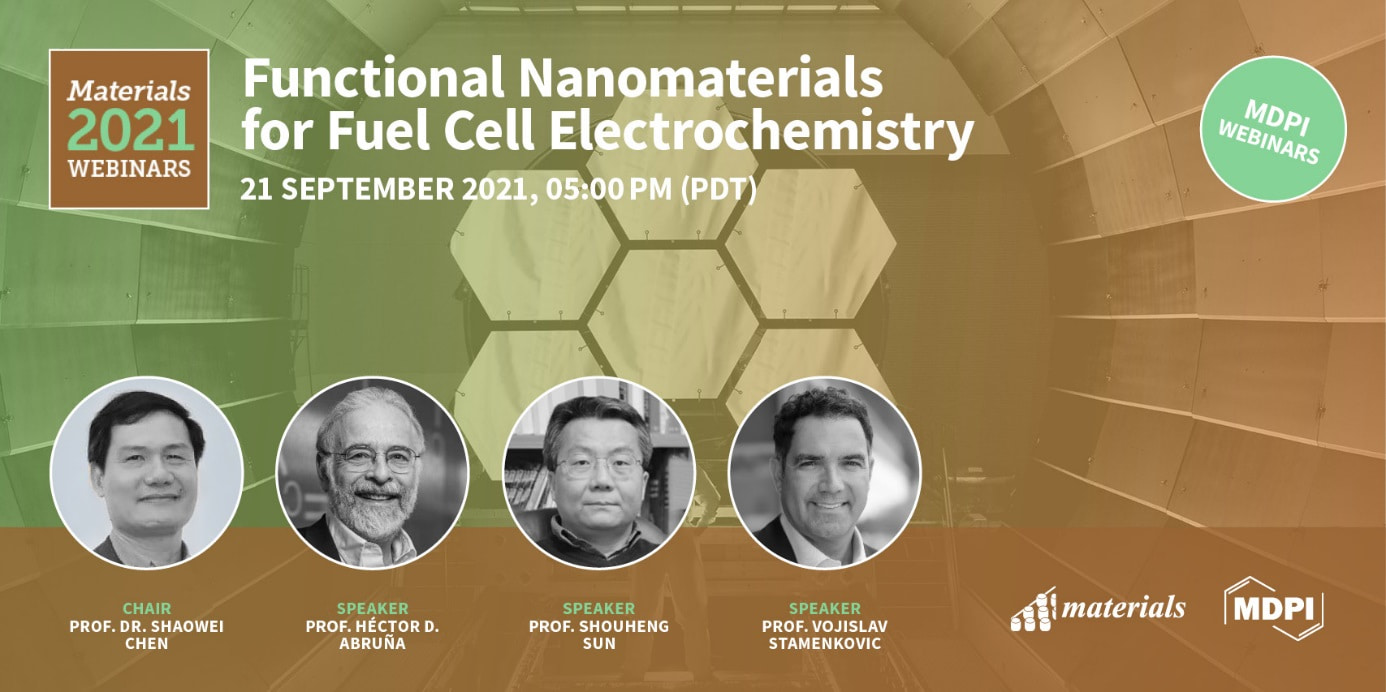
Fuel cells represent a unique electrochemical energy technology for a sustainable future. To render the technology viable in practical applications, a critical first step is to develop effective catalysts at both the cathode and anode, to reduce the energy barriers of the electron–transfer reactions involved, and ultimately enhance the current density and power output. Within this context, the understanding of the catalyst structures and the unraveling of the electron–transfer mechanisms play an indispensable role in advancing fuel cell electrocatalysis. This entails a multidisciplinary effort, from materials chemistry in the design and engineering of electrode catalysts to spectroscopic assessments of the electron–transfer kinetics, and to theoretical investigations of the catalytic active sites and reaction energetics.
It is therefore a great pleasure and honor to welcome three world-leading experts to join us at the webinar, who have made seminal contributions in the area of functional nanomaterials and fuel cell electrocatalysis. They will showcase recent progress in their laboratories in tackling the varied hurdles of fuel cell electrocatalysis and highlight significant issues for future research.
Date: 21/09/2021 Tuesday (US time) | 22/09/2021 Wednesday (CEST)
Time: 5:00pm PDT | 2:00am CEST | 8:00pm EDT
Webinar ID: 828 6890 4633
Webinar Website: https://materials-4.sciforum.net/
Register for free here:
Program
The webinar will last a maximum of 2 hours and 10 minutes.
|
Speaker/Presentation |
Time in CEST/CET |
|
Prof. Dr. Shaowei Chen Chair Introduction |
2:00-2:05 am |
|
“Novel Materials and Operando Methods for Fuel Cell Technologies” |
2:05-2:35 am |
|
Q&A Session |
2:35-2:45 am |
|
“Intermetallic Nanoparticles: Their Synthesis and Enhanced Electrocatalysis” |
2:45-3:15 am |
|
Q&A Session |
3:15-3:25 am |
|
“Fuel Cells: Present and Future” |
3:25-3:55 am |
|
Q&A Session |
3:55-4:05 am |
|
Prof. Dr. Shaowei Chen Closing of Webinar |
4:05-4:10 am |
Chair
|
Prof. Dr. Shaowei Chen Department of Chemistry and Biochemistry, University of California Santa Cruz |
Prof. Dr. Shaowei Chen finished his undergraduate studies in China in 1991, with a B.Sc. degree in Chemistry from the University of Science and Technology of China, and then went to Cornell University, receiving his M.Sc. and Ph.D. degrees in 1993 and 1996, respectively. Following a postdoctoral post at the University of North Carolina at Chapel Hill, he started his independent career at Southern Illinois University in 1998. In summer 2004, he moved to the University of California in Santa Cruz. He is currently a Professor of Chemistry and the Faculty Director of the UCSC COSMOS program. Prof Dr. Shaowei Chen’s research is focused on functional nanomaterials and their applications in electrochemical energy technologies and antimicrobials. Thus far, he has published 376 articles, with an h-index of 79. |
Speakers
|
Prof. Héctor D. Abruña Department of Chemistry and Chemical Biology, Cornell University (USA) |
Prof. Hector D. Abruña, Émile M. Chamot Professor of Chemistry, is the director of the Center for Alkaline Based Energy Solutions (CABES) and the Energy Materials Center at Cornell (emc2). He completed his graduate studies with Royce W. Murray and Thomas J. Meyer at the University of North Carolina at Chapel Hill in 1980 and was a postdoctoral research associate with Allen J. Bard at the University of Texas in Austin from 1980 to 1981. After a brief stay at the University of Puerto Rico, he joined Cornell in 1983. He was Chair of the Department of Chemistry and Chemical Biology from 2004 to 2008. Prof. Abruña has been the recipient of numerous awards, including a Presidential Young Investigator Award, A. P. Sloan Fellowship, J. S. Guggenheim Fellowship, and J. W. Fulbright Senior Fellow. He is the recipient of the Electrochemistry Award for the American Chemical Society (2008), and the C. N. Reilley Award in Electrochemistry, 2007. He was elected Fellow of the American Association for the Advancement of Science in 2007, member of the American Academy of Arts and Sciences in 2007, and Fellow of the International Society of Electrochemistry in 2008. He received the D. C. Grahame Award from the Electrochemical Society in 2009, the Faraday Medal from the Royal Society in 2011, the Brian Conway Prize from the International Society of Electrochemistry in 2013, and he was named Fellow of Electrochemical Society in 2013. In 2017, he was the recipient of the Gold Medal of the International Society of Electrochemistry. He was elected member of the National Academy of Sciences (2018) and was awarded the A. J. Bard Award of the Electrochemical Society (2019), the Frumkin Medal of the International Society of Electrochemistry (2019), and the American Chemical Society Award in Analytical Chemistry (2021). Prof. Abruña is the co-author of over 525 publications (h-index = 93) and has given over 650 invited lectures worldwide. He considers his 56 Ph.D. students and 75 post-doctoral associates his most important professional achievement. |
|
Prof. Shouheng Sun Department of Chemistry, Brown University (USA) |
Prof. Shouheng Sun received his B.Sc. from Sichuan University (China), M.Sc. from Nanjing University (China), and Ph.D. from Brown University (USA). He joined the IBM T. J. Watson Research Center (Yorktown Heights, New York, USA), first as a postdoctoral fellow (1996–1998), and then as a research staff member (1998–2004). In 2005, he returned to Brown University as a tenured Associate Professor and was promoted to Full Professor in 2007. He is now the Vernon K. Krieble Professor of Chemistry and Professor of Engineering. He serves as an Associate Editor of the Royal Society of Chemistry Journals Nanoscale and Nanoscale Advances, and is a Fellow of the Royal Society of Chemistry. His main research interests are in chemical synthesis and self-assembly of nanoparticles for catalytic, magnetic, and biomedical applications (h-index 131). |
|
Prof. Vojislav Stamenkovic Department of Chemical and Biomolecular Engineering and Department of Chemistry, University of California Irvine (USA) |
Prof. Vojislav Stamenkovic is a Professor at the University California, Irvine, Department of Chemical and Biomolecular Engineering and Department of Chemistry, and Staff Scientist, Technical Leader and Principal Investigator at the US Department of Energy’s Argonne National Laboratory in Argonne, Illinois. He earned his Ph.D. degree in physical chemistry from the University of Belgrade in 2001, after spending three years as a visiting scientist at the University of California at Berkeley. From 2002 to 2005, he was a postdoctoral and staff scientist within the Materials Sciences Division at the Lawrence Berkeley National Laboratory, and from 2006, he was a staff scientist in the Materials Science Division of Argonne National Laboratory, where he has conducted multidisciplinary research related to materials for electrochemical systems. Prof. Stamenkovic is an expert in the design and synthesis of functional materials for electrochemical applications, primarily in the fields of polymer electrolyte membrane fuel cells, electrolyzers, and batteries. His research interests include materials for energy conversion and storage, electrocatalysis, and spectroelectrochemistry, as well as functional biomaterials. In 2004, Prof. Stamenkovic received a Recognition Award from Lawrence Berkeley National Laboratory for the implementation of fundamental science into nanoscale applications. In 2012, he was awarded the Distinguished Performance Award from the University of Chicago, and in 2014, he received a prestigious US DOE Hydrogen and Fuel Cells Award in recognition of his outstanding contributions to catalysts R&D. He has published over 130 articles and book chapters, for which he has received over 17,000 citations with an h-index of 55. He has authored over 200 presentations and has been an invited plenary and keynote speaker more than 100 times at major conferences, symposia, and seminars. His work has been published in high impact journals, such as Science, Nature Materials, and Angewandte Chemie, and is often featured in the headlines of Lawrence Berkeley National Laboratory and Argonne National Laboratory. |
For any questions about the webinar, please send an email to [email protected].
3 August 2021
Announcement on Japanese Consumption Tax (JCT)
This serves to announce to our valued authors based in Japan that value-added tax, or consumption tax will now be imposed on article processing fees and other service fees for all papers submitted, or resubmitted (assigned new paper IDs), effective from 15 August 2021. The change is in accordance with the Japanese "Act for Partial Revision of the Income Tax Act and Other Acts" (Act No. 9 of 2015), which includes a revision of consumption taxation on cross-border supplies of services such as digital content distribution.
For additional information from the National Tax Agency please see here ("Cross-border supplies of electronic services").
Contact: Setsuko Nishihara, MDPI Tokyo
21 July 2021
Materials Receives Updated Impact Factor of 3.623
We are pleased to inform you that, with the support of our authors, editors, and reviewers, Materials received an increased Journal Impact Factor of 3.623 and a 5-Year Impact Factor of 3.920. This was released in the recent Journal Citation Reports®. And Materials has been approved for coverage within three new categories of the Journal Citation Reports (JCR): “Metallurgy and Metallurgical Engineering”, “Physics, Applied”, and “Physics, Condensed Matter”.
Materials has achieved three consecutive years of growth in its Impact Factor. We are grateful to all the scholars who have witnessed the journal’s growth with us.
In the rank ordered by Journal Impact Factor, Materials now ranks 17/80 Q1 in “Metallurgy and Metallurgical Engineering”, 79/162 Q2 in “Chemistry, Physical,” 152/335 Q2 in “Materials Science, Multidisciplinary”, 51/160 Q2 in “Physics, Applied”, and 27/69 Q2 in “Physics, Condensed Matter”.
Thank you for your continuous support of Materials!
5 July 2021
Meet Us at the 2nd International Conference for Global Chinese Academia on Energy and Built Environment, Chengdu, China, 16–19 July 2021
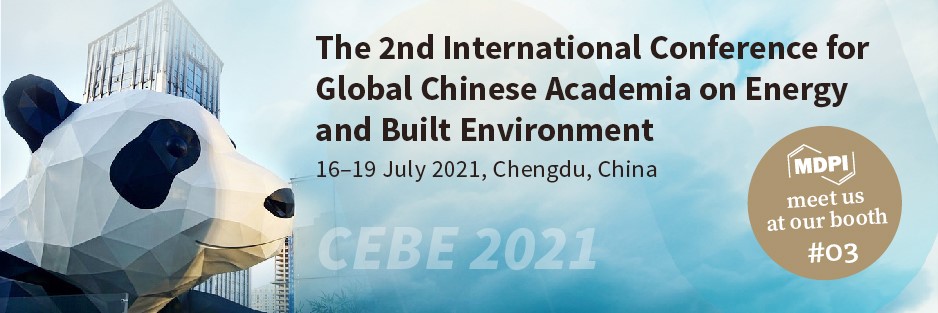
MDPI will be attending the 2nd International Conference for Global Chinese Academia on Energy and Built Environment (CEBE 2021) in Chengdu, China, on 16–19 July 2021. The conference aims at establishing a worldwide platform for promoting global cooperation and innovative communications for ethnic Chinese around the globe, sharing cutting-edge achievements in the utilization of clean energy, the enhancement of energy efficiency via the built environment, and the improvement in environmental quality.
The following MDPI journals will be represented:
If you are attending this conference, please feel free to stop by our booth. Our delegates look forward to meeting you in person to answer any questions you may have. For more information about the conference, please visit the following link: http://www.cebe2021.com.
2 July 2021
Recruiting Editorial Board Members for the “Energy Materials” Section of Materials
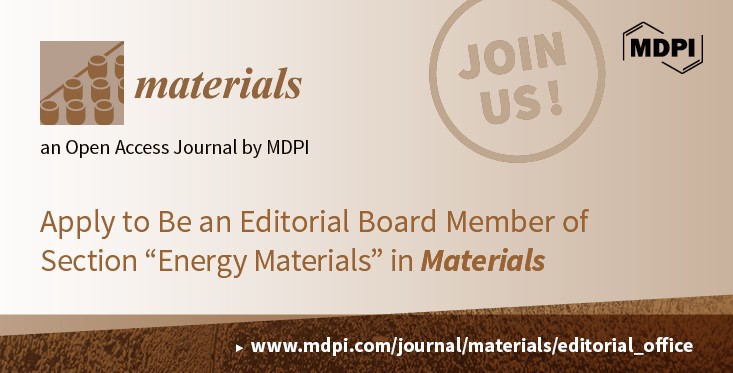
Materials (ISSN: 1996-1944) is an international, peer-reviewed, open access journal that is published semi-monthly online by MDPI. It publishes reviews, regular research papers (articles), and communications that advance the in-depth understanding of the relationship between the structure, the properties, and the functions of all kinds of materials. It is abstracted and indexed by SCIE, Scopus, and other databases. Citations are available in PubMed, and full texts are archived in PubMed Central. The 2020 IF for Materials was 3.623.
The main responsibilities of the Section Editorial Board Members are as follows:
1) Supervising the quality of the papers in this Section (when we have new submissions in the Section);
2) Acting as a/recommending a Guest Editor for a Special Issue on a topic related to your research interests;
3) Providing conference/society cooperation recommendations.
This position is open to experts in all aspects of energy materials. To apply for this position, recommend potential candidates, or request further information, please contact the Materials Editorial Office ([email protected]) or Freya Dong ([email protected]).
30 June 2021
2020 Impact Factors - Released
The 2020 citation metrics have been officially released in the Journal Citation Reports (JCR)!
We are pleased to announce that 85 MDPI journals are included, of which:
- 10 journals received their first impact factor
- 96% of journals increased their impact factor from 2019
- 32 journals (38%) ranked among the top 25% of journals, in at least one category
| Journal | Impact Factor | Rank | Category |
| Cancers | 6.639 | Q1 | • Oncology |
| Cells | 6.600 | Q2 | • Cell Biology |
| Pharmaceutics | 6.321 | Q1 | • Pharmacology & Pharmacy |
| Antioxidants | 6.313 | Q1 | • Food Science & Technology |
| • Biochemistry & Molecular Biology | |||
| • Chemistry, Medicinal | |||
| Biomedicines | 6.081 | Q1 | • Medicine, Research & Experimental |
| • Pharmacology & Pharmacy | |||
| • Biochemistry & Molecular Biology | |||
| International Journal of Molecular Sciences | 5.924 | Q1 | • Biochemistry & Molecular Biology |
| Q2 | • Chemistry, Multidisciplinary | ||
| Pharmaceuticals | 5.863 | Q1 | • Pharmacology & Pharmacy |
| • Chemistry, Medicinal | |||
| Journal of Fungi | 5.816 | Q1 | • Mycology |
| • Microbiology | |||
| Nutrients | 5.719 | Q1 | • Nutrition & Dietetics |
| Biosensors | 5.519 | Q1 | • Chemistry, Analytical |
| • Instruments & Instrumentation | |||
| Q2 | • Nanoscience & Nanotechnology | ||
| Marine Drugs | 5.118 | Q1 | • Chemistry, Medicinal |
| • Pharmacology & Pharmacy | |||
| Biology | 5.079 | Q1 | • Biology |
| Nanomaterials | 5.076 | Q1 | • Physics, Applied |
| Q2 | • Chemistry, Multidisciplinary | ||
| • Materials Science, Multidisciplinary | |||
| • Nanoscience & Nanotechnology | |||
| Viruses | 5.048 | Q2 | • Virology |
| Journal of Personalized Medicine | 4.945 | Q1 | • Medicine, General & Internal |
| • Health Care Sciences & Services | |||
| Metabolites | 4.932 | Q2 | • Biochemistry & Molecular Biology |
| Biomolecules | 4.879 | Q2 | • Biochemistry & Molecular Biology |
| Remote Sensing | 4.848 | Q1 | • Geosciences, Multidisciplinary |
| Q2 | • Remote Sensing | ||
| • Imaging Science & Photographic Technology | |||
| • Environmental Sciences | |||
| Gels * | 4.702 | Q1 | • Polymer Science |
| Antibiotics | 4.639 | Q2 | • Infectious Diseases |
| • Pharmacology & Pharmacy | |||
| Toxins | 4.546 | Q1 | • Toxicology |
| • Food Science & Technology | |||
| Vaccines | 4.422 | Q2 | • Immunology |
| • Medicine, Research & Experimental | |||
| Molecules | 4.412 | Q2 | • Chemistry, Multidisciplinary |
| • Biochemistry & Molecular Biology | |||
| Foods | 4.350 | Q2 | • Food Science & Technology |
| Polymers | 4.329 | Q1 | • Polymer Science |
| Journal of Clinical Medicine | 4.242 | Q1 | • Medicine, General & Internal |
| Toxics | 4.146 | Q2 | • Toxicology |
| • Environmental Sciences | |||
| Catalysts | 4.146 | Q2 | • Chemistry, Physical |
| Microorganisms | 4.128 | Q2 | • Microbiology |
| Membranes | 4.106 | Q1 | • Polymer Science |
| Q2 | • Engineering, Chemical | ||
| • Materials Science, Multidisciplinary | |||
| • Chemistry, Physical | |||
| Genes | 4.096 | Q2 | • Genetics & Heredity |
| Fermentation * | 3.975 | Q2 | • Biotechnology & Applied Microbiology |
| Journal of Cardiovascular Development and Disease * | 3.948 | Q2 | • Cardiac & Cardiovascular Systems |
| Plants | 3.935 | Q1 | • Plant Sciences |
| Life | 3.817 | Q2 | • Biology |
| Diagnostics | 3.706 | Q2 | • Medicine, General & Internal |
| Current Oncology | 3.677 | Q3 | • Oncology |
| Materials | 3.623 | Q1 | • Metallurgy & Metallurgical Engineering |
| Q2 | • Materials Science, Multidisciplinary | ||
| • Chemistry, Physical | |||
| • Physics, Applied | |||
| • Physics, Condensed Matter | |||
| Sensors | 3.576 | Q1 | • Instruments & Instrumentation |
| Q2 | • Chemistry, Analytical | ||
| • Engineering, Electrical & Electronic | |||
| Pathogens | 3.492 | Q2 | • Microbiology |
| Agronomy | 3.417 | Q1 | • Agronomy |
| • Plant Sciences | |||
| Chemosensors | 3.398 | Q2 | • Instruments & Instrumentation |
| • Chemistry, Analytical | |||
| Q3 | • Electrochemistry | ||
| Land | 3.398 | Q2 | • Environmental Studies |
| Brain Sciences | 3.394 | Q3 | • Neurosciences |
| International Journal of Environmental Research and Public Health | 3.390 | Q1 | • Public, Environmental & Occupational Health (SSCI) |
| Q2 | • Public, Environmental & Occupational Health (SCIE) | ||
| • Environmental Sciences (SCIE) | |||
| Tomography | 3.358 | Q2 | • Radiology, Nuclear Medicine & Medical Imaging |
| Fractal and Fractional * | 3.313 | Q1 | • Mathematics, Interdisciplinary Applications |
| Sustainability | 3.251 | Q2 | • Environmental Sciences (SCIE) |
| • Environmental Studies (SSCI) | |||
| Q3 | • Green & Sustainable Science & Technology (SCIE) | ||
| • Green & Sustainable Science & Technology (SSCI) | |||
| Water | 3.103 | Q2 | • Water Resources |
| • Environmental Sciences | |||
| Journal of Theoretical and Applied Electronic Commerce Research | 3.049 | Q3 | • Business |
| Energies | 3.004 | Q3 | • Energy & Fuels |
| Agriculture | 2.925 | Q1 | • Agronomy |
| ISPRS International Journal of Geo-Information | 2.899 | Q2 | • Geography, Physical |
| • Computer Science, Information Systems | |||
| Q3 | • Remote Sensing | ||
| Micromachines | 2.891 | Q2 | • Instruments & Instrumentation |
| • Physics, Applied | |||
| Q3 | • Chemistry, Analytical | ||
| • Nanoscience & Nanotechnology | |||
| Coatings | 2.881 | Q2 | • Materials Science, Coatings & Films |
| • Physics, Applied | |||
| Q3 | • Materials Science, Multidisciplinary | ||
| Children | 2.863 | Q2 | • Pediatrics |
| Processes | 2.847 | Q3 | • Engineering, Chemical |
| Separations | 2.777 | Q3 | • Chemistry, Analytical |
| Insects | 2.769 | Q1 | • Entomology |
| Animals | 2.752 | Q1 | • Agriculture, Dairy & Animal Science |
| • Veterinary Sciences | |||
| Symmetry | 2.713 | Q2 | • Multidisciplinary Sciences |
| Atmosphere | 2.686 | Q3 | • Meteorology & Atmospheric Sciences |
| • Environmental Sciences | |||
| Applied Sciences | 2.679 | Q2 | • Engineering, Multidisciplinary |
| • Physics, Applied | |||
| Q3 | • Chemistry, Multidisciplinary | ||
| • Materials Science, Multidisciplinary | |||
| Photonics | 2.676 | Q2 | • Optics |
| Buildings * | 2.648 | Q2 | • Construction & Building Technology |
| • Engineering, Civil | |||
| Healthcare | 2.645 | Q2 | • Health Policy & Services (SSCI) |
| Q3 | • Health Care Sciences & Services (SCIE) | ||
| Minerals | 2.644 | Q2 | • Mining & Mineral Processing |
| • Mineralogy | |||
| • Geochemistry & Geophysics | |||
| Forests | 2.634 | Q1 | • Forestry |
| Crystals | 2.589 | Q2 | • Crystallography |
| Q3 | • Materials Science, Multidisciplinary | ||
| Entropy | 2.524 | Q2 | • Physics, Multidisciplinary |
| Diversity | 2.465 | Q2 | • Biodiversity Conservation |
| Q3 | • Ecology | ||
| Journal of Marine Science and Engineering | 2.458 | Q2 | • Oceanography |
| • Engineering, Marine | |||
| • Engineering, Ocean | |||
| Medicina | 2.430 | Q2 | • Medicine, General & Internal |
| Machines * | 2.428 | Q2 | • Engineering, Mechanical |
| Q3 | • Engineering, Electrical & Electronic | ||
| Electronics | 2.397 | Q3 | • Engineering, Electrical & Electronic |
| • Computer Science, Information Systems | |||
| • Physics, Applied | |||
| Fishes * | 2.385 | Q2 | • Fisheries |
| • Marine & Freshwater Biology | |||
| Metals | 2.351 | Q2 | • Metallurgy & Metallurgical Engineering |
| Q3 | • Materials Science, Multidisciplinary | ||
| Horticulturae * | 2.331 | Q1 | • Horticulture |
| Veterinary Sciences * | 2.304 | Q1 | • Veterinary Sciences |
| Universe | 2.278 | Q3 | • Physics, Particles & Fields |
| • Astronomy & Astrophysics | |||
| Mathematics | 2.258 | Q1 | • Mathematics |
| Magnetochemistry | 2.193 | Q3 | • Chemistry, Inorganic & Nuclear |
| • Chemistry, Physical | |||
| • Materials Science, Multidisciplinary | |||
| Current Issues in Molecular Biology | 2.081 | Q4 | • Biochemistry & Molecular Biology |
| Actuators | 1.994 | Q3 | • Instruments & Instrumentation |
| • Engineering, Mechanical | |||
| Aerospace * | 1.659 | Q2 | • Engineering, Aerospace |
* Journals given their first Impact Factor in 2021
Source: 2020 Journal Impact Factors, Journal Citation Reports ® (Clarivate, 2021)
29 June 2021
Materials | Five New Sections Established
In order to specifically develop different research areas and attract more high-quality papers, we are pleased to announce the addition of the following five new Sections to Materials, which are intended to cover all of the disciplines of the field of materials science:
- “Advanced and Functional Ceramics and Glasses” (Section Editor-in-Chief: Dr. Francesco Baino);
- “Metals and Alloys” (Section Editor-in-Chief: Prof. Dr. Yong-Cheng Lin);
- “Soft Matter” (Section Editor-in-Chief: Prof. Dr. Jens-Uwe Sommer);
- “Polymeric Materials” (Section Editors-in-Chief: Prof. Dr. Shouke Yan and Prof. Dr. Xu-Ming Xie);
- “Quantum Materials” (Section Editor-in-Chief: Prof. Dr. Heesun Yang).
Introduction of Section Editors-in-Chief:
|
|
Name: Dr. Francesco Baino Editor-in-Chief in Section: “Advanced and Functional Ceramics and Glasses” Affiliation: Institute of Materials Physics and Engineering, Department of Applied Science and Technology, Politecnico di Torino, Corso Duca degli Abruzzi 24, 10129 Turin, Italy Research Interest: bioactive glasses; bioceramics; composites; tissue engineering; multifunctional biomaterials; biomedical scaffolds; additive manufacturing; advanced ceramics |
|
|
Name: Prof. Dr. Yong-Cheng Lin Editor-in-Chief in Section: “Metals and Alloys” Affiliation: School of Mechanical and Electrical Engineering, Central South University, Changsha 410083, China Research Interest: alloys; intelligent manufacturing processing; heat treatment; microstructure; deformation mechanisms; properties |
|
|
Name: Prof. Dr. Jens-Uwe Sommer Editor-in-Chief in Section: “Soft Matter” Affiliation: Leibniz-Institut fur Polymerforschung Dresden e.V., Institute Theory of Polymers, Dresden, Germany Research Interest: theoretical polymer and biopolymer physics; computer simulations in soft matter; statistical physics; polymers at interfaces; polymer networks; polymer solutions; polymer crystallization; polymers and nanoparticles |
|
|
Name: Prof. Dr. Shouke Yan Editor-in-Chief in Section: “Polymeric Materials” Affiliation: 1. School of Materials Science and Engineering, Beijing University of Chemical Technology, Beijing 100029, China; 2. School of Polymer Science and Engineering, Qingdao University of Science and Technology, Qingdao 266042, China Research Interest: multiscale structure of polymeric materials; orientation-induced polymer crystallization; surface-induced polymer crystallization; confined polymer crystallization; polymer blends |
|
|
Name: Prof. Dr. Xu-Ming Xie Editor-in-Chief in Section: “Polymeric Materials” Affiliation: Department of Chemical Engineering, Tsinghua University, Beijing 100084, China Research Interest: polymer hydrogels; polymer blends; nanomaterials and nanocomposites; plastics recycling and value-added reuse |
|
|
Name: Prof. Dr. Heesun Yang Editor-in-Chief in Section: “Quantum Materials” Affiliation: Department of Materials Science and Engineering, Hongik University, Seoul 04066, Korea Research Interest: quantum dots; materials chemistry; photoluminescence; electroluminescence; light-emitting diode |
We warmly welcome these five scholars in the role of Section Editors-in-Chief, and we look forward to them leading Materials to achieve more milestones.
23 June 2021
Recruiting Editorial Board Members for the “Manufacturing Processes and Systems” Section in Materials
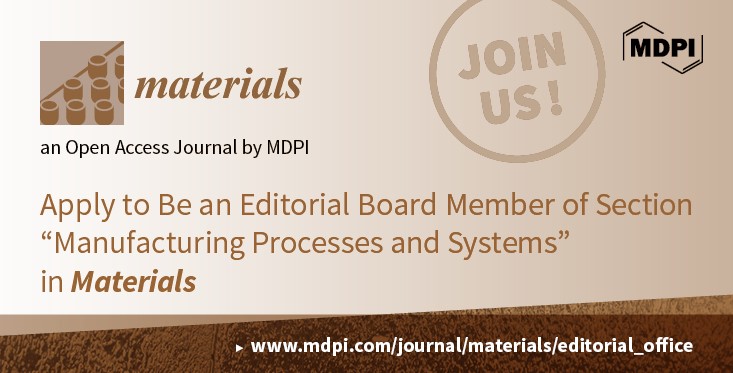
Materials (ISSN: 1996-1944) is an international, peer-reviewed, open access journal published semi-monthly online by MDPI. It publishes reviews, regular research papers (articles), and communications that advance the in-depth understanding of the relationship between the structure, the properties, and the functions of all kinds of materials. It is abstracted and indexed by SCIE, Scopus, and other databases. Citations are available on PubMed, and full texts are archived in PubMed Central. 2019 IF for Materials was 3.057.
The main responsibilities of Section Editorial Board Members are as follows:
1) Supervising the quality of the papers in this Section (when we have new submissions in the Section);
2) Acting as a/recommending a Guest Editor for a Special Issue on a topic related to your research interests;
3) Providing conference/society cooperation recommendations.
This position is open to experts in Manufacturing Processes and Systems. To apply for this position, recommend potential candidates, or request further information, please contact the Materials Editorial Office ([email protected]) or Riley Ren ([email protected]).
18 June 2021
Materials | 2021 International Conference on Materials: Advanced and Emerging Materials (ICM-CN 2021)—Open for Submission
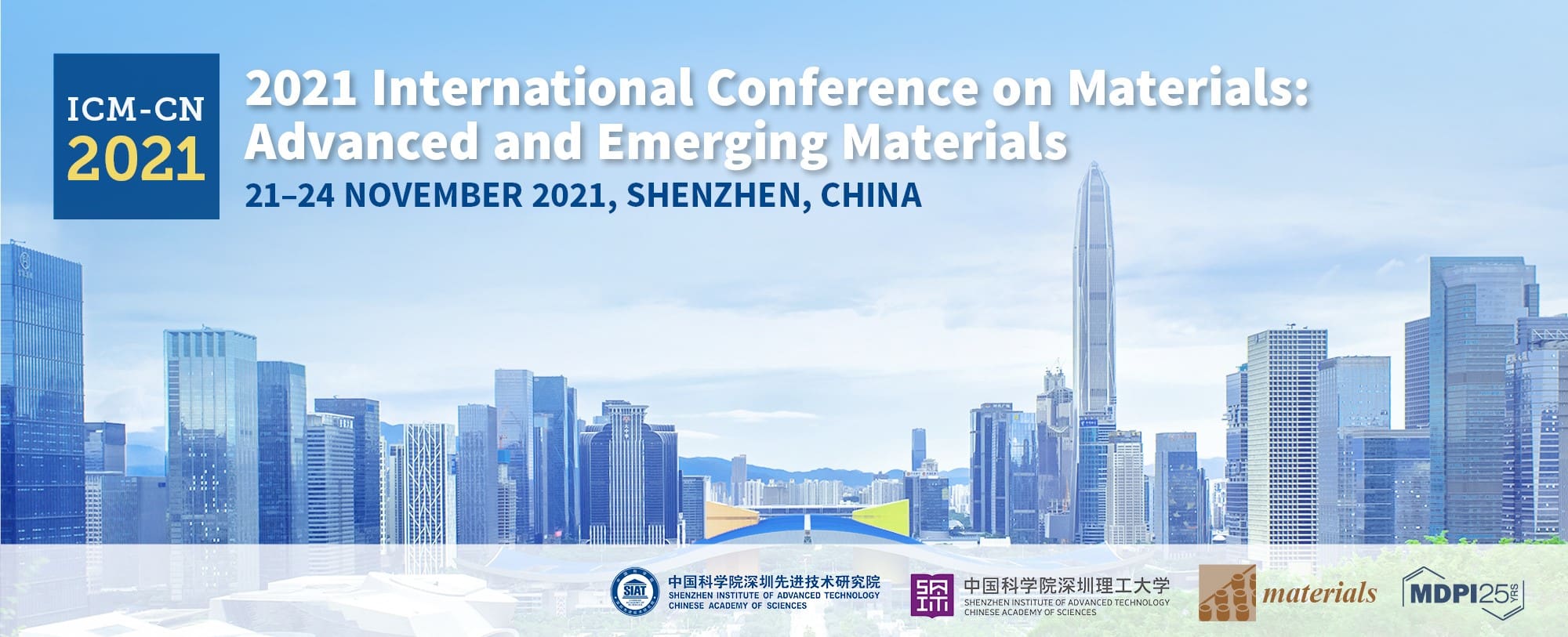
It is with great enthusiasm that we announce the 2021 International Conference on Materials: Advanced and Emerging Materials (ICM-CN 2021). The conference is organized by the MDPI open access journal Materials (Impact Factor 3.057) and co-organized by the Shenzhen Institutes of Advanced Technology (SIAT) of the Chinese Academy of Science (CAS). It will be held in Shenzhen, Guangdong, China, from the 21st to 24th November 2021.
This conference will provide leading scientists working in this field with a platform to share their latest research and engage in exciting discussions.
The main topics of the conference include but are not limited to:
- Electronic material;
- Biomaterials;
- Smart materials;
- Energy materials;
- Advanced composites;
- Rare-earth materials;
- Optics and photonics;
- Advanced nanomaterials and nanotechnology;
- Structure materials and their application;
- Porous materials;
- Polymeric materials;
- Quantum materials.
After the conference, all accepted conference papers will be published in the proceedings of this conference within a dedicated issue of the MDPI journal Materials Proceedings. In addition, all participants will be encouraged to submit an extended full manuscript to one dedicated Special Issue in Materials with a 500 CHF discount on the Article Processing Charge (APC).
We hope that you will join this symposium to exchange ideas, communicate fruitful collaborations, and make this conference a success.
For more information, please visit the conference official website: https://2021icm-cn.sciforum.net/.
18 June 2021
Materials Has Received an Increased CiteScore of 4.2

It is our great pleasure to announce that Materials (ISSN 1996-1944) has received an increased CiteScore (2020 Scopus data) of 4.2 for the year 2020, which equals the rank of 135/411 (Q2) in “Physics and Astronomy: Condensed Matter Physics”, and the rank of 159/455 (Q2) in “Materials Science: General Materials Science”.
We would like to extend our sincerest gratitude to all authors, reviewers, and editors who have contributed to the journal and enabled this next big step!
25 May 2021
Recruiting Editorial Board Members for Section “Porous Materials” of Materials

Materials (ISSN: 1996-1944) is an international, peer-reviewed, open access journal published semi-monthly online by MDPI. It publishes reviews, regular research papers (articles), and communications that advance the in-depth understanding of the relationship between the structure, the properties, and the functions of all kinds of materials. It is abstracted and indexed by SCIE, Scopus, and other databases. Citations are available in PubMed, and full texts are archived in PubMed Central. The 2019 IF for Materials was 3.057.
The main responsibilities of the Section Editorial Board Members are as follows:
1) Supervising the quality of the papers in this Section (when we have new submissions in the Section);
2) Acting as a/recommending a Guest Editor for a Special Issue on a topic related to your research interests;
3) Providing any conferences/society cooperation recommendation.
This position is open to experts in all aspects of porous materials. To apply for this position, recommend potential candidates, or request further information, please contact the Materials Editorial Office ([email protected]) or Andy Zhan ([email protected]).
18 May 2021
Recruiting Editorial Board Members for a New Section “Soft Matter” in Materials

Our journal Materials has opened a new Section “Soft Matter” and is now recruiting new Editorial Board Members for this Section.
The main responsibilities of the Section Editorial Board Members are as follows:
1) Promoting this new Section on your social media or among your acquaintances;
2) Supervising the quality of the papers in this Section (when we have new submissions in the Section);
3) Acting as a/recommending a Guest Editor for a Special Issue on a topic related to your research interests;
4) Providing any conferences/society cooperation recommendation.
Materials (ISSN: 1996-1944) is an international, peer-reviewed, open access journal published semi-monthly online by MDPI. It publishes reviews, regular research papers (articles), and communications that advance the in-depth understanding of the relationship between the structure, the properties, and the functions of all kinds of materials. It is abstracted and indexed by SCIE, Scopus, and other databases. Citations are available in PubMed, and full texts are archived in PubMed Central. The 2019 IF for Materials was 3.057.
This position is open to experts in Metallic Materials. To apply for this position, recommend potential candidates, or request further information, please contact the Materials Editorial Office ([email protected]) or Holly Han ([email protected]).
11 May 2021
Recruiting Editorial Board Members for a New Section “Metals and Alloys” in Materials

Materials has opened a new Section “Metals and Alloys” and is now recruiting new Editorial Board Members for this Section.
The main responsibilities of the Section Editorial Board Members are as follows:
1) Promoting this new Section on your social media or among your acquaintances;
2) Supervising the quality of the papers in this Section (when we have new submissions in the Section);
3) Acting as a/recommending a Guest Editor for a Special Issue on a topic related to your research interests;
4) Providing any conferences/society cooperation recommendation.
Materials (ISSN: 1996-1944) is an international, peer-reviewed, open access journal published semi-monthly online by MDPI. It publishes reviews, regular research papers (articles), and communications that advance the in-depth understanding of the relationship between the structure, the properties, and the functions of all kinds of materials. It is abstracted and indexed by SCIE, Scopus, and other databases. Citations are available in PubMed, and full texts are archived in PubMed Central. The 2019 IF for Materials was 3.057.
This position is open to experts in Metallic Materials. To apply for this position, recommend potential candidates, or request further information, please contact the Materials Editorial Office ([email protected]) or Anson Geng ([email protected]).
28 April 2021
Book Builder—Compile a Customized E-Book from Your Favorite MDPI Open Access Content
MDPI Books recently released Book Builder, a new online tool to conveniently arrange, design and produce an eBook from any content published in MDPI journals. Book Builder offers two functions: on the one hand (1) Selections, available to every registered user of MDPI; on the other hand (2) Special Issue Reprints, which can be used exclusively by Guest Editors of Special Issues.
Selections
In just a matter of a few clicks, all users are now able to assemble books from MDPI articles and receive instantaneous feedback in the form of a fully produced and compiled book (PDF), which can be downloaded or ordered as print copy. Selections can include any paper published with MDPI, picking and combining content from different journals and special issues.
This way, the user may for example choose to compile an ebook focusing around a particular topic, or assemble articles from a group of others.
We invite you to make yourself familiar with the new tool! The Book Builder can be found here: https://www.mdpi.com/books/book_builder.
Special Issue Reprints
The Book Builder allows Guest Editors of MDPI journals to create a reprint from a successfully completed Special Issue or Topical Collection in book format. If you are a Guest Editor for an MDPI journal, you can use the new tool to create an PDF document which includes all articles published in the Special Issue as well as a book cover and table of contents.
For Special Issues containing a minimum of 5 articles, the Guest Editor can request its publication on the MDPI Book platform. Published reprints are assigned an ISBN and DOI.
In addition to the PDF copy of the Reprint Book, as a token of our gratitude, MDPI offers every Guest Editor one (1) complimentary print copy (via print-on-demand). All contributors benefit from a discount on orders of any additional print copies, to share with colleagues or libraries or others.
In line with our organization's values, MDPI Books publishes all content in open access, promoting the exchange of ideas and knowledge in a globalized world. MDPI Books encompasses all the benefits of open access—high availability and visibility, as well as wide and rapid dissemination. MDPI Books are distributed under the terms and conditions of the Creative Commons Attribution License, meaning as an author you retain the copyright for your work. In addition, with MDPI Books you can complement the digital version of your work with a high-quality printed counterpart.
If you are interested in editing a book volume or series, or have a monograph manuscript to be considered for publication, please submit your proposal online and look at our Information for Authors.
Contact: Laura Wagner, MDPI Books Manager (email)
15 April 2021
MDPI Celebrates Company Milestone With 25th Anniversary Page
"We exist to help scientists achieve their own objectives"

In June of this year, MDPI will celebrate the 25th anniversary of its foundation. To mark this significant milestone, we have created a 25th Anniversary page on our website that evokes the development of our company over the past quarter-century.
MDPI has been a pioneer of Open Access publishing ever since the concept was first created.
In a wide-ranging interview, our CEO Delia Mihaila reflects on the company’s 25th anniversary and its contribution to the world of scientific publishing.
Delia considers how MDPI has evolved since starting life in 1996 as a visionary ‘project’ run out of an apartment in Basel, Switzerland, by Dr. Shu-Kun Lin. A chemist who was passionate about the long-term preservation of rare chemical sample, Dr. Lin was determined to help scholars publish their findings as quickly as possible and make their research results available to as wide a readership as possible worldwide. That determination remains unchanged 25 years later.
Today, MDPI is an international organization with over 4,000 employees based on three continents and in ten countries, and ranks among the world's top four academic publishers.
MDPI's mission is to accelerate access to new scientific research, delivering insight faster for researchers worldwide. Read more here about the company's remarkable success story and what the Open Access publishing model can offer the global scientific community.
10 March 2021
Journal Selector: Helping to Find the Right MDPI Journal for Your Article
At MDPI, we strive to make your online publication process seamless and efficient. To achieve this, our team is continuously developing tools and features to make the user experience useful and convenient.
As the number of academic papers continues to grow, so does the need to analyze and work with them on a large scale. This prompted us to design a new feature aimed at helping researchers find journals that are relevant to their publication by matching their abstract topic. In this regard, we designed a similarity model that automatically identifies the most suitable academic journals for your paper.
We are pleased to introduce Journal Selector, a new feature that measures similarity in academic contexts. By simply entering the title and/or abstract into our Journal Selector, the author will see a list of the most related scientific journals published by MDPI. This method helps authors select the correct journals for their papers, highlighting the time of publication and citability.
The methodology is known as representation learning, where words are represented as vectors in hyperspace. Representation helps us differentiate between different concepts within articles, and in turn, helps us identify similarities between them.
We used an advanced machine learning model to better capture the semantic meanings of words. This helps the algorithm make better predictions by leveraging scientific text representation. In turn, this ensures high precision, helping authors decide which journal they should submit their paper to.
The goal is to support authors to publish their work in the most suitable journal for their research, as fast as possible, accelerating their career progress.
Contact: Andrea Perlato, Head of Data Analytics, MDPI (email)
4 March 2021
Recruiting Editorial Board Members for a New Section “Advanced and Functional Ceramics” in Journal Materials
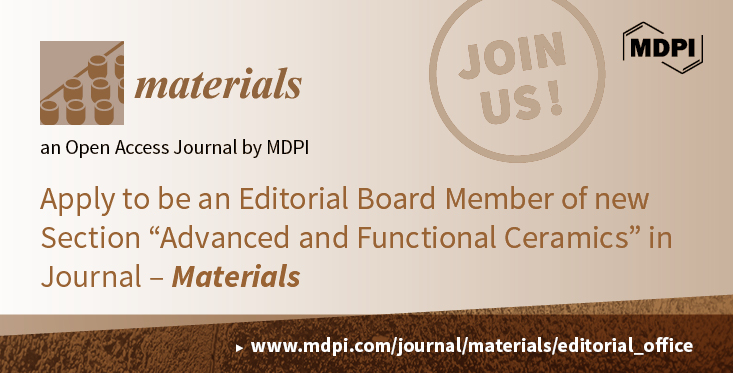
Our journal Materials is planning to add a new section “Advanced and Functional Ceramics” and now recruiting new Editorial Board Members for this section (https://www.mdpi.com/journal/materials/sections/Advanced_Functional_Ceramics).
The main responsibilities of the Section Editorial Board Members are as follows:
- promoting this new section at your social media or among your acquaintances;
- supervising the quality of the papers in this section later (when we have new submissions in the section);
- acting as a/recommending a Guest Editor for a Special Issue on a topic related to your research interests;
- providing any conferences/society cooperation recommendation.
Materials (ISSN: 1996-1944) is an international, peer-reviewed, open-access journal published semi-monthly online by MDPI. It publishes reviews, regular research papers (articles), and communications that advance the in-depth understanding of the relationship between the structure, the properties, and the functions of all kinds of materials. It is abstracted and indexed by SCIE, Scopus, and other databases. Citations are available in PubMed and full-text archived in PubMed Central. The 2019 IF for Materials was 3.057.
This Position is Open to Experts in Ceramic Materials. To apply for this position, recommend potential candidates, or request further information, please contact the Materials Editorial Office ([email protected]) or Xinglian Yin ([email protected]).
9 February 2021
Tribute to Female Scientists in Materials | 11 February “International Day of Women and Girls in Science”
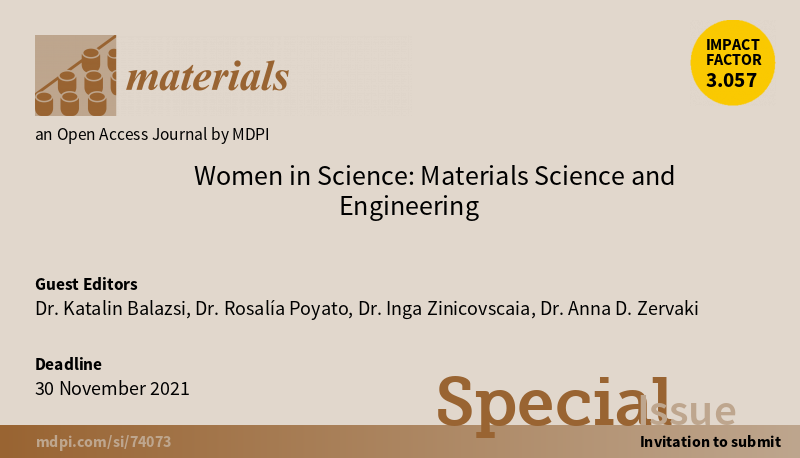
At present, less than 30% of researchers in the world are women. In order to promote full and equal access to participation in science for women and girls, 11 February has been chosen as the “International Day of Women and Girls in Science” by UNESCO and UN Women.
In the continuing spirit of the “International Day of Women and Girls in Science”, Materials is proud to announce the Special Issue “Women in Science: Materials Science and Engineering”, to present the work of women researchers in the field of materials science and engineering.
This Special Issue is open for submissions (from original research to review articles) across all sections of the journal.
27 January 2021
Materials | First Poster Competition on Materials Science—Winners Announced
After 3 months of heated competition, we are pleased to announce the winners of the First Poster Competition on Materials Science, selected by the Evaluation Committee.
First Prize (CHF 500 and a 50% discount voucher)
|
Magnetoplasmonics in Indium Tin Oxide Nanoparticles Alessio Gabbani, Elvira Fantechi, Gaia Petrucci, Marina Ruggeri, Francesco Pineider ‘Materials is one of the best open-access journals within the field of Material Science, with an interdisciplinary nature and covering a wide range of fundamental and applied aspects of different types of material. The "First Poster Competition on Material Science" was a great opportunity to share our work with other researchers within the field of Material Science. As it is currently not possible to meet in person, the online platform provided a good alternative, broadening the audience and allowing results to be shared in a more flexible manner.’ |
Second Prize (CHF 300 and a 30% discount voucher each)
|
Diamond Magnetometry for Localized Free Radical Measurements in Single Sperm Cell Thamir Hamoh, Claudia Reyes, Yue Zhang, Runrun Li, Alina Sigaeva, Thea Vedelaar, Jakub Kawalko, Aldona Mzyk, Romana Schirhagl ‘A well organized online event, where it was possible to view a variety of posters.’ |
|
HyCARE: Hydrogen Carrier for Renewable Energy Storage Erika Michela Dematteis, Jussara Barale, Mattia Costamagna, Paola Rizzi, Marcello Baricco, Camel Makhloufi, Nils Bornemann, Bettina Neumann, Carlo Luetto, Holger Stühff, Matteo Testi, Chiara Pellegrini, Luigi Crema, Giovanni Capurso, José Bellosta Von Colbe, Klaus Taube, Bjorn Hauback, Monica Risso, Sabina Fiorot, Davide Damosso, Fermin Cuevas, Michel Latroche ‘An interesting opportunity to disseminate, comment on, and share our research activity to a broad audience. Thank you for this opportunity!’ |
Third Prize (CHF 200 and a 20% discount voucher each)
|
Javier Bonet Aletá, Mari Carmen Ortega-Liébana, Jose L. Hueso Martos, Jesús Santamaría ‘This competition has been a unique oportunity for young researchers to increase the visibility and economic advantages of their work.’ |
|
Smart and Connected Stent with Nanomembrane Sensors for Wireless Monitoring of Hemodynamics Robert Herbert, Hyo-Ryoung Lim, Woon-Hong Yeo ‘The activity was well organized, and I thought the idea of using Twitter was helpful in terms of virtual networking and asking/answering questions. In the future, it would be nice to receive feedback or questions during the judging process.’ |
|
Synthesis, Integrity, and Biocompatibility of scFvD2B Coated Gold Nanoparticles in Human Blood Nadim Mitri, Kamil Rahme, Giulio Fracasso, Esther Ghanem ‘It was a great pleasure to be part of this poster competition, which has received considerable interest among researchers and students.’ |
Congratulations to the above winners! We would like to express our sincere gratitude to all participants for their support in our competition.
For a full list of posters, please see the Poster Panel: https://sciforum.net/conference/PCMS.
For any questions, please contact [email protected].
15 December 2020
MDPI adopts C4DISC principles to improve diversity and inclusion in scholarly communications
MDPI is proud to adopt the principles of the Coalition for Diversity & Inclusion in Scholarly Communications (C4DISC) to support building equity, inclusion, diversity, and accessibility in scholarly communications.
The C4DISC represents organizations and individuals working in scholarly communications and is focused on addressing issues of diversity and inclusion within the publishing industry.
MDPI’s Managing Editors encourage the Editors-in-Chief and Associate Editors to appoint diverse expert Editorial Boards. This is also reflective in our multi-national and inclusive workplace. We are proud to create equal opportunities without regard to gender, ethnicity, geographic location, sexual orientation, age, disability, political beliefs, religion, or socio-economic status. There is no place for discrimination in our workplace and editors of MDPI journals are to uphold these principles in high regard.
Representatives from C4DISC meet monthly, and have started to implement initiatives to shed light and improve on the lack of diversity in scholarly communications. Some of the initiatives include developing a joint statement of principles; conducting market research; providing training resources, best practices, toolkits, and documentation for our collective memberships; and establishing outreach programs, curricula, events, and publications.
The Coalition is committed to:
- eliminating barriers to participation, extending equitable opportunities across all stakeholders, and ensuring that our practices and policies promote equitable treatment and do not allow, condone, or result in discrimination;
- creating and maintaining an environment that respects diverse traditions, heritages, and experiences;
- promoting diversity in all staff, volunteers, and audiences, including full participation in programs, policy formulation, and decision-making;
- raising awareness about career opportunities in our industries to groups who are currently underrepresented in the workforce;
- supporting our members in achieving diversity and inclusion within their organizations.
14 December 2020
Article Layout and Templates Revised for Future Volumes
At MDPI we have slightly revised the layout for articles to be published in the 2021 Volume, starting at the end of December 2020. As of today, the article templates available for download on ‘Instructions for Authors’ pages have been updated.
The most noticeable change can be found on the first page of the article, where a left-hand column has been created to include the following front matter elements: (i) the recommended citation style for the article, (ii) the publishing history, (iii) as well as the Creative Commons Attribution license used (iv) a standard note regarding affiliations. At the same time, the extra spacing on the left means the authors’ affiliations are now more clearly set apart than before. Other front matter key elements such as journal logo, article type, article title, authors, abstract and keywords remain unchanged.
The blank column on the left runs through all pages in an article; as a result, the main text is slightly more condensed, which improve reader friendliness for smaller screens. Small figures/tables are aligned on the left with standard indenture, while large figures/tables are centered and covering the full width of the page. The revised layout was applied in the article pictured below, to serve as an example:

1) Information is displayed in the left information bar.

2) In the main text, there is a blank column on the left.

3) Small tables/figures are aligned on the left, large tables/figures are centered.
11 December 2020
2020 "Highly Cited Researchers" on MDPI Journal's Editorial Boards
We are pleased to acknowledge that many academic editors who have made an impact on MDPI journals as editorial board members, editors-in-chief, or section editors, are recognized as 2020 Highly Cited Researchers by Clarivate.
Highly Cited Researchers highlights the top 1% of researchers, by citations, in one or more of the 22 fields used in Clarivate Analytics Essential Science Indicators. We offer our congratulations to 279 academic editors of MDPI journals who were recognized as the most influential scholars in their fields in 2020.
Adams, Dave Agarwal, Ravi P. Ahn, Choon Ki Ahn, Myung-Ju Albrecht, Randy A. Andersson, Dan I. Anker, Stefan D. Apergis, Nicholas Ariga, Katsuhiko Artaxo, Paulo Balsamo, Gianpaolo Barba, Francisco J. Benediktsson, Jon Atli Benelli, Giovanni Bhatnagar, Amit Bialystok, Ellen Blaabjerg, Frede Blay, Jean-Yves Bogers, Marcel Bolton, Declan J. Boyer, Cyrille Brocca, Luca Bruix, Jordi Buhalis, Dimitrios Burdick, Jason A. Byrd, John C. Cabeza, Luisa F. Cabrerizo-Lorite, Francisco Javier Cai, Jianchao Calhoun, Vince D. Cantu, Robert C. Cerqueira, Miguel Chang, Jo-Shu Chau, Kwok-wing Chemat, Farid Chen, Jianmin Chen, Jun Chen, Min Chen, Shaowei Chen, Wei Chen, Wei-Hsin Chen, Xiaofeng Chen, Yangkang Chen, Zhi-Gang Chiclana, Francisco Corella, Dolores Cortes, Javier Cortes, Jorge Cummings, Kenneth Michael Dai, Shifeng Decker, Eric A. DePinho, Ronald A. Dimopoulos, Meletios-Athanasios Dincer, Ibrahim Du, Yihong Dupont, Didier Edwards, David Ellahi, Rahmat Ellis, Erle C. ElMasry, Gamal Esteller, Manel Estruch, Ramón Fang, Chuanglin Fasano, Alessio Fernandez-Lafuente, Roberto Ferreira, Isabel Fortino, Giancarlo Galluzzi, Lorenzo Galvano, Fabio Gandomi, Amir H. Gandomi, Amir H. Gao, Bin Gao, Feng Gao, Wei Garbe, Claus García, Hermenegildo Geschwind, Daniel H. Giampieri, Francesca Giralt, Sergio A. Glanz, Karen Goldewijk, Kees Klein Gössling, Stefan Govindan, Kannan Granato, Daniel Grosso, Giuseppe Grosso, Giuseppe Guerrero, Josep M. Haase, Dagmar Hagger, Martin S. Hamblin, Michael R. Han, Heesup Jankovic, Joseph Janotti, Anderson |
Jiang, Hai-Long Kalaji, Hazem M. Kalantar-Zadeh, Kourosh Kaner, Richard B. Karimi, Hamid Reza Kataoka, Kazunori Keesstra, Saskia Kepp, Oliver Kerminen, Veli-Matti Keyzers, Robert A. Khademhosseini, Ali Khan, Nafees A. Kim, Ki-Hyun Klemeš, Jiří Jaromír Klenk, Hans-Peter Konopleva, Marina Y. Krammer, Florian Krebs, Frederik C. Kroemer, Guido Kudo, Masatoshi Kurths, Juergen Kurzrock, Razelle Kuznetsov, Nikolay V. Kyrpides, Nikos C. La Vecchia, Carlo Lai, Yuekun Lam, James Lancellotti, Patrizio Lee, Sangmoon Leung, Victor C. M. Li, Jinghong Li, Yurui Lindahl, José M. Merigó Lip, Gregory Y. H. Loh, Xian Jun Long, Hualou Lund, Henrik Luo, Jingshan Luque, Rafael Lyons, Timothy W. Ma, Jun Ma, Wen-Xiu Ma, Yanming Maeda, Keisuke Makarova, Kira Mantovani, Alberto Martín-Belloso, Olga Martinoia, Enrico Marzband, Mousa Masclaux-Daubresse, Celine Masson, Patrick Mateos, María Victoria Mathiesen, Brian Vad Matyjaszewski, Krzysztof McArthur, Grant A. McCauley, Darren Medlock, Jolyon M. Melero, Ignacio Mezzetti, Bruno Miroshnichenko, Andrey E. Moran, Daniel Mueller, Lukas A. Mueller-Roeber, Bernd Naushad, Mu Nemeroff, Charles B. Nieto, Juan J. O'Donnell, Colm Ogino, Shuji Olabi, Abdul-Ghani O'Regan, Donal Orsini, Nicola Oswald, Isabelle P. Ozcan, Aydogan Pahl-Wostl, Claudia Pang, Huan Payne, James E. Peng, Shushi Perc, Matjaz Perez-Alvarez, Jose Angel Piquero, Alex R. Ploss, Alexander Postolache, Mihai Pradhan, Biswajeet Prinsep, Michele R. Qian, Dong Qu, Xiaogang Reiter, Russel J. Riahi, Keywan Richter, Andreas Rignot, Eric Robert, Caroline Ros, Emilio Rosell, Rafael |
Rosen, Marc A. |
The full list of 2020 Highly Cited Researchers can be accessed on https://recognition.webofsciencegroup.com/awards/highly-cited/2020/
--- Highly Cited Researchers (HCR) is a Clarivate product.
27 November 2020
Meet Us at 2020 MRS Fall Meeting—Virtual
MDPI will be attending 2020 MRS Fall Meeting & Exhibit, to be held in virtual form from 27 November to 4 December 2020.
This conference is the key forum to present research to an interdisciplinary and international audience. It represents a window to the future of materials science and offers an opportunity for researchers—from students and postdoctoral fellows, to Nobel and Kavli Prize Laureates—to exchange technical information and connect with colleagues.
The following MDPI journals will be represented:
If you are attending this conference, please feel free to start an online conversation with us. Our delegates look forward to meeting you in person and answer any questions you may have. For more information about the conference and our virtual booth, please visit: http://ii070.cn/Qi9MrG
5 November 2020
Recruiting Editorial Board Members for Materials
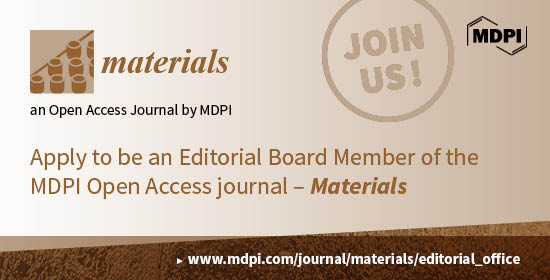
Our journal Materials is recruiting new Editorial Board Members. We would like to invite you to visit our welcome message at https://www.mdpi.com/journal/materials/editors
The main responsibilities of the Editorial Board Members are as follows:
1) Making decisions on whether a manuscript can be accepted based on the reports we collect;
2) Reviewing a small number of papers per year;
3) Acting as a/recommending a Guest Editor for a Special Issue on a topic related to your research interests;
4) Promoting Materials and increasing its visibility at related academic conferences.
Materials (ISSN: 1996-1944) is an international, peer-reviewed, open-access journal published semi-monthly online by MDPI. It publishes reviews, regular research papers (articles), and communications that advance the in-depth understanding of the relationship between the structure, the properties, and the functions of all kinds of materials. It is abstracted and indexed by SCIE, Scopus, and other databases. Citations are available in PubMed and full-text archived in PubMed Central. The 2019 IF for Materials was 3.057.
This Position is Open to Experts in Materials Science. To apply for this position (to one of our Sections), recommend potential candidates, or request further information, please contact the Materials Editorial Office ([email protected]) or Selina Yang ([email protected]).
27 October 2020
1st Corrosion and Materials Degradation Web Conference
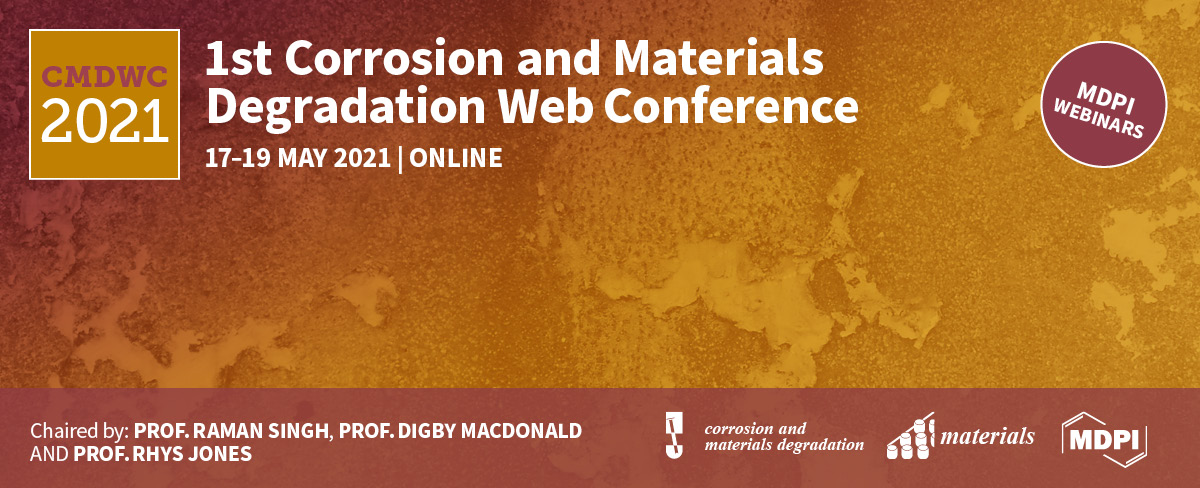
We are pleased to announce that the 1st Corrosion and Materials Degradation Web Conference (CMDWC 2021), organized by the MDPI open-access journals Corrosion and Materials Degradation (CMD) and Materials, will be held on https://sciforum.net/conference/CMDWC2021 from 17 to 19 May 2021. The conference chairs are Prof. Raman Singh, Prof. Digby Macdonald, and Prof. Rhys Jones.
All corrosion scientists or engineers, as well as those associated with the mechanical degradation of materials, are welcome to join this event and share their findings around the following general and related themes. Note that this list is not exclusive.
- Mechanism and Predictive/Deterministic Aspects of Corrosion;
- Corrosion in Concrete and Porous Media;
- Materials Degradation in Defense and Civilian Aircrafts;
- Composite and Bonded Structures;
- Corrosion Assessment and Management;
- Atmospheric Corrosion of Materials;
- Microbiologically Influenced Corrosion;
- Corrosion-Barrier Coatings;
- Corrosion and Degradation of Biomaterials;
- Fatigue and Creep Degradations;
- Degradation of Additively Manufactured Materials;
- Corrosion in Nuclear Industries;
- High-Temperature Corrosion;
- Corrosion Mitigation.
Abstracts should be submitted by 20 March 2021 online. There is no registration fee for all participants (authors). Submitted abstracts will be reviewed by the conference committee. Following the conference, selected contributions will be invited for submission for publication in the journals Corrosion and Materials Degradation (CMD) and Materials (Impact Factor: 3.057).
Timeline:
Abstract Submission: 20 March 2021
Notification of Acceptance: 14 April 2021
Conference: 17–19 May 2021
For more information on IOCN2020, please visit the conference website (https://sciforum.net/conference/CMDWC2021) or contact us by email ([email protected]).
26 October 2020
Meet us at the China Materials Conference and Exhibition 2020, Qingdao, Shandong, China, November 19–21, 2020
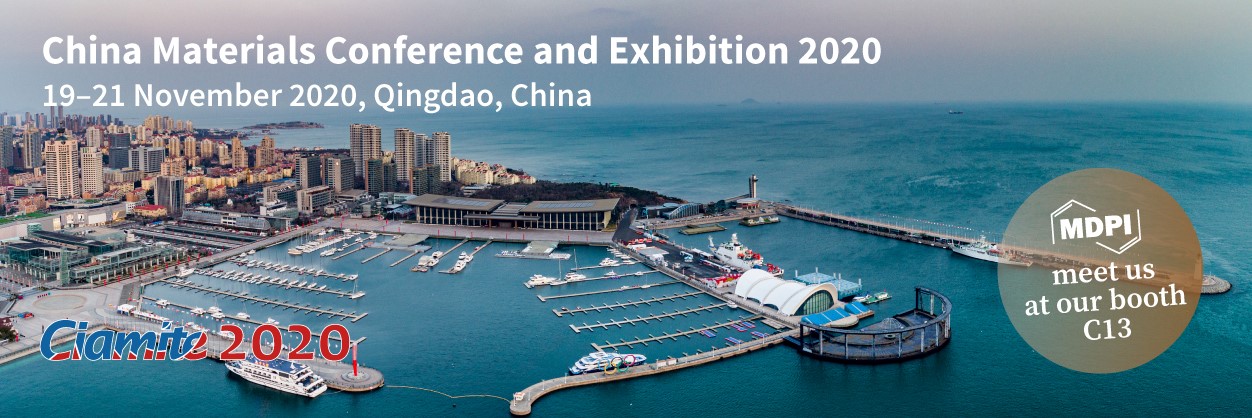
MDPI will be attending the China Materials Conference and Exhibition 2020, Qingdao, Shandong, China, November 19–21, 2020.
CMC's 19th annual meeting is the premier venue for the presentation in the field of materials sciences, where one can learn from experts, forge collaborations with peers, explore new tools and technologies, and advance their career.
The purpose of the conference is to build an exchange platform for experts, scholars, professors, scientific and technological workers, relevant government management departments and leaders, entrepreneurs, and related personnel, engaged in the scientific research, development, and industrialization of new materials in China to exchange and share the latest materials research achievements, in order to achieve the purpose of mutual promotion and common improvement.
There are many outstanding people in the committee of the meeting, such as Professor Boyun Huang and Academician Lian Zhou of the Chinese Academy of Engineering, Professor Bingbo Wei of the Chinese Academy of Sciences, etc. The following MDPI journals will be represented:
- Coatings (leading journal);
- Materials;
- Crystals;
- Energies;
- Molecules;
- Metals;
- Nanomaterials;
- Polymers.
- Actuators
- Sustainability
- Membranes
- Technologies
- Gels
- ASI
If you are also attending this conference, please feel free to stop by our booth (Booth C13). Our delegates look forward to meeting you in person to answer any questions you may have. For more information about the conference, please visit: http://cmc2020.medcon.net.cn/cn/web/index/
20 September 2020
First Poster Competition on Material Science Postponed to 5 November 2020
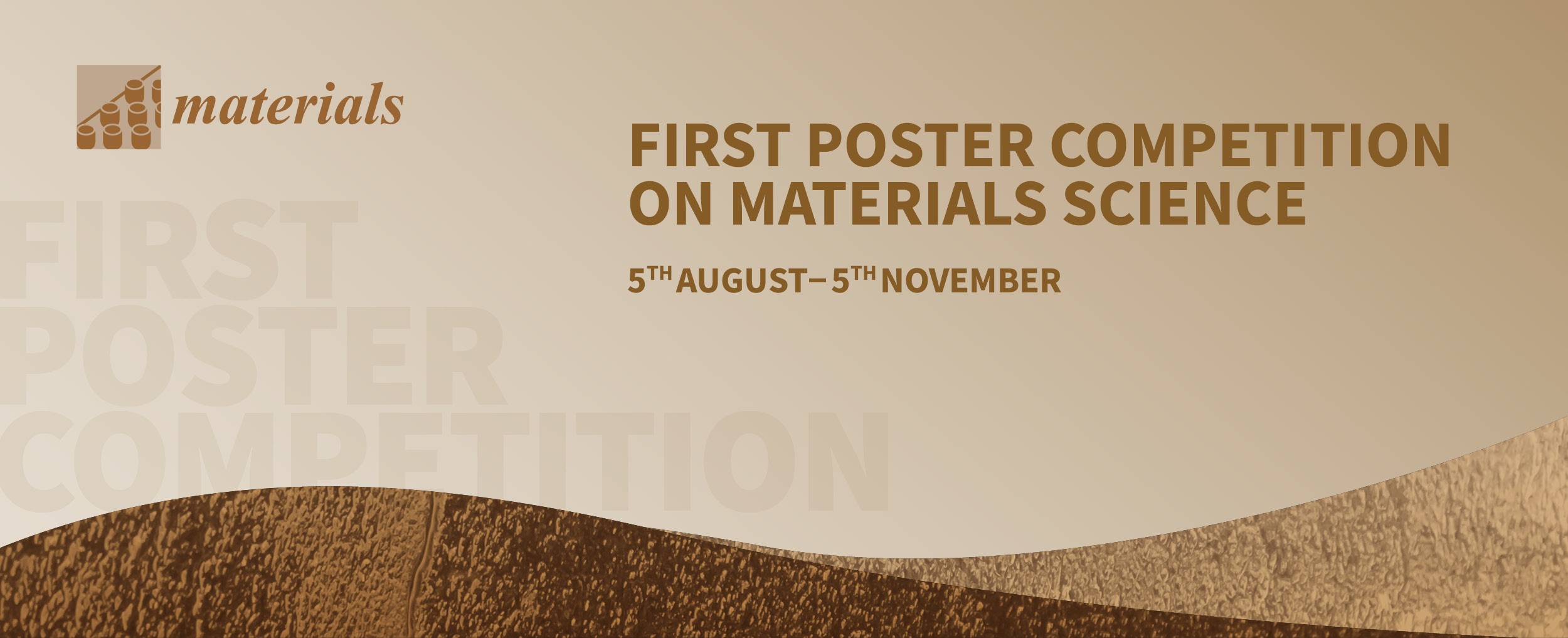
At the request of the majority of scholars and considering the modification requirements for current submissions, we have decided to postpone the poster competition to 5 November 2020. Please check the competition details and submit all required documents via our official website.
Topic: All aspects of Materials Science.
Date: 5 August to 5 November
Submit your poster: https://sciforum.net/conference/PCMS
Requirements:
- The content of the poster can be a comprehensive presentation of your recent research results or a summary of the cutting-edge research in your field. However, all posters must be related to Materials Science.
- No copyright issues with any elements in the poster.
- The minimum size for images is 148 mm × 210 mm (horizontal × vertical) at 300 dpi.
- Posters should be in gif/jpg/png/jpeg/bmp format and no larger than 4 MB.
- The poster should be submitted to the system along with a valid link on Twitter about the poster before 5 November.
- Applicants should be PhD students or researchers with a PhD degree in Materials Science or a related field.
Required Application Documents:
- A caption with poster title and brief introduction.
- An updated CV and a scanned copy of the applicant’s doctorate/student certificate.
- A link corresponding to a relevant tweet about the poster on Twitter.
To register for the poster prize:
- Register and submit via Sciforum.
- Tweet about your poster with the title, #MaterialsPoster, and any other relevant subject hashtag(s).
- Share your poster with as many as people as possible.
- Discuss and answer questions from the community or committee members.
- Win a prize if your poster is selected as the best!
Evaluation criteria:
- Number of likes/retweets of each entry by 5 December (20% of the total score)
- Voting results by poster committee (80% of the total score)
- Originality/Novelty
- Interest to the readers
- Rich in content and coherent
- Significance of content
Prize:
First Prize: 500 CHF and a 50% discount voucher;
Second Prize: 300 CHF and a 30% discount voucher each;
Third Prize: 200 CHF and a 20% discount voucher each;
Note: The voucher can be applied to manuscripts submitted to Materials before 31 December 2021.
The winners will be announced on the Materials website and on Twitter by end of December.
For any questions, please contact [email protected].
19 August 2020
Prof. Dr. Noam Eliaz is named Senior Member of the National Academy of Inventors (NAI)
We are happy to announce that Professor Noam Eliaz from Tel-Aviv University, an Editorial Board Member of Materials, Corrosion and Materials Degradation and Coatings, has been elected to the National Academy of Inventors (NAI), USA, as a Senior Member. This award is for Dr. Eliaz’s “success in patents, licensing, and commercialization”, “technologies that have brought, or aspire to bring, real impact on the welfare of society”, and “contributions to the innovation ecosystem” at Tel-Aviv University, recognizing Prof. Eliaz “as a rising leader and inventor” in his field.
7 August 2020
Meet the Editors | Interview with Prof. Dr. Maryam Tabrizian - EiC of Materials
We are pleased to present a Q&A interview with Professor Maryam Tabrizian, Editor-in-Chief of Materials since 2011.
5 August 2020
Materials Science—First Poster Competition
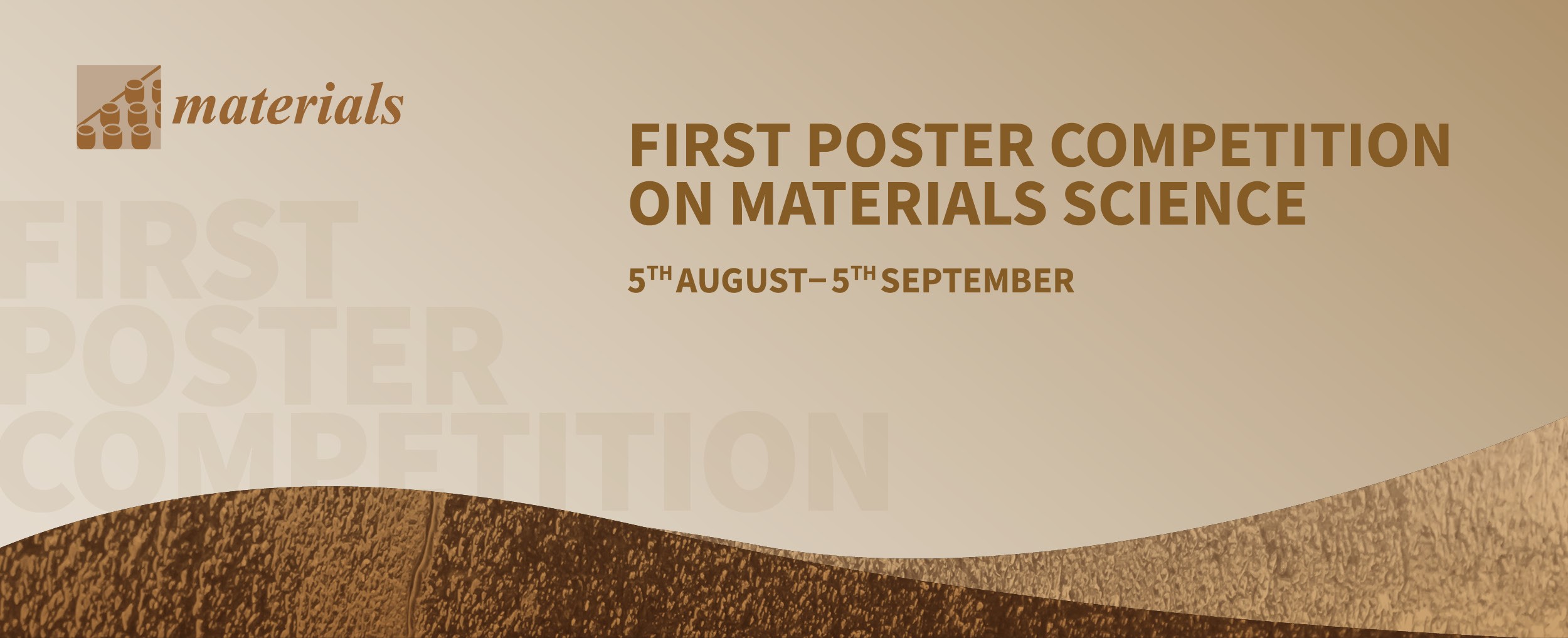
To encourage academic exchange and communication, we are pleased to announce that the Materials Science First Poster Competition has now commenced.
Topic: All aspects of Materials Science.
Date: 5 August to 5 September
Submit your poster: https://sciforum.net/conference/PCMS
Requirements:
- The content of the poster can be a comprehensive presentation of your recent research results or a summary of the cutting-edge research in your field. However, all posters must be related to Materials Science.
- No copyright issues with any elements in the poster.
- The minimum size for images is 148 mm × 210 mm (horizontal × vertical) at 300 dpi.
- Posters should be in gif/jpg/png/jpeg/bmp format and no larger than 4 MB.
- The poster should be submitted to the system along with a valid link on Twitter about the poster before 5 September.
- Applicants should be PhD students or researchers with a PhD degree in Materials Science or a related field.
Required Application Documents:
- A caption with poster title and brief introduction.
- An updated CV and a scanned copy of the applicant’s doctorate/student certificate.
- A link corresponding to a relevant tweet about the poster on Twitter.
To register for the poster prize:
- Register and submit via Sciforum.
- Tweet about your poster with the title, #MaterialsPoster, and any other relevant subject hashtag(s).
- Share your poster with as many as people as possible.
- Discuss and answer questions from the community or committee members.
- Win a prize if your poster is selected as the best!
Evaluation criteria:
- Number of thumb up/retweets of each entry by 5 October (20% of the total score)
- Voting results by poster committee (80% of the total score)
- Originality/Novelty
- Interest to the readers
- Rich in content and coherent
- Significance of content
Prize:
First Prize: 500 CHF and a 50% discount voucher;
Second Prize: 300 CHF and a 30% discount voucher each;
Third Prize: 200 CHF and a 20% discount voucher each;
Note: The voucher can be applied to manuscripts submitted to Materials before 31 August 2021.
The winners will be announced on the Materials website and on Twitter by end of October.
For any questions, please contact [email protected].
9 July 2020
Open Access Agreement Between Jisc Collections and MDPI
We are delighted to announce the establishment of our Open Access agreement with Jisc Collections, which will allow UK institutions to benefit from access to article processing charge (APC) discounts and streamlined payment workflows.
All institutions participating in the agreement will also gain access to the MDPI online submission system where they can find full article metadata and pricing information for easy identification and additional transparency.
Eligible authors affiliated with the participating institutions are prompted to choose the corresponding Institutional Open Access Program (IOAP) when they submit an article via our online submission system.
About Jisc
Jisc's vision is for the UK to be the most digitally advanced education and research nation in the world. At its heart is the super-fast national research and education network, Janet, with built-in cyber security protection. Jisc also provides technology solutions for its members (colleges, universities and research centres) and customers (public sector bodies), helps members save time and money by negotiating sector-wide deals and provides advice and practical assistance on digital technology. Jisc is funded by the UK higher and further education and research funding bodies and member institutions.
For more information, contact [email protected].
About MDPI
MDPI is a publisher of fully peer-reviewed, Open Access journals with a focus on thorough and rapid editorial processing. Its aim is to ensure that high-quality research is verified and made available to the research community as quickly as possible. MDPI stands at the forefront of the Open Access movement, having launched its first online journal Molecules in 1996. Today, MDPI is a leader in Open Access publishing with over 250 journals across all research disciplines, and all content published under a Creative Commons Attribution License (CC BY).
For any questions about this agreement, please contact the MDPI IOAP team at [email protected].
18 May 2020
Materials Free Webinar: Advances in Materials, Coatings and Corrosion Research—22 May 2020

MDPI has provided several Free Open Platforms that may help accelerate scientific exchange and provide support to academics during this particularly tough period. Thanks to our brilliant technical support, we are pleased to report that the first Materials webinar on Advances in Materials, Coatings and Corrosion Research is coming soon.
Date: Friday 22 May 2020 | 3 PM CEST/ 11 PM AEST/ 9 AM EDT
Duration: Maximum 1 hour 30 minutes
Webinar ID: 814-2687-4917
Register for Free Here: https://materials-1.sciforum.net/
Chair:
|
Prof. Dr. Raman Singh |
Interests: nano-micro structure; environment-assisted degradation and fracture of metallic and composite materials; nanotechnology for advanced mitigation of degradation |
Speakers:
|
Presentation: Corrosion Behavior of New Alloys Obtained by Additive Manufacturing |
Prof. Dr. Marina Cabrini |
|
Assistant Prof. Dr. Marjetka Conradi |
Presentation: Manipulation of TiO2 Nanoparticle/Polymer Coatings Wettability and Friction in Different Environments |
For any questions about the webinar, please send an email to [email protected].
13 May 2020
COVID-19 Academic Resources Center

Since 1996, MDPI has been committed to supporting the research community by providing the latest research freely available and making relevant and useful research available as quickly as possible. The world is current experiencing a pandemic of COVID-19, and researchers are working extremely hard to understand it and find a cure.
The values MDPI holds strongly are particularly important at the moment, and we will continue to publish relevant, peer-reviewed research as quickly as possible in open access format. This means that it will immediately be available for researchers, health professionals, and the general public to read, distribute, and reuse. We believe that scientific advancements will be crucial to overcoming this pandemic, and will do everything we can to support researchers working looking for solutions.
COVID-19 Academic Resources Center contains a variety of information related to COVID-19 available from MDPI, including journal articles, special issues, and preprints, among others.
For more information, please visit: https://www.mdpi.com/covid-19
9 April 2020
Free Open Platforms to Support Academics During the COVID-19 Pandemic

As a leading Open Access publisher, MDPI is committed to fostering open scientific exchange in all forms across all disciplines. Due to the outbreak of COVID-19, many researchers have to stay at home and many academic conferences have been cancelled or postponed. In light of these changes, MDPI has adopted numerous initiatives that may help accelerate scientific exchange and provide support to the academics during this period.
Scholarly Community—Encyclopedia
Encyclopedia is an online reference created and curated by active scholars. It aims to highlight the latest research results as well as providing benchmark information for researchers and the general public interested in accurate and advanced knowledge on specific topics.
Comprehensive and Free Literature Database—Scilit
Scilit is a comprehensive, free database for scientists that uses a new method to collate data and index scientific material. Our crawlers extract the latest data from CrossRef and PubMed on a daily basis. This means that newly published articles are immediately added to Scilit.
Display Academic Achievements—SciProfiles
SciProfiles is an innovative social network for researchers and scholars that is developed by MDPI. In line with our broad mission, the purpose of SciProfiles is to accelerate discovery and innovation by facilitating immediate access to research results and providing opportunities for academic networking.
Organize and Participate in Conferences Online—Sciforum
Sciforum is an event planning platform that supports open science by offering the opportunity to host and participate in academic conferences. It provides an environment for scholarly exchange, discussion of topics of current interest, building of networks, and establishing collaborations.
Post Early Versions of Research Outputs—Preprints
Preprints is a platform dedicated to making early versions of research outputs permanently available and citable. We post original research articles and comprehensive reviews, and papers can be updated by authors at any time. Content on Preprints is not peer-reviewed, and feedback can be received from readers.
***
MDPI remains committed to open science and open data and has signed a statement, along with more than thirty scholarly publishers, showing our intention to facilitate sharing of new research findings as early on as possible. The initiative sees publishers collectively removing barriers to new research, in the face of a global healthcare crisis.
25 March 2020
MDPI Comment on the COVID-19 Virus
The world is currently suffering from a global pandemic of the corona virus COVID-19. MDPI expresses its sympathies for all of those affected by the virus and stands in solidarity with medical staff and researchers treating patients and searching for scientific solutions.
MDPI has previously published papers covering corona viruses in addition to new papers on the current outbreak, see all papers here. In particular, Viruses has published a number of Special Issues and papers on the topic (see here, here, and here) as well as a forthcoming Special Issue.
Alongside journal articles, MDPI has been a strong supporter of preprints, which are increasingly being used to rapidly disseminate the latest research, and we run the preprint server Preprints.org. Our database of research articles, Scilit, is free to use and covers all publishers including preprint servers. New papers are often in search results within hours of publication and users can set up alerts for new papers.
Our main priority during this period has been the health and safety of staff, and we continue to allow staff to work at home and closely monitor the situation in all locations in which we work. Despite the restrictions, we continue to provide a full publication service and, by close collaboration with our editorial boards and making use our in-house teams, ensure that there are no unnecessary delays in publishing vital research. Fast and open publication has always been at the core of MDPI values and is now more important than ever.
We hope that a solution to the current situation will emerge soon. In the meantime, we will do our best to continue communicating vital research in all fields.
18 March 2020
MDPI Co-Signed Position Statement on Transformative Agreements
The advantages of the open access model of scientific publishing are being increasingly recognized in the scientific community. It allows new scientific evidence to be accessed from the moment of publication for free by anyone around the globe, boosting the impact of new research. In response, many funders, libraries and universities have been adopting new principles to accelerate the transition to open access.
Recently, “transformative agreements” have been negotiated between traditional publishers and various institutions. While increasing the number of open access papers, these agreements lack binding commitments to a full transition to open access, their conditions vary across different regions, and access is still limited for many users.
MDPI is a co-signatory of the recent position statement raising concerns about potential downsides of transformative agreements and how they may delay a full transition to open access. The statement highlights that these models “risk perpetuating current limitations on access, transparency and market competitiveness, while simultaneously facilitating excessive charges on the public purse”.
As a pioneering open access journal publisher, MDPI is the first to promote the importance of science being made available to everyone. Our peer-reviewed journals, covering diverse academic disciplines, are fully accessible to the public free of charge under a Creative Commons Attribution License (CC BY). This is why, along with other open access publishers, MDPI is a proud signatory of the position paper and is committed to contributing to the replacement of weak transitional agreements with “agreements with publishers that are already fully committed to open science and who offer full, immediate and transparent Open Access”.
Read the position paper here
16 March 2020
Encyclopedia Outstanding Contributor Awards 2020 - Open for Application
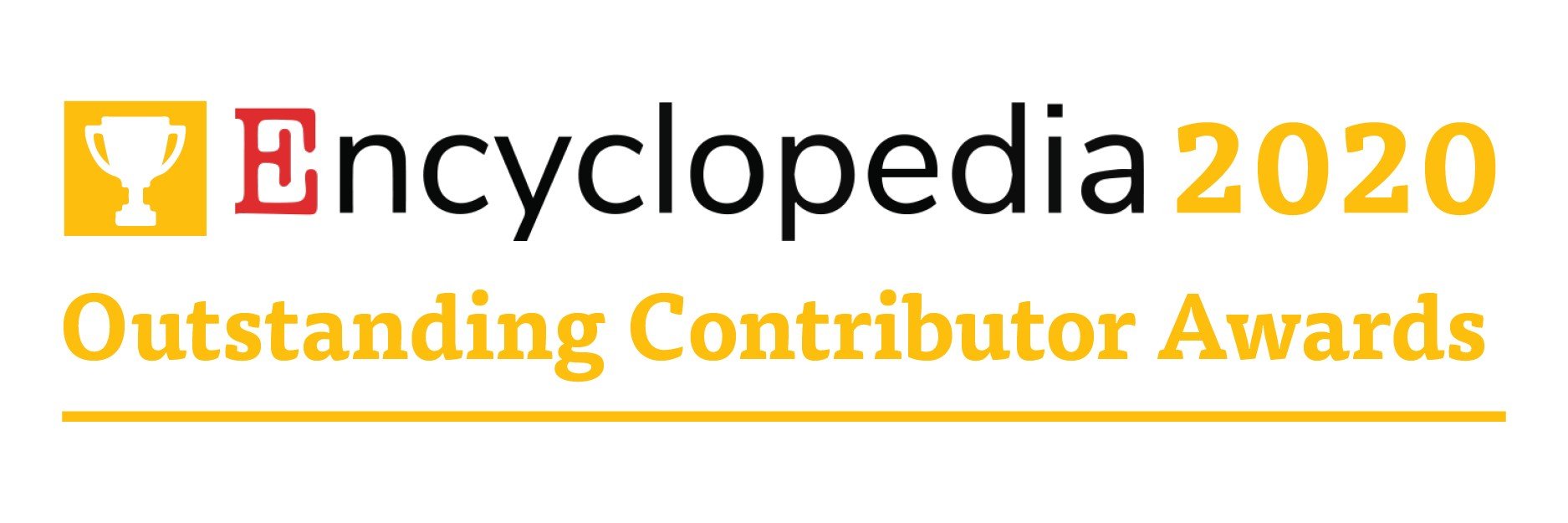
We are pleased to announce that Encyclopedia will be awarding five Outstanding Contributor Awards for researchers in 2020. The nominations and applications will be assessed by an Evaluation Committee consisting of senior scholars from the Encyclopedia Editorial Board.
Prize for Winners
- An official certificate;
- A cash award of 500 CHF or an MDPI discount voucher of 800 CHF.
Application Deadline
31 December, 2020 (Please send your application email with a list of all entries you contributed to our office before the deadline: [email protected])
Candidate Requirements
- Have a Ph.D. degree;
- Have more than three qualified entries published in Encyclopedia in 2020.
Evaluation Standards
- Number of entries published in Encyclopedia in 2020;
- Quality of entries online (including length, figure quality, and novelty);
- Impact of entries (including the number of likes, discussion contents, views, and downloads).
If you are a researcher and have not yet contribute entries to Encyclopedia, please do not miss this chance to highlight your research results.
4 March 2020
Meet us at the 17th International Congress on Catalysis, San Diego, California, USA, June 14-19, 2020
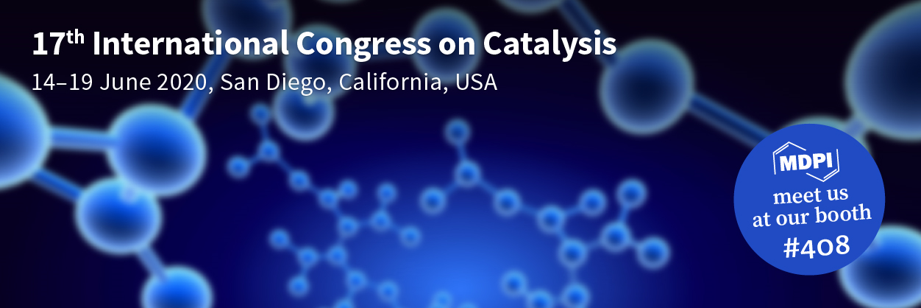
MDPI will be attending the 17th International Congress on Catalysis, San Diego, California, USA, June 14-19, 2020.
This congress is the premier technical gathering of our communities of practice in surface and organometallic catalysis, industrial homogeneous and heterogeneous catalysis, electrocatalysis, photocatalysis, and catalysis in condensed media. This meeting brings together participants from academia, industry, and national laboratories, with a tradition and expressed goal of nurturing and mentoring students and young researchers as part of its mission.
The following MDPI journals will be represented:
If you are also attending this conference, please feel free to stop by our booth (Booth #408). Our delegates look forward to meeting you in person to answer any questions you may have. For more information about the conference, please visit: https://2020icc.com/
14 February 2020
Meet us at the CLEO Laser Science to Photonic Applications, San Jose, California, USA, May 12-14, 2020
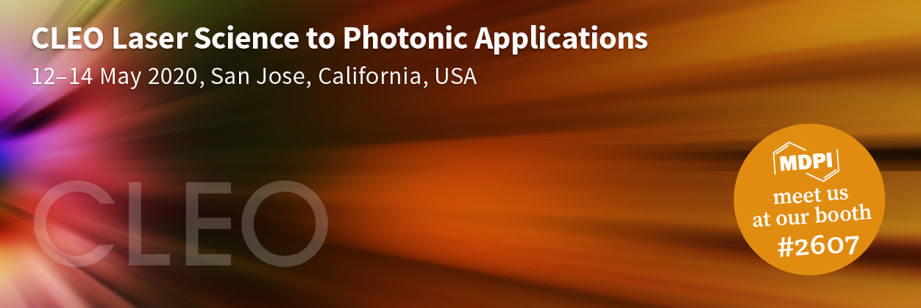
MDPI will be attending the CLEO Laser Science to Photonic Applictions, San Jose, California, USA, May 12-14, 2020
Conference on Lasers and Electro-Optics to generate quality face-time with world renowned industry leaders and help achieve your annual sales and marketing goals. Special industry offerings make this event a magnet for executives and scientific equipment users throughout the buying channel. Exhibitors will have extensive, targeted opportunities for exposure and in-depth interaction with key prospects and customers. These high-level buyers are looking to you—the leading product experts, manufacturers and service providers—for the most innovative, cost-effective solutions to support their missions.
The following MDPI journals will be represented:
- Applied Sciences (leading journal)
- Photonics (co-leading)
- Electronics
- Fibers
- Materials
If you are also attending this conference, please feel free to stop by our booth (Booth #2607). Our delegates look forward to meeting you in person to answer any questions you may have. For more information about the conference, please visit: https://www.cleoconference.org/home/.
18 December 2019
Meet Us at TMS 2020 in San Diego, CA, USA, 23–27 February 2020
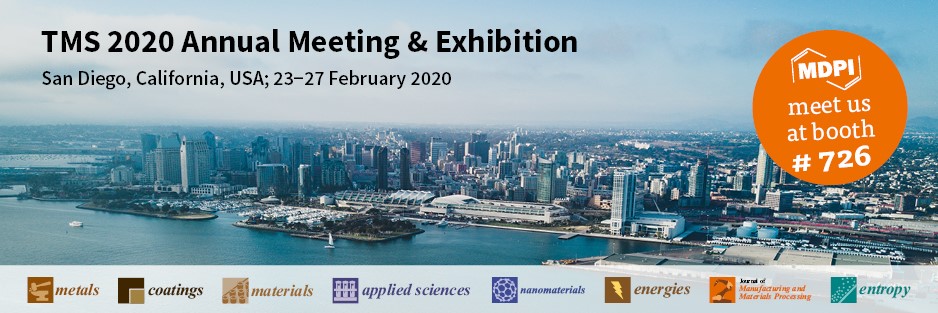
MDPI will be attending the 149th TMS 2020 on minerals, metals, and materials in San Diego, CA, USA, 23–27 February 2020. An Editorial Board Member meeting of Metals will take place during this event. We warmly welcome you join and share your publishing experience with us.
TMS2020 will present more than 85 symposia planned by all five TMS technical divisions and covering a broad range of topics related to minerals, metals, and materials science and engineering. The event will draw more than 4000 attendees and feature four full days of technical programming.
The following MDPI journals will be represented:
Journal of Manufacturing and Materials Processing
If you are also attending this conference, please feel free to stop by our booth (Booth #726). Our delegates look forward to meeting you in person to answer any questions you may have. For more information about the conference, please visit: https://www.tms.org/TMS2020.
11 October 2019
Introducing SciProfiles, an Academic Social Network
MDPI is pleased to announce the release of SciProfiles, its social network platform for researchers and scholars.
The purpose of SciProfiles is aligned with MDPI’s broad mission to accelerate discovery and innovation by facilitating immediate access to research results and to serve scholars and communities by providing opportunities for academic networking.
SciProfiles also ambitions to serve as a sustainable, transparent and community-driven research evaluation system aligned with the DORA principles (https://sfdora.org/). Through their scientific profiles, academics can highlight their contribution to research communities, and measure their impact on their field, beyond publication numbers and impact factors. SciProfiles is currently a beta version and will enrich to give researchers the possibility to highlight all of their contributions to science and their scientific communities as authors, reviewers, editors, conference organizers, conference panelists, conference keynote speakers, or even as lecturers or student mentors at their University.
The classic components of popular community social networks, including follower/following, classical metrics, endorsements and recommendations (https://www.mdpi.com/about/announcements/1690), comments (https://www.mdpi.com/about/announcements/1397) are or will be very soon highlighted in SciProfiles as open science contributions.
To help increase the impact and visibility of articles and their authors to an appropriate audience, the platform offers a NewsFeed that includes recommendations of relevant content based on interests, publication history, saved searches or colleagues’ recommendations.
SciProfiles’ avatars are now being integrated on several MDPI platforms, meaning that you will directly access researchers’ profiles from any of the MDPI platforms:
MDPI's journal publishing website: www.mdpi.com
MDPI's conference hosting and management website: www.sciforum.net
MDPI's pre-print website : www.preprints.org
MDPI's knowledge sharing website : www.encyclopedia.pub
MDPI's books store: www.mdpi.com/books
MDPI's literature database : www.scilit.net
SciProfiles aims to serve scientific communities at large. It can be embedded into third-party websites and also welcomes integration of data from third-parties.
Dr. Shu-Kun Lin: https://sciprofiles.com/profile/2
Dr. Franck Vazquez: https://sciprofiles.com/profile/FranckVazquez
Dr. Martyn Rittman: https://sciprofiles.com/profile/martynrittman
9 October 2019
John B. Goodenough, M. Stanley Whittingham and Akira Yoshino Awarded the Nobel Prize in Chemistry 2019
The 2019 Nobel Prize in Chemistry was awarded jointly to three scholars for their research on developing the lithium-ion battery. Lithium-ion batteries are a cornerstone in moving from fossil-fuelled to rewenable energies. They are used in electric cars, smartphones and other electronic devices.
The original research into lithium-ion batteries was spurred by the oil crisis in the 1970s. Stanley Whittingham laid the foundation for later research on metal oxide cathodes and intercalated lithium ions undertaken by John B. Goodenough and Akira Yoshino.
The Nobel committee in a statement commends the advent of ion-lithium batteries as "the foundation of a wireless, fossil fuel-free society" and "of the greatest benefit to humankind."
We would like to congratulate the Winners on their breakthrough achievement—in particular Professor Goodenough, who authored a review paper on "Advanced Electrodes for High Power Li-ion Batteries" in the MDPI journal Materials in 2013. Please be invited to add your comments on the paper here.
2 October 2019
Winners of the 2019 MDPI Writing Prize
We are delighted to announce the winners of the 2019 MDPI Writing Prize. Entrants were asked to write on the theme "Judging research: How should research and researchers be evaluated and rewarded?" We received a large number of excellent essays from PhD students and postdocs, and the process of shortlisting and choosing winners was not an easy one. The winners demonstrated excellent writing skills alongside interesting and thought-provoking ideas.
As last year, we will begin the process of collating all entries into a book that will be available in open access format. Alongside promoting good writing skills, we see the prize as a way to promote the voices of early career researchers within broader debates and policy discussions.
Congratulations to all of the participants and especially the winners. The winners are:
1st Prize (500 CHF):
Albin Nilsson (National Centre for Nuclear Research, Warsaw, Poland)
[Read here]
2nd Prize (250 CHF):
Qi Zhang (Shandong University, Jinan, China)
[Read here]
Igor Ogashawara (Indiana University, Indianapolis, US)
[Read here]
3rd Prize (100 CHF):
Margaret Sivapragasam (Universiti Teknologi Petronas, Perak, Malaysia)
[Read here]
Arvind Sharma (The University of Queensland, Gatton, Australia)
[Read here]
Jose Flores-Guerrero (University Medical Center Groningen, Groningen, The Netherlands)
[Read here]
The MDPI Writing Prize is an annual award supported by MDPI Author Services, which provides services including language editing, reformatting, plagiarism checks, and image editing.
20 September 2019
MDPI Now Gives Scholars the Possibility to Endorse and Recommend Articles

MDPI is pleased to announce the release of a new functionality giving the possibility for researchers and scholars to endorse, and formally recommend articles to their colleagues.
MDPI was an early signatory of the San Francisco Declaration on Research Assessment (https://sfdora.org/read/) which calls for improvement in how quality and impact of scholarly research outputs are evaluated, especially in moving beyond journal-based citation metrics (journal Impact Factor, Scopus Citescore, etc.).
MDPI supports the establishment of article-level impact metrics, including citations, views, downloads, and Altmetric scores. These measures serve as an impact indicator for research articles on a case–by-case basis, assessing paper on its own merit. However, these metrics are also subjective and can give a biased picture of the article impact: they do not directly reflect the quality or the intrinsic scientific value of the article.
In our view, community engagement with publications based on community-driven metrics can help to overcome this limitation. We have therefore launched an option for scholars to endorse articles, indicating their own assessment of its content and making a recommendation to their community. This follows our implementation of the open source Hypothesis commenting tool, which has been available for all articles published by MDPI for over a year (https://www.mdpi.com/about/announcements/1397). Both endorsement and commenting are available for all previously published and forthcoming MDPI articles.
In addition to potentially serving as a sustainable solution to article assessment, endorsements will help scientific communities to identify the most relevant articles, independently of the journal in which it was published.
The code for the endorsing functionality, which relies on DOIs and ORCIDs, will be made available on GitHub with an open source license.
Dr. Shu-Kun Lin, President and Founder
Dr. Franck Vazquez, Chief Scientific Officer
Dr. Martyn Rittman, Publishing Director
11 September 2019
Create an Entry in Encyclopedia to Get a 100 CHF Voucher in Publishing in MDPI Journals
Encyclopedia is a free online reference created and curated by active scholars. It aims to highlight the latest research results as well as provide a comprehensive record of scientific development. If you have any suggestions or questions, please feel free to contact us via [email protected].

9 September 2019
Materials Reaches 10,000 Articles Milestone
Materials (ISSN 1996-1944), MDPI's open-access materials science and engineering journal, has published more than 10,000 papers since its inception in 2008. Materials is now covered in the Science Citation Index Expanded (Web of Science), Scopus, Ei Compendex, and PubMed, with a 2018 Impact Factor of 2.97, which corresponds to rank 102/293 (Q2) in the JCR category “Materials Science, Multidisciplinary”. The Citescore is 3.26, which equals rank 97/439 (Q1) in 'General Materials Science' according to Scopus data.
Our sincere thanks go to the Editor-in-Chief of Materials, Prof. Dr. Maryam Tabrizian, and all the Editorial Board members, as well as Guest Editors of Special Issues, who have ensured the continued success of the journal through their hard work and diligence.
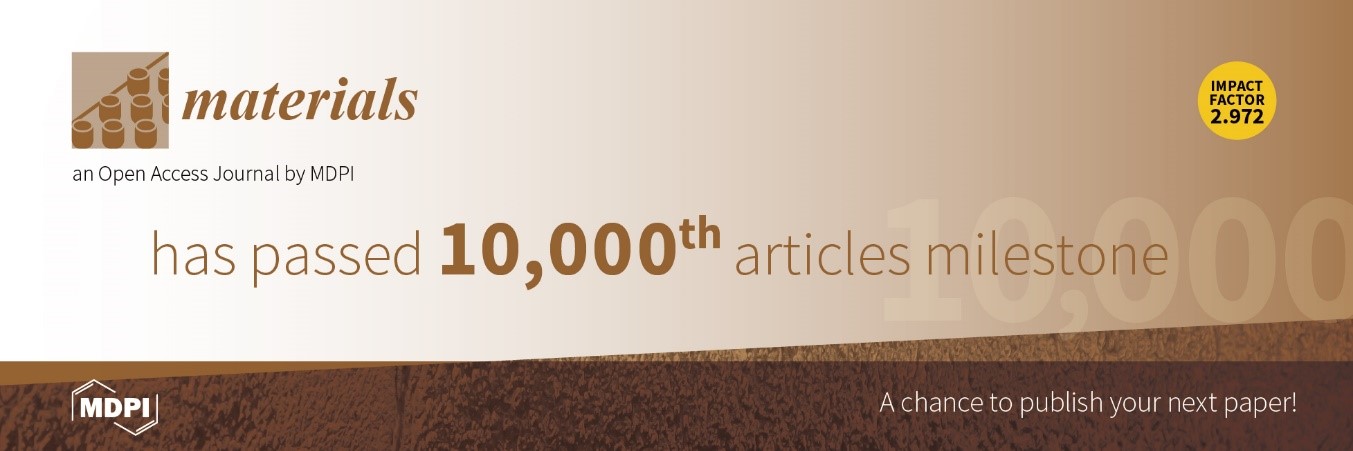
6 August 2019
Preprints Reaches 10,000 Posted Articles Milestone
We are pleased to announce that Preprints has passed the milestone of 10,000 posted preprints. We are delighted to have reached this after just over three years of operation. Our congratulations and thanks go to our authors and advisory board who have supported growth of the platform and been crucial to its operation.
You can find further details at https://www.preprints.org/announcement/show/37.
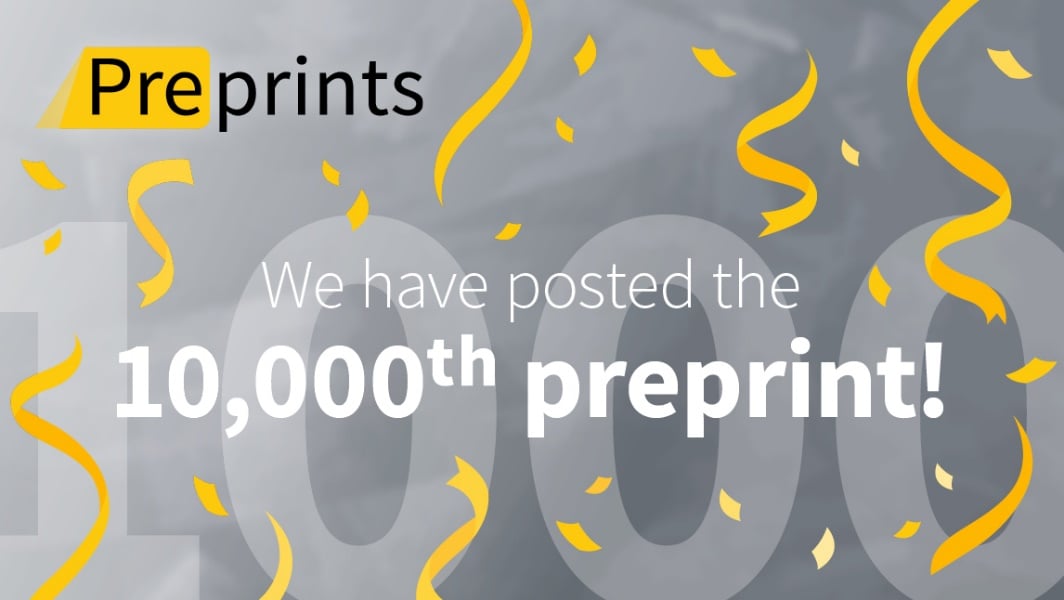
2 August 2019
DeepGreen Partnering with Publishers and Universities in Distributing Open Access Content to Institutional Repositories
Last week, the DeepGreen initiative in Germany started into an advanced test phase with the publishing partners S. Karger AG, SAGE Publishing, MDPI, Frontiers and De Gruyter, as well as 27 universities from all over Germany, from Hamburg University of Applied Sciences to University of Konstanz.
DeepGreen aims at lowering the barriers for open access publishing by automatically delivering metadata and full text publications from participating publishers to authorized repositories at German universities.
In preparation for a later live operation, the advanced test phase serves to gain experience with extensive data deliveries from publishers and also handling different repository software (including OPUS4, DSpace, EPrints, MyCoRe). DeepGreen thereby acts as a sophisticated platform, receiving articles published by authors affiliated with German universities and depositing these articles to respective university repositories, based on the affiliation metadata. For more information about DeepGreen: https://deepgreen.kobv.de
Karger AG has been a close cooperation partner of the DeepGreen consortium since 2016. S. Karger has more than 80 subscription-based and around 20 open access journals covering a wide spectrum in health science. DeepGreen will assign S. Karger articles to authorized institutions on the legal basis of German alliance and national licenses.
SAGE Publishing was founded by Sara Miller McCune in 1965 to support the dissemination of usable knowledge and educate a global community. SAGE publishes more than 1,000 journals and over 600 new books each year, spanning a wide range of subject areas. Our growing selection of library products includes archives, data, case studies and video. SAGE remains majority owned by our founder and after her lifetime will become owned by a charitable trust that secures the company’s continued independence. Principal offices are located in Los Angeles, London, New Delhi, Singapore, Washington DC and Melbourne. SAGE Publishing has been a close cooperation partner of DeepGreen since 2016.
MDPI is a scientific open access publisher and has been a partner of DeepGreen since 2017. MDPI comprises 205 peer-reviewed journals of various disciplines. All articles are published under a CC-BY license and are freely available without embargo period.
Frontiers is a scientific open access publisher with 61 journals of over 600 academic disciplines. All articles are peer-reviewed and published freely available under CC-BY license.
De Gruyter is an academic publisher with more than 700 subscription-based and open access journals of 29 disciplines. Articles provided by De Gruyter will be assigned to institutions with German alliance and national licenses.
There is promising communication with other publishers.
DeepGreen is funded by the German Research Foundation (DFG) and the consortium comprises six institutions: the Cooperative Library Network Berlin-Brandenburg, Bavarian State Library, Bavarian Library Network, University Library of the Technische Universität Berlin, University Library of Erlangen-Nuremberg and the Helmholtz Open Science Coordination Office at the GFZ German Research Centre for Geosciences.
If you would like to know in more detail which institutions take part in the advanced test phase of DeepGreen, you can find more information here.
17 July 2019
First Basel Sustainable Publishing Forum
The University of Basel and the MDPI Sustainability Foundation are organizing the First Basel Sustainable Publishing Forum on 9th September 2019.
The aim of this event is to provide background and perspectives on Plan S to Learned Societies, which have to make well-informed decisions to transition their journals to Open Access (OA).
The BSPF will bring together several representatives of Learned societies, Plan S architects as well as representatives from various publishers and publishing platforms. After getting the big picture from cOAlition S, panel discussions will allow to better understand the diverse challenges that Learned societies are facing to transition their journals to OA as well as to identify sustainable, implementable and scalable solutions for successful Open Access transition.
For program details and registration, please follow the link below:
https://sciforum.net/conference/SustainableSolutionsToOpenAccess
28 June 2019
Meet Us at ECM32 in Vienna, Austria, 18–23 August 2019
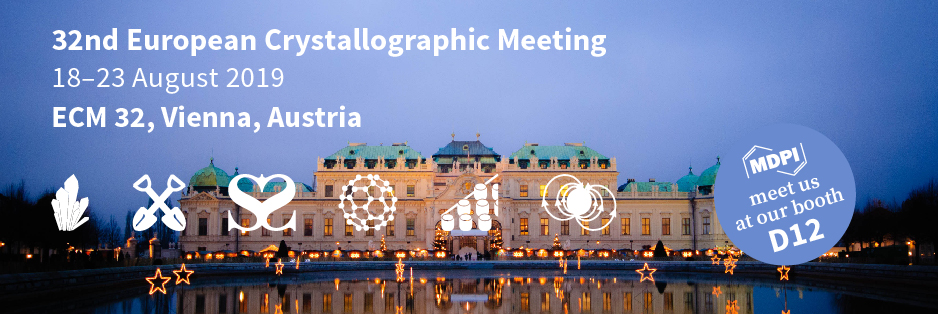
We will be attending the 32nd European Crystallographic Meeting (ECM32), to be held in the High-Renaissance main building of the University of Vienna, in Vienna, Austria, 18–23 August 2019. ECM32 is organized by the European Crystallographic Association (ECA) as a collaboration between the University of Vienna and the Technical University at Vienna. ECM32 is setting up an attractive program covering the latest advances in crystallography and related sciences to attract young and senior scientists, as well as companies and the general public. Representatives from the following open-access journals will be attending:
If you are also attending this conference, please feel free to stop by our booth (booth #D12). Our delegates look forward to meeting you in person to answer any questions you may have. For more information about the conference, please visit https://www.ecm2019.org/home/.
20 June 2019
Materials Receiving 2018 Updated Impact Factor of 2.972
We are pleased to inform that Materials received an updated Journal Impact Factor of 2.972 in the recent release of the Journal Citation Reports®. The journal's 5-Year Impact Factor is 3.532. Materials now ranks 102/293 (Q2) in the category 'Materials Science, Multidisciplinary.'
Evolution of Impact Factor, Citations and Publications for Materials:
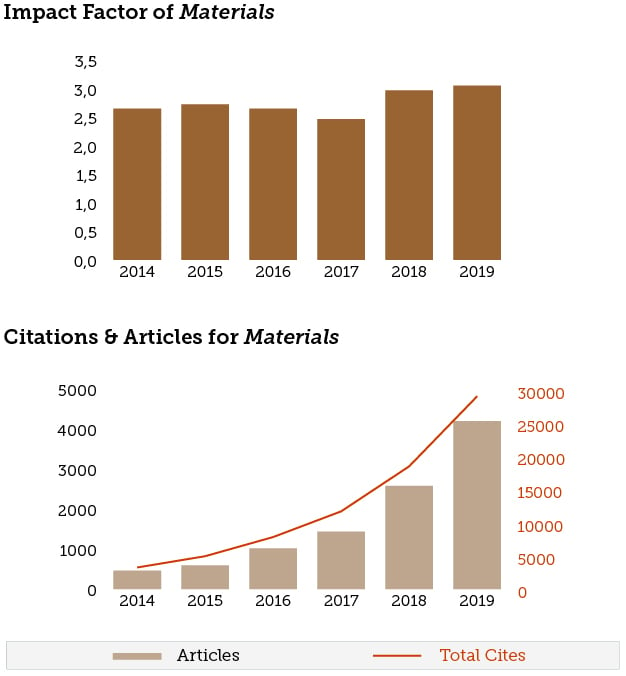
Source: data according to Journal Citation Reports®, 2018 release, a Clarivate Analytics product; and Scopus journal metrics.
19 June 2019
Meet Us at EUROMAT 2019 in Stockholm, Sweden, 1–5 September
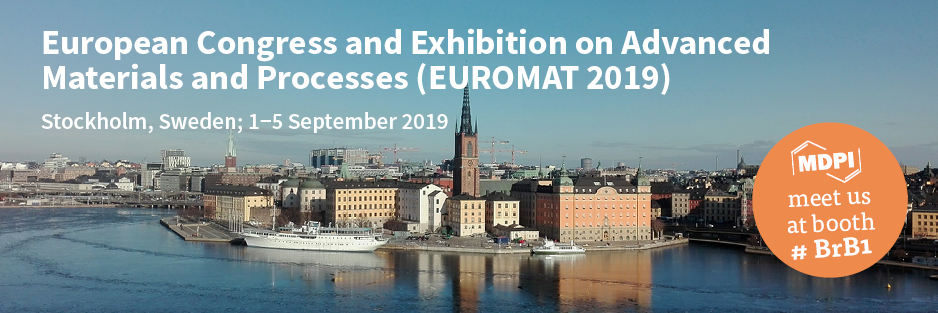
MDPI will be attending the European Congress and Exhibition on Advanced Materials and Processes (EUROMAT 2019) in Stockholm, Sweden on 1–5 September 2019.
EUROMAT is the premier international congress in the field of materials science and technology in Europe. The visions of EUROMAT2019 are to:
- Facilitate a programme where academia, research institutes and industry can meet and exchange ideas and provide information on the latest scientific development in
- Promote involvement of top universities and researchers in materials science including special contribution from large scale facilities like MAXIV in Lund
- Demonstrate efficient knowledge transfer between research and its application through the active involvement of research institutes in Sweden like RISE and Swerea
The following MDPI journals will be represented:
Materials
Metals
Catalysts
Nanomaterials
Processes
Polymers
Molecules
JFB
Sustainability
Coatings
Inorganics
If you are also attending this conference, please feel free to stop by our booth (#BrB1) in Norra Latin - The Marble Vault. Our delegates look forward to meeting you in person to answer any questions you may have. For more information about the conference, please visit: https://euromat2019.fems.eu/.
18 June 2019
Meet Us at the MNE 2019 in Rhodes Island, Greece, 23–26 September 2019
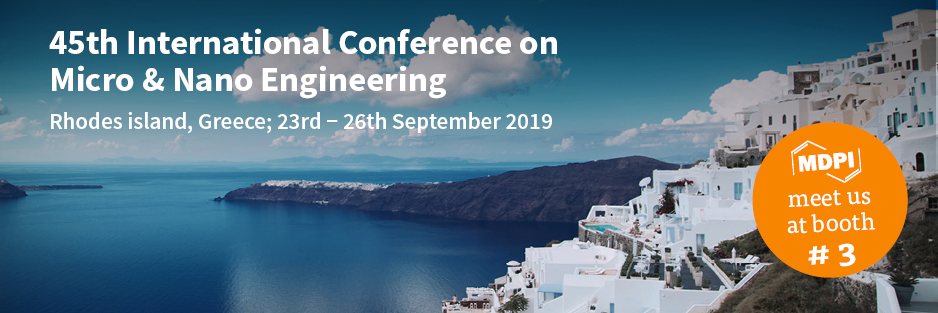
MDPI will be attending the 45th International Conference on Micro & Nano Engineering (MNE 2019), to be held in Rhodes Island, Greece, 23 - 26 September 2019.
MNE is the core international conference focusing on: micro/ nanofabrication and manufacturing techniques, and application of the fabricated micro/nanostructures, devices and microsystems into electronics, photonics, energy, environment, chemistry and life sciences.
The following MDPI journals will be represented:
Journal of Manufacturing and Materials Processing
If you are also attending this conference, please feel free to stop by our booth (Booth #3). Our delegates look forward to meeting you in person to answer any questions you may have. For more information about the conference, please visit: http://www.cleoeurope.org/.
18 June 2019
Meet Us at the 21st European Symposium on Organic Chemistry in Vienna, Austria, 14–18 July 2019
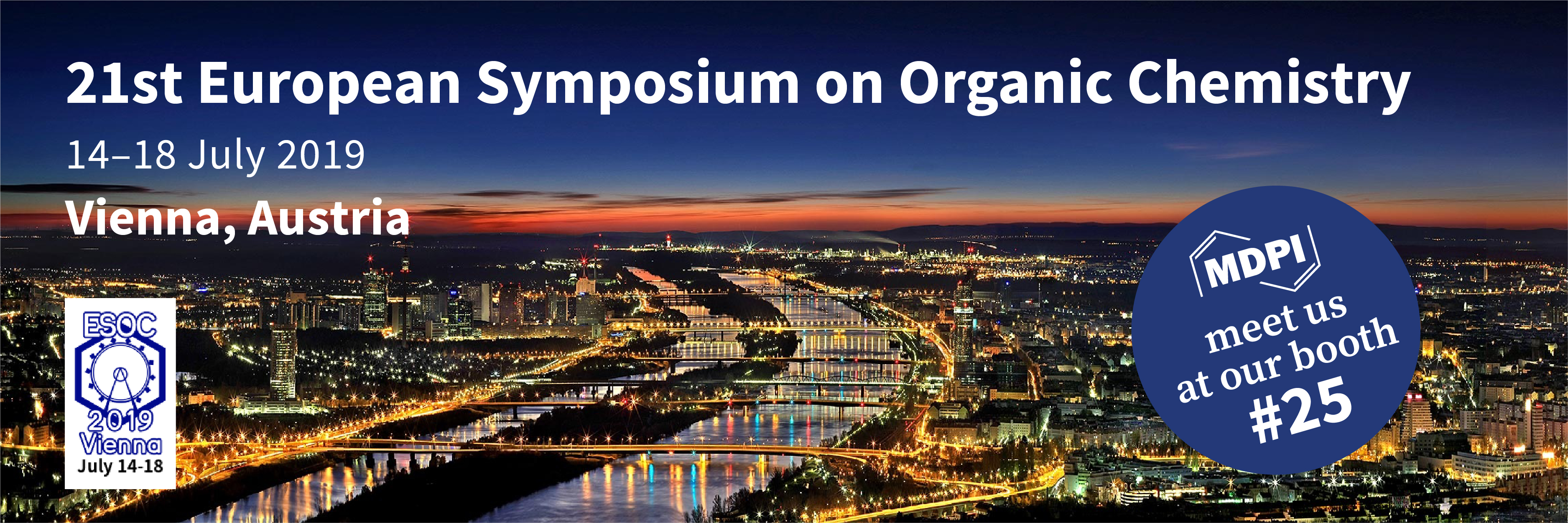
We will be attending the The 21st European Symposium on Organic Chemistry. Since its first edition in 1979, the biannual ESOC conference has developed into the flagship event for the Organic Chemistry community in Europe and beyond. Representatives of the following open access journals will attend:
Molecules
Chemistry
Molbank
Marine Drugs
Polymers
Coatings
Catalysts
Materials
Processes
If you are also attending this conference, please feel free to stop by our booth (Booth #25). Our delegates look forward to meeting you in person to answer any questions you may have. For more information about the conference, please visit: http://esoc2019.conf.tuwien.ac.at/welcome/.
13 June 2019
Meet Us at ICCM 22 in Melbourne, Australia, 11–16 August 2019

MDPI will be attending the 22nd International Conference on Composites Materials (ICCM 22) in Melbourne, Australia on 11–16 August 2019.
ICCM is the premier international conference in the field of composite materials, and covers polymer matrix composites, metal matrix composites, ceramic matrix composites, natural fibre composites, fibre metal laminates, fibres and resins and all the other classes of composites.
The conference theme for the ICCM 22 is “Advanced Composites: Research to Impact”, with the objective of exploring the latest research into composite materials and how they will be used in the future covering multiple applications including aerospace, construction, wind energy, automotive, electronics and so on.
The following MDPI journals will be represented:
If you are also attending this conference, please feel free to stop by our booth (#08). Our delegates look forward to meeting you in person to answer any questions you may have. For more information about the conference, please visit: https://iccm22.com/.
11 June 2019
Meet Us at the CLEO/Europe-EQEC 2019 in Munich, Germany, 23–27 June 2019
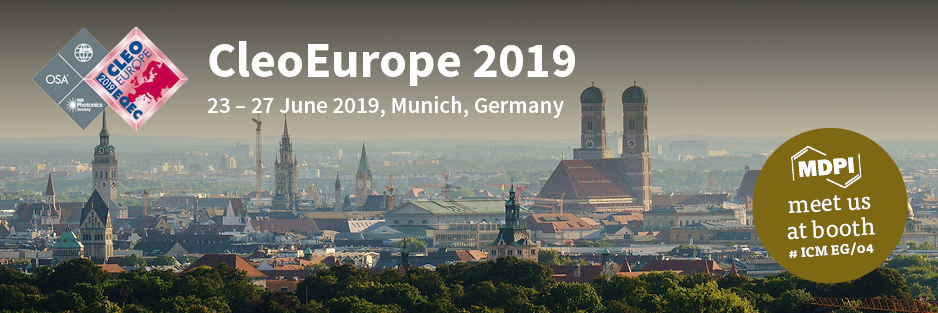
MDPI will be attending the CLEO/Europe-EQEC 2019, to be held in Munich, Germany, 23–27 June 2019.
CLEO/Europe-EQEC 2019 will be offering an expanded short course programme covering a wide range of exciting topics in photonics and laser technology. Short courses participants are generally targeted individuals who wish to learn about a topic outside their main area of expertise. They are intended for engineers and scientists.
The following MDPI journals will be represented:
If you are also attending this conference, please feel free to stop by our booth (Booth # ICM EG/04). Our delegates look forward to meeting you in person to answer any questions you may have. For more information about the conference, please visit: http://www.cleoeurope.org/.
27 May 2019
Optics: A New Journal Seeking an Editor-in-Chief and Accepting Applications for Editorial Positions
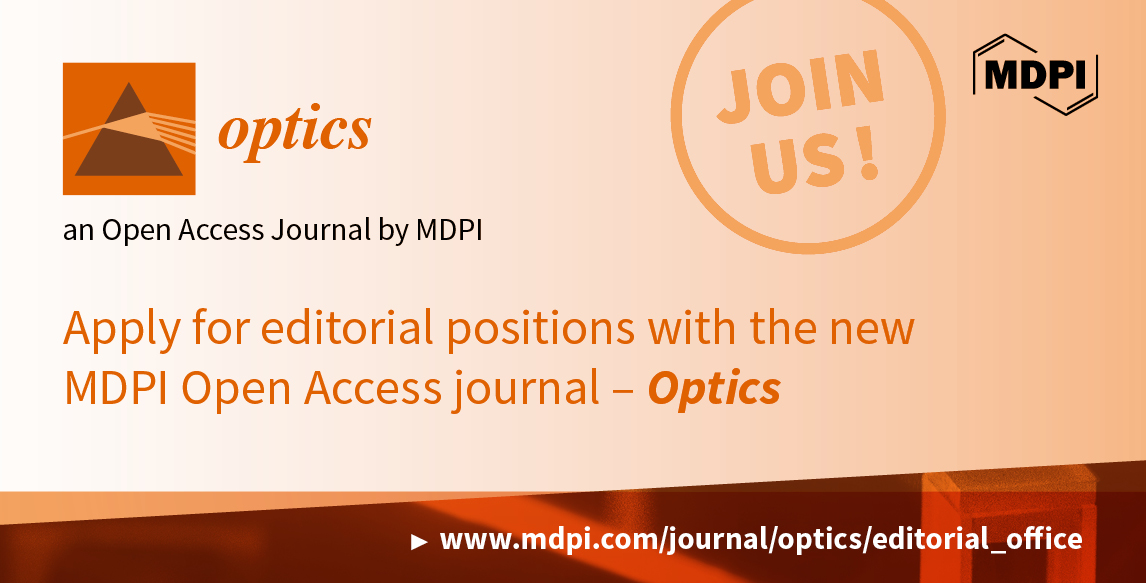
People rely on optics every day. By utilizing the knowledge of how light behaves under different conditions, scientists and engineers develop remarkable technologies that improve our world. In expanding our offerings to the field of optics, MDPI will be launching a broad-interest and high-quality journal, Optics, an open access journal that seeks full research articles in all areas of optics and related interdisciplinary areas. Optics will also act as a medium for exchanging ideas and thoughts regarding the impacts of optical research.
Optics is an international, peer-reviewed open access journal which aims to present cutting edge research related to all aspects of optics. We are now seeking a founding Editor-in-Chief to develop Optics into a leading flagship journal in this field.
The main responsibilities of the Editor-in-Chief include the following:
- Setting the scope and direction of the journal;
- Advising on the strategic development of the journal;
- Ensuring the quality of the published content;
- Coordinating the Editorial Board and stimulating their contributions to the journal;
- Promoting the journal at scientific conferences and through other venues.
We also welcome scientists in the field of optics to join our Editorial Board.
A full application for evaluation should include these items:
- An up-to-date CV;
- A description of the candidate’s vision for Optics.
Applications are due by 20 June 2019. Please send your application or any questions to the Optics Editorial Office ([email protected]).
8 May 2019
Meet us at the 46th IEEE Photovoltaic Specialists Conference (PVSC 46) in Chicago, Illinois, USA
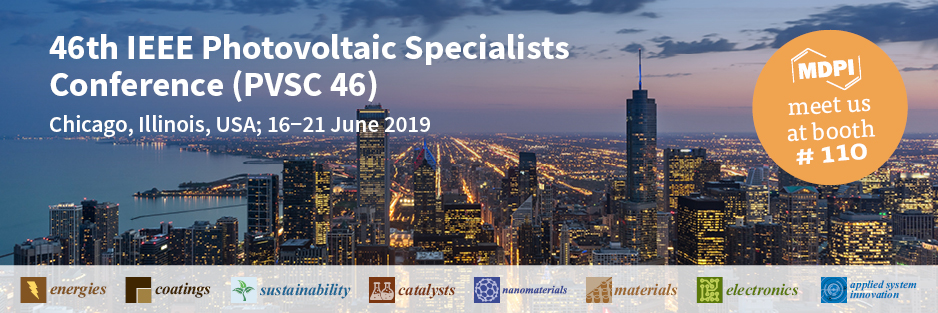
MDPI will attend PVSC 46 in Chicago, Illinois, USA, from 16−21 June 2019.
As the signature event in the burgeoning solar power technology and market sector, the PVSCs have a rich tradition of bringing together students, innovators, researchers and PV leaders in a vibrant and highly integrative forum to share information, gain knowledge, strengthen collaborations and move forward photovoltaic science and technology from basic and applied research into large scale manufacturing and deployments.
Our representatives will be exhibiting our open access journals Energies, Coatings, Sustainability, Catalysts, Nanomaterials, Materials, Electronics, and Applied System Innovation (ASI).
If you will also be in attendance, please stop by our booth (# 110). Our delegates look forward to meeting you in person to answer any questions you may have regarding open access publishing or our journals. For more information about this conference, please visit https://www.ieee-pvsc.org/PVSC46/index.php.
11 April 2019
Meet Us at the 46th Controlled Release Society Annual Meeting & Exposition
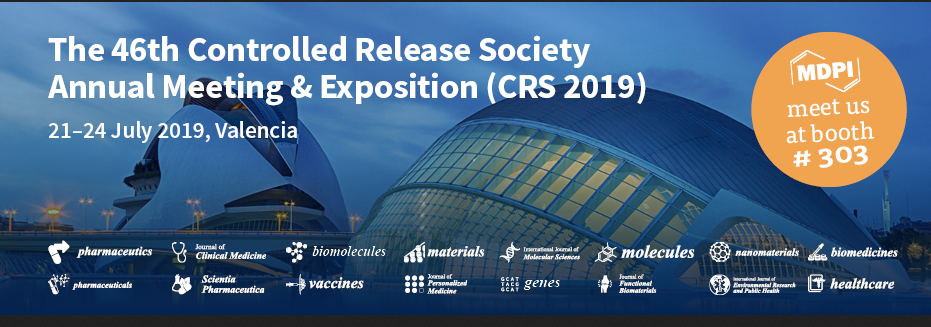
We will be attending the 46th Controlled Release Society Annual Meeting & Exposition. It is one of the biggest events in pharmaceutical field. Representatives of the following open access journals will attend:
Pharmaceutics
JCM
Biomolecules
Materials
IJMS
Molecules
Nanomaterials
Pharmaceuticals
Scientia Pharmaceutica
Vaccines
JPM
Genes
JFB
IJERPH
Biomedicines
Healthcare
If you are also attending this conference, please feel free to stop by our booth (Booth #303). Our delegates look forward to meeting you in person to answer any questions you may have. For more information about the conference, please visit: https://2019.controlledreleasesociety.org/
2 April 2019
The Portuguese Society of Materials (SPM) is Now an Affiliated Society Member of Materials and Metals
In December 2018, the Portuguese Society of Materials (SPM) chose to become affiliated to Materials and Metals. As part of this collaboration, all members of the society enjoy a discount on the article processing charges (APC) when submitting articles to Materials and Metals.

The Portuguese Society of Materials (SPM) is an association of technical and scientific nature, nonprofit, endowed with legal personality and is governed by its own statutes and general regulations. SPM wants to disseminate around the world what is best made in Portugal regarding Science and Technology of Materials. They work to create a network of contacts worldwide to provide exchange of experiences and knowledge.
SPM works to help introducing new concepts for the use of Materials which are economically attractive and sustainable for future generations. They believe that knowledge is the key.
They work to encourage the active participation of all members of the community of Materials, and strengthen the link between universities, research centers, business and industry, and thereby add value and open new opportunities.
SPM is a professional organization whose functions are highly relevant to the scope of Materials and Metals. We look forward to collaborating with SPM and publishing state-of-the-art research from its members in this field.
2 April 2019
Meet Us at NAM26, the 2019 North American Catalysis Society Meeting in Chicago, USA, 23–28 June 2019
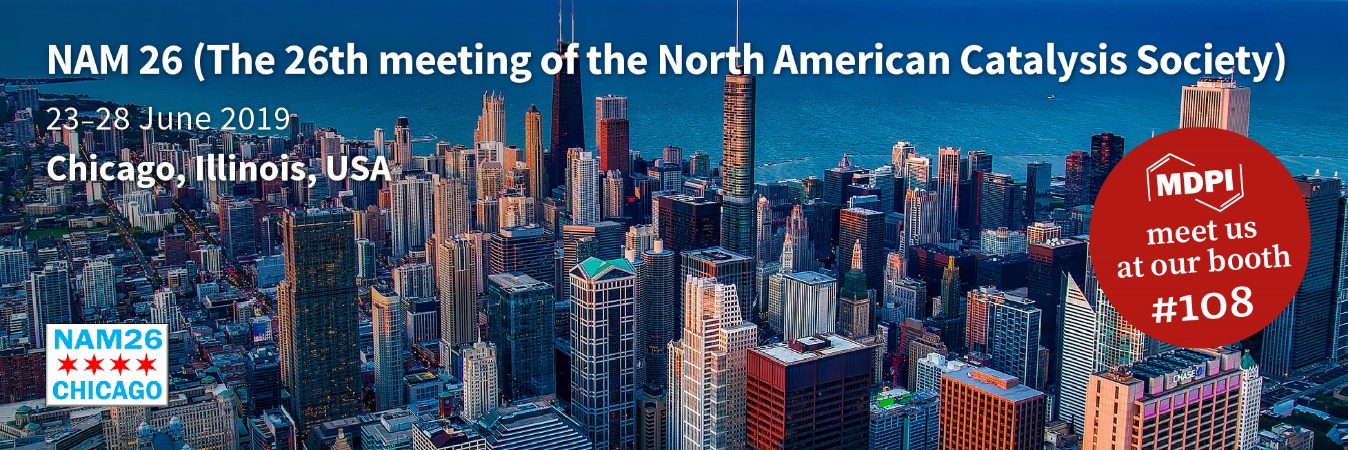
MDPI will be attending the 26th meeting of the North American Catalysis Society (NAM 26), to be held in Chicago, USA, 23-28 June 2019.
The 26th meeting of the North American Catalysis Society, NAM26, is the premier scientific event in the field of catalysis research and development in 2019. It will feature technological challenges, breakthrough discoveries, and state-of-the art academic and industrial research.
The following MDPI journals will be represented:
If you are also attending this conference, please feel free to stop by our booth (Booth #108). Our delegates look forward to meeting you in person to answer any questions you may have. For more information about the conference, please visit: https://isen.northwestern.edu/nam262019-north-american-catalysis-society-meeting
20 March 2019
Fostering Open Access Publishing Worldwide: New IOAP Participants in February and March 2019
We are pleased to welcome more universities from Poland, Italy, Germany, Brazil and other parts of the world to MDPI's Institutional Open Access Program (IOAP). A warm welcome to the institutions listed below, who have joined the Program in February and March this year.
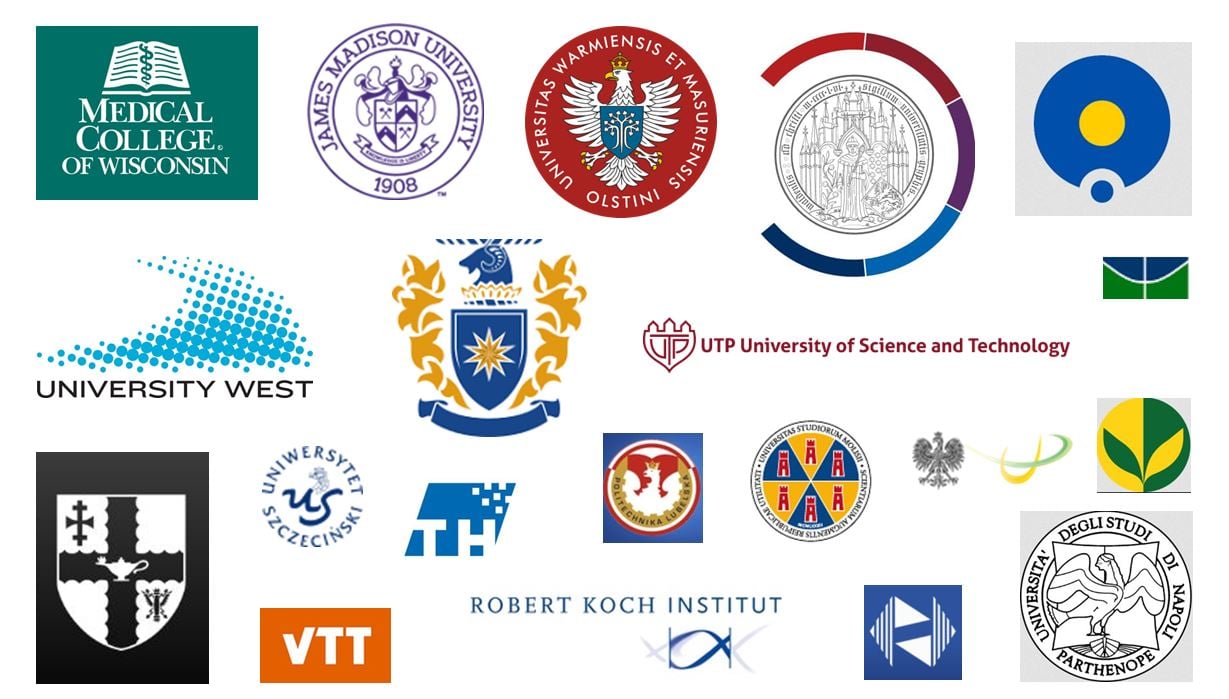
Authors affiliated with these institutions can now enjoy a discount on the APC for papers accepted for publication in any MDPI journal. If you would like to learn more about our program, please visit: https://www.mdpi.com/about/ioap or email us at [email protected].
8 March 2019
Meet Us at the ACS National Meeting & Exposition in Orlando, 31 March – 4 April 2019
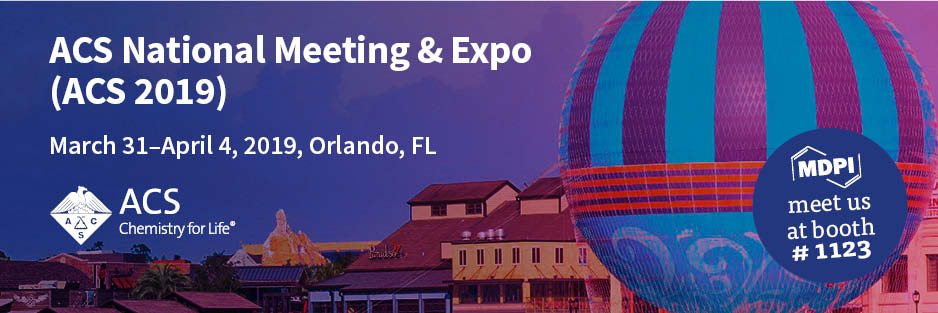
We will be attending the ACS 2019 National Meeting & Exposition. It is an interdisciplinary forum open to anyone with an interest in chemistry and related disciplines. Representatives of the following open access journals will attend:
Biomolecules
Catalysts
Diagnostics
Fibers
Inorganics
Materials
Membranes
Micromachines
Molbank
Molecules
Pharmaceuticals
Processes
If you are also attending this conference, please feel free to stop by our booth (Booth #1123). Our delegates look forward to meeting you in person to answer any questions you may have. For more information about the conference, please visit: https://www.acs.org/content/acs/en/meetings/national-meeting.html
5 March 2019
MDPI Joins Jisc’s Publications Router Service
We are delighted to announce our participation in Jisc’s Publication Router project, as of March 2019.
Publications Router is a Jisc service that automatically sends notifications about research articles to institutions' systems such as their repositories or CRISs, since May 2015. Through this agreement, MDPI will provide Jisc with daily feeds and information regarding published articles, which will be gathered by their system and delivered to institutions also registered to this service. Nearly all of our articles are published within 15 days of acceptance, so institutions will receive them quite promptly.
The feed will include the full text of the published version of record, with no embargo, so the articles can be exposed immediately for public view. They are accompanied by rich metadata, including confirmation of the immediate CC BY licence, minimising the need for any manual intervention or checking.
For more information about Publications Router, you may contact Jisc’s central helpdesk at [email protected]. For any queries about MDPI’s institutional agreements and collaborations, you may get in touch with MDPI’s Institutional Engagement team at [email protected], which would be very happy to hear from further UK institutions.
1 February 2019
2018 MDPI Top Reviewer Award—Winners Announced
Rigorous peer-review is the cornerstone of high quality academic publishing. Over 97,000 scholars served as reviewers for MDPI journals in 2018. We are extremely appreciative of all those who made a contribution to the editorial process in this capacity. At the beginning of every year, journal editorial offices publish a list all reviewers’ names to express our gratitude. In addition, this year the “MDPI Top Reviewer Awards” are announced, to recognize the very best reviewers for their expertise, dedication, high quality, and timely review reports. We are pleased to announce the following winners of the 2018 MDPI Top Reviewer Awards:
- Ali Behnood
- Andrea Pezzuolo
- Angela Gorgoglione
- Anna D'Auria
- Antonio D'Andrea
- Azhar Abbas
- Bogdan Zagajewski
- Chunhui Chen
- Dominika Głąbska
- Dominika Guzek
- Dragan Pamucar
- Francisco J. G. Silva
- Frank Li
- Gianluca Serafini
- Gyorgy Szekely
- Haozhi Pan
- Helvi Heinonen-Tanski
- José Manuel Gómez-Soberón
- Kathy Lewis
- Klara Kosova
- Luis N. López De Lacalle
- M. Z. Naser
- Malwina Tytła
- Masoume Amirkhani
- Matteo Ghidelli
- Moretti Laura
- Petra Schneider
- Roberto Cerchione
- Spyros Papaefthymiou
- Ştefan Cristian Gherghina
24 January 2019
JAMS Journals: A Low-Cost Publishing Platform
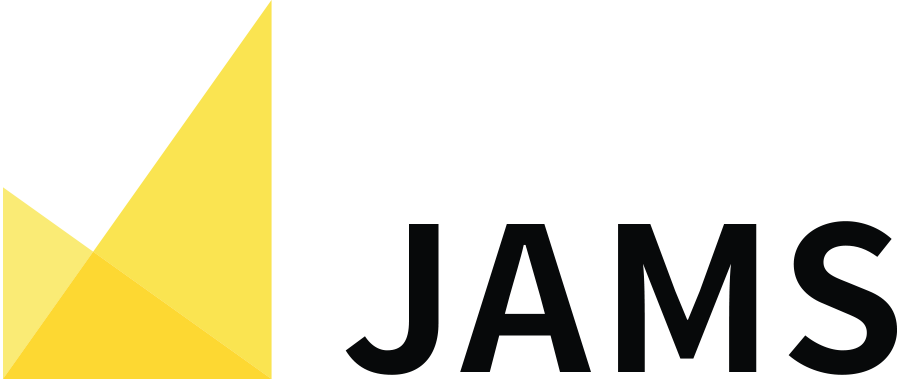
Since 2010, MDPI has run its own online submission system. More recently, we have made the software, with accompanying publishing services, available to other publishers as JAMS (Journal and Article Management System). We are now delighted to announce the launch of JAMS Journals, a standardized platform for operating open access journals at low cost.
JAMS Journals provides a comprehensive service, including a shared submission website, journal websites hosted at a URL provided by the publisher, and a full production service. There is a small setup fee and the cost for each published paper is just a few hundred Swiss francs.
The platform demonstrates that running an open access journal can be straightforward and affordable. The JAMS Journals platform is suitable for
- small publishers or groups of scholars looking to launch their own journal;
- existing publishers or societies seeking to explore open access options;
- publishers looking to convert an existing subscription journal to open access.
JAMS journals launches with two journals from Canadian-based publisher Etcetera Publications:
- Canadian Journal of Pesticides & Pest Management (http://www.cjppm.ca)
- Nanotechnology in Agriculture, Food & Environment (http://www.nanoafe.ca)
Dr AJ Al-Rajab (President of Etcetera Publications) comments:
“In the past few months, we were working on our project to launch new open access scientific journals in the field of agricultural and environmental sciences. We decided to go with JAMS for this venture because of the high quality of their services, reasonable prices, professionalism and easy communication. Our portfolio is expected to grow rapidly during 2019 to include more titles covering different areas in agriculture and environment. MDPI earned already our complete satisfaction and we are looking for a long term cooperation.”
Alongside the new platform, we continue to provide flexible, tailored journal management solutions for existing publishers. For any questions or to request a quotation, contact Dr. Constanze Schelhorn ([email protected]).
24 January 2019
Popularity of Preprints Continues to Grow

2018 was a great year for preprints, with increasing numbers of authors looking to make their papers available online before peer review. Along with other preprint servers, our platform Preprints.org saw an increase in the uptake from authors, and more than double the number of announced papers compared to 2017. In fact, we recently passed two important milestones: 8000 preprints online and 30,000 authors.
We believe that the whole research community has the opportunity to benefit from work being available online as early as possible. We thank and congratulate our authors for supporting us to make this goal a reality.
In 2019, we will be looking carefully at how to provide better value for authors, maintain efficiency while growing in size, and make sure we remain well-connected with the research community.
If you want to participate, you can consider screening preprints or joining our advisory board. And, of course, posting your own work.
9 January 2019
Open Access Agreement between the Austrian Academic Library Consortium (KEMÖ), the Austrian Science Fund (FWF), and MDPI

We are delighted to announce the establishment of our national Open Access agreement with the Austrian Academic Library Consortium (KEMÖ) and the Austrian Science Fund (FWF). Through this national agreement, the Austrian institutions listed below as well as FWF will cover the Article Processing Charges (APC) of manuscripts published by eligible corresponding or funded authors in MDPI journals as long as central funds are available.
All participating institutions have gained access to the MDPI online submission system where they can find full article metadata and pricing information as well as Funder and Grant ID details for easy identification and additional transparency. At the same time eligible authors are benefited from an APC discount which comes at no cost for the institutions.
Eligible corresponding authors affiliated with the participating institutions are prompted to choose the corresponding Institutional Open Access Program (IOAP) when they submit an article via our online submission system. The program will be selected automatically if authors submit their papers using their institutional email address. To claim their discount, FWF funded authors should choose the particular funder and add their Grant ID upon online submission of their manuscript. The institutions will then crosscheck the information and confirm the APC funding.
Eligible authors that have their APC covered by their institution or funder are advised to include the following sentence in their acknowledgments: "Open Access Funding by the [name of the institution/funder]".
The full text of the agreement is openly available online at: http://doi.org/10.5281/zenodo.2536007
For any questions about the agreement, please contact the KEMÖ Consortium at [email protected], FWF at [email protected], or the MDPI IOAP team at [email protected].
The Austrian institutions participating in this agreement are:
- Austrian Science Fund (FWF)
- University for Continuing Education Krems
- University of Applied Sciences BFI Vienna
- University of Applied Sciences Upper Austria
- University of Applied Sciences Technikum Wien
- Vorarlberg University of Applied Sciences
- International Institute for Applied Systems Analysis (IIASA)
- Institute of Science and Technology Austria
- MCI Management Center Innsbruck
- University of Graz
- University of Linz
- University of Salzburg
- Graz University of Technology
- TU Wien
- University of Veterinary Medicine Vienna
- University of Vienna
This is our first collective agreement with a national library consortium, while the individual institutions around the world participating in our IOAP are now more than 500 - see details here: https://www.mdpi.com/about/ioap. We would be mostly interested in discussing about possible collaborations with other consortia, funders, and institutions in our mutual efforts to accelerate Open Access.
2 January 2019
Encyclopedia—the Scholarly Community Encyclopedia

We are pleased to announce the new platform Encyclopedia, which is an online reference created and curated by active scholars. It aims to highlight the latest research results as well as providing benchmark information for researchers and the general public interested in accurate and advanced knowledge on specific topics.
We encourage authors of review articles to quote and adapt the content of their published papers to create Encyclopedia entries. You can create completely new entries on topics in which you have knowledge and expertise. There is no limit on the topics or research fields. All of science and the humanities are included. Each entry will be published directly after submission.
We also have prepared a DOI application function in Encyclopedia. Once a DOI application is approved, the entry website will announce the DOI number and a pdf version with DOI information will be automatically created.
We look forward to your contributions and hope you will make use of this service. Find more about the service at: https://encyclopedia.pub/
15 November 2018
Meet Us at the TMS 2019 Annual Meeting and Exhibition at San Antonio, TX, USA, 10–14 March 2019
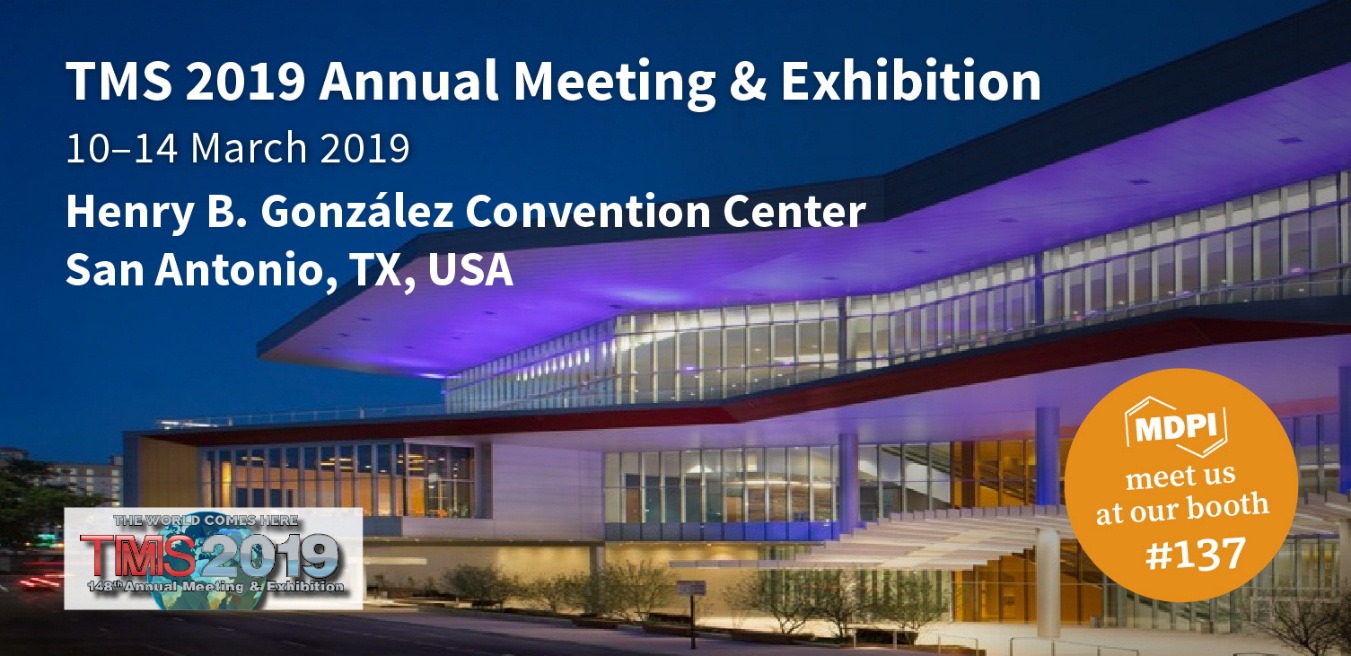
Our colleagues and editors will be attending the TMS 2019 Annual Meeting and Exhibition, to be held in San Antonio, TX, USA, 10–14 March 2019. The following MDPI journals will be represented:
If you are also attending this conference, please feel free to stop by our booth (#137). Our delegates look forward to meeting you in person and answering any questions you may have.
The TMS meeting will bring together more than 4,000 engineers, scientists, and other professionals in the materials field for a comprehensive, cross-disciplinary exchange of technical knowledge leading to solutions in the workplace and in society. For more information about the conference, please visit https://www.tms.org/tms2019.
30 October 2018
Institutional Open Access Agreement between Bill and Melinda Gates Foundation and MDPI

We are delighted to announce that the Bill and Melinda Gates Foundation (BMGF) is now a participant of our Institutional Open Access Program (IOAP). Authors funded by the BMGF can enjoy discounts on the APC, while the funder covers the costs of eligible articles centrally. BMGF also has access to the MDPI online submission system where they can find full article metadata and pricing information as well as Grant ID details for easy identification and additional transparency.
We hope that funded authors find the programme beneficial and we are happy to offer our IOAP to other funders that need a streamlined workflow of compliance checking and APC coverage.
To claim their discount, BMGF funded authors should choose the particular funder and add their Grant ID upon online submission of their manuscript.
For any questions about the BMGF agreement, please contact the funder at [email protected] or the MDPI IOAP team at [email protected].
2 October 2018
MDPI Welcomes Plan S
Recently, it was announced that a group of European funders supported 10 principles that will help to expand open access, known as Plan S. MDPI warmly welcomes this move as a step towards achieving more open and accessible communication of research across all disciplines. Some aspects remain to be clarified, however the details given so far match the aims and values that MDPI has held over the past two decades.
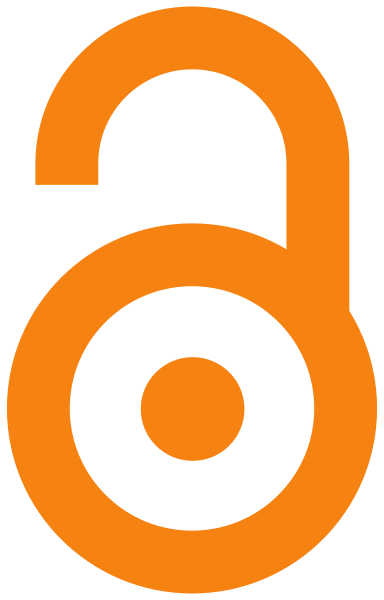
We believe that open access publishers should be active participants in discussions around Plan S, particularly regarding potential new business models and practical aspects of implementation. MDPI supports APCs as a transparent unit of payment for article publishing, however we are committed to exploring other measures and recently signed the Jussieu Call. Sustainability is a key value for MDPI, and future funding models should have at their heart the sustainability of knowledge and research dissemination. Plan S provides an opportunity for funders and publishers to directly discuss funding of open access journals in ways that are beneficial to all parties involved.
7 September 2018
Meet Us at ASME's International Mechanical Engineering Congress and Exposition in Pittsburgh, USA (9–15 November 2018)

MDPI will be represented at IMECE 2018 in Pittsburgh, USA, from 9–15 November 2018.
ASME's International Mechanical Engineering Congress and Exposition (IMECE) is the largest interdisciplinary mechanical engineering conference in the world. IMECE plays a significant role in stimulating innovation from basic discovery to translational application. It fosters new collaborations that engage stakeholders and partners not only from academia, but also from national laboratories, industry, research settings, and funding bodies.
The following MDPI open access journals will be represented:
If you are planning to attend this conference, please stop by our booth #202. Our delegates look forward to meeting you in person, and will be happy to answer any questions you may have regarding open access publishing or our journals. For more information about the conference, please visit: https://www.asme.org/events/imece
5 September 2018
Meet Us at MRS Fall Meeting in Boston, USA, 25–30 November 2018

MDPI will be attending 2018 MRS Fall Meeting & Exhibit, to be held in Boston, USA, 25–30 November 2018.
This conference is the key forum to present research to an interdisciplinary and international audience. It provides a window on the future of materials science and offers an opportunity for researchers—from students and postdoctoral fellows, to Nobel and Kavli Prize Laureates—to exchange technical information and network with colleagues.
The following MDPI journals will be represented:
- Materials
- Polymers
- Energies
- Nanomaterials
- Metals
- Journal of Functional Biomaterials (JFB)
- Processes
- Sensors
- Sustainability
- C
- Journal of Manufacturing and Materials Processing (JMMP)
- Biomimetics
- Methods and Protocols (MPs)
If you are also attending this conference, please feel free to stop by our booth (Booth #123). Our delegates look forward to meeting you in person to answer any questions you may have. For more information about the conference, please visit: https://www.mrs.org/fall2018
30 August 2018
MDPI establishes Open Access agreement with Qatar National Library

We are happy to announce the establishment of an Open Access (OA) agreement with Qatar National Library (QNL). QNL is committed to supporting and helping Qatar authors publish OA at no cost. Through this national agreement, QNL will cover the Article Processing Charges (APC) of manuscripts published by Qatar-based corresponding authors in MDPI journals.
Eligible corresponding authors affiliated with Qatar research centers and universities are prompted to choose QNL as part of our Institutional Open Access Program (IOAP) when they submit an article via our online submission system. The program will be selected automatically if authors submit their papers using their institutional email and/or a computer registered with the institution’s IP range. QNL will then crosscheck the information and confirm the APC funding.
Qatar authors that have their APC covered by QNL are advised to include the following sentence in their acknowledgments: "The publication of this article was funded by Qatar National Library".
For more information, please visit Open Access at QNL or email the QNL Open Access team at [email protected].
13 July 2018
Meet Us at the XXVI Ibero-American Catalysis Congress (CICat 2018) in Coimbra, Portugal, 9–14 September 2018
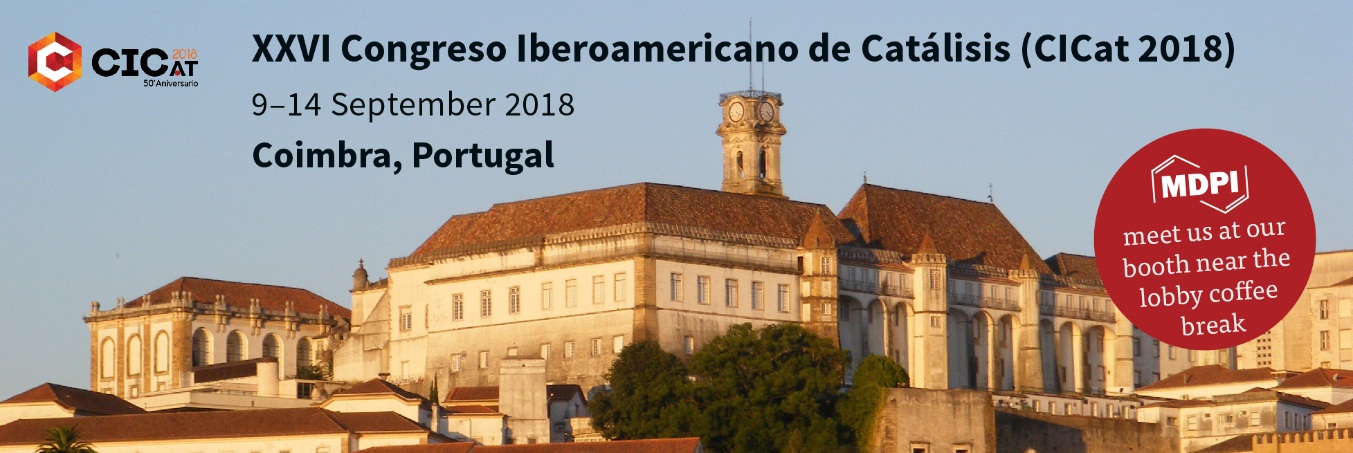
Our editorial team will be attending the XXVI Ibero-American Catalysis Congress (CICat 2018) in Coimbra, Portugal, 9–14 September 2018
As a result of the biannual meetings held since 1968, the Ibero-American Federation of Catalysis Societies (FISoCat), the Portuguese Society of Chemistry (SPQ) and the University of Coimbra, have the pleasure of organizing the XXVI Ibero-American Catalysis Congress (CICat 2018).
As in previous editions, this event aims to be a meeting point for the Ibero-American community working in Catalysis and in all its different areas of scientific knowledge. The 2018 CICat has a symbolic historical importance, for reaching 50 years since the beginning of this series of Encounters. Participants of CICat 2018 are also invited to visit the city of Coimbra, as well as its historic center and the University of Coimbra (UNESCO World Heritage Site).
The following MDPI journals will be represented:
Catalysts
Processes
Energies
Symmetry
Applied Sciences
Sustainability
Materials
If you are also attending this conference, please feel free to stop by our booth (Booth near the Lobby Coffee Break). Our delegates look forward to meeting you in person to answer any questions you may have. For more information about the conference, please visit: http://cicat2018.eventos.chemistry.pt/?setLn=es.
26 June 2018
2017 Impact Factor Released for Materials: 2.467
We are pleased to inform that Materials received an updated Journal Impact Factor of 2.467 in the June 2018 release of the Journal Citation Reports®. The journal's 5-Year Impact Factor is 3.325. Materials now ranks 111/285 (Q2) in the category 'Materials Science, Multidisciplinary.'
Overview of Citation Metrics:
- Journal Impact Factor, 2 yrs (2017): 2.467
- 5-Year Impact Factor (2017): 3.325
- CiteScore, 3 yrs (Scopus): 3.02
- SJR Scimago Journal Rank 2017 (SJR): 0.732
- Source Normalized Impact 2017 (SNIP): 1.285
Evolution of Impact Factor, Citations and Publications for Materials:

22 June 2018
Meet US at the 8th Tokyo Conference on Advanced Catalytic Science and Technology (TOCAT8) in Yokohama, Japan, 5–10 August 2018

MDPI will be attending the 8th Tokyo Conference on Advanced Catalytic Science and Technology (TOCAT8), to be held in Yokohama, Japan, 5–10 August 2018.
Catalysis Society of Japan will organize this meeting as a continuation of TOCAT (1990), TOCAT2 (1994), TOCAT3 (1998), TOCAT4 (2002), TOCAT5 (2006), TOCAT6/APCAT5 (2010), and TOCAT7 (2014). The past seven TOCAT conferences have earned a good reputation as a new series of international conferences on catalysis that has significantly filled the gap between research and technology in catalysis. Stimulating closer ties between academia and industry and encouraging young researchers in the field of catalysis are the central concept of this conference. This conference should greatly contribute to exchanging new ideas and technologies and promoting developments of new outstanding catalysts and systems under the scope that catalysis is a highly and eagerly demanded technology in industries and for sustainable society and drives innovation in many other fields.
The following MDPI journals will be represented:
Catalysts
Processes
Energies
Molecules
Materials
If you are also attending this conference, please feel free to stop by our booth (Booth #8). Our delegates look forward to meeting you in person to answer any questions you may have. For more information about the conference, please visit: http://www.shokubai.org/tocat8/index.html.
8 June 2018
Meet us at the EUROSENSORS 2018 Conference (Booth #13), Graz, Austria, 9–12 September 2018
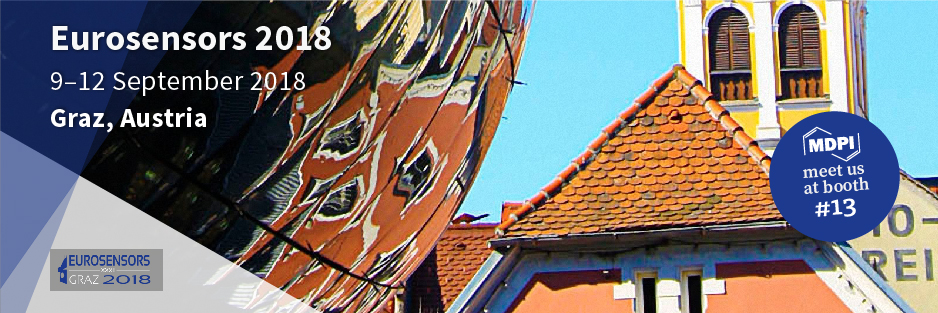
We will be attending the EUROSENSORS 2018 conference. EUROSENSORS 2018 will be hosted in Graz, Austria’s second largest city, with a beautiful historic old town that is a UNESCO World Cultural Heritage Site. The conference venue will be the University of Graz, founded in 1585, which is one of the largest universities in Austria with about 32,500 students. Many excellent scientists, including six Nobel laureates such as Erwin Schroedinger, Otto Loewi and Viktor Hess, have taught and researched here.
All the accepted Eurosensors 2018 submissions will also be published in open access form in the MDPI journal Proceedings. For the publications from Eurosensors 2017, please visit at: https://www.mdpi.com/2504-3900/1/4
Representatives of the following open access journals will attend:
Sensors
Chemosensors
Biosensors
Actuators
Materials
1 June 2018
Materials 2017 CiteScore™ Announced - 3.02
We are pleased to report Materials received a CiteScore of 3.02 for 2017. The metric reflects citation activity in 2017 in Scopus for papers published in the period 2014‒2016.
For the full details in the current CiteScore release, please see the journal's Source profile. To check the full list of MDPI journals receiving CiteScores, please see here.
31 May 2018
2017 CiteScore™ Metrics Released
The 2017 CiteScore™ data is available now, based on citation data in the Scopus® database. The current CiteScore reflects citation activity in 2017 for articles published in 2014‒2016. Please note that the list below includes journals assigned a CiteScore in this year’s release. For a full list of journals indexed in Scopus, please see our journal list.
Thirteen of our journals received a CiteScore which is in the top 10% of the distribution in at least one of the categories (marked with * in the table below), while a further 32 journals exhibit scores that are in the first quartile of the respective categories.
To access the full data for MDPI journals, please see here. More data can also be found in SJR Scimago Journal & Country Rank.
Unlike CiteScores and the widely used Journal Impact Factors, the Source Normalized Impact per Paper (SNIP) metrics are normalized in order to correct for differences in citation practices between scientific fields. Therefore, the SNIP allows direct comparison between journals specialized in different fields.
According to 2017 data, MDPI publishes six journals with an average citation impact, or SNIP, in excess of 1.500. These journals are Biomolecules, Cancers, Journal of Clinical Medicine (JCM), Marine Drugs, Remote Sensing and Sensors (see the last column in the table below).
CiteScore Data for MDPI Journals
| Journal | Rank (Quartile) |
Category | Link | CiteScore 2017 | 2016 |
2015 |
SNIP 2017 |
| Aerospace | 43/116 (Q2) | • Aerospace Engineering | Link | 1.23 | - | - | 1.152 |
| Agriculture | 69/309 (Q1) 91/398 (Q1) 78/255 (Q2) |
• Agronomy and Crop Science • Plant Science • Food Science |
Link | 1.93 | - | - | 1.133 |
| Agronomy | 46/309 (Q1) | • Agronomy and Crop Science | Link | 2.38 | - | - | 1.115 |
| Algorithms | 22/46 (Q2) 61/125 (Q2) 60/107 (Q3) 64/114 (Q3) |
• Numerical Analysis • Computational Mathematics • Computational Theory and Mathematics • Theoretical Computer Science |
Link | 1.03 | 1.15 | 1.07 | 0.749 |
| Animals | 12/154 (Q1) * 48/367 (Q1) |
• General Veterinary • Animal Science and Zoology |
Link | 2.02 | 1.46 | 1.66 | 1.099 |
| Antibiotics | 6/68 (Q1) * 62/263 (Q1) 55/230 (Q1) 31/108 (Q2) 47/134 (Q2) 139/398 (Q2) |
• General Pharmacology, Toxicology and Pharmaceutics • Infectious Diseases • Pharmacology (medical) • Microbiology (medical) • Microbiology • Biochemistry |
Link | 2.85 | 1.65 | - | 0.975 |
| Antibodies | 43/143 (Q2) 61/164 (Q2) 85/189 (Q2) |
• Drug Discovery • Immunology and Allergy • Immunology |
Link | 2.85 | - | - | 0.844 |
| Antioxidants | 23/119 (Q1) 35/169 (Q2) 100/398 (Q2) 119/367 (Q2) 102/264 (Q2) |
• Clinical Biochemistry • Physiology • Biochemistry • Molecular Biology • Cell Biology |
Link | 3.42 | - | - | 1.361 |
| Applied Sciences | 48/270 (Q1) 15/66 (Q1) 31/116 (Q2) 18/53 (Q2) 151/434 (Q2) 186/535 (Q2) |
• General Engineering • Fluid Flow and Transfer Processes • Instrumentation • Process Chemistry and Technology • General Materials Science • Computer Science Applications |
Link | 1.90 | - | - | 0.801 |
| Biology | 12/177 (Q1)* 32/186 (Q1) 10/40 (Q1) |
• General Agricultural and Biological Sciences • General Biochemistry, Genetics and Molecular Biology • General Immunology and Microbiology |
Link | 3.48 | 3.02 | 2.78 | 0.961 |
| Biomolecules | 31/398 (Q1) * 41/367 (Q1) |
• Biochemistry • Molecular Biology |
Link | 5.72 | 1.67 | 3.08 | 1.542 |
| Biosensors | 20/119 (Q1) | • Clinical Biochemistry | Link | 3.59 | 2.83 | 2.37 | 1.122 |
| Brain Sciences | 47/111 (Q2) | • General Neuroscience | Link | 2.56 | - | - | 0.695 |
| Cancers | 26/323 (Q1) * 23/191 (Q1) |
• Oncology • Cancer Research |
Link | 5.82 | 5.02 | 4.07 | 1.567 |
| Catalysts | 32/151 (Q1) 21/46 (Q2) |
• Physical and Theoretical Chemistry • Catalysis |
Link | 3.23 | 3.44 | 3.45 | 0.954 |
| Crystals | 76/272 (Q2) 140/434 (Q2) 127/398 (Q2) 26/64 (Q2) |
• General Chemical Engineering • General Materials Science • Condensed Matter Physics • Inorganic Chemistry |
Link | 1.97 | 1.89 | 1.47 | 0.745 |
| Diagnostics | 49/119 (Q2) | • Clinical Biochemistry | Link | 2.43 | - | - | 0.788 |
| Diversity | 30/124 (Q1) 14/52 (Q2) 83/306 (Q2) 11/29 (Q2) |
• Nature and Landscape Conservation • Agricultural and Biological Sciences (miscellaneous) • Ecology • Ecological Modelling |
Link | 2.15 | 2.03 | 1.96 | 1.300 |
| Electronics | 109/644 (Q1) 26/148 (Q1) 42/224 (Q1) 50/259 (Q1) 23/96 (Q1) |
• Electrical and Electronic Engineering • Hardware and Architecture • Control and Systems Engineering • Computer Networks and Communications • Signal Processing |
Link | 2.97 | - | - | 1.227 |
| Energies | 6/73 (Q1) * 31/192 (Q1) 103/644 (Q1) 4/16 (Q1) 47/140 (Q2) |
• Control and Optimization • Energy Engineering and Power Technology • Electrical and Electronic Engineering • Energy (miscellaneous) • Renewable Energy, Sustainability and the Environment |
Link | 3.11 | 2.50 | 2.87 | 1.340 |
| Entropy | 35/202 (Q1) | • General Physics and Astronomy | Link | 2.41 | 1.87 | 1.99 | 1.189 |
| Forests | 17/129 (Q1) | • Forestry | Link | 2.31 | 2.06 | 1.76 | 0.990 |
| Future Internet | 132/259 (Q3) | • Computer Networks and Communications | Link | 1.25 | - | - | - |
| Games | 132/187 (Q3) 78/110 (Q3) 305/418 (Q3) |
• Statistics and Probability • Statistics, Probability and Uncertainty • Applied Mathematics |
Link | 0.61 | 0.87 | 0.57 | 1.038 |
| Genes | 21/91 (Q1) 74/311 (Q1) |
• Genetics (clinical) • Genetics |
Link | 3.49 | 3.62 | 3.18 | 0.374 |
| Geosciences | 32/182 (Q1) |
• General Earth and Planetary Sciences | Link | 1.97 | 1.67 | 1.29 | 0.856 |
| Information | 143/251 (Q3) | • Information Systems | Link | 1.16 | 0.78 | 0.94 | 1.146 |
| Insects | 27/135 (Q1) | • Insect Science | Link | 1.85 | 1.81 | 1.38 | 0.719 |
| International Journal of Environmental Research and Public Health (IJERPH) | 80/478 (Q1) 34/106 (Q2) |
• Public Health, Environmental and Occupational Health • Health, Toxicology and Mutagenesis |
Link | 2.41 | 2.38 | 2.42 | 0.931 |
| International Journal of Molecular Sciences (IJMS) | 7/69 (Q1) * 61/535 (Q1) 20/163 (Q1) 9/64 (Q1) 26/151 (Q1) 89/367 (Q2) 17/46 (Q2) |
• Spectroscopy • Computer Science Applications • Organic Chemistry • Inorganic Chemistry • Physical and Theoretical Chemistry • Molecular Biology • Catalysis |
Link | 3.86 | 3.73 | 3.37 | 0.998 |
| ISPRS International Journal of Geo-Information (IJGI) | 79/605 (Q1) 22/82 (Q2) 13/36 (Q2) |
• Geography, Planning and Development • Earth and Planetary Sciences (miscellaneous) • Computers in Earth Sciences |
Link | 2.10 | 1.62 | 1.52 | 1.062 |
| Journal of Clinical Medicine (JCM) | 10/841 (Q1) * | • General Medicine | Link | 7.07 | - | - | 1.535 |
| Journal of Functional Biomaterials (JFB) | 43/199 (Q1) 23/77 (Q2) |
• Biomedical Engineering • Biomaterials |
Link | 3.47 | - | - | 1.344 |
| Journal of Low Po- wer Electronics and Applications (JLPEA) |
301/644 (Q2) | • Electrical and Electronic Engineering | Link | 1.12 | 0.98 | 0.83 | 0.367 |
| Journal of Personalized Medicine (JPM) | 54/189 (Q2) | • Medicine (miscellaneous) | Link | 2.61 | - | - | 0.944 |
| Land | 50/124 (Q2) 129/306 (Q2) 36/65 (Q3) |
• Nature and Landscape Conservation • Ecology • Global and Planetary Change |
Link | 1.44 | - | - | 0.658 |
| Life | 4/94 (Q1) * 70/561 (Q1) 40/186 (Q1) 20/80 (Q2) |
• Palaeontology • Ecology, Evolution, Behavior and Systematics • General Biochemistry, Genetics and Molecular Biology • Space and Planetary Science |
Link | 3.16 | 2.95 | 1.68 | 0.935 |
| Marine Drugs | 17/146 (Q1) | • Drug Discovery | Link | 4.58 | 3.83 | 3.66 | 1.537 |
| Materials | 83/434 (Q1) | • General Materials Science | Link | 3.02 | 3.26 | 3.11 | 1.285 |
| Membranes | 5/18 (Q2) 15/53 (Q2) 4/10 (Q2) |
• Chemical Engineering (miscellaneous) • Process Chemistry and Technology • Filtration and Separation |
Link | 2.69 | 2.19 | 2.95 | 0.880 |
| Metabolites | 47/209 (Q1) 103/398 (Q2) 127/367 (Q2) |
• Endocrinology, Diabetes and Metabolism • Biochemistry • Molecular Biology |
Link | 3.35 | - | - | 0.925 |
| Metals | 155/434 (Q2) | • General Materials Science | Link | 1.87 | - | - | 0.955 |
| Micromachines | 105/554 (Q1) 154/644 (Q1) 64/224 (Q2) |
• Mechanical Engineering • Electrical and Electronic Engineering • Control and Systems Engineering |
Link | 2.31 | 1.83 | 1.78 | 0.987 |
| Minerals | 33/175 (Q1) 45/208 (Q1) |
• Geotechnical Engineering and Engineering Geology • Geology |
Link | 2.21 | 2.13 | 1.77 | 1.149 |
| Molecules | 4/25 (Q1) 25/172 (Q1) 18/104 (Q1) 31/163 (Q1) 30/151 (Q1) 31/146 (Q1) 55/160 (Q2) |
• Chemistry (miscellaneous) • Pharmaceutical Science • Analytical Chemistry • Organic Chemistry • Physical and Theoretical Chemistry • Drug Discovery • Molecular Medicine |
Link | 3.27 | 3.09 | 2.65 | 1.146 |
| Nutrients | 11/255 (Q1) * 9/112 (Q1) * |
• Food Science • Nutrition and Dietetics |
Link | 4.35 | 4.29 | 4.07 | 1.403 |
| Pathogens | 38/263 (Q1) 20/108 (Q1) 9/40 (Q1) 40/164 (Q1) 110/367 (Q2) |
• Infectious Diseases • Microbiology (medical) • General Immunology and Microbiology • Immunology and Allergy • Molecular Biology |
Link | 3.52 | - | - | 1.166 |
| Pharmaceuticals | 14/172 (Q1) * 33/160 (Q1) |
• Pharmaceutical Science • Molecular Medicine |
Link | 4.12 | 4.90 | 3.64 | 1.370 |
| Pharmaceutics | 21/172 (Q1) | • Pharmaceutical Science | Link | 3.68 | 3.83 | 2.68 | 1.092 |
| Photonics | 30/116 (Q1) 80/270 (Q2) 53/160 (Q2) |
• Instrumentation • Radiology Nuclear Medicine and Imaging • Atomic and Molecular Physics, and Optics |
Link | 1.96 | - | - | 0.817 |
| Plants | 73/561 (Q1) 48/389 (Q1) 44/306 (Q1) |
• Ecology, Evolution, Behavior and Systematics • Plant Science • Ecology |
Link | 3.13 | - | - | 0.969 |
| Polymers | 17/142 (Q1) 63/359 (Q1) |
• Polymers and Plastics • General Chemistry |
Link | 3.30 | 3.74 | 3.37 | 1.213 |
| Religions | 26/389 (Q1) * | • Religious Studies | Link | 0.56 | - | - | 0.676 |
| Remote Sensing | 13/182 (Q1) * | • General Earth and Planetary Sciences | Link | 4.03 | 3.56 | 3.76 | 1.559 |
| Resources | 19/142 (Q1) 39/261 (Q1) |
• Nature and Landscape Conservation • Management, Monitoring, Policy and Law |
Link | 2.69 | - | - | 1.387 |
| Scientia Pharmaceutica | 92/172 (Q3) | • Pharmaceutical Science | Link | 0.86 | - | - | 0.513 |
| Sensors | 9/116 (Q1) * 25/160 (Q1) 100/644 (Q1) 19/104 (Q1) 113/398 (Q2) |
• Instrumentation • Atomic and Molecular Physics, and Optics • Electrical and Electronic Engineering • Analytical Chemistry • Biochemistry |
Link | 3.23 | 2.78 | 2.21 | 1.550 |
| Social Sciences | 81/213 (Q2) | • General Social Sciences | Link | 0.60 | - | - | 0.445 |
| Sustainability | 61/605 (Q1) * 55/261 (Q1) 60/140 (Q2) |
• Geography, Planning and Development • Management, Monitoring, Policy and Law • Renewable Energy, Sustainability and the Environment |
Link | 2.37 | 1.96 | 1.78 | 1.030 |
| Symmetry | 44/327 (Q1) 17/45 (Q2) 16/40 (Q2) 14/25 (Q2) |
• General Mathematics • Computer Science (miscellaneous) • Physics and Astronomy (miscellaneous) • Chemistry (miscellaneous) |
Link | 1.32 | 1.12 | 0.95 | 0.802 |
| Toxins | 18/106 (Q1) 21/111 (Q1) |
• Health, Toxicology and Mutagenesis • Toxicology |
Link | 3.32 | 3.34 | 3.76 | 1.136 |
| Vaccines | 5/230 (Q1) * 13/263 (Q1) * 18/302 (Q1) * 11/146 (Q1) * 32/189 (Q1) |
• Pharmacology (medical) • Infectious Diseases • Pharmacology • Drug Discovery • Immunology |
Link | 4.88 | 1.23 | 3.76 | 1.255 |
| Viruses | 29/263 (Q1) 16/68 (Q1) |
• Virology • Infectious Diseases |
Link | 3.88 | 3.60 | 3.74 | 1.130 |
| Water | 66/605 (Q1) 37/191 (Q1) 43/199 (Q1) 193/398 (Q2) |
• Geography, Planning and Development • Water Science and Technology • Aquatic Science • Biochemistry |
Link | 2.29 | 2.05 | 1.96 | 1.007 |
30 May 2018
MDPI sponsors the latest issue of CHIMIA
22 May 2018
Meet US at the Annual ISE Meeting in Bologna, Italy (2–7 September 2018)
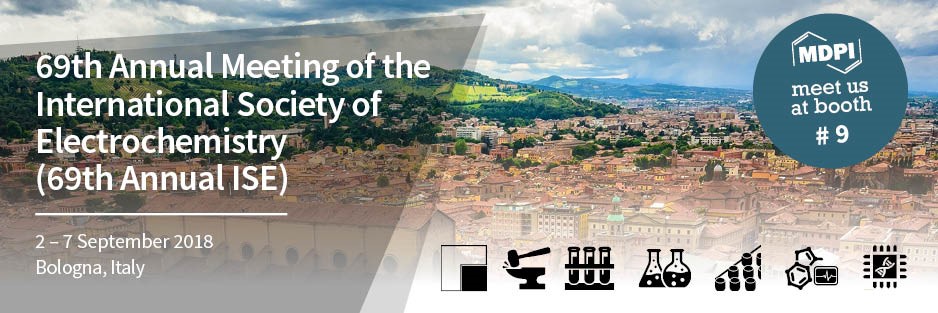
MDPI will be attending the 69th Annual Meeting of the International Society of Electrochemistry, to be held in Bologna, Italy, 2–7 September 2018.
To mark the continuity between academic culture and technological progress, the scientific theme of the meeting is Electrochemistry from Knowledge to Innovation. Fundamental aspects of analytical, molecular, physical and bioelectrochemistry will be discussed, as well as their applications to (nano)materials science, energy, environment and biomedicine.
The following MDPI journals will be represented at the Meeting:
If you are also attending this conference, please feel free to stop by our booth (Booth #9). Our delegates look forward to meeting you in person to answer any questions you may have. For more information about the conference, please visit: http://annual69.ise-online.org/.
18 May 2018
Spanish Manufacturing Engineering Society (MES) is Now an Affiliated Society Member of Materials
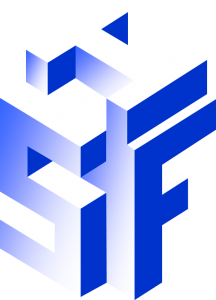
In April 2018, the Spanish Manufacturing Engineering Society (MES) chose Materials its first-choice journal and became an affiliated society member of the journal.
As part of this collaboration, all affiliated MES members enjoy a discount on the article processing charges (APC) when submitting articles to Materials. The Manufacturing Engineering Society (MES) is an association comprising most of the academics working on manufacturing-related topics within the universities in Spain, and organizations and professionals interested in promoting knowledge and research on manufacturing-related topics.
30 April 2018
Winners of the First MDPI Writing Prize
We are pleased to announce the results of the first MDPI Writing Prize. We received a large number of entries from across the globe on the theme of “The Global Benefits of Open Research”. It was a pleasure to read so many original, well-researched and well-presented ideas, and the final choice was not an easy one. We are pleased to announce that the winners are as follows:
1st prize (500 CHF, Swiss knife and certificate)
Edmond Sanganyado, Shantou University, China
2nd prizes (250 CHF, Swiss knife and certificate)
Kamala T. Rajahgopal, Asia e University, Malaysia
Yin Zhixuan, Qingdao University of Technology, China
3rd prizes (100 CHF, Swiss knife and certificate)
Alexandra Ticea, Carol Davila University of Medicine and Pharmacy, Romania
Ankur Sarker, University of Virginia, USA
Daniel Attoye, United Arab Emirates University, UAE
Congratulations to all of them! The winning entries can be downloaded by clicking on the names above. A compilation of all entries will soon be available as an open access book.
The writing prize is sponsored by the MDPI English editing service.
23 March 2018
Check for Updates: A New Function in the Article PDF Version

At MDPI, we always want to keep you up to date. Even for already published articles, some corrections or minor changes may occur. To prevent you from missing any updates, from now on you will be able to access the latest version of any manuscript by clicking on the “check for updates” logo that you can find in the PDF file, even if you have saved the file on your computer.
13 March 2018
MDPI Becoming a Member of UKSG
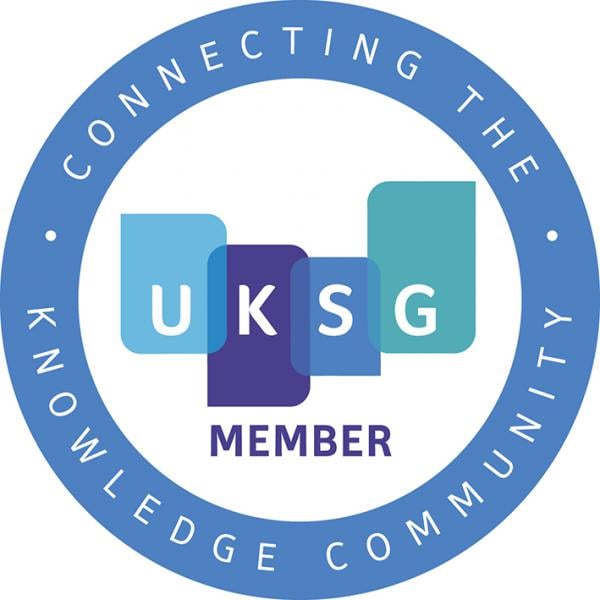
We are proud to announce that MDPI is now a member of UKSG, the UK´s largest scholarly communications community. Through UKSG, different stakeholders share their knowledge and experience in order to improve the knowledge and information environment for researchers. UKSG´s members include universities, publishers, content providers, intermediaries, and other similar organisations. Members participate in discussions and events on issues around scholarly communications.
The UKSG Annual Conference and Exhibition is a flagship initiative from the UKSG and one of the most stimulating events in the scholarly communications calendar. It is held annually and attracts a large number of delegates. More information is available at https://www.uksg.org/events/annualconference
MDPI is delighted to be a part of this active community and we look forward to making our own contribution. We will continue to support organisations and initiatives that boost collaboration and vision within scholarly communication.
More information about UKSG can be found at https://www.uksg.org/. The full membership list is available at: https://www.uksg.org/members.
12 March 2018
Meet Us at the 2018 E-MRS Spring Meeting and Exhibit in Strasbourg, France, 18–22 June 2018

MDPI will be attending the 2018 E-MRS Spring Meeting and Exhibit. The conference is a plenary session to provide an international forum for discussing recent advances in the field of materials science. It will consist of 29 parallel symposia with invited speakers, oral and poster presentations. Representatives of the following open access journals will attend:
Applied Sciences
Biomimetics
Clean Technologies
Coatings
Journal of Manufacturing and Materials Processing (JMMP)
Materials
Metals
Nanomaterials
Polymers
Processes
Quantum Beam Science (QuBS)
8 March 2018
Meet Us at the EUBCE 2018 in Copenhagen, Denmark, 14-18 May 2018

MDPI will be represented at the EUBCE 2018 which will be held in Copenhagen, Denmark, 14-18 May, 2018.
As the leading platform for the collection, exchange and dissemination of scientific and industrial know-how in the field of biomass, the EUBCE combines one of the largest biomass science and technology conferences with a high quality industry exhibition, attracting biomass professionals from around the globe. Representatives of the following open access journals will attend:
Energies
Catalysts
Resources
Materials
ChemEngineering
If you are also attending this conference, please feel free to stop by our booth (Booth #H3). Our delegates look forward to meeting you in person to answer any questions you may have regarding open access publishing or our journals. For more information about the conference, please visit: http://www.eubce.com/
8 March 2018
Meet Us at NANOTECH 2018 in Anaheim, CA, USA, 13–16 May 2018

We will be attending the 20th annual Nanotech 2018 Conference & Expo (NANOTECH 2018), co-located with the TechConnect World Innovation Conference, Defense TechConnect Summit and Spring SBIR/STTR Conference. The event will attract more than 350 featured exhibitors and an expected crowd of more than 4000 attendees, including business executives, venture capitalists, politicians, s cientists and researchers from over 70 countries. Nanotech contains 38 symposiums and brings together specialists from a wide range of scientific fields, technology and business.
Representatives of the following open access journals will attend:
Sensors
Materials
Nanomaterials
Journal of Functional Biomaterials (JFB)
Journal of Imaging
Sustainability
Fluids
Photonics
Electronics
Catalysts
Applied Sciences
Inventions
Diagnostics
Cancers
Journal of Low Power Electronics and Applications (JLPEA)
Designs
Pharmaceuticals
C
Inorganics
International Journal of Environmental Research and Public Health (IJERPH)
Machines
Pharmaceutics
Journal of Manufacturing and Materials Processing (JMMP)
Actuators
Robotics
Energies
Biosensors
Chemosensors
Membranes
Coatings
Micromachines
If you will also attend this conference, please feel free to stop by our booth (Booth # 317). Our delegates look forward to meeting you in person to answer any questions you may have. For more information about the conference, please visit:
https://www.techconnectworld.com/Nanotech2018/
Conference Location:
Anaheim Convention Center,
800 W Katella Avenue
Anaheim CA 92802
USA
1 February 2018
MDPI Signed the San Francisco Declaration on Research Assessment (DORA)

The DORA initiative addresses the need for advanced approaches in the evaluation and measurement of the quality of scientific research outputs. It is a worldwide initiative covering all scholarly disciplines. MDPI proudly joins a list of more than 400 organizations around the world which support DORA’s recommendations for improving the way the quality of research results is evaluated.
More info can be found at http://www.ascb.org/dora/
25 January 2018
Meet Us at the ACS National Meeting & Exposition in New Orleans, USA, 18–22 March 2018

We will be attending the 255th ACS National Meeting & Exposition. It is an interdisciplinary forum open to anyone with an interest in Chemistry and the related disciplines. Representatives of the following open access journals will attend:
Agronomy
Applied Sciences
Beverages
Biomimetics
Biosensors
C
Catalysts
ChemEngineering
Chemosensors
Coatings
Energies
Environments
Fibers
Foods
Gels
Inorganics
Journal of Marine Science and Engineering (JMSE)
Lubricants
Materials
Mathematics
Metals
Molecules
Nanomaterials
Polymers
Processes
Resources
Safety
Sensors
Separations
Sustainability
Symmetry
Toxins
Water
If you are also attending this conference, please feel free to stop by our booth (Booth #640). Our delegates look forward to meeting you in person to answer any questions you may have. For more information about the conference, please visit: https://www.acs.org/content/acs/en/meetings/national-meeting.html?sc=home_meetings_170818_mtg_NO18_od
4 January 2018
Meet Us at the 2018 MRS Spring Meeting in Phoenix, AZ, USA
We will be attending the 2018 MRS Spring Meeting, which will be held in Phoenix, AZ, USA, 2 to 6 April 2018, representing the following open access journals:
Materials
Metals
Nanomaterials
Polymers
Coatings
Journal of Functional Biomaterials (JFB)
Quantum Beam Science (QuBS)
Biomimetics
Please come along to our booth to chat with our delegates about our journals. Our delegates will also answer any questions about online publishing and our journals. We look forward to meeting you in person in Phoenix!
For more information on the conference, please visit:
http://www.mrs.org/spring2018
28 December 2017
6th International Symposium on Sensor Science (I3S 2018) and 4th SPINTECH Technology Thesis Award, 6–8 August 2018, Kenting, Taiwan
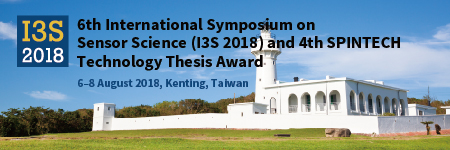
Sensors are vital components of smart manufacturing, artificial Intelligence, Cyber–Physical System (CPS) and Internet of Things (IoT) for industry 4.0. For more advanced creations, biologists, engineers, physicists and chemists are all endeavoring to provide innovative technical sensors. In 2018, the journal Sensors is going to hold an international conference in Kenting, which is located in the south of Taiwan; the conference is taking place in Asia for the first time.
I3S embraces all professionals from industry, academia and government to discuss the latest developments and breakthroughs of sensor technology and related subjects. During the conference, attendees, from a range of research areas, will all gather together to share different aspects and establish new mutually beneficial collaborations across different fields.
Conference scope: Physical Sensors; Sensor Networks; Sensors Application; Biosensors; Chemical Sensors; IOT sensor and application.
We sincerely look forward to your participation in I3S2018.
19 December 2017
Announcing the MDPI English Writing Prize
The competition is still open until end of March! Please check out the banner for more details: https://mdpi-res.com/data/english-prize.pdf
15 December 2017
UCL Press Adopts the MDPI Editorial Platform JAMS
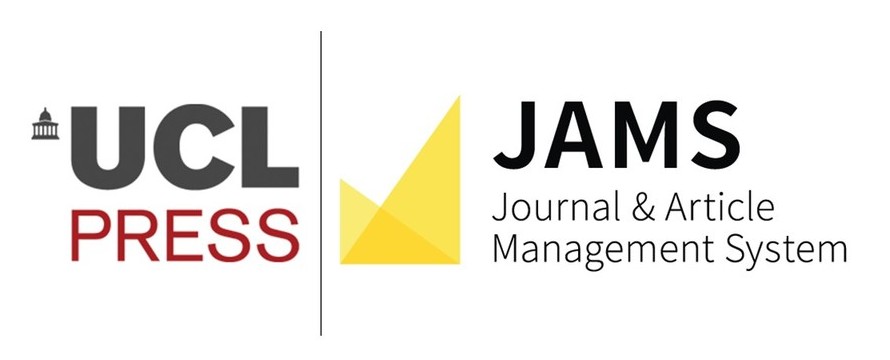
We are delighted to announce that UCL Press has adopted MDPI's Journal Article & Management System, JAMS, including production services. JAMS is a modular, integrated editorial platform for academic publishers. It offers flexibility, ease-of-use, and is a fully integrated solution for the end-to-end management of scholarly journals. JAMS is based on the software used to publish MDPI’s portfolio of journals.
Ian Caswell, UCL Press Journals Manager, says he is "excited to see UCL Press and MDPI partner together to implement the JAMS submission system for all UCL Press journals. The system offered a flexible, efficient and straightforward solution for our processes from author submission to ready for publication. I am grateful for the valuable experience and support MDPI have offered and look forward to developing our programme with an effective submission system in place.” Dr Martyn Rittman, MDPI’s Publishing Services Manager, adds, “We are proud to support one of the UK’s premier university presses in their publishing operation. This is an excellent way for us at MDPI to share our experience and knowledge, and benefit the research community beyond our own journals.”
JAMS combines services that are kept separate for many publishers. The entire editorial process, production and invoicing (e.g. for open access article processing charges) are fully integrated into a single platform. This allows for efficient, fast manuscript processing. For further information about JAMS, see https://www.mdpi.com/publishing_services.
7 December 2017
Meet Us at the TMS 2018 Annual Meeting & Exhibition in Phoenix
We will be attending the 147th TMS Annual Meeting & Exhibition, which will be held in Phoenix, Arizona, USA, March 11–15, 2018, representing the following open access journals:
Metals
Materials
Coatings
Applied Sciences
Energies
Minerals
Fibers
JFB
Please come along to our booth (#322) to talk with our delegates about online publishing and our journals. We look forward to meeting you in person in Phoenix!
For more information on the conference, please visit:
http://www.tms.org/tms2018
23 November 2017
New Participants in the Institutional Open Access Program (IOAP)
We are pleased to welcome new participants to MDPI's Institutional Open Access Program (IOAP), designed to help institutions manage the transition to the Open Access publishing model. Researchers affiliated with participating universites benefit from a 10% discount on the Article Processing Charges (APC) for any paper published in an MDPI journal, while the participating library or university incurs no basic fee for participating in the program.
The IOAP set of free services, provided by MDPI to institutions that sign up, include:- No fee for participants and no obligation to prolong after the initial 12 months. The participants may withdraw from the programme at any time, and we will also keep it free for the library for as long as they continue in the programme.
- Authors affiliated with the university will receive a 10% discount on the APC.
- The institution is granted free access to the MDPI submission system and can receive free alerts of new submissions to our journals.
- By default, authors from the institution will continue to be invoiced directly unless the institution opts for central billing.
- Auto-archiving of papers into the institutions´ repository as long as it supports SWORD 1.3.
More details about the programme and a list of our current participant institutions can be found at: https://www.mdpi.com/about/ioap
Institutions which are interested to participate may do so online at: https://www.mdpi.com/ioap-form
The following North American universities have signed up to the IOAP program recently:
Connecticut College, USA
Emory University, USA
Florida International University, USA
Johns Hopkins University, USA
Mississippi State University, USA
Northeastern University, USA
Rice University, USA
University of Ontario Institute of Technology, Canada
University of Rhode Island, USA
University of Texas Southwestern Medical Center, USA
University of Toronto, Canada
University of Windsor, Canada
University of Wisconsin–Madison, USA
Wellesley College, USA
West Virginia University, USA
Many prestigious institutions from Europe and Asia have joined as well:
Asia Pacific University of Technology & Innovation, Malaysia
Czech Technical University in Prague, Czech Republic
Gdansk University of Technology, Poland
Martin-Luther-Universität Halle-Wittenberg, Germany
National Chung Hsing University, Taiwan
Newcastle University, UK
Northumbria University, UK
Southwest University, China
Technical University of Crete, Greece
University Malaya, Malaysia
University of Antwerp, Belgium
University of Cyprus, Cyprus
University of Manchester, UK
University of Reading, UK
University of Sussex, UK
University of Warwick, UK
West Pomeranian University of Technology Szczecin, Poland
We offer a warm welcome to the new participants!
10 November 2017
Available Journal Awards at MDPI
In order to reward the academic community, especially young researchers, and enhance communication among scientists, MDPI journals regularly offer various awards to researchers in specific fields, for example, Young Investigator Awards, Travel Awards, Best Paper Awards, and Best Poster Awards, etc. The awardees range from PhD students to junior scientists.
Currently, the following 44 awards given by MDPI journals are accepting applications. Please click on the award title below to check whether you are eligible for it and start the application process.
|
Subject |
Journal |
Award |
Intended Awardee |
|
Biology & Life Sciences |
Animals |
PhD students or postdoctoral researchers |
|
|
Antioxidants |
Postdoctoral researchers or PhD students |
||
|
Biology |
PhD or postdoctoral fellows |
||
|
Forests |
Postdocs or PhD students |
||
|
International Journal of Molecular Sciences (IJMS) |
Ground-breaking contribution in the fields of Molecular Biology, and Molecular Pathology |
||
|
Journal of Fungi (JoF) |
Travel Awards 2018 |
PhD graduate students, and postdoctoral fellows |
|
|
Life |
Travel Award 2018 |
PhD students or postdoctoral fellows |
|
|
Metabolites |
PhD students |
||
|
Pharmaceuticals |
PhD students |
||
|
Toxins |
Postdoctoral fellows |
||
|
Viruses |
Viruses 2018 participants |
||
|
Viruses |
Viruses 2018 participants |
||
|
Water |
2018 Young Investigator Award |
Young investigators |
|
|
Chemistry & Materials Science |
Biomimetics
|
Graduate Student or Postdoctoral Trainee / Research Associate |
|
|
Catalysts |
PhD students |
||
|
Chemosensors |
PhD or postdoctoral fellows |
||
|
Entropy |
Young investigators |
||
|
Fibers |
2018 Travel award |
Postdocs or PhD students |
|
|
Magnetochemistry |
Postdocs |
||
|
Materials |
PhD or postdoctoral fellows |
||
|
Metals |
PhD or postdoctoral fellows |
||
|
Minerals |
PhD or postdoctoral fellows |
||
|
Sensors |
Travel Award 2018 |
PhD or postdoctoral fellows |
|
|
Sensors |
Sensors' reviewers in 2017 |
||
|
Sensors |
Young investigators |
||
|
Technologies |
PhD students |
||
|
Computer Science & Mathematics |
Multimodal Technologies and Interaction (MTI) |
Postdoctoral researchers or PhD students |
|
|
ISPRS International Journal of Geo-Information(IJGI) |
Postdocs |
||
|
Journal of Sensor and Actuator Networks (JSAN) |
Postdoctoral fellows and PhD students |
||
|
Journal of Imaging |
Postdoctoral fellows and PhD students |
||
|
Engineering |
Actuators |
PhD or postdoctoral fellows |
|
|
Remote Sensing |
Authors |
||
|
Machines |
PhD or postdoctoral fellows |
||
|
Micromachines |
PhD or postdoctoral fellows |
||
|
Fluids |
Postdoctoral fellows and PhD students |
||
|
ChemEngineering |
Postdoctoral researchers and PhD students |
||
|
Environmental & Earth Sciences |
Diversity |
Travel Awards 2018 |
Postdoctoral fellows |
|
International Journal of Environmental Research and Public Health (IJERPH) |
Authors who submit from 1 Nov 2017 to 31 Oct 2018 |
||
|
Resources |
Postdocs or PhD students |
||
|
Geosciences |
Postdoctoral fellows and PhD students |
||
|
Physical Sciences & Astronomy |
Galaxies |
Ph.D. students, postdoctoral fellows, or lecturers in cosmology or galaxies physics |
|
|
Applied Science |
Postdocs |
||
|
Medicine & Pharmacology; Public Health & Healthcare |
Journal of Clinical Medicine (JCM) |
PhD or postdoctoral fellows |
|
|
Medicines |
Postdocs |
7 November 2017
MDPI has signed the Jussieu Call for Open Science and Bibliodiversity
The Jussieu Call aims to develop and implement alternative models to meet the aims of open science while promoting bibliodiversity. In particular it wishes to promote new business models for funding open access publication. It was drafted on the Jussieu campus in Paris by a group of French researchers and scientific publishing professionals.
MDPI supports scholarly communities and initiatives that innovate and further promote Open Access publishing. There is a need to explore different frameworks to fund open access in ways that ensure that excessive funds are not diverted from research towards publishing. Many fair funding models already exist, and they can be further developed and extended. These include institutional support, library contributions or subsidies, premium services, participatory funding, etc. For this reason, MDPI has signed up to the Jussieu call and welcomes its aims.
More information can be found at http://jussieucall.org/ (archived here)
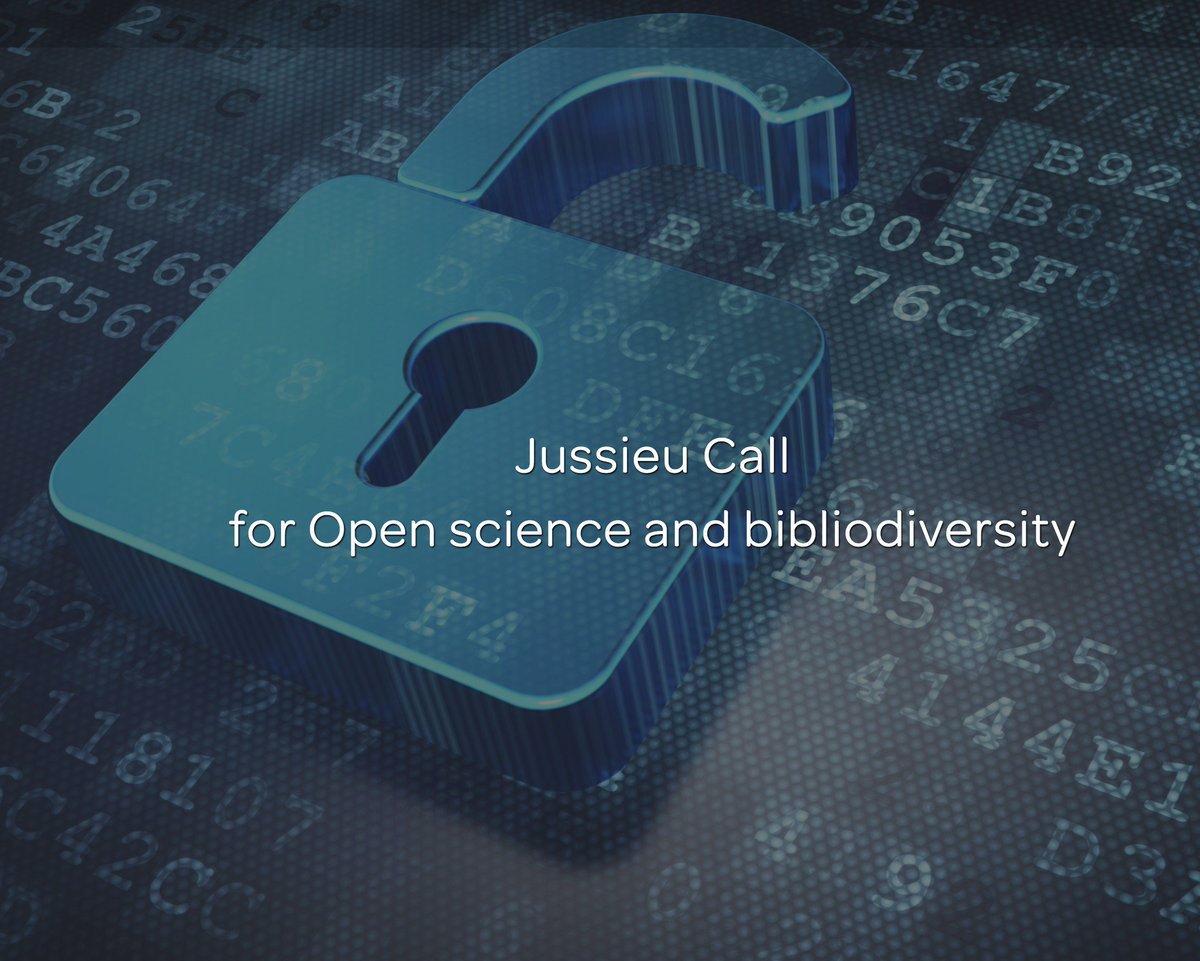
6 October 2017
Dr. Franck Vazquez, MDPI CEO, Interviewed by Scholarly Kitchen
The Society for Scholarly Publishing’s popular blog about topics in academic publishing, Scholarly Kitchen, recently interviewed MDPI’s CEO, Dr. Franck Vazquez. He shared some thoughts and information on the past and future of MDPI and open access publishing in general:
“In the long run, we aim to anchor MDPI in research communities. We recently developed and launched the preprint platform Preprints, revamped our free-to-use conference hosting platform Sciforum, and are working on other projects, such as Scilit, our bibliographic database.”
Read the full interview here.
19 September 2017
Meet Us at the 2017 MRS Fall Meeting in Boston
We will be attending the 2017 MRS Fall Meeting which will be held in Boston, Massachusetts, from November 26–December 1, 2017, and representing the following open access journals:
Materials
Nanomaterials
Energies
Metals
Applied Sciences
Crystals
Minerals
Journal of Functional Biomaterials
Coatings
Robotics
Biosensors
Chemosensors
Polymers
Bioengineering
Please come along to our booth (booth number: #122) to chat with our delegates about our journals and hear about our travel awards offered to Postdocs and PhD students. Our delegates will also answer any questions about online publishing and our journals. We look forward to meeting you in person in Boston!
For more information on the conference, please visit:
www.mrs.org/fall2017
19 September 2017
A Warm Welcome to the New IOAP Participants
We are delighted to have welcomed 24 new participants to our Institutional Open Access Programme (IOAP) since the beginning of September this year. These are University libraries and Research Institutions located around the world; from the USA and Canada to the UK, and from Norway and Spain to Greece. Well respected Universities, such as the University of Denver, the University of Colorado Boulder, and the University of Arizona in the US, have signed up, while their researchers can now benefit from a 10% discount on the Article Processing Charges (APC) for any papers they publish in MDPI journals, at no cost for the library or the University.
We are more than happy to see the Open Access movement growing stronger and wider every day and we appreciate the vital role which librarians, repository managers, and other scholarly communications professionals play in the field. Our communication with and service to this community is, therefore, one of our principal priorities. The IOAP is our way to support academic and scientific Institutions as well as their scholars in managing, administrating, and publishing research in an Open Access world.
The IOAP set of free services, provided by MDPI to institutions that sign up, include:
- No fee for participants and no obligation to prolong after the initial 12 months. The participants may withdraw from the programme at any time, and we will also keep it free for the library for as long as they continue in the programme.
- Authors affiliated with the university will receive a discount on the article processing charge (APC).
- The institution is granted free access to the MDPI submission system and can receive free alerts of new submissions to our journals.
- By default, authors from the institution will continue to be invoiced directly unless the institution opts for central billing.
- Auto-archiving of papers into the institutions´ repository as long as it supports SWORD 1.3.
More details about the programme and a list of our current participant institutions can be found at: https://www.mdpi.com/about/ioap
Institutions which are interested to participate may do so online at: https://www.mdpi.com/ioap-form
The full list of the Institutions that signed up in September is as follows:
- University of Denver, USA
- University of Colorado Boulder, USA
- University of Arizona, USA
- Institute of Metrology of Bosnia and Herzegovina, Bosnia and Herzegovina
- Middlebury College, USA
- Touro College, USA
- University of New Orleans, USA
- University of Leicester, UK
- Indiana University-Purdue University Indianapolis, USA
- University of Strathclyde, UK
- Cranfield University, UK
- Hope College, USA
- Oregon State University, USA
- Drew University, USA
- Swansea University, UK
- University of South Florida, USA
- University of Georgia, USA
- Arizona State University, USA
- University of Southern Mississippi, USA
- Université du Québec à Chicoutimi, Canada
- Grinnell College, USA
- Norwegian University of Science and Technology, Norway
- University of Patras, Greece
- Public University of Navarre, Spain
7 August 2017
Materials (ISSN 1996-1944) is now in PubMed and PubMed Central
23 June 2017
Congratulations for Publishing the 100,000th Peer-Reviewed Article
Congratulations to the authors Javier Monroy and Javier Gonzalez-Jimenez from Universidad de Malaga, Spain, Victor Hernandez-Bennets, Han Fan and Achim Lilienthal from Örebro University, Sweden for publishing the 100,000th peer-reviewed article.
The article is published in the Chemical Sensors section of Sensors.
GADEN: A 3D Gas Dispersion Simulator for Mobile Robot Olfaction in Realistic Environments
Evermore pressing environmental concerns have led global actors and decision-makers to search for stricter emission monitoring approaches. As part of novel monitoring systems, robots with gas and environmental sensors are a promising solution. However, validation of such robotic inspectors is expensive, time consuming, and plagued by repeatability issues. In this article, we present GADEN (the short form for Gas Dispersion Simulator for Mobile Robot Olfaction in Realistic Environments), which combines gas dispersion and robotics simulation in a common framework. Developed under the widely used Robot Operating System (ROS), GADEN enables validation of sensing strategies with gas dispersion being simulated using computational fluid dynamics and filament dispersion theory. GADEN allows simulating complex, realistic, 3D environments for reproducible testing of robotic gas sensing algorithms. Through qualitative and quantitative evaluations, we show that GADEN is a versatile and user-friendly evaluation tool and emphasize its enormous potential for the mobile robot olfaction community.
Read the full article here: https://www.mdpi.com/1424-8220/17/7/1479/htm
14 June 2017
2016 Impact Factor Released for Materials – 2.654
Materials now ranks 82/275 (Q2) in the category ‘Materials Science, Multidisciplinary’ and thus remains one of the most highly cited Open Access journals in materials science.
Evolution of Impact Factor, Citations and Publications for Materials:
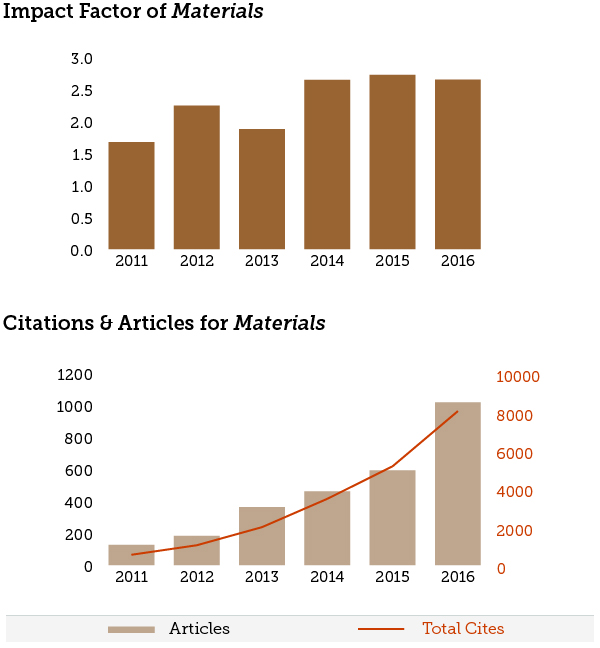
14 June 2017
Meet Us at World of Photonic Congress 2017 in Munich
We will be attending the World of Photonic Congress 2017, which takes place June 25-29, 2017, representing the following open access journals:
Applied Sciences
Materials
Technologies
Photonics
Micromachines
Please come along to our stand, to have a chat about our journals with our delegates about our journals andor to learn more about our travel awards that offered to Postdocs and PhD students by the representeding journals offering to Postdocs and PhD students.
Conference address:
World of Photonic Congress 2017
International Congress Center, Munich, Germany
Conference date:
June 25–-29 2017
For more information on the conference, please visit:
http://www.cleoeurope.org/world-of-photonics-congress
6 June 2017
CiteScore™ Metrics Released for Scopus Journals
The CiteScore, the new citation metric for journals covered in the Scopus® database, was released on 1 June 2017, reflecting the citation activity in 2016 for articles published during the three previous years. Please note that the list below does not contain all MDPI journals covered in Scopus. For the CiteScore to serve as a reliable metric at least three volumes of articles need to be indexed in Scopus; journals which have not met this criterion have been omitted here.
Ten MDPI journals received a CiteScore which is in the Top 10% of scores in at least one of the categories, while a further 21 journals exhibit scores that are in the first quartile of the respective categories.
CiteScore Data for MDPI Journals
| Journal | Rank | Category | Link | CiteScore 2016 | 2015 |
2014 |
| Algorithms | 44/112 (Q2) 49/111 (Q2) 19/42 (Q2) 52/113 (Q2) |
• Numerical Analysis • Computational Mathematics • Computational Theory and Mathematics • Theoretical Computer Science |
Link | 1.15 | 1.07 | 1.06 |
| Animals | 69/343 (Q1) 21/146 (Q1) |
• Animal Science and Zoology • General Veterinary |
Link | 1.46 | 1.66 | 0.74 |
| Biology | 13/92 (Q1) 34/81 (Q1) 10/75 (Q1) |
• General Agricultural and Biological Sciences • General Biochemistry, Gene- tics and Molecular Biology • General Immunology and Microbiology |
Link | 3.02 | 2.78 | 1.74 |
| Biomolecules | 234/382 (Q3) 260/353 (Q3) |
• Biochemistry • Molecular Biology |
Link | 1.67 | 3.08 | 1.00 |
| Biosensors | 36/118 (Q2) 209/2156 (Q1) |
• Clinical Biochemistry • General Medicine |
Link | 2.83 | 2.37 | 2.04 |
| Cancers | 29/196 (Q1) 27/321 (Q1) |
• Cancer Research • Oncology |
Link | 5.02 | 4.07 | 2.31 |
| Catalysts | 18/44 (Q2) 27/144 (Q1) |
• Catalysis • Physical and Theoretical Chemistry |
Link | 3.44 | 3.45 | 2.17 |
| Crystals | 70/270 (Q2) 25/64 (Q2) 118/398 (Q2) 131/424 (Q2) |
• General Chemical Engineering • Inorganic Chemistry • Condensed Matter Physics • General Materials Science |
Link | 1.89 | 1.47 | 1.03 |
| Diversity | 10/41 (Q1) 9/25 (Q2) 76/291 (Q2) 24/109 (Q1) |
• Agricultural and Biological Sciences (miscellaneous) • Ecological Modelling • Ecology • Nature and Landscape Conservation |
Link | 2.03 | 1.96 | 1.82 |
| Energies | - | - | Link | 2.50 | 2.87 | 2.66 |
| Entropy | 51/198 (Q2) | • General Physics and Astronomy | Link | 1.87 | 1.99 | 1.69 |
| Forests | 17/127 (Q1) | • Forestry | Link | 2.06 | 1.76 | 1.84 |
| Games | 204/398 (Q3) 83/181 (Q2) 48/105 (Q2) |
• Applied Mathematics • Statistics and Probability • Statistics, Probability and Uncertainty |
Link | 0.87 | 0.57 | 0.64 |
| Genes | 62/300 (Q1) 18/90 (Q1) |
• Genetics • Genetics (clinical) |
Link | 3.62 | 3.18 | 1.33 |
| Geosciences | 36/169 (Q1) |
• General Earth and Planetary Sciences | Link | 1.67 | 1.29 | 1.13 |
| Information | 156/237 (Q3) | • Information Systems | Link | 0.78 | 0.94 | 0.74 |
| Insects | 28/131 (Q1) | • Insect Science | Link | 1.81 | 1.38 | 1.23 |
| International Journal of Environmental Research and Public Health (IJERPH) | 67/446 (Q1) 31/102 (Q2) |
• Public Health, Environmental and Occupational Health • Health, Toxicology and Mutagenesis |
Link | 2.38 | 2.42 | 2.47 |
| International Journal of Molecular Sciences (IJMS) | 23/157 (Q1) 8/64 (Q1) 90/353 (Q1) 22/144 (Q1) 16/44 (Q1) 8/62 (Q1) |
• Organic Chemistry • Inorganic Chemistry • Molecular Biology • Physical and Theoretical Chemistry • Catalysis • Spectroscopy |
Link | 3.73 | 3.37 | 3.06 |
| ISPRS International Journal of Geo-Information | 12/29 (Q2) 28/79 (Q2) 96/587 (Q1) |
• Computers in Earth Sciences • Earth and Planetary Sciences (miscellaneous) • Geography, Planning and Development |
Link | 1.62 | 1.52 | - |
| Journal of Low Power Electronic Applications (JLPEA) | 301/645 (Q2) | • Electrical and Electronic Engineering | Link | 0.98 | 0.83 | 0.83 |
| Life | 65/525 (Q1) 36/186 (Q1) 5/92 (Q1) 20/80 (Q2) |
• Ecology, Evolution, Behavior and Systematics • General Biochemistry, Gene- tics and Molecular Biology • Palaeontology • Space and Planetary Science |
Link | 2.95 | 1.68 | 1.20 |
| Marine Drugs | 18/145 (Q1) | • Drug Discovery | Link | 3.83 | 3.66 | 3.59 |
| Materials | 63/424 (Q1) | • General Materials Science | Link | 3.26 | 3.11 | 2.69 |
| Membranes | 103/424 (Q1) | • Materials Science | Link | 2.19 | 2.95 | 2.42 |
| Micromachines | 173/645 (Q2) 69/211 (Q2) 113/526 (Q1) |
• Electrical and Electronic Engineering • Control and Systems Engineering • Mechanical Engineering |
Link | 1.83 | 1.78 | 2.10 |
| Minerals | 45/206 (Q1) 29/167 (Q1) |
• Geology • Geotechnical Engineering and Engineering Geology |
Link | 2.13 | 1.77 | - |
| Molecules | 32/157 (Q1) | • Organic Chemistry | Link | 3.09 | 2.65 | 2.62 |
| Nutrients | 12/247 (Q1) | • Food Science | Link | 4.29 | 4.07 | 3.78 |
| Pharmaceuticals | 8/168 (Q1) 21/158 (Q1) |
• Pharmaceutical Science • Molecular Medicine |
Link | 4.90 | 3.64 | 1.92 |
| Pharmaceutics | 19/168 (Q1) | • Pharmaceutical Science | Link | 3.83 | 2.68 | 2.46 |
| Polymers | 13/138 (Q1) 44/354 (Q1) |
• Polymers and Plastics • General Chemistry |
Link | 3.74 | 3.37 | 4.10 |
| Remote Sensing | 13/169 (Q1) | • General Earth and Planetary Sciences | Link | 3.56 | 3.76 | 3.23 |
| Sensors | 25/96 (Q2) 25/159 (Q1) 124/382 (Q2) 103/645 (Q1) |
• Analytical Chemistry • Atomic and Molecular Physics, and Optics • Biochemistry • Electrical and Electronic Engineering |
Link | 2.78 | 2.21 | 2.40 |
| Sustainability | 49/129 (Q2) 68/587 (Q1) 56/236 (Q1) |
• Renewable Energy, Sustai-nability and the Environment • Geography, Planning and Development • Management, Monitoring, Policy and Law |
Link | 1.96 | 1.78 | 1.52 |
| Symmetry | 17/42 (Q2) 49/111 (Q2) |
• Numerical Analysis • Computational Mathematics |
Link | 1.12 | 0.95 | 1.02 |
| Toxins | 16/102 (Q1) 16/108 (Q1) |
• Health, Toxicology and Mutagenesis • Toxicology |
Link | 3.34 | 3.76 | 2.85 |
| Vaccines | 146/184 (Q4) 151/250 (Q3) 93/145 (Q3) 186/299 (Q3) 130/232 (Q3) |
• Immunology • Infectious Diseases • Drug Discovery • Pharmacology • Pharmacology (medical) |
Link | 1.23 | 3.76 | 2.85 |
| Viruses | 15/68 (Q1) 34/250 (Q1) |
• Virology • Infectious Diseases |
Link | 3.60 | 3.74 | 3.80 |
| Water | 33/184 (Q1) 48/195 (Q1) 62/587 (Q1) 198/382 (Q3) |
• Water Science and Technology • Aquatic Science • Geography, Planning and Development • Biochemistry |
Link | 2.05 | 1.96 | 1.45 |
17 May 2017
Three New Institutional Memberships Established
We are pleased to announce that the Goethe University of Frankfurt, the Technical University of Hamburg (TU Hamburg-Harburg), as well as the Humboldt University of Berlin, in Germany, have joined MDPI's institutional membership program: Primary authors from these instititions will benefit from a 10% discount on the article processing charges.
Additional details can be found on our institutional membership page.
4 May 2017
MDPI Supports the Initiative for Open Citations (I4OC)
As an open access publisher, we are keen to support openness and transparency in the research process. Citation data is very important for assessing the value of individual papers and the contribution of researchers. As such, we support the recently launched Initiative for Open Citations (I4OC). The initiative recognizes that citations should be freely available and machine-readable. By doing so, authors gain the maximum benefit from having their work cited.
MDPI now uploads citation data with metadata uploaded to Crossref when registering digital object identifiers (DOIs) for published papers. We are delighted to take this step to support a truly open research environment.
2 May 2017
Publons Peer Review Academy Goes Live
Getting high quality review reports is critical for any journal’s editorial process. At MDPI we have put in place several measures to motivate reviewers and reward them for their work. We are proud of the quality of reviewer reports we receive and grateful for the hours put in by active researchers from across the globe.
Reviewers of MDPI’s largest journals can get recognition via Publons, a website dedicated to rewarding peer reviewers. They have now taken this one step further and launched the Publons Reviewer Academy to help train reviewers to provide useful feedback. Through the academy, researchers can be trained and tutored in various aspects of how to provide structured feedback that will be of genuine help to editors and authors. We support this initiative and recommend it to potential MDPI reviewers, especially early career researchers. See the Publons announcement for further information.
More information on reviewing for MDPI, including how to volunteer as a reviewer, can be found here.
24 April 2017
Two New Institutional Memberships Established
We are pleased to announce that the following universities have joined MDPI's institutional membership program: Trinity University, San Antonio, Texas, USA and the University of New South Wales (UNSW), Sydney, Australia. Primary authors from these instititions will benefit from a 10% discount on the article processing charges.
Additional details can be found on our institutional membership page.
30 March 2017
Credit for Preprints Comments via Publons
Preprints.org is a platform run by MDPI that allows authors to make early versions of manuscripts available before peer review has been completed.
One of the major benefits of putting a preprint online is to get feedback before journal submission. Until now, however, the feedback has been on a voluntary basis. Preprints is delighted to be the first preprint server to collaborate with Publons to acknowledge substantial comments as reviews and give commentators the opportunity to receive credit for their efforts.
When you add a comment to any article, there is a check box to click for it to appear on Publons. If you have already linked your account it will be passed on automatically. If you don't already have a Publons account, you will be contacted soon afterwards with instructions on how to create one.
We appreciate the enthusiasm and cooperation of Publons in this project and expect it to be of great benefit to authors and commenters alike.
20 March 2017
MDPI 2016 Annual Report Released
We are pleased to announce that our annual report for the year 2016 has now been published.
It contains information regarding company and journal performance, conferences and other publishing services that we provided throughout 2016.
To read the report in full or download a copy, please click here.
16 March 2017
Meet MDPI at the 253rd American Chemical Society National Meeting & Exposition
MDPI will be attending the 253rd American Chemical Society National Meeting & Exposition, which takes place 2–6 April 2017, representing the following open access journals:
Molecules
Materials
Energies
Nanomaterials
Catalysts
Applied Sciences
Batteries
Coatings
Metals
Magnetochemistry
Marine Drugs
Processes
Pharmaceuticals
Symmetry
If you are planning to attend, please visit our booth (Number 1618) to talk to our delegates about our journals and open access publishing. Also feel free to attend our ‘Meet and Greet’ session at 12:30pm on 3 April with Dr. Derek J. McPhee, the Editor-in-Chief of our journal Molecules. Food and refreshments will be provided.
Conference address:
MDPI - Booth 1618
253rd American Chemical Society National Meeting & Exposition
The Moscone Center, 747 Howard Street
San Francisco, CA 94103
USA
15 March 2017
Our 100,000th Article Could be Yours!
After the 20th anniversary of MDPI in 2016, we will reach another milestone this year and will publish the 100,000th peer-reviewed article in one of our 170+ open access journals.
We would like you to be part of this great achievement and so are offering to publish the 100,000th accepted paper free of charge.
To be in with a chance, select a journal in one of our 10 scientific subject areas and submit your paper.
Access the live tracker on published articles here.
![]()
3 March 2017
1000 Preprints Online
We are delighted that Preprints now has 1000 papers online since its launch on 3 May 2016.
For more information, see the editorial here.
9 February 2017
Minister and State Secretaries Visit MDPI Office at STP, Belgrade, Serbia
Earlier this week the Science Technology Park in Belgrade, Serbia was visited by Swiss Secretary of State Dr. Mauro Dell’Ambrogio, as well as Serbian Minister of Public Administration and Local Self-Government Ana Brnabic, State Secretary Dr. Vladimir Popovic and Mayor of Belgrade Mr. Siniša Mali.
During the visit to the STP they had a short presentation from MDPI’s CEO Dr. Franck Vazquez and IT Manager Mr. Miloš Čučulović, and further discussed important issues such as Open Access and Open education. Dr. Dell'Ambrogio said he was impressed with the potential for development and ideas for business.
For more information please see:
http://bit.ly/2kpIu7k and http://bit.ly/2kpUQfz
7 February 2017
The 6th World Sustainability Forum: Final Press Release
Basel, 29 January 2017
The 6th World Sustainability Forum #WSF2017SA: African universities critical to achieving the Sustainable Development Goals
Jeffrey and Sonia Sachs win first World Sustainability Award.
Universities need to take the lead in solving the greatest challenges the world faces today, particularly in Africa. They need to do this not only through education – teaching the next generation to think critically and creatively to find sustainable solutions – but also through research that cuts across a range of disciplines. To ensure these solutions are implemented, they need to partner with the private sector and with government.
This was the key message from the 6th World Sustainability Forum (WSF2017), which took place in Cape Town on 27 and 28 January 2017. Sponsored by MDPI and the journal Sustainability under the patronage of the Universities of the Western Cape (UWC), Cape Town (UCT), University of Basel and the National Research Foundation (NRF) of South Africa, the conference was attended by key national and international speakers, including world-leading economist Professor Jeffrey D. Sachs, senior United Nations (UN) advisor and director of the Earth Institute at Columbia University.
The WSF is an annual sustainability conference which addresses research in a range of areas related to sustainable development and sustainability globally. This was the first WSF to take place on the African continent. Discussions at the 2017 conference were driven by the 17 sustainable development goals (SDGs) adopted as part of the 2030 Agenda for Sustainable Development by the UN in September 2015.
Achieving the SDGs “is the moonshot for our generation,” said Sachs. “Like the moonshot [moon landing] of the 1960s, these are tough, bold and achievable objectives.”
“This is a nasty, tough world we live in, and our world agrees on very little. So when 193 governments agree on something, that is important. And when they agree on something as important as sustainable development, that is really something for us to grab hold of – that is a lifeline.”
There was agreement at the WSF that the SDGs are particularly important for Africa, and that African universities in particular have a role to play in achieving them.
Said Professor Tyrone Pretorius, vice-chancellor of UWC: “The quest for sustainable development can only be met through education. Universities today are the oil that fuels the knowledge economy.”
As part of the drive to develop academic capacity to provide the knowledge needed to meet the SDGs, WSF2017 was preceded by the 1st Postgraduate Forum on Sustainability. “A series of workshops for postgraduate education linked to WSF are important, in order to equip postgraduates with the skills necessary to promote sustainability,” said Professor Thandi Mgwebi, director for research at UWC. A second postgraduate forum will take place alongside the WSF2018 in Beijing.
This capacity development is particularly critical to Africa. Said Sachs: “African universities need to do research to find solutions to Africa’s development challenges, because no other university will.”
The UN set a target of achieving the SDGs by 2030: “I regard this as the breakthrough period to end extreme poverty on the continent,” said Sachs, “and for Africa to become one of the most dynamic centres of the world economy.”
It is a critical time for South African universities, said Professor Mamokgethi Phakeng, deputy vice-chancellor for research and internationalisation at UCT: “Higher education is at a crossroads, and there is much polarisation. We need to think carefully about how this sustainable development agenda is owned by all so that it is inclusionary.”
There was also strong emphasis on public–private partnerships – for universities, business and government to work together to achieve the goals.
Said Professor Francis Petersen, deputy vice-chancellor at UCT and vice-chancellor designate at the University of the Free State: “Business sustainability has become critical, because there is increasing demand and complexity of demand on business from the natural, social and economic environment. Sustainability cannot be a standalone issue, divorced from business as usual. Sustainability needs to be embedded into business.”
Environmental crises and climate change was also high on the WSF agenda. In his keynote address, Sachs noted the irreversibility of the climate- and environmental-related challenges.
“If we don’t get our act together, we lose the chance of safety,” he said.
Said Professor Mark New, pro vice-chancellor and director of the African Climate and Development Initiative at UCT: “We have a fundamental challenge in responding to climate change, and we must go further than just putting a plaster on a wound. We need to address the deep structural issues, to move from our current model of development into climate-compatible development.”
“This requires researchers to find the evidence for the correct development pathways to take, and then support the ability of policymakers at all levels to enable the shift to climate-compatible development planning.”
Said Dr. Aldo Stroebel, executive director of international relations and cooperation at the NRF, in closing: “We have seen over the past two days an urgency towards the next step of thinking, that critical type of framework that we all must engage with, not only from an academic perspective, but further up into the policy environment and into rural-based environments where one can clearly see the links and effectiveness of the work.”
World Sustainability Awards
The first World Sustainability Award and the first Emerging Sustainability Leader Awards were presented by Prof. Thandi Mgwebi, Director of Research at UWC, and Dr. Franck Vazquez, CEO of MDPI, during the ceremony on 27 January 2017 as part of the gala dinner of the 6th World Sustainability Forum in South Africa.after day one of proceedings of the 2017 World Sustainability Forum South Africa.
Professor Jeffrey D. Sachs and Dr. Sonia Ehrlich Sachs are the joint recipients of the first World Sustainability Award. Jeffrey Sachs is a world-renowned economist and senior United Nations (UN) advisor and director of the Earth Institute at Columbia University. Sonia Sachs is a paediatrician and public health specialist, and director of the Health Centre at the Centre for Sustainable Development, also at Columbia University.
The joint recipients of the first Emerging Sustainability Leader Award are Dr. Esther Ngumbi and Dr. Xiaosong Hu. Esther Ngumbi is a postdoctoral researcher at Auburn University in Alabama USA and serves as a 2015 Clinton Global University Mentor for agriculture. Xiaosong Hu is a professor at the Chongqing University in China and specialises in automotive control systems and mechanical engineering.
The World Sustainability Award and the Emerging Sustainability Leader Awards are funded to encourage new initiatives and developments in sustainability with the ultimate aim of fostering the transition to sustainable practices and societies.
The World Sustainability Award is funded by the MDPI Sustainability Foundation, and included a monetary prize of USD 100,000 to Jeffrey and Sonia Sachs. The Emerging Sustainability Leader Award is funded by the journal Sustainability, awarded to researchers under 40, and included a monetary prize of USD10,000.
Issued jointly by: UCT Global Strategy and Visibility, Research Office, UWC Communications & Media and MDPI AG
Conference photos are free available at: https://sciforum.net/conference/wsf-6/page/175 Photo credit: Matthias Burkhalter
|
Carla Bernardo |
Luthando Tyhalibongo |
Matthias Burkhalter |
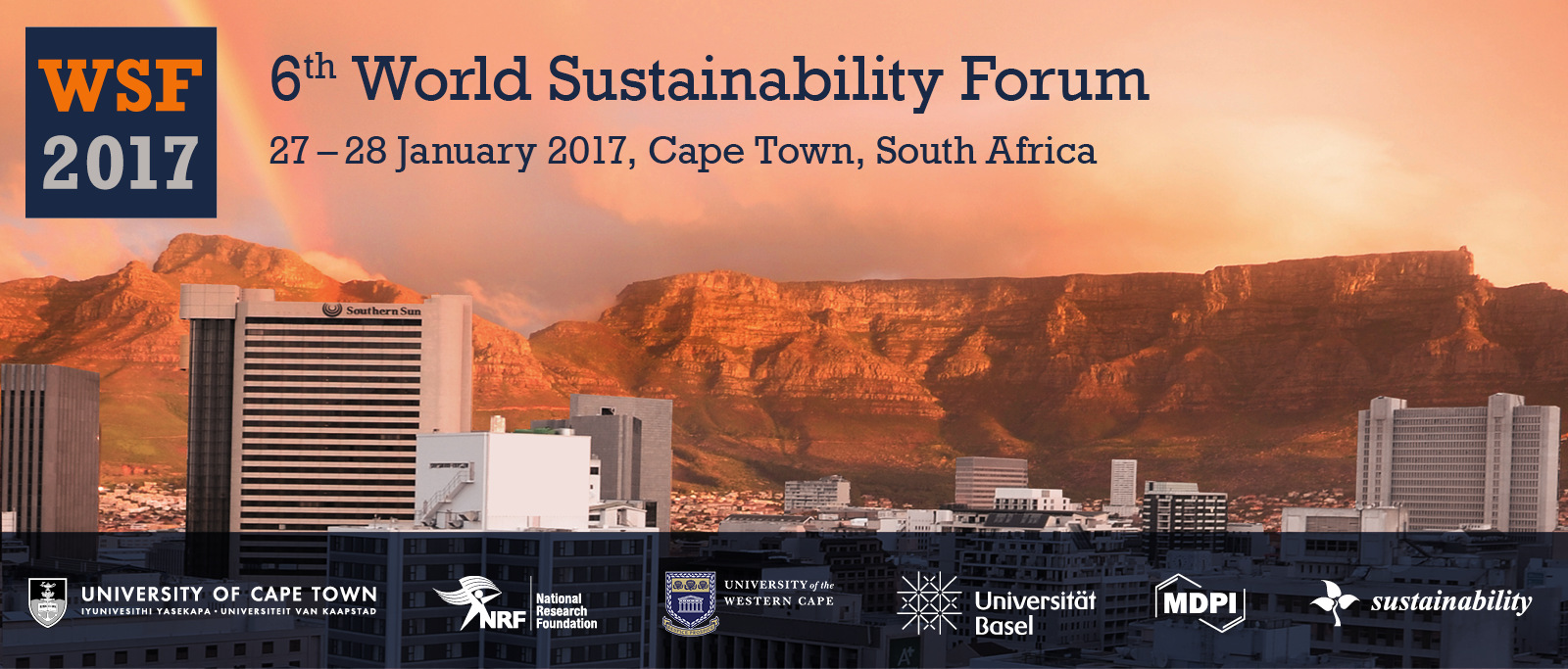
31 January 2017
Three New Institutional Memberships Established
We are pleased to announce that the Chalmers University of Technology, Sweden, the University of Manitoba, Canada and the Technical University of Cartagena, Spain, have joined MDPI's institutional membership program: Primary authors from these institutions will benefit from a 10% discount on the article processing charges.
Additional details can be found on our institutional membership page.
27 January 2017
6th World Sustainability Forum under way in South Africa
The 6th World Sustainability Forum is currently being held at the Cape Sun Hotel until 28 January 2017.
The Forum will showcase the work of internationally renowned researchers and include more than 150 presentations. During the conference dinner, the World Sustainability Award, associated with a US$ 100,000 prize, will be announced, as well as the Emerging Sustainability Leader Award, associated with a US$ 10,000 prize. The prizes are sponsored by the MDPI Sustainability Foundation and Sustainability, an academic open access journal by MDPI.
Here are some pictures from the forum so far:
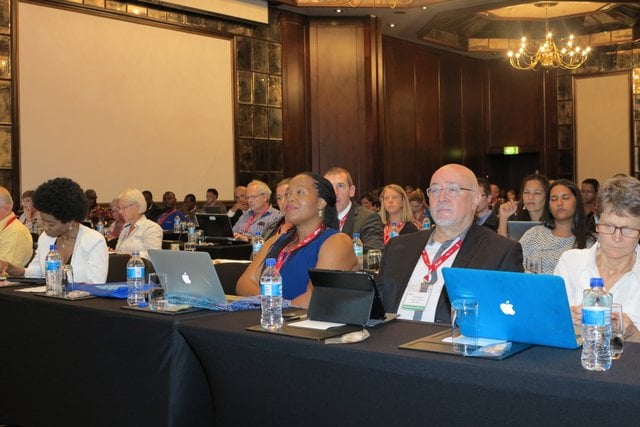
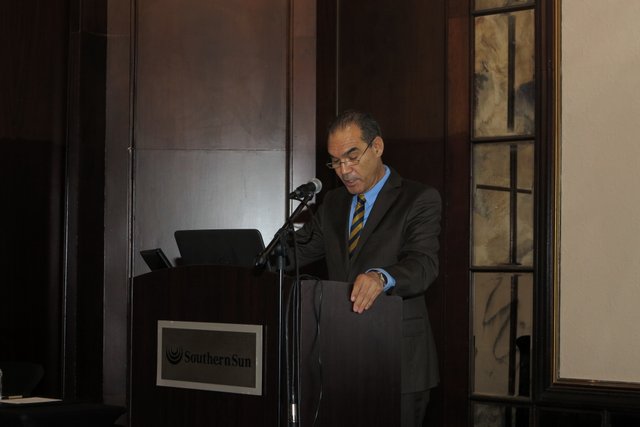
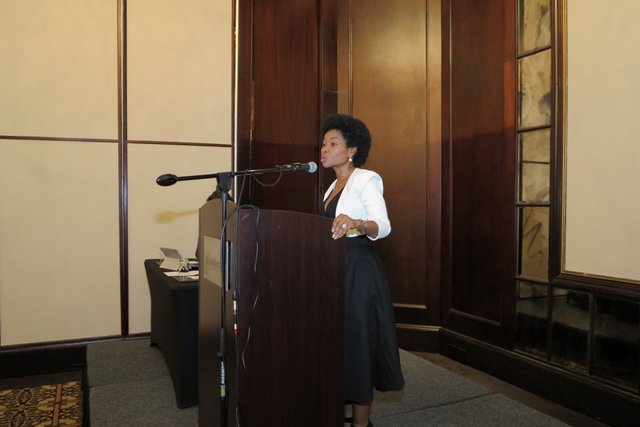
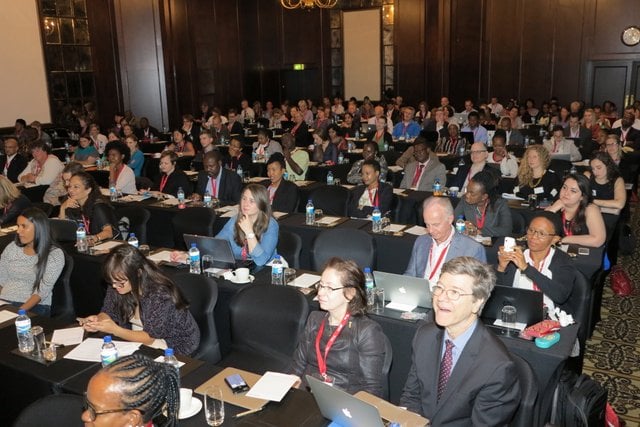
To see the full WSF2017 program and schedule, please see here: https://sciforum.net/conference/wsf-6/page/schedule
19 January 2017
Cape Town to Host the 6th World Sustainability Forum
Cape Town will host the 6th World Sustainability Forum at the Cape Sun Hotel on 27 and 28 January 2017. This prominent event, held for the first time in Africa, will include many illustrious South African and international experts, such as Her Excellency Graça Machel (Sustainable Development Advocate for the United Nations, Mozambique), Joyene Isaacs (HoD Agriculture Western Cape Government), Jeffrey Sachs (Columbia University, USA), Max Bergman (SRaM, University of Basel), Mark New (Pro Vice-Chancellor, University of Cape Town), Frans Swanepoel (FutureAfrica, University of Pretoria) and Francis Petersen (Vice-Chancellor-designate, University of the Free State). The Forum will provide a stage for national and international debates on sustainability in South Africa, the African continent, and about international perspectives on sustainability. It brings together researchers and representatives from government and the business sector to discuss a wide-ranging set of issues associated with sustainability, including food security, water and energy scarcity, mining, poverty reduction, climate change, and urbanisation.
The next few decades will be marked by profound changes in the relationships between global economics, national societies, and the environment. We have entered what some call the Anthropocene, an age in which human activity dominates the climate and the environment. These changes will have numerous consequences on societies around the globe. South Africa and Africa will play a central role, for better or worse, in creating opportunities and risks during these changing times as Africa is profoundly influencing and being influenced by global developments.
The adoption of the 17 United Nations Sustainable Development Goals and the 2030 Agenda for Sustainable Development in September 2015 was accompanied by what insiders considered an optimism they have not experienced in relation to UN resolutions before. The relative efficiency in the drafting, the lack of trenches between East and West, or between North and South, and the unanimity of support of the 193 countries speak volumes. In stark contrast, sustainability seems to go against a changing economic and political tide, where waves of nationalism and protectionism from some of the most powerful countries risk the wellbeing of the rest of the world. The 6th World Sustainability Forum will enable fruitful exchanges, which sensitise South African and international communities to the global urgency and specifics of sustainability.
The Forum will showcase the work of internationally renowned researchers and include more than 150 presentations. During the conference dinner, the World Sustainability Award, associated with a US$ 100 000 prize, will be announced, as well as the Emerging Sustainability Leader Award, associated with a US$ 10 000 prize. The prizes are sponsored by the MDPI Sustainability Foundation and Sustainability, an academic open access journal by MDPI. The World Sustainability Forum is preceded by the Postgraduate Forum on Sustainability, which will introduce more than 100 young scholars from South Africa and the African continent to sustainability research. Both events are organized and sponsored by the University of Cape Town, the University of the Western Cape, the University of Basel, MDPI, and by the National Research Foundation of South Africa.
Contacts:
Scientific Matters: Prof Manfred Max Bergman, Social Research and Methodology Group (SRaM), University of Basel, Switzerland; Email: [email protected]
Press Accreditation and General Enquiries: Mr Matthias Burkhalter, MDPI AG, Basel, Switzerland; Email: [email protected]; Tel. +41 61 683 77 34
Follow us on Twitter
#WSF2017SA
6 January 2017
MDPI Supports the OA2020 Initiative
MDPI is now a proud supporter of the OA2020 Initiative.
Open Access 2020 is an international initiative that aims to induce the swift, smooth and scholarly-oriented transformation of today’s scholarly journals from subscription to open access publishing.
MDPI is participating in the upcoming Berlin13 conference in March 2017, where we are contributing to the initiative by aiding in the design of the roadmap which will make OA the default publishing model.
For more information please see here.
6 January 2017
MDPI is Attending SPIE Photonics West 2017
We are pleased to announce that MDPI will be attending the 2017 SPIE Photonics West Conference (28 January-2 February, 2017) and representing the following open access journals:
Sensors
Photonics
Micromachines
Materials
Applied Sciences
Journal of Imaging
Inventions
Computation
Technologies
Remote Sensing
Biosensors
Electronics
If you are also attending this conference, please feel free to stop by our booth (Booth #4220) and meet the representative editors.
Conference details:
SPIE Photonics West 2017
28 January-2 February, 2017
Moscone Center
747 Howard St
San Francisco, CA 94103, USA
5 January 2017
Three New Institutional Memberships Established
We are pleased to announce that the University of Texas at Arlington, USA, the Harbin Institute of Technology, China and TU Darmstadt, Germany, have joined MDPI's institutional membership program: Primary authors from these institutions will benefit from a 10% discount on the article processing charges.
Additional details can be found on our institutional membership page.
22 December 2016
Two New Institutional Memberships Established
We are pleased to announce that the Otto-von-Guericke-Universität Magdeburg, Germany and the University of California, Berkeley, USA, have joined MDPI's institutional membership program: Primary authors from these instititions will benefit from a 10% discount on the article processing charges.
Additional details can be found on our institutional membership page.
19 December 2016
MDPI and Wellcome Trust Compliance
The Wellcome Trust has, for a number of years, required that the results of its funded projects are published in open access format. Recently it announced criteria that publishers must fulfil for publication fees to be paid by the Trust. MDPI is pleased to have been added to the list of compliant publishers.
Only publishers who have confirmed their compliance by 16 December 2016 will be eligible to receive payment of APCs by the Wellcome Trust as of 1 April 2017. For more information on the criteria and a full list of publishers that meet them, see here.
13 December 2016
Meet MDPI at the 2016 AGU Fall Meeting
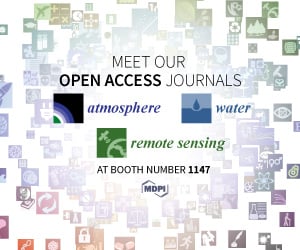 MDPI is currently attending the 2016 AGU Fall Meeting (12–16 December, 2016)
MDPI is currently attending the 2016 AGU Fall Meeting (12–16 December, 2016)
If you are also attending the conference, please feel free to stop by our booth (Booth #1147) and meet the representative editors.
Conference details:
2016 AGU Fall Meeting
12–16 December 2016
Moscone Center
747 Howard St
San Francisco, CA 94103, USA
8 December 2016
Three New Institutional Memberships Established
We are pleased to announce that Purdue University, USA, the Universitat Politécnica de Valencia, Spain and the Queensland University of Technology, Australia, have joined MDPI's institutional membership program: Primary authors from these instititions will benefit from a 10% discount on the article processing charges.
Additional details can be found on our institutional membership page.
16 November 2016
World Sustainability Award - Final Extension
The deadline for the World Sustainability Award has been extended for one last time! You now have one more month to nominate an individual researcher, group or project! The final deadline for nominations will be December 15, 2016.
For full details, please visit here.
11 November 2016
Three New Institutional Memberships Established
We are pleased to announce that the University of Minnesota, USA, the Universidad Politécnica de Madrid, Spain and Shanghai Jiao Tong University, China, have joined MDPI's institutional membership program: Primary authors from these instititions will benefit from a 10% discount on the article processing charges.
Additional details can be found on our institutional membership page.
4 November 2016
MDPI Joins the United Nations Global Compact
MDPI has become a member of the United Nations Global Compact to support corporate sustainability and have committed ourselves to the ten principles associated with the Compact.
Sustainability has always been at the core of MDPI’s values, starting with the collection and preservation of rare chemical samples that started in 1996 and led to the first journal, Molecules. Sustainability has become one of our flagship journals and we have supported and organized several conferences and events based on Sustainability, including the upcoming 6th World Sustainability Forum. As a global enterprise, we see it as our duty to promote responsible practices that will ensure a bright future for our planet. Given this, the choice to join the Global Compact was an easy one and we will do our utmost to fully implement it.
3 November 2016
MDPI Now a Member of SPARC Europe
We are delighted to announce that MDPI has become a member of SPARC Europe, an organization that works for open scholarship in Europe, including support of open access publication.
As one of the few publishers to join SPARC Europe to date, MDPI looks forward to making a contribution that puts open scholarship on a positive and sustainable path. We fully support the goals of open scholarship that allow the largest number of people possible to benefit from work of researchers in all disciplines. We hope that our membership will enable us to work with other stakeholders to find the best possible solution.
2 November 2016
World Sustainability Award Deadline Extension
The deadline for the World Sustainability Award has been extended! You now have until November 15, 2016 to nominate an individual researcher, group or project!
For full details, please visit here.
26 October 2016
Four New Institutional Memberships Established
We are pleased to announce that the Wuppertal Institut, Germany, the University of Girona, Spain and Central South University and Huazhong University of Science and Technology, China, have joined MDPI's institutional membership program: Primary authors from these instititions will benefit from a 10% discount on the article processing charges.
Additional details can be found on our institutional membership page.
24 October 2016
International Open Access Week 2016
Meet us during International Open Access Week 2016! We will be presenting at various locations in Europe and China.
To get involved and for full details see the complete list of events organised by MDPI here.
18 October 2016
Institutional Membership established with Universitat Pompeu Fabra, Spain and Aalto University, Finland
We are pleased to announce that the Universitat Pompeu Fabra, Spain and Aalto University, Finland, have joined MDPI's institutional membership program: Primary authors from these universities will benefit from a 10% discount on the article processing charges.
Additional details can be found on our institutional membership page.
12 October 2016
Institutional Membership Established with Iowa State University and the University of North Texas, USA
We are pleased to announce that the Iowa State University and the University of North Texas, USA, have joined MDPI's institutional membership program: Primary authors from these universities will benefit from a 10% discount on the article processing charges.
Additional details can be found on our institutional membership page.
7 October 2016
MDPI at Open Access Days in Munich, 10-11 October 2016
Meet MDPI during the Open Access Days held from 10-11 October 2016 at Ludwig Maximilian University of Munich, Germany.
The two-day event will feature experts from the open access sector, scientists from all disciplines, publishing representatives and supporters of scientific research and communication from libraries as well as research institutes and funding institutions. Join us!
For more information about the event and to see the program, visit the event webpage.
7 October 2016
Institutional Membership Established with the University of Sevilla and the University of Alicante, Spain
We are pleased to announce that the University of Sevilla and the University of Alicante, Spain have joined MDPI's institutional membership program: Primary authors from these universities will benefit from a 10% discount on the article processing charges.
Additional details can be found on our institutional membership page.
29 September 2016
Institutional Membership Established with the University of Delaware
We are pleased to announce that the University of Delaware, USA, has joined MDPI's institutional membership program: Primary authors from this university will benefit from a 10% discount on the article processing charges.
Additional details can be found on our institutional membership page.
19 September 2016
Peer Review Week 2016
As an open access publisher indebted to the work of our peer reviewers, we are proud to support Peer Review Week 2016. As part of the week's activities and to celebrate this year's theme "Recognition for Review", MDPI will host two webinars that anyone can join.
These webinars will explore the role and value of reviewers and the recognition they receive from a publishers perspective, with examples from MDPI's experience in publishing nearly 80,000 peer reviewed papers, along with evidence from reviewer surveys. It will also touch upon potential changes in how review is carried out and tips for early career researchers who want to be involved in the review process.
Details and links to join can be found below:
Wednesday September 21, 08:00 (CEST)
Friday September 23, 16:00 (CEST)
For more information about all the activites taking place, please visit the Peer Review Week website.
6 September 2016
Institutional Membership established with Kansas State University and Northwestern University, USA
We are pleased to announce that Kansas State University and Northwestern Universty, USE, have joined MDPI's institutional membership program: Primary authors from these universities will benefit from a 10% discount on the article processing charges.
Additional details can be found on our institutional membership page.
5 September 2016
Institutional Membership Established with University College Cork
We are pleased to announce that University College Cork, Ireland, has joined MDPI's institutional membership program: Primary authors from this university will benefit from a 10% discount on the article processing charges.
Additional details can be found on our institutional membership page.
22 August 2016
MDPI New Office Location
We are pleased to announce that MDPI has now moved to a new permanent address:
MDPI AG
St. Alban Anlage 66
CH-4052 Basel
Postfach, CH-4020 Basel
Switzerland
Telephone and fax numbers remain unchanged.
17 August 2016
MDPI is Attending the 252nd American Chemical Society National Meeting & Exposition
We are pleased to announce that MDPI will be attending the 252nd American Chemical Society National Meeting & Exposition (21-25 August, 2016) representing the following open access journals:
Molecules
Materials
Marine Drugs
IJMS
Polymers
Applied Sciences
Membranes
Metabolites
Pharmaceuticals
Biomolecules
Symmetry
If you are also attending this conference, please feel free to stop by our booth (Booth 411) and meet our representatives.
Conference details:
ACS - American Chemical Society Fall Meeting 2016
21-25 August, 2016
Pennsylvania Convention Center
1101 Arch St
Philadelphia
PA 19107
USA
10 August 2016
Institutional Membership established with the University of Texas at Austin, USA, the Wroclaw University of Science and Technology, Poland and the University of Granada and the Compultense University of Madrid, Spain
We are pleased to announce that the following institutions have joined MDPI's institutional membership program in August 2016:
- University of Texas at Austin, USA
- Wroclaw University of Science and Technology, Poland
- University of Granada, Spain
- Compultense University of Madrid, Spain
Authors affiliated with these institutions will benefit from a 10% discount on the article processing charges.
Additional details can be found on our institutional membership page.
18 July 2016
Institutional Membership established with Louisiana State University and Florida State University, USA, Royal College of Surgeons, Ireland, University of Rostock, Germany, AGH University of Science and Technology, Poland and Southeast University, China
We are pleased to announce that the following institutions have joined MDPI's institutional membership program in July 2016:
- Louisiana State University, USA
- Florida State University, USA
- Royal College of Surgeons, Ireland
- University of Rostock, Germany
- AGH University of Science and Technology, Poland
- Southeast University, China
Authors affiliated with these institutions will benefit from a 10% discount on the article processing charges.
Additional details can be found on our institutional membership page.
12 July 2016
MDPI Moving to New Office Location in Basel (Switzerland) in August 2016
As of 20 August 2016, MDPI's new address in Basel will be:
MDPI AG
St. Alban-Anlage 66
CH-4052 Basel
Switzerland
Telephone and fax numbers remain unchanged.
St. Alban-Anlage 66 was built from 1947 to 1948 and initially the home of the "Bühler AG", a book printing business.
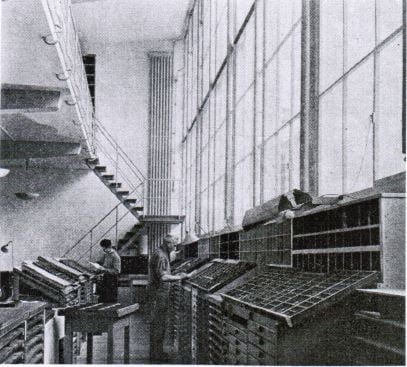
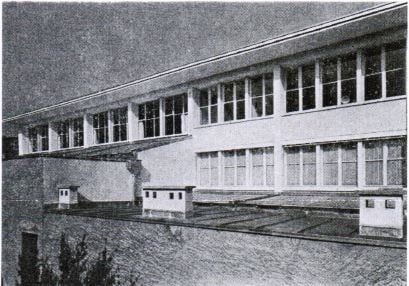
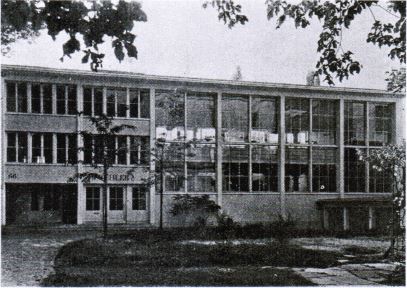
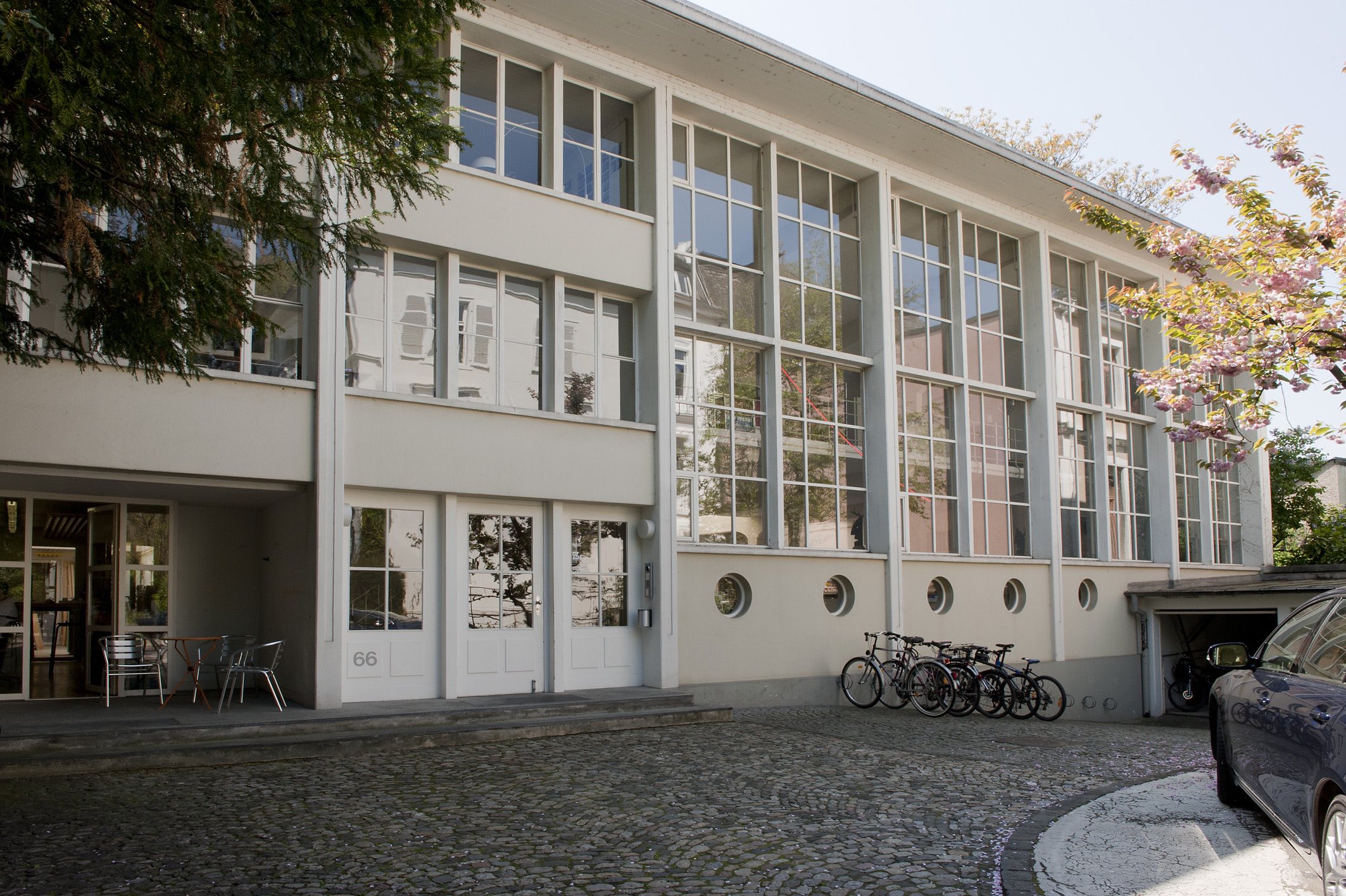
For more information about this building, see: https://www.mdpi.com/about/headquarters
21 June 2016
"Behind the Scenes of Academic Publishing—A Publisher's Perspective" - MDPI's Lecture at the University of Basel
From the 15-16 September, 2016, MDPI will run a course on Academic Publishing at the University of Basel.
In this two day workshop, MDPI will look in detail at the role performed by academic journal publishers and how they interact with academics. Ethical dimensions, what happens when problems occur and how the publisher coordinates all aspects of the submission process will also be covered.
For more detailed information about the program, trainers and registration please visit the course webpage.
14 June 2016
2015 Impact Factors Released
We are pleased to report the 2015 Journal Impact Factors in the latest Journal Citation Reports® Science Edition, published by Thomson Reuters in June 2016. Twenty out of 25 journals have seen an increase in their Impact Factor and two journals (Crystals and IJGI) received a first Impact Factor. Coatings was recently added to SCIE and will receive its first Impact Factor in next year’s JCR.
Updated Impact Factors for Journals in the Science Citation Index Expanded (SCIE)
| Journal | 2015 Impact Factor | Details | Category Rank |
| Applied Sciences | 1.726 | Link | 83/163 (Q3) in ‘Chemistry, Multidisciplinary’; 129/271 (Q2) in ‘Materials Science, Multidisciplinary’; 64/145 (Q2) in ‘Physics, Applied’ |
| Atmosphere | 1.221 | Link | 66/84 (Q4) in ‘Meteorology & Atmospheric Sciences’ |
| Catalysts | 2.964 | Link | 53/144 (Q2) in ‘Chemistry, Physical’ |
| Energies | 2.077 | Link | 43/88 (Q2) in ‘Energy & Fuels’ |
| Entropy | 1.743 | Link | 25/79 (Q2) in ‘Physics, Multidisciplinary’ |
| Forests | 1.583 | Link | 19/66 (Q2) in ‘Forestry’ |
| Genes | 3.242 | Link | 60/165 (Q2) in ‘Genetics & Heredity’ |
| International Journal of Environmental Research and Public Health (IJERPH) | 2.035 | Link | 101/225 (Q2) in ‘Environmental Sciences’ |
| International Journal of Molecular Sciences (IJMS) | 3.257 | Link | 110/289 (Q2) in ‘Biochemistry & Molecular Biology’; 51/163 (Q2) in ‘Chemistry, Multidisciplinary’ |
| Marine Drugs | 3.345 | Link | 13/59 (Q1) in ‘Chemistry, Medicinal’ |
| Materials | 2.728 | Link | 63/271 (Q1) in ‘Materials Science, Multidisciplinary’ |
| Metals | 1.574 | Link | 18/73 (Q1) in ‘Metallurgy & Metallurgical Engineering’; 145/271 (Q3) in ‘Materials Science, Multidisciplinary’ |
| Micromachines | 1.295 | Link | 30/56 (Q3) in ‘Instruments & Instrumentation’ 63/83 (Q4) in ‘Nanoscience & Nanotechnology’ |
| Minerals | 1.468 | Link | 9/21 (Q2) in ‘Mining & Mineral Processing; 14/29 (Q2) in ‘Mineralogy’ |
| Molecules | 2.465 | Link | 24/59 (Q2) in ‘Chemistry, Organic’ |
| Nanomaterials | 2.690 | Link | 64/271 (Q1) in ‘Materials Science, Multidisciplinary’; 36/83 (Q2) in ‘Nanoscience & Nanotechnology’ |
| Nutrients | 3.759 | Link | 16/78 (Q1) in ‘Nutrition & Dietetics’ |
| Polymers | 2.944 | Link | 20/85 (Q1) in ‘Polymer Science’ |
| Remote Sensing | 3.036 | Link | 5/28 (Q1) in ‘Remote Sensing’ |
| Sensors | 2.033 | Link | 36/75 (Q2) in ‘Chemistry, Analytical’; 16/27 (Q3) in ‘Electrochemistry’; 12/56 (Q1) in ‘Instruments & Instrumentation’ |
| Sustainability | 1.343 | Link | 146/225 (Q3) in ‘Environmental Sciences’; 22/29 (Q4) in ‘Green & Sustainable Science & Technology’ |
| Symmetry | 0.841 | Link | 31/63 (Q2) in ‘Multidisciplinary Sciences’ |
| Toxins | 3.571 | Link | 16/89 (Q1) in ‘Toxicology’ |
| Viruses | 3.042 | Link | 14/33 (Q2) in ‘Virology’ |
| Water | 1.687 | Link | 33/85 (Q2) in ‘Water Resources’ |
Journals with First Impact Factors
| Journal | 2015 Impact Factor | Details | Category Rank |
| Crystals | 2.075 | Link | 13/26 (Q2) in ‘Crystallography’ |
| ISPRS International Journal of Geo-Information | 0.651 | Link | 45/49 (Q4) in ‘Geography, Physical’; 26/28 (Q4) in ‘Remote Sensing’. |
14 June 2016
2015 Impact Factor Released for Materials – 2.728
We are pleased to inform you that the new Impact Factor of Materials has been released. According to the Journal Citation Reports®, published by Thomson Reuters in June 2016, the new Impact Factor is 2.728, and the 5-Year Impact Factor is 3.300.
Materials now ranks 63/271 (Q1) in the category ‘Materials Science, Multidisciplinary’ and thus remains one of the highest ranking Open Access journals in materials science.
Evolution of Impact Factor, Citations and Publications for Materials:
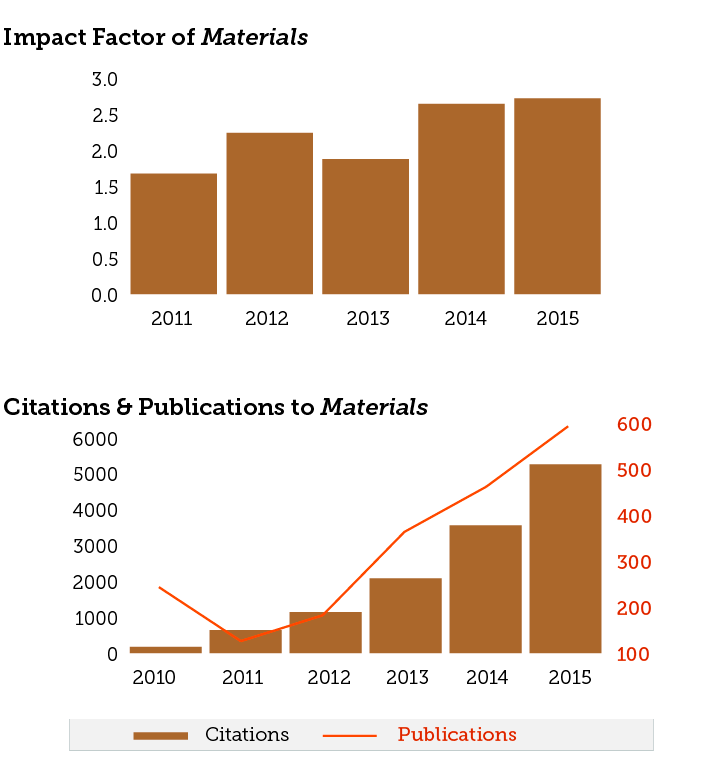
26 May 2016
Institutional Membership established with University of Bremen, Germany, Koç University, Turkey, IIASA, Austria and Jilin University and Kunming Institute of Botany, CAS, China
We are pleased to announce that the following institutions have joined MDPI's institutional membership program in May 2016:
- Unversity of Bremen, Germany
- Koç University, Turkey
- International Institute for Applied Systems Analysis (IIASA), Austria
- Jilin University, China
- Kunming Institute of Botany, Chinese Academy of Sciences, China
Authors affiliated with these institutions will benefit from a 10% discount on the article processing charges.
Additional details can be found on our institutional membership page.
23 May 2016
Institutional Membership Established with the KTH Royal Institute of Technology, Sweden and the South China University of Technology, Beijing University of Technology and Southern Medical University, China
We are pleased to announce that the following institutions have joined MDPI's institutional membership program in April and May 2016:
- KTH Royal Institute of Technology, Sweden
- South China University of Technology, China
- Beijing University of Technology, China
- Southern Medical University, China
Authors affiliated with these institutions will benefit from a 10% discount on the article processing charges.
Additional details can be found on our institutional membership page.
26 April 2016
New Section on www.mdpi.com - Latest Books
You may have noticed a new section that is now visible on our home page. This section is called "Latest Books" and showcases recent publications from MDPI Books, our book publishing service.
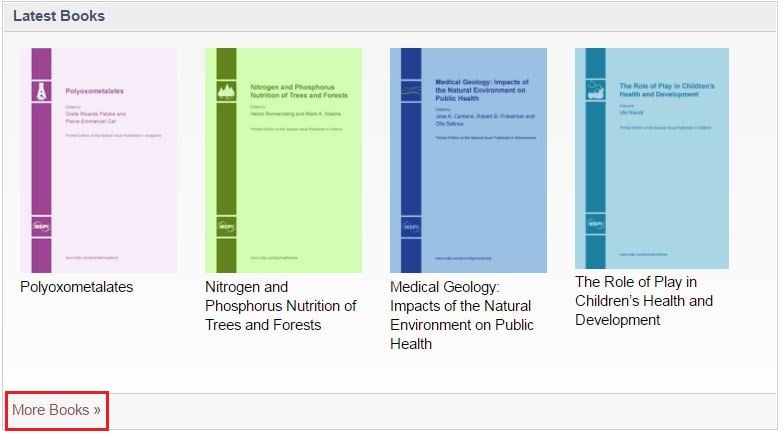
By clicking on the hyperlink "More Books" you will be taken to the MDPI Books Home Page. There you will find more information about the service, as well as the "Recent Publications" list.
Clicking on any of the book images in this list will take you to detailed information about that book (shown below). Here you can also download a PDF version of the book, or order a hardcover printed copy.
For further information about the MDPI Books service, please visit the webpage or contact [email protected].
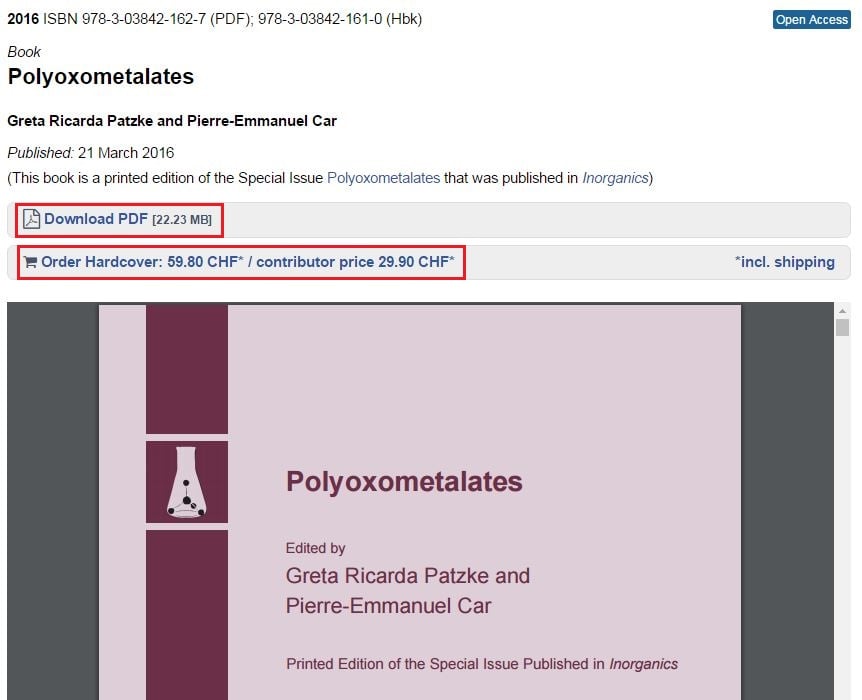
31 March 2016
Axioms, Behavioral Sciences, Photonics, Separations and Toxics added to the Emerging Sources Citation Index in Web of Science
We are pleased to announce that the journals Axioms, Behavioral Sciences, Photonics, Separations and Toxics were recently accepted for inclusion in the newly launched Emerging Sources Citation Index (ESCI) in Web of Science.
ESCI serves to highlight promising journals which are still under consideration for the Science Citation Index Expanded (SCIE) or the Social Sciences Citation Index (SSCI).
The Emerging Sources Citation Index (ESCI), Science Citation Index Expanded (SCIE), Social Sciences Citation Index
(SSCI), and Web of Science™ (WoS) are Thomson Reuters products.
30 March 2016
Institutional Membership established with the University of Winchester, UK, Silesian University of Technology, Poland and Beijing Jiaotong University and Zhejiang University, China
We are pleased to announce that the University of Winchester, UK, the Silesian University of Technology, Poland and Beijing Jiaotong University and Zhejiang University, China, have joined our Institutional Membership program. Primary authors from these universities will benefit from a 10% discount on article processing charges.
Additional details can be found on our institutional membership page.
24 March 2016
New Editorial Office in Barcelona, Spain
We are excited to announce the opening of our new editorial office in Barcelona, Spain. The launch team is led by a Senior Editor and comprises further staff holding doctoral degrees with several years of research experience. The new editorial team will help us to get closer to European research communities and progress Sciforum, the platform to support the scientific community via conference hosting and other functions. They will also help spread the word about Open Access and meet academics at scientific events.
We are in the process of hiring more doctoral and masters graduates to join the editorial team and welcome applications via [email protected]. For contact details about the office, see our contact page.

22 February 2016
Membership Established with the Max Planck Society
We are pleased to announce that the Max Planck Digital Library (MPDL) has signed an agreement with MDPI to support authors associated with the Max Planck Society (Max-Planck-Gesellschaft). As of 22 February 2016, corresponding authors will receive full funding from the MPDL for articles published in MDPI journals, with a 10% discount applied to the Article Processing Charges. Additional details can be found at our institutional membership page.
Founded in 1948, The Max Planck Society is one of Germany’s leading research organizations, and is currently made up of 83 institutes conducting basic research in natural sciences, life sciences, social sciences and humanities. 18 Nobel laureates have emerged from its ranks of scientists and the society has more than 15,000 publications in scientific journals each year.
5 February 2016
Institutional Membership Extension: Wageningen University, CSIC, University of Zürich, ETH Zürich, University of Tübingen and Osnabrück University
We are pleased to announce that Wageningen University, the Netherlands, the Spanish National Research Council (CSIC), Spain, the University of Zürich and ETH Zürich, Switzerland, and the University of Tübingen and Osnabrück University, Germany, have not only renewed their institutional memberships with MDPI after two years of successful cooperation, but have also increased the reduction of the article processing charges (APCs) for affiliated authors to 25%.
Additional details can be found on our institutional membership page.
5 February 2016
Institutional Membership established with Brock University, Canada and the University of Pisa, Italy
We are pleased to announce that Brock University, Cananda, and the University of Pisa, Italy, have joined MDPI's institutional membership program: Primary authors from these universities will benefit from a 10% discount on the article processing charges as of 01 February 2016.
Additional details can be found on our institutional membership page.
25 January 2016
MDPI Sponsors diss:kurs with the University of Basel
MDPI is pleased to announce its newly established sponsorship of diss:kurs, an event coordinated by the University of Basel to support their doctorate program. For more information about the event and how to register, please visit the diss:kurs webpage.
7 January 2016
New Institutional Memberships Established with Tsinghua University, the Chinese Society of Micro-Nano Technology, Ruhr University Bochum and the University of Ulm
We are pleased to announce that the following institutions have joined MDPI's institutional membership program as of 1 January 2016:
- Tsinghua University, China
- Chinese Society of Micro-Nano Technology (CSMNT)
- Ruhr University Bochum, Germany
- University of Ulm, Germany
Authors affiliated with these institutions will benefit from a 10% discount on the article processing charges.
Additional details can be found on our institutional membership page.
5 January 2016
Safety, Fermentation, C-Journal of Carbon Research, Magnetochemistry, Batteries and Horticulturae Released Their First Issue in December 2015
We are pleased to announce that MDPI's open access journals Safety, Journal of Imaging, Fermentation, C-Journal of Carbon Research, Magnetochemistry, Batteries and Horticulturae released their first issue at the end of December 2015.
17 December 2015
Institutional Membership Extension: University of Bern, Switzerland
We are pleased to announce that the University of Bern, Switzerland has not only renewed their institutional membership with MDPI after two years of successful cooperation, but also increased the reduction of the article processing charges (APCs) for affiliated authors to 25%.
17 December 2015
Institutional Membership with the University of Ulm and Helmholtz Zentrum Munich
We are pleased to announce that University of Ulm, Germany and Helmholtz Zentrum Munich, Germany has joined MDPI's institutional membership program:
Primary authors from the University of Ulm and Helmholtz Zentrum Munich will benefit from a 10% discount on the article processing charges as of 1 January 2016. Additional details can be found on our institutional membership page.
9 December 2015
Membership Established with the Virginia Polytechnic Institute and State University (Virginia Tech)
We are pleased to announce that Virginia Tech has joined MDPI's institutional membership program. Authors from Virginia Tech will benefit from a 10% discount on the article processing charges as of 1 December 2015. Additional details can be found on our institutional membership page.
1 December 2015
Membership Established with the Technical University of Denmark and the University of North Florida
We are pleased to announce that the following universities have joined MDPI's institutional membership program:
- Technical University of Denmark (as of 1 November 2015)
- University of North Florida, USA (as of 15 November 2015)
Primary authors from the Technical University of Denmark and the University of North Florida will benefit from a 10% discount on the article processing charges.
Additional details can be found on our institutional membership page.
2 October 2015
Membership Established with the University of Freiburg and the University of Regensburg
We are pleased to announce that the following universities have joined MDPI's institutional membership program:
University of Freiburg, Germany
University of Regensburg, Germany
Primary authors from the University of Freiburg and the University of Regensburg will benefit from a 10% discount on the article processing charges as of 1 October 2015 and 1 November 2015.
Additional details can be found on our institutional membership page.
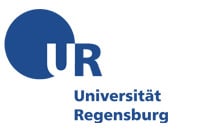
19 June 2015
Updated Impact Factor for Materials – 2.651
We are pleased to report the 2014 Impact Factor for Materials. According to the 2015 release of the Journal Citation Reports® Science Edition (published by Thomson Reuters in June 2015), the updated Impact Factor for Materials is 2.651. It has risen from 1.879 in the previous year (+41%), as illustrated in the figure below. The 5-Year Impact Factor is 3.350. Materials now ranks 54/259 (Q1) in the category ‘Materials Science, Multidisciplinary’.
Evolution of the Materials Impact Factor:
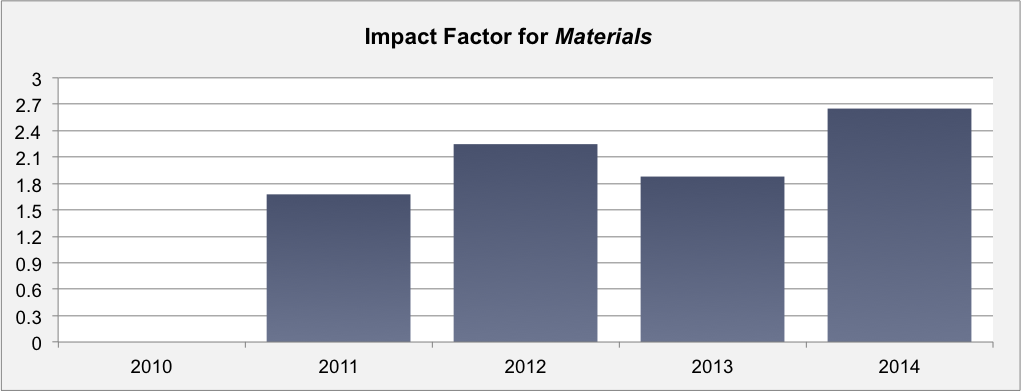
Evolution of citations to Materials:
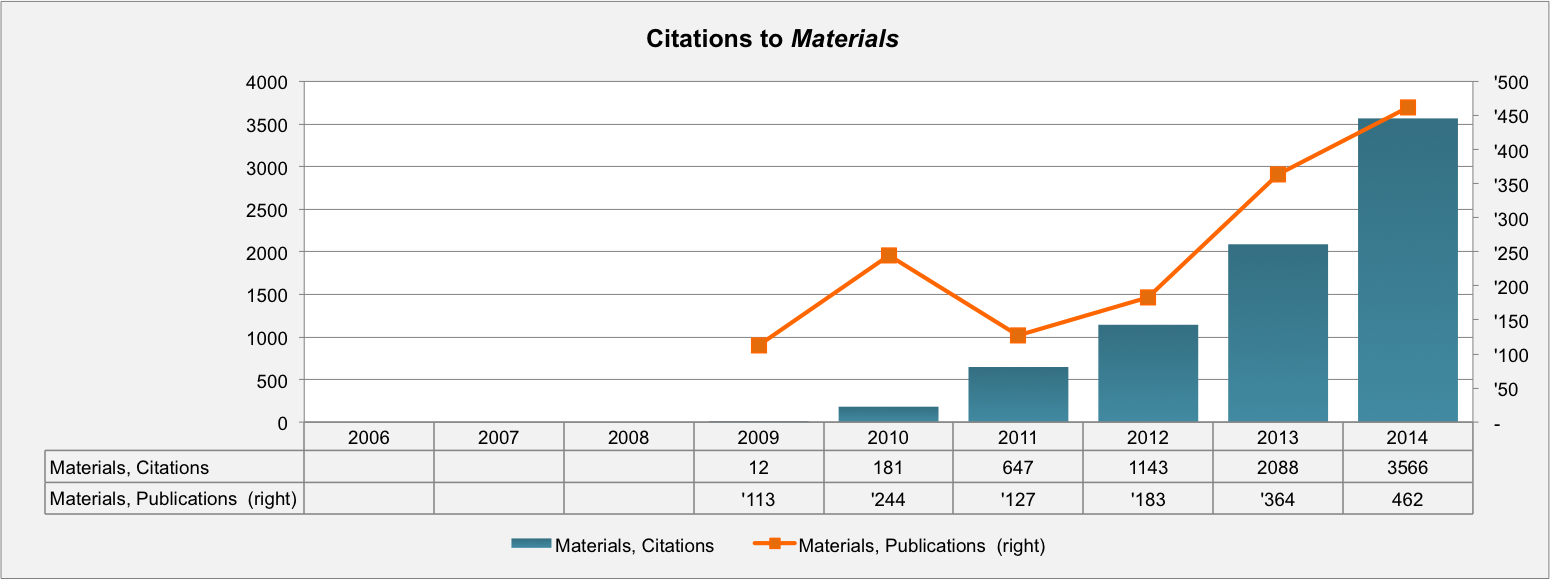




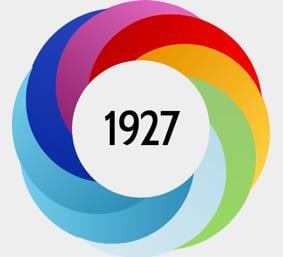
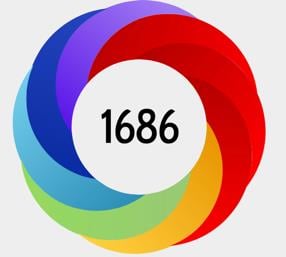
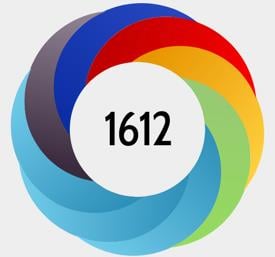
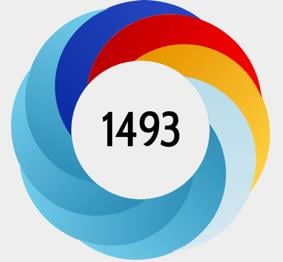
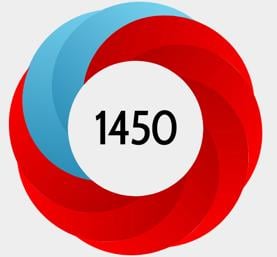
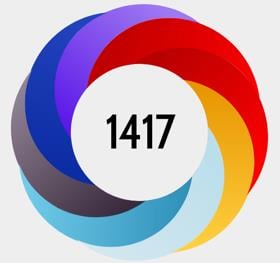
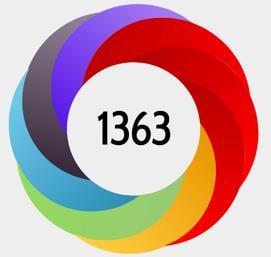
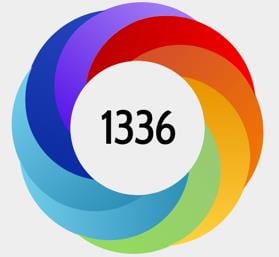
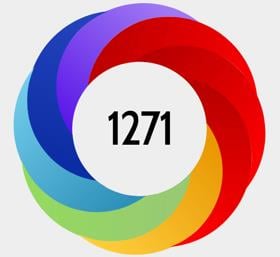
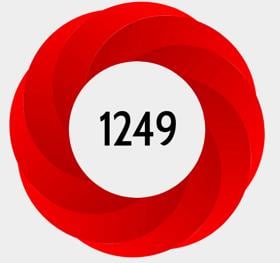













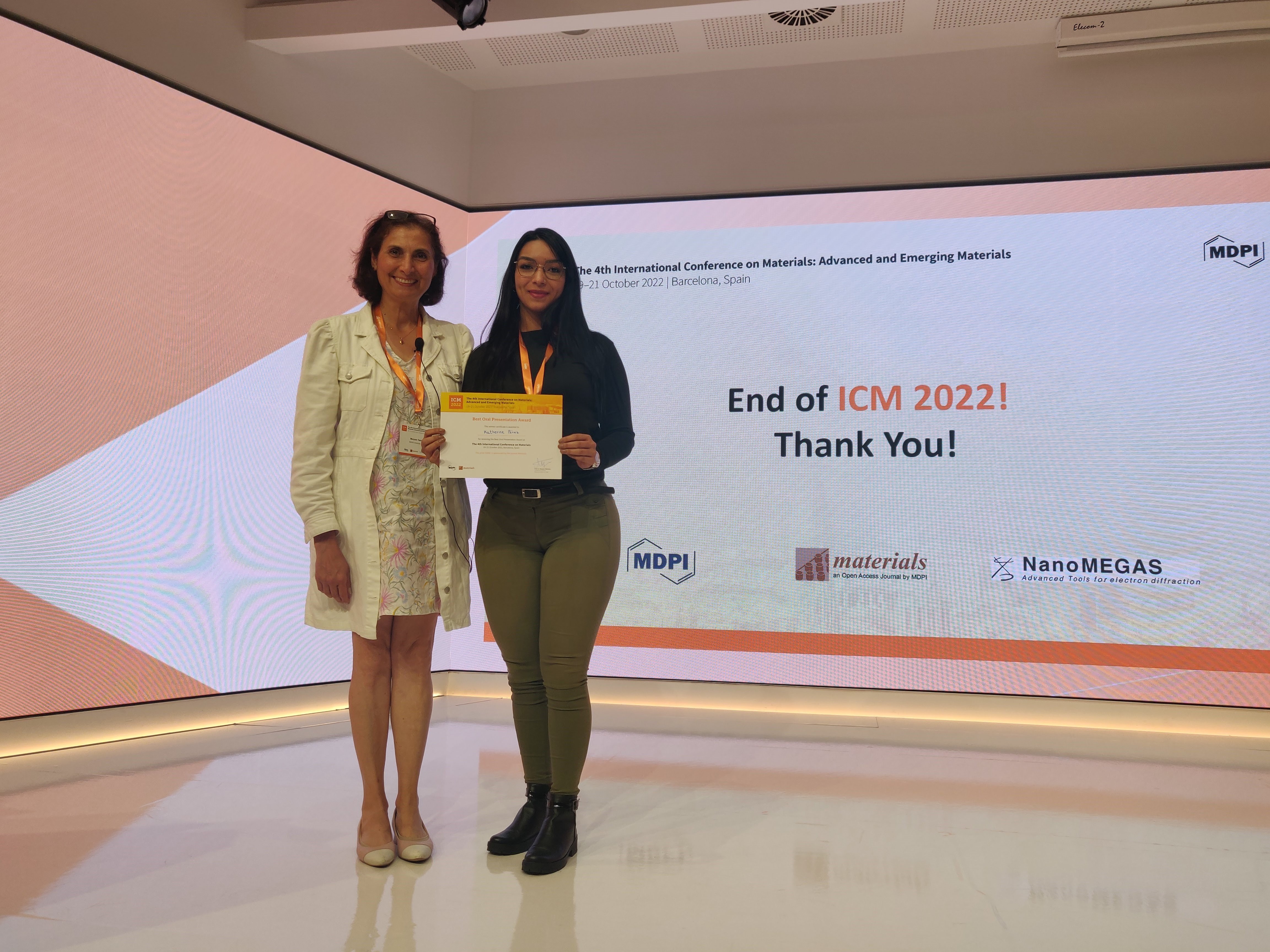
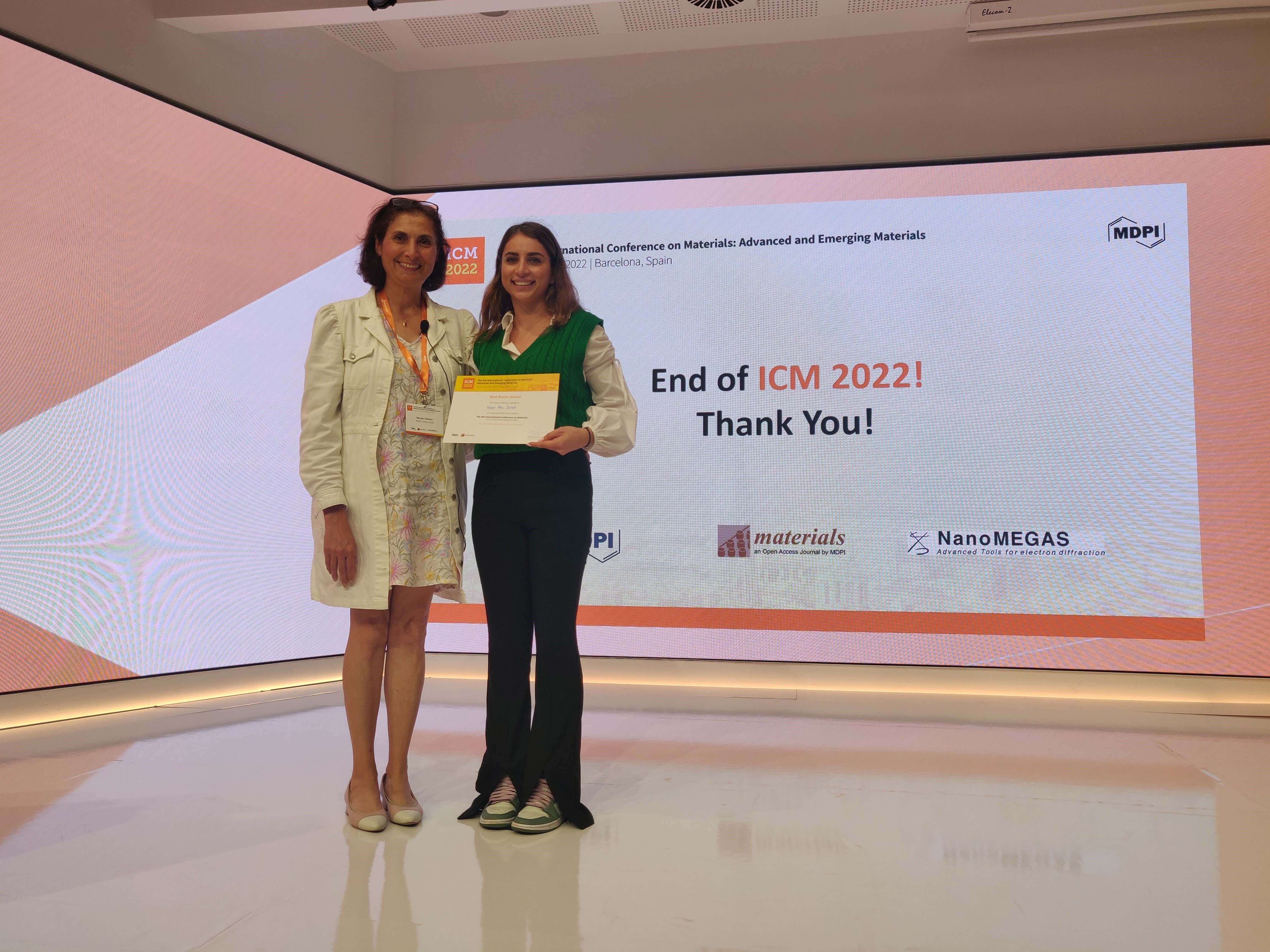
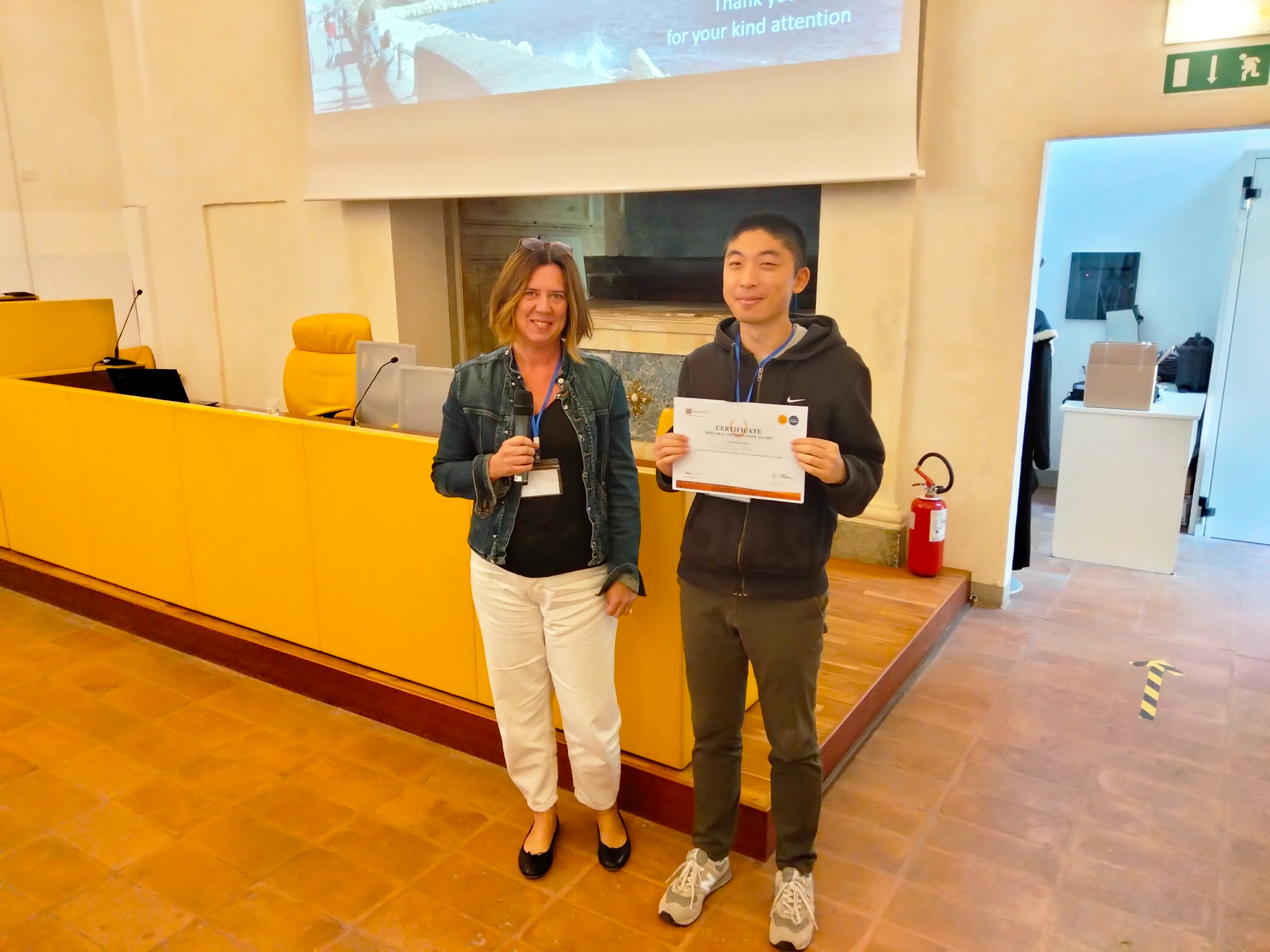
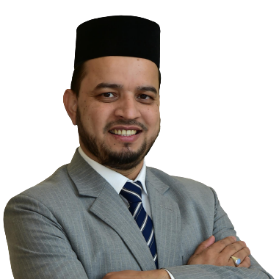
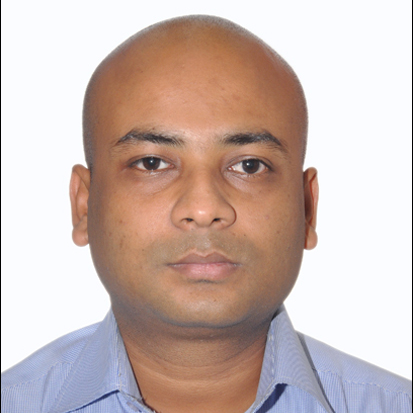



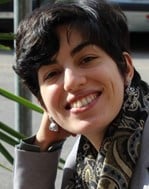

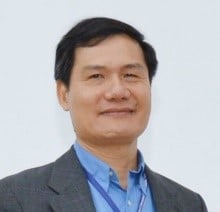
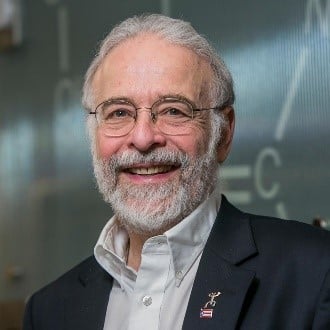
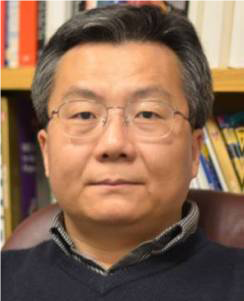


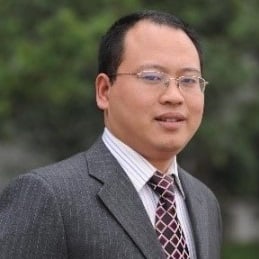
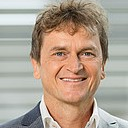
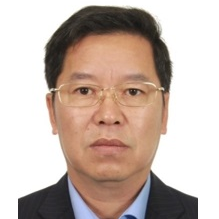

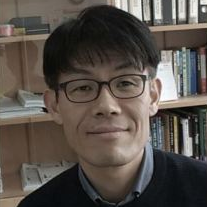
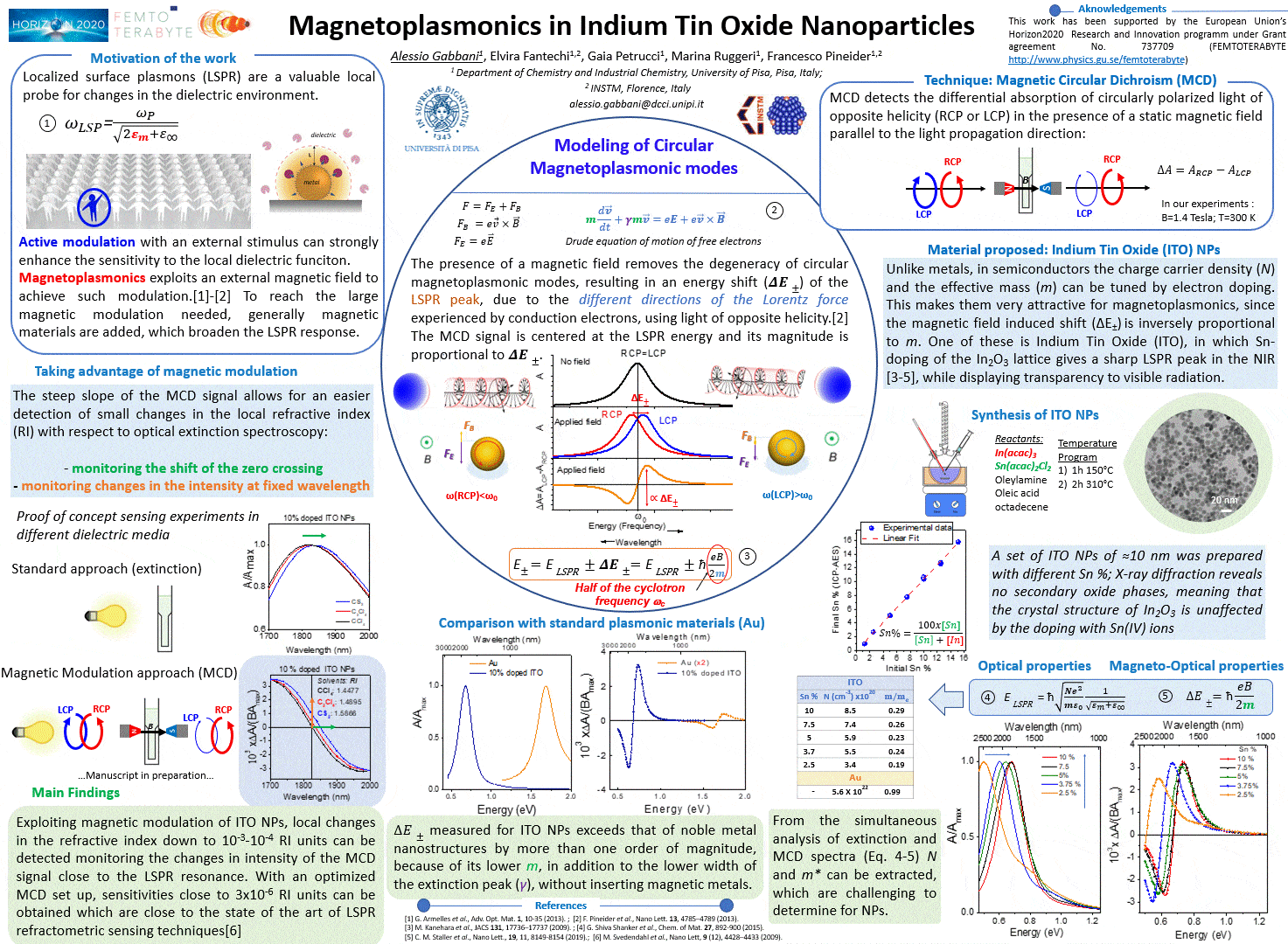
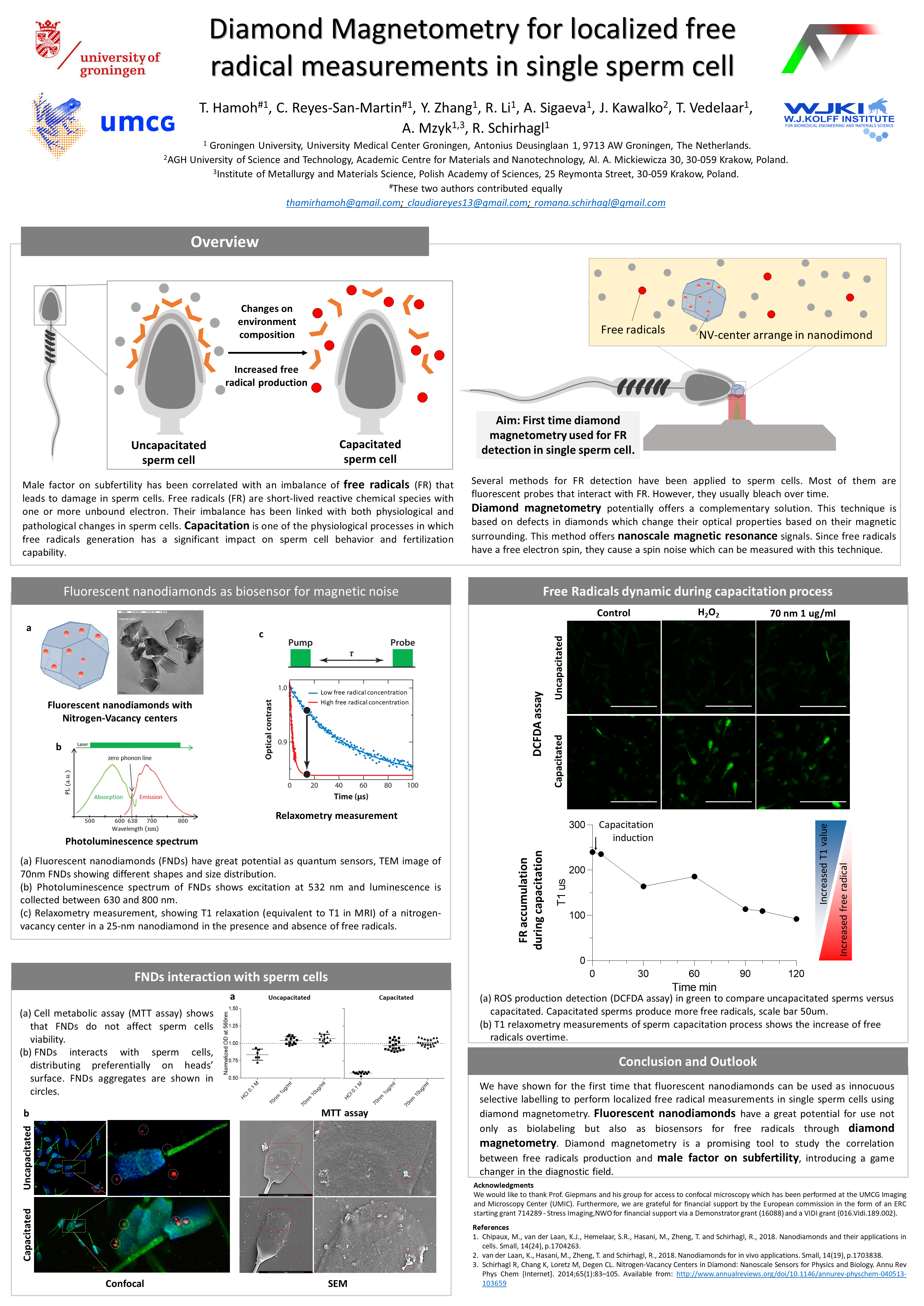
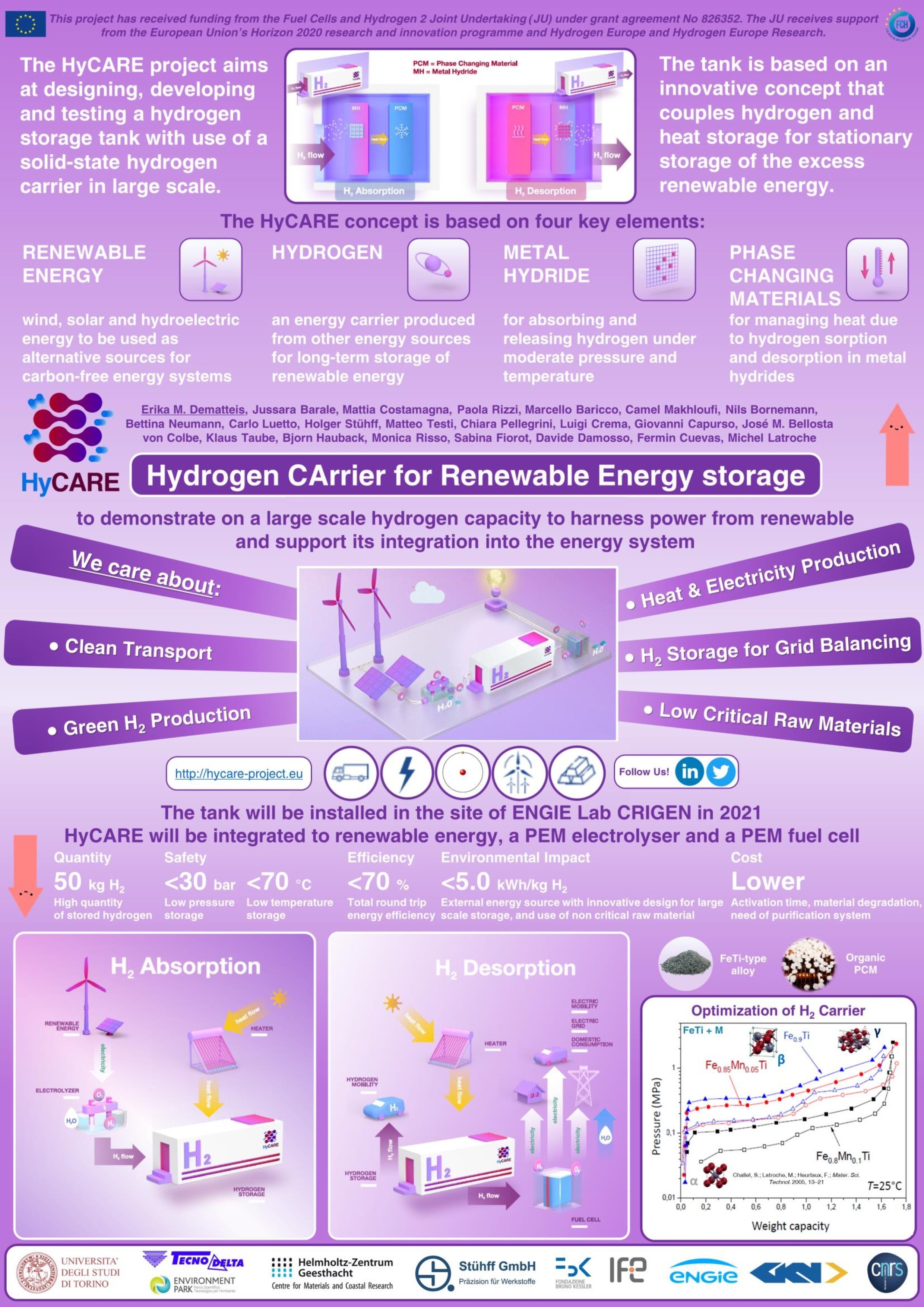
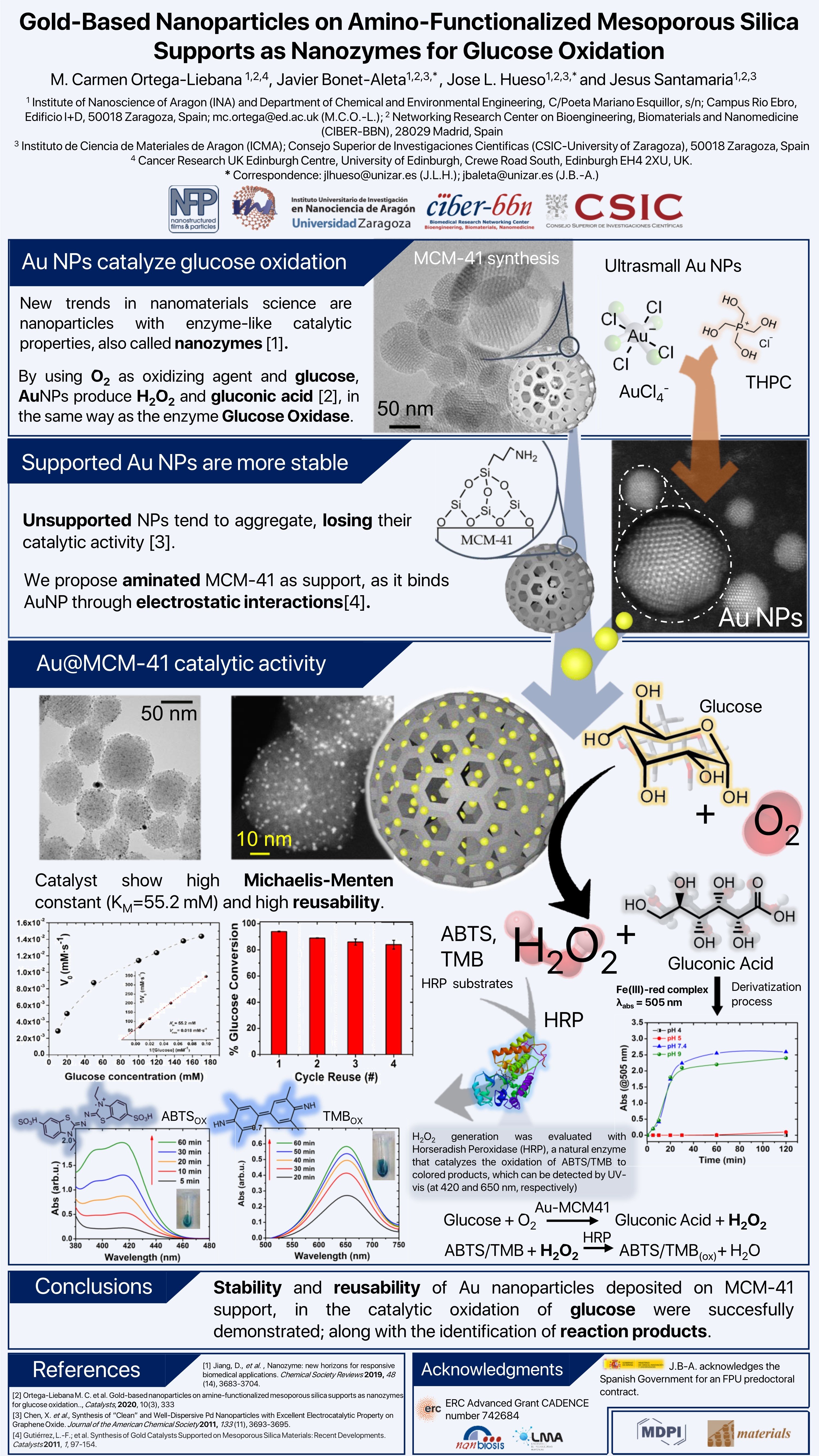
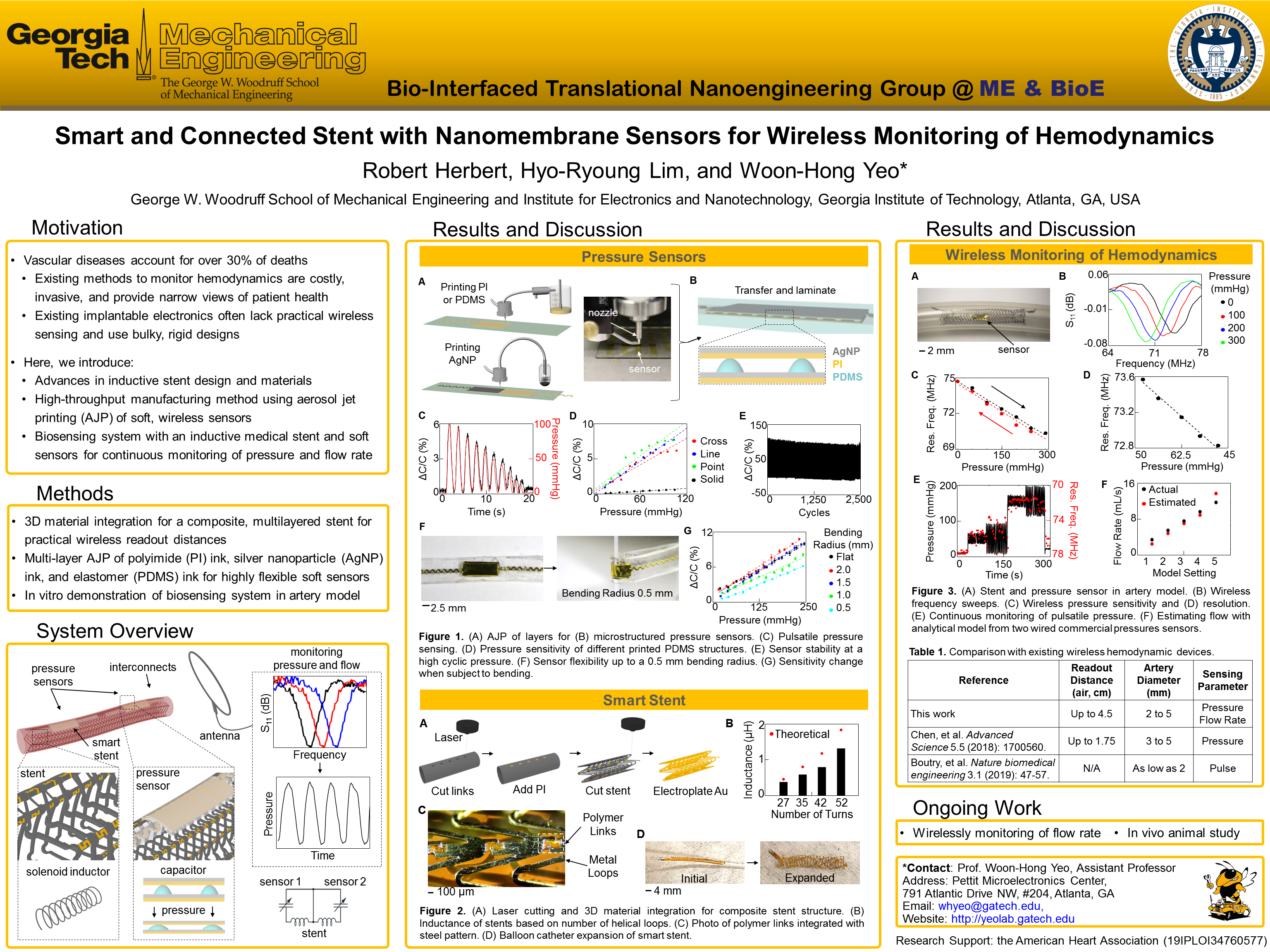
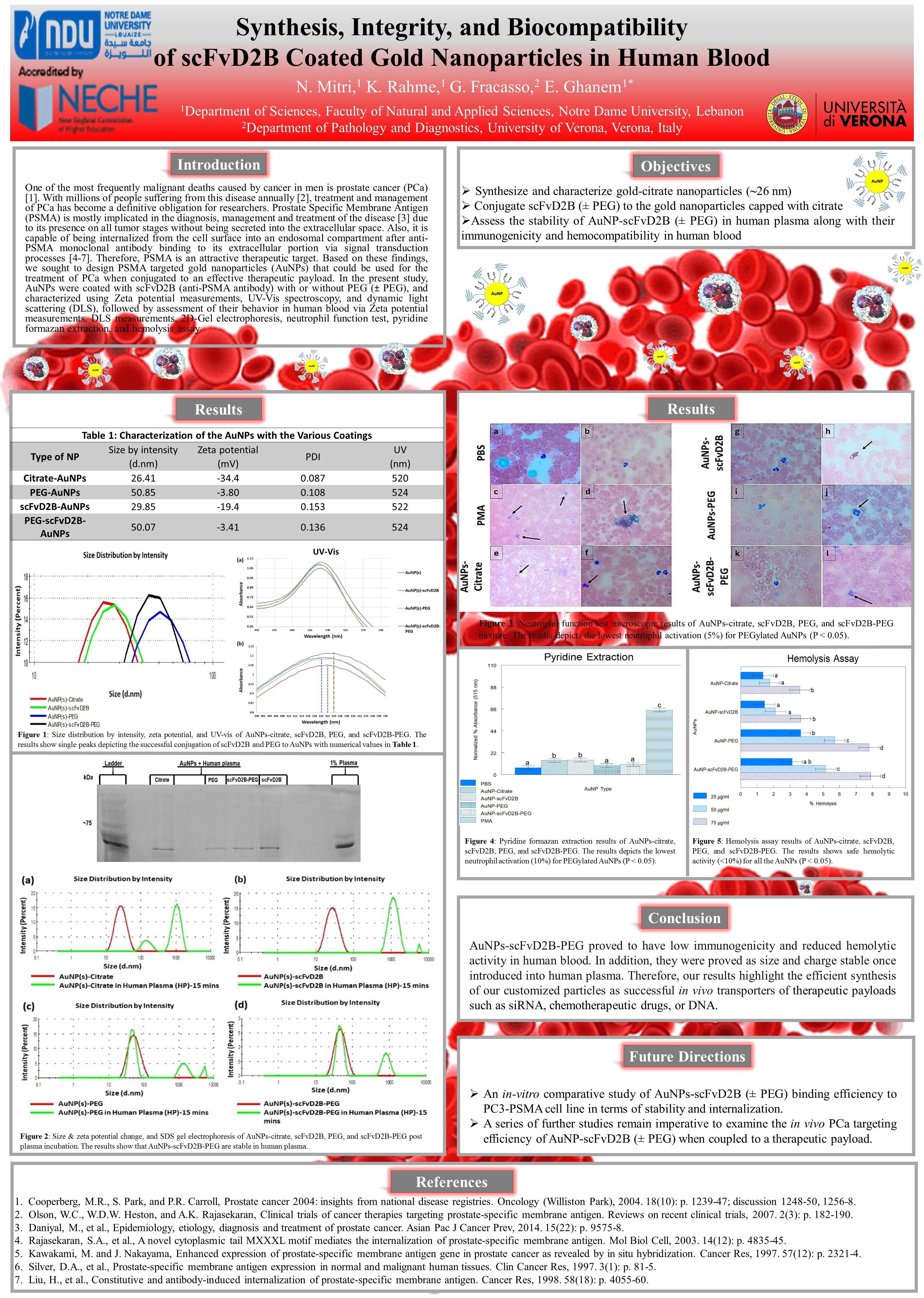


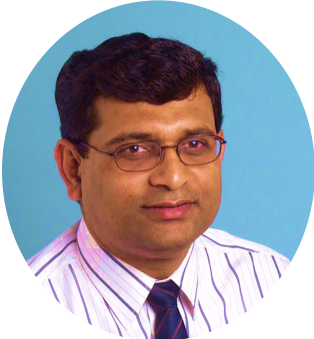
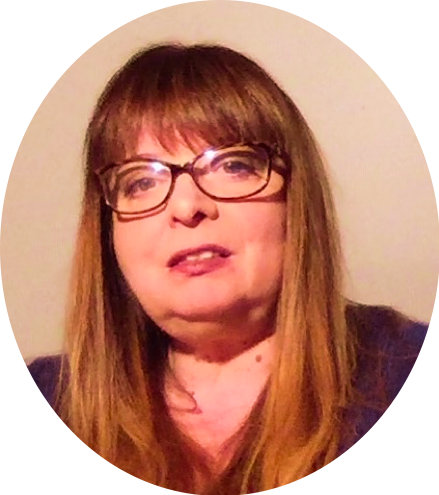
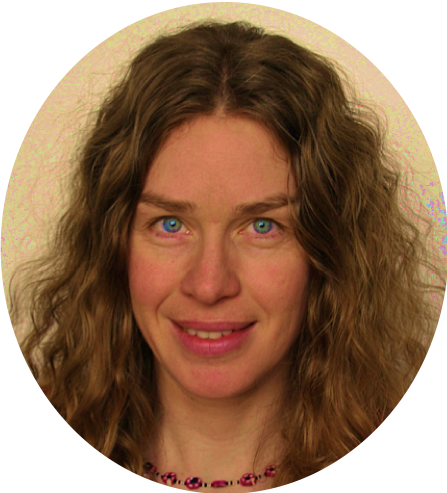
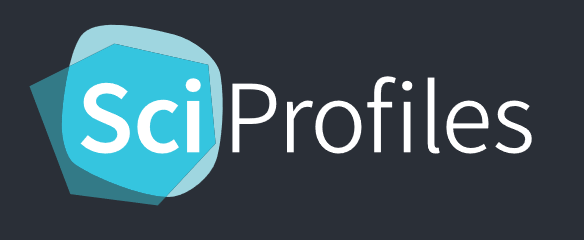

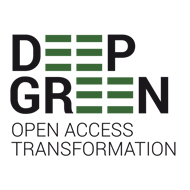



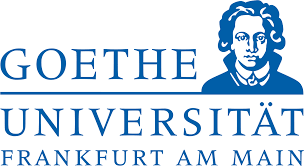
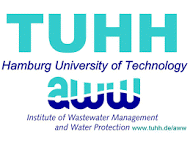





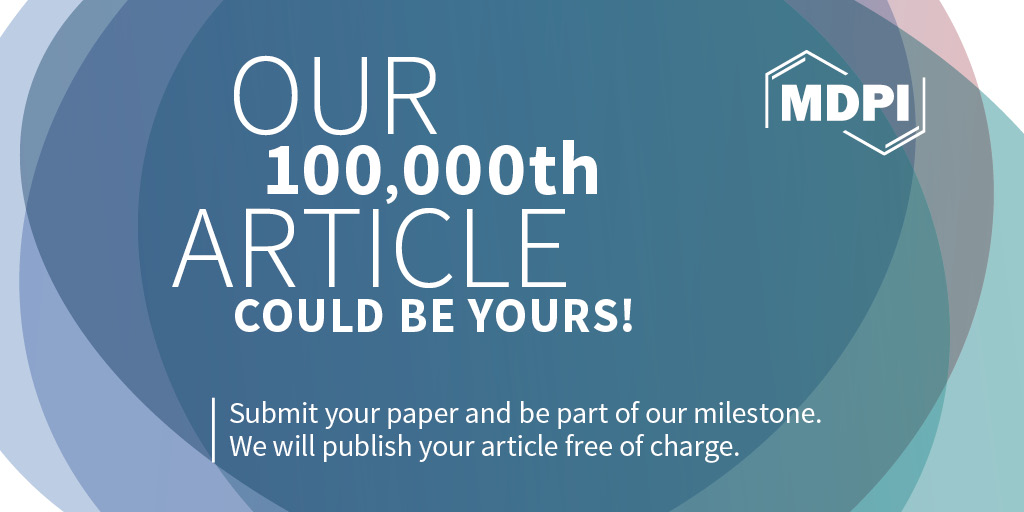
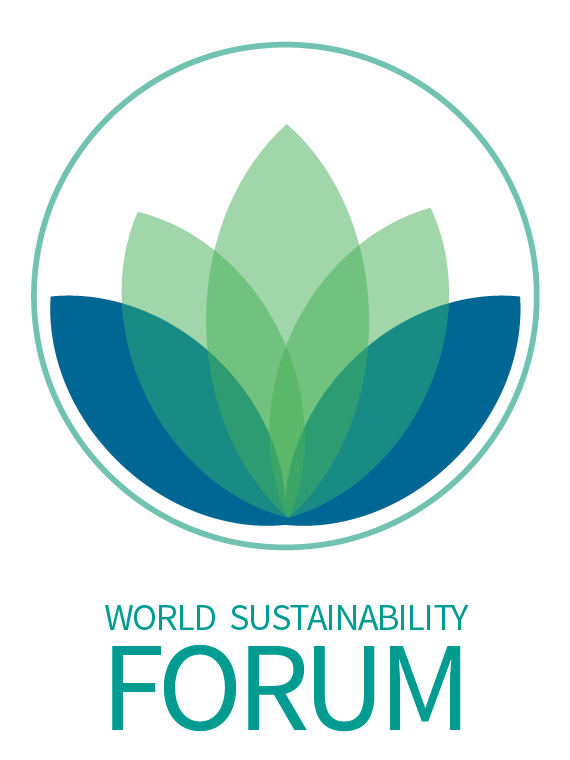
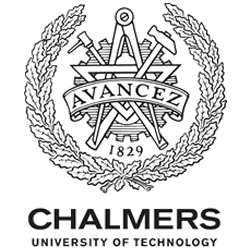
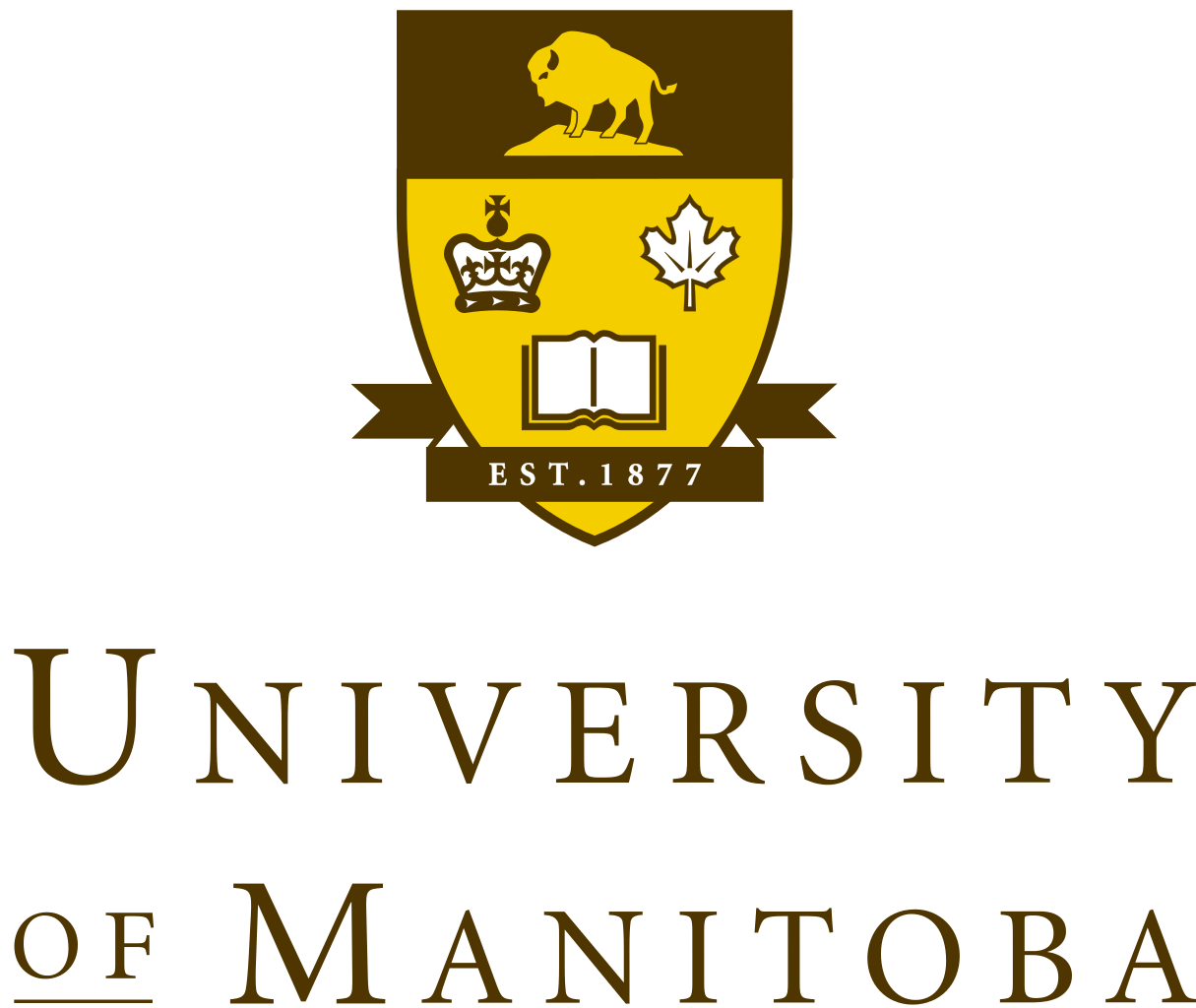
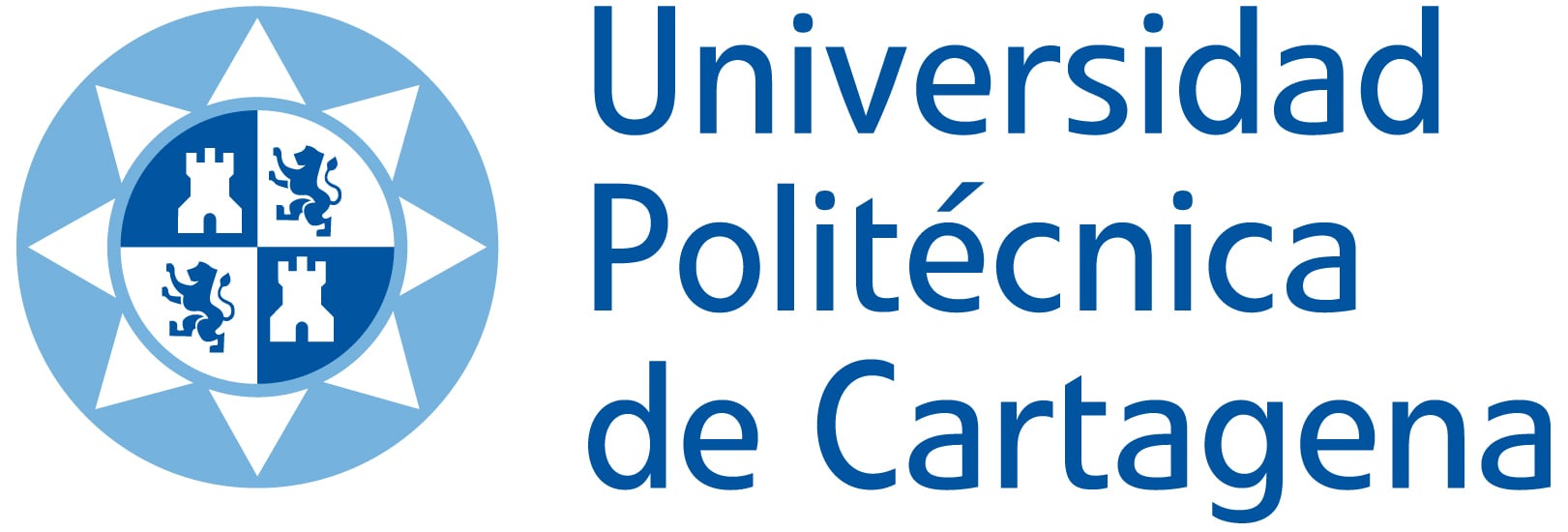
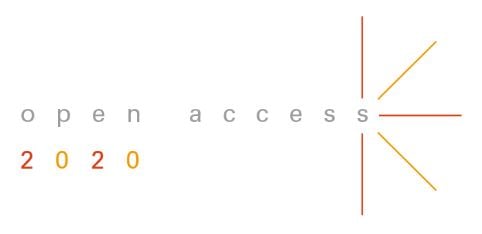
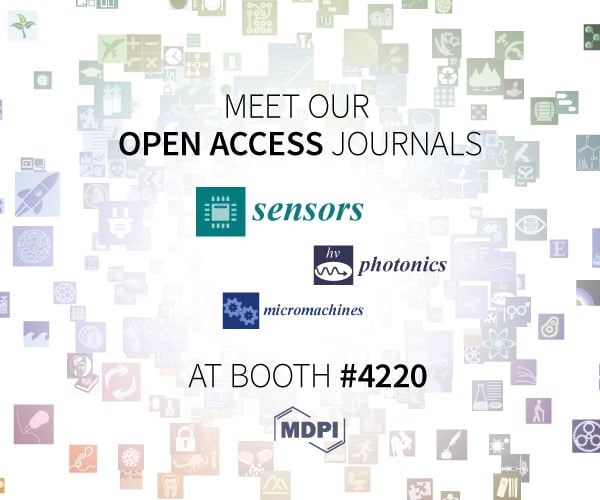



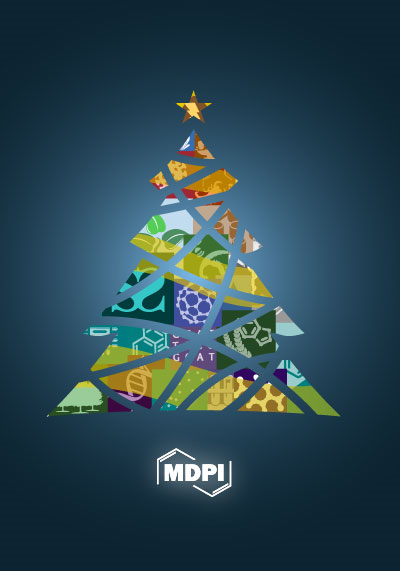


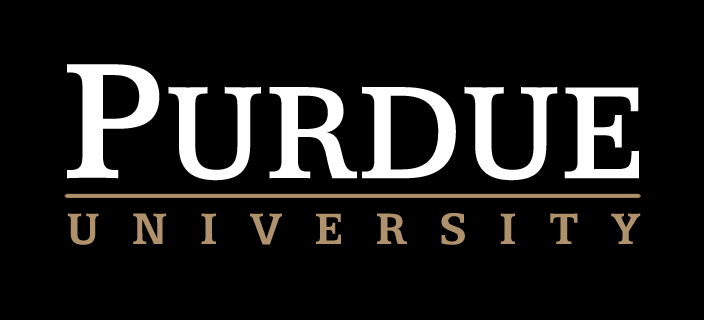

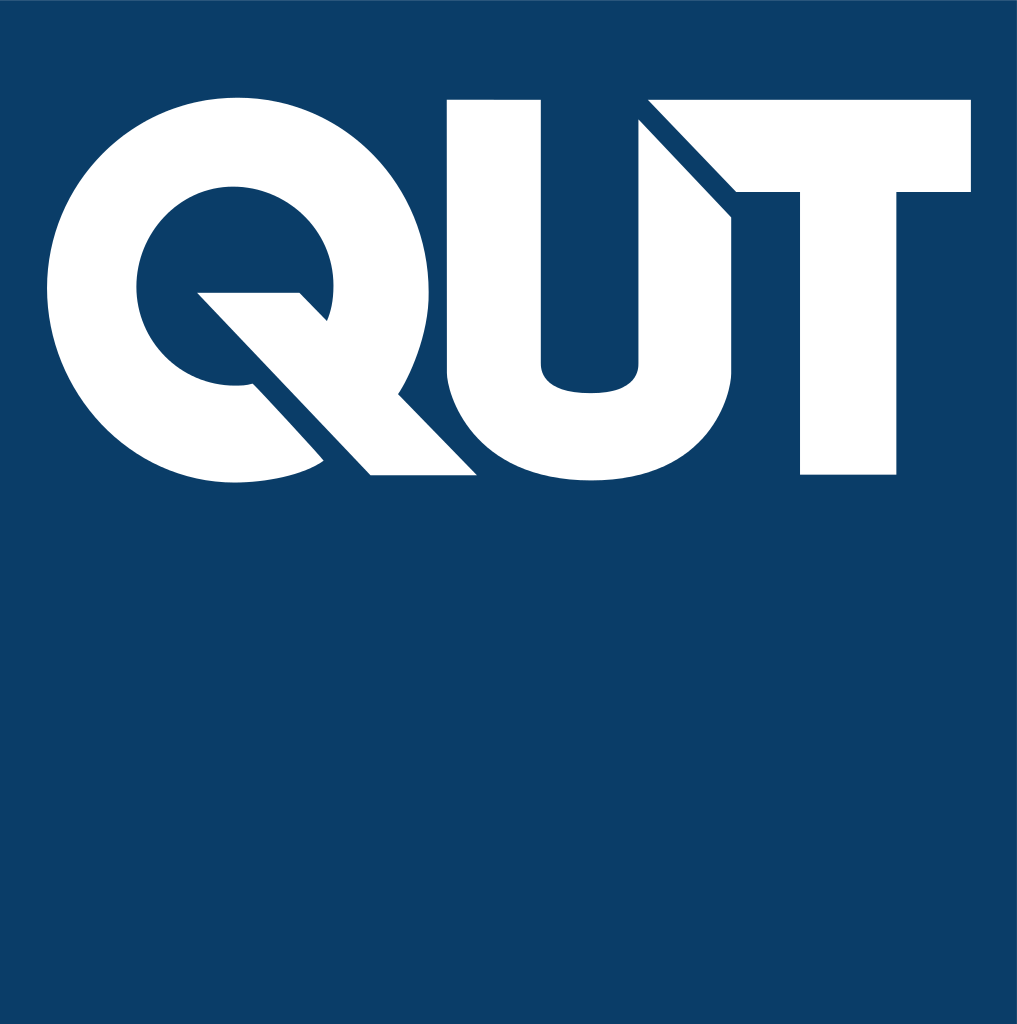
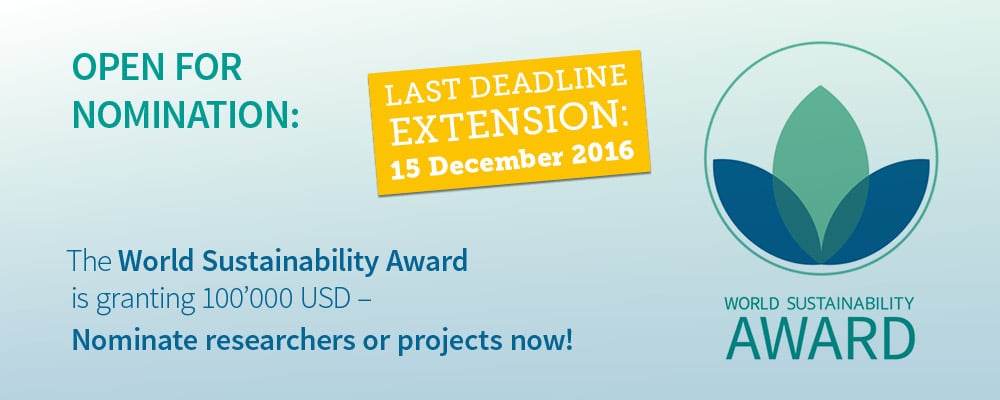


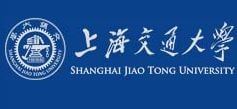
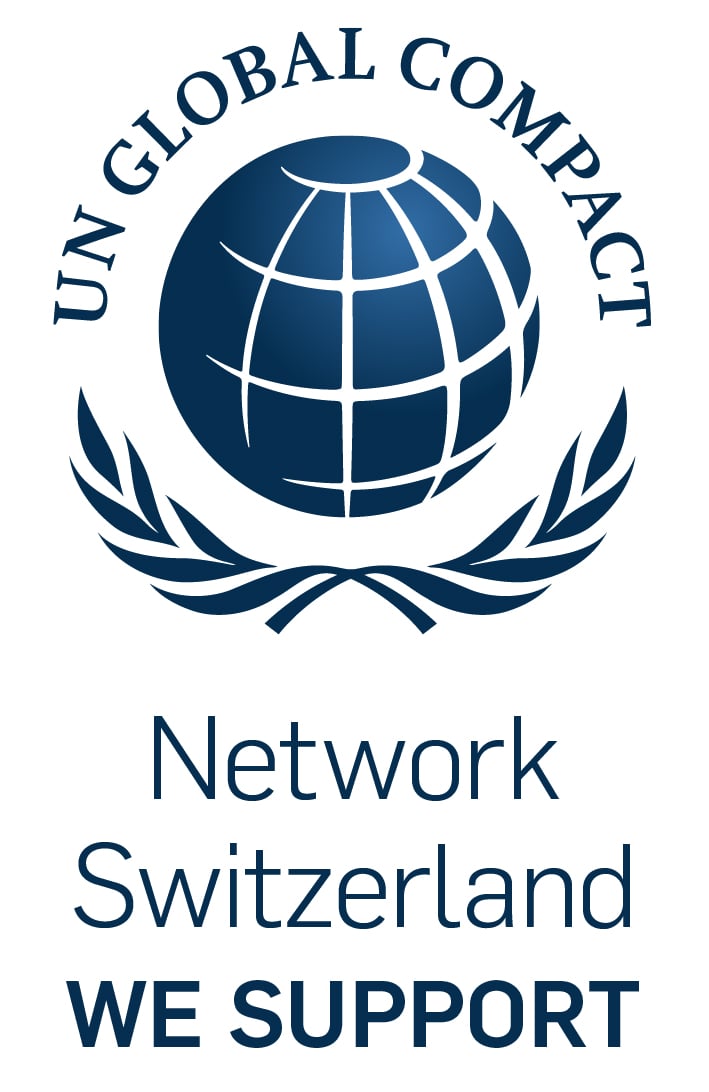
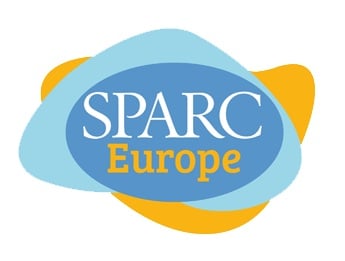
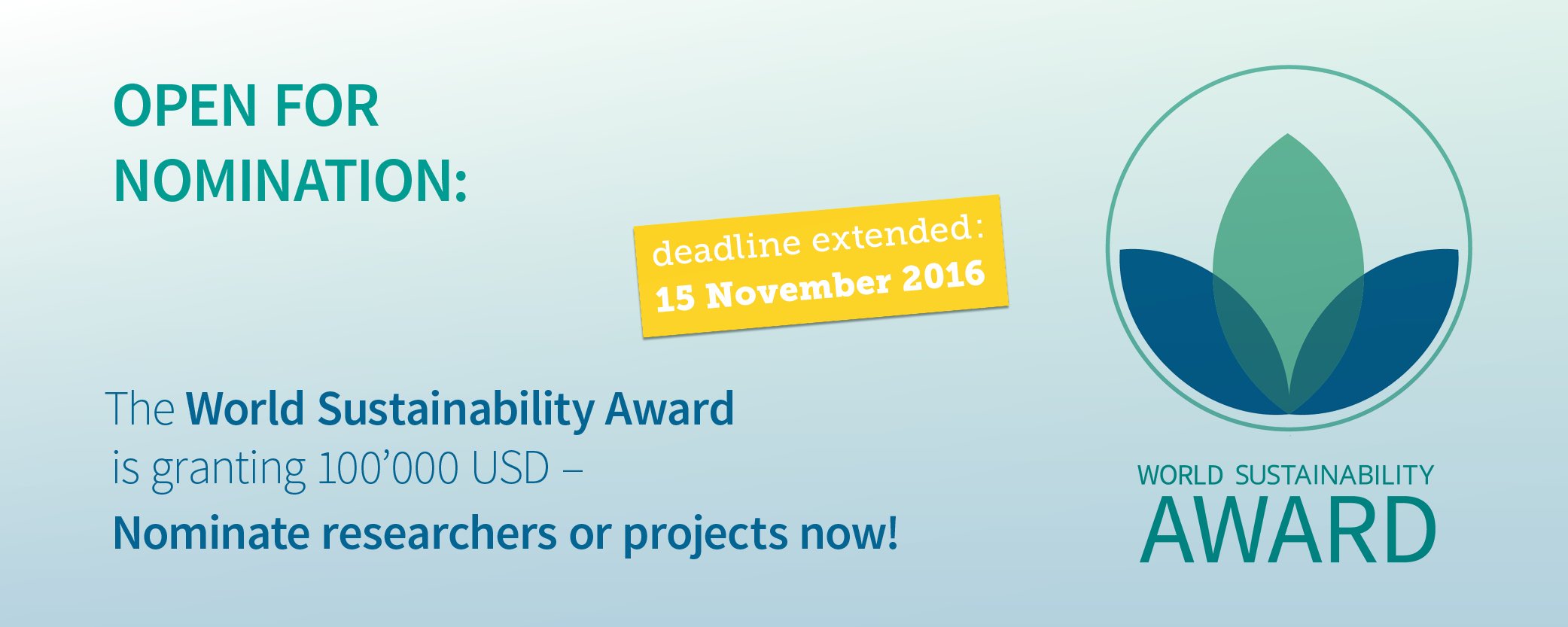 .
.